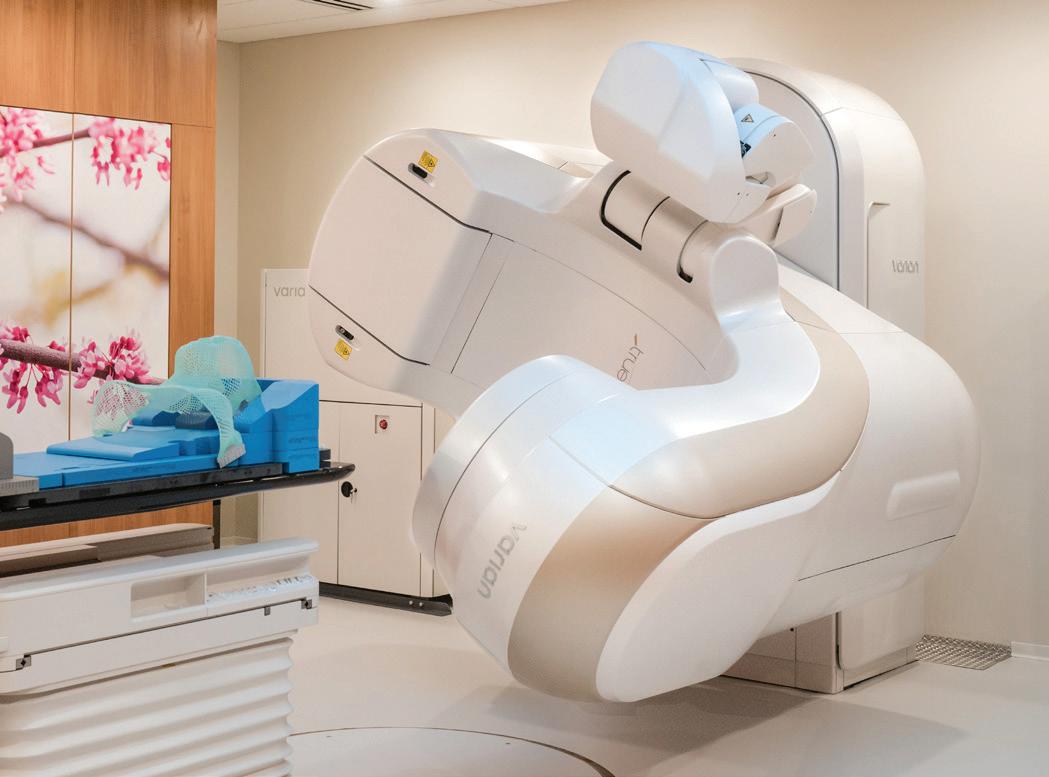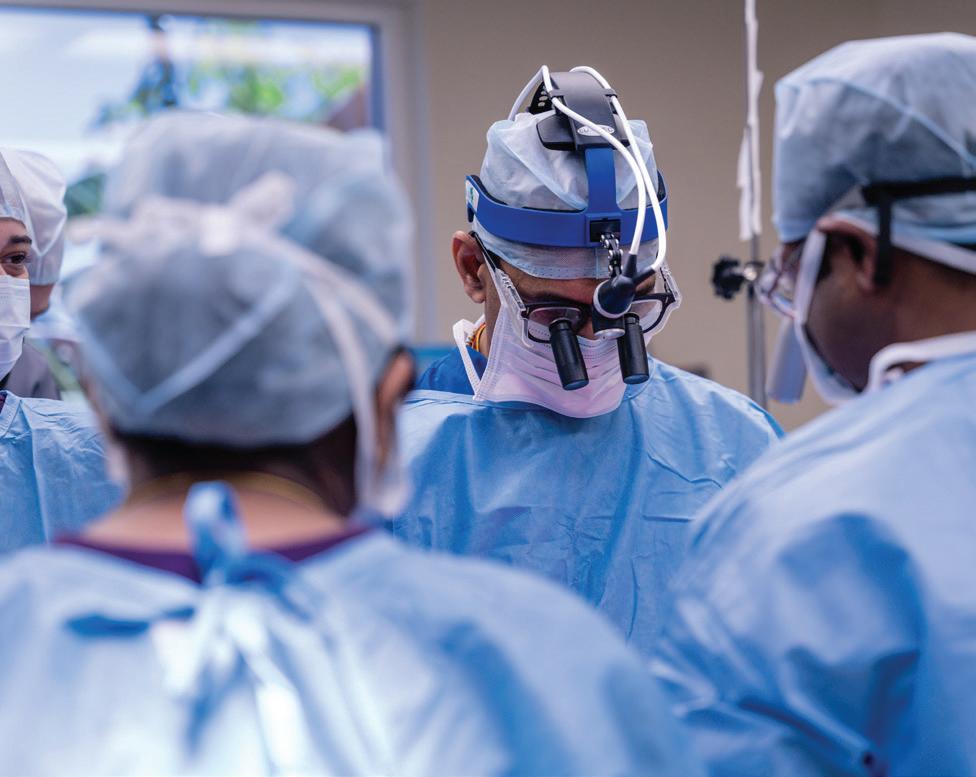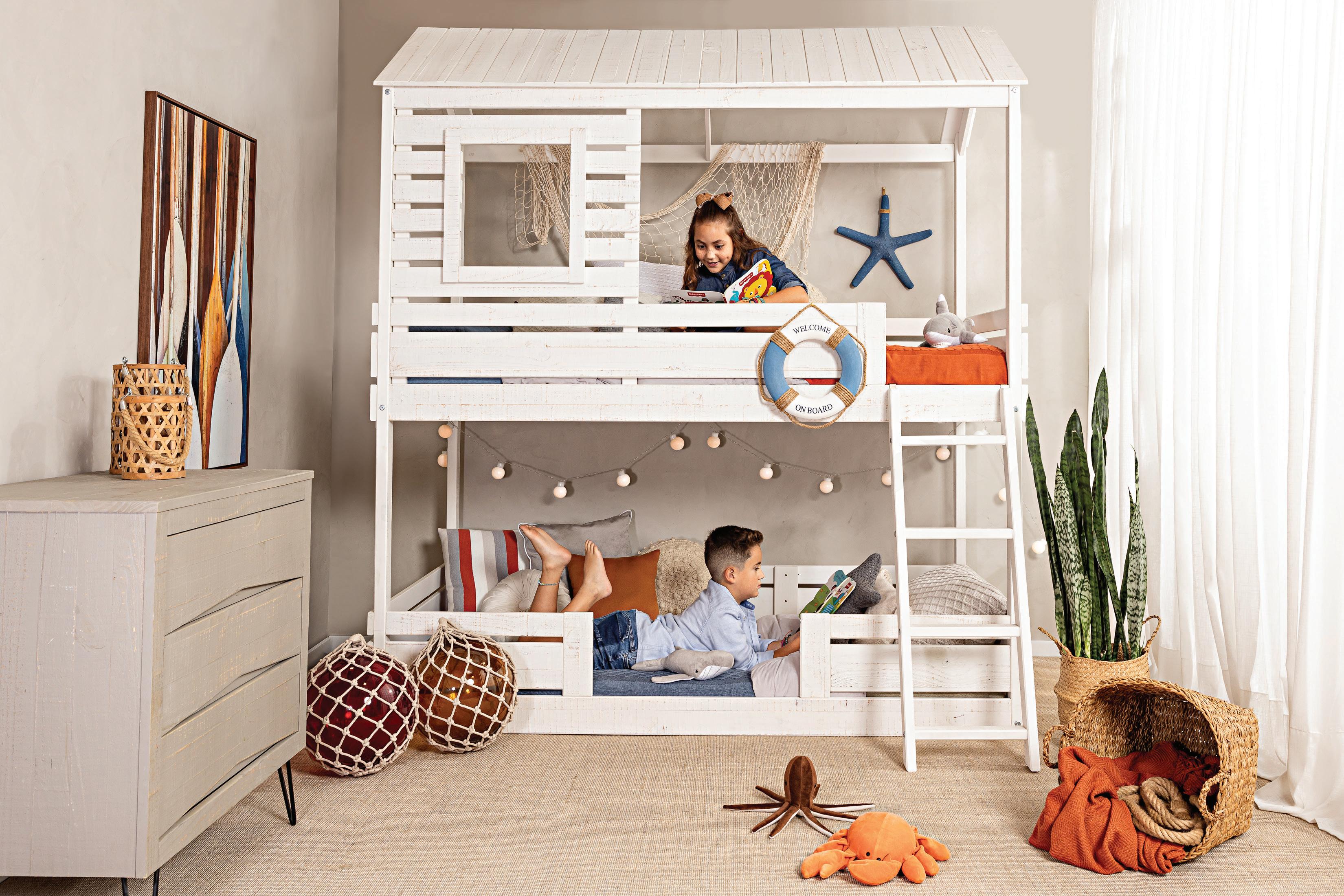Fostering
in the Cayman Islands
THREE OF CAYMAN’S INSPIRING HEADTEACHERS






Fostering
in the Cayman Islands
THREE OF CAYMAN’S INSPIRING HEADTEACHERS





Welcome to the 2024 edition of Cayman Parent magazine; we are excited to bring you another jam-packed magazine brimming with articles that span all ages of parenting.

At Cayman Parent, we highly value the importance of education and all of Cayman’s dedicated teachers, so this year we are excited to feature on our cover, three of Cayman’s hardest working and inspirational headteachers, Dr. Villence Buchanan of Clifton Hunter High School, Jon Clark of John Gray High School and Stephen Coles of Island Primary. We thank them for sharing with us their passion for education, their thoughts on leadership, their ambitious plans for their schools, and we applaud them for their determination to provide Cayman’s youth with the education they deserve.
In the same vein, we have also included a feature on Literacy is for Everyone (LIFE) and the invaluable work they are doing to bring early literacy to every young child in Cayman. Learn about their Thrive By Five programme which aims to make sure all children in their early years get the best start to their education.
But it’s not all about the teachers, as this year we invited all students ages 6-14 to participate in Cayman Parent’s inaugural Story Writing Competition, with some incredible prizes up for grabs! Students were asked to submit a story that would inspire readers to explore the great outdoors and help protect the world we live in, and we were absolutely floored to received hundreds of beautifully written stories from schools across the Cayman Islands. Turn to page 24 to read the winning stories.
Inside this edition you will also find the usual mix of hard-hitting and useful articles and guidance. From youth mental health and fostering in Cayman, to creating a language-rich environment for your child and tips on how to avoid the summer slump – there is something for everyone.
We hope you have as much fun reading this edition as we did pulling it together, with help from the wonderful team at Cayman Parent, and the support of local experts.
Don’t forget that the Cayman Parent website continues to be an ever-growing resource for all things parenting in Cayman, with up-to-date events, holiday camps, internships, scholarships and much much more. Head to www.caymanparent.com to see for yourself!
PUBLISHERS
Joanna Boxall & Charles Grover
EDITOR
Jessica Wright
COPYWRITERS
Christina Pineda
Emily Richardson
James Sedgley
SALES
Deborah Roberts
DESIGN & PRODUCTION
Julian Dalton
Michelle Pankhurst
PROOFREADING
Lauren Hazlewood
INTERN
Siena van Dam
COVER
Photography: Rebecca Davidson
Shoot location: The Ritz-Carlton, Grand Cayman & John Gray High School
CONTRIBUTORS
Juliet Austin
Kary Claybourn
Dr. Davis
Louise Desrosiers
Dr. Rommel El-Madany
Dr. Virginia Hobday
Dr. Lisa Joels
Nick Joseph
Nora Knijf
Dr. Erica Lam
Dr. Madhavi Manoharan
Dr. Jasmina Marinova
Amanda Minto
Cynthia Rowe
Trevor Spinney
Andrew Vincent
Dr. Sara Watkin
Natasha Were
ADDITIONAL PHOTOGRAPHY
Lucy Beighton, Rebecca Davidson, Irene Corti, Daria Keenan, Bouke Maddock, Courtney Platt and Scott Swing.
SPECIAL THANKS TO
Jessica WrightAcorn Media Co Ltd. PO Box 31403, Grand Cayman KY1-1206, Tel: (345) 946 3200 Email: info@acorn.ky, www.acorn.ky. Cayman Parent is published annually in September. Complimentary copies can be found throughout the Island. The information can also be found at www.caymanparent.com. All rights reserved. No part of this book may be reproduced or transmitted in any form or by any means: electronic or mechanical, including photography and recording without the prior consent of the publisher. While every effort has been taken to provide information that is accurate as possible, the publishers and respective contributors and researchers do not accept any responsibility for injury, loss or damage occasioned to any person as a result of material in this book.
The Ritz-Carlton Grand Cayman for letting us shoot at their beautiful hotel, thank you for making us feel so welcome! Special thanks also goes to Jon Clark for giving us access to the newly built John Gray High School, we enjoyed meeting the wonderful students and were delighted to sit in on an orchestra rehearsal and a steel-pan performance!

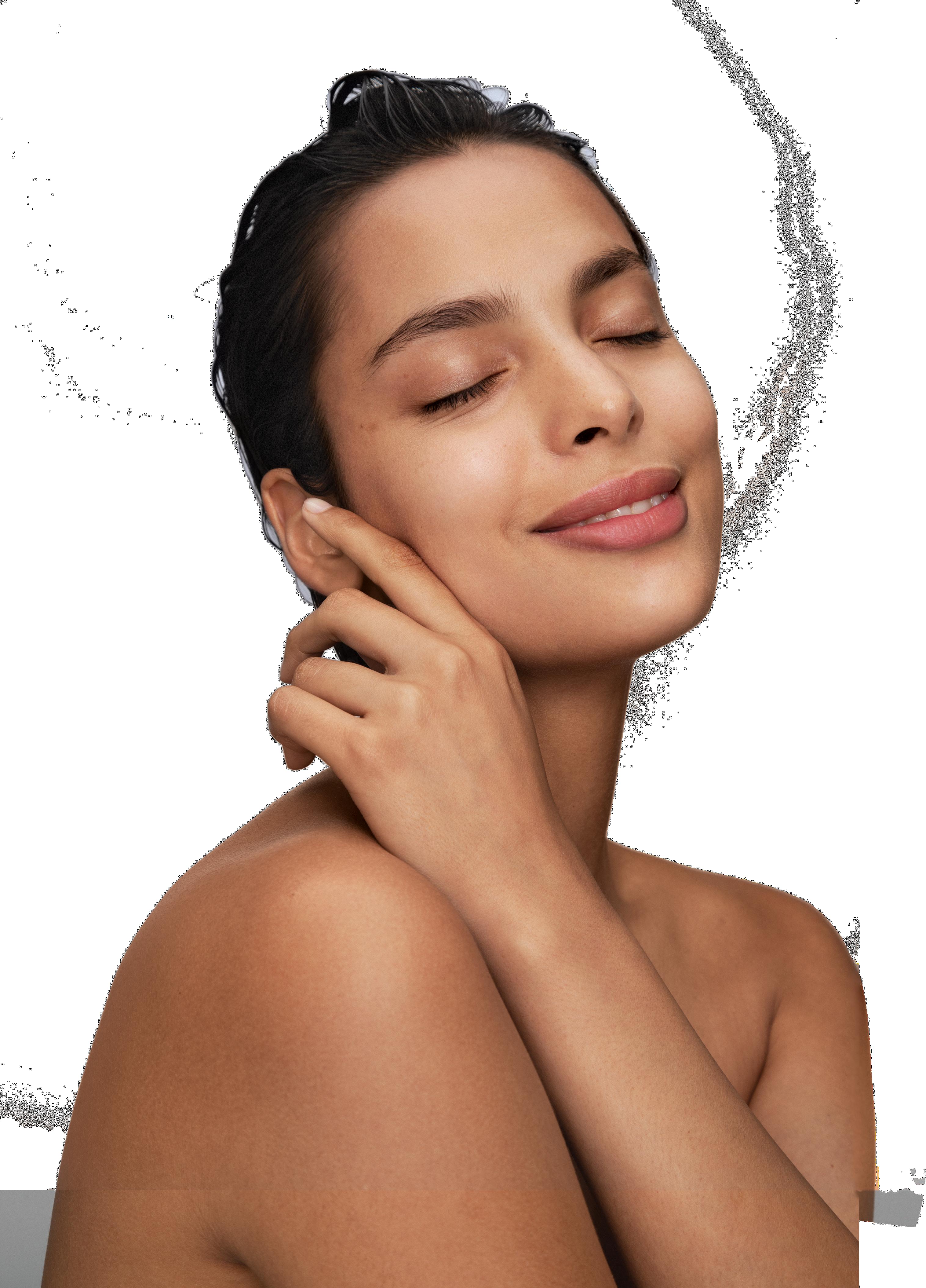





“I'm a mother of three young children, a family law practitioner and I’m married to a teacher – all of us live in the Cayman Islands. For me, it’s the friendly community that we are part of – combined with the relaxed way of life which allows us to spend time together – that means so much.” Louise Desrosiers, a Senior Counsel at Travers Thorp Alberga, is a highly-experienced family law litigator and accredited mediator. She is an expert in dealing with nuptial agreements, divorce and ancillary financial matters, in addition to the practical and financial arrangements for children.

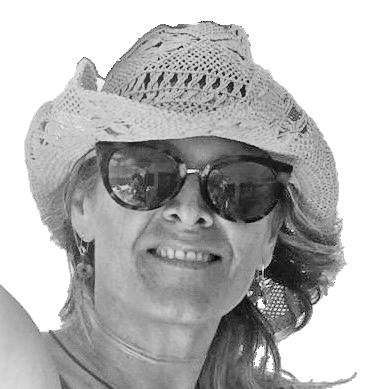
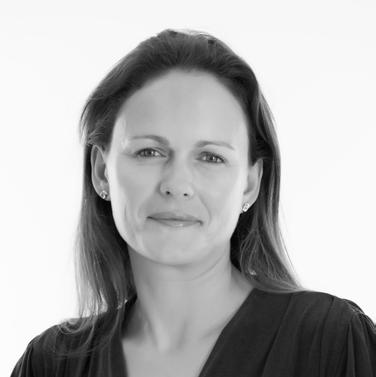
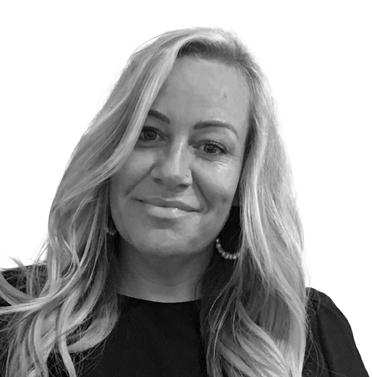
“The sea. My girls grew up surrounded by the most spectacular playground –a place of wonder and beauty, where their imaginations ran free; a place to watch sunrises and sunsets; a place to wash away worries and restore calm.” A writer and teacher, Juliet believes in the healing power of the sea; being kind to people, animals and the planet; and embracing adventure. She loves her little tribe, her dogs, her garden and fighting for social justice.
“Cayman has given us friends who quickly became family. Our kids have been so lucky to grow up in such a supportive and caring multi-cultural community. Although our children are now studying in the UK, their childhood friends in Cayman are still like family. It is so lovely to see them immediately relax once reunited." Kary was born and educated in England and has worked in the residential and commercial property industry in London, Hong Kong and Cayman.
“The opportunity for adventure and discovery in the ultimate of all playgrounds.” Admitted as a Cayman Islands Attorney at Law in 1997 and a partner at HSM Chambers, Nick leads the firm’s Cayman Business Team and specialises in immigration and licensing matters relating to the acquisition and maintenance of residence in the Cayman Islands, and the regulation of employment for foreign nationals.


“Working here, I have the privilege of meeting children from all over the world. There is such joy in watching them learn and appreciate different perspectives and worldviews, to help better understand the world around them. At the heart of this is Cayman, with its own unique and cherished way of life.” Cynthia is a Clinical Supervisor and Speech-Language Pathologist at KidsAbility, working with both children and adults. With 18+ years of experience, she is passionate about creating meaningful change in the lives of her clients.
“The best thing is enjoying the 'endless summer' and spontaneity all year round! When school is out we can grab an ice cream and then head to the beach on a random weekday.” Daria is an award-winning family and newborn portrait photographer. She once had a thriving career in HR but traded the heels for flip flops when she moved to the Island in 2013. When she’s not capturing memories for her clients, she’s creating them with her own family on the shores of Seven Mile Beach.
“As a proud father of three, living in the Cayman Islands is a phenomenal experience. Surrounded by pristine beaches and natural beauty, Cayman offers an adventurous playground for kids all year long. The warm, Caymankind community ensures a safe environment to raise children.” Trevor Spinney is Vice President of Premier Banking at Cayman National Bank (CNB). He also sits on the education committee for the Cayman Islands Bankers' Association.
“Cayman is blessed with excellent Obstetricians and Pediatricians, a safe Maternity unit, helpers and nannies and excellent educational opportunities. The multicultural mix, the marvellous weather and the abundance of outdoor activities also make it a wonderful place to be.” Dr. El-Madany is a consultant OB/GYN who has been practising in Cayman for nearly 20 years. He specialises in high-risk pregnancy, infertility treatments, traditional and advanced surgery.




9
Principals for Success: Three of Cayman's Inspiring Headteachers p10 | Youth Mental Health: The Impact of Substance Abuse p18 | Fostering in The Cayman Islands p22 | Cayman Parent Story Writing Competition p24 | LIFE: Getting it Right from the Start p28

Benefits of Juicing & Smoothies p34 | Sustainable Eating in Cayman p37
Picky Eaters & Problem Feeders: Supporting Your Child With Food p40

Nutrition Book Club p42 | The Listings p43
45
Family-Friendly Travel Destinations p46 | Clearing the Clutter: Home Organisation p50
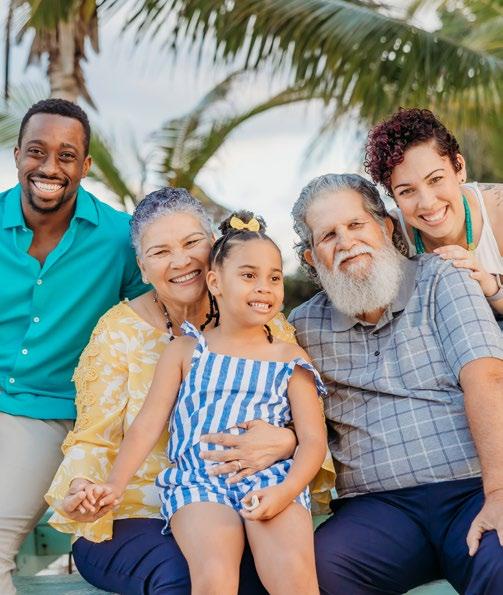
Top Supplements & Vitamins p52 | A Better "Good Night": The Importance of Sleep p54
Aesthetic Treatments to Slow the Hands of Time p57 | 15 Habits to Improve Wellbeing p60 | The Menopause: Demystified p63 | More Than a Pretty Smile p66 | A Guide to Pre & Postnatal Exercise p68 | Wellbeing Book Club p70 | The Listings p71
Sunshine Circles p74 | How to Choose a Preschool p76
The ABCs of Active Reading p78 | Literacy Development Milestones p80
Schooling in Cayman p84 | Tutoring in Cayman p91 | Homeschooling in Cayman p92
Inspiring Educators Q&As p94 | The Benefits of Boarding School p96
Ask a Boarding School Student p106 | Smart Scholarship Strategy p109
Education Book Club p115 | Saving for College Fees p116
Applying to Overseas Universities p118 | Local Colleges & Universities p122
Trade & Vocational Training Courses p124 | The Listings p127
145 HEALTH
Keeping Up With Your Health p147 | Children's Orthodontics Explained p152
Common Childhood Illnesses p154 | Identifying Learning, Behavioural or Cognitive Issues p158 | Doctors Q&As p162 | Dental Care for Kids p164
Getting Immunisations Right p166 Protecting Your Child's Vision p168
Just Keep Swimming Safely p170 | Health Book Club p171 | The Listings p173


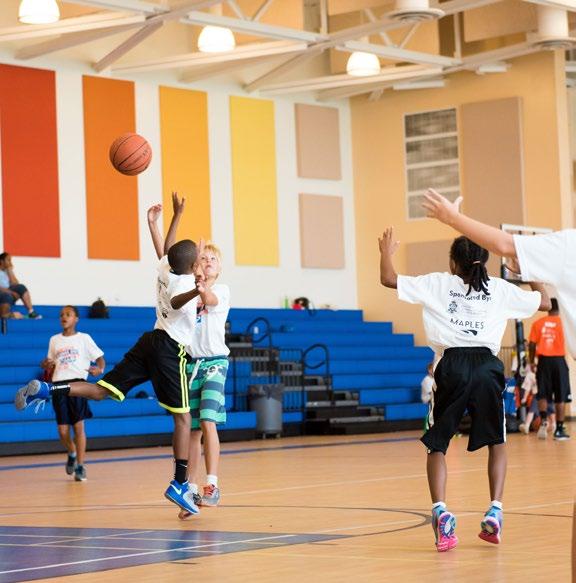





When Cayman Parent was granted a unique insight into three of our Islands’ schools, we wanted to uncover what it takes to lead a school to success, how to prepare a generation of children for their futures and, of course, find out the state of Cayman’s education system.

Our three principals – one determined to succeed despite facing a unique circumstance, the second established in a government school 15 years in the making; and the third taking on the challenge of a brand new, private primary school – were open and honest, revealing how they and their school succeed and how we can all help in the education of our young ones.
Though there are dividing factors between each principal – private and government, primary and high school – there was no rivalry nor competition, no personal glory and, most importantly, no disparity in ambition for each of their schools. It was simply a meeting of minds in which a shared vision to help propel the country’s next generation to success was celebrated.
Dr. Villence Buchanan of Clifton Hunter High School, Jon Clark of John Gray High School and Stephen Coles of Island Primary, shared beliefs, values and visions for the future of Cayman’s education system.
by Rebecca Davidson


Upon meeting the principal of Clifton Hunter High School, Dr. Villence Buchanan exuded warmth and kindliness. Friendly, full of smiles and obviously very well educated, you can imagine she is a welcomed presence around the school corridors. Born in Jamaica, Dr. Villence moved to the UK at just six years old and spent her formative years living in North London. She then went on to study Biochemistry and trained as a Science teacher. During her teaching career, Dr. Villence has worked as a teacher in the UK, Jamaica and the Cayman Islands.
Sitting down with Dr. Villence, talk quickly turned to the role of parents in the education of their young ones. This principal of Clifton Hunter is a firm believer that parental involvement in a child’s education is a critical factor in their academic success, and during her eight years spent at the school, she has focused on strengthening these home-school links for this very reason. “I believe that my greatest contribution to the school”, Dr. Villence thinks, “is empowering parents to partner with teachers to provide the best outcome for students.” Parents have an indispensable role to play in a child’s academic development and their academic success is a collaborative effort involving the child, the teacher and the parent. Those parents who take an active role in the education of their child help set them up for success in and out of the classroom. Studies have shown a significant variance in a student's academic performance based on the level of engagement exhibited by their parents in their education. Specifically, students whose parents are actively involved in their academic life tend to fare better in their studies, exhibit a higher attendance record and display more significant interest in their academic pursuits. Conversely, students whose parents are not involved in their education may need help with their academic performance, showcase a higher rate of absenteeism and potentially lack the motivation to learn.
But it's not just parental involvement that Dr. Villence attributes to the success of her students. Of course, a principal is nothing without their team of inspiring and committed teachers, and we could not discuss the success of a school without touching on the role of Cayman’s teaching staff.
Clifton Hunter is well-known for its dedicated teachers who offer their spare time to help students reach their academic potential. It’s common to find additional lessons taking place after school and during school holidays in order to make this happen. Student success is a priority to all staff at Clifton Hunter, and teachers go above and beyond to ensure they continue to surpass international standards where students’ achievement is concerned. “We must be able to empower teachers and cultivate leadership skills in them as well as in students”, Dr. Villence attests.
“I believe that my greatest contribution to the school is empowering parents to partner with teachers to provide the best outcome for students.”
- Dr. Villence Buchanan

When it comes to leadership, Clifton Hunter’s principal believes that having a vision, together with a clear plan of how this vision can be achieved, and understanding the significance of building a supportive community within the school environment are all of the utmost importance. “We are passionate about our work”, says Dr. Villence, “and we strive to create a collaborative, inclusive learning environment.” Aspiring to empower her school community to have a voice, Dr. Villence endeavours to communicate a shared vision of trust in order to achieve academic success for all students across the school.
It’s no secret that Cayman’s only open-plan concept school poses unique challenges for traditional teaching and learning. The noise levels can be distracting, especially for students with SEN, and not particularly conducive to traditional learning. However, all teachers, along with their principal, work collaboratively to plan and deliver lessons that are minimally disruptive to neighbouring classes. When appropriate, teaching is taken outdoors which, of course, has benefits of its own and allows for a different kind of learning. The one-to-one laptop initiative introduced by the Cayman Islands Government allows for greater use of technology in planning and delivering lessons which also helps to reduce learning distractions. So, while the building at Clifton Hunter is unique in its design which produces less than ideal results, it’s the commitment and determination of the school, its staff and its students, alongside government help, that is helping drive alternative methods of learning, which of course have their own value.
With this in mind, if a child is not learning, staff will come together to investigate whether the child is ‘at risk’ in any way and intervene to help get the student back on track. While delivering lessons, teachers are encouraged to constantly assess the learning of students in the classroom by seeking feedback from students, using questioning techniques, games and group activities. A simple aid to student learning has been the free school meals programme recently introduced into all government schools. “It has been a blessing in ensuring no child attends school hungry”, praises Dr. Villence.
For students with Special Educational Needs (SEN), there are a variety of services available to help bridge the gaps and ensure students can access the curriculum despite their additional support needs. Some programmes at Clifton Hunter are run by specialists within the staff body and others are provided externally by assigned specialists, such as Speech-Language Therapists and Occupational Therapists. Currently, the school is working towards being more inclusive by providing as many enriching curriculum opportunities as possible, with measures such as widening the offering of alternative pathways and enabling more engagement with local businesses and the wider community to support these alternative routes. Dr. Villence and her school is continually working to remove any barriers which may deter students from reaching their potential and achieving academic success.
Finding out more about Clifton Hunter's dedicated workforce, leadership style and academic inclusivity was essential in learning more about the school. Yet, our conversation with Dr. Villence could not pass by without touching on the history of the school building.

As part of the next stage of building, Clifton Hunter hopes to have a canteen built so that students can enjoy their school meals in a designated area. Also, the school hopes to include a STEM block so they can extend the activities currently on offer. What’s more, as the proud winners of the 2023 Interschool Sports Competition, Clifton Hunter has submitted a proposal to have a running track installed on school grounds. This will enable local athletes living in the Eastern Districts to train safely in a convenient location. For all these reasons, despite the drawbacks relating to architectural flaws, these upcoming changes demonstrate the unwavering commitment of the Clifton Hunter team which cannot go unnoticed.
“My three-year plan for Clifton Hunter is to maintain high standards of progress and achievement”, explains Dr. Villence. In addition to their accelerated and TVET progression pathways, Dr. Villence also plans to introduce a new REACH (Resilience, Empowerment, Achievement and Continuous Habits) programme, designed to empower students by helping them develop the skills necessary to cope with life’s challenges. It will also encourage them to be productive members of society and life-long learners. Dr. Villence also hopes to improve morale by forging closer links with the communities of East End, North Side and Bodden Town, continuing to strengthen home-school links to build a safer school community and promote inclusion. Clifton Hunter is up and coming and that is something to celebrate and be proud of.

Walking the corridors of the new John Gray High School alongside principal Jon Clark was much like re-visiting the street you grew up on that’s full of familiar faces. There were lots of smiles, waves of hello and promises of dropping in later to see how things are going. Each encounter, whether student or staff, gave a sense of genuine familiarity and warmth as time was made for each conversation, however brief. It was an indicator of what was to follow in our conversation. “Firstly, I believe I have the best job in the world”, Jon confesses, “I truly love and appreciate the opportunity to grow and nurture our young people and lead them at John Gray.” This appreciation and nurturing became obvious as we found out more about this government school head.
Jon has been at John Gray for over seven years. Previously, Jon worked at two schools in the UK, both in areas of high deprivation and each with their own range of challenges. Jon also spent time working on different projects in various countries, including Tanzania, Egypt and Australia. Impressively, he represented England in basketball, and later England and Great Britain junior teams as a coach, which took him across Europe and the US. These sporting experiences prepared him for his role at John Gray, always observing and learning what excellence and teamwork look like at the highest level and directly transferring that to his career in education. “I was the first person in my family to attend university and I truly understand how a positive work ethic, love, parental support and making the most out of education can be life changing.” And his 30-year career in education is a testament to this.
The new John Gray High School officially opened in March 2023, with Jon at the helm the entire way. Students, staff, parents and the community were all listened to in the redeveloped design and it’s a project that the school and wider community should rightly be proud of. Although the school is made up of fixed classrooms, as opposed to being open-plan like Clifton Hunter, John Gray also benefits from collaborative spaces, allowing for high visibility in all learning spaces, senior staff support and easy collaboration between departments. The school has extensive TVET facilities, a STEM wing, purpose-built steel pan drum room and an outstanding performance hall with retractable bleachers; all catering to a school that is working to ensure there are no barriers to the learning of their students. This collaborative build was only possible with the great support of Government and the Ministry of Education, past and present, alongside a dedicated design team drawing on the strengths and weaknesses of Cayman’s existing schools. Among the many facilities, John Gray has an Inclusion Hub, which is an oasis of calm for SEN students. Proudly, Jon tells us how most SEN students at the school are fully integrated within mainstream classes, and those who need additional help can receive it from their Learning Support Class (LSC) and Nurture Group. Jon emphasises the importance of magnifying the strengths, or
“We have a relentless focus on school improvement, not for the inspectorate, but because our young people and community deserve an excellent education.”
- Jon Clark
‘superpowers’, of his SEN students and using these to develop strategies and awareness of how students learn best.

“Mindset”, Jon firmly replies when asked what the most critical aspect of successful learning is; “students believing they can learn and knowing that we all care about them and want the best from them.” In addition to mindset, Jon echoes Dr. Villence on the significance of removing any barriers to learning so that all students, regardless of their prior attainment, home situation, SEN etc., have a chance. John Gray also focuses on developing positive attitudes to learning (ATL) which are taught in Year 7 and are graded on every school report. Students with a poor ATL are supported with either learning assistance for subjectspecific weaknesses, or more targeted intervention if the weaknesses are in multiple subjects. To achieve a high ATL grade, students must be more than quietly compliant. They must be asking questions of the teacher, thinking critically, able to work independently, lead or even teach others in class. It is these high expectations of students that have helped John Gray to achieve a ‘Good’ rating in the OES school inspection reporting system. “We have a relentless focus on school improvement”, says Jon, “not for the inspectorate, but because our young people and community deserve an excellent education.”
When discussing teaching, Jon is clear: qualifications and experience are important, but having a teacher who has an impact and a willingness to be a life-long learner themself is just as significant. “I must be convinced that any new teacher will care about our young people and light up the classroom to engage and enthuse our learners”, Jon affirms. Again, like Clifton Hunter, John Gray values the importance of cultivating a community of staff to better the success of students. Jon discusses Collective Teacher Efficiency (CTE), a shared belief of teachers in their ability to positively affect students which is strongly correlated with student achievement. To build a positive school culture, one must look to everyone. Making the school a place where staff and students feel like a second family in order to survive the ups and downs. And all of the recent achievements and improvements at John Gray would not have been possible
without the teamwork of the school’s staff. “We call it Team John Gray and I can’t thank our team enough”, says Jon. “They care so deeply about our young people and provide countless opportunities for students to achieve and develop as successful young people.”
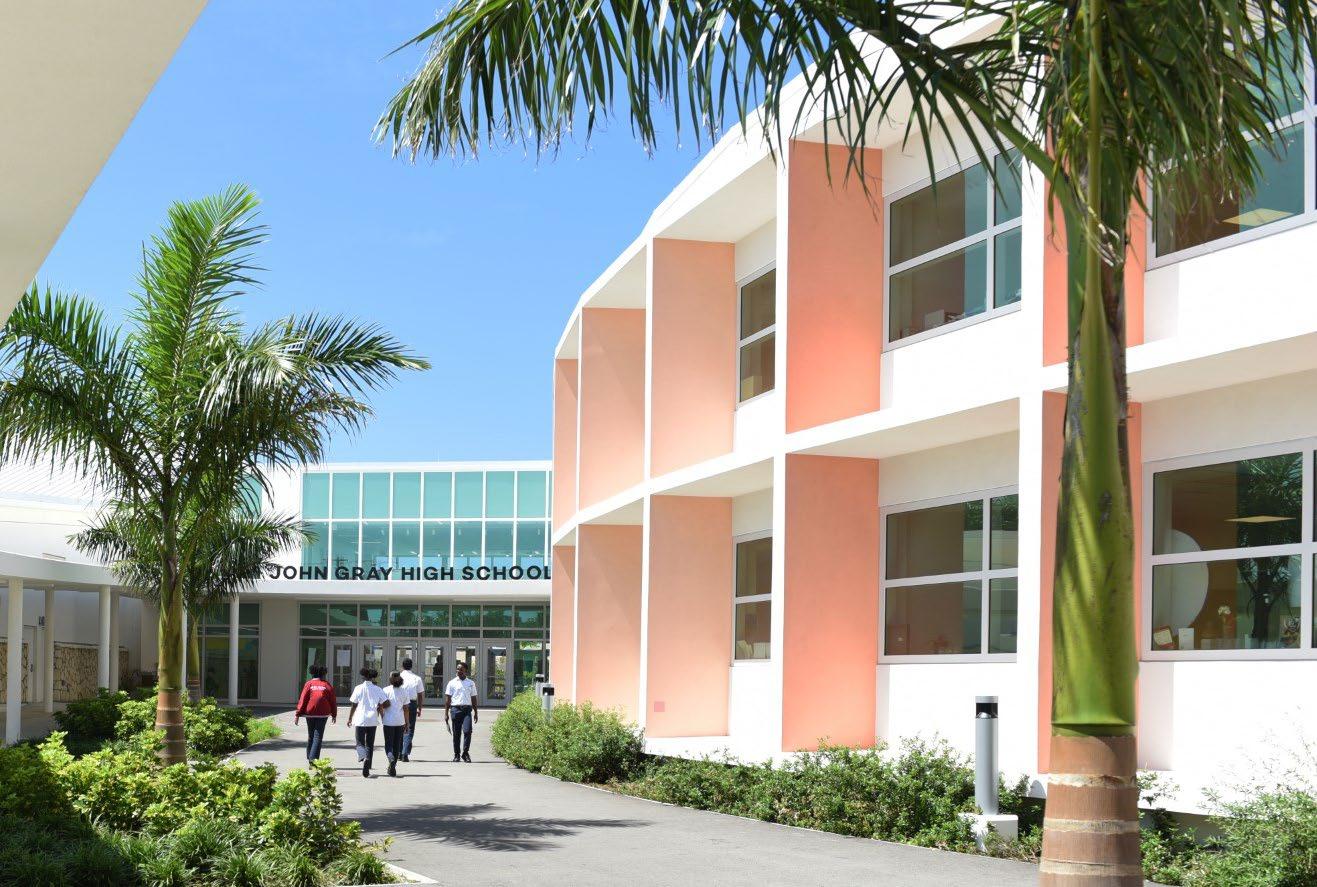
Conversely, Jon reminds us that children learn more from their parents long after they have forgotten their high school lessons. Much like Dr. Villence, Jon stresses that parents are the primary educators in a child’s life, and when parents are engaged, the risk of their children not reaching their potential is reduced. Of course, it’s understandable that some parents simply don’t know how they can help. At John Gray, things are being made more transparent and accessible to encourage parents to work with the school, building trust, changing mindsets and being honest. By doing so, teachers, parents and students can become a powerful team.
When it comes to leadership style, Jon Clark regards distributed leadership among teachers as highly important; “getting everyone in the right seat aboard the bus to educational success in order to feel the greatest impact”, Jon explains. There is a relentless focus on self-improvement, noting that the key to John Gray raising the academic bar is their desired improvement in Maths which would also help transform their OES ‘Good’ rating into ‘Excellent’, a goal which Jon is pursuing for John Gray and the students alike. “I believe all children have leadership potential. At John Gray, we ask students to first lead themselves, and then when ready, lead others”, Jon explains.
Going forward, Jon Clark of John Gray has his sights set on an OES rating of ‘Excellent’, a school the community is proud of, and students keeping their options open by achieving high grades in Maths, English and other subjects. Once the new school and sports facilities are complete, including two 5G football pitches, outdoor basketball courts and multi-use games areas, there are hopes of extending courses into the community, hosting more international events and gaining international recognition. Above all, Jon hopes for staff and students to continue to be driven to make a difference and change lives.

“What can I say, I’m a primary school teacher”, laughs Stephen Coles when questioned on his brightly-coloured, trademark tie. After spending much of his 23-year career in the public school system – three years in Charleston, South Carolina and 20 years here in Cayman, as Deputy Principal at Sir John A. Cumber Primary School and then Cayman Prep and High School – he’s now starting a new journey as principal in a brand new primary school called Island Primary. And here, Stephen assured us, his jazzy ties (and matching socks!) are a huge hit.
As we chatted about his new role as headteacher, Stephen recalls how he never aspired to be a school leader until a few years ago, when his purpose in education shifted. At the time, a teacher himself, Stephen then sought an opportunity to be able to make a difference in the lives of not only his students but also his colleagues, “because through better supporting educators, we can better support learners”, Stephen explains, mirroring Jon Clark’s sentiments. Thus, his role as Deputy Principal, and now as Headteacher, were an obvious next step.
As a new primary school, Island Primary has recently gathered their team, so we asked Stephen to tell us about the team they’ve recruited. “The recurring theme throughout”, Stephen explains, “was to identify ways in which we can effectively and authentically develop a sense of community.” Being a new school, Island Primary placed a premium on people who identify not only with the school’s purpose and vision, but with the energy and enthusiasm to take on an extremely meaningful and rewarding challenge in establishing a new school community; an environment where people feel valued, are able to grow and feel supported in doing so, where staff’s needs and ideas are listened to and acted upon. All key components in instilling a sense of self-efficiency and morale, it's clear that, like Dr. Villence and Jon Clark, Stephen and his school have a real focus on creating and sustaining an environment that becomes an extension of a family household.
Again like Dr. Villence and Jon Clark, Stephen continued to stress the significance of parents investing the time in getting to know their child’s school and teacher, and working with the school to develop a partnership where parents seek to understand and be understood. This relationship between student, teacher and parent is what a positive schooling experience relies on, and Stephen explains how it always comes back to relationships and “developing a level of trust through two-way, honest and respectful communication.” Moreover, Stephen highlights the importance of parents remaining engaged in their child’s business of learning; asking questions, and knowing when not to, making observations and noticing moments of learning are key to supporting learners of all ages.
“There’s a tendency to focus on trying to shape children to fit what’s being learned,when it’s more beneficial, and more likely to make sense, if we look at ways of designing the curriculum so it resonates with children.”
- Stephen Coles
In 2021, Island Primary was just a plot of land and an idea, until construction began where George Town meets South Sound. The vision was to build a physical structure that embodied the school’s core beliefs and purpose. In doing so, the school became a physical expression of community. The building then opened to children in September 2023.

resiliency, collaboration, curiosity and innovation for lifelong learning.
To Stephen, it is important that his leadership creates an environment in which teachers have the freedom to try something new, to collaborate with others and encourage them to assume increased control over teaching, much like at both our government schools. No matter whether you’re a principal, a teacher, a staff member, a parent or even a student, it’s important to acknowledge and embrace difference. “There’s a tendency to focus on trying to shape children to fit what’s being learned”, Stephen remarks, “when it’s more beneficial, and more likely to make sense, if we look at ways of designing the curriculum so it resonates with children.” This leans into the school’s facilities for children with SEN. “We made the decisions from the outset to make our provision for additional learning support needs a priority”, Stephen explains. With this in mind, the school has two Special Educational Needs Coordinators (SENCos) who work in tandem, with one dedicated to infants and one to juniors.
Centring on an internal courtyard, the school is a hive of collaboration, with shared breakout spaces, like John Gray, purposefully built between classrooms for connectedness and small group work. There’s a sensory room for students (and staff!), a designated ‘office equipment-free zone’ for teachers who desire a quiet area, reinforcing Stephen’s focus on caring for teachers to better care for learners. The school library, affectionately known as ‘The Hub’, is deliberately located at the front of the school, welcoming students, staff, parents and visitors into the school’s community of learners. Not just a threshold to the school, this entrance helps link learning across both curricula and classes, and helps cultivate curiosity among all who enter. The school also affords expansive outdoor areas, including a mile-long nature walkway, which serves as a health and wellness resource as well as allowing for learning to be taken outdoors, under Cayman’s blue skies and among its treasured natural environment. All these aspects, as Stephen explains, “help provide a dynamic learning community committed to actively engaging with, and contributing to, an ever-changing and diverse local and global society.”
When it comes to children, whom, of course, schooling all leads back to, Stephen emphasises the importance of actively engaging students in the learning, making it relevant in the lives of those putting the effort into the learning process. The curriculum at Island Primary focuses on four international concepts: communication, conservation, culture and conflict. Discrete English and Maths lessons are taught daily to develop an appreciation for each subject, as well as helping to build the confidence to then use the acquired knowledge and skills independently as tools for further learning. The overarching aim of the school’s curriculum is to nurture a love and ownership of learning, where students are equipped to successfully access and share an educational experience and grow skills such as
Having only opened its doors in September 2023, Island Primary is still finding its feet. We asked Stephen where he hopes his school will be in three years’ time. “I really hope that our understanding of who we are, and what we are about as individuals and a collective, really reflects our place within the wider community.” Stephen also hopes to be developing leaders (both adults and children) who feel fulfilled in their learning and driven to do something with it. “If we’ve established strong links within the community, then we will have been working successfully towards achieving our vision.”
When these three leaders came together there was a true sense of camaraderie. All three hoped for more collaboration between schools across our three Islands and longed for a rejection of education being used as a political football. Instead, they called for focus on cross-party agreement in educational priorities that Cayman’s community deserves.
These three principals are separated by their diverse backgrounds, their teaching of different ages and overseeing of different types of school. Yet, they are united by their love and respect for their team of teachers, their focus on driving student success and the great pride they take in their school community. However, the overarching message from all three headteachers – whether primary or secondary, private or government, new or old buildings – is the significance of parental involvement in the academic careers of Cayman’s children. This thread weaved its way through all three conversations and is clearly an integral part in the fabric of successful learning. Dr. Villence Buchanan, Jon Clark and Stephen Coles each urge parents to team up with teachers and, together with students, unite to work in tandem and help propel the next generation of Caymanians to achieve their full potential and more.
Young people who are using illicit substances may simply be trying to cope in a world that feels threatening to them. Rather than reprimanding or punishing them, we should be seeking to understand and treat the root cause: their mental health.
The Cayman Islands Student Drug Use Survey (CISDUS), a biennial survey conducted by the National Drug Council seeks to establish the prevalence and pattern of substance use – alcohol, solvents, vapes, tobacco, marijuana – among young people ages 11-18. The 2022 survey revealed that some students are trying substances from as young as age nine.
The good news is that most students are choosing not to use substances, and the proportion of students who had used alcohol or marijuana in the 30 days prior to the survey was the lowest since the survey’s inception 25 years ago. Awareness of the harm illicit substances can cause is also fairly high.
Last year, for the first time, the survey included a series of questions about anti-social behaviour and potentially traumatic experiences – and it is the results of this section that has mental health professionals alarmed.
More than one in two boys report having been in a fight at least once and almost as many students report having experienced bullying at least once in their lifetimes. In addition, 19% have carried a weapon at least once and 18% have been threatened or injured with a weapon at least once.

In Cayman, 23% of students report experiencing four or more Adverse Childhood Events (ACEs). This figure is worrying because it is substantially higher than the global average of
16%, and ample evidence shows that this degree of trauma can affect how adolescents think, behave and react to situations and people – not only now but also into adulthood.
Adverse Childhood Experiences (ACEs) are potentially traumatising events that occur prior to age 18. These can be single or repeated events, and can be emotional, physical or sexual. They can occur at home, at school or in the community. Neglect, domestic violence, parental separation or divorce, parental substance abuse, or having a family member who is incarcerated or has mental health issues are all considered ACEs.
The term was coined in the late 1990s by Dr Vincent Felliti and colleagues at Kaiser Permanente, who set out to investigate if and how childhood experiences might affect health in later life. They suspected that trauma at a young age might be linked to risky behaviours such as overeating, gambling, alcohol and drug abuse in adulthood.
In order to assess this, they identified three broad categories of trauma – abuse, neglect and household dysfunction – with a total of 10 types of Adverse Childhood Events. It was a massive study, with over 17,000 adults questioned. Whether they had experienced a single potentially traumatising event, such as a car accident or natural disaster, or experienced chronic verbal
or physical abuse, researchers counted the types of ACEs each respondent had experienced.
The results revealed that ACEs were very common. Two thirds of people had experienced one ACE, 20% had three or more ACEs, and 13% had experienced four or more ACEs.
When they looked at this in relation to adult health and wellbeing, they found a strong correlation between the number of ACEs experienced and the risk of developing physical and mental health problems.
The correlation was stronger the more ACEs a person had: someone with more ACEs was more likely to develop chronic conditions such as lung and heart disease, obesity or diabetes; they were more likely to experience mental health issues, including anxiety, depression and post-traumatic stress disorder, and they were at a significantly higher risk for developing substance abuse issues.
Since that ground-breaking study, numerous subsequent studies have broadly replicated these findings, and there is a particularly well-documented correlation between trauma in childhood and substance use disorders. Individuals with four or more ACEs have been found to be seven times more likely to develop alcoholism and four times more likely to begin using substances at a younger age; those with five or more ACEs are seven to ten times more likely to use or abuse illicit drugs.
According to the National Survey of Adolescents in the US, more than 70% of adolescents receiving treatment for substance abuse had a history of trauma exposure, and teens who had experienced abuse were three times more likely to report past or current substance abuse than those without a history of trauma.
Clearly, what happens to us in childhood has a long-term impact on both our minds and our bodies. But why? To understand this, we need to understand how the brain develops and functions.
Most of the human brain develops in utero and in the first four years of life, says Dr. Erica Lam, a clinical psychologist specialising in trauma at Aspire Therapeutic Services. The events and experiences we have in our formative years shape how our brain grows and functions.

The brain develops in much the same way as a house is built: from the base up. The lowest regions of the brain, which develop first, are responsible for the most elementary functions, like breathing, regulating body temperature and heart rate. Higher parts of the brain, such as the amygdala and the hippocampus, have more complex functions, like regulating emotion, fear response and memory. The last area of the brain to develop is the prefrontal cortex, which enables abstract thinking and cognition – it’s the part of the brain that allows us to make judgements, solve problems and consider consequences. But like a house, the foundations must be solid for the higher levels to develop
Our Services
Assessments

• Psychoeducational
• Neuropsychological
• Personality and Intellectual Functioning
• Career Guidance
• Pre-Surgical Evaluations
• Psycholegal and Forensic Therapies
• Cognitive Behavioural Therapy (CBT)
• Dialectical Behaviour Therapy (DBT)
• Solution-Focused Therapy

• Eye Movement Desensitization and Reprocessing Therapy (EMDR)
Additional Services
• Equine-Assisted Psychotherapy
• Pain Management
• Employee Assistance Programs
Individual Therapy for Teens/Adults
• Mood Disorders (Depression/ Bipolar)
• Posttraumatic Stress Disorder
• Complex Trauma
• Anxiety Disorders (eg: GAD, Social Anxiety)
• Panic Attacks
• Obsessive-Compulsive Disorder
• Substance Use Disorders/ Addictions
• Attention-Deficit/Hyperactivity Disorder
• Psychotic Disorders (eg: Schizophrenia)
• Grief/Loss
• Relationship Stress; Separation/ Divorce
• Sleep Difficulties
• Personal Growth/Development
• Occupational Burnout/Changes
• Career Counselling
• Pre-Surgical Evaluations
Corporate Training/Workshops
• Team Building
• Effective Communication/Conflict
Resolution
• Stress Management
• Mental Health in the Workplace
• Crisis Support in the Workplace
• Customized Workshops to Meet Your Goals
Child Therapy
• Behaviour Management
• Anger Control
• Scholastic & Learning Problems (eg: Learning Disabilities, ADHD)
• Depression/Low Mood/Low
Motivation
• Abuse/Trauma
• Anxiety, Fears and Phobias

• Parental Supports
• Bed Wetting and Soiling
optimally. When a child experiences trauma – particularly ongoing, repeated trauma – the development of these higher regions can be impaired, affecting its structure and functioning.
Trauma can affect development of the hippocampus, which can lead to impaired memory and learning abilities. It can also cause hyperactivity in the amygdala, the brain region responsible for processing emotions such as fear, anxiety and aggression, and impact development of the pre-frontal cortex, resulting in poor decision-making, impulse control and emotional regulation.
The most common, lasting consequence of childhood trauma is a dysregulated stress system. When we sense a threat, our stress system is activated. Our blood pressure increases, our heart beats faster and we feel alarmed. Blood is diverted away from brain structures that control executive functioning and selfregulation to those that will help us survive. This is the flight or freeze response that keeps us safe from danger: it readies us either to face the threat head on, to run for our lives, or to lay low and make ourselves invisible.
This is a useful response when the threat is temporary. But what if the danger is ongoing? When a child is raised in an environment where he or she experiences extreme or chronic stress, the brain develops to respond to that.
“In the brain, it's the circuit you use the most that becomes the most active” explains Dr Stenette Davis, consultant psychiatrist at the Health Services Authority. Continuous trauma strengthens neural pathways to the survival mechanisms in the brain and weakens the neural pathways to the abstract thinking part. The stress response system either becomes over-active (hyperaroused), which manifests as constant anxiety, hypervigilance, restlessness or aggression, Dr Lam explains, or under-active (hypo-aroused), causing an individual to shut down, zone out and become excessively passive. “Either way leads to emotional dysregulation, where the person feels unable to control their emotions or to feel calm and able to deal with difficulties,” she explains.
The effect of toxic stress on the brain manifests as a very narrow ‘window of tolerance’ where the child feels grounded and able to self-soothe. Tiny events can trigger a fear response, tipping them into a state of either hyper- or hypo-arousal, which over time, can develop into anger, panic attacks or depression.
So, what is the connection between trauma-induced changes in the brain and substance abuse?
Using substances can be a form of self-medication for a traumatised person, Dr Davis says.
Imagine being a teenager and all the angst that comes with it. Now add the effects of trauma: maybe you feel constantly on edge, restless and anxious, or maybe you feel numb and detached. At school, you struggle to understand new concepts, and questions that are put to you make you want to lash out, run away or become invisible. Perhaps you are being bullied, making you feel under attack from all sides. You go home, and maybe you are berated for your poor performance at school, exacerbating these feelings of tension and fear.
But what if you skipped class, or didn’t go straight home after school, but instead hung out with your friends? You could avoid many of those threatening, uncomfortable feelings and for a while enjoy a sense of community or connection with this group of peers. The part of your brain that considers consequences is not working optimally, so you do not pause to think about the trouble this behaviour will land you in.
Then imagine you are offered alcohol or marijuana and you feel the overwhelming intensity of those emotions subside. For a while, the world is not such a threatening, scary place.
If you are hyper-aroused, alcohol or marijuana may provide some temporary feelings of calm, whereas if you are hypoaroused, a stimulant may lift that heaviness you feel and allow you to engage more with the world around you. Either way, these substances offer a reprieve from intense, extreme emotions.
Mental health professionals understand substance use in those who have experienced or are experiencing trauma in this light. Whether by neutralising negative feelings or by increasing pleasurable sensations, using substances is a way of coping with unmanageable emotions.

This ‘theory of self-medication’ does not condone drug and alcohol use, but is key to understanding why it is happening, Dr Davis stresses. Although substance use is commonly seen as a problem, it is an expected response to childhood trauma. It’s a mental health issue, and it needs to be treated as such.
Punishing a child who is already feeling anxious or under attack is like pouring fuel on a fire – it will only add to the stress they are already feeling. Telling or commanding a person to stop doing the very thing that provides some relief is equally unlikely to have the desired effect.
More importantly, when the brain functions optimally, it can understand the cause-and-effect principle of punishment – if I skip school or use drugs, then I will get in trouble – but when trauma has switched off the part of the brain that deals
with planning and reasoning, there is no ability to anticipate consequences, so traditional methods of discipline are no deterrent.
Rather than chastising a teenager for using substances, a far more constructive approach, says Dr Davis, is to seek to understand the reasons they are using the substances in the first place. If you say “I don’t think you’re bad, but help me to understand what this substance does for you”, you will have a far more useful dialogue.
Of course, relying on substances as a primary coping mechanism can hinder the development of healthier strategies, the National Drug Council points out, while the use of substances, in turn, puts individuals at a higher risk of physical and mental illness. For parents and caregivers, open communication, addressing the underlying causes of trauma, ensuring young people are aware of the risks, and equipping them with alternative coping strategies are all constructive steps to guide adolescents towards a better way to cope with the difficulties life throws at them.
Prevention is always better than a cure, and ensuring children are raised in safe, stable, nurturing environments – at home, at school and in the community – is the best way to avoid trauma. However, adverse events can also come from outside: an accident, a hurricane, a fight, even something one witnesses or hears about, so it is impossible to shield children from trauma completely – instead we need to give them the tools to cope with it.
Just as not all smokers go on to develop lung disease, not all children who are exposed to trauma go on to suffer from mental illness or substance abuse. Some are more resilient to trauma than others.
A 2021 study comparing traumatised people who both did and did not have substance use issues showed certain characteristics were common among those who did not use substances. These included optimistic traits, mindfulness, a strong sense of connection with others – be it through school, sports, church or the community – a desire to stay healthy, strong anti-substance beliefs, and parental awareness of drug abuse. Fostering these traits is key to building resilience in young people.

Another, says Dr Davis, is to provide mental health education from a young age. This includes teaching primary school children what abuse or neglect look like, encouraging them to talk about it, and letting them know where they can get help.
Emotional Literacy Programmes such as Apple’s Friends and Zippy’s Friends help children communicate feelings and cope with anxieties through stories, discussions and games. These programmes are delivered in primary schools through the Alex Panton Foundation.
For children and teens who are struggling with trauma and/
or substance use, professional help is available. For a full list of providers, please see page 182. Free mental health care is available at the following organisations:
Alex Panton Foundation
In addition to its emotional literacy programmes, the foundation runs support groups for people ages 13-17 and 18-30 struggling with mental health. The foundation also provides financial assistance for young people under age 30 with limited health insurance coverage for mental health treatment.
Alex’s Place, Adolescent Mental Health Hub, George Town Hospital
Opened in January 2023, Alex’s Place is a comfortable and youth-friendly outpatient centre staffed by HSA, providing care and support to children and adolescents (ages 10-20) experiencing mental health issues. Alex’s Place's hours are Monday to Friday 10am–6pm. Walk-ins and referrals are welcome. For more information, visit www.hsa.ky or call (345) 244 7856 or (345) 949 8600.
Department of Counselling Services
Free counselling sessions for children and adults. Call (345) 949 8789.
Family Resource Centre
Provides a variety of workshops, programmes and skills sessions to promote confident parenting and healthy family relationships. Call (345) 949 0006.
Every child deserves a safe place to call home, but when certain problems arise, there are many who are left in the lurch. A foster family can provide a child in need with a temporary home away from home. Foster care becomes necessary when a child is at risk of endangerment, abuse, abandonment, neglect or other issues. Although our Island can feel small, there are many children here who are in desperate need of this type of support. Fostering plays a critical role in providing love and stability, and there is a clear and urgent need for more foster families in the Cayman Islands. Below, we explain how the Department of Children & Family Services can help you change the lives of children in our community.
For those interested in fostering, the Department of Children & Family Services (DCFS) can help pair you with a child in need. Although there is the option to foster privately, going through the DCFS channel is recommended because the department is an excellent resource. The DCFS provides valuable guidance and advice for first-time and veteran foster parents.
Step 1: Submit a Request
Contact the DCFS to begin your application. You can reach them by phone at (345) 949 0290 or email them at dcfsfostercare@ dcfs.gov.ky and an initial interview with a social worker will be arranged.
Step 2: Complete the Forms
Prospective foster parents are required to submit a series of documents before approval. These include an application form, a police clearance certificate and a medical examination certificate. You will also be asked to identify two references. Every household member over the age of 17 will need to complete these tasks.
Step 3: Safety Evaluation
The Fire Service and the Department of Environmental Health will conduct an inspection of your home to ensure it is safe for children. With their approval, you will move on to the next step.
Step 4: Home Study
A social worker will then conduct a home study, where they will interview members of your family and any other people they deem relevant. During this time they will also perform a series of home visits.
Step 5: Final Review
Upon the completion of your home evaluation, the social worker will submit a report to the Senior Management of the DCFS for review and consideration.
From start to finish, the road to becoming a foster parent can take up to three months, but the impact you have on a child’s life will last forever. Once approved, you will be placed in the system and can be called upon whenever the need arises.
Welcoming a new child into your home can be overwhelming, but it’s important to remember that you are not on your own. A social worker will continue supporting your family and the DCFS is excellent at helping navigate this transitional period. Not only do they provide important therapeutic outlets, but they also offer financial support. Foster families receive a stipend from the DCFS for the upkeep of each child, including a clothing allowance and the coverage of health insurance and school-related fees.
Every case is different and foster care can be a short-term or long-term commitment. The biggest priority of the DCFS is to reunite every child with their birth family, but sometimes reunification isn’t possible. If it’s determined that returning a child home isn’t a viable option, long-term plans will be explored. Of course, there are some foster families who end up adopting, but the majority of placements are temporary. Before bringing a child into your home, you should ensure that your family is emotionally prepared to deal with the after effects of a placement ending.
Fostering can be challenging – it’s important to expect both highs and lows – but it’s also one of the most rewarding experiences. Through encouragement and support, we have the ability to help empower some of Cayman’s most vulnerable members of society. And in doing that, we can positively impact the social fabric of our collective home.
Every child is unique, and when there is a greater number of foster parents, there is a greater chance that the DCFS can match a child with a family best suited to their needs. More foster families also means kids spend less time waiting for a stable and loving home. On the next page, we hear from some of the people in our community who are doing their part to help.
TOP TIP: There are many ways to help support foster families! Consider donating a gift certificate which can be used for activities, treats or anything else you think may help. Contact the Department of Children & Family Services at dcfsfostercare@dcfs.gov.ky for more information.
How did you find the process of becoming a foster parent? In 2014, my husband and I approached the DCFS to inquire about adopting a toddler. At the time, there were none in the system, but we ended up learning about the urgent need for more foster parents in Cayman. We ultimately decided that we needed to help. The assessment process was thorough and it took a few months before we received confirmation that we were approved. During this time it’s best to be patient and let the process run its course. The checks and safeguards are not only in place to protect the child, but you as well.
What are some of the challenges that come with fostering? Children within the foster care system do experience challenges, whether academic, physical or psychological. It’s important to remember that they are also kids and any parent knows that kids will test boundaries. Foster children are no different and you must remain patient. The DCFS does try to mitigate the foster parent/birth parent dynamic, but there are times when children will go back and forth between two homes and this can be challenging.
What have you learned since becoming a foster parent? For me, the fundamental lesson is that there will always be things outside of your control. You must focus on what you can manage and not be afraid to ask for assistance. If necessary, let go of what you can’t manage and recognise that sometimes you can’t help every child. Fostering will change you, for the better in most instances, but it will also challenge everything you thought you knew as a parent. As an individual, I was always confident in my ability as a parent and my tenacity to figure things out on my own. When I began fostering, I had to rethink this approach and learn that asking for help is not a sign of weakness.
What has been your proudest moment as a foster parent? We once received a child who was nine years old. They were entering year five at school but functioning on a year one level. We worked with a private tutor for one year. It was challenging and frustrating at times, but the child never gave up. Over this period, they were able to move up to a year four level. Words cannot express the joy on that child’s face when at the school awards ceremony, they received an award for most improved reader. We were very proud.
Tracy-Ann
How long have you been a foster parent? I've been a foster parent for the past 20 years. Initially, I had no intention of becoming one, but there was a situation with two siblings where a placement couldn’t be found to keep them both together. I felt the urge to open my home to accommodate their needs and to keep them from being separated. After caring for them for several months, I considered becoming an official foster parent.
What is the most rewarding thing about becoming a foster parent and what are the challenges? My son has taught me selflessness, humility and patience. When we become parents, it becomes more about our kids than it does us. We owe them every opportunity to strive and flourish.
What are some of the challenges that come with fostering? Fostering has many challenges, but it also has many rewards. Most of the children in foster care come from broken homes. As a foster parent, you become the person who offers a listening ear, gives advice and shows them love and support. You may not feel that these things have a great effect on the lives of these kids, but I’m here to tell you that they do. When it comes from a caring and loving heart, even the smallest piece of advice has the capacity to be the greatest thing to a child in need. As a foster parent, I feel blessed to know that I have had a positive and life-changing effect on the children that have come into my home. I want each of them to grow up and be respectful and valuable members of our society.
How would you like to see the lives of foster children improve? For starters, it would be great to have more community involvement – for example, a person or business offering free lessons in music or swimming. It would mean that foster parents would not have the full responsibility of financing all of the extracurricular programmes, and kids would have even more opportunities for growth. It would also be nice to have more scholarships available for foster children who have maintained a high GPA, especially when it comes to university and going overseas. Many foster children do not have the opportunity to travel overseas, so working toward a scholarship could give them a sense of pride and they will strive to want more for themselves in their lives.
Over the past 20 years, Shelda has fostered 13 children and helped make a difference in the lives of many Caymanian youths.


is a foster parent who has spent her life working with organisations that specialise in helping children and adolescents.
When Cayman Parent launched its first ever Story Writing Competition in 2023, we were not prepared for the enormous amount of interest. We received hundreds and hundreds of beautifully written stories from schools across the Cayman Islands. Being inspired by nature, these stories are an overwhelmingly clear indication that Cayman’s youth have an intense motivation to help protect not only Cayman’s natural environment, but the entire planet.

All students in Cayman aged 6-14 years old were invited to submit a story that would inspire readers to explore the great outdoors and help protect the world we live in. With more young people engaged in the environment than ever before, the competition gave students the opportunity to express what nature means to them.



Children could enter their stories in one of three age categories, with the chance of winning some incredible prizes. These included: Camana Bay, Next Chapter and Kirk Office vouchers; family and class passes to some of Cayman’s best attractions, including the Cayman Parrot Sanctuary, the Queen Elizabeth II Botanic Park and the Cayman Turtle Centre; plus a Mangrove Boat Tour by Cayman Sea Elements.
To ensure impartiality, three independent judges were selected from the fields of literacy and the environment to judge the competition. With so many original and inspiring submissions from children across all three Islands to read, the judges had the most difficult task in picking just three winners and three runners up. Read on to hear their reaction to the wonderful stories!
Congratulations and thank you to everyone who took part!
Erica Dell'Oglio, Executive Director at Literacy Is For Everyone (LIFE). "Cayman’s future looks bright with so many young creative students writing entertaining stories, sharing a passion, and inspiring others to protect our precious natural environment." Judge of the 6-8 years old category.
Erin Connelly, Author of 'Pedro and the Treasure Map' and 'Georgie and the Stingray City'. "I was so impressed with how descriptive and creative the storylines were for this age group. All of the children did an amazing job in bringing their characters and concepts to life while incorporating the important topic of the environment. Well done and I hope you all keep on writing!" Judge of the 9-11 years old category.
Katie Ebanks, Education Manager at the Central Caribbean Marine Institute (CCMI). "These student short stories were so hopeful and lovely, I sincerely wish that ALL of them remember what they have written in the later years of their lives... I think it will be extremely important not only to our local community here in Cayman, but also to the planet." Judge of the 12-14 years old age category.
After much agonising, the judges picked the following winners and runners up. You will find the winners' incredible stories published on the next few pages. The winners' stories have also been published on the Cayman Parent website, along with those by the runners up.

Age 6-8 Category
Winner: Ava Robinson, Cayman International School Runner Up: Matthew Moore, Edna Moyle School

Age 9-11 Category
Winner: Jayne Brandson, Montessori By The Sea Runner Up: Alaia Whittaker-Teunissen, Village Montessori

Age 12-14 Category
Winner: Kelwin Scott, Layman E. Scott Sr. High School (Brac) Runner Up: Liam Wright, Montessori By The Sea

Prizes Sponsored by
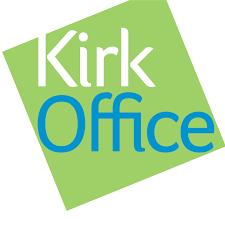



What do you think would happen if a polar bear came to Cayman? Perry the polar bear got on an airplane with her two cubs Jerry and Betty. Their family waved goodbye. When they landed in Cayman, Perry











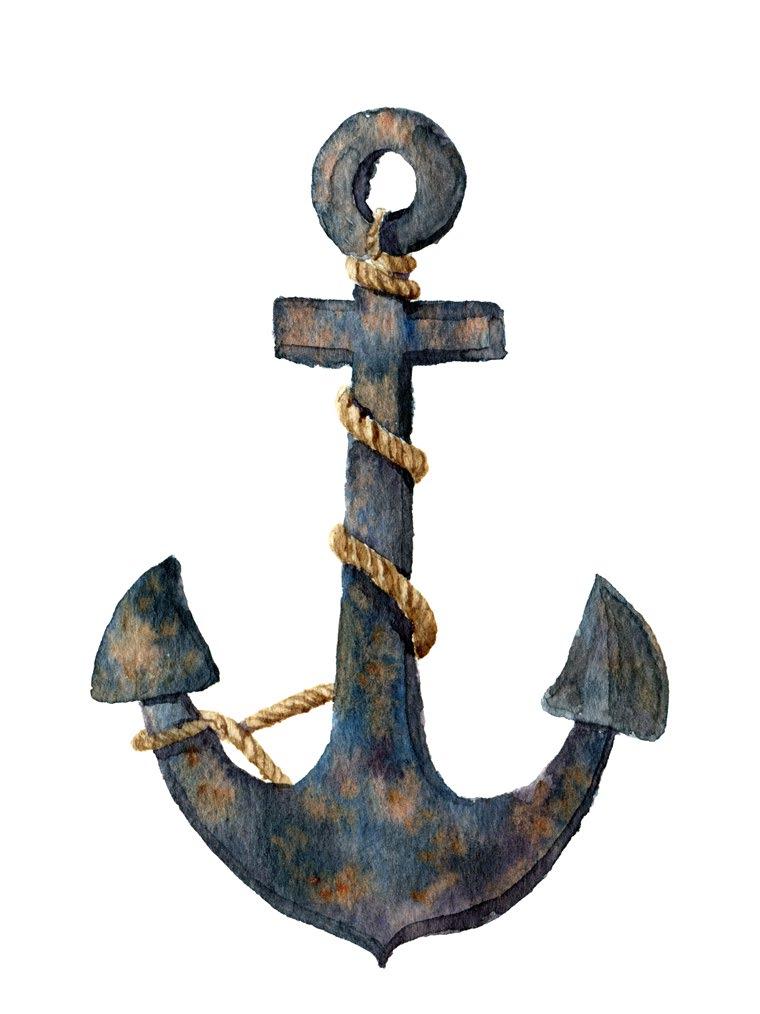
I woke to the cool moonlight shining down onto my silver leaves. An agouti scrambled through fallen leaves; its bright orange pelt bold against the black shadows of the night. The back door swung open, and a human came out. Today was finally the day, the day where I would become something more than just a palm tree. As the man came towards me, I lifted my leaves towards the moon ready for my adventure. If only I'd have known what adventures I would have.

8 years later
My story is, after getting harvested, I became a rope tied to a friendly anchor named Crystal and was put to work on a crew ship. By day I saw the jaw-dropping beauty of Cayman: pristine sands, gorgeous plants and flowers, and most of all- the kind and friendly humans and creatures. At night, Crystal and I went down into the glittering waters around Grand Cayman. In the turquoise depths, we saw rainbow-coloured coral and the rainbow-coloured fish that lived inside it. We became friends with a female reef shark called Salt that followed the fish that hid in our ships shadow. Salt meant no harm, well, to US, not so much the fish. Crystal, Salt and I stayed together for many years, but as time passed Salt felt the water become too warm to live in anymore. We never saw her again, but we know she found a better place to live in.
One day, I was detached from Crystal, and we got sent away in a truck to a place called a ‘museum’. The rope that replaced me was death-white and reeked of chemicals and rubber. Something had changed in the world. Something I cannot put into words.
But Crystal and I have lived out our days in glory, basking in the sunlight, looking down on our admirers from high on the wall. That’s where you’ll find us to this day, in The Cayman Islands National History Museum.




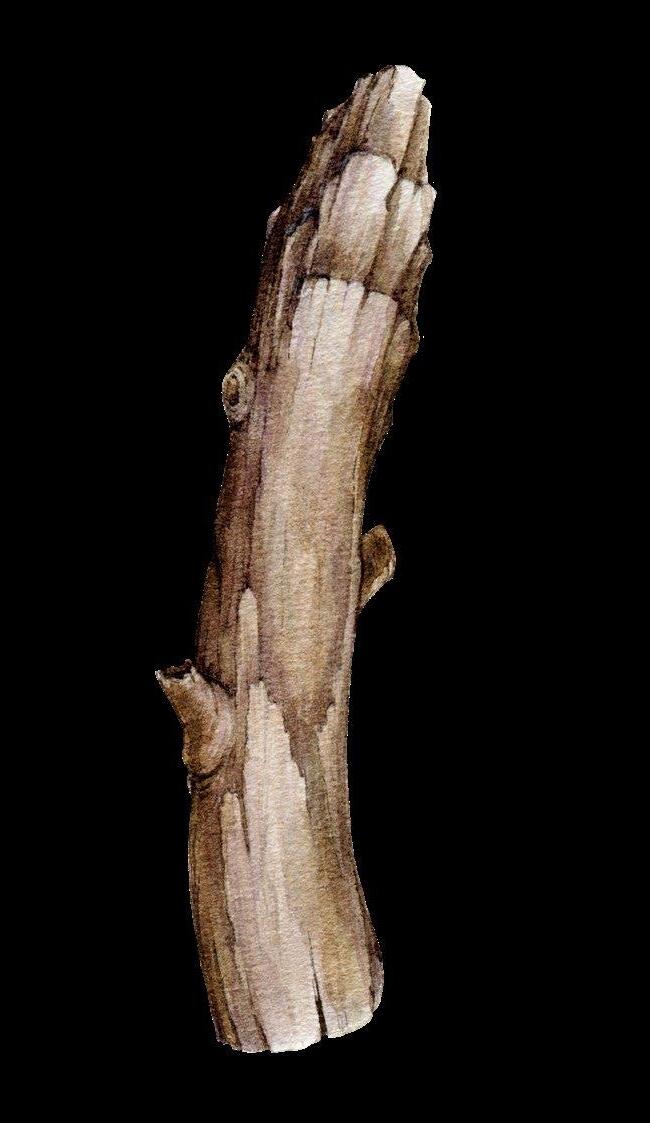
In a world where concrete towers stretched towards the sky and artificial light drowned out the stars, the last tree stood alone. It was a towering Black Mastic; its gnarled roots gripped the soil as if it refused to let go of the Earth itself. It stood defiantly amidst the sea of glass and steel, a beacon of life in a world consumed by progress. The tree was a remnant of a bygone era, a time when the Earth was lush and green. But as humanity's thirst for progress grew, the forests were cut down, the rivers polluted and the air thick with smog. The tree stood as a silent witness to the destruction of the world around it.
But the tree was not alone. There were those who recognised the value of the environment and the importance of preserving it. They were few, but their passion burned bright. They fought tirelessly against the forces of greed and ignorance, planting trees, cleaning up rivers, and advocating for change. As the years went by, the tree became a symbol of hope, a rallying point for those who still believed in the power of nature. It became a pilgrimage site, a place where people would come to be inspired, to connect with something greater than themselves.
And then, one day, the tree began to wither. Its leaves turned brown, its branches grew brittle and the once proud Black Mastic began to sag. The people who had come to love and cherish the tree were devastated. They did everything they could to save it, but it was too late. The tree had borne witness to too much destruction and it could no longer bear the weight of humanity's indifference. But even in death, the tree remained a symbol of hope. Its legacy inspired a new generation of activists who continued to fight for the environment and the preservation of the planet.
And so, as the last tree fell, a new movement was born. Depressing thoughts of “It’s too late” were replaced with “Small acts add up to big change!” A movement that recognised the value of the environment and the importance of preserving it for future generations. A movement that promised to do better, to be better and to build a world where the last tree would never have to stand alone.

Literacy is the foundation of every child’s success story, both in the classroom and in later life. That’s why Literacy is for Everyone (LIFE), Cayman’s education charity, is on a mission to write a happy ending for every child’s unique story with its life-changing work in early literacy education.

 By Juliet Austin
By Juliet Austin
Imagine a Cayman free from poverty, crime and discrimination, where every child has equal access to quality education, where every child feels empowered to achieve their dreams. If, as former Secretary-General of the United Nations, Ban Ki-Moon, states, literacy is “a foundation for human rights, gender equality, and sustainable societies,” LIFE is leading the charge to harness its transformative power, starting at the very beginning.
From conception to age five, a child’s brain undergoes the most significant period of development ever to occur in the human lifespan. During this unparalleled growth, the developing brain shapes a child’s future, with literacy at its heart. Yet, according to UNESCO’s Institute for Statistics, despite a heartening upward trend in global literacy rates, there still remain 387 million children across the world who cannot read and lack access to books. Hence, the UN Sustainable Development Goal 4.6, for, “all youth and most adults to achieve literacy by 2030.”
Erica Dell'Oglio, the Executive Director of LIFE, works tirelessly to raise awareness of literacy’s power in overcoming social,
cultural and economic barriers which hinder equality and agency on the global stage. As she reflects, “LIFE’s team is witness not only to the daily challenges faced by so many members of our society, but also to the countless parents, teachers and community partners committed to improving the lives of Cayman’s children. We know our efforts to increase literacy levels are making a difference and will continue to do all we can to ensure that there is equal access to quality education for all.”
Founded in 2012 by members of the Rotary Club of Grand Cayman Sunrise, LIFE delivers literacy programmes and resources for present and future generations in the Cayman Islands via advocacy, education and community outreach. As the International Reading Association states, “[Adolescents] need literacy to feed their imaginations, so they can create the world of the future.” (Moore, et al., 1999, p.3 as cited by Clark and Rumbold, 2006). Comments Chairman, Woody Foster, “As a business leader in Cayman, there is no doubt in my mind that communication is 21st-century currency. Adolescents entering the adult world today need to read and write more than at any other time in human history. LIFE is committed to doing its part in equipping students and teachers with skills and resources to compete and succeed in today’s fast-paced world.”
Documented by the UK’s National Literacy Trust, poor literacy skills hold individuals back at every stage of life: children struggle in school; young adults are locked out of the job market, often resulting in deprivation and marginalisation; parents cannot support their children’s learning; and, unable to read and understand information, forms or instructions, adults lack agency in areas like healthcare. These intergenerational cycles make social mobility and a fairer society an ever-distant dream. Just when the information age requires perpetually advancing levels of literacy from school leavers not only to perform jobs, but to run households, act as citizens and conduct their personal lives. Offering an antidote to inequity, LIFE is intent on turning dreams into reality.
Respected for its collaborative, multi-agency approach and finger-on-the-pulse responsiveness to events like the global pandemic and cost of living crisis, LIFE consistently positions itself as a change-maker within the Cayman community. Scientifically-based programmes target long-term, optimal impact tied to explicit, locally-identified needs and the latest neuroscientific, educational and economic research. Following recent data analysis released by the Office of Education Standards (OES Annual Report 2022), there is clearly work to be done. Yet, while 60% of Caymanian students attend schools judged to be not yet meeting expected levels of performance, there are pockets of hope like the intelligently designed John Gray High School campus where, celebrating the importance of books, the library sits at the heart of the school, announcing to all a proud culture of literacy.
Books matter. Research demonstrates this time and again. Fictitious worlds offer youngsters powerful coping tools for managing anxiety and promoting wellbeing. In fact, according to a University of Sussex (UK) study, reading for pleasure helped reduce stress,“…tension eased, and heart rates slowed down in subjects who read silently for as little as six minutes.” Reading was reported to be 300% better at reducing stress than going for a walk and 700% more effective than playing video games. Successfully narrowing the children’s book gap, LIFE’s Book Donations programme is the largest donor of books to Cayman’s public schools, contributing over 80,000 new and gently-used titles to local schools, community groups and families.
Simultaneously, LIFE’s signature Paired Reading programme provides one-on-one reading buddies for struggling readers for 30 minutes each week. Active in JGHS and government primary schools where, in the 2021-2022 academic year, only 42% of Year 6 students achieved expected reading levels, trained LIFE volunteers employ reading support strategies tied to the curriculum, with an emphasis on reading for pleasure. According to Dr. Alice Sullivan’s study from the University of London’s Institute of Education, children who read for pleasure made significantly more progress in vocabulary, spelling and
Maths than children who rarely read. “Reading for pleasure was more important for children’s cognitive development between ages 10-16 than their parents’ level of education.”
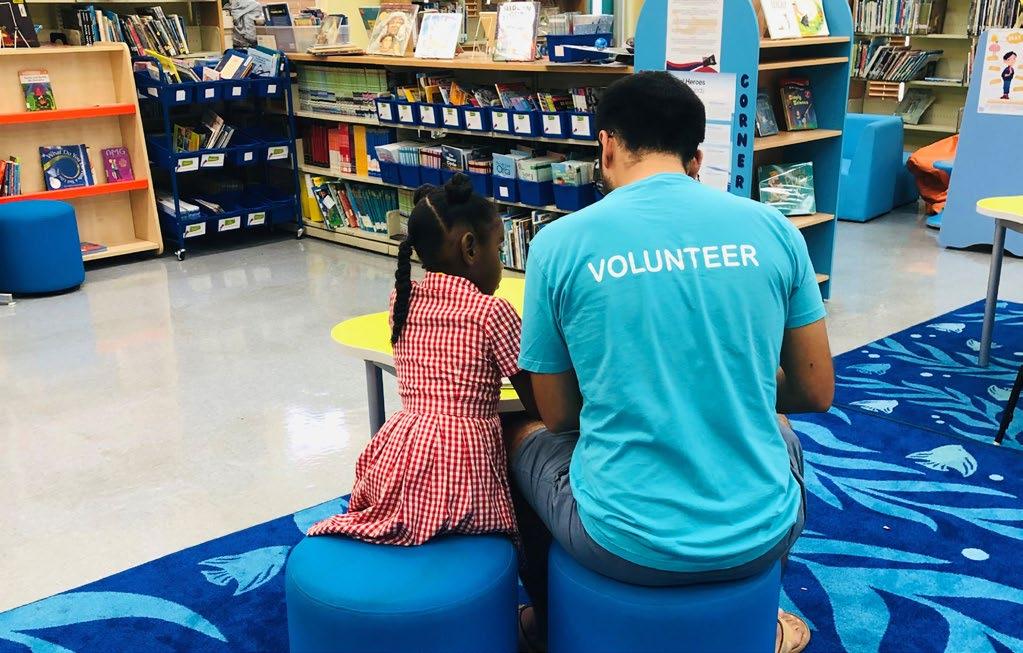
With time ticking to achieve UN Sustainable Development Goal 4.2, “By 2030…all girls and boys [will] have access to quality early childhood development, care and pre-primary education,” forward-thinking governments are placing early childhood development at the forefront of global and political agendas. With proven societal gains resulting from increased economic productivity and savings on remedial social spending on education, the criminal justice system and healthcare, economic studies underscore the lucrative return on investment of 7-13%. It’s a win-win: invest in the ‘preventative years’ or suffer the wrenching cost to children and societies of failing to do so. Enter LIFE and its groundbreaking campaign to offer a new way forward, by getting it right from the start.
So, just how do Cayman’s preschools stack up? With the lion’s share of the 36 registered early childhood centres under private, for-profit ownership, affordable provision in underserved districts remains scarce. Working collaboratively with the Ministry of Education’s ECCE Unit and the Department of Education Services to develop long-term solutions to the lack of quality early childhood provision, interim enrichment programme, Smart Start, offers roaming community care for young children and families. Says Lyneth Monteith, Acting Chief Officer at the Ministry of Education, “In the absence of early learning facilities in North Side and East End, the Ministry of Education aimed to develop a programme to enhance toddlers’ readiness for school and assist families in creating suitable home learning environments. We are pleased with the programme’s positive impact thus far and thank LIFE Cayman and others for supporting this important initiative, which provides early stimulation to some of our most vulnerable members of society.”
We know that parental efforts to support the learning and literacy environments at home are positively related to preschool children’s emergent literacy skills. (Sénéchal, 2006, Weigel et al., 2006) However, failing local statistics, the latest, most

comprehensive UK study of its kind reveals concerning parental attitudes towards early childhood. Conducted in 2022 for the Princess of Wales’ Royal Foundation, the 500,000-person survey reported 36% of respondents showing little or no knowledge of how children develop in early childhood, with very few recognising the unique importance of the 0-5 period compared to other stages of life.
Consider that by three, a child’s brain can form three quadrillion neural connections; that 90% of the architecture of the brain develops before the age of five, before ever setting foot in formal schooling; and that pruning of the neurological pathways begins at just 12 months old, and the critical role of LIFE’s work becomes clear. When a child is exposed to a love of language, finds joy in nursery rhymes and lullabies, or comfort in shared bedtime stories, they are held at the centre of the adult gaze and the foundational bond with literacy is formed, written forever into the brain chemistry and creating a blueprint for later learning.
Reading Rockets states, “what children learn from listening and talking contributes to their ability to read and write and vice versa… Both phonological awareness and vocabulary development begin early with participation in rhyming games and chants, shared book experiences, and extended conversations with adults.”
Focusing long overdue attention on early childhood since 2021, LIFE promotes quality, language-rich adult-child interactions, recognising language as the foundation of thinking, self-regulation and the strong socio-emotional skills that underpin learning. Given Cayman’s colourful storytelling culture and the high interrelation of literacy and rich oral language, the organisation encourages parents and families to talk with their children – to share stories, songs, rhymes and childhood experiences. Comments Dell’Oglio, “By focusing time, expertise and resources on creating nurturing social, emotional learning experiences for the youngest members of our society, we stand to make a very real impact on positively shaping developing brains and setting future generations up for healthier, happier and more successful futures.”
Sponsored by Deloitte, LIFE’s evidence-based Thrive By Five programme offers hope to families of preschool children. Developed in partnership with Nicola Williams, President of the Cayman Islands Early Childhood Association, it supports eight preschools to ensure that fewer children enter the school system with delayed language abilities. Free vision and hearing screening for the programme’s three to five-year-olds, courtesy of Optical Outlook and Cayman Hearing Center, are literally changing lives by detecting and remedying physical barriers to learning from the outset. Deloitte Partner, Francois Lamontagne says, “Early literacy skills are essential for a child’s overall development and academic success. As parents, educators, and corporate citizens, it is vital to prioritise and support literacy skills by reading and engaging with our children from their earliest years. Deloitte is proud to partner
Be a reading role model – children need to see their parents as readers.
Read aloud to your children – use different voices to create characters and have fun!
Create home libraries and a home culture of books and print.
Experiment with different book types and genres from autobiographies to graphic novels and poetry.
Book chat – talk and share reading experiences.
Create cosy places and spaces that are conducive to reading with few distractions.
Celebrate the joy of reading.
Visit the library regularly and attend book events like ‘Rhyme Time’ and Storytime in Gardenia.
Talk to your children and regularly introduce new vocabulary with increasingly complex structures.
Engage in conversations using the ‘Serve and Return’ model.
Talk to your children: tell stories and share experiences from your childhood.
Point out print wherever you go – at the supermarket or ‘STOP’ signs.
Place books where your children go – on the kitchen counter, in the bathroom, in the car.
Switch off devices, put down phones – be fully present and participate actively in conversations, taking time to listen and respond to your child’s interests.
with LIFE on this programme, which is so positively impacting the future of many children in Cayman.”
Promoting print-rich environments, Thrive By Five donates diverse curated classroom libraries with representation at the core so that children see themselves reflected in stories, characters and illustrations. According to publisher, Penguin Random House, the books of our formative years should
reflect the societies in which we live: “Books create belonging. They help us see each other and understand one another.” Furthermore, established research indicates that high-quality childcare experiences featuring responsive, stimulating environments provide a protective mechanism for children from disadvantaged homes, resulting in higher scores on tests of language development and cognitive functioning compared with similar children without this kind of childcare experience. (Burchinal, Campbell, Bryant, Wasik & Ramey, 1997; McCartney, Dearing & Taylor, 2003.)
Ensuring highly capable, well-qualified practitioners is pivotal to the programme mandate. LIFE offers professional development for all staff to support best practice, with emphasis on emergent literacy and language in individual or small group engagements, and cognitively stimulating, naturalistic conversations around child-led topics. Practitioners develop a sound understanding of language modelling strategies, as well as learning to employ various methods to monitor literacy development and interpret assessments to inform sound instructional decisions. Training modules include Playing with Sound, Phonological Awareness, Print Rich Environments, Shared and Responsive Reading, Caregiving Routines, Making the Car Count, Please Tell Me More, Pointing Out Print, Reading Routines, as well as The Growing Brain™ Communication and Language Development delivered by certified trainers from The Wellness Centre. Director/Psychologist and early childhood advocate, Shannon Seymour states, “Partnering with LIFE’s Thrive By Five early childhood programme is important to me as this is something I am passionate about. Research shows clearly that high-quality nurturing early childhood care is critical to healthy brain development. Healthy brains learn better, they solve problems more easily, and they respond to the typical stressors of life more robustly. The best spent money in mental health prevention and education is spent between birth to five.”
Family engagement workshops invite parents to actively foster positive dispositions towards early literacy by supporting language, sounds, letters and print in authentic, developmentally appropriate ways at home, even before children learn to read. Children reared in families where parents provide rich oral language and literacy support do better in school, whereas children raised in language-poor families that tend to use fewer different words in everyday conversations do not. Exposure to more sophisticated vocabulary at home – words that go beyond the typical 8,500 most common words in the English language – relates directly to children’s vocabulary acquisition, placing parents at the heart of children’s success.
Embedded in all aspects of the LIFE programme is a foundational love of reading, learning and communication, supported evidentially by a 2011 National Literacy Trust survey revealing that “Young people who enjoy reading very much are nearly five times as likely to read above the expected level for their age compared with young people who do not enjoy reading.” As such, trained LIFE volunteers visit preschools weekly for animated read-alongs and to model best practice.
Sign up to become a LIFE volunteer at www.life.org.ky or email volunteer@life.org.ky.
Join LIFE’s mission by donating funds or new/gentlyused children’s books.
Educate those in your circle – each one, reach one, teach one.
Spread the word! Follow LIFE across all social media platforms – like, comment and share.
Visit LIFE’s website at www.life.org.ky for full programme details.
Promote reading for pleasure wherever you go!
If reading just one picture book a day with a child exposes them to approximately 78,000 words a year, bedtime stories just got a whole lot more important.
Working shoulder-to-shoulder with preschool practitioners and families, LIFE’s work is already paying dividends. “We may not have a fancy report,” admits Dell’Oglio, “but LIFE witnesses first-hand the hunger for learning every day. Parents show up to our sessions curious to know how to support their children’s development and practitioners are eager to know more and do better for the children in their care.” And, if the outcome of the latest inspection cycle at Thrive By Five’s pilot preschool, Precious Gems, is anything to go by, the future looks bright. Judged ‘Weak’ in its December 2019 inspection, the preschool’s recent March 2023 ‘Good’ rating shows palpable progress. Proud to boast a new library, Owner/Principal, Asha Singh largely credits LIFE, “Our partnership with LIFE through the Thrive By Five programme has made significant improvements in literacy in our preschool. The initiative has immensely impacted the attitude of all stakeholders to the extreme importance of the development of literacy during the foundational years.”
Poet, author, literacy advocate and former Children’s Laureate (2007-2009), Michael Rosen sums it up perfectly. A vociferous advocate of creating a culture of reading for pleasure for young people, he calls on school leaders to prioritise the development of “the will to read, not just the skill… to weave reading for pleasure into every class across the curriculum and into the daily life of all students.” One thing is for sure: LIFE will be there, championing the cause right from the start.


Quick to make, strategic in getting your five-a-day and supporting weight management; smoothies and juices have become a staple in our diets. Look at your phone and you’ll find TikToks, Instagram reels and YouTube shorts dedicated to their creation. But what’s the science behind these two powerhouses of the health world and why have they become so integral to our day-to-day health?
Smoothies have reigned supreme in the health world for many years and for good reason. Their convenience, delicious taste and number of health benefits are to thank for their popularity. More recently, juices have joined smoothies at the top, being declared one of the healthiest foodie trends and another tasty way to achieve good health.
Though we all know our recommended daily serving of fruit and vegetables, eating five servings can be tricky. Running late at work and ferrying kids to and from after-school activities are among the reasons why juicing and blending have become such popular options.
Drinking smoothies and juices is a simple and effective way to boost your daily intake of the fruits and veggies that often get forgotten. Both methods of creating these drinks liquefy all the ingredients (fruits, vegetables, seeds, nut butters, etc.) so you’re able to get all the nutritional benefits in a quick, liquid form. It's also thought that blending or juicing fruits and vegetables provides a higher concentration of vital nutrients.

Blending When you make a smoothie, you use the whole fruit or vegetable and you’re able to keep all the vitamins, minerals and fibre, including in the skin! Therefore, you don’t need to use as many ingredients as you do when juicing.
Juicing When juicing, you totally liquefy the solid, leaving little to no solid remnants of the fruit or veg in your drink. With a cold pressed juicer, the delicious juice of the fruit and veg is separated from the pulp and skin, making it much easier to drink. Because of this, those with food texture sensitivities may prefer juices to smoothies.
By liquefying your five-a-day, you're also able to add superfoods, such as chia seeds, turmeric and ginger. Depending on the superfood, seeds and spices such as these provide a source of protein, boost immunity, aid digestion and help to reduce your risk of chronic illnesses — they're 'super' for a reason!
We're told that breakfast is the most important meal of the day. This is because it gives you the opportunity to fuel your body with all the right nutrients and sets a healthy tone for the rest of the day. By drinking a smoothie for breakfast, you get a sufficient intake of fruits and veggies that fill you up with goodness and prevent that mid-morning hunger which leads to snacking on larger amounts in-between meals.
Eating fruits and vegetables increases the amount of vitamins, minerals and antioxidants in your body, reducing high blood pressure and bad cholesterol. By juicing your fruits and vegetables, your body can more easily absorb all the goodness, lowering your risk of cardiovascular disease and keeping your heart healthy.
We're all trying to improve our energy levels, whether it's because we're taking care of our family or simply have a
Recipe Inspiration: Fancy making your own smoothie or juice? Turn to page 36 for smoothie and juicing recipes and to find out the perfect formula for your smoothies.
demanding job. And juicing can help. When you juice your fruits and vegetables, your body does not have to work as hard to break down the food. You'll also feel more energetic if the alternative is consuming snacks that are high in unhealthy fats and sugar and sit heavily in your stomach.

TOP TIP: Using frozen fruit instead of fresh helps your smoothie stay icy cold for longer. Frozen fruit is also a great alternative to fresh fruit as it has the same nutritional content as fresh, is more cost-effective and lasts much longer!

When you juice, you not only drink the water that's stored in the fruits and vegetables, you also get the added bonus of key nutrients and vitamins that are essential for hydration. While staying hydrated with your juices, these extra nutrients are also flushing out the toxins stored in your body. Fruits and vegetables like cucumber and celery are great options for hydration.
Smoothies and juices are often a great option simply due to their convenience. They allow you to make a nutritious meal or snack in a matter of minutes with minimal preparation. For those with families and busy schedules, they're a satisfying option that

can be enjoyed together as a family or on the go. They are also extremely versatile. Whether you have a dairy intolerance, prefer something protein-rich or just fancy something sweeter or more savoury, the combinations are seemingly endless.
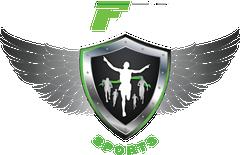
It's clear that smoothies and juices are excellent sources of vital nutrients, vitamins and other general health benefits. However, it's very important to bear in mind the potentially harmful side of smoothies and juices. Both can have negative health consequences if consumed in excess. The most significant being the high sugar content they contain. Of course, foods which are high in sugar can lead to dental problems and obesity. Getting lots of fruits and vegetables in your diet is important but should not come at the expense of other nutrient-rich foods.
It's also important to remember that juices and smoothies are often used as a tool for cleanses, which can become a dangerous practice. The rhetoric surrounding juicing and juice cleanses often feeds into the diet culture, which can lead to various eating disorders.
Like everything, smoothies and juices should be consumed in moderation. As long as you're getting the right number of calories per day to keep you fit and healthy, smoothies and juices can be very beneficial. The next time you're trying to decide what to make for breakfast, grab your blender or juicer from your cupboard, throw in some fresh produce and get experimenting!
Get Up & Go Morning Smoothie
Ingredients:
• 1 tbsp rolled oats
• 1 tsp flax or hemp seeds
• 1 tsp peanut butter
• A large handful of frozen raspberries
• A small handful of pineapple
• A small handful of spinach
• 1 scoop of protein powder
• 1 tsp cinnamon
• 200ml milk of your choice
Violet Blueberry Smoothie
Ingredients:
• 1 cup frozen blueberries
• 1-2 frozen ripe bananas
• 1 (3.5oz) açaí pack (or ½ scoop açaí powder)
• ½ cup frozen mango chunks
• ¼ cup plant-based milk
Detox Green Smoothie
Ingredients:
• 1 cup spinach
• 1 cup unsweetened almond milk
• 1 cup frozen pineapple chunks
• 1 banana
• 1 tbsp chia seeds
Refreshing Beet Smoothie
Ingredients:
• 1 raw beetroot, washed and peeled
• 1 small apple
• 1 handful frozen berries
• 1 handful kale, or other leafy green
• ½ orange
• ½ cup ice
• ½ cup iced water
Peach & Mango Smoothie
Ingredients:
• ¼ cup coconut water
• ½ cup plain Greek yoghurt
• 1 cup frozen sliced peaches
• 1 cup frozen mango slices
Juicing Recipes
Rich Wellness Shot
Ingredients:
• 1 lemon
• 1 inch piece ginger
• 2 oranges
TOP TIP: Use the Violet Blueberry smoothie to make an açaí bowl! Simply pour your thick smoothie into a bowl and top with strawberries, granola, goji berries, shredded coconut, almond butter or any other toppings.
Green Juice
Ingredients:
• 3 stalks of celery
• 3 large kale leaves
• 1 cucumber
• 1 green apple
• ½ lemon
Orange Juice
Ingredients:
• ½ pineapple
• 1 inch piece turmeric
• 1 inch piece ginger
• 1 cup strawberries
• ½ papaya
Traffic Light Juice
Ingredients:
• 1 medium beetroot
• 1 medium apple
• 1 inch piece ginger
• 3 whole carrots
• Apple juice, or water
The Perfect Smoothie Formula
If you want to start creating smoothie recipes that suit your personal tastes but don't know where to start, you can use the guide below to figure out the best combination of ingredients to get the best results!
FRUITS
LIQUIDS
Water
Milk or plant-based milk
Coconut water
Natural fruit juice
Caffeine
GREENS
Spinach
Arugula
Kale
Celery
Collard greens
HEALTHY FATS
Avocado
Nut butters (peanut, almond)
Seeds (chia, flax, hemp)
Raw nuts (walnuts, almonds etc.)
Coconut
Banana
Berries
Pineapple
Mango
Apple
Melons
SUPERFOODS
Turmeric
Ginger
Spirulina
Goji berries
Açaí powder
Raw cacao powder
EXTRAS
Rolled oats
Protein powder
Spices (cinnamon, cayenne)
Aloe vera
Bee pollen

Be it corporate or consumer, sustainability is on everyone's lips. Whether you’re buying reusable shopping bags or taking your own coffee cup into your local café, there are many easy switches we can make to be more sustainable. And the time has come to introduce sustainability to your diet.
Put simply, sustainability and sustainable practices are methods of living that fulfil the needs of current generations without compromising the needs of future generations, all while balancing environmental care, economic growth and social wellbeing.
Many sustainable practices are expensive and not accessible to the majority of people. But sustainability is not about buying new things to help you live a new, environmentalist life. In fact, you don’t need to buy anything in order to be sustainable. We need to refrain from thinking of sustainability as huge gestures, such as installing solar panels to our roofs, and instead, start incorporating small, feasible changes into our day-to-day lives which, when done by many, make the biggest difference. The most notable is food.
When it comes to food and sustainable diets, it’s one of the simplest and most effective ways to reduce your carbon footprint in a way that doesn’t cause the most stress or anxiety.
It's easy to underestimate the impact that our food system has on the environment, since it's not something we need to think about day-to-day. However, the toll it takes is staggering. All our food must be grown, processed, packaged, transported, distributed, preserved, prepared, consumed and disposed of.
Each step in this chain creates greenhouse gases which we know contribute to climate change. According to Nature Food, a body of researchers dedicated to optimising and securing food systems for the future, about one-third of all humancaused greenhouse gas emissions are linked to our food system.
There’s no denying that living in Cayman, an island in the middle of the Caribbean Sea, makes sustainable food practices more difficult. We rely on the transportation of our food from thousands of miles away, arriving here by boat or plane. This contributes significantly to the Island’s carbon footprint before it even reaches our supermarkets. So there is no wonder attempting a sustainable diet can feel daunting. But living on an island is not the only barrier to sustainable eating.
As mentioned, adopting a sustainable diet means eating more fruits, vegetables, legumes, whole grains, seeds and nuts, which are all essential for you and your family’s health. Yet, the obstacles to eating this kind of diet are psychological, physiological, social and cultural.
Many plant-based foods lack the basic tastes of sweet, salty and umami flavours that humans, over an evolutionary timescale, have come to crave (most of us would choose a
pizza over a salad!). Hence, this diet can be seen as less desirable than one that gives in to the flavoursome cravings. Also, meat is often strongly linked to social and cultural traditions across the world, which means removing it from your diet can be difficult.
The trick is to get creative in the kitchen. You don't have to look far to find fantastic plant-based recipes that are easy and affordable. Start on Instagram or TikTok, following content creators who make cooking and eating plant-based foods fun and tasty. You'll soon realise that plants can be delicious when prepared with the right ingredients.

So what can we do to be more sustainable in Cayman?
Prioritise Plants – It’s widely acknowledged that shifting towards a plant-based diet helps reduce fresh water depletion and deforestation. Meat production is one of the biggest contributors to greenhouse gas emissions and is simply not sustainable for our growing population. Switching to plantbased meals a few nights a week makes such a difference.
Look Local – Simply by buying your produce from a local farmer, you are cutting down immensely on the level of greenhouse gases it has taken to get food on your plate. Not to mention you'd be supporting the Islands' farming industry.
Select Seasonal – Like buying from your local farmer,
Seasonal Fruit & Vegetables
Year Round
Passionfruit • Cantaloupe • Papaya
Watermelon • Banana • Sweet Potato
Lime • Cassava • Breadfruit • Eggplant
Callaloo • Long Beans •Pumpkin• Okra
Cabbage • Bok Choy • Mint • Seasoning
Peppers • Bell Peppers • Cucumber
Seasonal Fruits
• Mango
• Tamarind
• Sorrel
• Dragon Fruit
• Soursop
• Sweetsop
• Orange
• Guinep
• Tomatoes
Seasonal Vegetables
• Potato
• Lettuce
• White Yam
• Kale
• Yellow Yam
• Mustard Greens
• Arugula
• Purple Basil
• Green Beans
• Zucchini
• Butternut Squash
• Broccoli
• Beets
Spring Summer Fall Winter
buying seasonal produce helps reduce carbon emissions. There are also so many deliciously exotic fruits and vegetables to choose from in Cayman; it's a great reason to try something new! Have a look at our roundup of Cayman's seasonal produce on the opposite page.
Try a New Seafood – Though seafood is a healthy choice, some fish are at risk of being overfished, and the production methods can harm the marine environment. Here in Cayman, the best choice is lionfish, followed by wahoo and then snapper. Grouper, the puppy dogs of the sea, should not be eaten as they are more valuable alive.
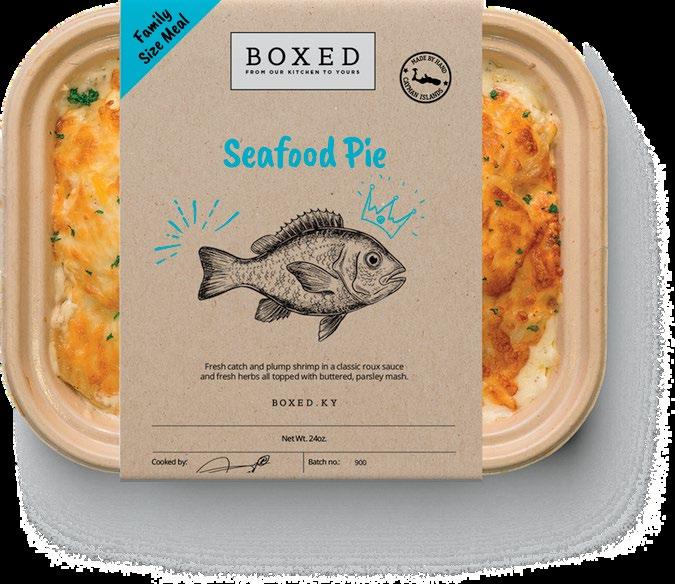
Reduce Waste – By reducing waste, we limit our contributions to the landfill, preserve resources and also save money. In Cayman, we have the George Town Landfill as a constant visual reminder of how much waste we produce. Let this be a catalyst for change.
Pass on Palm Oil – Palm oil is found in many products on supermarket shelves and is responsible for large-scale deforestation. However, avoiding palm oil altogether can create bigger problems, with some alternatives needing up to nine times more land to produce. Instead, look for RSPOcertified sustainable palm oil.

Begin Composting – Composting involves the natural biodegradation of organic materials and is a good way to recycle your leftover food and food scraps. Compost is primarily used as a fertiliser in soil and can be useful to farmers, landscapers and nurseries. If you enjoy home gardening, making your own compost will certainly save you money on mulch and potting soil, and it is relatively easy to manage.
TOP TIP: Turn your hand to backyard gardening. Turn to page 238 to find helpful tips on growing crops here in Cayman.
Find Fairtrade – Fairtrade promises reasonable working conditions and a fair wage to people around the world who source and produce our food. Buying Fairtrade helps producers become more income-secure and less vulnerable to poverty.
Aside from its positive impact on our environment, sustainable eating has many other benefits.
Community Engagement – Buying from your local farmer helps you connect with Cayman’s community. Farmers markets and farm-to-table events are abundant in Cayman and attending them gives us a stronger appreciation for locallygrown food and a better understanding of how our food gets to our plate.
Enhanced Cooking Skills – Buying whole foods encourages home cooking and helps develop new skills. You can also ask

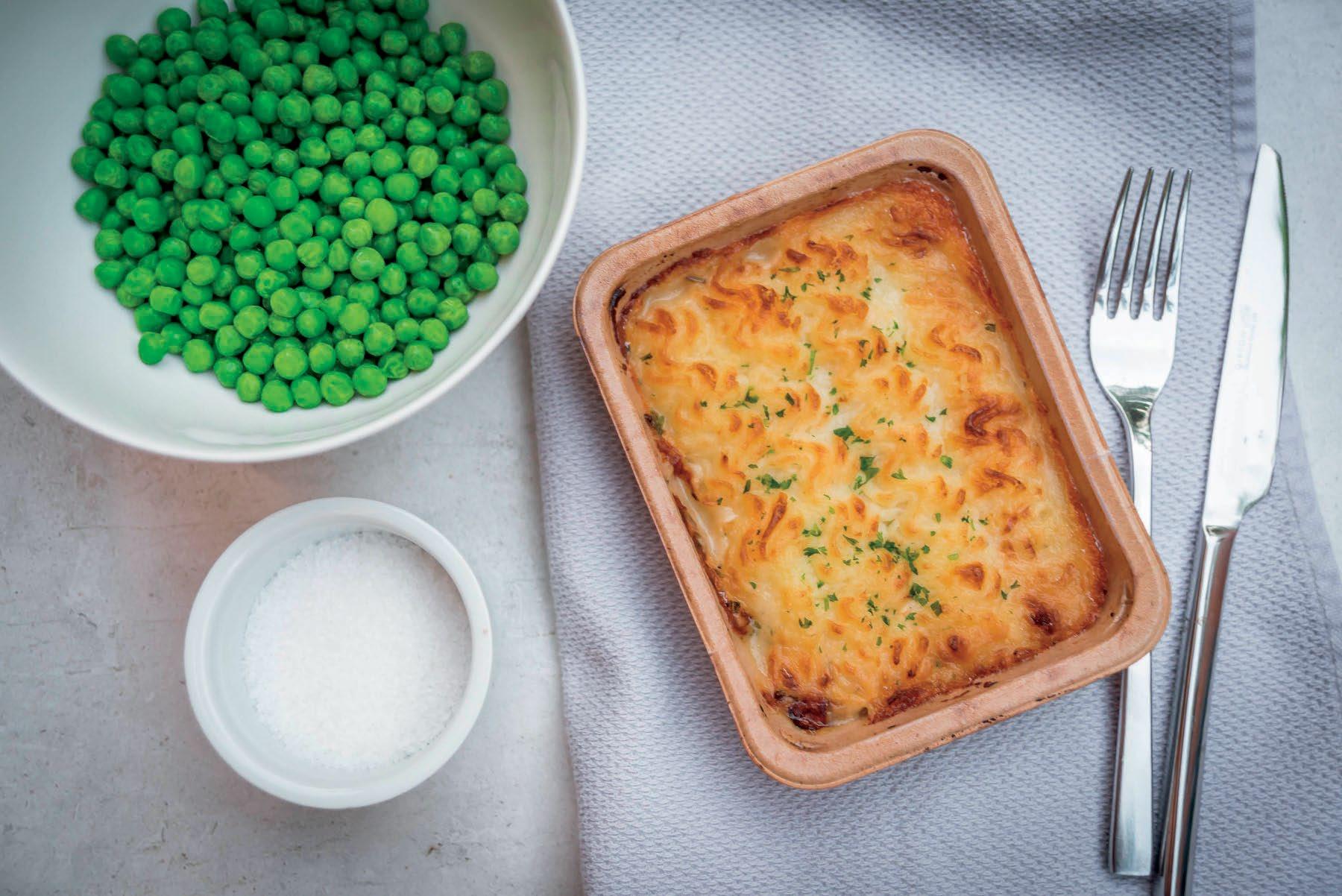
your local farmer for advice on the best way to prepare your ingredients for the tastiest meal!
Supports Local Economy – Growing food that is processed and distributed on-Island generates jobs for our local community. This stimulates the local economy and the revenue generated can be reinvested to support more local businesses in Cayman.
Protects Resources – Eating sustainably helps promote the welfare of wildlife, waterways, soil and ecological biodiversity by putting less pressure on our natural resources.
Influences Agricultural Practices – By adopting a more sustainable diet, you help to influence agricultural practices across the globe. As people shift from foods grown using unsustainable practices, the entire production line is forced to adopt sustainable operations.
Empowers the Consumer – With the above in mind, it gives the consumer more say in what goes into their food. If we turn away from unsustainable foods and practices, the food production line will be forced to change and adopt sustainable operations.
The bottom line is that there has never been a more important time to start living sustainably, and food is a great place to begin. Whether you choose to incorporate all these ideas into your diet and lifestyle, or just one, you'll be helping to cut down your carbon footprint and contribute positively to the fight against climate change.
All

the taste, none of the hassle.Delicious frozen meals, locally made by our executive chef and conveniently available from your nearest retailer. Enjoy more time doing what you love with Boxed.
Cynthia is a Speech-Language Pathologist trained in the SOS Approach to Feeding, and works with children and their families following this approach. The information and advice in this article are in line with this training, with some information coming directly from Dr. Kay Toomey & Associates Inc., the founder and developer. - Cynthia Rowe, Speech-Language Pathologist at KidsAbility
Few difficulties cause more stress and worry among parents than feeding. Often, having a picky eater can create stress, anxiety, worry and even cause arguments among family members. After all, ensuring that your child is getting the nutrients necessary to not just survive, but flourish, is no easy task.
We know that eating is only an instinctive drive for the first month of life. From birth to 3-4 months of age, we have a set of primitive motor reflexes (e.g. rooting, sucking, swallowing) which help us eat while we lay down pathways in the brain for voluntary motor control over eating. Between the end of the 5th or 6th months of life, these primitive motor reflexes “drop out” and eating is essentially a learned motor behaviour after six months of age. After 4-6 months, a child has three choices:
• Learn TO eat
• Learn to NOT eat
• Learn to KIND OF/SORT OF eat
During the first few years of life, a child's body grows rapidly and requires an adequate number of healthy foods and beverages for fuel during this period of rapid growth. It has been found that nutrient-dense foods, such as whole grains and leafy vegetables, can improve alertness, focus and memory. Furthermore, good nutritional eating habits in early childhood can have a significant impact on the development of language. Additional benefits of proper nutrition include:
• Greater academic success
• Lower risk of speech or language delays
• Healthy body weight
• Lower risk of illness or disease
• Proper function of the digestive system
• Strong bones and muscle function
• Healthy teeth, skin and eyes
There are a confusing number of possible reasons a child may be a picky eater. A 2015 review of several studies that date back to the 1990s looked at kids’ eating patterns and found
that fussy or picky eating habits were linked to and affected by everything from personality traits and parental control at mealtime to social influences and maternal eating patterns (Taylor et al. 2015).
A food jag is when a child eats the same food prepared the same way every day or at every meal. The problem with food jags is that children eventually get burned out on these foods and they are typically permanently lost from that child’s food range. In addition to all of these possible challenges, there may be physical and developmental difficulties at play.
There are five major developmental shifts and four specific skills that occur or have to be learned properly in the process of learning to eat. When children shift from one cognitive stage to the next, their sensory functioning regresses, which means their feeding may also regress. In addition to this, when children and their families are undergoing major changes in their lives, whether this is related to stress or a positive life event, any child’s eating or feeding can be easily disrupted.
1. At 4-6 months of age, there is a sensory tolerance/ exploration shift that occurs when eating changes from being reflex driven to a voluntary motor movement.
2. At 12-14 months of age, there is a shift when children are developing the skill of Tongue Tip Lateralisation. This skill is required in order to transition onto textured table foods and to achieve the correct positioning of food onto the back molars for chewing.
3. At 18–36 months of age, there is a shift when children are developing Rotary Chewing. This skill is required to eat “real” meat, hard/raw vegetables and hard/raw fruits (especially with peels). There is a cognitive shift from Sensorimotor to Magical Thinking.
4. At 5-7 years of age, there is a cognitive shift from Magical Thinking to Logical Thinking, and when children are developing a Positive Mindset.
5. At 9-11 years of age, there is a cognitive shift from Logical Thinking to Abstract Thought.
Children who have identified or unidentified (usually mild) physical issues often don’t fully manage these transition times, which can result in picky eating or problem feeding. In addition to this, our family mealtime structure, our ability to be a good role model, and whether we allow our children to food jag, all play a role in the development of our children’s relationship with food.
Research estimates that 60-80% of children on the Autism Spectrum will have difficulties with feeding/eating (Severling et. al. 2018; Hubbard et al. 2014). In the SOS Approach to Feeding, we use the analogy of an iceberg to help families and professionals understand why children don’t eat. The Feeding/Eating Problem is actually only the tip of the iceberg. It is the problem that everyone sees. However, it is what is “under the water” that is actually the real problem.
Children with ASD can have difficulties with eating for many reasons. It could also be a combination of the difficulties they are having in areas of human function involved in the process of feeding/eating well. Below are just a few examples:
• Organ Systems – Children with ASD often struggle with medical issues such as constipation, GI problems and/or food allergies/sensitivities.
• Muscles – When our muscle systems don’t work really well (e.g. low muscle tone, hyperextensible joints) we struggle with having good postural stability (which is necessary for being able to stay in a steady, upright seated position for at least 20 minutes).
• Sensory Systems – Sensory processing challenges are very often a part of ASD. These problems include not being able to visually tolerate the look of different/new foods, having touch over reaction to foods on the hands and/or in the mouth, experiencing difficulties with identifying smells correctly (discriminating different smells) and/or overreacting to the smell of foods, as well as being over or under reactive to the tastes of foods
No Pressure – At mealtime, let them decide what they want to eat, how much they want to eat or whether they want to eat at all. Here are some examples of what pressure looks like:
• “Just try one more bite.”
• “You’re not leaving this table until you eat it.”
• “You can have dessert as soon as you try this food.”
Make It Fun – Kids love playing with their food! Get messy, laugh and do silly things with the food (for example, making a carrot moustache). Playing with food can help children explore the sensory side of eating in a fun, no-pressure kind of way. However, don’t be afraid to set boundaries if your child starts to throw food. If that happens, try the phrase “food stays on the table” to set a clear boundary.
An Eating Schedule – It can be tempting to let your child graze on food all day, especially if they are picky eaters and you are
just happy that they are eating something! But letting them eat freely like this can backfire for a child who is already considered picky, as they are less likely to feel hungry and, therefore, much less willing to try new foods. If they are asking for food in between scheduled times, try to stall them. For example, “Yes, let’s make some lunch. But first can you help me water the plants outside?”.
Do Not Bribe – When we use dessert to bribe kids to eat dinner, it reinforces to them that dessert is better and dinner is worse. This leads to even less liking of the dinner. However, it does not mean you can never have dessert. The main thing to remember is that getting dessert (or any other reward) should not be dependent on eating a certain amount of the meal or eating a specific food.
Be a Food Scientist – Try not to place labels on foods, such as "good", "bad", "healthy" or "unhealthy". All food is just food, with different nutrition and texture. Instead, become a "food scientist" and discuss the different properties of the food, and what food does in their bodies. Fun facts help kids want to learn more about foods and their bodies, and ultimately having a good relationship with food can also help with picky eating!
If you have tried the above strategies and you still feel like you need more help, refer to the list below. If your child has two or more of these red flags, reach out to a SpeechLanguage Pathologist and/or Occupational Therapist for a consultation.
• Ongoing poor weight gain, weight loss
• Ongoing choking, gagging, coughing during meals
• Ongoing problems with vomiting
• More than one incident of nasal reflux
• History of a traumatic choking incident
• History of eating and breathing problems
• Inability to transition to baby food purées by 10 months
• Inability to accept any table food solids by 12 months
• Inability to transition to a cup by 16 months
• Has not weaned off most/all baby foods by 16 months
• Food range is less than 20 foods
• Aversion/avoidance of all foods in specific texture or food group
In Feeding Therapy Sessions at the KidsAbility Paediatric Therapy Clinic, they use the “SOS Approach to Feeding”. This is a developmental feeding therapy that allows a child to interact with and learn about foods in a playful, non-stressful way. It helps increase a child’s comfort level by exploring different properties of the foods, including colour, texture, smell and taste. Parent education and involvement are an essential part of this feeding programme.
A heart-warming memoir from an accomplished and beloved actor, this book shares an enthusiasm for food. Stanley Tucci details his life through food, celebrating the fivestar meals and recalling the burnt disasters. It's a heartfelt gastronomic journey.

Andi Oliver showcases the Caribbean's traditional and vibrant flavours as she explores her heritage and identity. The hearty and soulful ingredients the region is famed for are out and on display as Oliver explores who we were, who we are and where we're going.
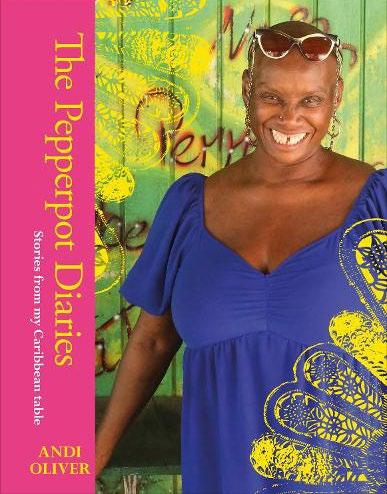
Combining evidencebacked research with deliciously digestible recipes, Ella Mills makes plant-based eating available for all the family. Debunking myths, sharing experiences and making plant-based food accessible for all ages.

Cayman Good Taste Keep the Island's culinary scene at your fingertips. Make reservations, check menus, find foodie promotions and so much more. And when the family can't decide, try Restaurant Roulette! Free on Android and iOS.

An interactive cooking experience without the hassle of cleaning up afterwards. Readers can cook their own plate of spaghetti, lifting the flap to open the can of tomatoes and moving the tab up and down to chop the onions. It's 100% danger-free and mess-free cooking.
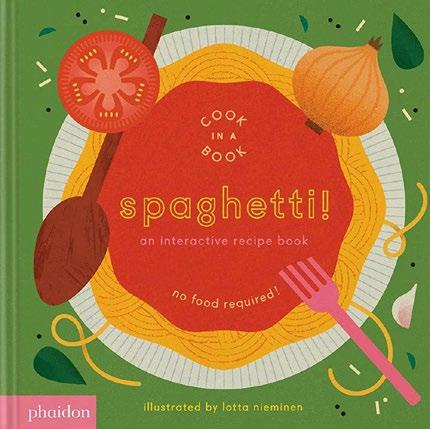
The story of the humble avocado from Mexico who finds global fame and runs away to the Cayman Islands. Inspired by the guys behind Jessie's Juice Bar in Camana Bay with the hope to promote local and seasonal food consumption through a lovely children's story.

Tilly Ramsay encourages tweens and teens to start cooking with her easy-tofollow recipes. Whether it's breakfast, lunch or dinner, recipes are nutritious, nourishing and perfect to make at home for friends and family. There are also some helpful tips from her chef dad, Gordon!

Toca Kitchen 2 Calling all aspiring chefs! In this game, kids can roleplay being a chef in a busy kitchen full of tasty ingredients. Cook your favourite meal or experiment with new flavours. Free on Android and iOS.
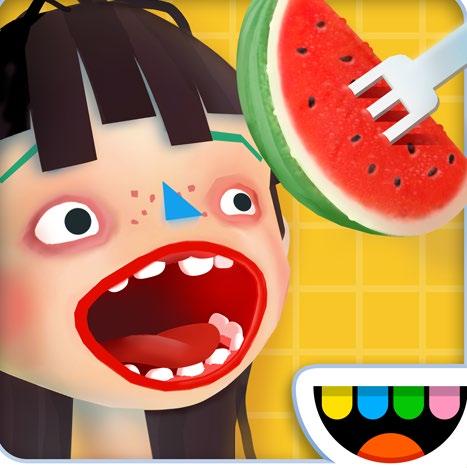
There are two different types of allergy testing done in the Cayman Islands. There is environmental allergy testing for things like dust, grasses and pet hair, and food intolerance testing for which you have two options: the ALCAT Test and MRT Mediator Release Test. Both uncover food and chemicals that trigger chronic inflammation internally.
Cayman Clinic
439 Crewe Road, George Town. Tel: (345) 949 7400 Email: info@caymanclinic.ky Web: www. caymanclinic.ky. Cayman Clinic conducts the ALCAT food intolerance test.
Dr Louis A. Cona MD
The Strand Medical Centre, The Strand Shopping Centre, off West Bay Road. Tel: (345) 945 7077 Email: thestrandmedicalcentre@candw. ky Web: www.caymandoctor.ky. Dr. Cona conducts the ALCAT food intolerance test.
Dr Ulrich Ecke MD ENT Head & Neck, Otolaryngology
ENT in Cayman, Pasadora Place, 94 Smith Road, George Town. Tel: (345) 745 3253 Email: info@ entincayman.com Web: www.entincayman.com. ENT in Cayman's allergologist offers a range of tests to help diagnose allergies.
Andrea Hill BCHN MS BASc
Tel: (345) 938 4246 Email: andreahill.nutrition@ gmail.com Web: www.andreahillnutrition. com. Specialises in female hormonal health for menopause and perimenopause. Helps adults and children work on getting a balanced diet for optimal health.
Cayman Nutrition
227 Smith Road, George Town. Tel: (345) 525 2019 Email: caymannutrition@gmail.com Web: www.caymannutrition.com. They offer the SpectraCell Micronutrient Test and the Mediator Release Test (MRT) for food intollerances.
George Town Hospital
95 Hospital Road, George Town. Simone Sheehan, Tel: (345) 244 2655 Email: simone. sheehan@hsa.ky; Tamara Riley, Tel: (345) 244 2663 Email: tamara.riley@hsa.ky.
Kristen Lomas RD MBA
Seven Mile Medical Clinic, Queens Court Plaza, West Bay Road. Tel: (345) 949 5600 Email: klomas@sevenmileclinic.ky. Seven Mile Medical Clinic offers the ALCAT food intolerance test.
Total Health
Grand Pavilion Commercial Centre, 802 West Bay Road, SMB. Tel: (345) 333 2222 Email: info@totalhealth.ky Web: www.totalhealth. ky. Nutritional management for weight loss, diabetes management, inflammation and sports and exercise nutrition.
Meal Prep, Smoothies & Bowls
Green2Go
116 Cannon Place, Industrial Park, George Town. Tel: (345) 516 3286 Email: letstalk@green2go.ky Web: www.green2go.ky. Sells cold-pressed juices, superfood shakes and smoothies.
Grocery Nest
Tel: (345) 923 9422 Email: grocerynestcayman@ gmail.com Web: www.grocerynestcayman.com. A meal prep service committed to promoting healthy living while protecting our planet. They use sustainable practices and eco-friendly packaging options. Plus, their meals never contain additives or processed foods, ensuring that every bite flavourful and nutrition.
The Nutrition Lab
68 Mary Street, George Town. Tel: (345) 929 4555 Email: fnsportsclub@gmail.com. Sells a range of high quality, healthy smoothies and breakfast bowls, alongside hydration supplements.
Tiny Spoons
Email: orders@tinyspoons.ky Web: www. tinyspoons.ky. Offers freshly prepared, wholesome food for your baby and toddler delivered to your door. Food is created with pediatric therapists using local produce and contains no preservatives and no added sugar.
Chisholm's Grocery
Tel: (345) 947 9418. A family-owned grocery store open seven days a week selling a wide range of groceries and essentials.
Foster’s – Five locations:
> Airport Centre, Tel: (345) 949 5155
> Camana Bay, Tel: (345) 945 4748
> Republix Plaza, West Bay, Tel: (345) 949 3214
> Countryside Shopping Village, Savannah, Tel: (345) 943 5155
>Morritt’s Express, East End, Tel: (345) 947 2826 Web: www.fosters.ky. Offers a friendly in-store experience with all the food options needed for a growing, healthy family. They also carry Waitrose products.
Hurley’s Supermarket
Grand Harbour, Red Bay. Tel: (345) 947 8488 Web: www.hurleys.ky. A good choice of baby food, children’s food, child and baby essentials.
Kirk Market
413 Eastern Avenue, George Town. Tel: (345) 949 7022 Web: www.kirkmarket.ky. Sells a selection of baby and children’s food, with a good choice of organic options and childcare essentials such as nappies, formula and bibs.
Farmers Markets
Camana Bay Farmers & Artisans Market
The Paseo, Camana Bay. Web: www. camanabay.com. Every Wednesday 10am4pm, local purveyors offer fresh produce and farm goods as well as an eclectic selection of artisanal products and handicrafts.
The Market at the Cricket Grounds
Huldah Avenue, next to the cricket pitch, GT. Web: www.caymanfarmersmarket.com. Monday-Saturday 7.30am-5.30 (Saturdays, the market closes between 3pm and 4pm).
Vitamins & Supplements
Health Care Pharmacy
Governors Square, SMB Tel: (345) 949 8900 and Grand Harbour, GT Tel: (345) 947 8900. Everything from prescriptions to baby formula. Stocks vitamin and mineral brands that accommodate vegan and gluten-free lifestyles.
Island Naturals
Earth Close, off West Bay Road. Tel: (345) 946 3321 Email: retail@islandnaturals.ky. Sells a range of high quality, chemical free, natural and organic products from the industry’s leading health and nutrition brands.
Cayman Villas goes the extra mile to create a unique vacation experience. Our on-island Specialists are here to help make your home away from home the vacation that you deserve.

Choose from over 70 gorgeous beach front villas and condos across Cayman. Perfect for family escapes or romantic getaways.


Make the most of your vacation in a private villa – relax on a beach, or by the pool. The Cayman Villas team are here to assist you with all your vacation needs.

We have a fantastic selection of properties at a range of great rates to suit your budget. Visit our website to view all our properties.


Cayman's close proximity to the USA and the rest of the Caribbean means many family-friendly destinations are right on our doorstep. The easiest way to see the world is via nonstop flights like the ones offered by our national flag carrier, Cayman Airways, which flies directly to multiple international and regional destinations. They operate a fleet of four new Boeing 737-8 jet aircraft, and Cayman Airways Express operates a fleet of two Saab 340B+ aircraft and two Twin Otter aircraft on the domestic routes.
oceans, took 34 years to build and you can see the engineering behind it as you explore the Miraflores Locks and see the boats traverse the canal.

Less than two hours away, there are two flights weekly during the summer months and one flight weekly during the fall and winter from Grand Cayman.
Tampa
Panama is a beautiful place to visit with much to explore and a wide range of activities for the whole family. You can visit the Soberania National Park, where you will see sloths and other wildlife in the Gamboa Wildlife Rescue Centre. This beautiful wilderness area is only 30 minutes away from Panama City by car. For those that want to hike or take a boat trip, the River Chagres is another great place to spot wildlife. You can visit an indigenous Embera village, where the Embera people have lived on the bank of the Gatun Lake for centuries and continue to live a simple life. You can hike in the Volcan Baru National Park where you will find centuries-old trees, abundant flora and fauna and hanging bridges. You can take a boat ride around the San Blas Islands or you can visit Monkey Island, located in the middle of Lake Gatun. You can learn to surf on the beaches of Bocas de Toro, where world-class swells attract keen surfers, and the town of Isla Colon will welcome you with its relaxed backpacker vibe.
Stroll through Casco Viejo, Panama City’s historical quarter, which dates to the 17th century and is now a UNESCO World Heritage site. With its restored buildings, wrought iron balconies, centuries-old churches and narrow cobblestone streets, there are trendy cafes, bars and restored heritage hotels. Finally, do not miss the country’s star attraction, the Panama Canal. This remarkable feat of engineering, that links the Pacific and Atlantic
There are plenty of family-friendly activities in Tampa, whether you’re hoping for fun bonding experiences or educational opportunities for the children. A day trip to Busch Gardens –or their water park Adventure Island on a hot day – is sure to entertain your children for hours with activities ranging from their classic rides to dance shows and safari tours. A long and actionfilled day at either the theme or water park is bound to leave everybody tired and satisfied by the end of the day. Tickets can be purchased online and free shuttle passes to the park are available with any paid Busch Gardens ticket.
A more educational option is a visit to the Glazer Children’s Museum, where they promote playing in a diverse, equitable, accessible and inclusive environment. Your children can visit a range of exhibits for imaginative play to work on a farm, in a firehouse, grocery store, and more! This is a perfect experience for children aged 0-10. The Tampa Riverwalk is a 2.6-mile path that joins lots of shops and restaurants together, and is possibly

family’s interests. While in LA, there are hikes in the countryside that will literally take your breath away. A lovely one is the Betty B Dearing trail, a five mile out-and-back trail that crosses three LA parks (Wilacre, Fryman Canyon and Coldwater Canyon) and has plenty of shade (a crucial factor in the middle of summer). Known for its wildflowers, this trailhead is just over 25 minutes by car from Downtown LA. Finally, a hike to the iconic Hollywood sign is more child-friendly than you may think, and the best route follows the wide, graded Hollyridge Trail to a paved road (closed to cars) up Mount Lee. This 3.5 mile round

Pack more - up to 55lbs allowed per checked bag
Board first - priority boarding for families
Stroll on - free transport of stroller and/or car seat
Sit together - complimentary seat selection
Dine together – free meal aboard long-haul flights
Have fun - family-friendly in-flight entertainment
Sip more - complimentary rum punch and fruit punch
MORE NONSTOP ROUTES COMING SOON!
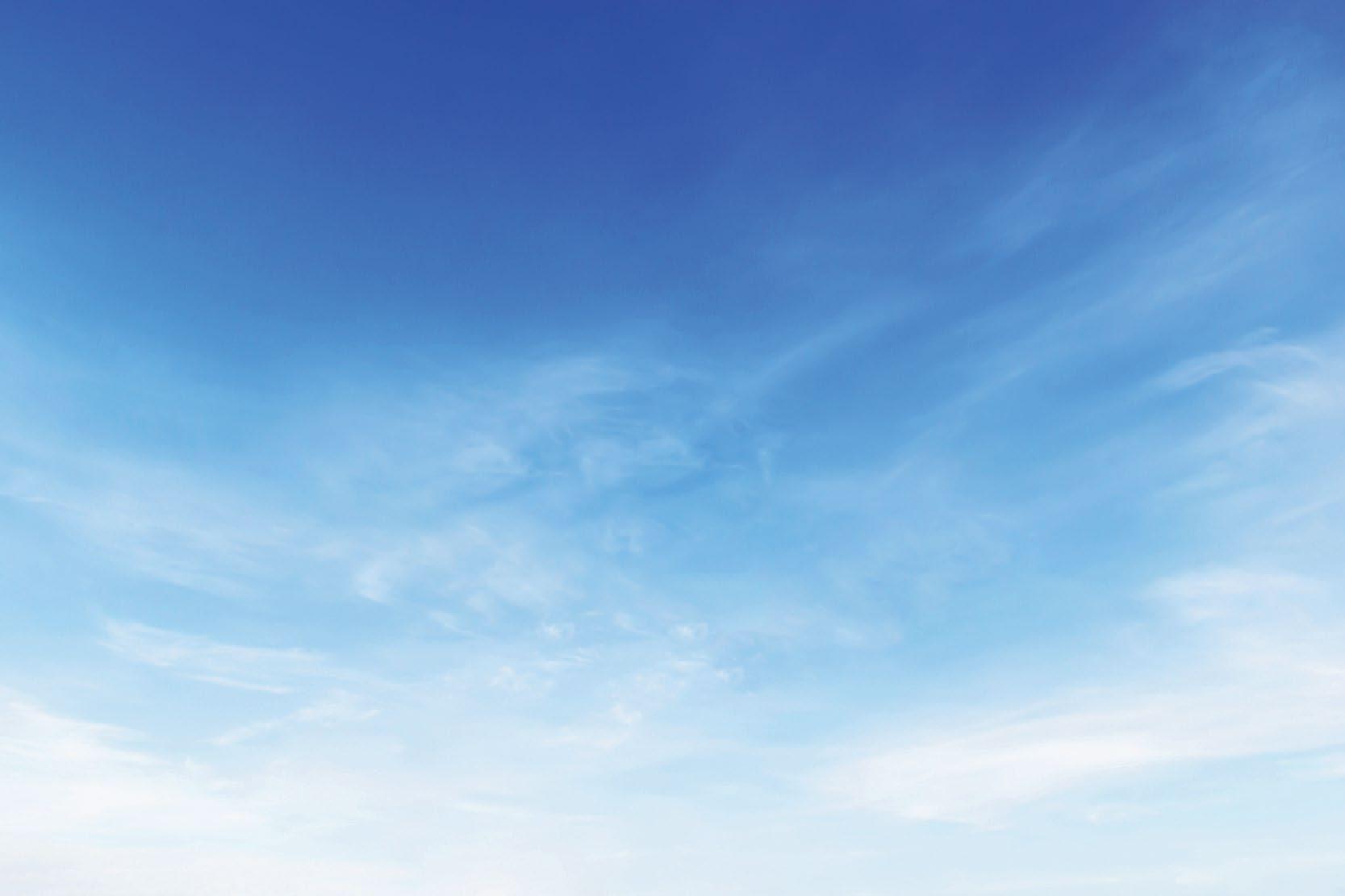
For details and to book, call Cayman Airways Reservations on 345-949-2311, 1-800-422-9626 (toll free in the USA), contact a travel professional, or book online at caymanairways.com


trip hike provides a vantage point above and behind the sign, where your family will enjoy one of the most amazing views of the Griffith Observatory. At the time of printing, Cayman Airways offers one departing and one returning flight per week to LA. The flight is just under six hours.
Denver
Colorado is one of the best US states to ski in, thanks to the Rocky Mountains and their champagne powder snow. Most Cayman families use Denver as a gateway to a ski resort, and many good options, from the affordable and simple to the lavish and luxurious, are nearby. Popular ski resorts that are accessible from Denver, include Beaver Creek, Breckenridge, Copper Mountain, Keystone, Lake Tahoe, Sugarloaf, Vail and Winter Park to name a few.

If you visit the Mile High City in the summer there are over 200 parks to explore, many with beautiful mountain views. A visit to Pikes Peak and the Garden of the Gods, has miles of multi-use trails that wind amongst the towering formations that give the park its name. For those who love to ride, you can take a guided horseback ride led by real cowboys who share their love of and knowledge of the flora and fauna along the trails.
Just outside of Denver, Dinosaur Ridge is the perfect destination for those that are interested in and want to explore the area’s geological history. Both the Dinosaur Ridge Trail and the Triceratops Trail are amazing opportunities for children to admire more than 300 different dinosaur tracks right in front of them. Continuing the science theme, a visit to the Denver Museum of Nature and Science will teach you even more about dinosaurs in their After the Asteroid: Earth’s Comeback Story exhibit, and you can learn about the Gems and Minerals found in the area.
If there are any history nerds in your family, the Colorado Railroad Museum and the Denver Firefighters Museum are both popular and history-filled destinations to visit in the Denver area. The Colorado Railroad Museum resembles an 1880s railroad depot and offers opportunities for the family to ride a train and tour the railyard. The Denver Firefighters Museum teaches families about the history of firefighting in Denver through its collection of artefacts, documents, and photographs that help to create exhibits and promote education and research. From
December to August, Cayman Airways offers one departing and one returning flight per week to Denver. The flight is less than five hours.

Whether you're looking for culture, theatre, food, world-class museums, some of the most historic landmarks in the US — even nature in the form of Central Park — New York City has it all. Major attractions include the American Museum of Natural History, the Intrepid Sea, Air & Space Museum, the Statue of Liberty and the Empire State Building. You can take in a Broadway show, and you can try a famous NYC bagel or one of the many amazing restaurants that New York is famous for. You can stroll through Central Park with its many walking paths that offer beautiful views of the city skyline, and you can visit the Central Park Zoo. You can also rent a bike or take a horsedrawn carriage ride through the park.
You can visit the Rockefeller Center with its original Art Deco buildings that span the area between Fifth Avenue and Sixth Avenue. It is home to many famous attractions such as the Top of the Rock Observation Deck, which offers stunning views of New York, or you could visit the NBC Studios and take a tour where visitors are taken behind the scenes of some of their favourite TV shows. There are three flights weekly to New York and back to Cayman and the flight is about four hours.
Exploring South Beach is a really fun thing for older teens and adults to do, with its great restaurants and art deco buildings. For families there is the Philip & Patricia Frost Museum of Science

with its amazing planetarium where you will feel like you are hurtling through space or weaving through a coral reef. They also have an aquarium with everything from Gulf Stream sharks to tiny organisms within coral. Learn about different ecological systems and the science behind them. For those that want something less overwhelming, there is Pinecrest Gardens, where you can walk flower-lined trails, feed the koi, and children can cool off in the splash and play area.
If your child shows an interest in horticulture and local wildlife, take them to Fruit & Spice Park, where they’ll find all sorts of exotic plants and trees that produce more than 500 varieties of fruit, vegetables, herbs and nuts. Set on 37 acres, you get a guided tour with the cost of admission. With 14 exhibition halls to explore, Miami Children’s Museum is a great place to take children, especially if it’s hot or rainy outside. Kids will love scrambling around the full-sized cruise ship, going behind the scenes at a TV studio, and letting their imaginations run riot at the Castle of Dreams.
If your children are big animal fans, Jungle Island Miami has more than 1,000 tropical birds, daily feeding shows, and everything from tigers to alligators to see. While on Jungle Island you can also try Treetop Trekking. Still on the theme of alligators, the Everglades National Park has wetlands, swamps, forests, mangroves, turtles, birds, manatees and lots of alligators! Exploring by airboat is exhilarating and the guide will point out all the wildlife you could want to see! Finally, for those with children that just need to let off steam, there are numerous trampoline parks. The flight time from Miami to Cayman is an hour and a half and Cayman Airways offers daily flights to and from Miami.
Montego Bay is one of the most popular tourist destinations in Jamaica, with visitors coming to enjoy the laid-back environment and spectacular surrounding landscapes. It is an ideal base for day trips to popular surrounding attractions and activities. Rafting the Martha Brae River on a bamboo raft and being guided by a friendly and knowledgeable raft captain, is a relaxing and scenic way to explore the lush countryside of Jamaica. You can visit the Ahhh Ras Natango Gallery and Garden, which is a hidden gem in the hills of Montego Bay, where you can admire the colourful paintings and sculptures of local artists. You can also stroll through the stunning botanical garden, where you can see exotic plants and birds. You can
even feed hummingbirds from your hand. The popular Dunn's River Falls is a 1.5 hour drive away from Montego Bay. Try some traditional jerk food along the way. Only one hour away, Cayman Airways offers a seasonal service to Montego Bay.
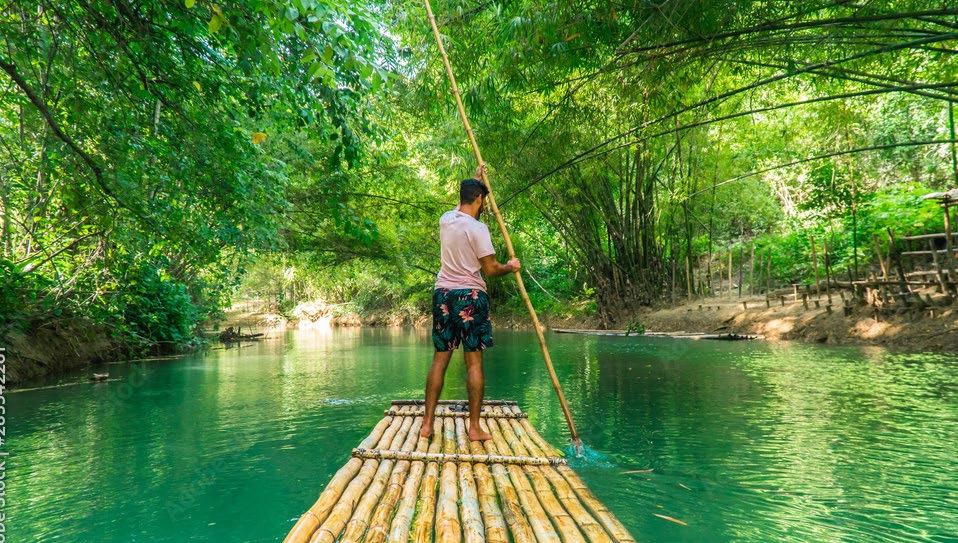
Cayman Brac and Little Cayman, are best known for their tranquil atmosphere and outstanding diving. Lying 90 miles northeast of Grand Cayman, these Islands are a world away from the hustle and bustle of normal life. The essence of a laidback Caribbean lifestyle means one bank, more iguanas than humans, and beautiful spots where you can enjoy the slow pace of a tropical island paradise.
The most easterly of the Cayman Islands, the Brac is 12 miles long and just over a mile wide. With its distinctive limestone ridge which rises to 150ft, the friendly Brackers share their Island with over 200 bird species and numerous iguanas. The dramatic scenery and rugged terrain boast a plethora of hidden caves, winding trails, a unique cultural history and is ideal for a number of outdoor land–based activities, in addition to the superb diving, which it is famous for. The best way to explore the Island is to hire a car. However, cycling is a great way to get around the south shore (which borders the Bluff), particularly on days when you are exploring caves and trails, as you will be off the bike and on foot for at least half the time. Hotels and resorts often supply complimentary bikes. Navigating is easy: main roads run along the north and south shores and on the Bluff, with a few secondary roads crossing from one side to the other. It is not possible to drive the whole way around the Island.
Ten miles long and a mile wide, Little Cayman is truly little; the airport and fire station are housed in one building, there is one shop and one bank on the Island and, with a population of around 200 people, humans are vastly outnumbered by birds and iguanas. A genuine island hideaway, you cannot avoid slowing right down, resetting your body clock to island time and doing a whole lot of nothing. One of the last undeveloped islands in the Caribbean, Little Cayman offers peace, relaxation and unspoiled natural beauty on land and underwater. For those who want to explore, there are secluded beaches, numerous lagoons, mangrove forests, salt ponds and tropical forests strewn with orchids. For divers, the sea holds a plethora of world-class dive sites.

The busyness of life can prevent us from realising just how much clutter we have accumulated and how it has transformed our living space into a stressful and overwhelming environment. Fortunately, the emergence of a specialised industry focused on decluttering and organising has provided guidance on how we can find order and peace in our homes and lives.
In a world filled with disorder and uncertainty, home should be a place of solace and not a cluttered mess. Gretchen Rubin, an acclaimed writer and one of the most influential and thoughtprovoking observers of happiness and human nature, said that "Outer order contributes to inner calm". However, where do you start when the piles of 'stuff' seem daunting and intimidating?
To make this colossal task more manageable, it helps to break it down into smaller, achievable tasks. There are four steps that can help you successfully reset your home: 1) Planning 2) Decluttering 3) Organising 4) Maintaining.
Before you start physically organising, it's essential to prepare mentally for the task at hand. To do so, it's helpful to consider your motivation, goals, vision for each room and how to explain the process to the entire family.
Anticipating potential challenges in advance and understanding how much time each project will take can help you stay on track and overcome any obstacles Maintaining a positive mindset, going at a sustainable pace and focusing on the progress you are making will help greatly along the way.
The next step is to sort the items into four different groups: Keep, Sell, Donate and Discard.
Keep: Consider whether each item you come across is something you truly love and use, whether you have unnecessary multiples, and if it supports the room’s purpose or your current lifestyle. If you haven't used or remembered an item within the past six to 12 months, it's unlikely that you will use it in the future, and you should consider donating or discarding.
Sell: Many people find selling items more frustrating than it's worth. However, you can make money if you are realistic and willing to put in the effort. Facebook Marketplace is a popular way to sell items in Cayman along with Ecaytrade and Cayman High End. If you decide to sell, set an end date and if you haven't sold the items by then, consider donating the items to a
charity shop or those in need.
Donate: There are well-known charities across Grand Cayman that operate thrift shops, such as The Red Cross, The Humane Society and Good Deeds, all of which receive many donations every week. It is a good idea to call ahead of delivering items to see what type and volume of donations these charities can accept, otherwise you risk them dumping the excess. There is also a useful community group on Facebook called ‘FreeBee Cayman’ where giveaway items can be posted for collection by individuals.
Discard & Trash: Decluttering is not complete until you have properly disposed of the items you no longer need. There are several options available for handling the things you have decluttered. If it is old electronics, then E-Waste Cayman Islands Ltd. (Tel: (345) 916 6764) will collect your items for a small fee. If it is brass, copper, aluminium or auto scrap then Island Recycling (Tel: (345) 516 3333) will buy it off you. Alternatively, you can just take things to the dump. However, please remember that discarding rubbish in undesignated areas is illegal!
Next, group items according to their function and store them in the most suitable spaces. By doing this, you can establish an intuitive and logical routine that makes it easy to locate items and promptly return them to their designated spot. Once the items are contained and placed in their optimal location, you can focus on the aesthetics to make your newly organised space visually appealing.
A range of storage containers can then be utilised to keep the items organised and contained. They come in a variety of materials, including plastic (transparent and opaque), natural fibres like water hyacinth, hemp and burlap, a mix of woods like bamboo, cedar and pine, metals and cloth. You can use a combination of these containers to create a functional effect that is also pleasing to the eye. Essential storage solutions include bins, baskets, boxes, turntables, trays, risers, wall mounted and hanging solutions. Custom Closets offer a variety of these storage solutions which pair well with their organising systems
for closets, hallways, garages, pantries and laundry rooms.

Expensive or fancy containers are not always necessary for every organisational need. You can repurpose existing boxes that you might otherwise discard. For example, shoe boxes work nicely in deeper drawers, while the lids of the same shoe boxes can be used to organise shallower drawers.
Maintenance
Once you’ve put in the effort to declutter and organise your home, how do you keep it that way? There are daily, weekly, monthly and yearly routines you can implement to prevent clutter from overtaking your space again, as well as some general guidelines to keep in mind.
Daily Refresh: In high-traffic areas like the kitchen, living room, and bathroom, keep a ‘catch-all’ basket. Throughout the day, quickly toss items that are out of place. Before winding down for the night, spend 10 minutes carrying the basket around to each room and reinstating priority items needed for the next day. You can leave any remaining items for the next day, as the idea is to perform a quick refresh rather than a full reset.
Weekly Reset: Perform a weekly reset alongside your regular cleaning day. While cleaning, look for out-of-place items to add to the 'catch-all' basket, items that need to be restocked or discarded, and so on.
Monthly/Quarterly Organising: Dedicate one day a month, preferably not on your cleaning day, to edit one room at a time. Every four months, scan your house for items you have duplicates of and/or have not used for six months or more and compile an ongoing list. Decide which items to donate, sell or discard. If you're uncertain about some items, keep them on your list and leave them for the next quarterly check-in. This will help gradually reduce the redundant or unnecessary items you have to store.
Yearly Purge: Annually, perform another major purge using the keep, donate, sell or discard filters. Make a comprehensive decluttering list of rooms and items to go through. It will be easier this time around if you have been habitually maintaining your home daily, weekly, monthly and quarterly.
Clutter Policing: The best way to prevent a build-up of clutter is to avoid bringing it inside in the first place! One way to achieve this is the ‘one-in-one-out’ method, where for every (non-perishable) item you bring into your house, you choose one thing to discard, donate or sell in its place. Your need for storage of new items should not increase if, for example, you get rid of an old pair of shoes before buying new ones.
By thinking of ways to reduce waste, you can simultaneously minimise untidiness. Simplifying your life in the above ways can not only benefit you financially but also provide peace of mind and comfort that far outweigh the stress of figuring out where to store excessive belongings.
As life gets busier and we become parents, we often find ourselves rushing from work to pick-up to home, constantly feeling exhausted. But is this exhaustion more than just being tired? Have you experienced unexplained weight loss, fatigue, cracked corners of the mouth, constipation, or even depression and anxiety? These symptoms could be linked to a deficiency in vital nutrients. But how can you determine what you're lacking and where should you begin?
Hippocrates, the Greek founder of Western medicine, was a believer that food and exercise could be a person’s medicine. However, many of us do not eat a balanced organic diet, and most of our fresh fruit and vegetables are imported from overseas, losing vital nutrients in the time it takes to get from the field to our plate. Add to that, farmed fish that have high levels of PBCs; USraised non-organic pork and beef containing growth hormones, steroids and antibiotics; and many crops being sprayed with glyphosate, which the world’s leading cancer authority has named as a probable human carcinogen. Even labels can be hard to decipher – manufacturers are only required to list vitamin C, vitamin D, calcium, iron and potassium in their food, so it can be hard to tell whether your food provides sufficient nutrients just from looking at labels. The best foods that provide a variety of vitamins, minerals, fibre, and phytonutrients do not have a food label – fruits and vegetables! This should be the foundation of every person's diet, and if you are vegan, then you may need to supplement B12, iron, calcium and vitamin D.
All these genetically modified, hormone and antibiotic-filled foods are safe to eat according to the FDA, but do they contribute to your feelings of tiredness and exhaustion? Some might well think they do. So, what to do about it?
Firstly, there is now an innovative test called the SpectraCell Micronutrient Test which measures 31 vitamins, minerals, amino/ fatty acids and antioxidants on a cellular level in your blood and will explain which ones you are deficient in. Regardless of how well you eat, some people have what is called a ‘snip’ on their DNA, which means that they cannot absorb certain vitamins and may need to supplement what their body is struggling to absorb.
If you suspect you are in menopause, you can take the Dutch Test, which measures a women’s levels of estrogen, progesterone, testosterone and melatonin. It can go a long way towards helping your doctor or naturopathic holistic educator understand what is going on.
Are you eating a healthy diet that includes a variety of foods and a good balance of vitamins and minerals? Do you have a diet
that is high in sugar? Do you have a limited diet, i.e. you eat the same breakfast every morning with the same exact ingredients? If so, over time, your body is more likely to develop nutritional inadequacies and deficiencies. Do you consume enough fibre? Do you get sufficient sleep and do you drink enough water? All these things are essential in your effort to stay healthy and keep your energy levels up.
There are, however, risks associated with taking too much of any one vitamin or mineral. For example, too much vitamin A can cause frontal headaches, too much zinc can cause nausea and vomiting, too much selenium can cause hair loss and too much vitamin C can cause diarrhoea. Taking vitamin C at the same time as vitamin B12 will reduce the amount of B12 that you can absorb, so take them at least two hours apart. Taking too much vitamin E can lead to increased bleeding and can stop the absorption of vitamin K, which is essential for blood clotting. There are many other dangerous interactions that can occur if vitamins and medications are combined. You are strongly advised to talk to a registered dietitian before you start or change your consumption of any vitamins and minerals.
Routine bloodwork can also help catch issues before they become a problem. The five routine tests include:
1. A broad thyroid panel.
2. Essential nutrients of iron/ferritin, vitamin D, B12 and magnesium.
3. A complete metabolic panel and a complete blood count.
4. Measuring your metabolic markers: haemoglobin, fasting glucose and insulin and lipid panel.
5. Inflammatory markers: hsCRP and homocysteine.
If these tests don’t show any conclusive results and you still feel exhausted, then try the following:
1. Get your house, and in particular, your AC ductwork checked for mould. If you or your children are constantly sick with colds, then hidden mould could be the cause.
2. Try and flatten your blood glucose levels and avoid repeated spikes which lead to brain fog, exhaustion and, in the long
term, can cause heart, kidney and eyesight problems. Jessie Inchauspe’s book ‘Glucose Revolution’ is a must-read on this.
3. Look at how much exercise you are getting. Everyone needs to move their bodies.
4. Get an allergy panel and/or a food intolerance blood test done. This will show how you develop IgE (antibodies produced by the immune system) with certain foods that you eat. If something comes back showing that your body is producing lots of antibodies when you eat it, then that could well be the reason you are feeling so exhausted.
5. Take a look at your diet and analyse your food choices before you jump into taking supplements. Taking a supplement isn't always the most effective long-term solution. However, if you have reviewed your diet and you are drinking enough water, eating sufficient calories, and adequately balancing quality proteins and healthy fats with fibre-rich carbohydrates, but still need that energy boost, then taking an enzymatically activated B-complex which provides methylcobalamin can be helpful. So could magnesium, as it's involved in over 300 enzymatic reactions in the body. If you are pregnant, then it is recommended that you speak to your doctor before starting any new supplements. Generally, a high-quality prenatal vitamin can be helpful as a pregnant woman's body needs more of everything – calories, protein, calcium, iron, zinc and B vitamins, for instance. Omega-3 are also essential for a baby's brain development.
Your doctor, a registered dietitian or a holistic nutrition educator can study what you are eating, recommend tests and then build a plan for you that can help lift the fog and have you feeling healthier and less tired.

In Cayman, you are really spoiled for choice in where to buy vitamins and minerals. Health Care Pharmacy has two locations, one in Grand Harbour and the other in Governors Square and both are open seven day a week. See ad below for more information. Foster's Airport - Rx Pharmacy and Foster's Camana Bay - Rx Pharmacy are open 7am to 9pm every day except Sundays. Kirk Market also has a full pharmacy open from 8am to 9pm every day except Sundays.

Consulting a dietitian or holistic nutrition professional can often be the best money you can spend! They help clients develop healthy eating habits to improve their overall health and reach specific goals, such as weight loss. They can explore what you are eating, discern what you might be lacking and make invaluable suggestions. International Medical Group has a Registered Dietitian on staff every Saturday, and Seven Mile Medical Clinic, the Cayman Islands Hospital, Total Health and Cayman Nutrition all have Registered Dieticians on staff. For a full list of dieticians and nutritionists see page 43.
A decent night’s sleep is as important for your mental and physical wellbeing as a healthy diet and regular exercise. The consequences of poor sleep go far beyond feeling fatigued. Lack of sleep impacts brain function, can increase your risk of heart disease, diabetes and high blood pressure, and is linked to depression.
The National Sleep Foundation advises that healthy adults require seven to nine hours of sleep per night, teens require eight to ten, and babies can need up to 17. However, getting the right kind of sleep is just as important as the duration. Throughout the course of the night, the body goes through various sleep cycles, each of which has four defined stages. During the ‘deep sleep’ stage, our heart rate decreases, our muscles relax and our brain waves slow down: this is the most restorative sleep stage, when our bodies release human growth hormone (HGH), which repairs and regrows tissues, resets our brains, consolidates memories and strengthens our immune system. As you age, the amount of deep sleep you get each night naturally decreases. It then becomes increasingly important to make sure your lifestyle choices and sleep habits are conducive to a good night’s sleep.
We all have an internal body clock that runs continuously in the background, regulating when we wake and when we sleep. Known as the circadian rhythm, this 24-hour cycle drives the release of certain hormones that control whether we feel alert or drowsy. Certain lifestyle habits can influence this cycle. To maximise your sleep quality, consider the following:
1. Develop a consistent sleep routine
Sleep experts agree that establishing a regular sleep routine is essential to ensuring you easily fall and stay asleep. The key is to set a regular wake-up time and stick to it, regardless of how tired you are. If you’re getting enough sleep, you shouldn’t need an alarm to wake up, so if you are struggling to get up in the morning, bring your bedtime forward.
Avoid long lie-ins, even on weekends, and don’t give in to long daytime naps, as these will disrupt your internal body clock and leave you feeling less tired when bedtime comes around. If you need a power nap, keep it to 20 minutes or less.

2. Exercise early
Exercise is essential to overall health, and because it tires you out physically, it can help you fall asleep quicker. But there is a caveat: when you exercise can affect how you sleep. Because working out elevates your heart rate, speeds up your metabolism and stimulates the release of cortisol (the hormone that makes you feel alert and energised), intense exercise right before bedtime can end up keeping you awake. Aim to exercise earlier in the day and stick to breathing exercises or gentle stretches in the evenings.
3. Avoid caffeine, alcohol and too much liquid
Caffeine is a well-known stimulant, and for many, it’s essential for starting the morning. However, its effects linger in the body for six to eight hours, so avoid caffeinated products after 4pm. Alcohol can also cause interrupted sleep. Although a nightcap can act as a sedative and help you fall asleep faster, as it wears off, it has the opposite effect. This is why so many people report falling asleep fast but waking up at 2am or 3am after drinking. According to Dr Matthew Walker, a well-known sleep scientist, as a by-product of your body metabolising alcohol, the chemical aldehyde is created, and aldehydes are known to block your brain from entering REM sleep (also known as dream sleep). For a restful sleep, avoid alcohol several nights a week and don't drink in excess.
Waking up in the night to use the bathroom and not being able to get back to sleep is also a common complaint. If this sounds familiar, try not to drink fluids of any kind for at least two hours before bed to minimise your chances of waking up in the night. If you do wake up, try to get to the bathroom and back without looking at any light, even the clock on your bedside table.
4. Wind down for bed
Once you’ve turned off those devices, spend the next hour or two engaging in activities that will help you unwind and prepare you for sleep. This might be reading a book, listening to music or putting an audiobook on. For some, having a warm bath or shower is a great way to relax. For others, writing a to-
do list for the following day, getting the next day’s outfit ready or preparing the kids’ packed lunches can all help to make you feel more organised and therefore less prone to running through mental lists when you get into bed.
5. Create an inviting bed

Your bedroom should be the most comfortable room in your house, and a place that provides a welcoming retreat at the end of a busy day. Create an inviting space with beautiful bed linens made with quality fabrics that feel great on the skin. Add cushions to your bed and mix different sizes and textures to give your bedroom a luxurious, hotel-style feel. Soft and cosy blankets will also make your bed feel enticing, and will come in handy if you are someone who likes to crank up the air con at night! To make this dream a reality, head to Bedside Manor, which has a wide range of quality linens, duvets, pillows and more to elevate your bedroom space. It also offers plenty of accessories and decorative items to really help your bedroom feel as homely as possible!
6. Make your bedroom an oasis of sleep
Create the right conditions for sleep. This generally means a space that is cool, dark and quiet. For most, the ideal temperature is around 24°C/75°F, so turn the air-conditioning down, put the fan on and, if necessary, get a blanket out. The room should also be very dark, so invest in some heavy curtains or blackout blinds. Lastly it should be quiet – noise is a major impediment to sleep.
Electric fans are a great way to create white noise to drown out other irritating sounds – and keep you cool at the same time. An alternative is to listen to a sleepcast (a podcast designed to send you to sleep) which talks you through some relaxing breathing exercises and sends you off to sleep.
7. Make sure your bed is up to the task


Did you know that mattresses should be replaced every eight to ten years? A bad mattress and the wrong sort of pillow can cause back and neckache and really impact your sleep quality. A good mattress, on the other hand, can help alleviate aches and pains, and even make you look forward to going to bed! Talk to the experts at The Mattress Gallery, which is part of Tomlinson Furniture, for advice on the best type of mattress, pillow and bedding depending on whether you prefer soft or firm, whether you sleep on your side, back or front, and whether you tend to feel warmer or cooler at night.
8. Reduce blue light exposure before bed
Because our circadian rhythm is heavily influenced by light, exposure to bright lights before bedtime can trick our bodies into being more wakeful. Blue light, in particular – the light emitted by TVs, tablets and phones – is known to suppress the release of melatonin, the hormone that causes drowsiness. Of course, we all like to wind down at the end of the day by watching a movie or scrolling through social media, but consider dimming lights and imposing a blue light curfew whereby electronic devices must be switched off one to two hours before you go to sleep.
9. Find out if you have sleep apnoea
Sleep apnoea is a sleep disorder where breathing is interrupted repeatedly during sleep. It can affect the quality of sleep and increase the risk of various health problems. There are two main types of sleep apneoa: obstructive and central. Obstructive sleep apneoa (OSA) happens when the throat muscles relax and block the airway. Central sleep apneoa (CSA) happens when the brain does not send proper signals to the muscles that control breathing. Some people may have both types, which is called complex sleep apneoa syndrome. The common symptoms of sleep apneoa include loud snoring, gasping for air, waking up with a dry mouth or headache, feeling sleepy or irritable during the day, and having trouble concentrating or remembering things.
Sleep apneoa can be diagnosed by a doctor who may order a sleep study to monitor the breathing patterns and other body functions during sleep. Sleep apneoa is often treated with a continuous positive airway pressure (CPAP) machine, or with surgery. The treatment depends on the type and severity of sleep apneoa, as well as the individual’s preferences and medical history. Sleep apneoa is a serious condition that should not be ignored. If left untreated, it can lead to complications such as high blood pressure, heart disease, stroke, diabetes, depression, and cognitive impairment. If you are experiencing sleep problems, contact your GP who will be able to provide advice or see our list of medical professionals who can advise you on page 175.
At The Mattress Gallery by Tomlinson Furniture we know that your perfect night’s sleep is unique and we believe your mattress should reflect that. We promise to help make your mattress buying experience easier by offering our Sleep Better Guarantee so you can buy in confidence



9 Walkers Rd, Tomlinson Building, George Town (345) 949-5383 or (345) 526-2337
e: info@tomlinsonfurniture ky l www tomlinsonfurniture.ky

Time, stress, lifestyle choices and sun exposure all take their toll on our faces and bodies – so much so that sometimes what we see on the outside doesn’t match how we feel on the inside.
If your appearance is affecting your outlook and your overall happiness, or if you would simply like to look as young as you feel, it might be time to consider rejuvenation treatments.
Whether you want to erase lines and wrinkles, tighten loose skin, restore volume or regain that youthful glow, there are various treatments available that target all the different signs of ageing. Unlike the invasive facelifts of old, many of these procedures are non-surgical and don’t require extended, or indeed any, downtime. Often, they can be performed in under an hour, so it’s possible to get a treatment in your lunch hour and get right back to your life without anybody needing to know.
For a list of aesthetic treatment providers in Grand Cayman, please turn to page 71.
One of the most commonly performed rejuvenating procedures worldwide, Botox is a quick, safe and effective way to reduce visible lines and wrinkles. Botox (botulinum toxin) is a neurotoxin that, when injected into muscles, weakens or paralyses them. It is typically injected into muscles in the upper portion of the face, where it softens frown lines, crow’s feet and the lines between the eyebrows. It is administered using very fine needles and is relatively painless. Because Botox prevents your

muscles contracting to form the creases that eventually become permanent lines, when used consistently, it can prevent new wrinkles forming. Results will be noticeable within 1-2 weeks.
Procedure time: 15-30 minutes
Downtime/side effects: Some light bruising is possible
Duration of result: 3-4 months
Anaesthetic used: Ice to cool the area, pre and post-injection
Approximate cost: CI$250-CI$500
As we age, facial tissue thins out and volume is lost, giving a hollowed-out look. Dermal fillers are gel-like substances that are injected beneath the skin to plump it up, smooth out lines and restore the contours of the face. Fillers are most commonly injected into the cheeks, nasolabial folds and lips.
Most fillers contain hyaluronic acid, a substance that occurs naturally in the skin, helping to keep it hydrated and plump, so it is well tolerated. There are numerous brands of dermal filler on the market, including Juvederm, Radiesse and Restylane, each offering different product lines for different applications. Your aesthetician can help you decide which is the most suitable for your skin type, age and areas to be treated.
Some results are visible immediately, but it can take up to four
weeks to achieve the full effect. It is worth noting that some fillers are reversible if needed (i.e. they can be dissolved by injecting another substance). For those that are not reversible, the body will reabsorb them over the course of several months.
Procedure time: 30-60 minutes
Downtime/side effects: Localised redness, bruising and swelling is possible, but settles in a few days
Duration of result: 6-24 months, depending on the filler
Anaesthetic used: None
Approximate cost: CI$500-CI$650
Profhilo
The most highly concentrated hyaluronic acid formulation on the market today, Profhilo is an injectable gel that works on a deeper level than dermal fillers. Rather than adding volume, it stimulates the production of four types of collagen and elastin to improve the quality and laxity of the skin over the long term, resulting in a lifting effect.
Profhilo is administered using ultra-thin needles at specific points on the face. It can also be used on the neck and décolletage. It requires two treatments spaced four weeks apart, and full results are not seen until four weeks after the second treatment.
Procedure time: 30 minutes
Downtime/side effects: Small bumps and/or bruises at the injection site may persist for a few hours
Duration of result: 6 months
Anaesthetic used: None
Approximate cost: CI$375-CI$500
Platelet Rich Plasma (PRP)

Originally developed to treat sports injuries and wounds, PRP uses your own platelets to accelerate the healing process. The treatment involves drawing a small vial of your blood which is placed in a centrifuge to separate and concentrate the growth factors. These are then injected back into the area to be treated, triggering the body to repair damaged tissue. The treatment is sometimes combined with micro-needling (known as a 'vampire facial') which makes multiple tiny perforations in the skin that induce collagen production and help the PRP penetrate the skin. PRP is typically used to reduce scarring, uneven skin tone and fine lines, and can be used on the face, décolletage and stretch marks. It has also been found to be effective in preventing hair loss. Because it uses your own blood, and no pharmaceuticals are involved, there is no risk of rejection, making it very safe.
Results are visible after three weeks, with the best results appearing after three months.
Procedure time: 30-45 minutes. 2-3 sessions may be needed.
Downtime/side effects: Small bumps or bruises at the injection site may persist for a few hours. Bruising and redness when combined with micro-needling may last several days.
Duration of result: 6-18 months
Anaesthetic used: Topical anaesthetic may be applied
Approximate cost: CI$400-CI$550
A PDO thread lift is a minimally invasive alternative to a surgical facelift. PDO threads are made from medical-grade suture material, which is engineered to be reabsorbed by the body over the course of several months. The procedure involves inserting a mesh of these ultra-fine, barbed threads below the skin, and pulling them to tighten the skin. The threads have a two-fold effect, as they also stimulate collagen production, which in turn restores volume and elasticity.
PDO threads can be used to lift the face, jawline, breasts, upper arms, abdomen and more. The best results appear around three weeks after the procedure.
Procedure time: 45-60 minutes
Downtime/side effects: A little bruising is possible for up to a week
Duration of result: 1-2 years
Anaesthetic used: Topical anaesthetic may be applied
Approximate cost: CI$500-CI$1,500
Chemical Peels
Chemical peels involve painting an acid solution onto the area of skin to be treated, usually the face, which removes the top layers of skin to reveal fresh, younger skin underneath. They are most effective at treating acne-prone and scarred skin, uneven skin tone, hyperpigmentation and enlarged pores.
The chemicals used depend on the depth of the peel: light peels use salicylic acid, medium peels use glycolic or trichloroacetic acid and deep peels use phenol.
After a light peel, some flaking of the skin during the first week is normal as old skin is shed and new skin is uncovered. The procedure is usually repeated five or six times, two to four weeks apart, to achieve the desired results. For deeper peels, the results are much more pronounced, so one treatment is often sufficient. Recovery time, however, can take up to a month or more and may involve soreness, redness and crusting.
Procedure time: 30-90 minutes depending on the strength (deeper peels take longer)
Downtime/side effects: 1-4 weeks. Deeper peels result in more extreme after-effects
Duration of result: 2 months to several years, depending on the depth of the peel
Anaesthetic used: Local anaesthetic and/or sedative may be administered for deep peels
Approximate cost: From CI$125
Although these treatments are non-surgical, that does not mean they are totally risk-free. To avoid dreaded 'botched' cosmetic procedures, do your research before booking any
kind of procedure.
Once you know what the potential risks or complications of any treatment may be, choose a reputable, well-established clinic. Most treatments (with the exception of some peels) can only be performed by medically qualified individuals, such as a surgeon, doctor, dentist or nurse, so make sure you know who will be administering the treatment and that they have the appropriate experience.
Before going ahead with a procedure, book a consultation. Reputable clinics generally offer free consultations so that you can discuss your desired results and the medical professionals can advise on the right treatment, or combination of treatments. Don’t assume you know which treatment will work best for you, as it may depend on your age, skin type, body type, health and other factors.
Remember to keep your expectations realistic. These are not full face-lifts and you are not going to emerge from a one-hour treatment looking 20 years younger. Results are subtle and natural, and the full effect of the treatment may take several days or weeks to show.
While non-surgical treatments are relatively affordable – hence their widespread popularity – it’s important to note that the results are temporary, so maintaining the results will require regular touch-ups.

“Trust your face to a face specialist”
Minimally invasive procedures and modern approaches for Aesthetics and Cosmetic Surgery
» Botox/Dysport
» Dermal Fillers
» Laser treatments
» Medical Grade Facial Peels
» TruSculpt treatments
» Range of Additional Facial, Head & Neck Aesthetics
In an over-achieving culture focused primarily on productivity, it is easy to feel a little guilty for taking time for yourself. But the reality is that practising self-care and heeding your individual needs is one of the best things you can do to manage stress and find greater success in your life, work and relationships.
Nurturing your physical, emotional and mental wellbeing is the key to a life well-lived. Carving out time for self-care is not selfish. In fact, it can make you a better partner and parent. You’ll also feel calm, refreshed and ready for whatever comes next!
TOP TIP: If child-free time is an issue, consider reciprocal childcare: you watch a friend’s children for a couple of hours and they return the favour!
We’re lucky to live on a beautiful island where sunny days are in high supply! Get outside and appreciate nature with an energising walk or sea swim. According to the NHS UK, a 10-minute daily walk is enough to boost your endorphins, improve your mood, reduce stress and lower anxiety. Once you’ve gotten into the
swing of things, try working towards 150 minutes of moderately intensive activity every week (30 minutes a day). If you need extra encouragement, consider combining your exercises with a new podcast or music album you love!

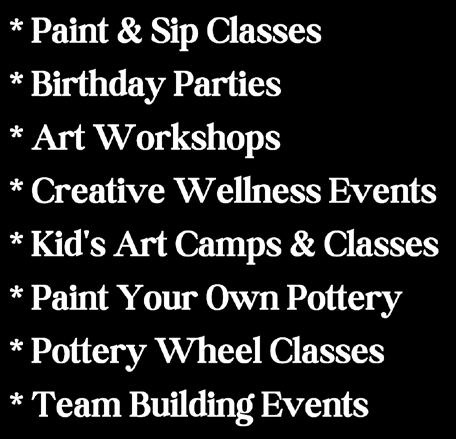

Kids are always expressing themselves creatively, but as we grow older, many of us spend less time making art. That being said, there’s a reason why adult colouring books have become hugely popular in recent years. Being creative helps our brain think in new ways and working on something that inspires us can be very meditative. Art helps take our minds off stress by helping us to fully focus on the task-at-hand. There are many ways to get artsy, from making beautiful paintings to experimenting with new makeup looks or recipes in the kitchen. No matter the canvas, try including creative time in your schedule at studios like Art Nest.

Consider incorporating a long bubble bath into your weekly routine. Create your own at-home oasis with candles and essential oils. Bedside Manor has a wide selection of beautifully scented products. If you can find eucalyptus leaves, hang them in your bathroom and enjoy their aromatic fragrance, which is often associated with stress relief. You can add peaceful music or even pour yourself a glass of wine. The most important thing is that you make it all about you! Having a bath can create the calm and serenity needed for a night of deep, restorative sleep.
Having your hair done is a real confidence booster and a great excuse to sit down and unwind for a few hours! Who doesn't love a hair wash and relaxing scalp massage? Uniko Eco Salon offers a wide range of services to help you look your best, including haircuts, colour and blow-dries. Or why not book an additional treatment such as Hair Botox or a keratin treatment from Uniko uses natural hair products that are cruelty-free and vegan, so you are also doing your bit for animal welfare and the environment. Men don’t need to feel left out either and can take advantage of haircuts, grooming services and even facials.
If you’re feeling down, one of the best things you can do is try something new. Challenge yourself with a new hobby or learn a brand-new skill. Getting outside of your comfort zone doesn’t


BE MORE CREATIVE. BE MORE YOU.
mean putting a ton of pressure on yourself. Keep things fun and discover new passions! Maybe you want to join a recreational sports team or take a drawing class. Perhaps you want to cross something off your bucket list, like learning how to dive. Check out the ‘Social Clubs’ and ‘Sports & Fitness’ pages on www. caymanresident.com for some inspiration. The possibilities are endless!
According to the Huffington Post, the average person will spend 26 years of their life sleeping and another seven trying to fall asleep! Sleep is a massive part of our lives and it’s not something that should be overlooked. Daily stresses, multiple night wakings from children and scrolling through our phones before bed can all translate to an empty tank. Dr Matthew Walker, the author of ‘Why We Sleep’, notes that we need at least six hours of uninterrupted sleep per night for our DNA to regenerate and between seven and nine hours of sleep for optimal mental and physical health. Rest well in quality men and women's sleepwear from Vy’s Closet.

Social media apps like TikTok, Instagram, Facebook and Twitter are wonderful in many ways, but the desire to constantly stay connected can also have a negative impact on mental health – so why not schedule routine breaks? Whether it’s one full day a week or every other weekend, stepping away from scrolling will allow you to be more present in the moment! Try turning your
phone display to greyscale. This removes all colour from your screen which is a simple idea, but one that tricks our brains which are attracted to anything bright and eye-catching. The idea is to make your phone less fun to use; social media becomes a stream of gloom and games lose all their stimulating visual appeal.
Clear your head of chaos by incorporating meditation into your routine. At first, it can be challenging to switch off your brain, but practising for even five minutes every day will help you create more calm and order in your life. Apps like ‘Headspace’ and ‘Calm’ provide guided meditations that will help you on your journey towards more mindful moments. Meditation is a fantastic self-care tool because it helps manage feelings of depression and anxiety while also igniting important sentiments around gratitude and self-love.



Put on your cosiest clothes, wrap yourself up in a blanket, switch on the television and watch that new Netflix series everyone is talking about. Self-care doesn’t always mean finding new hobbies or developing new habits. Don’t feel guilty about not being productive during your time off. Sometimes what we need most is simply a night on the couch with a fun-filled movie, some popcorn and comfy lounge or sleepwear from Vy's Closet.

Whether you love thrillers, fantasy or romance, a good book can
transport you to another world. Sit back, relax and sink into the story. Head to Book Nook in Galleria Plaza, or Next Chapter in Camana Bay and choose a title from their vast selection!
Cayman is a vacation destination, and we are lucky to have an abundance of hotels, condos and cottages on-Island. Choose from five-star hotels on Seven Mile Beach or escape to the tiny island of Little Cayman for a weekend away. If you’re looking for some peace and serenity, rent a cottage in the Eastern Districts. If you have adventure in mind, why not try rock climbing amidst the rugged beauty of Cayman Brac's caves? Escape the daily grind and re-create the best parts of a getaway without straying too far from home. No crazy airport transfers, no jet lag… just a little change of scenery and a moment to unplug and unwind.
Yoga is a workout for the body and the mind. Bring your focus back to your breath by participating in a restorative yoga class. Whether you prefer a heated yin session or a vinyasa flow, yoga is the perfect way to add a bit of Zen to your life. Practise at home with the Down Dog or the Asana Rebel app or head to a yoga class at one of Grand Cayman's many very good yoga studios. When you get on the mat, you’ll feel the connection between your mind, body and breath start to blossom.
Research has shown that one of the best ways to reduce anxiety and improve your overall wellbeing is to write a list of the things
you are grateful for. Keeping a Gratitude Journal helps you gain a new perspective on what is important to you and what you truly appreciate in your life. By noting what you are grateful for, you gain clarity on what you want to have more of in your life, and what you can cut from your life. At the end of each day, spend 10 minutes recording your appreciation; it can be as general or specific as you want. You will find lovely notebooks in Book Nook, Next Chapter and Kirk Market.
Pamper yourself with a massage, facial or reflexology at one of Grand Cayman's very good health and wellness spas. Try Royal Thai Beauty & Spa where you can choose from a variety of massages like hot stone, head and scalp, foot reflexology, lymphatic drainage, sports massage, traditional Thai massage or deep tissue, to name a few. You can also target your most pressing skin concerns and improve the health of your skin with a professional face treatment. Emerge more relaxed with healthier skin and a fresh appearance.


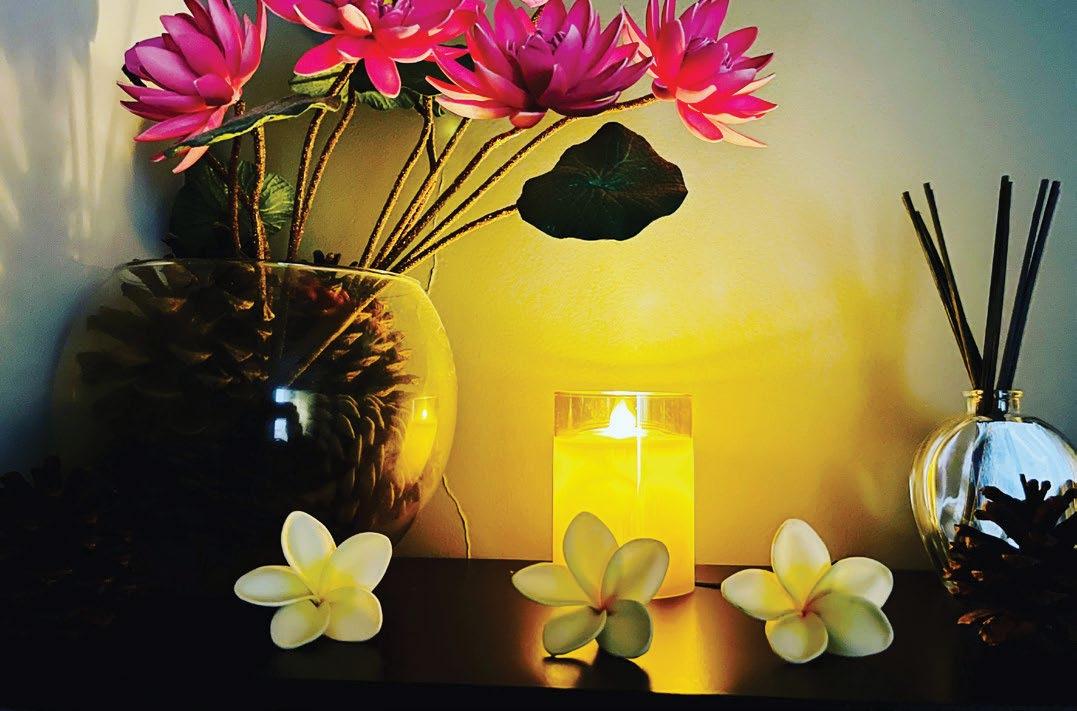

Sometimes the hardest thing to do is carve time away from family and friends to invest in yourself. It can feel self-indulgent and guiltridden, but our mental health should be seen as a priority. The next time somebody asks you to do something for them just as you are on your way out to a yoga class or the phone rings as you are sitting down with a good book, think to yourself: can I put myself first here? Give yourself permission to say yes and reap the benefits.
The two great transitions in a woman’s life – puberty and menopause – are fraught times when our bodies do strange and unpredictable things and our moods can take us completely by surprise. But unlike puberty, menopause is often regarded as somehow unsavoury – an issue best kept under wraps. The taboo surrounding menopause means many of us are woefully ill-informed about an unavoidable phase in our lives.
Not only do women not talk about the more difficult aspects of the menopause amongst themselves, but it’s so overlooked that medical practitioners in the US and UK receive no mandatory training in it, and employers often offer no support to women going through it.
Granted, some women will sail through the menopause with no adverse effects, but at least 25% suffer debilitating symptoms –both physical and mental – that seriously impact their quality of life and sometimes their ability to continue working. However, because it’s not talked about, many women don’t know that they can safely get relief from the symptoms and decrease their risk of other diseases at the same time.
Thankfully, that wall of silence is starting to crack. Celebrities and TV personalities are opening up about their experiences of the menopause, how it is affecting their lives, and their challenges in getting treatment. And this is sparking a wider conversation and reassuring women all over the world that there is no shame in talking about this inevitable experience.
Quite simply, the menopause refers to the end of a woman’s menstrual cycle. A woman is considered menopausal when she has not had a period for more than 12 months. The average age for this is 51, although it can vary by several years earlier or later. Menopause usually lasts between five and seven years, but again, it can be longer or shorter. Once a year has passed without seeing a period, a woman is considered postmenopausal.
For some women, periods will stop suddenly, but many others will experience irregular periods that may be heavier or lighter than normal, some years before they stop completely. This phase, when hormone levels are fluctuating, is perimenopause and is often accompanied by menopausal symptoms. Perimenopause usually begins in your 40s. "The distinction is not particularly important though as it relates to treatment," says Dr Rhonda Reeves, OB/ GYN at the Health Services Authority. "As any treatment seeks to manage the symptoms, rather than the stage a woman is in."
Menopause is driven by hormones, or rather a lack thereof. As we approach the end of our fertile years, our ovaries slow down and eventually stop functioning: not only do they stop producing eggs, but they also stop producing the hormone oestrogen. Because there are oestrogen receptors in every tissue and organ in the body, oestrogen affects not only our menstrual cycles and reproductive organs, but also our urinary tracts, heart and blood vessels, bones, breasts, skin, hair, mucous membranes, pelvic muscles and brains.
TOP TIP: Set up a support group with friends so that you can share symptoms and grumbles about the menopause. There is also a Facebook group called 'Cayman Hot Flush Menopause Support' which is a kind and friendly support group for women wanting to know or share information about menopause. Being able to share your frustrations with others who are going through the same experience is great for your mental health.

So, when levels of this vital hormone decrease, we feel it in a perplexing variety of ways – so much so that many women fail to connect the symptoms they are experiencing with the menopause.
The most recognised physical symptom – and for many, the most debilitating – are the hot flushes. These tend to affect the upper part of the body and usually occur later in the day, but they can also occur during sleep as night sweats. This can end up causing fatigue and, in turn, lead to a low mood and irritability.
However, the symptoms women experience varies widely and present in different combinations. Other physical symptoms include aching joints, weight gain, tingling skin, headaches and heart palpitations. Because the tissue of the bladder thins during menopause, symptoms can also include frequent UTIs, overactive bladder and incontinence. More difficult for many to talk about are the loss of libido and vaginal dryness, which is also caused by thinning tissue and, if not treated, can make sex painful and day-to-day life uncomfortable.
In addition to these unquestionably unpleasant physical symptoms, are the severe mental and psychological symptoms that can accompany this time. An estimated 40% of women do not even know about these, so that when gripped by extreme mood swings, anxiety, anger, poor memory and mental fog, they think they are losing their minds. These symptoms don’t only impact relationships, but also leave some women feeling unable to continue in their jobs or to pursue more senior career roles.
Too many women soldier on, ignoring the symptoms as best they can, looking forward to the calm after the storm. However, by not seeing a medical professional, women are not doing themselves any favours, as treatments can dramatically improve one's quality of life.
The best time to see someone is as soon as you start to feel symptoms, but if your doctor is not knowledgeable about menopause, seek out a medical professional who specialises in women’s health (for example, an OB/GYN).
GPs may hear 'insomnia, low mood, weight gain, anxiety and irritability' and assume they are dealing with depression, rather than menopause. Equally, perspiration, hot flushes, low mood and depression can also be a sign of thyroid issues, so it’s essential to rule out other conditions.
The other reason to see a doctor, whatever your symptoms, is because certain health risks increase post-menopause.
After the symptoms abate, low oestrogen levels stay with women for the rest of their lives. As Dr Reeves emphasises, post-menopausal women are, in effect, living with a hormone deficiency. That deficiency can affect their health in multiple ways: most importantly, it dramatically increases women’s risk of osteoporosis, heart disease and Alzheimer’s.
Up until a century or so ago, when life expectancy was much lower and women tended not to live long beyond the menopause, this hormone deficiency was not particularly significant. These days, however, many women will live up to a third of their lives after the menopause, so it’s essential to consider the long-term
The single most effective treatment available for menopausal symptoms is Hormone Replacement Therapy. The aim of HRT is not to delay or stop the menopause but rather to manage the symptoms by topping up hormone levels.
There are two main types of HRT: oestrogen-only and combined oestrogen and progesterone or progestin (a synthetic form of progesterone). Women who have had a hysterectomy can take oestrogen-only HRT, but because oestrogen can cause a thickening of the uterus and increase the risk of endometrial cancer, women who still have their wombs are also given progesterone to reverse that risk. Occasionally, testosterone is prescribed for sexual issues.
Oestrogen is best delivered through the skin so that it is not metabolised by the liver; this can be in the form of patches, gels or sprays. Progesterone is usually taken as a capsule, whereas testosterone mainly comes in gel form. A naturopathic nutritionist might recommend that you take a DHEA tablet which is a hormone that helps your body produce other hormones, including testosterone and estrogen.
There is no one-size-fits-all HRT treatment: every case is treated individually and it may require trying different formulations to find the right dose and combination for the individual.
HRT is best started at the onset of symptoms. While the standard recommendation is to administer the lowest dose for the shortest possible time (not more than five years), a growing number of women’s health experts like Dr Reeves advocate taking HRT even if you have mild symptoms and, in some cases, staying on it long-term, to reduce your future risk of osteoporosis, heart disease and Alzheimer’s.
Available since the 1960s, HRT was widely prescribed until the early 2000s. Then, in 2002, a large-scale study by the Women’s Health Initiative, which evaluated the effect of HRT on health in postmenopausal women, published its preliminary findings. These showed a link between HRT and increased risk of breast cancer, stroke, heart disease and clots – although it was the breast cancer link that made headlines. Almost overnight, millions of women stopped taking HRT and doctors around the world stopped prescribing it.
Those initial findings have been widely discredited, and investigators involved in the study now emphasise that it was poorly designed and that the risk identified was not statistically significant. But it is the sensational headlines that have stuck in people’s memories and kept women in fear of HRT. Twenty years on, only a minority of menopausal women now take HRT.
There have been several studies since, some of which show an increased risk of disease, and others that do not – but that should not be cause for alarm. "The worst-case scenario," Dr Reeves says, "is that there might be a slightly increased risk, but it’s definitely not as much of a concern as it’s made out to be. It’s been blown out of proportion by the media."
She states that the benefits of HRT in healthy women with symptoms of menopause generally outweigh the risks when started before age 60 and within 10 years of menopause. The key points to bear in mind regarding the risks are:

• Women on oestrogen-only HRT do not have an increased risk of breast cancer.
• Starting HRT before age 60/within 10 years of the onset of menopause is preferable. Starting at age 70+ carries more risk.
• HRT does not increase your risk of cardiovascular disease and oestrogen-only HRT may offer protection.
• There is a very small increased risk of stroke associated with oral oestrogen but most doctors now prescribe transdermal oestrogen.
• HRT is widely accepted as protecting against osteoporosis.
• Menopause specialists agree that the benefits of HRT far outweigh the risks.
Stopping HRT can cause menopause symptoms to return, particularly if you do so suddenly. It may be best to reduce the dosage gradually. If you’re on HRT and want to stop, discuss it with your doctor first and decide on the best approach.
Body-identical hormones have the same molecular structure as the hormones in your body and are derived from yams or soy. Estradiol and micronised progesterone are body-identical hormones usually prescribed by doctors, including Dr Reeves, and are available at the HSA Pharmacy.
Whether you choose to take medication to assist you through the menopause or not, certain lifestyle changes will also help to manage the symptoms.
Exercise: At a time when low mood and depression can be a daily battle, physical activity is a great way to release endorphins and can also be a great sleep aid for those struggling with insomnia. Weight-bearing exercise strengthens bones and protects against osteoporosis and any aerobic exercise will help to protect against heart disease.
Diet: It’s important to support your body through this change by giving it the nutrients it needs. Eat plenty of plant-based foods for fibre and lean proteins. Avoid excessive salt, which can adversely affect bone density, and make sure you eat calcium-
rich foods to keep your bones strong. To keep your heart healthy, avoid saturated fats.
Pelvic Floor Health: Keeping your pelvic floor muscles strong is the best way to prevent or control urinary incontinence and pelvic prolapse, which can be a distressing effect of menopause. The women’s health experts at the HSA’s Women’s Health and Therapy Centre, Cayman Physiotherapy and Elevation Health & Physiotherapy can all create individualised treatment plans to help women in this stage of life.
Caffeine and Alcohol: Both of these can contribute to hot flushes, mood changes, interrupted sleep and the need to urinate more frequently, so are best consumed in moderation.
Supplements: To keep your bones strong, it may be a good idea to up your calcium and vitamin D intake with supplements once you enter menopause.
For those who prefer natural alternatives to HRT, there is a huge choice of supplements that claim to relieve mild menopause symptoms, particularly hot flushes. Black cohosh, red clover, soy, flax seeds and ginseng are some of the most popular ones. However, there is no solid evidence to support the claims. In fact, black cohosh is not recommended for anyone with liver issues, and phytoestrogens, such as soy, may be risky for women who still have their uterus. Remember, herbal supplements can interact negatively with other medications or cause side effects, so consult your healthcare provider before using supplements. You can also consult with HSA’s complementary and alternative medicine doctor, Dr Irka Ebanks, about other available natural remedies. Menopause can be a messy, confusing and unpredictable time. The fact that it often coincides with a phase in women’s lives when they may also be dealing with grouchy teenage children, ageing parents, marriage breakdowns and reaching the peak of their careers, makes it all the more stressful. And the lack of conversation surrounding the topic also adds an unnecessary extra burden. But this transition isn’t one we have to grin and bear alone and in silence: we can – and should – be more open about it, both at home and at work. And rather than enduring it in ignorance, we should seek out medical professionals who are knowledgeable about menopause, and do our own research, so that we are armed with facts, not fiction.
For a list of doctors and clinics in Cayman that specialise in women's health, please see page 71.
TOP TIP: Managing Hot Flushes in the Cayman Heat: Keep hydrated, wear loose layers, and keep a towel in the freezer. When you feel a hot flush coming on turn the air con down, put your cold towel on your face, position yourself in front of a standing fan – or get a hand-held fan – and if all else fails, put your head in the fridge!
Further Reading
• Menopause and Me www.menopauseandme.co.uk
• Menopause Matters www.menopausematters.co.uk
• My Menopause Doctor www.menopausedoctor.co.uk
Clean teeth and healthy gums certainly make for a bright smile. But maintaining good oral health is not only about appearances – it’s important for your overall health. In the past decade or so, researchers have linked poor oral health to several diseases. It’s what is now being referred to as the body-mouth connection.

When you visit the dental hygienist, they are doing more than simply cleaning and polishing your teeth. “We look at your face, neck and jaw first to assess whether there have been any changes, then we look inside your mouth at your teeth, and also at the soft tissues – tongue, cheeks and gums,” explains Lauren Chapman, dental hygiene therapist at Cayman Dental.
One thing dental hygienists are looking for is signs of mouth cancer – there is now a tool that can screen for this – but they are also checking for swelling, bleeding or pocketing –a space between the teeth and the gum – which all indicate periodontal disease, or gum disease. Gum disease is very common: around 50% of adults over age 30 suffer from it, and the incidence increases with age. If left untreated, it can have serious consequences both for the teeth and for other organs in the body.
Gum disease occurs when bacteria build up on the teeth and gums in the form of plaque. Regular brushing and flossing will remove plaque, but if left it hardens into tartar along the gum line, which can only be removed by a hygienist.
Acids in the plaque and tartar attack the enamel on the teeth
and irritate the gums, leading to inflammation and bleeding. The early stages of gum disease – known as gingivitis – may be painless and therefore go unnoticed by the patient, Chapman notes, so regular dental hygiene appointments are important for early detection, when the condition is still reversible. If it is not treated, gingivitis can progress to periodontitis: gums recede, the bone that supports the teeth is lost, and teeth then become loose and may even fall out.
It’s not only the risk of tooth loss that makes it so important to catch and treat gum disease early on. Numerous studies have found associations between gum disease and other systemic diseases such as diabetes, heart disease, respiratory disease and, more recently, Alzheimer’s and dementia.
The theory is that the mouth is the gateway through which most bacteria enter the body. In a healthy mouth, there are enough good bacteria to fight off the bad, but when gum disease is present, bad bacteria proliferate and can then enter the bloodstream and travel to other parts of the body.
Diabetes: The connection between oral health and diabetes is the one that has been known the longest, Chapman says,
and it’s a bi-directional relationship. People with diabetes are more likely to have gum disease, as high blood sugar levels lead to oral bacteria multiplying. At the same time, gum disease may impair glycaemic control, exacerbating diabetes. It’s therefore essential that diabetic patients look out for and manage gum disease – particularly as periodontal treatment has been associated with improved glycaemic control.
Heart disease: People with gum disease are two to three times more likely to have a heart attack, stroke or other cardiovascular event than those with healthy gums. Several studies have found an association between the two conditions, and although no direct causal link has been established, it is thought that inflammation and bacteria in the gums may travel to the arteries causing them to narrow, or infection may reach the heart’s valves.
Respiratory disease: Various studies have confirmed a strong association between gum disease and respiratory diseases such as pneumonia, bronchitis, and emphysema, possibly as a result of bacteria multiplying in the mouth and moving into the respiratory tract. Poor periodontal health and oral care are particularly linked to an elevated risk of developing chronic obstructive pulmonary disease.
Alzheimer’s and dementia: Some studies have found that the bacteria that cause gum disease are also associated with the development of Alzheimer’s and other dementias.
Others have linked gum disease with a faster cognitive decline in those diagnosed with dementia. Again, there is no clear causal link, but it is possible that better dental hygiene could help slow the progression of dementia.
Good oral hygiene clearly has numerous benefits. So, what is a good routine to follow?


“Brush your teeth twice a day, for three minutes each time. Use a rechargeable electric toothbrush and pay attention to the gum line as well as the teeth,” Chapman advises. “You should also floss once a day to reach the surfaces that brushing doesn’t reach.”
Regular visits to a dental hygiene therapist are also an essential part of preventive dental health. For most, a visit will be scheduled every six months, but if there are oral health issues, more frequent appointments may be required. And, Chapman adds, it’s never too early for an oral hygiene appointment – as soon as a child has teeth, they should start to visit the dentist.

Although further research is required to establish the exact mechanisms that connect oral and overall health, taking good care of your teeth and gums, by brushing, flossing and seeing your hygienist regularly, can clearly help you live a healthier life.

Developing an exercise routine during pregnancy is a great way to manage not only your physical health, but your mental health too! Taking the time to move your body will help reduce stress and help you feel energised and motivated. Regular exercise during this period is completely safe and recommended by obstetricians, but there are some guidelines to follow to ensure your and your baby’s safety. Lindsay Bridgeman from Cayman Physiotherapy has provided Cayman parents with a guide on the best ways to exercise during pregnancy, plus suggestions for after your baby arrives!
Pregnancy is the perfect time to adopt a healthy lifestyle and give your baby a great start to life. Regular exercise during pregnancy helps control excessive weight gain, improves cardiovascular fitness and decreases the risk of gestational diabetes. Exercise can also help you sleep better, increase your energy levels, improve your mood, reduce back pain and help prepare your body for childbirth.
The NHS recommends that pregnant women should aim for 150 minutes of moderate intensity physical activity each week. This should be spread out over at least three sessions. Even 10-minute sessions are great, and being active every day is encouraged.
If you are experiencing any pregnancy complications you must speak to your obstetrician or midwife first.

If you are already active then keep going! Most women will have to adapt as the pregnancy progresses – remember, don’t bump the bump! If you’re not already active then start gradually. This is not the time to start any new strenuous exercise, but it is a good time to get moving and improve strength in preparation for labour and delivery. Remember to stop exercising immediately if you feel dizzy or lightheaded.
Pelvic Floor Exercises
During pregnancy your pelvic floor muscles will loosen due to hormonal changes in your body. This, along with your growing baby pressing on your bladder, may cause you to leak urine when you cough, laugh, sneeze or exercise. Doing daily pelvic floor exercises, such as Kegels, will strengthen these muscles and help reduce the chance of any accidents.
This is the perfect activity for mums-to-be. Not only do you feel weightless, but it takes all the pressure off your joints. Don’t forget that you can still overheat in the water, so be careful not to overexert yourself.
Walking is one of the best cardiovascular exercises for pregnant women. It strengthens the heart and lungs and builds stamina.
These gentle exercises help increase strength, balance and flexibility. Prenatal Pilates and yoga breathing techniques might also help you reduce or manage shortness of breath later during pregnancy.
As a rule of thumb, the ‘talk test’ is a good check when carrying
out your chosen sport or activity – you should be able to hold a conversation as you’re participating. And don’t forget to keep hydrated, especially in the Cayman heat!
Be sure to steer clear of scuba diving, skiing, climbing, horseback riding, Bikram Yoga and any contact sports. Also avoid exercising on your back after the first trimester as the weight of your bump presses on the main blood vessel bringing blood back to your heart. This could cause low blood pressure and make you feel dizzy.
Some mums are keen to start exercising soon after pregnancy, but it’s important to take things slow. The idea of ‘bouncing back’ is an outdated concept and women need to take the time to heal and recover without any pressure to look or feel a certain way.
Exercising before you’ve healed can also lead to all sorts of problems, from incontinence to even a prolapse. How soon you can exercise again will depend on what type of birth you had.
Current guidelines advise waiting three months before returning to high impact activity. After a caesarean birth, mums may be advised to avoid high impact activity for up to six months.
Here is some basic advice for the first six weeks, but remember to listen to your body.
Week 0-2 Pelvic floor exercises, basic gentle core exercises (pelvic tilts) and slow walking.
Week 3-4 Increase the time and speed of your walks and keep doing your pelvic floor exercises multiple times a day.
Week 5-6 Now you can add low impact exercise like the stationary bike (if that feels comfortable) or cross trainer but start gradually. Keep going with the pelvic floor exercises!
After your six-week postnatal check up with your obstetrician or midwife, it is a good idea to see a specialist women’s health physiotherapist for an assessment prior to embarking on a vigorous exercise programme. This involves the therapist checking your abdominal and pelvic floor muscles as well as any other postnatal issues. Based on this assessment, you can have an exercise programme tailored to your postnatal needs and you will get personalised advice for returning to the activities you enjoy.
Urinary Leakage
This is completely normal after childbirth as pelvic floor muscles are weakened during pregnancy and childbirth. It’s advised that all mothers have their pelvic floor assessed after childbirth, no matter how they delivered their baby. One in three women suffer from urinary incontinence after pregnancy, but in most cases, it can be easily fixed with the correct treatment.
This is the separation of the abdominal muscles that happens when your growing womb pushes the muscles apart, making them longer and weaker. It’s very common but often easily fixable. Getting help from a women’s health physio can help you restore the muscles and prevent problems in the future.
This can be a problem after birth as a result of hormonal changes. It can then be exacerbated by holding a newborn for long periods of time and adopting a bad posture while breastfeeding. Seek specialist advice to prevent back and pelvic pain becoming a long-term problem.
TOP TIP: Breastfeeding isn’t a barrier to exercising after childbirth. It’s important to wear a well-fitted supportive sports bra and to stay well hydrated.
Lindsay Bridgeman is a licenced physiotherapist and owner of Cayman Physiotherapy. Lindsay has worked as a physio in the Cayman Islands for more than 30 years, after having trained in Scotland. While Cayman Physiotherapy has a multidisciplinary team tackling all aspects of physiotherapy, Lindsay and her women’s health team specialise in the treatment of pelvic pain, incontinence, pelvic organ prolapse and pre and postnatal musculoskeletal problems. Visit www. caymanphysio.com to learn more.
Phone: 345.949.8828
WhatsApp: 345 928 8828
Email: womenshealth@caymanphysio.com Web: www.caymanphysiotherapy.com

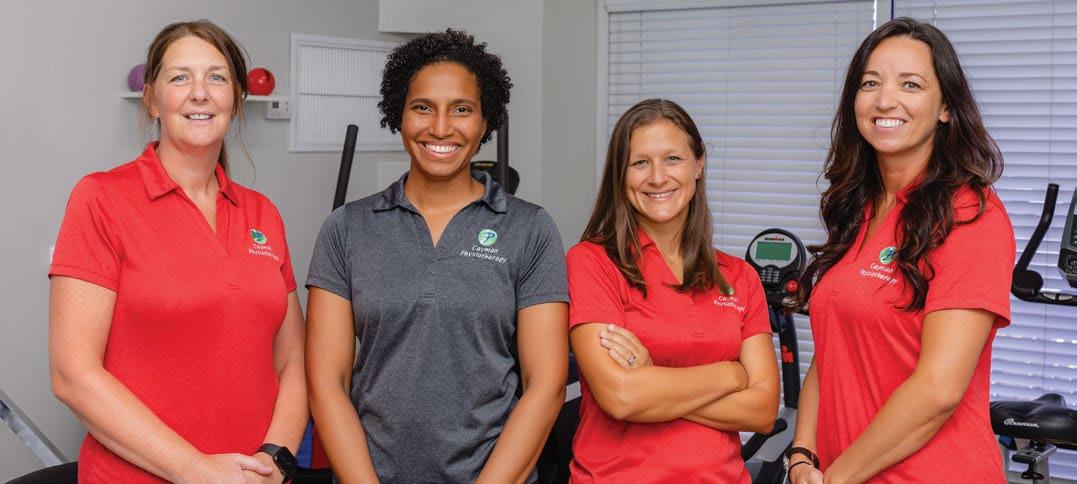
The Heart of Wellness shows you how to optimise the workings of the body and mind so that the bliss of your true nature can be revealed. This book explores the benefits of Eastern and Western medical practices coming together as a holistic solution for any disease.

The Spanish Tutor is a fun and easy read. Prepare to be swept away as you embark on a love story that boasts adventure and "mucho" romance. By the end of this read you'll be ready to book a plane ticket to Mallorca and be wishing you had taken up Spanish at university!

In Lighter, Yung Pueblo demonstrates how we can all move forward in our healing, from learning self-compassion to letting go to becoming emotionally mature and reconnecting with the present.

Moodkit Improve your mood with the wisdom and guidance of MoodKit at your fingertips! Developed by experts, it provides professional psychology tips and tools for everyday life.

US$4.99 per year.
We are all here for a purpose. We are more than enough. We just need to believe it. This gorgeous, lyrical ode to loving who you are, respecting others, and being kind to one another comes from Empire actor and Caymanian Author Grace Byers.
Through this easy-to-read and beautifully illustrated guide, Dr Markey teaches girls how to nurture both their mental and physical health to improve their own body image and shows the positive impact they can have on others, so that they can go out into the world feeling fearless.
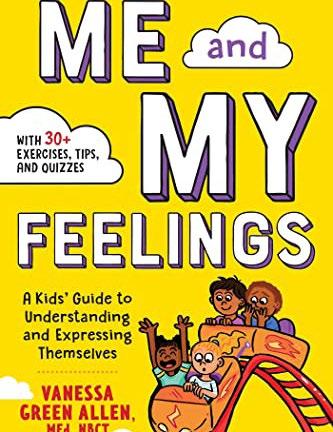


Sometimes, emotions like anger, jealousy or excitement can seem too big to keep inside. Me and My Feelings is here to teach your children how to calm those strong emotions so that they don’t feel overwhelmed and can continue to take on the world.
WYSA is the best mental health app for teenagers. It combines anonymous, personalised AI chat with guided support from qualified mental health professionals. It's designed for teens aged 13-18. Talking to WYSA AI is free

Vy's Closet Lingerie Boutique
Bayshore Mall, Downtown GT. Tel: (345) 943 2727 Web: www.vyscloset.com Sells women's and men's underwear, sexy lingerie, shapewear, loungewear, sleepwear and swimsuits. They also offer a bra fitting service and personal styling.
Da Vinci Centre
Park Place Plaza, West Bay Road. Tel: (345) 943 2002 Web: www.davinciwellnesscentre.com
Botox, fillers, Carbossi Therapy, microneedling, laser services and more.
Dr Nadine Yammine MD, MSc, FRCSC – Integra Healthcare Ltd
Unit 17, The Strand, Canal Point Drive, SMB. Tel: (345) 745 7450 Email: ENT@integra.ky
Web: https://caymanaesthetics.ky/ Minimally invasive procedures and modern approaches for aesthetics and cosmetic procedures, including Dysport, laser treatments, medical grade facial peel, body sculpting (truSculpt iD) and more.
Dr Rebeca de Miguel MD PhD
Derma Ltd, The Grove, 1358 West Bay Road. Tel: (345) 233 1152 Web: www.derma.ky
Dermatological intervention and treatment for clinical and cosmetic issues and procedures.
Art Nest Creative Studio
Elizabethan Square, 80 Shedden Road. Tel: (345) 927 2258 Web: www.artnestcayman.com Paint & Sip classes, team-building socials, pottery wheel workshops, kid's camps, birthday/private events.
345 Personal Training
Tel: (345) 926 2117 Email: 345personaltraining@ gmail.com.
Align
45 Market Street, Camana Bay. Tel: (345) 640 5050 Web: www.align.ky Pilates studio with pre and postnatal classes.
Anytime Fitness
82 Market Street, Camana Bay and Harbour Walk, Red Bay. Tel: (345) 946 4748 24-hour gym.
Balance Cayman
Caribbean Plaza, West Bay Road. Tel: (345) 326 8111 Web: www.balancecayman.com.
Bliss Yoga Cayman
The Strand, Canal Point Dr. Tel: (345) 949 9642 Web: www.blissyogacayman.com.
Cayman Physiotherapy
Two locations: Suite 26 Pasadora Place, Smith Road and West Shore Center, West Bay Road. Tel: (345) 949 8828 Web: www. caymanphysiotherapy.com Physio-led Pilates, 1:1 and small classes, including pre and postnatal specialised classes.
Energy Essential Fitness
Cricket Square. Tel: (345) 946 6006 Web: www. energycayman.com.
Fitness Connection
Glen Eden Road, South Sound. Tel: (345) 949 8485 Web: www.fitness.ky.
Powerhouse Gym
861 Crewe Road, Red Bay. Tel: (345) 946 5464 Web: www.kingssportscentre.com.
The Performance Lab
68 Mary Street, George Town. Tel: 345 929 4555 Web: www.fnsports.ky. A full-service gym that also offers personal training and a range of classes including kick boxing, row fit, lunchtime work outs, strength and conditioning and more.
Ryde Cayman
The Crescent, Camana Bay. Tel: (345) 746 7933 Web: www.rydecayman.com.
World Gym
Snooze Lane, Seven Mile Beach. Tel: (345) 949 5132 24-hour gym.
Royal Thai Beauty & Spa
Carrington Place, West Bay Road (next to Grand Pavilion). Tel: (345) 769 8970 Email: relax@royalthai.ky Offers a wide range of body treatments, facial treatments, beauty spa packages and couple or honeymoon packages.
Uniko Eco Salon
3 Carrington Place, West Bay Road. Tel: (345) 769 5400 Email: unikosalon@gmail.com Web: www.unikosalon.com An eco-Salon which uses eco-friendly products for cuts, hair Botox, colour and styling.
See page 173 for a full list of General & Family Doctors.
Andrea Hill BCHN MS BASc Tel: (345) 938 4246 Web: www. andreahillnutrition.com. Board Certified in Holistic Nutrition, specialises in the menopause. Offers the Dutch Hormone Programme geared towards women over 40 years old.
Cayman Clinic Medical Centre
439 Crewe Road, George Town. Tel: (345) 949 7400 Email: cayman.clinic@gmail.com Web: www.caymanclinic.ky.
George Town Hospital - Women's Health Clinic 95 Hospital Road, George Town. Tel: (345) 244 2649 or (345) 244 7627 Web: www.hsa.ky.
Cayman Physiotherapy
Two locations: Suite 26 Pasadora Place, Smith Road and West Shore Center, West Bay Road. Tel: (345) 949 8828 Web: www. caymanphysiotherapy.com Offering an innovative women's health programme, pre and postnatal Pilates, 1:1 women’s health specialist physio, specialist postnatal checkups, acupuncture, massage therapy and more.
Elzke Hoehler PT, OMT & Certified Pelvic Health Therapist
Elevation Health & Physiotherapy, 2nd Floor, Fidelity Financial Centre, 1 Gecko Link. Tel: (345) 623 6663 Email: info@ehphysio.ky Web: www.ehphysio.ky Assisting women with all aspects of personal healthcare at every stage of life.
Integra Healthcare Ltd. - Women's Health Suite
The Grand Pavilion Commercial Centre, Hibiscus Way, 802 West Bay Road Tel: (345) 745 7450 Email: team@integra.ky Web: www. integra.ky. Comprehensive range of women’s health services including fertility, obstetrics, high-risk obstetrics and gynaecological services.
Total Health
The Grand Pavilion, West Bay Rd. Tel: (345) 333 2222 Pharmacy: (345) 333 4444 Email: info@totalhealth.ky Web: www.totalhealth. ky A personalised approach to preventative healthcare specialising in ophthalmology, physiotherapy, dental care, nutritional management, medical imaging and an onsite pharmacy and laboratory.
Parkway Academy provides in-person workshops and classes in social skills, dining etiquette, modern manners and real value ‘life skills’ to children, teenagers, and young adults. The classes aim to instil children with a sense of confidence that will benefit them through life.
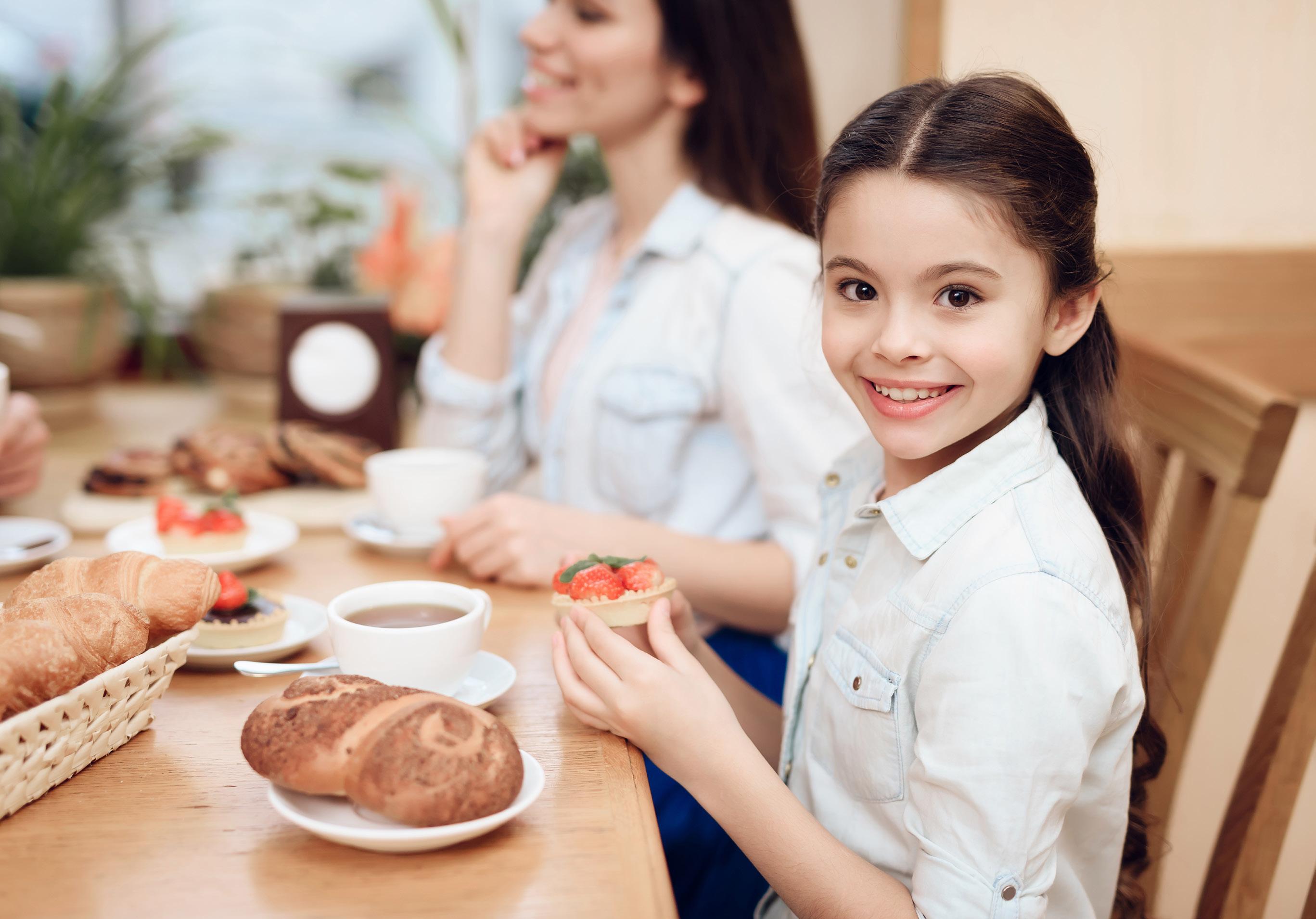
Classes offered include the following:
• Etiquette Workshops and Classes
• Mini Manners for Little Leaders
• Basic Manners and Table Manners
• Tea with Ms. Karen Marie
• The Saturday Club and many more.
Workshops and programmes available:
• Social Skills
• Conversation skills
• Teen Interview and College Prep
• Resume Building

• Entering the Workforce and much more.
Private and group classes available.

The Department of Education and the Alex Panton Foundation are on a mission to improve the mental health of at-risk children and young adults in the Cayman Islands. Their aim is to teach children the social and emotional skills they need for life. Sunshine Circles is an adult-directed, structured play therapy that incorporates playful, cooperative and nurturing activities that enhance the emotional wellbeing of children. Learning takes place on a non-verbal level, and instead of talking about positive social behaviour, the group leaders and children do positive social interaction. Learn how to do it and why it is so effective.
“It

Modern brain research, and the field of neuroscience, have shown that a strong attachment between a child and the important adult in their life is the basis of lifelong good mental health. A strong attachment to a kind, loving and patient adult is the path on which children come to understand, trust and thrive upon in their world. Over 50 years ago, psychologists recognised that parents who played with their children and initiated developmentally challenging but also tender and nurturing activities, helped their children form an attachment and feel secure, cared for and worthy. If an adult actively engaged with their child and communicated love, joy and safety, then it taught the child resiliency in the face of adversity.
Psychologists also realised that if children were unable to meaningfully connect with a caring adult in childhood, then it led to a catalogue of social, emotional and educational issues later on. The name they gave this important development was Social and Emotional Learning (SEL).
Educators, who are on the front line of seeing how children regulate their behaviour and learn, saw that some children could recognise and manage their emotions and demonstrate caring and concern for others, while other children could not. They realised that without social and emotional learning, some children could not establish positive relationships, make responsible decisions or handle challenging situations constructively. This led to children exhibiting challenging behaviour, not engaging in school and not being motivated to learn and succeed, which in turn led to self-destructive behaviours and the child’s mental health deteriorating.
Our emotions and relationships are crucial to how we learn and how we use what we learn to influence our work, family and lives. Emotions enable us to generate an active interest in learning and help us sustain our engagement in it. However, unmanaged stress and poor regulation of impulses can interfere with our attention and memory, and contribute to disruptive behaviour and learning. Moreover, learning is an intrinsically social and interactive process. It takes place with the support
of one’s family in collaboration with one’s teachers and in the company of one’s peers. Hence, the ability to recognise and manage emotions and establish and maintain positive relationships impacts both preparation for learning and the ability to benefit from learning opportunities. Because safe, nurturing, well-managed learning environments are critical to the mastery of SEL skills, they too are essential to children’s school and life success. SEL skills and the supportive learning environments in which they are taught contribute to the resiliency of all children – those without identified risks and those at-risk for or already exhibiting emotional or behavioural problems and in need of additional supports.
So, in a move inspired by Theraplay®, which was developed over 50 years ago and has countless studies proving that its method has a way of reaching children and teaching them how to develop resiliency and form stronger attachments, Dr Stephanie Edwards, an Educational Psychologist who works for the Cayman Islands Government’s Department of Education, sought the collaboration of Dr Lam and the Alex Panton Foundation (APF). Since then, the APF has helped fund Sunshine Circles and the training of 34 teachers and therapists across Cayman’s public schools.
While many therapies and counselling focus on verbal communication, this does not work for all children. Sunshine Circles is a play-based therapy and it is based on four criteria: Nurture, Engagement, Structure and Challenge. The lessons are 99% play and 1% verbal and include touch, food, games and rhythm. They help children feel safe and give them the confidence to regulate themselves. Lessons also help them feel nurtured and give them a sense of achievement.
The goal of the programme is to help those children in need learn how to socially and emotionally connect, and by doing so, they will do better in school and with their academics. Sunshine Circles can be used by children of any age.
For more information on the core concept of Theraplay®, see theraplay.org/what-is-theraplay/core-concepts/ and for more information on Sunshine Circles, see theraplay.org/ training/training-programs/sunshine-circles. For teachers who

is easier to build strong children than to repair broken men.”
(Frederick Douglass, 1855).
are interested in the Sunshine Circles training, please contact The Alex Panton Foundation at info@alexpantonfoundation.ky.
There are some fun, joyful and simple activities which are based on the principles of Theraplay® that you can do at home that will create an ‘in the moment’ connection and help develop closeness. The activities themselves are just vehicles to help with this connection and, through the process of sensitive ‘here and now’ interaction, the child is able to relax and be a child. The activities are led by the adult and are varied, some lively, some quiet and they require few or no materials. As mentioned, there are four main themes that can be seen in everyday ‘good enough’ parenting which lead to healthy development: Structure, Engagement, Nurture and Challenge. Here are some activities which fit into each theme. Do each for a couple of minutes every day at the same time in order to form a regular routine.
1. Cotton Ball Blow – An adult and child cup hands, touch fingers, and blow a small ball of paper or a cotton wool ball from one palm to the other.
2. Cotton Ball Hockey – Sit opposite each other at a table, create a goal with your hands, and try and blow the ball into the other person’s goal. Blow back to try and stop the goal!
3. Mirroring – Stand opposite each other and take turns mirroring the other’s actions.
4. Pop the Bubble – Blow a bubble and catch it on the wand, then have the child pop it with a particular part of the body (e.g. finger, toe, elbow, ear).
5. Stack of Hands – Place your hand palm down in front of your child and have them put their hand on top. Then alternate hands to make a stack. Vary the speed.
1. Hand Clapping Games – Play a clapping game.
2. Row, Row, Row Your Boat – Sing this song with your child and do the actions. Try other songs.
3. Create a Special Handshake – Make up a special handshake together.
4. Beep & Honk – Make a special noise when you touch a specific facial feature or body part. Try and remember which noises go with which body part.
5. Check-Ups – Check body parts, such as nose, chin, ears, fingers, toes and see if they are warm or cold, hard or soft, wiggly or firm. Count freckles, toes, fingers
1. Cotton Wool or Feather – Ask a child to close their eyes and guess/tell you what you have touched their hand with (e.g. cotton wool or a feather?)
2. Cotton Wool Touch – Have the child close their eyes and then touch the child gently with the cotton ball. Have the child open their eyes and indicate where they were touched.
3. Pizza – Draw a pizza on each other’s back. Pretend to knead the dough, spread the tomato, sprinkle the cheese,
add the toppings of their choice, cut the ‘pizza’ with your finger and pretend to take a slice to eat!
4. Weather – Draw the weather on each other’s back. Draw the sun for sunshine, tap the rain with your fingertips, sweep your fingers for the wind and zig-zag them for lightning.
5. Trace a Message – Using your finger, trace shapes or a simple positive message on your child’s back for them to decipher
1. Balloon Tennis – Keep a balloon in the air using specified parts of the body, e.g. head, shoulders, elbows. Choose a goal and count how many you can do in a minute.
2. Bubble Tennis – Blow bubbles between you and the child. Choose one bubble and blow it back and forth between you before it pops.
3. Cooperative Cotton Ball Race – Get on your hands and knees and take turns blowing a cotton ball from one side of the room to the other. Time yourselves and see who can do it faster.
4. Straight Face Challenge – The child has to try and keep a straight face while you try and make them laugh by making funny faces.
5. Karate Chop – Hold a length of toilet paper or newspaper in front of the child and have them chop it in half when you give a signal.
According to research, socially and emotionally competent children and youth are skilled in five core areas:
1) They are self-aware. They are able to recognise their emotions, describe their interests and values, and assess their strengths. They have a well-grounded sense of self-confidence and hope for the future.
2) They are able to manage their emotions and behaviour. They are able to manage stress, control impulses, and persevere in overcoming obstacles. They can set and monitor progress toward the achievement of personal and academic goals and express their emotions appropriately in a wide range of situations.
3) They are socially aware. They are able to take the perspective of and empathise with others and recognise and appreciate individual and group similarities and differences. They are able to seek out and appropriately use family, school, and community resources in age-appropriate ways.
4) They have good relationship skills. They can establish and maintain healthy and rewarding relationships based on cooperation. They resist inappropriate social pressures, constructively prevent, manage and resolve interpersonal conflict, and seek and provide help when needed.
5) They demonstrate responsible decision-making at school, at home and in the community. In making decisions, they consider ethical standards, safety concerns, social norms, respect for others, and the likely consequences of various courses of action. They apply these decision-making skills in academic and social situations and are motivated to contribute to the wellbeing of their school and community.

The preschool years – from birth to age five – see the most active period of development the brain ever undergoes, where neurological pathways are established for future learning, and patterns of health and behaviour are laid down that may affect the trajectory of a child’s life. All the more important, therefore, to find a preschool that will give your little one the greatest start.
If you are new to the Cayman education system, or this is your first child, you might want to check out a prospective preschool’s latest inspection report, produced by the Office of Education Standards (OES), a division of the Cayman Islands Government. This enables you to glean a wealth of insight about a school before you even book your tour! Judged according to various criteria, preschools receive a rating from Weak to Satisfactory, Good, or Excellent and inspection reports detail recommendations to improve standards. However, there is a list of other factors to consider. Here are a few pointers:
Current Education Council Guidelines stipulate that only one member of staff (out of every ten) must possess a Teaching Licence – though not necessarily specific to Early Childhood
Education. Excellent preschools invest in well-qualified early childhood teaching practitioners, experienced and passionate about this unique stage of learning and development. The socioemotional bonds and relationships that your child builds with teachers are central to nurturing positive dispositions to learning. It is important to look during your school visit for evidence of these connections. Check to see that the teachers are engaged with the children, involving them and participating in active conversations.
Quality preschools create engaging, developmentallyappropriate, purposeful and enjoyable play-based learning environments that tap into the interests and fascinations of each child. Diversity should be reflected in all aspects of these environments and mirrored in displays, books, artwork and photographs. Offering a mixture of self-initiated and adultled activities, including exploratory play with open-ended resources (e.g. water play, role play and sensory play), fosters creativity, teamwork, independent thinking and a strong sense of self. Within the setting, the materials should be appropriate for the age group and do make sure that any equipment is in good repair.
3. Developmentally Appropriate Foundational Skills
Preparing children for the next stage of their learning journey is vital but beware of the trend towards ‘schoolification’ (introducing school standards earlier via increased teacherdirected pedagogies, less playtime, greater attention to academic content and isolated, technical instruction) as this can backfire, increasing stress hormones in the brain. Conversely, creating fun, purposeful language and print-rich environments that promote ‘serve-and-return’ interactions motivates children to read and write, promotes curiosity, and creates lifelong learners and creative, critical thinkers.
All preschools should have assessment processes in place to evaluate the children in their care. These assessments should be used to ensure that your child is developing at the expected pace. Each school is also required to have a Special Educational Needs Coordinator (SENCo) to help those children who are perhaps not reaching their goals by communicating with families, therapists and teachers on the best course of action. Many schools also host regular parent meetings to further develop the parent partnership.
Each preschool should follow a curriculum. Most preschools in the Cayman Islands follow the Cayman Islands Early Years Curriculum Framework, which has the ‘Key Focus Areas’ of development as Exploration, Respect, Communication and Wellbeing. By presenting opportunities to explore a variety of topics linked to books, learning activities, outings or guest speakers to spark curiosity, firing children’s imaginations and enabling them to make connections between concepts and the world in which they live, the preschool should be supporting your child’s development in all of these areas.
Children intuitively love music, songs, nursery rhymes and clapping games. The benefits of music and movement for young children are vast. Music allows children to communicate their feelings and encourage the regulation of their emotions by
All children love water! Why not have an industrious soap-sud-covered morning washing the car? This encourages teamwork, builds character and self worth, and develops gross motor skills. The benefits abound!
Make mud pies! Add fragrant herbs and spices like thyme and rosemary, which are abundantly available in Cayman and can be bought at the Farmers Market. Then let the mud pies bake in the sun and enjoy the fragrance of the cakes that afternoon.
Leap into the world of make-believe and role play by providing fabric for tent building and fancy-dress garments to stretch the imagination, build confidence and evoke dramatic play and storytelling.
Equip young explorers with a magnifying glass and a torch and go on a bug hunt in the undergrowth of the garden.
learning to calm down, relax and control their feelings. Music also helps the development of physical skills, such as hand-eye coordination, spatial awareness and balance, and social skills like cooperation and taking turns. And, rather significantly, it supports the cognitive growth and the development of problemsolving skills, such as logic, reasoning and sequencing. All of these reasons make it imperative that music and movement are an everyday part of your chosen preschool.
7. A Shady & Stimulating Outdoor Environment
Education Council Guidelines require all Early Childhood Centres to have 40-square-feet of useable outdoor space per registered child. This should include a shady garden or play area where children can engage with nature and enjoy fresh air and stimulating physical play out of the sun. There should be opportunities to develop their gross motor skills, explore a variety of sensorial experiences, and be involved in collaborative play with others. Outdoor play is an incredibly valuable part of the curriculum for preschool children in helping to strengthen all aspects of their development.
An American biologist, E.O. Wilson coined the term “biophilia”, which is the innate connection which humans feel for other living things. Children feel connected to animals simply because they, like them, are living beings. Researchers have found that children who constantly interact with animals strengthen their empathetic and caring skills, which extend to their human relationships. If given the chance to engage in caring for the animals by feeding them, a child’s sense of responsibility is strengthened. Close relationships with animals can also help increase a child’s selfesteem and confidence. Whilst not possible at all preschools, a school pet can bring so many rewards to the development of the children.
Preschools often have an open-door policy that allows you to visit your child at any time. Teachers should also communicate regularly with parents and discuss any concerns about children with them. A good preschool will also involve parents in field trips, special events, etc., and give parents opportunities to get involved in and out of the classroom. By being aware of what is happening in the classroom, the learning carries over to the home environment, and visa versa. When schools establish clear and effective lines of communication and parents are engaged, the result is improved outcomes for all.
Preschools should have a caring, nurturing ‘can-do’ ethos that promotes thinking and where mistakes are seen as integral to the learning process. Skills such as concentration, trying a different approach, risk-taking or perseverance should be praised. This kind of responsive, nurturing, respectful caregiving fosters confidence and an all-important sense of belonging.
If you want to send your children to school with a head start, reading with them, rather than to them, is the best way to begin. Reading does not need to be a daunting or over-complicated endeavour for your child – it should be an enjoyable activity that they look forward to.
Reading is, without a doubt, the foundation of all learning, and the correlation between good readers and good learners has been extensively documented. However, the foundations for reading are laid out long before your child goes to school. They begin at home, with picture books and bedtime stories, and it’s the way those stories are read that is just as important as the reading itself. Over time, consistent active reading can significantly improve your child’s language and literacy skills.
Active reading, also known as interactive or dialogic reading, is reading in a way that makes your child an active participant. In other words, it’s reading with, rather than to, your child.
Instead of simply reading aloud from beginning to end, active reading allows the book to become a tool or prompt for you to have a two-way conversation with your child. Active reading involves not only following the text, but also looking at and talking about the pictures, asking questions, explaining new words and discussing the story. This more interactive style of reading helps children expand their vocabulary, greatly improves their comprehension and encourages them to think analytically from an early age.
There are many acronyms that have been suggested to guide parents and caregivers in making reading interactive, but the simplest is the 'ABC' one:

A Ask questions
B Build vocabulary
C Make connections
As you read, pause often to ask questions that prompt a conversation about the story. With toddlers, you may ask them what a storybook is about based on the front cover, or use the pictures inside to help develop their language skills. Have them count objects, name colours or point out animals.
For preschoolers, ask questions about the story: What is the boy doing? Where is the family going? Who is inside the house? Open-ended questions like this encourage children to think about the story and to express their understanding in their own words.
As they progress, questions might arise about why they do or don’t like the story, what they think will happen next, or why a character might be feeling scared, happy or excited. These types of questions not only check their understanding, but also encourage them to make inferences about things that are implied but not specifically stated.
Use pictures to teach your toddler new words. For example, point to a picture of a cow and pronounce the word. Later, ask them to point to a cow on another page.
As your child grows older, take time to pause at new words and phrases, sound them out and explain their meaning or act it out. This could be whispering the word 'whisper' or demonstrating scratching, stroking or snoring sounds/actions.
Stories expose children to vocabulary they may not encounter in everyday conversation at home, and the wider a child’s vocabulary is, the easier they will find learning to read.
When you talk about the story or introduce new words, try to make connections between them and your child’s experiences, whether that is explaining that a 'bungalow' is a one-storey house 'like Grandma’s house', or illustrating that 'rough' can mean wavy, 'like the sea on a windy day'. By relating words and events in the story to things your child has encountered or experienced — be it people, places, or emotions — they will absorb new words and ideas faster.
Sitting your child on your lap to read their favourite story is an experience to be cherished. Not only does the intimacy of the experience build strong bonds with your child, but the positive associations your child makes with books, especially when reading, are fun and interactive and help foster a lifelong love of reading.
As the esteemed children’s author Julia Donaldson told Cayman Parent, "Reading broadens the mind and stimulates the imagination — and it’s one of life’s great pleasures."
Although children will be exposed to new words and become familiar with sentence and story structure with all styles of reading, when reading is interactive, children are more engaged, and therefore learn concepts faster. They are pushed far beyond simply sitting and listening. Their comprehension improves, and their attention span is longer. Young children

whose parents read them five books a day enter kindergarten having heard about 1.4 million more words than kids who were never read to. Given that 90% of a child’s brain development occurs before the age of five, the sooner they are introduced to language, literacy and comprehension, the better.
Look at pictures: As you read, prompt your child to name colours, count objects or identify animals in pictures.
Check understanding: Ask your child to tell you in their own words what the story is about, who the characters are, or what they might do next.
Allow interruptions: Interactive reading is a two-way communication, so keep it unstructured and let your child make comments and ask questions.
Know when to stop: If your child is restless or not paying attention, don’t force it. Put the book away and try again later.
Make it fun: Put on voices for different characters, act out movements and make the story fun so that your child thinks of reading as an enjoyable activity.
Repeat: Toddlers love repetition, so if they want to read the same story over and over, don’t resist. They will soon be able to finish sentences and fill in the blanks in well-loved books.
Next Chapter is a haven for book lovers across Cayman. Offering an unparalleled selection of books, magazines, toys, games and unique gift ideas, all backed by their Lowest Price Guarantee. The store is also home to regular literary events, including a local and international author series, children’s events, poetry evenings and book clubs, all of which make the store a popular community gathering place.
Highlights:
Independent book store

• Unparalleled selection of fiction and non-fiction titles
• Toys
• Unique gift ideas
• Home to regular literary events
• Free gift wrapping
• Lowest Price Guarantee
Programmes:
Next Chapter hosts a range of local and international author readings, and monthly wellness presentations by local physicians and wellness professionals, all free of charge.
Details:
Open Monday-Friday from 10am-6pm, Saturday 9am-6pm and Sunday 10am-5pm.
(345) 640 2665 | www.nextchapter.ky | Market Street, Camana Bay

From being able to read labels on medication, identify road signs and order food at restaurants to browsing the internet, emailing and messaging friends, literacy plays a significant role in our everyday lives. The most basic definition of literacy is the ability to read and write, but it is so much more than that. Having strong literacy skills means we are able to communicate effectively and make better sense of the world around us. –
Cynthia Rowe, Clinical Supervisor & Speech-Language Pathologist at KidsAbilityLiteracy is quite possibly the most important factor contributing to academic and social success. Children who struggle with reading and writing often find themselves struggling in other subjects as well. Even children who excel in subjects like Maths may not reach their full potential if they aren't proficient in reading and writing.
In addition to having a negative impact on a child's overall academic progress, poor reading skills can also affect a child's social wellbeing. For example, having to repeatedly ask for help and struggling when reading aloud in class can be embarrassing for a child – this can cause a decrease in self-esteem, and may cause children to withdraw or shut down, resulting in an even greater learning gap.
As a parent, you might be wondering, “How do I know if my child is falling behind in regards to their reading and spelling skills?”. Although children generally follow the same path and stages in their literacy development, each child is unique and may well learn and progress at a different rate to another child of the same age. The stages below can be used as a tool to help parents become more aware of typical development of reading and spelling, so we can better guide children if and when necessary.
Stage 1: The Pre-Reader or Emergent Reader (typically 6 months — 6 years)
Closer to the beginning of this stage, children will...
• 'Pretend' to read
• Sing their ABCs (but may not be able to single out particular letters)
• Recognise the first letter of their name
• Recognise environmental print, such as their street name
• Have some favourite books memorised and can 'read' them
• Be curious about words and may ask, “What’s that word?”
Closer to the end of this stage, children will…
• Be able to 'read' some words that are important to them, such as their name
• Prefer writing uppercase letters over lowercase letters
• Begin to write from left to right
• Know most letter names and most consonant sounds
• Be able to 'play games' with word sounds, such as rhyming
words and counting syllables
• Begin to match letters to sounds in words
• Confuse letters that sound and/or look the same such as b, d, p, and q
• Use spacing in between words more regularly, but can still be random at times.
Stage 2: The Initial Reader and Decoder (typically 6 years – 7 years)
Closer to the beginning of this stage, children will…
• Move from pretend reading to real reading
• Attempt unknown/unfamiliar words, even if they don't make sense
• Sound very laborious when reading (word-by-word)
• Begin to recognise sight words for example 'the', 'and' and 'up'
• Be very focused on reading the words correctly, hindering comprehension
• Finger point to words when reading
• Consistently be able to rhyme and 'play' with sounds in words
• Be able to match the written letters in words to letter sounds more consistently
• Spell mostly with the beginning and ending sounds, as they are easiest to hear and feel in the mouth (e.g. ball spelled BL and seat spelled ST)
• May reverse some letters.
Closer to the end of this stage, children will…
• Attempt unknown words, but begin to realise that their guesses need to make sense
• Start to add vowels in the middle of words, whereas before they were left out (e.g. fall may be FOL and boat may be BOT)
• Use context clues to help with unknown words when sounding out doesn’t work
• Develop more of an awareness that text should make sense; begins to self-correct more when an error is made
• Begin to spell most short-vowel patterns (CVC) correctly
• Start to spell consonant blends (fr, gl, sn, etc.) and digraphs (th, sh, ch) correctly
• Reverse letters less often, but it may still happen on occasion.
Stage 3: The Confirmation and Fluent Reader (typically 7 years – 9 years)
Closer to the beginning of this stage, children will…
• Be able to hear and count individual sounds in words (phonemes)
• Self-correct more when what is read doesn’t make sense
• Read more fluently
• Focus more on comprehension as decoding becomes easier
• Be able to recognise more high-frequency words by sight
• Spell most one-syllable short vowel patterns correctly
• Spell most common sight words correctly, such as 'the', 'like', 'play', etc.
Closer to the end of this stage, children will…
• Begin to read many two or even three syllable words if there’s enough context to support them
• Discuss what’s read in more depth as texts become longer and more complex
• Recognise sight words more frequently
• Read sounds more fluently, as readers think beyond word-
• Begin to spell words with more complex consonant patterns correctly, such as –tch, str– or thr– (still may confuse them).
Stage 4: The Comprehending Reader (typically 9 years – 15 years)

At this stage, children will:
• Read to learn new ideas
• Read to gain new knowledge
• Read for pleasure
• Read to learn new attitudes
• Explore ideas from multiple perspectives
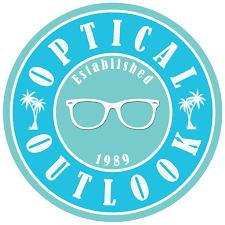
• Read to study textbooks, reference works, trade books, newspapers, and magazines that contain new ideas and values, new vocabulary and syntax.
Stage 5: The Expert Reader (typically 16 years and older)
At this stage, children will:
• Read from a broad range of complex materials
• Read from a variety of viewpoints
• Read for one’s own needs and purposes (professional and
ids
variet
some kids just get it — they seem to be reading naturals and are practically self-taught by kindergarten, or they’ll learn it in school rapidly no matter what method a teacher uses. For other children, it takes more time to decode language by making the connection between letters and sounds, and different teaching styles may be needed before it finally 'clicks'.
According to Molly Ness, Ph.D. and Associate Professor in the Graduate School of Education at Fordham University, in her March 2020 article for Psychology Today, "We now know that the precursors of dyslexia are visible as early as age three, demonstrated in weakness in phonological skills, letter knowledge, rapid naming, and working memory (Gaab, 2017)." Even without a family history of literacy difficulties, it may be important for a child to undergo an early literacy assessment in order to determine whether intervention is warranted. There is no reason to wait for a child to fail and then see if they require intervention. Instead, we can identify at-risk children early, provide high-quality intervention before failure occurs and, in most cases, make significant progress in their reading skills.
According to Dr Kirstina Ordetx's article for The Institute for Multi-Sensory Education (IMSE) titled 'Early Signs of Dyslexia' (July 2020), and in line with current research, "Evidence-based reading intervention provided in the early years can better prepare the child to confront reading at the word, sentence, and passage level. Screening can be administered as early as preschool and should check for developmental skills in the essential areas of reading, including phonological awareness,
letter-sound association, blending, word recognition fluency, word identification, vocabulary, oral reading fluency, and comprehension."
It is also important to note that children presenting with language and literacy deficits will not outgrow these deficits on their own. For this reason, it is crucial that language and literacy difficulties are identified in children at an early age in order to ensure their optimal educational and social outcomes.
So, what can parents do about it? The first thing is to speak to your child's school. Advocate for your child if you believe that something is not quite right. Schedule a consultation with a Speech-Language Pathologist and/or Psychologist to discuss your concerns and pursue clinical testing.
1. A family history of Dyslexia
The most common indicator that a child will struggle with reading is whether they have a family history of reading or learning difficulties. Twenty years worth of research shows that there is a heavy genetic component to reading difficulties.
2. History of delayed speech and/or difficulty pronouncing words
When kids learn to read, they need to hear differences in sound — this is called ‘phonological awareness’ — and they need to grasp how language works. Children identified as having speech and language delays will almost certainly have lingering weaknesses in phonological processing. This is why it is crucial to initiate speech and language therapy as early as possible if your child needs it.
A history of ear infections may hamper a child’s ability to learn word sound structures, affecting their development of reading skills. It is therefore important to attend regular hearing tests.
As well as trouble recalling numbers, days of the week, colours, shapes and how to write his or her name.
An early red flag is difficulty in learning to rhyme. Many times these children do not want to play rhyming games as preschoolers or kindergarteners.

Early Intervenion (ages 2-5)
• Early Intensive Behavioural Intervention (EIBI) and Early Start Denver Model (ESDM)
• Group Playschool program
Focused ABA Therapy (ages 5-17)
• Afterschool ABA therapy
• Afterschool group behavioral therapy Assessment
• Functional Behavioral Assessment (FBA)
• Adaptive Skill Assessment (AFLS, ABLLS-R, VB-MAPP)
School-based Services (ages 5-17)
• School-inclusion shadowing
• Individualized school-based Behavior Support Plans
Parent Support
• Individualized Behavioral Skills (BST) parent training
• Positive Behavior Supports (PBS) workshops
345-947-5477
info@caymanaba.com
www.caymanaba.com
Knowing the directions from A to B is about memorising a sequence of actions. If a child has difficulty following simple steps, such as setting the table in the right order, or routinely getting the days of the week muddled up, these might be symptoms of a problem with sequences of information. You may also notice things like mistaking dinner and lunch, or being unable to tie shoelaces correctly.
In preschool and kindergarten, the majority of children love being read to and can’t get enough of books, letters and numbers. Most want to grab a crayon and start trying to print
their name. It’s the opposite in kids who go on to struggle with reading, experts say. They often don’t have a curiosity about being introduced to letters as they’re getting towards school age. So those kids who enjoy being read to get more out of it; those who don’t get left behind.
1. Frequent spelling mistakes
Children with reading difficulties often confuse letters that sound alike. Vowels and vowel combinations can be tricky. They may mix up the order of letters (blet for belt). They may also misspell common sight words, even after a lot of practise.
2. Letter or number reversals after first grade
Repeatedly mixing up similar letters (for example, b and d) can be a red flag if it goes on long enough. By eight years of age, all reversals should have been corrected.
3. Slow, choppy reading
Slow or choppy oral reading with words omitted, substituted, or misspoken are important clues that a child is not on track to becoming a skilled reader.
4. Poor memory for sight words
Sight words are common words that kids recognise instantly without sounding them out. Recognising words by sight helps kids become faster, more fluent readers. Many sight words are tricky to read and spell as they aren’t spelled the way they sound.
5. Difficulty focusing or paying attention
Teachers report that they are struggling in class. It may be that there are underlying difficulties with reading and that an assessment is required. People may also mistakenly assume that their child is lazy or bored because of their avoidance of school work.
6. Right and left confusion
Problems with direction and issues with words often go together.
7. Difficulty learning to tie shoelaces
Shoe-tying, like reading, requires a certain level of spatial awareness. If your child is struggling with both tasks, that is a red flag.
8. Difficulty with clock reading
Learning to read an analogue clock is an important part of child development, but for some children this can be a difficult and frustrating process. Children who are struggling to learn to read often find that it is hard to learn how to tell the time when using a clock that has hands and numbers.
Literacy Programmes
Below is a list of well-known Literacy Programmes. Some of these are used at schools for students who struggle with reading and some are being incorporated into intervention programmes at many of the treatment clinics in the Cayman Islands. Local non-profit organisation, Literacy is for Everyone (LIFE) also launched a foundational literacy programme in September 2021 at participating preschools. Named 'Thrive By Five', it was created in partnership with Nicola Williams, President of the Cayman Islands Early Childhood Association, Deloitte and a host of other community partners. This amazing programme and the people involved in it are passionate
about raising literacy levels in Caymanian children. Through donations, the LIFE group has created print-rich libraries in many of Cayman's preschools.
Literacy Programmes
- Seeing Stars® by Lindamood-Bell
- The Orton-Gillingham Approach
- The Wilson Reading System® (WRS)
- Nessy, the Davis Reading Programme for Young Learners
- Fast ForWord
If you have concerns about your child’s reading, speak to their school about the programmes they have available. It may also be recommended that you schedule a consultation with a Speech-Language Pathologist and/or Psychologist to discuss your concerns and the programmes they have available.
Cynthia Rowe is a highly qualified Clinical Supervisor and Speech-Language Pathologist at KidsAbility. Cynthia has over 19 years of experience providing speech and language intervention and is passionate about providing client and family-centred services to create meaningful changes in the lives of her patients
For more on paediatric therapy, turn to page 40 to read Cynthia Rowe's advice for Picky Eaters and Problem Feeders.
A multidisciplinary paediatric therapy clinic.
KidsAbility is a multidisciplinary therapy clinic that offers Psycho-educational and Neuropsychological Assessments, Clinical Psychology Services, Counselling Services, SpeechLanguage Therapy, Occupational Therapy, Feeding Therapy, Literacy Services and Workshops for parents, educators and allied health professionals. Their clinical and administrative staff work together to provide the highest quality, efficient and effective care for their clients and their families in a confidential manner.

Highlights: Psycho-educational Assessments • Neuropsychological Assessments • Clinical Psychology Services • Counselling services • Speech-Language Therapy • Occupational Therapy • Feeding Therapy • Literacy Services • Workshops for parents, educators and allied health professionals
Details:
Open: Monday-Friday 8am-5pm & Saturday 8am-4pm
(345) 943 5437 | 8 Midtown Plaza, 273 Elgin Avenue, GT info@kidsability.ky | www.kidsability.ky
In Cayman, it is compulsory for all children from the age of five to 17 to attend school or be homeschooled. However, the reality is that most children in Cayman start preschool at 18 months, primary school at four and don’t finish high school until 18 (if in the private school system, and 17 if in the government school system). At all levels in Government schools, priority for admission is assigned to Caymanians; in addition, at the compulsory education stage, priority is also ascribed to dependents of Caymanians, dependents of Government workers, dependents of Permanent Residents, and other children approved by WORC for entry into Government schools. Admission for categories outside of Caymanians and dependents of Caymanians is subject to space availability. See https://schools.edu.ky/ registration/ for registration details. The cost difference between public and private schools is significant.
The education in Cayman is good but invariably the quality fluctuates between schools, and indeed between classes within the same school. The children who excel the most have parents who are constantly on top of their children’s academic progress. Knowing, for example, that 90% of children should be able to read quite comfortably by the age of six should raise a red flag if your child is not. See the Literacy Development Milestones article on page 80. Parents who keep in very close contact with their child’s school, insisting on solutions to any problems, and who are willing and able to help their child with their reading and homework, will find their children do not fall through the cracks. It’s worth every effort you can make: education has been proven to be the best way of pulling people out of poverty, and provides access to highly-skilled and higher-paid professions.
According to the 2022 Education Data Report, there are 2,005 children enrolled in 43 preschools, and a total of 8,936 children enrolled in 27 private and government schools spread across the three Islands, with 838 teachers teaching these students. In primary and secondary education there are 4,061 students in
CSEC: Caribbean Secondary Education Certificate
GCSE: General Certificate of Secondary Education
BTEC: Business and Technology Education Council
CXC: Caribbean Examination Council
CAPE: Caribbean Advanced Proficiency Test
IB: International Baccalaureate
CIFEC: Cayman Islands Further Education Centre
CIS: Cayman International School
IGCSE: International General Certificate of Secondary Education
private schools, 2,248 in government primary schools, 2,509 in government secondary schools and 117 students enrolled in the Lighthouse School, the country’s school for special needs, with 19 teachers teaching them. Approximately 118 children are homeschooled.
The Cayman Islands Government have invested a considerable amount of money into public schools and there are plans for many more improvements. In the 2022-23 academic school year, they issued laptops to all high school students for use at home and school, they rolled out a free school meal programme to all public school students, and they removed examination and graduation fees for Caymanian students in government schools. They also began extending full scholarship funding to Caymanian students enrolled at ICCI and UCCI. Other goals that are currently being implemented include supplying teaching assistants in all classes up to Year 9, adding learning support centres in each school and making literacy a focus in all schools by ensuring libraries and classrooms are stocked with books. To this end, Red Bay Primary School opened a literacy café in May 2023. In conjunction with Literacy is for Everyone (LIFE), the Ministry of Education initiated the Smart Start programme in North Side and East End for preschool children. A goal for the 2023-24 school year is to establish a nursery class for 3-4 year olds at East End Primary School. Goals for the 2024-25 school year include building a new Edna Moyle Primary School and opening a nursery class (for 3-4 year olds) at it. Also in the 2024-25 school year, the goal is to reintroduce A Levels to public high schools. The 2024-26 Strategic Policy Statement outlines a plan to expand Prospect Primary School and build the new fourth academy at the Clifton Hunter High School, but both are still in the conceptualisation stage.
In the private sector, Island Primary opened its doors in September 2023. Their custom designed 30,000sq ft building is set on 4.3 acres and has 350 available class spaces for children from Reception to Year 6. St. Ignatius Catholic School completed their two-storey multi-purpose hall in the summer of 2023. It will be used for various indoor sporting activities and it also has a number of specialist classrooms, tutorial rooms and other learning and recreational spaces for the school students to use. Montessori West, a much-needed new preschool is being built in the district of West Bay, and is due to be open in mid2024. It will accept children from 18 months to age six. Footsteps Primary School and CF School, a middle school, are both still planning to build their own dedicated campuses but these will probably not be ready until September 2025. Cayman Prep & High School are planning for all high school students to have their own dedicated school laptop for the 2023-24 school year.

When considering schools for your child, remember to take into account school inspection results, class sizes, discipline, manners, special needs support, standard of teaching and the consistent dedication of the teachers, and lastly, the cost. At the end of the day, it is a false saving if your child is going to a low-fee school but they are not learning and growing academically and socially at the rate they should and could for their age.
The Office of Education Standards (www.oes.gov.ky) has an amazing team of fair and highly-experienced educators and ex-educators who conduct regular school inspections. From their reports, which include everything from teacher's and student's performance to where a school’s strengths and weaknesses lie, you can make either an informed choice on where to send your child or where you might need to assist your child so that they fulfil their full potential at school. Most schools are inspected once every two years, unless they are graded 'weak' and then they are inspected again six months later. A 'Good' or 'Excellent' school inspection result is highly coveted, whereas a 'Satisfactory' or 'Weak' result is, of course, less desirable. So standards have been improving at a considerable pace as a result. Make sure to check their website for the school inspection report of the school you are considering sending your child and read in detail how they are doing.
Government schools follow the Cayman National Curriculum and students take CXCs and GCSEs in Year 11. The brightest students at government high schools are entered into the Goal Accelerated Programme (GAP) where higher-performing students are guided through a far more rigorous programme that ensures goal-oriented students take additional CXCs/ GCSEs as early as Year 9 as well as in Years 10 and 11 when all the other students take their GCSEs. Students then have various options for their 12th and 13th year of school, although only Year 12 is absolutely compulsory: UCCI offers Associate Degrees; CIFEC offers BTECs and vocational courses, or if needed, students can retake CXCs or GCSEs and participate in work experience; British private schools offer GCSEs/IGCSEs and A Levels. The American system leads to a US High School Diploma and AP (Advanced Placement) credits. The highly regarded International Baccalaureate is available in Grades 11 and 12 at Cayman International School.
Class sizes vary from school to school. All government school class sizes are capped at 24 students per class for Kindergarten/Reception and Year 1, and 28 students in other years. In private schools, it ranges from 13 students to 25 students. All government schools and most private schools also have a full-time qualified teaching assistant helping the teacher in most classes of 25 children. In some schools, this additional teaching resource runs through all primary year groups. Make sure to ask about this.
Most of Cayman’s schools have a strong Christian tradition and celebrate the Christian faith. If you would prefer a school that is not affiliated with a church or religious group, then there are a few to choose from – see pages 127-140.
Entry to a government school is determined by catchment area. Private schools are spread between West Bay and Prospect, so you’ll need to consider location when making your choice.
The Ministry of Education publishes a very detailed data report each year which explains the student enrolment numbers for both government and private schools, plus student attendance and performance data from government schools. The reports are very thorough and make for interesting reading. You can view them on www.schools.edu.ky – look under the Resources tab for the Data Reports.


All students in government schools have access to free breakfast, lunch and snacks every school day. This CI$16 million dollar meal programme has been universally welcomed by teachers who have seen a significant improvement in students' behaviour and academic performance since its introduction in March 2022. Money previously spent by PTAs and non-profit groups to feed students, has now been spent on expanding literacy and afterschool programmes. In many instances, it is the only nutritious

food that the student has all day, and some students still struggle for food security in the school holidays.
New students entering either private or government schools for the first time have a school medical exam before the new school year begins in September. These tests are invaluable for schools as they identify previously uncaught speech and language, sight or hearing issues just before the child starts at primary school. Interestingly, therapists agree that this test should be done at 2.5 and not 4.5 so that remedial therapy can begin well before the child goes to primary school. Some problems caught under the age of three can be completely resolved if therapy is started early enough. This is one of the reasons why all preschools are now required to have a Special Educational Needs Coordinator (SENCo) on staff.
In order to ensure that all students entering school for the first time are up to date on their immunisations, additional immunisation clinics ensure that children aged four and five are up-todate with their required vaccinations. For further information, please contact the Public Health Department on (345) 244 2648/244 2889. In Cayman Brac and Little Cayman, school entry screenings can be done through the Public Health Nurse, Kadine Hyde, at Faith Hospital, who can be reached at (345) 948 2243 or (345) 244 7643.
Each school in Cayman will have approved vendors that sell uniforms and some schools sell them directly to parents. Every school will have different rules, but most maintain a strict policy on such things as uniforms, hair accessories, jewellery and hair length on boys. Parents should read the school’s dress code policy very carefully, as there is little flexibility and their rules are strictly enforced.
Moving your child from one school, either private or government, to another school will involve some written assessments to determine the level your child is currently working at, or capable of. Many schools will now assess applicants using some form of Cognitive Ability Test (CAT) which assesses the child’s innate skills and ability for learning. If this is the case, then it does not necessarily matter what areas your child is strong or weak in but rather how able they are. Some schools will also assess English and Maths using traditional tests to determine gaps in learning, so that teaching is directed accordingly, rather than to ascertain the level the child is currently at. Of course, there are no guarantees of a place at any public or private school and some children who have been considered as working at a high level in their current school may find that the new school’s assessment criteria is more stringent.
Other things to consider are that your child must have an upto-date medical record that includes vaccination details and a completed transfer form signed by the previous school. Along with a standard report on the child’s performance and behaviour, this
form must clearly state whether financial commitments have been met. This is an essential component of the acceptance process for students transferring within the private school system. If you wish to move your child from a private school to a public school, you will also be required to apply online. See this page for what you will need to supply: https://schools.edu.ky/registration/.
Not sure of your child's vaccination needs? Turn to page 166 for the HSA's most up-to-date childhood immunisation schedule.
Due to there being a high demand for a free public education, combined with limited spaces and resources, only Caymanians (including Cayman Status holders) are given priority for the places that are available. After this, spaces are offered to the children of expats who work for the government and then, if there is space, other expats. Some schools in the outer districts sometimes have spaces available which expats can fill. Caymanians do not have to pay for their schooling, nor do they have to pay for external exams, and they get free meals at school. If an expat child gets into a government school, then their parents are required to pay CI$750 per year for primary school, CI$900 per year for middle school and CI$1,200 per year for high school. For Government schools, everyone must now register online and upload the required documents. These include your child’s birth certificate, residency documents, immunisation record, two forms of proof of your street address plus a previous school report or transcript (Years 1-11) and any Educational Psychological reports, if they apply.
Caymanian students in the Cayman Islands have the option to enter Government primary schools either at the age of four or five. If they are four by September 1st, they will enter Reception. If they are five by September 1st, they will enter Year 1. Compulsory education starts at the age of five. Non-Caymanian children who have been accepted at a government primary school cannot start in Reception; they have to start in Year 1 or above. From Year 1, students follow the Key Stage 1 Cayman Islands National Curriculum, which is adapted from the English National Curriculum, and follow this until the end of Year 2. Key Stage 2 begins in Year 3 at primary school and runs through to Year 6, covering ages 7-11. Some primary schools also follow the International Baccalaureate Programme. Students then move from their Government primary school at the end of Key Stage 2 (Year 6) and enter one of three Government high schools (or a private school) for Key Stage 3 which covers Years 7-11. In Year 9 students choose their options for GCSE or CXC and then begin Key Stage 4 in Year 10 and study towards internationally accredited external examinations, following the relevant syllabi depending on what they are taking. Students complete this twoyear programme of classes (Years 10 and 11) in the core subjects of English, Maths, Science, PE* and Life Skills* (*these do not count towards your child's five passes if they are moving on to a private school to do A Levels) and they have the option of


taking three additional subjects of their choice. Students then take exams set either by a UK exam board (GCSE) or the Caribbean Examinations Council (CXC). Students take, on average, seven GCSE/CXC but many students take more.



Some Government high schools offer the Goal Accelerated Programme (GAP) where higher-performing students are guided through a far more rigorous academic programme. This includes mentoring and extensive work with the student’s parents to ensure that the children are pushed but supported. This programme ensures that goal-oriented students take additional CXCs/GCSEs as early as Year 9 as well as in Years 10 and 11 when all the other students take their GCSEs.



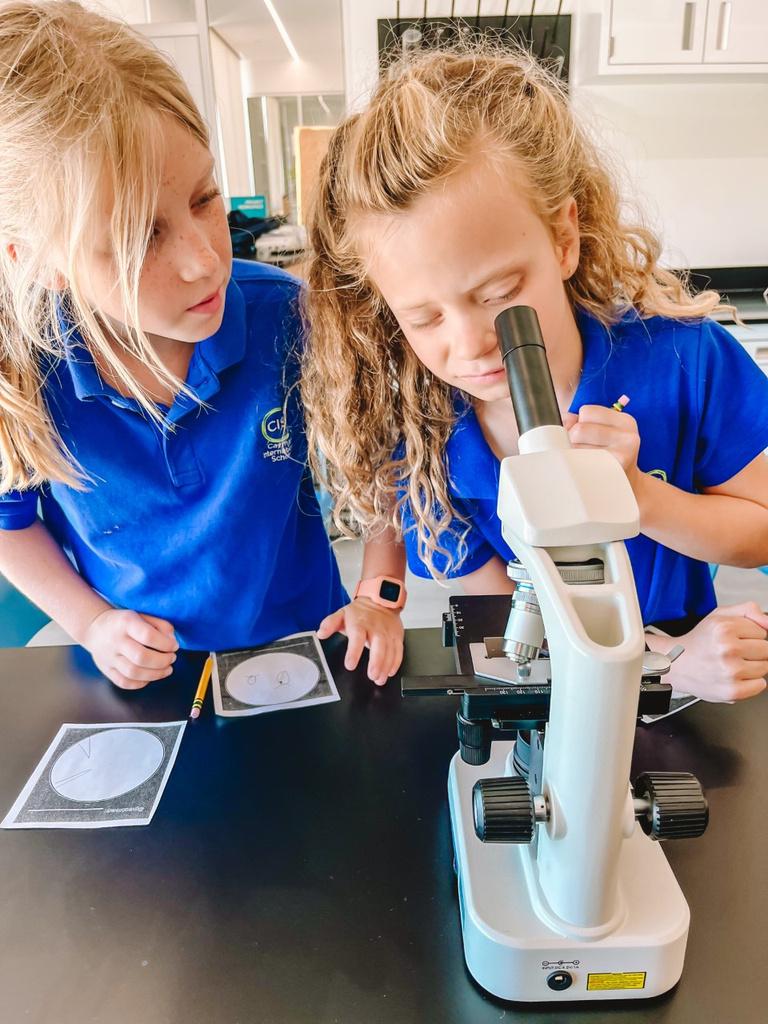
The Government school system also offers the Caribbean Secondary Education Certificate (CSEC) examinations which are commonly referred to as CXC examinations. CXCs are taken by students after five years of secondary school, usually at the age of 16, at the same time or instead of GCSEs. CXCs are graded I-VI with Grades I-III being considered the equivalent of a GCSE pass at A*-C or 9-5 in the newer GCSE exams. For example, a Grade I result means you have attained a comprehensive grasp of the subject and a Grade VI result means you have attained a very limited grasp of the subject.

If a student reaches the required level at CSEC, or equivalent, they may also be given the option of taking a Caribbean Advanced Proficiency Examination (CAPE) subject, which is
the Caribbean equivalent of an A Level. The grading system is similar to CXC exams, with Grade I representing an excellent performance, whereas Grade VII represents an unsatisfactory performance. Grades I–III are the equivalent of an A*-C at A Level. All students are then automatically enrolled in the compulsory Year 12 (one academic year) programme at the Cayman Islands Further Education Centre (CIFEC), where they can take an array of business and technology courses (BTEC), get involved in work experience and internships, or retake CXC or GCSE exams to improve their grade standing. There is also the option for students to enrol in a ‘dual entry programme’ such as A Levels at St. Ignatius or Cayman Prep and High School, an approved accredited school overseas (this option at the student’s expense), or attend the University College of the Cayman Islands and work on an Associate's Degree. After completing their Year 12 programme, students graduate from their original respective secondary schools at the compulsory school leaving age of 17. Those taking A Levels will carry on with their education until the age of 18.
Students who do not have the minimum five external passes (at CSEC or GCSE), including English and Mathematics (after graduating from high school), may have the opportunity to be admitted to UCCI’s Pre-College Matriculation programme, where they can obtain transferable college credits. This programme allows students to take foundation level courses in Maths, English and college skills in order to prepare students to transition into an Associate's Degree programme.


Until June 2014, government high school students graduated with a High School Diploma based solely on attendance and behaviour, and a clutch of external exams (usually CXCs or GCSEs) if they had taken any. However, for a student to officially graduate with a High School Diploma, they now must pass a minimum of five subjects, including Maths and English. They are then graded into one of four academic levels: Level 2 with High Honours, Level 2 with Honours, Level 2 Diploma, Level 1 Diploma – the highest being Level 2 with High Honours. In addition, during their last three years (Years 10-12) they must have at least a 90% or more attendance record, along with less than 14 days of suspension. The levels are based on the number of CXC, GCSE or BTEC exams they pass. For example, the Level 2 Diploma with High Honours means that the student has passed at least nine subjects at A*-B. The nine subjects must include English and Maths. For the last two years, an additional requirement to graduate has been the completion of at least 10 hours of volunteering or community service.
For entry to an A Level programme, a minimum of five passes at CXC or GCSE, including Maths and English, are considered necessary. Further requirements include a minimum grade pass at A*-C or 1-3 which are essential if applying for a government scholarship. For those in the US system, a 2.75 GPA is considered necessary for entry to a university course, but a 3.0 GPA is necessary to qualify for a Cayman Islands Government university scholarship. Those who go on to Level 3 (International Baccalaureate or Advanced Placement diplomas, A Levels or an Associate’s Degree at UCCI) after finishing CXCs/GCSEs at the age of 16, can then pursue a tertiary education if they have achieved passing grades.
As of the 2022-23 school year, all Caymanians in government or private schools no longer have to pay for external exams (CXC/GCSE/BTEC etc), however, they must apply to the Ministry of Education for a scholarship to cover this. The average cost to take a GCSE or A Level is CI$95.
If a Caymanian student is accepted at either St. Ignatius or Cayman Prep & High School to take A Levels, regardless of whether they went to a public or private high school before that, they can apply to the Scholarship Secretariat for a scholarship to cover their child's school fees. Parents need to be prepared to pay for PTA fees and uniforms but they no longer have to pay for AS and A Level exam fees and the Government also pays for their lunch while in school. To qualify for financial assistance to cover the fees, students need to have achieved a minimum of five IGCSE/GCSE/CXC passes at grade C or higher and have passed English and Maths. To qualify for funding in the second year of the course, students must achieve a minimum of C, C, C in their AS Level exams at the end of the first year of their A Level course. Any money received from the Scholarship Secretariat is paid directly to the school and cannot be used for uniforms or any other incidentals. An additional contribution is also made towards books. Check the scholarship information page on
https://moescholarships.gov.ky
The application period for local scholarship funding is 1st March to 30th April. Late applications will not be considered. For more information, please see page 109.
The IB Primary Years Programme (IBPYP) is offered at three government primary schools in Grand Cayman from Kindergarten to Year 6. These schools are: Prospect Primary, Savannah (Joanna Clarke) Primary and Sir John A. Cumber Primary School in West Bay. The IB curriculum which they cover focuses on the development of the whole child as an enquirer, both in the classroom and in the world around us. The curriculum focus for these schools mirrors those presented in schools worldwide; such as Languages, Social Studies, Mathematics, Arts, Science, Personal, Social and Physical Education.
The most significant and distinctive feature of the IBPYP is that the curriculum is presented through six transdisciplinary themes. This allows students the opportunity to make connections and identify the relevance to the local and global platforms. These transdisciplinary components help the children explore their beliefs and values; their mental, social, physical and spiritual health; how human relationships work between cultures, communities and families; and the inter-connectedness of individuals and civilisations.
The tenets of the programme are all very relevant to the Cayman Islands, which is a melting pot of over 130 different nationalities. The IB Middle Years Programme from ages 11-16 is not currently offered in Cayman. (Note: The IB Diploma Programme is offered at CIS to certain students in Years 11 and 12 – see page 90 for more on this.)
The Ministry of Education recognised years ago that it needed to conduct regular support visits to all schools in the Cayman Islands. For preschools, it wanted to make sure that children were being better prepared socially, emotionally and academically for their entry into compulsory school at the age of five. There are now standards that must be met on how school staff interact with children and ensure that the children are being properly stimulated through exposure to age-appropriate activities. In all schools there is now a requirement that a SENCo be on staff so that children with developmental delays or difficulties can be identified early and given help so that they are better prepared for primary school and life beyond.
Cayman has a selection of excellent private schools, each following either the British or American curricula. In both systems the main student intake is for Kindergarten/Reception (British) and Pre-K (US) when the child is four, turning five during the school year. The most popular schools have very few places available in Year 1, so think carefully if you are offered a place and decide to delay your child's entry for a year. Students can then remain in their chosen school up to Year 13 (UK system) and Grade 12
(US system). Schools following the UK system take GCSEs and A Levels and the US system offers either the IB programme or prepares students to take the Scholastic Aptitude Test (SAT) and attain a US High School Diploma. Some schools also offer Advanced Placements (APs) and the Government's Further Education Centre (CIFEC) offer BTEC courses.
Children entering the British school system have to be four years old by 1st September. They enter Reception/Kindergarten and then stay in primary school until the end of Year 6 or the year they are turning 11 (a total of seven years). They then go to high school for Year 7 through to Year 13. In Year 11 (when they are 16) students take GCSEs or IGCSEs and all students are required to take a science, a language, as well as Maths, English Language and English Literature. Many international schools that teach the British curriculum often offer IGCSEs, which is widely considered to be more rigorous than the GCSEs. After finishing GCSEs, the two-year A Level programme commences in Year 12 and is completed in Year 13 when students are turning 18. However, students studying in Cayman are expected to take AS Levels in Year 12 and their results are used as a benchmark for universities to predict how the student will do in their A Levels. Since government high schools in Cayman finish at 16, and do not offer A Levels, Government students will often move to the British system for the start of year 12.
(Note: Most Montessori schools that extend into Primary follow the Montessori philosophy, whilst aligning with UK curriculum standards).
Exams
Students usually take between 8 and 11 GCSE subjects and they need to have passed Maths and English and get three A Levels with grades A*-E to get into a university. Students will often start doing four A Levels and then drop their weakest subject at the end of AS Levels. Exam passes at A Level are graded A*, A, B, C, D and E.
Most American schools in Cayman offer a Pre-K3 programme, so your child can start at the age of four. These children will be given preference for Kindergarten places when other children start at the age of five. Children then move up to Grade 1 when they are six and stay in school for a total of 13 years, graduating at 17 or 18, when they are in Grade 12. They usually graduate with an American High School Diploma and students are taught the ins and outs of sitting SATs (Scholastic Assessment Test). Cayman International School (CIS) also offers the International Baccalaureate diploma (IB) for students in Years 11 and 12. Triple C School offers Advanced Placement (AP) courses.
To graduate with an American High School Diploma, students need to obtain at least 20 credits, split between English (4), Social Studies and a Foreign Language (6), Math (6), Arts/Drama/ Music (1) and Physical Education (2). Credit requirements for graduation are different for every school, and will depend on
how a school’s curriculum is structured. Having said this, all have standard requirements for core subjects such as English, Math, Science and Social Studies, and then elective credits for other classes. Parents should familiarise themselves with the credit requirements of their child’s school, keeping in mind that some will require a minimum Grade Point Average (GPA) for graduation. The GPA is the grade (number/percentage) representing the average value of the accumulated final grades and ranges from 0.0 to 4.0. For example, 4.0 = A, 3.0 = B, 2.0 = C, 1.0 = D and 0.0 = F. Most universities in the United States will require a specific High School GPA before a high school graduate can even be considered for admittance, so it is very important for parents to be aware of what the requirements are for any college or university to which their child may be applying. Students should also be aware of this if hoping to secure a scholarship. See page 118 for more information on this.
The IB Diploma Programme (DP) is offered at Cayman International School (CIS). The curriculum is made up of six subject groups plus the three core components a) Theory of Knowledge (TOK); b) Creativity, Activity and Service (CAS) and c) Extended Essay. Students must complete all three core components and also choose one course from each of the six subject groups in order to complete the full IB Diploma. The six subject groups are: Language and Literature, Language Acquisition, individuals and societies, Sciences, Maths and the Arts. The subject choice from the arts can be replaced with a second subject in another group if needed for university entry. Three subjects are taken at Higher Level, and three at Standard Level. All subject courses are two years long, and students sit the final exams for the Diploma Programme in May of Grade 12 (Year 13). They are graded from 7 to 1 (7 being the highest) for each of their six subjects.
Additionally, the Theory of Knowledge and Extended Essay are also graded, and together can add up to an additional 3 points. CAS is graded as a pass/fail. The maximum score one can therefore achieve is 45. The pass requirement is 24 points, and anything over 34 is considered very solid. Many universities, particularly in the UK, will publish the IB scores they require for entry to their degree programmes. These vary depending on the course and the institution, and competitive programmes at good universities can require much more than 24 points for entry. For example, Architecture or Engineering will often have a score requirement in the high 30s, and many courses at Oxbridge or other Russell Group universities may require 40 points or higher.
There are two Montessori schools in Cayman that offer the Montessori schooling system beyond preschool. Village Montessori and Montessori By The Sea teach children up to the age of 12. Both implement an enriched Montessori elementary curriculum that is geared to meet Cayman Islands National Curriculum Standards. Also included are life skills education along with specialised instruction in Spanish, ICT, physical education, the arts and music. One is located in Prospect, across from the beach, and the other in Camana Bay. See pages 137 and 138.
Over ten years ago, finding a good tutoring company in Grand Cayman was a rather difficult thing to do, but times have changed in a big way! Cayman now has a wealth of highly-qualified and well-trained teachers and tutoring professionals who work out of busy and dedicated tutoring companies. But why hire a tutor in the first place?
A tutor can help your children stay on top of their homework and coursework, help improve their grades and, more importantly, give them confidence in their school work. This rise in qualified and exceptionally good tutors has been particularly gamechanging for children within the public school system: oneto-one tuition can improve results exponentially and open up enhanced opportunities at college. So, what do you need to consider when choosing a tutor? When Cayman Parent asked qualified teachers at the top schools about this subject, here is what we learnt:
We have been told that most children should be reading quite comfortably between the ages of six and seven. However, if your child is really struggling then something could be wrong and there is no time to waste. Your child might have dyslexia and, if so, will need reading intervention. This would come in the form of a qualified individual who is trained in either the Wilson Programme or the Orton-Gillingham dyslexia instructional approach. This is an essential step, so ask your tutor if they have a certificate or qualification proving that they can teach either of these courses. If you suspect your child has ADHD, then a diagnosis of dyslexia often comes with it, so that is something to consider as well.
One easy thing that all parents (and preschools) can do is buy a colourful poster with the alphabet on it. Make sure it does not just have capital letters though, you need the lowercase letters as well. Find one that has a picture for each letter (e.g. an apple for Aa). Then put it somewhere that your children will see it a lot – in front of the loo or the back of the bathroom door are good places! Your child will then see it every day and will slowly begin to absorb what the letters look like and sound like.
If you are looking for a Maths tutor, be aware that children in the US system learn Maths in a very different way to those in the UK system. In the US system, students learn Maths in themed branches (algebra, geometry, advanced algebra, trigonometry and then calculus). In the UK system, students learn a broad cross-section of the whole subject of Maths and then build on it each year. Enquire as to what experience the tutor has with the curriculum, and if they don’t seem to have enough knowledge of it then find one who does.
All children in Cayman are now required to have mastered their times tables by the age of nine. To help them achieve this, one simple thing you can do is order a times table poster and put it somewhere they will see it a lot. Opposite the toilet or the bath is ideal. While they are in the bath you can test them and, over time, your child will learn them. Try and put it up there while they are still very small.
Many parents look for help getting their children to do their homework and, as a bonus, a tutor will also work out very quickly where the gaps are in your child’s knowledge of the current subjects they are studying. Tuition should always supplement the learning already taking place inside the school classroom. A good way to aid this is to regularly forward class newsletters, spelling lists, school reports, etc. to the tutor for inclusion in the tutoring sessions. Your child’s tutor can then make sure that their students are on top of their subjects.
If you are looking to have your child tutored for their GCSE, A Level or IB Diploma exams, make sure to find a teacher who has experience teaching the current curriculum your child should be learning for that specific subject. Also, make sure they have specific experience getting children through those exams and have not just taught the subject up to an earlier grade. At this level of your child’s education it is seriously important that your child’s tutor is a qualified teacher. Although a teaching assistant can help guide a child with special needs and teach children at primary school, you would do well to find a qualified teacher for your child’s external exam tutoring.
Expect to pay on average CI$60 per hour for one-on-one tutoring and CI$40 per hour for small group tutoring with 2-4 children. It is money well spent. The tutor will not move on until they know that your child has grasped the subject properly. This is something you cannot guarantee in a school classroom setting with 25+ students.
The number of children being homeschooled has exploded in the Cayman Islands. Whether parents are choosing this due to practical reasons or philosophical preferences, their concerns are the same: how to provide the best home-based education they can.
Children in the Cayman Islands can be homeschooled with prior approval from the Department of Education Services (DES), and like any educational programme, there is an application process and certain requirements to be met, which are discussed below. We also give an overview of the advantages, disadvantages and resources available for homeschoolers. In the 2022-2023 school year, approximately 118 children were enrolled in a homeschooling programme in Cayman.
Homeschooling may be a suitable option in cases where:
• A child is waitlisted but has not yet been offered a place in a private school
• A child has special educational requirements that schools may not have the resources to accommodate
• A child has been the victim of bullying at school
• The cost of private schooling is prohibitive for low income families and/or those with multiple children
• Families travel frequently and wish to be able to take their children with them
• Parents want their children to follow a more flexible and individually-tailored programme
• A child speaks a different first language and needs to learn English before transferring to a mainstream school.
The DES assesses individual requests for homeschooling on a case-by-case basis as they know there are some exceptional circumstances. They do not want children to get lost in the system. They understand that for schooling to work for some children it might need to involve the use of special services, such as Speech and Language Therapy, and this can be included as part of the five hours per day of schooling. Registration for homeschooling officially opens on July 1st and closes on July 31st.
The Department of Education Services in the Cayman Islands now expects all applications for homeschooling to be made online. See their Registration for Homeschooling page (https:// schools.edu.ky/Pages/SchoolRegistration.aspx) where you will find the forms and submit your supporting documentation. If you need to visit Nicki Samuels at the DES, then their address is 130 Thomas Russell Avenue, George Town, which is just off the Cayman National Bank roundabout.
You will be required to create an Individualised Homeschool Plan (IHSP) which must include:
• The child’s name, age and grade level
• Location and address of the home school
• A list of the syllabi, curriculum materials, textbooks or plan of instruction to be used in the core subjects
• A timetable which shows the subjects covered on which days and at what time. This would also include any outside activities or online classes
• The dates for submission of the annual report
• Names and qualifications of individuals providing instruction
• A statement confirming the child will be meeting compulsory educational requirements of the Education Law 2016 (Regulations).
For parents wishing to apply after the start of the school year (end of August), written notice must be provided within 14 days of arrival to the Island. Once a family or child is a resident, then the child must be registered with a school.
The Director of the Department of Education Services will inform parents if their application has been approved in a timely manner. If approved, a homeschooling certificate is issued, valid until the end of the school year (30th June).
Although not mandated, it is highly recommended that the parent or tutor providing instruction should hold the following qualifications:
• Primary – the parent(s) must have at least a high school diploma
• Secondary – the parent/tutor should have a minimum of a bachelor’s degree from an accredited institution.
The DES strongly recommends that an accredited programme for homeschooling be used. If you visit www.homeschool.com you will find lots of suggestions. Alternatively, look into the UK-based homeschooling group Wolsey Hall, Oxford, or you could try Abeka. Accredited programmes such as K12 have online teachers who can help.
However, if a parent wanted to use a programme that is not accredited (which many parents choose to do), the DES will consider the programme and make a decision based on whether the curriculum meets their standards. Finding and using an accredited programme is something many parents get worried/stressed about, and knowing there is room to use a programme that is not accredited (as long as it is approved by the DES) can sometimes set their minds at ease.
The DES requires that the school day be at least five hours, excluding recess and lunch, and that there be at least 185 days of instruction or the equivalent of 925 hours in the school year.
The curriculum must include reading, writing, Mathematics, Sciences, Arts, Physical Education, Social Studies and the History and Culture of the Cayman Islands, and though it does not have to be an accredited programme, it is encouraged. Parents/tutors must maintain a record of attendance and submit an annual report on the student's progress to the DES in the 10th month of the school year (June). If there are any changes to the programme, the DES must be advised in writing.
The DES will conduct one home visit as part of the registration process and, if deemed necessary, they will make an unscheduled second visit. Where necessary, they will liaise with the Office of Education Standards for assessment and reporting.
The main advantages homeschooling parents report are being able to spend more time with their children and having the ability to adapt the teaching to a child’s learning style and interests, ensuring they receive a quality education and plenty of individual attention.
The flexibility homeschooling offers is also key: classes can be held in any location and at the time one chooses, enabling parents to fit schooling around other commitments.
On the other hand, homeschooling is time-consuming for the parent (or tutor) providing instruction, and thus means that one parent usually cannot work and therefore cannot contribute to the family’s income. It also means the ‘teaching’ parent may get little or no time apart from their children.
One of the most frequently asked questions that parents of homeschooled children get asked is whether there is a danger that a child might miss out on socialising with their age group and have fewer friends than a regular school student. It’s a valid concern, but there is much that can be done to ensure a child does not become isolated.
Enrolling kids in extra-curricular activities, sports lessons, church groups, music and art lessons all ensure they meet and socialise with kids of their age. Where one lives can also
be influential: some residential areas are particularly familyfriendly, guaranteeing there will be plenty of other kids around to play with.
The 'Cayman Homeschoolers' Facebook group was set up specifically so that parents and children could connect with other homeschooling friends. These children go on field trips with other parents and children and time is specifically set aside each week to socialise with the other kids. A homeschooling family can become just as busy with extra-curricular activities as any other public/private school family.
The Cayman Homeschoolers Group has worked diligently to create a dedicated homeschooling website which provides everything needed to homeschool in the Cayman Islands. It includes the application procedures and documents, curriculum list, resources for tutoring/educational assessments/therapy, how to write your reports, FAQs, etc. You can also sign up to the email list so that you're kept in the know on any events and gatherings. Visit: https://homeschoolcayman.ky.
There are also a growing number of educational programmes for homeschooled students to participate in:
High Achievement Academy has highly qualified and experienced teachers from the UK and US if you want your child to have additional tutoring in a specific subject.
Baobab offers reading intervention, dyslexia support, early literacy, parent literacy consulting and socio-emotional support programmes.
Cayman Learning Centre offers small group and oneon-one tutoring alongside the Arrowsmith programme, which is aimed at getting to the root of learning difficulties.
Chatterbox offers individualised classes for children needing help with handwriting, reading, speech and language, selfregulation and functioning skills.
Clever Fish offers an after-school enrichment programme that includes homework supervision, academic intervention and activities such as robotics, arts and crafts and more.
Homeschooled students have a variety of opportunities available to them and are invited to participate in many competitions offered to the schools (Sea Perch, Inter School Chess Tournament, First Robotics, Inter School Math Competition and the Rotary Club Science Fair).
Please Note: While private tutoring and other activity providers are an excellent supplemental resource for home-schooled children, the DES has emphasised that the majority of instruction must be delivered at home. This means that you cannot rely on private tutoring to provide the bulk of your child’s learning programme.

How has teaching changed or evolved since you first became a teacher?
It is encouraging to note how individualised learning has overtaken delivery to whole student classes. Prudent data is at the heart of individualised learning and prior knowledge of learning styles facilitate far more successful learning outcomes.
Would you encourage school leavers to take a year out/gap year or go straight to university?
I think it’s very much up the individual. However, as I look back on my own career, and with reference to the augmented pressures to modern living, I believe that there are valid reasons for a gap year before further studies. One of the biggest perks is having time to decide what to do next, rather than having to rush to a decision. There’s no doubt that going to university forces you to grow up in some ways, especially if you move away from Cayman, but taking a gap year may encourage decisions in an entirely new way.
What’s the best piece of advice you would give older students?
There is no timeframe for learning. It is important to see learning as a joyful fact of life and strive to keep learning to stay healthy and to be wise. For high school students, I would advise to value these halcyon days as they are precious and all too fleeting.
When did you decide to become a high school teacher or work in education and why?
I am from a big Irish Catholic family. Teaching, nursing, priesthood and joining the police force were all seen as natural career choices. I chose teaching and have never regretted that decision.
What has been the most memorable moment of your career so far?
I had concerns about a set of students that I had in one secondary school year group. They were at different levels of achievement in the class and the gaps were so wide that I decided to collaborate and write a series of social studies workbooks to help students and parents use content area reading to bridge those gaps. The project was such a success that many of those students went on to succeed on their exit exams and the books received such good reviews that most secondary schools in Jamaica began using them – one popular publishing company offered to pair their textbooks with our workbooks because of the demand.
Who is your favourite author and why?
One of my favourite authors is Jim Rohn, particularly one of his first books, Twelve Pillars. I will challenge everyone to read this book and then tell me if this isn’t one of the best books they have ever read. He has a way of telling stories with real-life application, transforming you from thought, to positive sustainable action.
Why did you choose literacy as a field of specialty?
I entered this field as a means of finding and providing additional support for my students who were struggling with reading and writing at the secondary level. I know when literacy skills are weak, all the other subjects will be challenging for the student. I wanted to be able to effectively provide early intervention to close those literacy gaps quickly.
Which book would you recommend to all children?
Wonder by R. J. Palacio. This is a moving and uplifting novel that is written from the perspectives of various characters in the text, including the main character, whose extraordinary journey helps to teach empathy, compassion, and kindness. It also demonstrates that you don’t need to blend in when you were born to stand out.
Karl Murphy is the High School Principal at CPHS. He was previously principal at a school in Jordan and was invited by His Majesty King Abdullah II to guide an educational think tank at the Zaatari refugee camp.
Dean Brown-Richmond has been teaching English for over 21 years and is currently the Literacy Coordinator at Clifton Hunter High School, where she also serves as Officer Commanding the CHHS Cadet detachment.
 Dean Brown-Richmond
Dean Brown-Richmond
How has teaching changed or evolved since you first became a teacher?
Teaching was quite didactic but now more differentiation is being offered; less chalk and talk and more interactive teaching. Technology has definitely had a positive impact on the evolution of teaching.
Which of your current or previous colleagues do you admire the most and why?
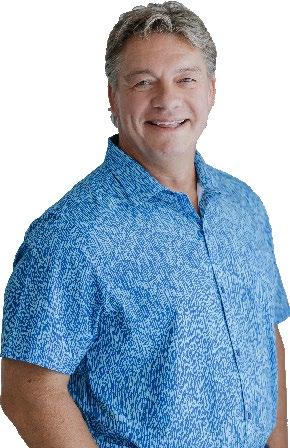
Ms Lyneth Monteith, who has always had high expectations of colleagues and has been very encouraging.

Which famous author would you invite to entertain your class?
Michelle Obama, Attorney and former First Lady of the United States of America.
Do you have any tips for parents who struggle to get their teenagers to study for exams?
Spend time with them preparing them for exams. Create a study area for them and remove distractions, e.g. limit social media use. Ensure they get enough sleep. Let them know that you love them and remind them of the value of an education.
Which of your own teachers inspired you the most and why?
The late Sister Wilma Moffitt, first Principal of Truth for Youth School, had educational goals set for each student and was a very religious, empathetic person.
What has been the most memorable moment of your career so far?
Entering approximately 20 students for an exam with most of them predicted to get Grade E but we entered them with high expectations to get Grade C and most of them achieved Grade C or higher. There was lot of formative feedback given to the students to ensure success.
What’s the best advice you would give older students?
Be kind, be calm, be alert. Habits cultivated now around health, relationships, spending, learning and peace of mind may serve you well in the present and the future, provided they are good habits. Comparing yourself to others can be the enemy of joy – there will always be people faster, stronger, smarter etc. yet there is only one you. Be the best you, you can be. Take the time to put your device down and go outside to move, breathe, and laugh. Say hello and good morning to people.
Who is your favourite author and why?
Malcolm Gladwell. I appreciate how he intertwines a story with a mixture of research, observation and subtle humour.
Have you seen an increase in anxiety amongst teenagers since the COVID-19 pandemic?
Yes, and this was happening prior to the COVID-19 pandemic too. Aside from the pandemic, various levels of addiction to social media, play deficit disorder and over-scheduled time are just a few of the concomitant factors likely contributing to observed anxiousness. Perhaps similarly acute in this regard is the level of anxiety observed in parents and guardians –thus exacerbating the sense of anxiety in some teenagers.
CIS was recently awarded ‘Excellent’ in a school inspection report. What were the main reasons the school achieved this grade and what would your advice be to other schools wanting to reach the same level of success?
A key aspect to school improvement is the interactions between people. Learning tends to be a social endeavour. People are often the driving reason that the vast majority of those in education choose education as their calling. Spending extra time on finding the best staff possible is always time well spent. This is often colloquially referred to as 'getting the right people on the bus'. After that, time, training and patience are needed to get 'the people you have in the right seat on the bus'.
Although Cayman has excellent schools, many parents will look to broaden their children’s horizons by enrolling them in an overseas boarding school. Over the years, the image of boarding schools has changed immeasurably; the transformation from the hardship and coldness of Dickens’ Dotheboys Hall to the spellbinding excitement of Hogwarts has been both evolutionary and revolutionary. But the changes in perception and the reality are not works of fiction; boarding schools in Britain, America and Canada are flourishing and should be a real consideration for Cayman families thinking about the future schooling of their children.
There are many reasons for choosing a boarding school, from the standard of teachers and teaching, to the friends and connections that are made. Academic achievements are, of course, fundamental in this fast-changing, global working world, but the 'extras' are what really make a boarding school experience count. At the heart of every boarding school is the philosophy to ensure that each child is happy, thrives and succeeds, whatever their interests and talents. Whether on the sports field, in the concert hall or the classroom, you can be certain that all boarding schools seek to help all pupils achieve their full potential. The structured environment and extended school days are designed to offer pupils a wealth of valuable life experience, in turn enabling them to gain independence and be well-prepared for life beyond school.
There is no doubt that boarding will not suit every child or family. But for the right child, in the right school, it can offer an enriching life experience, preparing them for life beyond school. Learning to live with others with respect and tolerance, and having the ability to resolve conflict when it occurs, are key skills that pupils will need when they enter the working world and experience the challenges of the twenty-first century. Often, the achievements, friendships and interests cultivated at boarding school last a lifetime.
The following are all key factors to consider when deciding if boarding school is right for you and your child.
The reputation of leading schools in the UK, USA and Canada is not just a label of prestige from the past; the academic, sporting and social success of these schools is evident. Academic excellence, their successes in international exams and their students winning places at Ivy League and Russell Group universities speak for themselves. The structured independence, which comes with boundaries, also helps teenagers to thrive.
Boarding schools are concerned with much more than academic prowess; pupils achieving their potential in the classroom is paramount, but the ability to be involved in whichever sporting, creative or intellectual pursuit that stimulates a child is of huge importance too. All these things are on the student’s doorstep; schools are extremely busy places where children are seldom bored or lonely.
3. Support
Success is achieved through sound teaching plus individual care and attention. Staff at boarding schools are with their students for most of the day and are there to ensure that children are happy and performing well, addressing problems swiftly. Boarding schools are well-equipped and qualified to support most learning requirements. Plus, a wide range of schools offer specialist additional support for learning and emotional needs.
4. Facilities
Boarding schools have some outstanding facilities and offer beautiful spaces in which students can grow and develop. Academic, arts and sporting facilities can be state-of-the-art, and boarding houses are designed to offer the comforts of a home away from home.
5. Friends
A boarding education exposes children to a wide array of people from a variety of backgrounds – some of whom will become life-long friends. The ability to live and work with such a diverse group of people is what gives boarding school students the confidence, maturity and independence to excel in their future worlds. Exposure to the wider world and internationalism also helps prepare students for the world of business.
Boarding schools can be very competitive and many schools fill their places several years in advance of entry. Therefore, give yourself plenty of time to choose the right school. In
addition to allowing time to visit schools, you should allow time for your child to be prepared for the entrance exams and for the transition to boarding school. Parents often underestimate how much time should be given to these steps, but at least one or two years in advance is the best time to begin the process. The most important thing to remember is to involve your child in the process from the very beginning, as this will allow them to become comfortable with the prospect of going away to a boarding school.
Many Cayman families who know that they will be sending their children to boarding school will organise some form of tutoring at least 12 months in advance to a) ensure that their child is prepared for any entrance exams and b) to get their children's academic performance on a par with their peer group in Canada, UK or USA. Education standards in the Cayman Islands are very much on par with overseas schools but some things are taught differently, or have just not been covered in Cayman schools. For example, French, Geography, Latin and History are all taught in UK schools and Cayman students will not have been exposed to the same material. If your child takes the UK Independent Schools’ Entry Test (UKiset) it will mark them in relation to the average for UK private schools and UK government schools and will give you a very good benchmark from which to work.
American schools are typically set up to accept boarders from Grade 8 (aged 13-14 or Year 9 in the British system) but there are some which will accept boarders from Grade 6. In Canada, most schools accept students for boarding in Grade 9 (one year later than the US system). In the UK, your child can board from the age of 8 (Year 4) but the majority of students from Cayman usually either start boarding at the end of primary school (i.e. they finish Year 6 in Cayman and then leave) or they wait and go straight to a senior school in the UK when they are 13 (for the start of Year 9).

There are over 480 boarding schools in the UK, with 75,000 boarding students aged between 7 and 19 in them. The smallest schools have just a handful of boarders while at the other end of the scale there are some with over 1,000. However, the average size is around 150 boarders. In some schools, boarders make up most of the total number of pupils. In others, half pay to be full boarders and sometimes they will be the minority. For a parent considering an overseas boarding school for their children, looking for a school where the majority of the students board is very important. You do not want a school which empties at the weekend and your teenager has little to occupy themselves with.

Because it is the job of preparatory schools to prepare pupils for the Common Entrance Exam (CE) at the end of Year 8, they prefer to have pupils for two or three years beforehand, so that they have sufficient grounding in all the academic subjects (including Latin and French). There are no fixed deadlines for
entry to prep schools, although the most popular ones will fill their places several years in advance. Testing is ‘light touch’ and is generally conducted during a child’s visit to the school. They often ask pupils to spend a day and night at the school as a ‘taster’.
UK Boarding Schools – Girls Senior Schools (Years 7-13) 11+ Entry (Year 7)
Although Senior School traditionally begins in Year 9, many girls’ schools have both Year 7 and Year 9 entry. This has always been the case and means that girls can go straight into their senior school rather than having to go to a prep school first. Girls who are going for 11+ entry to a girls’ senior school will be tested in Year 6. Most girls’ schools use the ISEB 11+ Common Entrance, which is taken in January, and consists of papers in English, Maths and Science. Some schools have their own entrance papers but they are largely similar in scope to CE.
UK Boarding Schools – Senior Schools (Years 9-13)
13+ Entry (Year 9)
Many very popular UK senior schools will expect you to bring your child to have a tour of the school while they are in Years 4, 5 or 6. Then you are expected to register your child before the end of Year 5 (schools such as Eton, Harrow and Radley) or Year 6 for most other schools. In October or January of Year 6 or Year 7, your child will take the ISEB Common Pre-Test which is a timed computer-based test that measures your child’s ability and attainment. The tests include Verbal Reasoning, Non-Verbal Reasoning, English and Mathematics. Prior to, or
just following the ISEB test, enrolled children will be invited for an interview and an assessment day. This takes place in December or January of Year 7. Very shortly after this, an offer of a place is given, subject to your child achieving the requisite average mark at Common Entrance. Finally, in May of Year 8, the Common Entrance Examination is taken. If your child is not in a UK prep school, and will be going straight to a UK senior school from a Cayman school, they will take the entrance tests at each of the schools to which you have applied.
Not all Senior Schools use the ISEB Pre-Test route and will consider children for entry on a much more flexible basis, although early application is, of course, still advisable. Each school will have its own way of conducting the admissions process but, in general, it will consist of a visit to the school, followed by an interview and testing (in English, Maths, Verbal Reasoning and Non-verbal Reasoning). The interview can often be conducted via Zoom and it might be possible to arrange for testing to be taken in Cayman. However, do not underestimate the importance of visiting a school to get a feel for whether your child will be happy there.
Most overseas boarding schools have a sizeable entry into the Sixth Form. Deadlines vary but many schools test and interview prospective pupils in mid to late September of the year before entry (often through special Sixth Form Assessment Days) and offers are made at the beginning of December. It is worth noting that both St. Ignatius and Cayman Prep & High School do not guarantee places in their sixth form to existing students. All students must compete for the limited number of places.
Start your search for potential boarding schools at least 2-3 years in advance, especially if the schools you are looking at are very popular, and arrange for any online material and the application process to be sent to you. Once you have narrowed your choices down to a shortlist of three schools, arrange a visit and begin the application process with your top choices. While searching for schools, also ask about their summer camp programmes. A few weeks at a boarding summer camp will help you and your child gain a better understanding of the school, the culture and give them a taste of what it will be like boarding. Another good suggestion is to ask an educational consultant to suggest a couple of schools that will suit your child academically, socially and will complement their interests and favourite sports.
It is important to note that not all school application processes are the same. Depending on the grade level that you will be applying for, you may need to register to take a required standardised test which will be used for academic placement purposes. Examples of these tests include the Secondary School Admission Test (SSAT) or the Independent School Entrance Examination (ISEE). For students wanting to join a boarding school for 11th and 12th Grade, it is highly recommended that they have an SAT, PSAT or ACT test score
to share with the school. The SSAT and SAT can be taken at Cayman International School. Remember to confirm the school’s testing codes so that the test results can be sent directly to the school you want to apply to.
Another test that some schools are now requiring or recommending that applicants take is the Character Skills Snapshot test. This test measures eight character traits, including resilience, open-mindedness, responsibility, teamwork, social awareness, self-control, intellectual curiosity and initiative.
Some schools may require you to fill out a Candidate Profile along with a detailed application, and all schools will require you to be interviewed. All schools will require the following supporting documentation – make sure that everything is saved in a PDF format for ease of uploading – academic transcripts, two core curriculum teacher recommendations as well as a letter from the Head of School, a copy of a recent writing assignment which has been corrected and graded by a teacher, plus a personal recommendation and a parent statement.
You will want to start your search for a boarding school which suits the interests and strengths of your child ideally at least two years before entry, but many schools will consider applications much later. If you are unfamiliar with Canadian boarding schools, then plan to visit one of the Schools Fairs held in Cayman every November. There is always a very good representation of schools. Once you have done some research, plan to visit two or three of the schools to get an idea of what you like and what you don’t like. Once you have a shortlist, it is recommended that you check their website to see what documents they need to see and what entry tests they will ask your child to take. Some schools, especially those in Toronto, ask students to sit the Secondary School Admissions Test (SSAT) but many other schools have their own tests. The SSAT is a standardised test which some Canadian private schools use to assess a student’s overall aptitude, rather than their knowledge of specific subjects, but also offers the Character Skills Snapshot, which looks at a student's overall attitude/character. However, some schools do not use such standardised testing and use their own test papers instead.
Canadian boarding schools generally accept applications for students entering Grade 9, 10 and/or 11 (Years 8-12) with the preference to starting the programme at the beginning of high school – in Grade 9 (age 14-15). About two-thirds of students begin in Grade 9, with the remainder joining in Grade 11. A small handful of boarding schools accept students for Grades 5-8. Education is a provincial matter in Canada, so students work towards a High School Diploma granted by the province (e.g. Ontario Secondary School Diploma (OSSD)) in which they are studying, with some schools offering Advanced Placements or the International Baccalaureate Diploma Programme.
Narrowing down which boarding schools to visit is a monumental
task. Here are some tips from parents:
• For families who live full-time in Cayman, choosing a full boarding school, as opposed to a weekly boarding school, is the very first thing to consider. Many schools are moving towards weekly boarding, so be sure to check this out. You do not want a bored teenager at school alone with no friends around and time on their hands.
• Schools are often strong on one specific team sport – for example, soccer/football or rugby, but invariably not both. If your child is massively into one sport but not keen on another, then find a school which plays that sport. Work out what your child is really keen on, then see if you can find a school which can play to that strength and interest.
• Is the school kind? Does it have good pastoral care? Will my child be happy? What support is there in place if my child gets homesick? Childhood should be a happy time, so choose a school which has a reputation for being nice.
• If your child needs educational support, check out schools that can help with that. Ask what additional help your child would be offered and whether the school could cater to your child’s needs.
• Bear in mind that schools located within an hour of a major metropolis and an international airport (London, Toronto or New York, for example) will attract a lot of overseas students. Most schools now limit the percentage of children hailing from a single nationality.
• Different schools suit different people. Some students love the busyness of city or town life, while others prefer the slower pace and better views that come with studying in the rolling countryside. It is worth compiling a shortlist and going to see at least four or five different schools.
Expect to see one school a day (a typical tour is 3-4 hours long). The visit, which you must book well in advance, usually starts at 10am, so book accommodation near the school for the night before if you can. Ask if your visit will include lunch with the students – if it does, it will give you great insight into the type of students your child will be boarding with.
Location
Deciding where to send your child to school is extremely important, but first you need to decide what system of schooling you want your child to participate in. For example, to attend sixth form in the UK, it is often extremely helpful if the student has taken GCSEs or the equivalent. It is also important to consider whether you are looking for a school near family and friends. Although the support systems provided by schools are very good, it is also beneficial to have a support system outside of school and people there to keep an eye on your child when you cannot.
It is vital to find the school in which your child will be happy and will thrive. Friends and acquaintances may offer school suggestions based on their own children’s success (or otherwise!). But a school being right for their children is no guarantee that it will be right for yours. Choose a school based on your child’s specific interests and needs, even if this is wildly different to that chosen by others. Make sure that the school offers the qualifications (International Baccalaureate; GCSE; A Level; SAT; vocational courses) best suited to your child and their intended higher education and career path.
Educational consultants are very knowledgeable about different boarding schools and will explain things that you cannot read about on a school's website or school prospectus. For example, does it run a house system? If so, what are the benefits?; how many students are weekly boarders and is the school moving towards that?; does it cater well to children who need learning support?; will your child flourish academically there or drift to the bottom third of the academic group?. Also make a point of visiting the school fairs as its a great way to chat to the schools which you have narrowed down. Two school consultants who specifically work with Cayman families include:
Dorm & Day: Based in Grand Cayman, Dorm & Day offers a school placement advisory service for education in Cayman and overseas. Owned and run by Amanda Roberts, every year they visit a diverse range of boarding schools in the USA, Canada and the UK, including schools for children with learning differences, using that first-hand personal knowledge to find the right fit for your child and help you to make an informed choice of school. They guide you throughout the admissions process which includes reviewing transcripts, preparing shortlists, helping with applications and financial aid forms, finding scholarships for talented athletes and high academic achievers, scheduling and preparing for tests and interviews, arranging boarding school visits and communicating with schools from application to arrival. Tel: (345) 936 3676 or (345) 925 4610, email: admin@dormandday.ky or visit www. dormandday.ky.
BvS Education: Owned and run by Niall Browne, and based in the UK, BvS is used by many Cayman families wanting impartial insider advice on where to send their children to boarding school. With a thorough knowledge of of UK and Canadian schools, and how their admissions processes work, BvS offers a bespoke service which is centred on finding the right school for your child. Niall Browne visits Cayman several times a year, to meet island families, but he also conducts WhatsApp and Zoom calls with interested parents. BvS is also authorised to conduct the UK Independent Schools’ Entry Test (UKiset), either online or in person, and the schools use this to decide whether a child is academically suited to their school. BvS hosts an annual boarding school fair in Cayman which showcases some of the UK and Canada's leading boarding schools. Email: niall@bvs-education.com, call: +44 (0)28 9532 0374 or visit www.bvs-education.com.
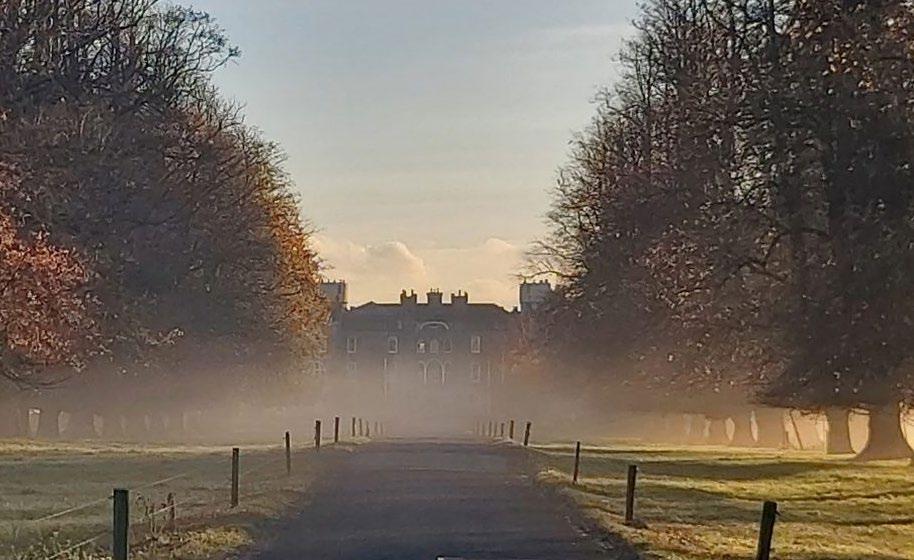
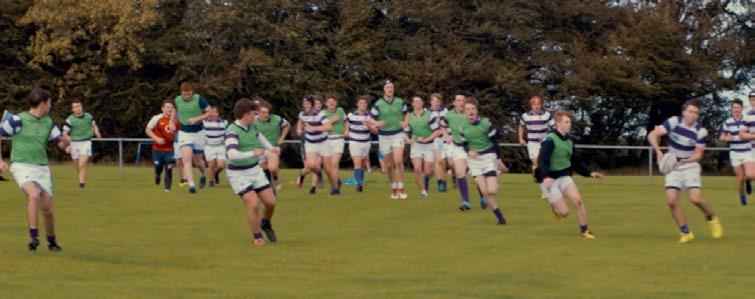
Established in 1814, Clongowes is Ireland’s leading 7-day boarding school for boys aged from 12 years old. A Catholic school in the Jesuit tradition, they aim to develop young men of conscience, compassion and competence. They are home to 450 boys from Ireland and further afield. Clongowes offers a broad academic programme as well as a diverse cocurricular programme of sports, drama, debating and music. That which sets them apart is their approach to ‘the care of the individual’ – nourishing each boy’s talents and supporting them on a pastoral level. Clongowes is a very special place, set in 550 acres just 40 minutes from Dublin airport.
Curriculum: Irish education is broad and balanced. They are a non-selective school with a wide range of learning styles and abilities supported by their dedicated staff. The teaching and learning programme is across six years with state exams at Junior Certificate (3rd year) and Leaving Certificate at 6th year.

Facilities: Facilities for living and learning are top class, including: an abundance of rugby and soccer pitches, a golf course, athletics track, cricket pitch, tennis courts, basketball courts (indoor and outdoor), very large sports hall, weights gym, 25M indoor swimming pool, music practice rooms, modern science and computer labs, the James Joyce Library, co-operative learning spaces etc.
Other Services: Clongowes believes that learning extends beyond the classroombased curriculum and so their co-curricular programme is rich and varied, e.g., their orchestra, three choirs, traditional Irish music group, debating, drama, art, structured study in the evening, many sports on-site including rugby, soccer, GAA, golf, athletics, swimming, cricket, basketball, tennis etc. They have a full competitive fixture list for all sports with visiting teams and trips to other schools throughout the year.
“The hallmark of any good boarding school is that it should mirror the very best of family life and the family home. This is what we aspire to do, and more, in Clongowes Wood College.”

Highlights:
• Cohesive boarding community of all 7-day boarders
• Excellent facilities and co-curricular programmes
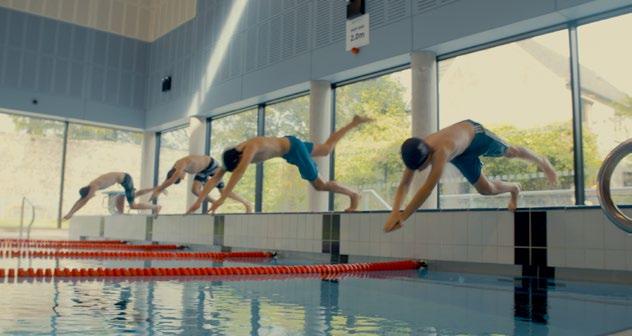

• Irish education system is broad and balanced
• Convenient location for airport
Details:
Headmaster: Mr Chris Lumb

Student Population: 450 boys
Annual Fees (2023): €21,840
Sibling Discount: 7.5% for 2nd brother if 2 brothers attending. For 3 brothers attending, 10% for 2nd boy and 20% for 3rd boy.
Mr Chris Lumb, Headmaster
MissionScan here for a virtual tour.

With a girls’ school and a boys’ school working in close harmony, Sherborne offers the best of both worlds when it comes to educating your children. In an era when an increasing number of independent schools educate girls and boys together, the beautiful Dorset town of Sherborne offers a unique proposition. Here, you’ll find separate girls’ and boys’ schools located within a stone’s throw of one another and working closely to offer the focus of single-sex teaching with the social benefits of a co-educational setting. However, the schools remain discrete entities. At Sherborne Girls, pupils are empowered to make a positive difference to the world around them. They are encouraged to find their voice, recognising the role they have in shaping the future and giving back to society. At Sherborne School, a culture of kindness and compassion is woven into the fabric. Boys are given space to grow, finding their unique gifts and relishing the joys and opportunities of life in a busy boarding environment. As well as regular joint socials, pupils from both schools enjoy meeting informally in Sherborne’s attractive town centre and the schools regularly collaborate in concerts, drama, expeditions and CCF to enhance their co-curricular provision, as well as engaging with the local community. This close cooperation produces pupils who are ready to face the challenges of the modern world, alive to the difference they can make, and ready to embrace the future.
Curriculum: British Curriculum: GCSE, A level, Extended Project Qualification (EPQ).
Facilities: Both schools have first-rate academic and boarding facilities. Students of both schools are able to use Sherborne Abbey for worship, choir rehearsals and choral services. The Merritt Centre offers a stunning performing arts centre encompassing a recital hall, music school, recording studio and art gallery, while the state-of-theart sports centre includes an indoor hockey pitch, two five-a-side pitches, basketball courts, fitness suite, swimming pool and more.
Co-curricular: There are many co-curricular activities to choose from at Sherborne. These include drama, various music programmes, Combined Cadet Force (CCF), debating, community service and volunteering, coding, robotics and all kinds of sports.
Highlights:
• Located in a beautiful, historic market town in rural Dorset
• Two hours from London, direct rail links to mainline stations, escorted transport to major airports
• Unique ‘Separate Yet Together’ partnership offering the best of both worlds: single-sex education alongside a wealth of joint opportunities
• Excellent careers support
• Extensive co-curricular and enrichment opportunities
Details:
Heads: Dr Dominic Luckett (Sherborne School), Dr Ruth Sullivan (Sherborne Girls)
Student Population: 589 (Sherborne School), 493 (Sherborne Girls)
Termly Boarding fee (2023-24): £15,200 (Sherborne School), £12,250-14,950 (Sherborne Girls)




Average class size: 20-25 (Sherborne School), 14-20 (Sherborne Girls)


Founded in 1928 by J.G. Jeffreys, Bryanston is a leading co-educational boarding and day school based in Blandford Forum, Dorset. Inspired by 90 years of innovative practice, their approach to education and their distinctive culture nurtures purposeful, curious and well-rounded individuals. Bryanston attracts pupils from around the world, as well as London and other regions of the UK. As a leading co-educational school for pupils aged 3-18, Bryanston Prep is where the journey starts for children to learn to love their minds. Bryanston School equips its pupils with the skills to become independent learners and encourages them to discover areas in which they can flourish and excel. Using a modified version of the Dalton Plan, an educational philosophy developed by the American educationalist Helen Parkhurst, the School equips its pupils with the skills to become independent learners and encourages them to discover areas in which they can flourish and excel. Their distinctive, unbounded value speaks to the open-minded, challenging and inspiring nature of the Bryanston experience, their humanity and their pupils, who are curious, self-reliant and purposeful. Beyond the School, Bryanston embraces educational, cultural and social initiatives. They don’t simply provide education to their pupils; Bryanston travels beside them and guides them on their journey.
Curriculum: Bryanston doesn't make assumptions about where someone’s strengths lie. Instead, they encourage every pupil to explore a breadth of subjects before they decide on their choices for GCSE, A level or IB. Together with their tutor, pupils are supported in their choice of subjects as they move through the school.

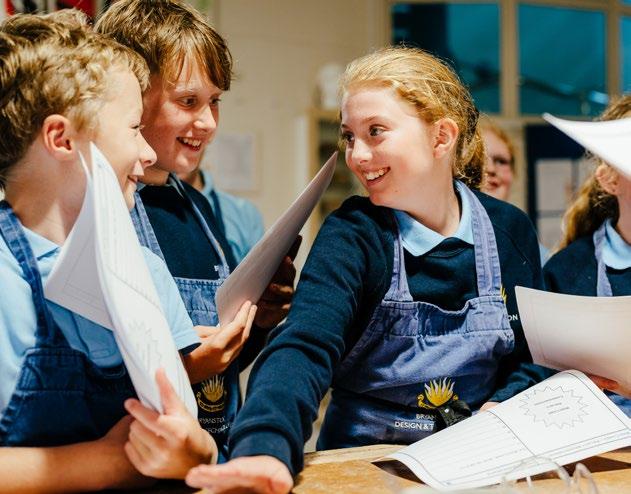
Facilities: Bryanston is a unique mix of old and new, perfectly suiting its motto ‘et nova et vetera’. The campus features a number of listed buildings with contemporary buildings seamlessly nestled alongside. The magnificent Norman Shaw house is the school’s heart and Bryanston’s family home. The entrance hall and 100-yard central corridor are both a meeting place and main thoroughfare, providing areas of work and relaxation for the school community. The school’s facilities for the arts are simply outstanding. Facilities include: Coade Hall, a purpose-built theatre with a raked auditorium seating 600, a fly tower, a large stage, an orchestra pit, and a sophisticated system of stage lighting and sound; Tom Wheare Music School with a recital room, recording studio and editing suite; 300-seat Sir Mark Elder Concert Hall, with a 150 square-metre performance space; and award-winning Sanger Centre for Science and Mathematics. Pupils from the Prep School also benefit from the incredible facilities at the Senior School.
Extracurricular: Over 100 extracurricular activities; sports facilities including playing fields covering 56 acres, athletics track and a 25-metre indoor pool; the River Stour allows rowing and kayaking; Equestrian Centre for showjumping and dressage, and cross country fields and hacking around the estate.

Highlights:
• Set in 400 acres of Dorset countryside
• Over 100 extracurricular activities
• Listed and contemporary buildings
• Convenient coach links to London
Heathrow and Central London
Details:
Head: Richard Jones
Population: 417 boys/395 girls
Annual Boarding Fee (2023): £26,865 (Prep), £40,890 (Senior)
Discount: Bursaries available
Average class size: 8-15

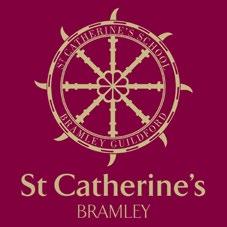
St Catherine’s is an academically selective Church of England School with a focus on roundedness. It offers all its pupils access to a first-rate education in the broadest sense. Though the school has Christian foundations, they welcome girls from all faiths and none. St Catherine’s global boarding community includes over 19 different nationalities from across the globe. Excellent teaching, first-rate facilities and a caring pastoral team combine to make St Catherine’s a vibrant and highly successful school for both boarders and day girls. Above all, they aim to give pupils both the opportunities and the confidence to fully develop their own individual talents and abilities.
Co-curricular: A wide selection of activities, clubs and societies is offered and girls are encouraged to spread their wings on arrival and try out new things as well as pursuing those with which they are long familiar.
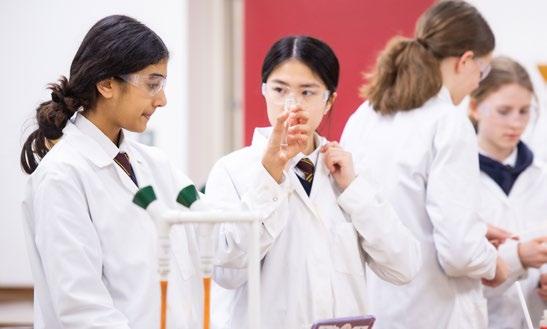
“St Catherine’s is a hidden gem and has exceeded all our expectations. Our daughter’s inner confidence has grown so much and now she believes anything is achievable.” -Mr Webster, Current Parent, 2023
Highlights:
Strong academic results
• First-rate facilities
• Beautiful 25 acre campus
• Wide range of extracurricular activities
• Conveniently located for both Gatwick and Heathrow airports
Details:
• Strong pastoral care
Headmistress: Alice Phillips
Average class size: 24 Population: 900 Academic calendar: September-July
Boarding Fees (Middle & Senior): £11,660 per term
+44 (0) 1483 899665 | admissions@stcatherines.info | www.stcatherines.info


Station Road, Bramley, Guildford, Surrey, GU5 0DF



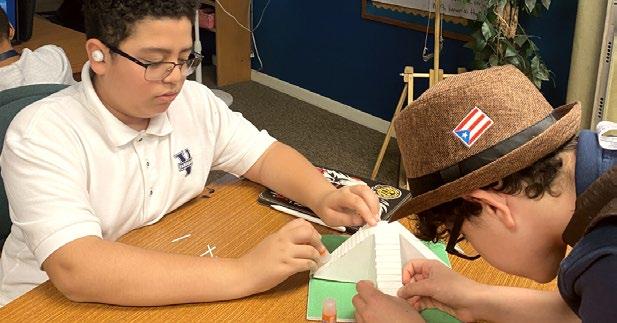

The Vanguard School is an inclusive preparatory boarding and day school dedicated to empowering neurodiverse learners in 6th through 12th grades. They specialise in providing an individualised environment for learners to connect to learning, find a community, build confidence and seek to identify value in themselves and others. They strive to produce adults with the grit and skills to pursue personal interests and goals. The Vanguard School welcomes learners by meeting them at their social, emotional and academic skill levels and provides strategy and skill support at their individualised learning pace.
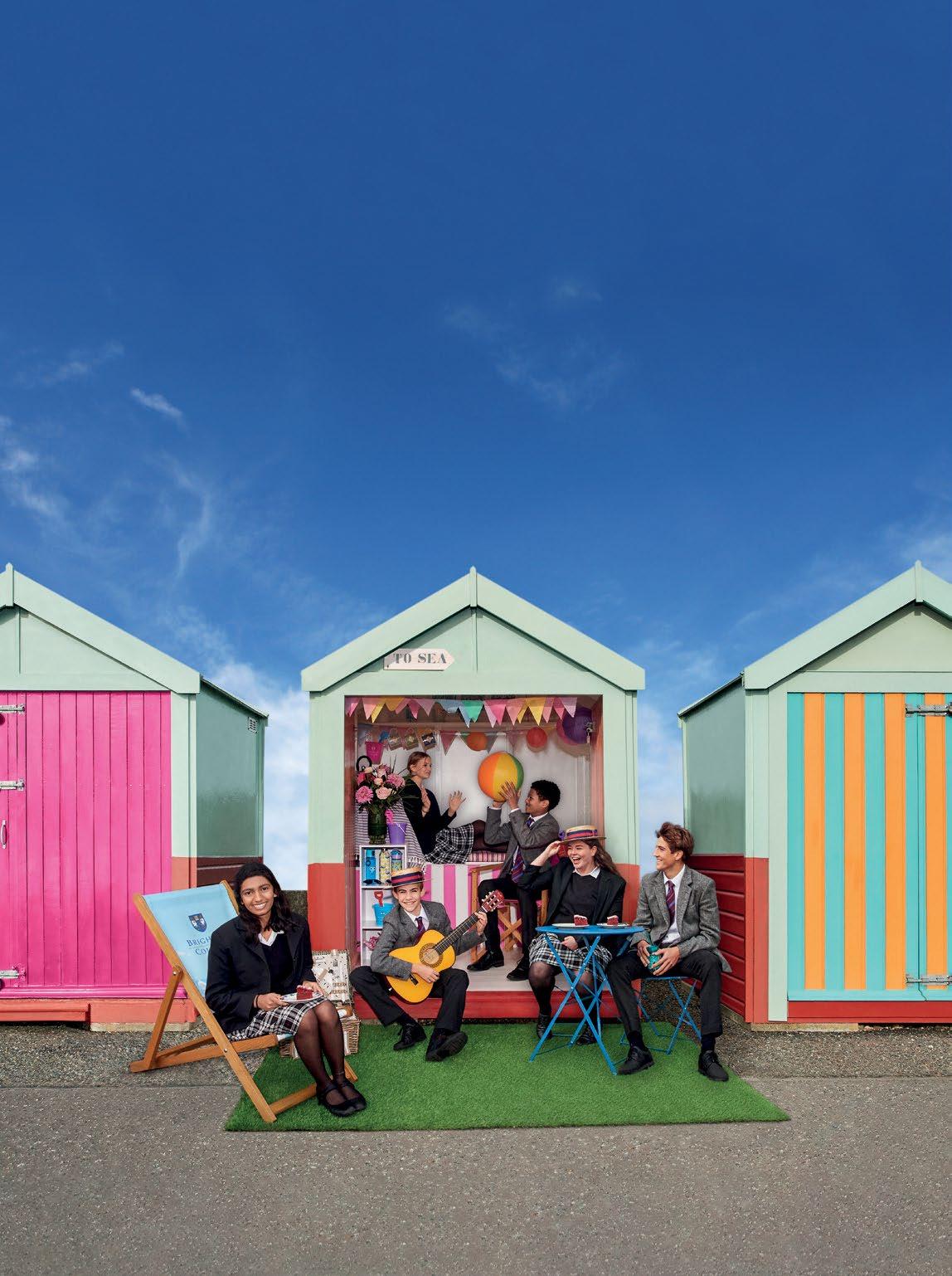
Highlights:
While offering small class size, assistive technology, social pragmatic support, and learning accommodations to all students, success in and out of the classroom is met to increase confidence and connection to academic pursuit.
Details:
Head: L. Shannon Graves
Student Population: 120 Average Class Size: 6-8
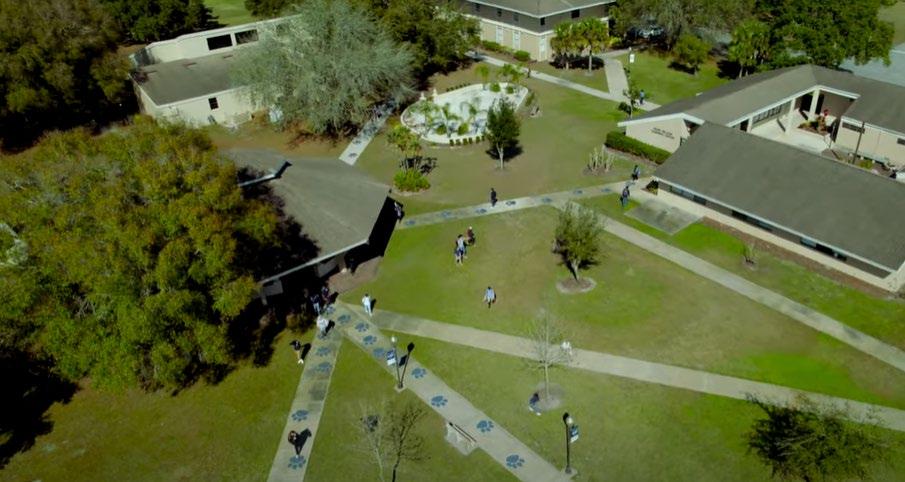
Boarding Fees (2023-24): From US$54,000
Extracurricular: Athletics (swimming, basketball, golf, cross-country, track & field, archery, tennis, soccer), arts (fine arts, performing arts, culinary, technology), leadership development, college and university dual enrolment, weekend excursions and more.






The Webb School was founded in 1870 by notable educator, Sawney Webb and is the oldest continuously operating boarding school in the southeast. Webb offers challenging academics with an emphasis on personal integrity. Their small community embraces students of diverse backgrounds, personalities and interests. The family-like setting at Webb provides personal attention for each student. Their robust academic programme includes college prep courses, honours courses, 20 APs and 10 dual enrolment classes through Lipscomb University in Nashville.
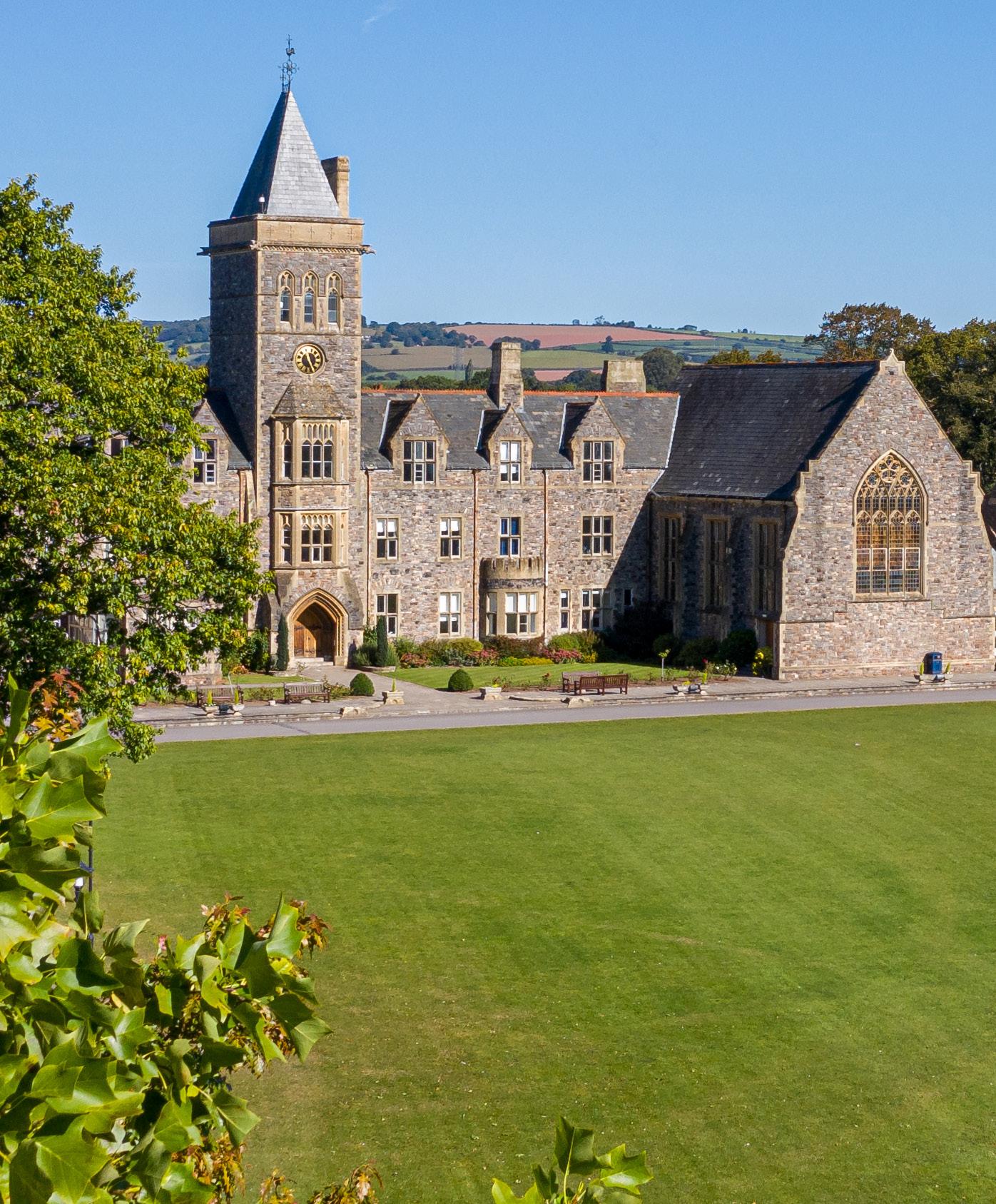
Co-curricular: At Webb, extracurricular activities are just as important as academics. If a student has a certain passion or interest and wants to start up their own club, that student can! They just need to find a faculty member to sponsor the club and then recruit other students to join.

Highlights:
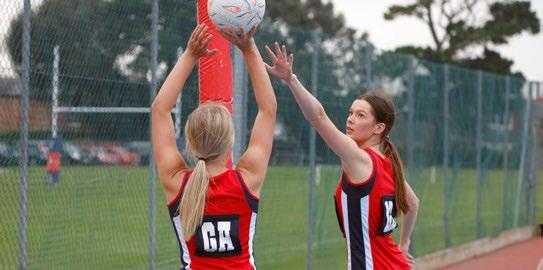
Strong academic results
• First-rate facilities
• Emerging Voices Programme
• WILD programme: Wilderness Instruction & Leadership Development
•
• English Language Learner (ELL) programme that includes three different tiers of placement

Strong Fine Arts
Details:
Head: Ken Cheeseman Associate Head of School: Jim Callis Population: 425

Average Class Size: 13 Annual Boarding fees: CI$63,900

We asked boarding school students from Grand Cayman and beyond about their experience abroad. Now you can find out what life is really like from the boarders themselves!
Breannach, Clongowes Wood College SJ, Ireland.
Breannach joined from Cayman Prep (Year 10) into the Transition Year (TY) at Clongowes in September 2022.
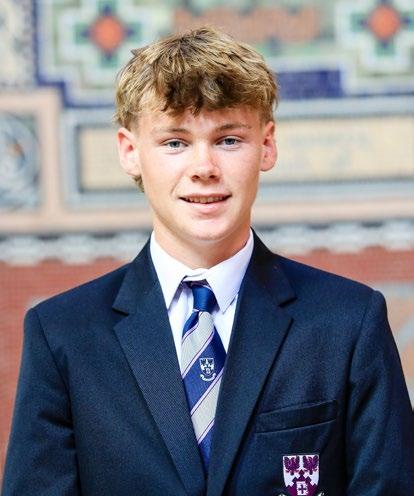
What is the best thing about being at boarding school? I’ve really enjoyed how full the schedule is. We are always kept busy with a range of sports and different activities.
What is the hardest thing about boarding school? I didn’t find many things very hard as the TY is a very good year to settle into the school. I was a bit homesick at the beginning but that didn’t last long.
How did you overcome your homesickness? I have lots of contact with home and can call home every day if I want. Getting to know the other people in my year and getting used to the routine of a new school really helped.
What does a school day look like for you? We have school on six days, with half days on Wednesdays and Saturdays for sport. We are up at 7.30am on weekdays; later at the weekend. We have Morning Prayer with the rest of the school at 8.25am on Monday, Wednesday and Friday. Class runs from 8.45am to 3.45pm (or noon on Wednesday and Saturday). We have sports from 4pm to 5pm and study from 6pm to 8pm. Then we have free time from 8pm to 9pm and the gym or sports from 9pm to 10pm and we’re in bed by 10.25pm. It’s a busy day but very enjoyable.
How does the work load compare to Cayman Prep? I moved from GCSEs to TY which is not an overly academic year but was a great year to settle in. I expect my workload will greatly increase next year!
What advice would you give a new boarding school student? I’d say that getting involved in as many things as possible will really help you settle in. There are many different things offered to TYs at Clongowes, so there is a lot to keep us busy.
Jaxon, St. Andrews College, Canada.
Jaxon joined from Cayman Prep and is currently in Grade 11.
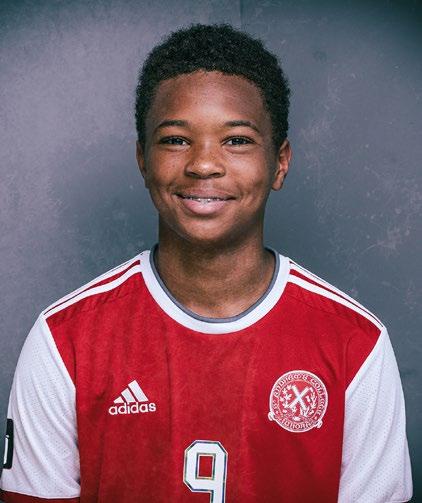
What is the best thing about being at boarding school? St. Andrew’s College has many great things to offer, but the diversity at the school is the most noticeable. SAC attracts students from all over the world, which creates a diverse community.
What do you do on a weekend at boarding school?
As a student-athlete, I sometimes travel to other locations to play games, but when I'm on campus over the weekend, I love hanging out with my friends and getting involved around my house or school. I enjoy playing soccer on the Yuill Field, pool in Sifton House, or playing basketball.
What advice would you give a new boarding school student? Take advantage of the facilities; the facilities have helped me excel academically and athletically. Some of my favourite facilities include the La Brier Family hockey arena, which includes a state-of-the-art weight room; Bedard Gymnasium, which Upper School students and sports teams use; McLaughlin Hall, which was just recently renovated is where we have our Science classes, and my favourite is the dining hall where we share our meals.
Did you feel adequately prepared for boarding school? I feel like I was ready for all of my courses in my first year at St. Andrew’s, and Cayman Prep prepared me well for this next step.
What are your favourite extracurricular activities? Since coming to St. Andrew’s and being exposed to ice hockey, I’ve found a love for the game and joined the school’s U16 Hockey team.
How did you find the social side of boarding school?
People at SAC are really easy to talk to and friendly. It’s a very inclusive group of students. I’ve learned that you can be friends with many different groups of people, and you aren’t restricted to finding one friendship group.
Asia & Kaia, Bishop's College School (BCS), Canada. Asia and Kaia joined BCS from Cayman International School (CIS) and are both currently in their first year (Grade 7).
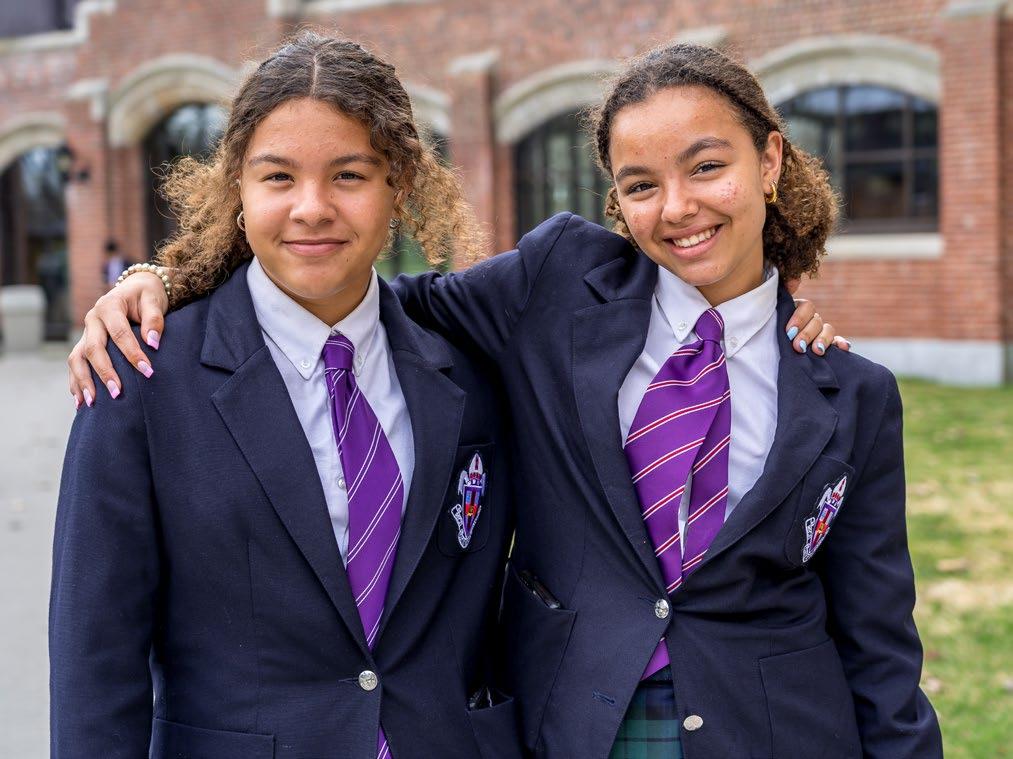
What is the best thing about being at boarding school?
Kaia: I am experiencing things that I would not have experienced in Cayman. For example, snowboarding, having a roommate, gaining a level of independence and responsibility that I didn't get when living with my parents.
Asia: Being a boarder myself! My best friend is my roommate, and it's so much fun being in a house with 14 girls.
How did you find the social side of boarding school when you first started?
Kaia: There were team-building activities and events like cadets and a walk up Mount Orford that were organised to help us socialise. These activities allowed new and returning students to interact with each other so that we were able to become more comfortable with each other, as well as get to know each other better.
Asia: When I first started, I came in with all the new kids, which I think is great because everyone was in the same situation. Everyone that was here last year was kind and welcoming.
What are your favourite extracurricular activities?
Kaia: Going on afternoon walks in the forest with my friends, along with going to the cardio room.
Asia: Football (soccer) because in Cayman I played football a lot. I thought when I went to BCS that it would stop, but the sports here are great and I really enjoy playing football at BCS.
How does the workload compare to CIS?
Kaia: The workload is quite similar, maybe a little bit more structured and the expectations are a little higher.
Asia: The workload at BCS is really similar to the workload at CIS.
What is the hardest thing about boarding school?
Kaia: Being away from my family and learning to live with someone new. I didn't want to give a bad first impression so I was very nervous.
Asia: It's different for different people, but for me it was leaving my family.
What advice would you give a new boarding school student?
Kaia: I would tell new boarding students that it is rough at the beginning and that it is hard being away from your family, but that in the end, it is worth it because you learn so much, meet new people and gain self confidence.
Asia: The advice I would give to a new boarder is that it is hard at first and different, but in the end it is all worth it, I promise.
What do you do on a weekend at boarding school?
Kaia: On weekends my friends and I choose between weekend activities provided by the school, such as mall trips, snowboarding trips, ski trips or going to the movies. Sometimes we go see friends and family that live in the area. We also sometimes walk into the local town, Lennoxville, where there are restaurants and cafés.
Asia: On weekends I sometimes go out with my family or friends, but if I am on campus then I would usually go on the mall trip or go to Lennoxville. In winter I would go snowboarding.
Did you find the transition to boarding school a challenge? And did you struggle with any particular subjects?
Kaia: No, I did not find the transition a challenge. I found it easy to move from one school to another. I did have a challenge with one of my courses; French. It was difficult starting a new language that I've never spoken before, but something that helped was the Spanish I'd taken at my previous school in Cayman. There are many similarities between Spanish and French both being Latin based.
Asia: A subject I didn’t feel adequately prepared for was Geography, but I overcame this by studying a lot during prep.
Did you experience homesickness? How did you overcome it?
Kaia: Yes, I did and still do miss my friends and family at home sometimes, but it gets easier knowing I have made new friends who are and will continue to be there for me.
Asia: I did experience homesickness. I really did miss my family, and I still do now, but I try to think on the positive side and be grateful for what I have.
What does a school day look like?
Kaia: Every day there is something to do from when we wake up to when we go to sleep. During the day all students are focused and determined to do great things. There's laughter in classes, conversations at lunch, fun during crease and constant activities.
Asia: A school day at BCS looks like this: Period 1, Period 2, Snack, Period 3, Lunch, Period 4, Period 5 then crease (sports). Also on Monday, Wednesday and Friday there is chapel (morning assembly).
Grace joined St. Catherine's from the British School in the Netherlands and is currently in Year 12.
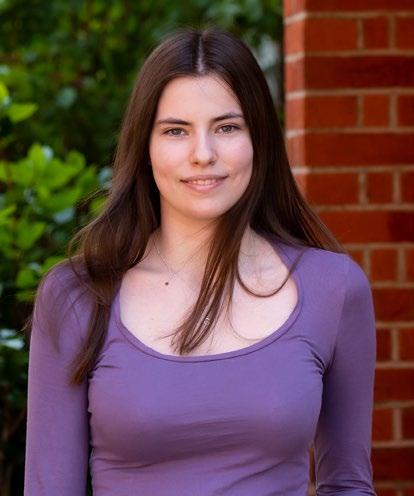
What is the best thing about being at boarding school?
You make genuine friends for life. When you spend so much time living with people, you get a closer bond with them compared to if you just saw them during day-to-day school. I feel like I always have people to support me and I truly don’t believe I would have made friends like that without being a boarder.
What advice would you give a new boarding school student? Keep a very open mind to new people and try to be very tolerant of everyone. Letting minor issues go and learning to live with each other is the best way to have a positive experience with boarding. Be willing to try new things and get involved with as many different extracurricular activities as possible, as this is a great way to make new friends and keep yourself busy if you start to get homesick.
What is the hardest thing about boarding school?
Adjusting to living with people who work differently to you. It took me quite a while to accept that everyone has their own values and way of living, and that not everyone wants to work around you or do things your way. I had to adjust to roommates who were not as neat and tidy as I am, or who woke up extremely early in the morning (which I still don’t understand). It’s a key life skill that is very important and transferable for the future, but it took me a while to adjust to this.
What are your favourite extracurricular activities? I have really enjoyed doing drama, even though I am not the most confident person and dislike going on stage, I found doing the LAMDA and RADA awards offered by the school incredibly rewarding and confidence building. I also really enjoy playing tennis, especially as I get to be in a group with my friends and we just have a lot of fun together. I also take part in a cooking course, which is very helpful and makes me extremely popular in boarding when I come back on a Monday with boxes full of freshly-cooked food! I really enjoyed playing lacrosse further down the school, as even though I am not the most skilled player, I loved going to weekend matches and attending tournaments.
What do you do on a weekend at boarding school?
There are many different activities on offer and they become more flexible as you go through school. This means I can revise during exam season and also take breaks for more fun activities. My favourite activities are the trips into London, especially to Winter Wonderland at Christmas, the annual Thorpe Park and Brighton beach trips during the summer, trips to the cinema, and the cooking workshops. Sometimes it's just nice to go for a walk, to the gym or simply just hang out with friends.
Zachery joined The Webb School from St. Ignatius in 2020 and is currently a Senior.
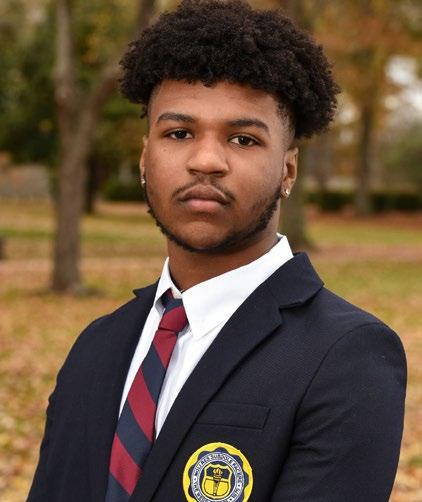
What is the best thing about being at boarding school?
The trust I earned from my family. They trusted that I would do my best as a young man and mature each day as I learn different skills and be successful in college and life.
What advice would you give a new boarding school student? Have patience and know everything will work itself out. Set goals and be as involved with the school as possible.
How did you find the social side of boarding School when you first started? I found it easy because I had a friend who came with me from Grand Cayman. We started to meet new people from different cultures and backgrounds, and I was infatuated by the things they liked and they were intrigued by my background as well.
How does the workload compare to your previous school in Cayman? The workload here at Webb is rigorous. However, comparing it to Grand Cayman, it is not too different.
What do you do on a weekend at boarding school? I stay as busy as possible. I'm involved in the outdoor programme at our school called WILD (Wilderness Instruction Leadership and Development). I like to take walks to downtown Bell Buckle where there are shops and things to do and I also like to play games with friends in the dorm or on campus. I also do my homework assignments for the upcoming week.
And did you struggle with any particular subjects? Physics. It took a toll on me to conquer this class. However, with diligent studying, assistance from our Study Center and the help of my teachers and friends, I was able to pull my grade up and passed the class with a B+.
Did you experience homesickness? How did you overcome it? Yes. When I first arrived at The Webb School, I was very homesick. However, once the school year was in progress, I filled my time with different things around campus to take my mind off home. Also, here at Webb, we have a lot of breaks to travel back home to see family. So, I took advantage of those breaks to go back to Grand Cayman.
What does a school day look like? I have a usual daily schedule from morning to afternoon. I have a free period to go talk with teachers, go to the study centre, or just to catch up on things I need to do around campus. I eat lunch around noon and after school I socialise with friends.
All children who leave Government high schools at 16, at the end of Year 11, will have taken either GCSEs or CXCs. However, since the Cayman Islands Government does not currently offer A Levels in their high schools, they have made provision, by way of a financial scholarship, for all children who qualify with the required grades, to either take A Levels at one of the private schools, or a BTEC or Associates Degree at UCCI or ICCI. There is a plan to reintroduce A Levels into public high schools for the 2024-25 school year.
If a Caymanian government high school student has the qualifying grades and is formally accepted into the A Level programme at either Cayman Prep & High School (CPHS) or St. Ignatius Catholic School, the student can get funding towards tuition, books, examination fees and meals for each of the two A Level years. Students need to apply to the Scholarship Secretariat for the funding, and they must have Dual Enrolment approval from the Department of Education Services. Parents need to be prepared to pay for other incidentals, including Parent Teacher Association (PTA) fees and uniforms. To qualify for the aforementioned financial assistance, students need to have achieved a minimum of five IGCSE/GCSE/CXC (PE and Life Skills cannot count towards the five) passes at grade C or higher, and have passed English and Mathematics. To qualify for funding in the second year of the course, students must achieve a minimum of three C grades in their AS Level exams at the end of the first year of their A Level course. Any money received from the Scholarship Secretariat is paid directly to the school and cannot be used for uniforms or any other incidentals. The financial information requirement (means testing) for the local scholarship application has been removed. Hence, employment letters and other financial details are no longer required to be submitted with the application.
Some children also leave Cayman at age 16 and go to England to take A Levels or a BTEC Level 3 Extended Diploma at a Sixth Form college. In the UK state school system (government schooling), if a child has a British passport, they are ‘fee-free’ until they turn 19 years of age. The Scholarship Secretariat will then contribute up to the equivalent of the local tuition amount towards the student’s living expenses, but only if the A Level/ BTEC is not available locally.
Caymanian students who have attended a private school in Cayman, and have been accepted into the A Level programme, having achieved a minimum of five IGCSE/GCSE/CXC passes at grade C or higher, including English and Maths, can also
apply for assistance with the fees for their A Level course. On achieving a successful application, these students can get financial assistance towards tuition, books, examination fees and meals for each of the two years of their A Level course. Students must have achieved three C grades in their AS Levels to get funding for their second year.
If a Caymanian wants to take the two-year IB course either in Cayman at CIS or overseas, they can apply to the Scholarship Secretariat for a scholarship to help towards the fees. If they qualify they can get up to CI$7,000 per year. The Scholarship Secretariat requires that the student is registered in a minimum of one Higher Level (HL) certificate and four Standard Level (SL) certificates. They must have a minimum GPA of 3.25 with no Ds or Fs in their first year of study of IB and, to receive money in the second year, have a recommendation from the relevant institution to continue with their IB studies into the second year.
If a Caymanian government high school student chooses to finish their secondary education doing an Associate’s Degree at UCCI or ICCI, then they can apply for the tuition and book fees to be paid. However, all students who have not achieved either an A or B grade in English and Maths are mandated to take remedial Maths and English at college level, as well as College Skill classes and Career Classes. History has shown educators that if a student fails English and Maths at IGCSE/ GCSE/CXC, they are likely to fail their Associate Level course. That fail then remains on their academic record, affecting their university accumulative performance, the student’s ability to get into other universities, and their ability to get a scholarship to help with funding. The Associate's Degree takes about 2.5 years at UCCI (with 68 credits), 18 months at ICCI (which is a quarterterm institution) and students will graduate with an Associate’s Degree worth 90 credits.
If any other Caymanian student wants to do an Associate’s Degree at UCCI/ICCI, they can also get funding towards both years of their course if they have achieved enough passes in external exams to qualify to take the course.
The Cayman Parent website (www.caymanparent.com) has a very extensive and detailed list of scholarships that are available, plus it lists the criteria needed for each scholarship and the funding that is available.
Scholarship funding of up to CI$7,000 is available to Caymanian students who are going into their final two years of studying Advance Placements (AP). Caymanian students taking the Caribbean Advanced Proficiency Examinations (CAPE) get both of their final two years of tuition paid in full (up to CI$14,000 per year). However, since CAPE is not currently offered in any school in Cayman, the student must find a school in the Caribbean to take these courses, and they must make the case for why they cannot take A Levels in Cayman instead. The Scholarship Secretariat will not pay a scholarship for a course that is an alternative, but equivalent in terms of academics, if that course can be taken in Cayman.
If a student would rather do a course which includes lots of hands-on special project assignments and work experience, then they might want to choose a BTEC Level 1, 2 or 3 Diploma, depending on their prior skills, experience and qualifications. Government high schools in Cayman offer BTEC Level 1 and 2 courses, and CIFEC offers BTEC Level 1 and 2 courses, as well as the first year (only) of the BTEC Level 3 Extended Diploma. For students to complete their Level 3 Diploma (which is considered the equivalent of taking 3 A Levels) they will need to go to England to take the second year. To qualify for an overseas undergraduate scholarship, students taking the BTEC Level 3 Extended Diploma will need to finish the two-year course with a minimum grade of triple merit (known as MMM). CIFEC currently offers two BTEC Level 3 Extended Diplomas in Creative Media Film & TV and Business but only to Certificate and not Diploma level (since you can only attend CIFEC for one year and the full diploma is a two-year course).
To be considered for an overseas scholarship for a Technical/Vocational Study Programme (TVET) such as Auto Mechanics, Computer Engineering, Building Construction Technology or Radiography Technician, you must have five higher level GCSE/CXC subject passes with A, B or C grades including Maths and English Language, or three higher GCSE/CXC passes with A, B or C grades with 99 Foundation Maths and English with A or B grades from UCCI or ICCI. Alternatively, you could also have a cumulative high school GPA of 2.75 or higher, including Maths and English Language passes with A, B or C grades, or a cumulative GPA of 2.5 in your first year of study at UCCI or other institution with professional or academic work in the desired course of study. Mature candidates will be reviewed on a case-by-case basis. The Education Council have compiled a list of technical/vocational study programmes that they will consider approving scholarships for.
Scholarships are also available to students wanting to stay
in Cayman and take a technical and vocational certificate or diploma. Cayman Career Academy offers CIDESCO Diplomas in Beauty Therapy, and Beauty & Spa Management. They also offer certificates in Aesthetics, Body Therapy, Skin Care and Manual Facials. However, they do offer other courses but the Scholarship Secretariat will not approve scholarship funding unless the course leads to a certificate or diploma. To be approved for a course at CCA, you must have a Level 2 certification in cosmetology and a minimum of 3 higher level passes (CXC or GCSE) or their equivalent qualifications, including English and/or Mathematics.
Government educational scholarships are available to pursue online at the local undergraduate level at ICCI and the UWI Open Campus. Online study with an overseas institution is only available at the postgraduate degree level (i.e. Masters level or higher). Please note: you do not have to complete a medical if you are doing postgraduate studies online.
In an effort to ensure that Caymanians have the opportunity to fulfil their educational and career goals, the Ministry of Education, through the Education Council and administered by the Scholarship Secretariat, offers scholarships and grants to all Caymanian students who qualify to pursue either a local or an overseas tertiary education. Students can apply for an overseas scholarship between November 15th and January 31st annually, and a local scholarship between March 1st and April 30th. No late applications are accepted. Students need to apply to a university prior to their scholarship application, but they do not have to have received an acceptance letter prior to applying. The qualifying criteria for a scholarship varies depending on whether you are aiming to take a Technical and Vocational course, a Bachelor’s degree, a Master’s or a PhD. The minimum age at which you can qualify for an overseas scholarship is 17, but the expectation is that you will turn 18 during that academic year. There is no upper age limit on applying for a scholarship.
To be considered for an overseas scholarship to study a Bachelor’s degree programme you must have passed your AP, IB, A Levels, BTEC, SATs or Associate's Degree to a certain criteria set out in the Scholarship Secretariat’s application form.
• A Levels: Three A Levels with a minimum grade of Grade C in each A-Level.
• Advanced Placement (AP): You must have passed three group A subjects or two group A and two Group B subjects with a minimum grade of three, and two standard level subjects at the 12th grade level with a cumulative high school GPA of 3.25.
• International Baccalaureate (IB): You must have taken and passed the full IB diploma, must have three higher level IB certificates with a minimum of 13 points, and no grade lower than 4, and two standard level IB subjects at the 12th grade level with a cumulative high school GPA of 3.25. Alternatively, you can have five standard level certificates
Application Period: 1st March – 30th April 2024
The local scholarship can facilitate a Fall 2024 or Spring 2025 start date at UCCI, ICCI, UWI Open Campus, Truman Bodden Law School, A levels/CAPE, BTEC Level 3 Cayman Career Academy, International Baccalaureate or Advanced Placement.
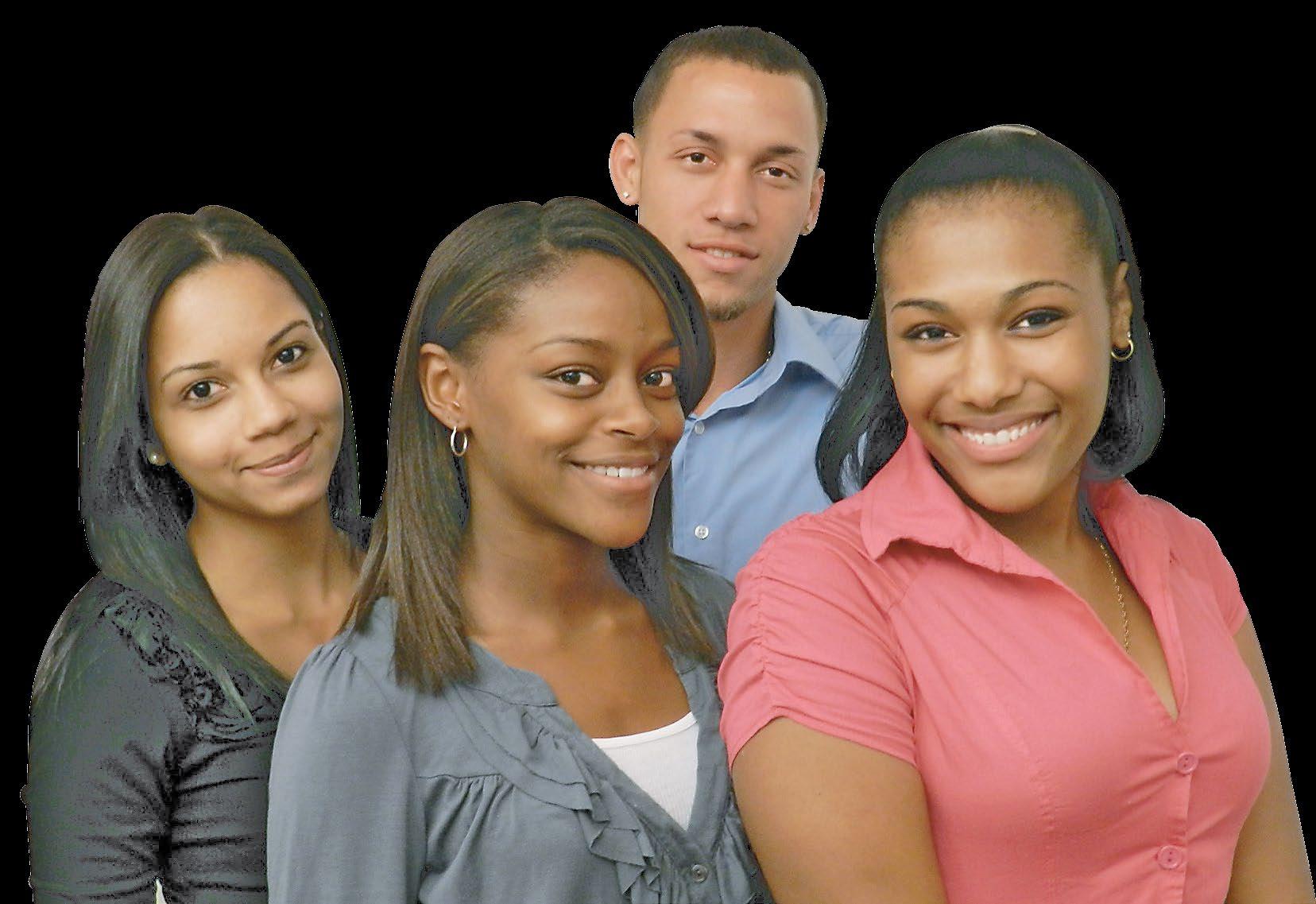
Application Period: 15th November 2023 – 31st January 2024
The overseas scholarship can facilitate a Fall 2024 or Spring 2025 start date. Scholarships are available to pursue overseas tertiary studies; TVET, Associate, Bachelor, Master, PhD studies and Medical specialisations.
*NO applications can be made in advance or after the application periods stated. Do not delay applications because grades or acceptance letters are not yet available. Applications must be made online or they will not be accepted!
To apply and obtain academic criteria, required documents and frequently asked questions visit: moescholarships.gov.ky
with no grade lower than 4.
• CAPE: Three CAPE Unit 2 with a minimum grade of Grade C/3 in each CAPE Unit 2.
• Associate's Degrees: Must have a cumulative GPA of 3.00 or higher, or Associate level studies with a minimum 3.0 cumulative GPA.
• BTEC Level 3: Must have an Extended Diploma with a minimum MMM grade average.
In some cases, The Education Council may award an overseas scholarship to students who do not have advanced standing (IB, A Levels, CAPE, AP) if they meet one of the following two criteria: 1) seven GCSE/CXC passes at A or B grade in all subjects, including Mathematics and English, or 2) A combined cumulative High School GPA of 3.25 or higher and a SAT score of 1100 or ACT score of 22.
To maintain your scholarship, you must achieve a 2.75 GPA or a 2:2 in the first year of study, and a 3.00 GPA or a 2:1 in your subsequent years. The Education Council has a requirement that you do at least 12 credits per semester/term in your first year and then 15 credits per term in the subsequent years. Overall, a Bachelor's degree should take 120 credits to complete. Each year you should be doing a minimum of 30 credits for a four year course, and 40 credits for a three year course.
Students on an overseas scholarship who have competed locally and continue to train while at university and who intend to compete at the collegiate level can be considered Student Athletes. This means that the student can maintain the lower criteria (2.75 GPA or a 2:2 in the UK) for their subsequent years of study. For this, they must get a letter from the Sports Director of the institution that they are attending to prove that they are still training and competing with the college or university.
Cayman National invites all Caymanian students, aged 17-25, seeking financial support for their studies to apply.
We’re looking for business-focused, community-oriented individuals passionate about the development of the Cayman Islands through their talent and skills.
• Must possess five or more higher-level passes (CXC, GCSE, GCE)
• Must possess a cumulative GPA of 3.2 or higher
Apply for our undergraduate business scholarship by late April 2024. Visit caymannational.com/careers to learn more and apply.

Another part of the overseas scholarship application process is a mandatory interview for short-listed applicants. That interview includes at least two professionals in the field that the student wants to study. The interview is to determine whether or not the student is ready to undertake the study and whether they understand how they will apply their degree to a job. The panel of interviewers will then score the candidate and determine whether the student is ready, whether they understand the field that they are going to study and whether their university of choice is suitable for them. Some students choose a university because of a family attachment or because the university itself has been a popular choice with other students, rather than because of the course they can take or whether it is the best university for the subject they want to study.
You will have to sign a student bond with your surety if you are awarded a scholarship committing you to a) successfully completing your proposed studies and b) then working in the Cayman Islands for a specific period of time after your studies finish. If you fail to meet either of these two requirements, you will have to repay all the scholarship funds that you have received.
Having said that, you have a 12-month window in which you should return to Cayman after your degree finishes, or you can apply to the Council for an extension to your return date if you have the opportunity to gain further experience in your field prior to returning home.
Tracking Undergraduate Scholarship Expenses
In addition to the Ministry of Education’s scholarships, students can also apply for a private sector scholarship as long as both scholarships do not exceed their total costs.
Although the process of getting a scholarship may seem overwhelming, the Secretariat must have a way of measuring that a student’s performance is within the requirements set by the Education Council. They also require students to go through a costing procedure. Each student must fill in a spreadsheet
We cultivate learning. Because there are all sorts of ways to develop and grow. It's why, whatever your role, the opportunities are endless. Time. Tech. Resources. You'll nd it here. Be extraordinary. Be you.
online which automatically tables their expenses and identifies the different costs which they should be thinking about (tuition, room and board, food, dorm supplies, school supplies, groceries, books, utilities, transportation at university, flights home, etc.). Each student is given an online folder in which to upload their expenses and details.
Masters & PhD Scholarships
Qualifying Criteria & Means Testing
GPA Explained: A GPA — or Grade Point Average — of 4.0 is the equivalent of an A, 3.5 GPA is the equivalent of a B+, 3.0 GPA is the equivalent of a B and a 2.0 GPA is the equivalent of a C. To qualify for an overseas scholarship to attend university, the student must finish with a GPA of at least 3.0 or 3 x A Levels at C grade or above.
Legal
Consulting
British Virgin Islands
Cayman Islands
Guernsey
Hong Kong
Ireland
Jersey
London
Luxembourg
Shanghai
Singapore
Tokyo
Ogier has a number of great opportunities for students at all stages in their education, including school work experience, summer internships or scholarships, postgraduate training schemes and Articled Clerk programmes.
criteria remain, including academic performance, acceptance into a credited institution and being domiciled in the Cayman Islands. For students who have been educated overseas for high school, the Scholarship Secretariat require a travel history to ensure that the student has kept a link with the Cayman Islands and has come home in most of the holidays. Another factor to consider is that all scholarship recipients are expected to return to the Cayman Islands when they have completed their studies. Your scholarship award will include an agreement that you are bonded to return to the Cayman Islands for the length of time that the scholarship was awarded. You can request to defer your bond for up to three years after you have completed your degree, especially if you want to get overseas work experience, but you will have to get approval from the Education Council. Failure to get permission and failure to return to Cayman can result in the Ministry of Education requesting to be repaid for the full sum that they awarded to you.
Scholarships are not approved for people at the same level of study that they have already attained, whether or not the qualifications were funded by the Cayman Islands Government. The qualifying criteria for a local or overseas scholarship can be quite complicated. For details on the criteria and how to apply, see the Ministry of Education's scholarship website: https:// moescholarships.gov.ky/.
There are over fifty private scholarships available every year
in the Cayman Islands, and these can be combined with a government scholarship. All the top law firms offer annual scholarships, as do the top accounting firms, and there are dozens of others available from local banks, hospitals, hotels, CUC, Dart, and other businesses large and small. The amount available annually varies, they usually average US$20,000–US$50,000 per year. Remember that you will have to keep meticulous records on exactly how you spent your scholarship money and this includes receipts for major items. You will usually be required to work for the firm in your summer holidays and on completion of your degree.
When choosing who to award the scholarship to, most private companies will give preference to those school leavers in the current year who are without the financial means to pursue further studies. The applicants are often free to study any course of their choosing as long as it is at a competitively ranked and accredited university. However, most law firms will want you to study Law and they will then pay for the Professional Practice Course (PPC) before they offer you an Articles of Clerkship.
A very extensive and detailed list of private scholarships can be found on the Cayman Parent website (www.caymanparent. com), where we have outlined the scholarships by industry, along with the criteria needed and the amount of funding available.
Maples Group is a market leader in the provision of legal, fiduciary, fund, regulatory and compliance, and entity formation and management services, with expertise across a range of jurisdictions, sectors and disciplines. Each year the Group offers both legal and non-legal scholarships to outstanding Caymanian students who demonstrate a need for assistance. Over 100 Maples Group scholarships have been awarded since 1994.
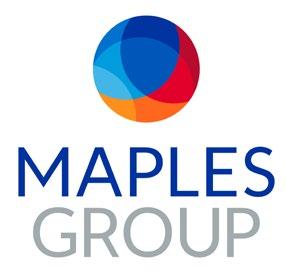
Legal Scholarship: The Maples Group Legal Scholarship is awarded to qualified Caymanians to pursue law degrees at recognised universities. Scholarships are awarded up to US$40,000 per academic year.
Non-Legal Scholarship: The Maples Group Non-legal Scholarship is awarded to qualified Caymanians to pursue undergraduate or postgraduate degree courses at recognised colleges or universities. Scholarships are awarded up to US$15,000 per academic year.
Legal Scholarship: 1st March 2024
Non-Legal Scholarship: 30th April 2024
For more information on the scholarship programmes, contact: Maples Group Ugland House, South Church Street, KY1-1104 PO Box 309 (345) 949 8066 | scholarships@maples.com | www.maples.com
Highlights:
• Legal and non-legal scholarships available
• Up to US$40,000 per academic year for legal scholarship
• Up to US$15,000 per academic year for non-legal scholarship
• Priority access to internship opportunities
• A holistic trainee programme for Articled Clerks
• Prospective job offer upon successful completion
Requirements:
• Be Caymanian or hold Caymanian Status
• Possess a High School Diploma with 3.25 GPA or above
• Demonstrate the need for financial assistance
• Offer of university placement
• Maintain a minimum Upper Second Class Honours or 3.25 GPA
• Regular reports of examination results
Donalyn Miller says she is yet to meet a child she can't turn into a reader. No matter how far behind her students might be when they reach her 6th grade classroom, they end up reading an average of 40 to 50 books a year. Her love of books and teaching is both infectious and inspiring.

A groundbreaking guide to improving teaching based on the latest research in neuroscience that helps us understand the brain and how we learn. It applies this research to the classroom for teachers, parents, and anyone interested in improving education.
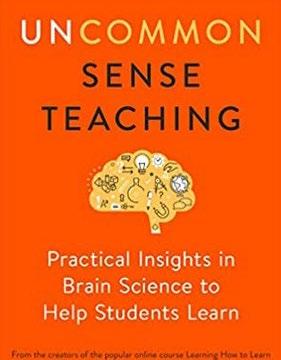
April discovers a tiny polar bear cub desperately in need of her help. In freezing temperatures, April must navigate the dangerous Arctic terrain and face her deepest fears if she’s to save him. A stunning story of survival and a heartwarming tale of love. Perfect for readers aged 8+.

Beautiful, thrilling and magical, this criticallyacclaimed first novel by Kiran Millwood Hargrave is a multi award-winning story that creates a spellbinding world of friendship, myths, magic, discovery and adventure. Perfect for readers aged 10+.

Paul Dix explains that your behaviour (as a parent) is the only behaviour over which you have absolute control. To change your children's behaviour, you first need to change your own. His tried-and-tested method will change what your child does by first changing what you do.
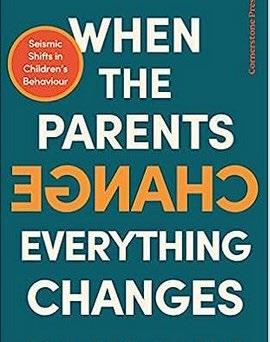
Net Nanny Provides you with an instant report of online searches made by family members, shows you the apps your kids have used and sends you realtime alerts if content related to suicide, porn, drugs or weapons is accessed.

US$39.99.
The students who go to Catherine House know they've made a special commitment to the isolated school: no contact with the outside world for three whole years, no TV or internet, or even their own clothes. Something amazing is offered in return, even if few realise exactly what that is. For 18+

Khan Academy Features thousands of free resources on everything from early Maths to Art History. From preschool to high school, children of all ages can enjoy and learn on this non-profit's platform. Free on Android and iOS.

Saving for your children’s university and college fees is something that ideally needs to be started when your child is very young. Here we offer some suggestions on how, with good and early planning, college fees can be saved without tipping the family finances over the edge.

Saving for college is no different from any other financial goal in that it needs a plan. Your starting point is where you are today and what you have accumulated so far. Take an honest look at your current financial situation. From there, start researching college fees to estimate how much you may need and when you will need it, depending on the age of your child. Then, with the help of an online calculator, you can start to work out the monthly savings needed to get you to where you want to go.
There are lots of online tools that can help you calculate how much you need to save. There is a particularly good one on the FINRA website: tools.finra.org/college_savings.
Having conversations early on with your child is critical when assessing how much you may need. Is there a burning desire to attend a top US university, or will they look to you for direction on where they should go? How much might you be able to fund and how much are you expecting them to fund themselves? It is important to have open and candid discussions with your children so that they have an understanding of the expectations being placed upon them.
If you are struggling with where to begin, try starting with the
1/3, 1/3, 1/3 principle; with you covering 1/3, the child being responsible for 1/3 (either through part-time work or student loans) and 1/3 being raised from scholarships or grants. If the plan involves your child taking responsibility for part of the funding, you will need their participation well before college starts. Keeping grades up and researching the scholarships takes work and dedication. Saving earnings from their part-time summer employment takes discipline. Creating a plan early on and sitting down to revisit it regularly is critical to success.
For many in Cayman, the US is a logical choice, simply because it is closer. However, for both Caymanian and expat students, Canada or the UK can be another, possibly cheaper, option. In the US, tuition fees tend to be between US$30,000 and US$80,000 per annum, with living costs adding another US$20,000 to US$30,000. In the UK, a Caymanian student will pay the local UK tuition fees of around £9,250 per year, with another £10,000£15,000 per year for living costs (not including flights to and from the UK). An expat student will pay ‘overseas fees’ of between £15,500 and £35,000 per year depending on the degree (labbased degrees, including Maths and Engineering, incur higher fees). The fees for the UK are still a little over half of the cost of the US. In Canada, average university tuition for an international student is $36,000 CAD per annum, cheaper for local tuition fees.
Of course, adding another dimension to this is the fact that many parents will have two children (or more) overlapping at college at the same time. (See ‘Applying to University or College’ article for more on the costs involved.)
The reality is, the earlier you start, the less you have to save each month. Growing your money at more than the rate of inflation is really important as, over time, inflation erodes your purchasing power and means that you have to save more to get to the same point. Education inflation can be roughly 5%, or even higher, depending on the school and location. Consider investing in the stock market, however, it is important to review your timeframe before jumping in. It is impossible to know whether the stock market will go up or down in the short-term, and therefore it is only a sensible option if you have some years ahead of you. Time enables you to withstand the ups and downs to benefit from longterm growth.
One of the most important pieces of advice is to ensure that your college savings plan is considered alongside your other financial goals: retirement, caring for elderly parents, paying off mortgages, having emergency cash balances, etc. To put your college savings in context, it is worth seeking the advice of a professional financial planner. A good advisor will help you create a plan that is right for you, your priorities and your life. Look for someone who is dedicated to education. They will recommend the correct assets to invest in (investing in the stock market is not for everyone), and more importantly, they will act as your accountability partner to keep you on track in the years to come.

As a final note, remember that your financial security is important too. Money is emotional and it is easier to give freely, without resentment or blame, when your cup is full (or being filled). Money is not love, and love is not money. Teaching your children good financial planning practices will set them up for life, and help them pay off any student loans more quickly and efficiently. Sadly, there are no loans available for retirement. For that, you simply have to save!
As a Premier Banking client of Cayman National Bank you and your family will enjoy an unparalleled suite of premium products and services with a personalised touch underpinned by service excellence. To learn more about our exclusive offering, contact us at:

As your school’s college counsellor should advise you, the path to university is not all about your grades. Yes, universities will want to see your grades (passes as well as fails) from the start of Grade 9 (US) and Year 10 (UK) and these will all appear on your school transcript, but universities are interested in the whole student. They will want to see all the extracurricular activities you have taken part in for your last four years of school, including community service, volunteer work, clubs you have joined, internships, work shadowing and any leadership training opportunities.
That said, the vast majority of universities will have minimum academic entry requirements, and these vary according to the university and course. The good news is that regardless of which country you studied in, and whether you took A Levels, the IB, SATs, APs or some other High School Diploma, universities understand the various scoring systems and will consider you if you have the grades they want. Please read on for a list of the various entry exams to university.
Most American colleges and universities require students to take one of two standardised aptitude tests: the SAT (Scholastic Assessment Test) or the ACT (American College Test). SATs are geared more towards testing critical thinking and problemsolving skills, while the ACT tests what you have learned in high school. These tests are an easy way for colleges to compare all applications. Admissions officers will review your SAT or ACT scores alongside your high school GPA, recommendation letters from your teachers, your own personal statement – which should list, amongst other things, your extracurricular activities, work experience and charity work – and any other details including the subjects you took in high school.
Most high school students are encouraged to take the SAT twice: the first time in May of Grade 11/Year 12 (their second to last year of High School) and the second time either in August or early October of Grade 12/Year 13. This gives enough time to study over the summer holidays and take the test again before early university applications are due on October 15th of Grade 12 (US system) and Year 13 (UK system).
Many students now also take the PSAT/NMSQT (Practice SAT/ National Merit Scholarship Program) in October of Grade 11/ Year 12 before they take the SAT. This test measures knowledge and skills in reading, writing and Maths and the scores range from 320 to 1520. Tests are taken in school, not online. By taking the PSAT/NMSQT early, students may meet the requirements to enter the National Merit® Scholarship Program, an academic competition for recognition and scholarships.
Students in Cayman can take the SAT at Cayman International School, even if this is not the school they are enrolled at. The test is offered in August, October, November, December, March, May and June, although you need to be registered five weeks in advance. The test is three hours long and includes a Maths portion and an Evidence-Based Reading and Writing section. You can also take an optional essay section, which is reported separately and takes an additional 50 minutes. Each section of the SAT is scored on a 200 to 800 point scale. The highest possible score is 1,600, but 1,200 is considered to be a very solid score.
In 2022, 1.7 million students took the SAT exam (up from 1.5 million in 2021) and 1.3 million students took the ACT exam. It is unclear how many students took both, but experts say it is now common practice for students to tackle both exams. The ACT exam includes four sections: English, Reading, Maths and Science and it also includes an optional 40-minute writing test. Each section of the ACT is scored on a scale from 1-36. Your final score is the average of your four-section scores. The maximum score you can receive is 36 and the average score is 21. The average SAT score for the class of 2022 was down slightly at 1,050 compared to 1,060 for the class of 2021. Note: you can take free full-length practice tests online for both the SAT and ACT. Also note, lots of schools do not ask for the ACT from international candidates.
In the British school system, A Levels are the 2-year Advanced Level qualifications which students take after they have completed their GCSEs and they are what universities use to gauge the academic level of a potential student. It is worth noting that UK universities will not consider a candidate for entry unless they have passed GCSE Maths and English Language with a minimum grade 4 or C. Students usually take 3-4 subjects and are graded A* to U (A* to E are a pass). Please note that students in Cayman still take AS Levels in Year 12 but these have been phased out in the UK. Taking these exams halfway through the A Level course gives Cayman students an advantage, as their AS Level results give both the school and the university a benchmark to predict how the student will do at A Level in Year 13. AS Levels also contribute 40% of the marks of a full A Level. Students then have the chance of retaking their AS Levels in January of Year 13 if needed.
Some US and Canadian universities offer students credits for their first year if they have taken certain subjects at A Level, and these credits are applied when you get to the university. You often have a choice of whether you want to apply the credits at the beginning of the course, and skip a few courses, or apply the credits at the end and completely blow your final result out
of the water! The policy varies from university to university, so make sure to investigate what they offer.
The benefit of delaying taking the credits is that it's likely you will ace your first year's worth of courses, as some of it might seem very easy after A Levels. This will potentially put you on the Dean’s List and line you up to get a scholarship or access to better courses. Your university counsellor will advise you on your options.
If the university does not want to give you credit for your A Level course, it is often because they don’t understand the depth of the course you took. In such cases, your Cayman school is always very willing to send the US or Canadian university the syllabus of the course you took. Once they see this, they will be far more likely to understand the depth and breadth of your A Level and be willing to give you credit for it.
Advanced Placement is a programme that allows students to take college-level courses whilst still in High School. About 40 courses are offered and these are scored 1-5 (5 being the highest). Students who score 3, 4 or 5, can request college credits for the class. Many colleges accept AP classes as additional points towards your GPA. For highly selective schools, such as Ivy League schools, it’s common for accepted applicants to have taken between 7-12 AP classes throughout high school. The average student will take about five AP courses.
The International Baccalaureate Diploma Programme is accepted by universities around the world and is highly regarded. It is a rigorous programme that focuses not only on academic performance, but also on students’ personal, ethical and emotional development. The programme is studied in Grades 11 and 12 and prepares students very well for the challenges of university.
The curriculum is made up of three core components 1) Theory of Knowledge (TOK); 2) Creativity, Activity and Service (CAS) and 3) the Extended Essay – plus six subject groups. Students must participate in all three core subjects and also choose one course from each of the six subject groups. The six subject groups are: Language and Literature, Language Acquisition, Individuals and Societies, Sciences, Maths and the Arts. Three or four of these are taken at Higher Level, and the rest at Standard Level.
Students sit exams for the Diploma Programme in May. They are graded from 1-7 (7 being the highest) for each of their six subjects. Additionally, the Theory of Knowledge and Extended Essay are also graded, and together can add up to an additional three points. The maximum score one can therefore achieve is 45. The pass rate is 24, and anything over 34 is considered very solid. When you start researching the subject you want to study, you will see what IB scores universities want. For example, if someone wants to read medicine at university, they need to get an IB score in the 40s. Architecture would be in the high 30s.
Because admission to US universities is decided in December or January and the IB examinations do not take place until the following May, places for IB students are often based on their predicted scores. The advanced nature of the IB curriculum is such that some US universities will allow IB students to go directly into the second year, thus shortening their degree course significantly. The IB High School programme is offered at CIS.
About 80% of students who go through the British system in Cayman (Cayman Prep and St. Ignatius) go on to UK universities. The remainder go to US or Canadian universities, and a small percentage go to a local Cayman university. The main reasons these students go to the UK are: the courses are shorter, the reputation of UK universities is highly prized and the cost*: anyone resident in the Cayman Islands for three years prior to applying to a UK university is eligible for ‘home fees’, which means that the tuition fees are a fixed £9,250 per year. For more information on the rules around home fees, see www.ukcisa.org. uk. If you want to go to a UK university but don't qualify for home fees, then overseas student fees range from £15,500£35,000 per year, depending on the subject you choose to study. With board and lodging, food, flights, books and extras on top, the all-inclusive cost of going to a UK university is in the region of £20,000 or US$28,000 per year. The US equivalent is US$30,000 to $90,000 per year for tuition alone, the higher fees being at an Ivy League university. Cayman Government scholarship funding for Caymanian students wanting to attend UK universities has been raised to CI$30,000 per year as of the 2022/23 academic year.
In contrast to US universities, where courses run for four years and start with a liberal programme covering many subjects, UK degree courses specialise right from the beginning and usually run for only three years, unless you are doing Medicine, Veterinary Science, Dentistry or studying a foreign language. Some UK universities offer a four-year course, such as in Scotland, which lead directly to a Masters Degree. They are often referred to as ‘Integrated Masters’.
There is now also a lot of movement between countries as many North American universities have partnerships with UK universities and offer a ‘Study Abroad’ term or year. This is a nice compromise for those students who really don’t know which country they want to study in!
*As part of the 2022/23 Cayman scholarship process, students who apply for funding to take A Levels either in Cayman or overseas are now required to sign a declaration that they intend to study at a tertiary institution in a Commonwealth country (e.g. the UK, Canada, Jamaica, Trinidad and Tobago and Barbados). Pursuing further studies outside of the Commonwealth may limit their ability to obtain subsequent scholarship funding.
There is only one way to apply to a UK university and that is through UCAS. This centralised provider gathers all the student’s information and university choices, and then disseminates it to
the universities your child has chosen. The cost of the UCAS application is £27. Students register with UCAS in June of Year 12. Over the summer holidays students and their families research what courses are available at which universities and begin to home in on the course that will fit best. The UCAS website also has a ‘Student Budget Planner’ which helps parents and students see how much it will cost to live at each university. It’s a very useful tool for the majority of students who will be living on a very tight budget.
For most courses you can apply to up to five universities. If you want to read Medicine, Dentistry or Veterinary Science, however, you can only apply to four. You cannot apply to five universities for two or three different subjects. Incidentally, if you want to apply to Oxbridge, you have to choose to apply for either Oxford or Cambridge – you cannot choose both. The UCAS application should include the student’s residency paperwork, a reference from school, choice of five universities, transcripts of all their grades (passes, as well as fails) from GCSE, CXC and AS Levels, their work experience record and their personal statement. The personal statement is a crucial part of the application and can take between 10 and 12 hours to complete a first draft. Cayman schools will check the statement, offer advice on what it should contain and edit it so that it is grammatically correct. Crucially, universities will be expecting to read your motivation for wishing to study your chosen subject and will want to see what you have done to further your knowledge and passion for the subject beyond the narrow confines of your school’s curriculum. This is where extensive outside reading and subject-related work experience will be highly beneficial.
For those students who have done SATs, APs or the IB, UK ENIC (www.ecctis.com) is the UK’s national agency for the recognition and comparison of international qualifications. The deadline for UCAS applications is October 15th for Oxbridge and January 15th for all other universities. It is very important that Cayman students do not leave their application until the deadline of January 15th. The reason being that many universities come back with the ‘you have been assessed as an overseas student for fees purposes’, which will then trigger a fee appeal.
If this happens, Cayman schools will speak on the student’s behalf and explain to the university that under this guideline and this law, the student does qualify for home fees. Students can also send a short email explaining. Although there have been a few close calls, schools in Cayman have never lost a fee appeal. However, if you leave the application until January and there is a problem, then places may have already been offered and accepted by other students. For more information about home or overseas fees, visit www.ukcisa.org.uk and read the guidelines very carefully.
In an ideal world, students get their UCAS applications in early, and by Christmas they know what their offers are and what grades they need to get in their exams that summer. The sooner you apply, the sooner you will start receiving offers. If you apply later, many of the popular courses and universities will already
have made all their offers. It also helps when you are applying for a government scholarship – which is unbelievably hard in terms of paperwork and information you need to gather – to know what courses and universities you are aiming for.
Once applications have been assessed, universities either offer an unconditional place, a conditional place based on grades they want you to get, or they turn you down. Offers are always based on three A Level subjects; it will never be offered on four A Levels. A high-achieving student might take four A Levels though, as it will give them more UCAS Tariff Points, which, if applied by the university, will give the student greater flexibility over the grade combination needed to meet the university’s requirements.
Students planning to study Medicine, Veterinary Medicine, Dentistry or Biomedical Science at undergraduate level are also required to take either the Biomedical Admissions Test (BMAT) or the UK Clinical Aptitude Test (UKCAT).
Once the student has received their offers, they have to confirm which one they will firmly accept, but are allowed to choose a second offer as an ‘insurance’ policy in case they do not get the grades required for their first choice. They then contact both the universities and discuss everything, including accommodation. At this point, the only thing they don’t do is book their flight. Results then come out around August 20th, and university begins in late September or early October.
Schools in Cayman are very clear on the fact that UK universities do not give students coming from overseas any advantage over UK resident students. The universities all know the qualification options (IB, APs, SATs) and there is a level that they want students to be at. Similarly, applying as an international student using a non-British passport can prove problematic when trying to attain a student visa, as this will likely be denied if, in fact, you hold a British Passport.
Students taking a gap year can apply a year later when they already have their results. Alternatively, and preferably, students can apply and request entry after their gap year. If a student is planning a gap year, they must ensure that they share their plans for the gap year in their personal statement. There is an advantage to applying after you have received your results, as universities can tell the students right away yes or no based on their results. Cayman schools keep all the students’ references on file, along with their grades, and welcome past students back so they can work on their applications.
As is the case in the UK, the US has a similar central portal called the 'Common App', which lists more than 800 colleges and universities. See www.commonapp.org for more information and how to apply. There is also the 'Coalition for Access, Affordability and Success', which is a group of US colleges and universities (about 140 in total) who have united in their mission to support lower-income, under-resourced, and/or first-generation university students. They make sure that these
students have access to financial aid and that the access to higher education is made clearer and easier. See www. coalitionforcollegeaccess.org for more information. Students interested in going to an American university create a profile in these portals, input a personal statement and then their current school fills in its part, which includes their GPA, curriculum, a transcript of their grades and subjects from Years 7 to 13, and teacher recommendations/references.
American universities accept students from all over the world, so they have to understand the different grading systems between A Levels, Advanced Placements, the International Baccalaureate (IB) and, of course, their own SAT and ACT tests. The University of Cambridge in England has done a lot of work lobbying Ivy League universities so that they understand the A Level system and what the various grades are worth. To work
According to the Gap Year Association, taking a break before or after university has numerous benefits for the student. There are reams of anecdotal and qualitative data on the positive reasons for taking a gap year and these include such things as increased maturity, greater ownership of the student's education, increased selfawareness, greater global awareness, fluency in a foreign language and, of course, the self-confidence earned from successfully completing a gap year. Universities have reported that students who have taken a Gap Year engage more in campus life and are statistically more likely to graduate on time.
Students have reported that their year away helped them socially and gave them something interesting to say in conversations, in essays and in job applications. They felt that their year away helped confirm their choice of career and academic major, and added to their employability.
If you are planning on taking a gap year, make sure that you have a good gap year plan and that whatever you do is worthwhile, has value and will feed into your course. There are lots of fabulous gap year websites which can give you an idea of great things to do on your year off.
The British schools we spoke to in Grand Cayman were all very much in favour of students taking a gap year. The schools stressed that they would always be available to help past students with their applications, and they keep all their references on file.
Gap years are also becoming increasingly popular in the US and colleges such as Harvard particularly encourage this practice.
out your own GPA, go to www.cambridgeinternational.org, click on the ‘Programmes and Qualifications’ link and then the ‘Recognition and Acceptance’ section.
Ontario has the vast majority of the universities in Canada, and, similar to UCAS and the Common App, Ontario has the ‘Ontario Universities Application Centre' (OUAC) where you will input your application, list your chosen course and universities, and upload your grades, personal statement and references amongst other things. For all other universities, including McGill in Quebec, you will have to apply to the schools directly. As an overseas student, you will need to allow CA$20,000CA$30,000 for tuition fees and an additional CA$15,000 per year for housing, food and other living expenses. This is a total of between CI$23,300-$30,000 per year, so Canada is a good option for Cayman students.
Canadian universities understand the British GCSE and A Level system, as well as the IB. It is worth looking at the admissions requirements for each Canadian university that you are interested in. For example, the University of Toronto requires a minimum predicted IB score of 27, and higher for more competitive subjects. If you have gone through the British system, they require at least five IGCSE/GCSE subjects and four AS Levels or three A Levels. They do not generally accept people who have taken a BTEC course unless the BTEC includes sufficient academic content and it is an Extended Diploma Level 3 BTEC which is the equivalent to 3 A Levels. For those that have gone through the US system in high school, a Canadian university will want to know your GPA and will look at your results in Grades 11 and 12. They do not require SAT or ACT test scores, although they may request them if your GPA is lower than they want. Knowing this information in advance is very helpful as it will help you know what you have to aim towards in your exams. Many universities in Canada also stipulate that Maths is studied at A Level, so make sure to check before you choose your A Levels.
• www.numbeo.com – A useful website to compare living costs at different universities.
• www.unifrog.org – A one-stop-shop for finding and applying to any university.
• www.discoveruni.gov.uk – Compare official data on undergraduate courses at each university.
• www.topuniversities.com – Lists the best ranked courses available in the USA, UK and Australia.
• www.payscale.com/college-salary-report Tracks the degrees that lead to the highest salaries in the USA.
• www.rome2rio.com – A useful website to work out how to get from A to B and what the cost is.
• www.cookingonabootstrap.com – How to cook on a university budget.
With the local post-secondary landscape developing rapidly, it’s no surprise that a number of students are choosing to stay in Cayman to pursue their higher education degrees. With an incredible location and competitive fee schedules, Cayman has also become a hotspot for foreign students to come and study professional degrees, especially in the fields of Law and Medicine.

Established in 1970, the International College of the Cayman Islands (ICCI) is the longest-standing institution of postsecondary education in Cayman. With humble beginnings as a not-for-profit organisation, the school has long been known as the birthplace of higher education in the Cayman Islands. The school offers online, face-to-face and hybrid classes and awards certificates, Associate's, Bachelor’s and Master's degrees. Since 2002, it has been accredited locally, and in 2016 by the International Assembly for Collegiate Business Education (IACBE) in the US, and the Accreditation Service for International Schools, Colleges and Universities (ASIC) in the UK. With a key focus on career placement and personal development, ICCI challenges students with rigorous academics coupled with excellent service and care for students.
UCCI offers international accreditation for its courses and has up to 2,000 students each year and around 75 full-time faculty and staff. It also has international partnerships with other universities, so students enjoy various options to study abroad while local students can select from many internship opportunities. It has a very strong STEM programme, thanks in part to the establishment of the Dr Wm Hrudey Observatory
in 2012. Their Associate's, Bachelor's and Master's programmes work well alongside UCCI's strong Performing Arts programme, which includes a choir, a dance troupe and a multi-awarded steelpan band, the UCCI Pandemix.
A few years ago, those in the local hotel and restaurant industry recognised that Cayman would benefit from a hospitality school, and so UCCI's School of Hospitality Studies was born. The school offers an internationally accredited Hospitality and Tourism studies programme that aims to meet the existing and future needs of the Islands' tourism industry. UCCI also houses the Island’s only official Microsoft IT Academy and Cisco Networking Academy for the preparation, training and testing of a variety of Microsoft certification exams and Cisco training programmes. UCCI also offers a Nursing programme and a postgraduate diploma in Education.
Established in 1982, the Truman Bodden Law School (TBLS) has been affiliated with the University of Liverpool in the UK since the late 1980s. This association validates and awards the undergraduate (LL.B) degree programmes and the postgraduate Masters in Law in International Finance. The University of Liverpool is a Russell Group University
(equivalent to the US Ivy League) and these qualifications are internationally recognised accordingly. The LL.B Degree is recognised as a Qualifying Law Degree by the Joint Academic Quality and Standards Committee of England and Wales, the Cayman Islands’ Legal Advisory Council and by the National Committee on Accreditation, Canada. This recognition makes LL.B graduates eligible to pursue postgraduate professional qualifications in Cayman, the UK, Canada and other common law jurisdictions. At a postgraduate professional level, TBLS also enjoys an affiliation with Oxford Brookes University. Successful completion of the law school’s nine-month-long Professional Practice Course (the precursor to Articles of Clerkship) leads to the award of the OBU Diploma in Legal Practice.
Through its partnership with Ed2Go, Inspire Cayman Training offers hundreds of online courses. Some of the courses are instructor-led and others are self-paced, so you can choose the one that will fit in with your schedule.
Ed2go courses are accredited by the Accreditation Service for International Schools, Colleges & Universities (ASIC). ASIC is an independent, government-approved accreditation body specialising in the accreditation of schools, colleges, universities, training organisations, online and distance education providers, both in the UK and overseas. ASIC is a member of the British Quality Foundation and is a member of the Council for Higher Education Accreditation (CHEA) in the United States. CHEA is an association of degree-granting colleges and universities.
ASIC reassures students, parents and agents that the institution is a good choice and that they will provide them with professional teaching, valuable qualifications, and a positive learning experience.
They also offer the CareerFitter Test through CareerFitter. com, which analyses your personality in the work place and is designed to give you insight into which careers you should consider based on your work personality. The test generates a detailed description of your optimal work environment, your strengths, your preferred management style, your work personality traits and more. The test results then show you a list of jobs that fit your personality best.
Cayman has a thriving medical school called St. Matthew’s which attracts most of its student population from America and other overseas countries. Students complete five semesters (three per year) of Basic Science and Pre–Clinical studies in Grand Cayman, and are then transferred to do clinical rotations at teaching hospitals in the US, Canada or UK to complete their medical degree programme. St. Matthew's MD programme is accredited by the Accreditation Commission on Colleges of Medicine (ACCM) and is one of the few international medical schools with approvals in the key states of New York and Florida.
Veterinary students complete seven semesters (three per year) of Basic Science instruction in Grand Cayman before doing a year of clinical instruction at an affiliated US or Canadian veterinary school. With the smallest class sizes of any veterinary school in North America, students have an unprecedented level of faculty support and attention. Class sizes are limited to a maximum of 20 students. It welcomes applications from all qualified candidates, including from diverse, transfer and second-career applicants. St. Matthew's University School of Veterinary Medicine is a Member Institution of the AAVMC.
Northwestern Caribbean Baptist Theological Seminary Cayman's first seminary, founded in conjunction with Dr Randy Von Kanel and the Cayman Islands Baptist Church, offers coursework towards a Bachelor's Degree taught by credentialed professors. Students can also study for a Master’s Degree through online work with an accredited US seminary.
University of the West Indies, Cayman (UWI)
The University of the West Indies is now ranked in the top 1.5% of universities across the world by Times Higher Education 2022. The University has collaborative links with over 160 universities globally, offering undergraduate and postgraduate degree options in Engineering, Law, Medical Sciences, Food and Agriculture, Humanities and Education, Science and Technology and Social Sciences.
The UWI Open Campus (UWIOC) is one of five campuses and was established in 2008. It was designed to increase the range, expand the scope and improve access to the University’s programmes. It is an amalgamation of the former outreach entities within the University, which draws on the wider University’s expertise in the provision of research, distance and higher education services in the Caribbean. The UWI Open Campus currently has a student population of over 20,000, with 8,000 students enrolled in its online programmes and approximately 15,000 pursuing short and Continuing & Professional Education courses. There are currently 44 site locations of the UWIOC in the region, serving 17 countries in the English-speaking Caribbean, of which the UWI Open Campus Cayman site is one. The UWI Open Campus Cayman site not only facilitates formal education and training, but is extensively involved in a number of community development outreach programmes in the Cayman Islands.
UWI has been consistently ranked among the top universities globally and it delivers accredited associate, undergraduate and graduate degrees. Students can start in August or January each year. Alternatively, students can choose to join one of the five campuses around the Caribbean which offer over 800 different educational programmes.
For websites and contact information for these institutions, see The Listings on page 140. There are also many vocational training options in Grand Cayman.
There is a large range of excellent vocational training options in Cayman, which could be a good choice for students wanting to learn the practical skills needed to launch their chosen career. Below is a rundown of some of the options available.
An essential component to getting a job is knowing how to be employable, so the Cayman Islands Government, along with Inspire Cayman Training, have developed an Employability Skills course which covers the following subjects: how to get and keep a job, communication, diversity in the workplace, teamwork, building strong relationships, managing stress and resolving conflict. Each student then takes a Career Fitter Personality Test to see what career would suit them best. Scholarships are offered for this course and Caymanians are actively encouraged to apply. Please call the Training Director on (345) 525 8990 to learn more or book a space on the course. Also visit www.inspirecaymantraining.com.
UCCI offers a one-year part-time auto repair Level 2 and Level 3 programme which uses the International Motor Institute as the qualifying body, providing everything you need to know to become a qualified motor vehicle mechanic.
Cayman Career Academy (CCA) is the first locally CIDESCO Accredited beauty school in the Caribbean to offer world-renowned CIDESCO diplomas in Beauty Therapy and Beauty & Spa Management and certificate courses in Aesthetics, Body Therapy and Manual Facial to anyone over 16. Through CIDESCO qualifications, students receive theoretical and practical training and obtain professional expertise. CCA also offers an accreditation through EduQual, and through them, a diploma in Massage Therapy, as well as shorter award courses in waxing, manicures and pedicures, etc. Day, evening and online class options are available, as well as government scholarships. For those who may not qualify for a scholarship, payment plans are also available. For more information, see www.caymancareeracademy.ky or call (345) 936 2228 to book an interview.
Aside from helping beginners learn the ropes, boat training can help boost employability, give companies formal safety qualifications and even lower boat insurance. For private/ non-commercial boat owners, training courses can often significantly lower your insurance costs – make sure to ask your insurer about discounted rates.
Sand Cay Boat Masters is an International Yacht Training Worldwide (IYT) authorised school run by Alastair Monro. Recreational courses available in Cayman include VHF Marine Communications Master SRC, Small Power Boat & Rib Master, International Crew (Sail), International Bareboat Skipper Sail, MCA International Certificate of Competence 24m Sail/10m power. Students need to be over 16 years old to obtain certification. The Rib Master course is popular with families with a runaround powerboat who wish to learn to operate it safely, and the International Bareboat Skipper course is popular with those who have a little more experience. It is also the minimum qualification required to obtain your International Certificate of Competence which is required if you wish to charter a vessel of up to 24m long and 20 miles offshore. For more information, contact Al Monro on (345) 328 5163 or email: almonro65@ gmail.com.
Other companies that offer various boating courses include Cayman Powerboat School, which is run by Mark Williams and offers the RYA Powerboat Level II course. To book, or for more information, call Mark on (345) 916 4731 or email: mark@caymandiving.com. Go Pro Diving offers the Level I Small Power Boat Operations and the Level II Commercial Boating Licence. For more information, call Ash McKnight on (345) 925 9092 or see their website: www.goprocayman. com. Pro Yacht offers the Small Powerboat and RIB Master course to anyone over the age of 16. This two-day certified course covers the basics of boat handling, operations and safety, which is perfect for families and children wanting to safely handle a boat. Call Tristan Skinner on (345) 945 4676 or email: tskinner@proyacht.ky.
Cayman Code Academy utilises the proven curriculum of Code Fellows, an internationally recognised coding school, to offer full-time remote classes with the help of Cayman Enterprise City. Access classes virtually and interact in realtime with the instructional team. The programme is available to those with little or no experience of the world of programming, and it allows those with some level of programming experience to advance in their field. For more information, visit the Cayman Code Academy website www.caymancodeacademy.com or email: info@caymancodeacademy.com.
UCCI offers a one-year full-time Computer Technician Certificate that introduces students to the fundamentals of computer hardware and software, mobile devices, security and networking concepts, and the responsibility of an IT professional. The latest curriculum includes mobile devices, Linux, as well as expanded information about Microsoft Windows operating systems, security, networking and troubleshooting. Inspire Cayman Training also offers a Certificate in Computer Servicing and Repair.
The NCCER Core Curriculum Introductory to Craft Skills encompasses 160 hours of material handling, rigging, power tools, hand tools, construction maths and construction site safety. The course costs CI$3,500 and can be done through Inspire Cayman Training. See www.inspirecaymantraining. com for more info. Once completed, other courses can be taken.
If you are looking to make scuba diving your career, then you will have to become a PADI Dive Master before you can take the PADI Dive Instructor training course. Go Pro Diving offers all levels of dive training up to Master Scuba Diver Trainer (MSDT) and they regularly work with the Fire Department, UCCI and CIFEC. For more information, call Ash McKnight on (345) 925 9092 or visit their website www.goprocayman.com.
UCCI offers an Associate of Applied Science in Hospitality Management as well as various different short courses (14 weeks) in different cooking techniques and disciplines.
Risk Consultancy Cayman Ltd. (RCC) offers a 30-hour Occupational Safety and Health training programme in rigging and lifting procedures for crane operations, fall protection training, scaffold building, forklift operator training, hazardous material handling, fire warden training and PHTLS (PreHospital Trauma Life Support) training. It also offers a full risk management consultancy service for the construction industry. Call Julius Jacky on (345) 326 1007 or email: julius.jacky@rcs. ky for more information. Inspire Cayman Training, through BIS Safety Software, offers courses for the Environment, Health and Safety (EHS) professional.
Inspire Cayman Training (ICT) offers NCCER and ASEcertified courses in craft professions (Carpentry, Plumbing, HVAC, Electrical and Construction Craft Labourer). Partnering with Caribbean Utilities Company, courses are taught at Grade 8 standard. ICT provides portable credentials to all trainees and these credentials are tracked through NCCER’s Registry System, which allows all organisations to track the qualifications of their craft professionals and/or check the qualifications of new hires. Trainees must achieve a passing score of 70% or greater on the module test and performance profile to earn certification. For more information, visit www.
inspirecaymantraining.com.
Technical Vocational Education and Training (TVET) programmes at UCCI offer career and vocational qualifications to students, post-high school and other industry workers while providing an alternative pathway for students whose needs are outside the current curriculum.
TVET at UCCI provides seven key streams to enhance learning and future employment, or further study options for students.
The key areas include:
1. Air Conditioning & Refrigeration
2. Auto Repairs & Maintenance
3. Electrical Installation
4. Electro-technology
5. Hospitality & Culinary
6. Computer Technician
7. Plumbing
8. Construction Technology
In addition to TVET Certification, it offers a wide variety of stand-alone short and hobby courses, delivered over 7-14 weeks to people of all ages and abilities.
Courses include:
• Cake Decorating, Conversational Spanish, English as a Second Language, Real Estate, QuickBooks, Fashion Design, plus much more.
TVET programmes at UCCI are geared towards the completion of specified qualifications jointly with external bodies in the respective disciplines, while providing Core, Preparatory and Enrichment courses for each student.
Qualifications cover four primary levels:
• LEVEL 1– Directly Supervised Worker: An introduction to the subject area you choose to study, covering routine tasks, and the learning and practical application of basic knowledge.
• LEVEL 2 – Supervised Skilled Worker: Involves carrying out complex work-based duties and gaining useful knowledge and understanding of a subject. These are performed in a simulated or live environment, involving individual responsibility and teamwork.
• LEVEL 3 – Independent Worker: The range of duties is broader with greater complexity. Autonomy and responsibility are also more prevalent at this level, with some control or guidance needed.
• LEVEL 4 – Supervisory staff who are overseeing and mentoring junior staff members.
These levels allow UCCI to cater to the needs of students seeking vocational qualifications, or to continue their education in other UCCI programme or transfer to other institutions
The CVTC offers a course on how to do electrical wiring. The course is free, open to students aged 17+ and there are no entry requirements. The course is held in the evening from 5pm7pm. Call Allan Moore on (345) 917 7320.
Inspire Cayman Training offers hundreds of online courses which can be taken in your own time, wherever you have a computer, and the courses are accredited. See www. inspirecaymantraining.com/online-learning.
Fitness Connection, located in South Sound, runs ongoing ISCA programmes in Personal Training and AEA (Aquatic Fitness Instructor Certification), as well as SAI Swimming Instructor Training courses. The instructor/owner, Laura Ribbins, has been an international training specialist for over 30 years. Call Laura Ribbins on (345) 949 8485 or email: fitness@fitness. ky for more information.
All of the public safety offices receive a huge number of applicants. For example, the Prison Service receives on average 400 applications per recruitment drive. Most of the safety training schemes are filled by Caymanians.
When selecting applicants who are eligible to join as Police Constables, the RCIPS gives preference to applicants who are Caymanian, married to a Caymanian, and persons with Caymanian Residence with the Right to Work. Over the years, based on the demand and volume of interested preferred applicants, the criteria may be adjusted to allow persons who have been living in the Cayman Islands for over four years to apply. On these occasions, the slots have been filled with as many applicants who are Caymanian as possible, after which, consideration is given to those married to a Caymanian, people with PR and finally to those who have lived in the Cayman Islands for four continuous years or more.
All applicants must be between the ages of 18–40 years, have a minimum of a High School Diploma and three CXC or equivalent passes, which must include both Mathematics and English. The applicant must have a clean police record and possess a driver’s licence of Group 2 or higher. Applicants are required to take a written test, a computer proficiency test, and a physical test – a 5.4 bleep test. Applicants must also go through an interview stage in the application process and must also pass a medical examination and a police background check. After completing this process, applicants will be invited to join a training programme of 17 weeks. At the completion of the training, a requirement for graduation is to pass a final written exam. Once completed, the officers are placed on a two-year probation where their progress is monitored during that period of time.
The RCIPS is comprised of various units, such as the Traffic and Roads Policing Unit, the Community Policing Unit, the Firearm Response Unit, the K-9 Unit, various units within the Criminal Investigations Department, and much more. During the probation period, officers will have the opportunity to interact with the various units and explore areas that they have a natural inclination for. Upon recommendation from their line managers, the officer may apply to a specialist unit, should they wish to do so. For more information, visit the RCIPS website at www.rcips.ky or email: RCIPSRecruitment@rcips.ky. To apply at open recruitment, visit www.careers.gov.ky – recruitment season varies from year to year.
Firefighting is an extremely physical career path. To join the Cayman Islands Fire Service you must be over 18 years of age, be able to regularly lift 20-30lbs, and occasionally lift up to 165lbs. You must also be physically fit, be able to swim, have a clean police record, have no fear of heights and show no signs of claustrophobia. Applications are welcomed from both men and women. All officers must complete a Trainee Firefighter course, which is a comprehensive course that covers all areas that the Service is responsible for. This includes the Domestic Division (which deals with structure and motor vehicle fires) and the Aerodrome Division (which deals with aeronautical/aircraft rescue and firefighting, etc.) Completion of this comprehensive course will give you an internationally recognised certification in Aeronautical Firefighting. The Fire Service also offers internships, which can be a great way to get involved with the Service early on. For more information, visit www.cifs.gov.ky or call: (345) 949 2276.
To join Her Majesty’s Cayman Islands Prison Service (HMCIPS), the requirements are as follows: you must be 18 or over, have three high school pass grades (including Maths and English), and a clear criminal record. The recruitment process involves three stages. First, a written exam, then a fitness assessment and finally, an in-person interview. If successful, you will begin a 9-11 week training course comprised of classroom work and field-based training that will lead to a six month probationary contract followed by an open contract (for Caymanians) and a two-year contract (for non-Caymanians). Tel: (345) 640 3000 or email: prisoncareers@gov.ky.
Inclusion Cayman is a non-profit organisation supporting individuals with disabilities in their vision of accessing inclusive education, recreation/community, and employment. Please contact Inclusion Cayman to learn more about how their Rotary Employment Partnership creates gainful employment based on an individual’s skills, gifts and talents. Unit 6–8 Corporate Plaza, 81 Godfrey Nixon Way, George Town. Tel: (345) 623 2957, email: info@inclusioncayman.ky or visit www. inclusioncayman.ky.
Island Montessori
The Ministry of Education's Early Childhood Care and Education Unit conducts regular support visits to all preschools to ensure that children are being stimulated with age-appropriate activities. Each preschool should identify children who might have developmental delays; they are now required to have a Special Educational Needs Coordinator (SENCo) or Designed Lead for SEND on staff. The Ministry of Education also offers funding to assist in the cost of access to early childhood care and education (ECCE) for qualifying young Caymanian children. Applications for ECAP are means-tested. Depending on your overall household income, and the number of dependents you are supporting, you can expect to receive a maximum of CI$500 per month per child or the basic funding amount of CI$305 per month per child. For more information, email: ecap@gov.ky or call (345) 244 3155.
ABC Kids
1866 Shamrock Road, Savannah. Tel: (345) 945 5626 Email: info@ABCKids. ky Web: www.abckids.ky Ages: 12 months-5 years Monthly fees: CI$850CI$900.
The Achievement Center 197 Shamrock Road, next to Red Bay Primary. Tel: (345) 947 5050 Email: achieve4u@hotmail.com Ages: 12 months-4 years Monthly fees: CI$675.
Bloom Learning Centre
Seven Mile Shops, West Bay Road. Tel: (345) 746 4444 Email: info@bloom.ky Web: www.bloom.ky Ages: 6 weeks-5 years Monthly fees: Infants CI$1,549, Toddlers CI$1,449, Early Preschool and Preschool CI$1,349 (full time).
Cayman Academy
Accepts preschool children from 3 years (if potty trained)-5 years Annual fees: CI$5,843 (full time). See page 132 for more information.
Cayman International School (CIS)
Accepts preschool children from 2 years (Pre-K2)-4 years (Pre-K4) Annual fees: CI$16,640 (full time). Students must be 2 by 1st September the year they start in Pre-K2. See page 136 for more information.
Discovery Kids Preschool
Sigma Building, 93 Hospital Road, George Town. Tel: (345) 946 5437 Email: dkids.ky@gmail.com Web: www.discoverykidscayman.com Ages: 16 months-5 years Monthly fees: 16 months and under CI$1,375, 16 months-2.5 years CI$1,075, 2.5-5 years CI$1,025.
First Baptist Christian School
Accepts preschool children from 2-4 years, 11 months Monthly fees: CI$918. See page 138 for more information.
Grace Christian Academy
Accepts preschool children from 3-5 years Annual fees: CI$9,710-CI$10,758 (full time). See page 130 for more information.
491 Crewe Road, George Town. Tel: (345) 945 5814 Email: info@ islandmontessori.org Web: www.islandmontessori.org Ages: 12 months-6 years (Nest, Toddler and Casa) Monthly fees: From CI$1,025. See page 129 for more information.
Little Trotters Farm & Nursery School
39 Columbus Close, off Walkers Road, George Town. Tel: (345) 949 4080 Email: littletrotters@candw.ky Web: www.littletrotters.ky Ages: 18 months-5 years Monthly fees: CI$1,185-CI$1,435 (11 months).
Miss Nadine's Preschool and Jack & Jill Nursery
90A Anthony Drive, George Town. Tel: (345) 945 1078 Email: ncvopreschool@ ncvo.org.ky Web: www.ncvo.org.ky Ages: 3 months-4 years Monthly fees: CI$600.
Montessori By The Sea
Accepts preschool children from 21 months-12 years Monthly fees: CI$1,283-CI$1,400. See page 137 for more information.

Rite Start Daycare & Preschool is located in Savannah. At Rite Start your child can interact with others in a safe, warm and stimulating environment conducive to their development. Not only do they provide for your child's emotional, physical, social and cognitive growth, they also introduce your child to a Christian education. Their mission is to provide a comfortable learning environment with the highest standard of care and wellbeing for those entrusted to them. Rite Start uses the Cayman Islands National Curriculum for Early Childhood Education. This curriculum integrates Language, Math, Science, Music, Movement and Art studies.
Highlights: Located in the Savannah area close to Countryside • Highly-skilled and nurturing teachers and caregivers • Provides opportunities to enhance selfhelp skills and hands-on activities to facilitate growth • Provides healthy lunches daily
Details: Monthly fees: 3-22 months: CI$850, 22 months-4 years: CI$800 Hours: Monday-Friday, 7am-6pm
(345) 945 3432 | 1548 Shamrock Road, Savannah
ritestartcayman@hotmail.com




Tiny Tots Academy provides a fully integrated childcare programme to foster a child's social and emotional growth and their physical and mental development. Their sequential learning curriculum was developed to prepare children for academics in kindergarten and elementary school. Tiny Tots’ Early Years Curriculum best supports the development of all children, including those with learning differences and IEPs. Their curriculum is a whole-child, observation-based assessment for children from birth-reception and works with all developmentally-appropriate curricula. Tiny Tots believe that all children are diverse, unique and strong individuals who are naturally curious. Children need to be provided with an organised, child-led preschool learning environment that emphasises mutual respect, fun, discovery, literacy and addresses sensory needs. Tiny Tot's provides the conditions for all children to construct knowledge, focusing on the learning process rather than the end product.
Highlights:
Expert team of teaching staff • State-of-the-art Early Years Centre • Specific classrooms for every age • Curriculum includes Science, Music and Art, all taught through play • Morning and full-day sessions available

Details:
Director: Jenna Hydes
Open: 7.30am-5.30pm Monthly fees: CI$625-CI$850 (depending on age and number of days) Sibling discount: 10% on lowest tuition
(345) 623 8687 | 109 Hinds Way, off Walkers Road | info@tinytotscayman.com | www.tinytotscayman.com
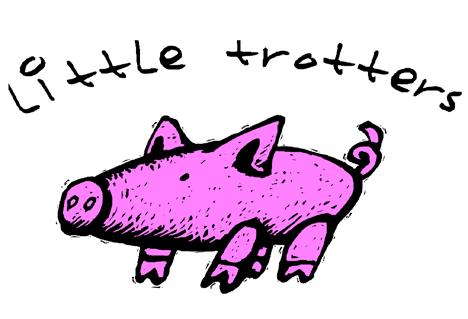
We cherish childhood (ages 18 months–5 years)
In a quiet corner of George Town awaits a magical schoolhouse where the joy of childhood abounds. Once you cross the bridge, Little Trotters is a haven filled with laughter, imagination, play and endless opportunities for social interactions. The primary focus is on traditional values, kindness and responsibility. The children feed the animals, water the plants, bake, paint, perform in plays, sing, dance and truly become their best selves. Little Trotters offers valuable experiences in all pre-academic skills, and Maths and Literacy are an integral part of the curriculum across the school. Additionally, the staffing body brings a range of training, experience and specialist areas, including a full-time SENCo.
Highlights:
Graded 'Excellent' in all categories including: Teaching, Exploration, Respect, Communication, Wellbeing, Learning, Assessment, Curriculum, Health & Safety, Support & Guidance, Leadership, Links to Parents & the Community, Self Evaluation & Planning Ahead and Staffing & the Learning Environment (May 2021 OES Report) • Teachers aim to foster a love for learning that ensures children view school and learning as exciting, joyful and validating
Details:
School Manager: Lesley Maddock School Owner: Joanna Boxall
Monthly fees: CI$1,185-CI$1,435 for a half or full day (September to July)

School hours: 7.30am-5.30pm (children can do half or full days)
Student population: 80 Term dates: September to end of July (closed August)
(345) 949 4080 | 39 Columbus Close, off Walkers Road, George Town | littletrotters@candw.ky | www.littletrotters.ky
Island Montessori provides a nurturing, supportive environment in a beautiful, spacious garden created to establish a love of active learning. At the heart of the school is a team of highly qualified, passionate teachers who create an age and developmentally-appropriate environment. The school’s bright and spacious classrooms are complemented by an expansive 1.5-acre garden featuring a nature trail, sports court, and areas for unstructured play and exploration.
Island Montessori learners draw as much inspiration from nature and being in the tropical outdoors as they do from the guided activities inside their classrooms. The staff combine their passion for early childhood education with an inclusive culture of curiosity, respect and flexibility that helps your child and your family thrive in the best learning environment possible.
Curriculum: Island Montessori is guided, but not limited, by the Montessori philosophy, and uses the very best Montessori practices and materials aligned with the Cay man Islands Early Years Framework. All classes are underpinned by a belief that children should be active, and outdoor learning is blended into each day.
Island Montessori
Highlights:
• Highly-qualified and experienced class and specialist teachers
Island Montessori
• 1.5 acres of shade trees, natural gardens, outdoor learning, play and sports areas
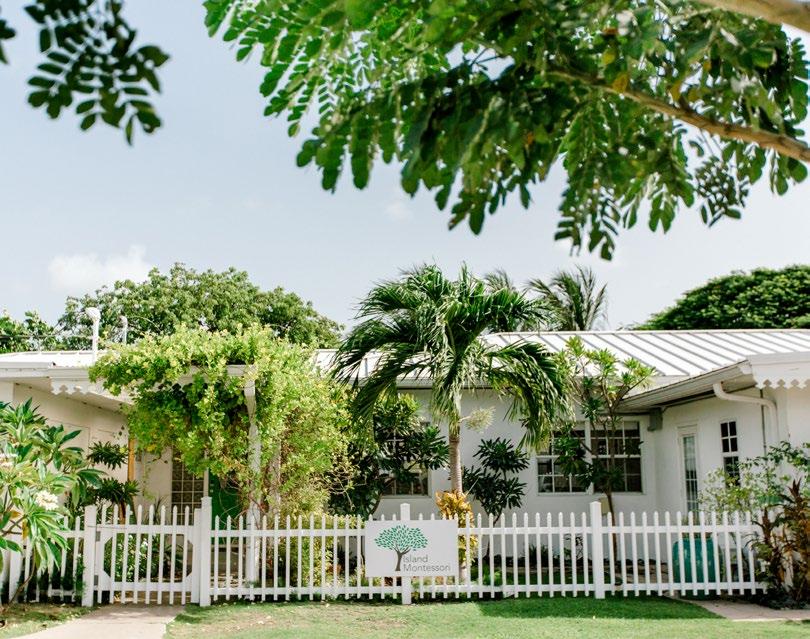
• Bright and spacious classrooms utilising a wide range of Montessori and nature-inspired materials
Island Montessori

• Montessori curriculum aligned with the Cayman Islands Early Years
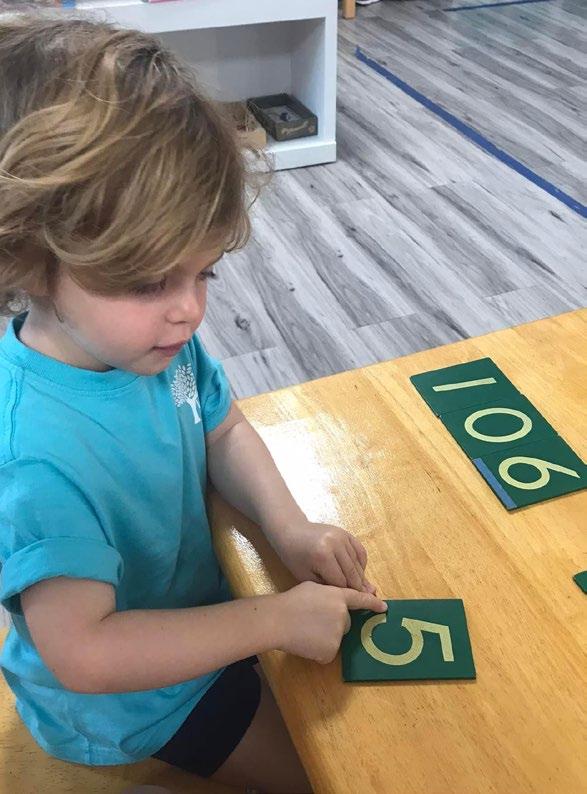

Framework
• Providing Nest, Toddler and Casa classes for children ages 12 months to 6 years

Details:
Opening hours: Monday-Friday, 7.30-3pm (daily aftercare available until 5pm)
Monthly fees: From CI$1,025
Age range: 12 months-6 years
(Nursery to Year 1)
Sibling and prepayment discounts: Yes

(ages 1-4 years)
Sister Janice’s promotes the whole growth of the child through hands-on learning and experiencing. Each child is cherished and encouraged to develop their social, physical and emotional development. The school promotes the wellbeing of the child within a Christian-centered atmosphere.

Highlights:
Creative early childhood education • Promoting hands-on experiences • Developing the whole child Christian-based education
Details:
Student population: 50
Hours: 7am-5pm (although a grace period can be given, pick-up must be by 5.30pm)
Monthly fees: CI$650 includes breakfast and lunch. Parents are asked to provide snacks and fruits daily
(345) 949 2524 | 41 Desmond Drive, George Town sisterjanicepreschool@yahoo.com

Grace Christian Academy is located in a quiet residential area in West Bay, surrounded by coconut and fruit trees! Students attend classes on a Caribbean-style campus complete with a swimming pool. In addition to regular academic coursework, all students take Music, Spanish, ICT and swimming lessons. The school is committed to providing students the academic preparation needed to meet the emotional, social and spiritual challenges encountered as adults, and strongly encourage being brothers in Christ.
Highlights:
Fully-equipped swimming pool • Science Lab • Steel pan room • Computer Lab • Smart boards for Grade 1-12 classes • Member of WIDA International School Consortium
Details:
Head of School: Mrs Bernice Scott
Annual fees (full time): Preschool: CI$9,710, K-Grade 5: CI$10,758, Grade 6-8: CI$11,955, Grade 9-12: CI$12,082
Sibling discount: 5% for second child, 10% for third
(345) 945 0899 | 21 Crescent Close, WB | officeadmin@ gca.ky | www.gracechristianacademycayman.org

(18 months–6 years)
Opening in 1988 as the very first Montessori school on-Island, Montessori School of Cayman (MSC) remains a beautifully inclusive school, with a goal to deliver a whole-hearted, holistic Montessori approach. They offer a happy, safe and stimulating prepared environment where children are able to explore and thrive, therefore developing a love of learning. At Montessori School of Cayman, they believe in the development of the individual child and thoroughly understand that every child is unique and requires a variety of methods to support and nurture their social, emotional and academic journeys.
Curriculum: The curriculum is based on authentic Montessori practices, incorporated with the Cayman Islands Early Years Curriculum Framework. MSC is committed to providing students with engaging, meaningful activities which provide experiences that stimulate the senses, enrich language development, and give opportunities to gain a sense of self-esteem, self-worth, and self-confidence.
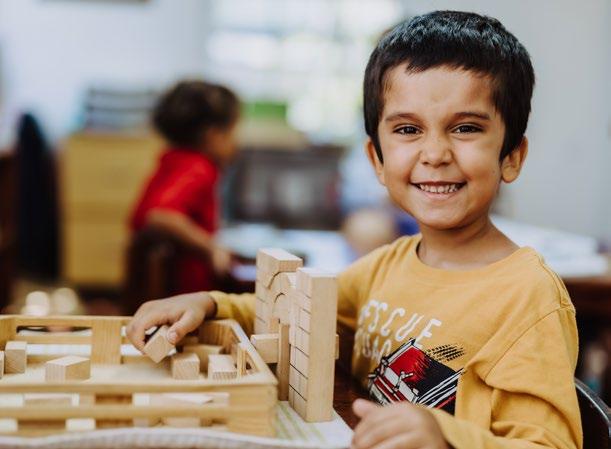
Centrally located
• Small & loving school community
• Passionate, highly qualified and experienced teachers
• Large, spacious & shaded outdoor areas
• Beautifully prepared learning environments
• Friendly furry friends to care for and interact with
• Out-of-term camp opportunities throughout the year
• Extracurricular lessons in Music, Yoga, Dance, P.E. and Spanish
Details: Principal: Mrs Briana Bergstrom Currie
Annual fees: Casa Programme CI$10,864-CI$11,834, Toddler Programme CI$11,495-CI$12,610
(345) 949 0202 | 519 South Church St, George Town | info@caymanmontessori.com | www.caymanmontessori.com
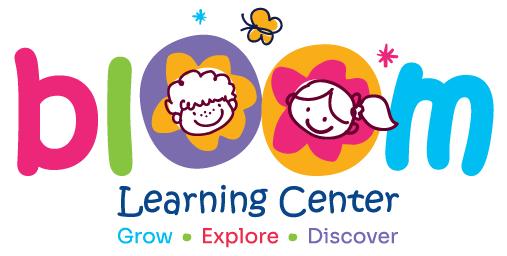
Centrally located on Seven Mile Beach, Bloom Learning Centre's renovated facilities offer high quality staff-to-student ratios in intimate class sizes. Their students partake in weekly explorations of the surrounding neighborhood, including adventures to the seaside. Bloom's qualified teaching team creates meaningful relationships with each child through warm, responsive caregiving to support every individual's learning journey. They create an enriching and inviting child-centred learning environment, equipped with invitations to ignite curiosity and promote a love of learning. Bloom cherishes the wonders of childhood and strives to support each individual’s proclivity to being creative, independent, curious, confident and kind little learners.
Highlights:
Learning through active exploration
• Field trips
• Qualified staff
• Nature walks
• Play-based activities
• Sheltered outdoor area
•
• Holistic child development
Renovated indoor area
Details:
School Hours: 7.30am-5.30pm, Monday-Friday (Saturday programme also available)
Monthly fees: Infant CI$1,549, Toddler CI$1,449, Early Preschool CI$1,349, Preschool CI$1,349 Average class size: 12-16 (depending on age)

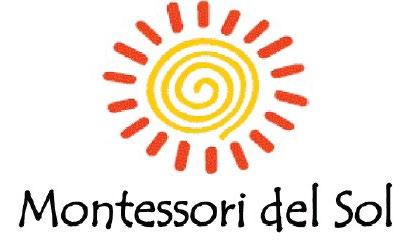

Celebrating 25 years of early childhood education in the Cayman Islands, Montessori del Sol offers an authentic Montessori programme with a holistic approach to learning amidst Spanish bilingual classrooms. The small and wholesome school environment is a place where children thrive and are actively engaged in a happy, purposeful community. A unique outdoor environment boasts an abundance of shade trees where the children freely explore and play, while bright, spacious, well-prepared classrooms are equipped with a full complement of Montessori materials according to the standards set out by Association Montessori Internationale (A.M.I). The dedicated, highly qualified and experienced team ensure that every child’s potential is nurtured while cultivating kindness, independence and creativity.
Curriculum: Rich and varied Montessori subjects include Literacy, Math, social-emotional learning, mindfulness, Art, Science, Geography, Music and movement, sensory learning, food preparation and other practical life activities, thoughtfully aligned to the Cayman Islands Early Years Curriculum Framework, and with Spanish bilingual education for all age groups.


Highlights:
Authentic Montessori programme
• Dedicated, highly-trained & experienced staff
•
Beautiful, shady outdoor learning environments
• Bright, spacious classrooms
• After school clubs
• Spanish bilingual education
• Located in the heart of South Sound
• Camps available during holidays
Details:
Opening hours: 7.45am-3pm (daily aftercare available until 5.15pm)
Monthly fees: From CI$1,180 (sibling and prepayment discounts available)
(345) 949 3222 | 11 Hinds Way, off Walkers Road, GT | office@montessoridelsol.com | www.montessoridelsol.com

Montessori del Sol
11 Hinds Way, off Walkers Road, George Town. Tel: (345) 949 3222 Email: office@montessoridelsol. com Web: www.montessoridelsol.com Ages: 18 months-6 years Monthly fees: From CI$1,180.
Montessori School of Cayman
519 South Church Street, George Town. Tel: (345) 949 0202 Email: info@caymanmontessori. com Web: www.caymanmontessori.com Ages: 18 months-6 years Monthly fees: Toddler CI$1,185-CI$1,300, Casa CI$1,120-CI$1,220.
Rite Start Daycare & Preschool
1548 Shamrock Road, Savannah. Tel: (345) 945 3432 Email: ritestartcayman@hotmail.com
Ages: 3 months-4 years Monthly fees: 3-22 months CI$850 and 22 months-4 years CI$800.
St. George’s Anglican Preschool
64 Courts Road, off Eastern Avenue, GT. Tel: (345) 945 0441 Email: stgeorgespreschool123@ gmail.com Ages: 2-5 years Monthly fee: CI$600.
St. Ignatius Catholic School/Early Years Centre
599 Walkers Road, George Town. Tel: (345) 949 9250 Email: general@st–ignatius.com Web: www.st–ignatius.com Ages: 3-5 years Monthly fees: CI$1,289. See opposite page for more information.
Shining Stars Childhood Care & Education Centre
20 Pasadora Place, off Smith Road, GT. Tel: (345) 943 7077 Email: shiningstarscayman@gmail. com Web: www.shiningstarscayman.com Ages: 1-5 years Monthly fees: 1 year CI$1,245, 2 years
CI$1,145, 3-4 years CI$1,095 (includes meals).
Sister Janice's Early Learning Centre
41 Desmond Drive, George Town. Tel: (345) 949
2524 Email: sisterjanicepreschool@yahoo.com
Ages: 1-4 years Monthly fees: CI$650.
Sprogs Garden Playschool
832 Walkers Road, George Town. Tel: (345) 746
7529 Email: info@sprogs.ky Web: www.sprogs.
ky Ages: 1-5 years Monthly fees: CI$1,150 (morning)-CI$1,650 (full time).
Tiffany's Preschool
82 Boltins Avenue, West Bay. Tel: (345) 945 7977
Email: tiffanyspreschool@candw.ky Ages: 2-5 years Monthly fees: CI$600.
Tiny Tots Academy
109 Hinds Way, off Walkers Road, George Town. Tel: (345) 623 8687 Email: info@tinytotscayman.
com Ages: 6 weeks-5 years Monthly fees: CI$625-CI$850 (depending on age and number of days).
Triple C School
Accepts children from 4-18 years. See page 140 for more information.
Truth For Youth School
Accepts children from 4 -11 years. See page 140 for more information.
Village Montessori
Accepts children from 18 months-12 years. See page 138 for more information.
Education – Government Primary
Creek Infant & Spot Bay Primary School (Brac)
28 Student Drive in Cayman Brac. Tel: (345) 948 0226 Catchment area: All areas east of Faith Hospital to the eastern end of Cayman Brac. Covers Nursery to Year 2. Spot Bay Primary School, which is located on 170 Spot Bay Road, Cayman Brac covers Years 3, 4, 5 and 6. The school is located on two different sites but is managed and run by the same team.
East End Primary School
17 Sea View Road, East End. Tel: (345) 947 7428 Catchment area: East of the Frank Sound junction, and including all of East End to Colliers.
Edna M. Moyle Primary School
907 North Side Road, North Side. Tel: (345) 947 9516 Catchment area: All of Frank Sound up to Old Man Bay (west) to Cayman Kai and Robins Road.
George Town Primary School
168 School Road, George Town. Tel: (345) 949 2689 Catchment area: South of Government House up to Memorial Avenue. North along Walkers Road to Maple Road, and east along Smith Road up to the Crewe Road airport junction. Plus the area that is north of Airport Road, through the Junction in Industrial Park, and all areas north and east past the airport up to North Sound.
Joanna Clarke Primary School (formerly Savannah Primary School)
1659 Shamrock Road, Savannah. Tel: (345) 947 1344 Catchment area: East side of SpottsNewlands Road to Beach Bay Road, and including the greater Pedro area.
Little Cayman Education Service
210 Spot Bay Road, Little Cayman. Tel: (345) 948 1052 Email: Vjuman-khan@lces.edu.ky Teacher in charge: Mrs Veronica Juman-Khan Catchment area: All of Little Cayman.
Prospect Primary School
169 Poindexter Road, Prospect. Tel: (345) 947 8889 Catchment area: From Prospect Drive eastward, to the west side of Spotts-Newlands Road and the west side of Chime Street on the Bypass/East-West Arterial (including all of Prospect Park, Patrick’s Island, Ocean Club, Mariners Cove and Cascades Drive).
Red Bay Primary School
271 Shamrock Road, Red Bay. Tel: (345) 947 6333 Catchment area: South side of Memorial Avenue, along Walkers Road to Maple Road and south side of Smith Road, both sides of Crewe Road bordered by Owen Roberts Drive to the north, and South Sound to the South Sound border on the east side of Victory Avenue.
Sir John A. Cumber Primary School
44 Fountain Road, West Bay. Tel: (345) 949 3314
Catchment area: North of Government House up to Spanish Bay Reef and including all of West Bay.
Theoline L. McCoy Primary School (formerly Bodden Town Primary School)
6 Condor Road, Bodden Town. Tel: (345) 947 2288
Catchment area: Area to the east of Beach Bay Road, continuing up to Breakers and including Northward.
West End Primary School (Brac)
10 ABC West End Road, Cayman Brac. Tel: (345) 948 1425 Catchment area: West end of Cayman Brac, up to Faith Hospital on the north side of the island, and correspondingly across the Island to the south coast.
Clifton Hunter High School
311 Frank Sound Road, Frank Sound. Tel: (345) 947 7353 Catchment area: All areas on the east side of Spotts-Newlands Road and the east side of Chime Street, the Bypass or the East/West Arterial.
John Gray High School
73 Academy Way, George Town. Tel: (345) 949 9444 Catchment area: The west side of SpottsNewlands Road, and the west side of Chime Street, the Bypass or the East/West Arterial.
Layman E. Scott High School (Brac)
941A Dennis Foster Road, Cayman Brac. Tel: (345) 948 2226 Catchment area: All areas of Cayman Brac and Little Cayman.
CI Further Education Centre (CIFEC)
515 Walkers Road, George Town. Tel: (345) 949 3285 Email: admin@cifec.edu.ky Director: Mr Mark Seerattan Ages: 16-18 years Curriculum: CIFEC offers BTEC and City and Guild vocational courses at Levels 1-3, which are the equivalent of GCSE (level 2) and AS Level (level 3). Each TVET programme includes an internship with an employer. See schools.edu.ky/CIFEC for more information.
Calvary Baptist Christian Academy 191 Walkers Road, GT. Tel: (345) 946 5834 Email: info@cbca.edu.ky Ages: 5-18 years Annual fees: K-Grade 2 CI$6,300, Grade 3-6 CI$6,750, Grade 7-12 CI$7,425 Curriculum: Abeka, American.
Cayman Academy
211 Walkers Road, GT. Tel: (345) 640 2630 Email: office.secretary@caymanacademy.ky Web: www. caymanacademy.ky Ages: 3-18 years Annual fees: Pre-K-Year 6 CI$5,843, Year 7 CI$7,410, Year 8 CI$7,743, Year 9 CI$8,788, Year 10 and 11 CI$9,073 and Year 12 CI$9,168 Curriculum: CI Curriculum, CSEC (Caribbean Secondary Examinations Council).

At St. Ignatius, the holistic development of each individual is their primary purpose. Their staff strive to know and nurture each pupil, working together to promote strengths and self-worth in mind, body and spirit. They work diligently so that all pupils leave them as discerning believers, effective communicators, reflective, creative and holistic thinkers, self-directed lifelong learners, collaborative contributors, caring family members and responsible citizens. They invite you to join the St. Ignatius community of 30 nationalities, providing a rich diversity of cultures and perspectives.
Curriculum: British Curriculum (IGCSE and GCSE); AS and A Levels – Cambridge International Examinations (CIE) and WJEC.
Facilities: Four science labs, music wing (including sound–proof practice rooms), learning support, canteen with full kitchen, art room, school hall, modern classrooms, sports field, basketball and netball courts, laptop programme for Years 7–13 and a multi-purpose sports hall.

Extracurricular: After school clubs, art, drama, music, sailing, tennis, diving, cricket, rugby, soccer, Cub Scouts, Brownies, cooking clubs, annual music production, house activities. After school care available 2.30pm–5.30pm daily. Weekly learning support available, football (girls and boys), netball, table tennis, field hockey, volleyball, badminton, fitness, sailing and diving.
St. Ignatius Catholic School is committed to safeguarding and protecting the welfare of children.

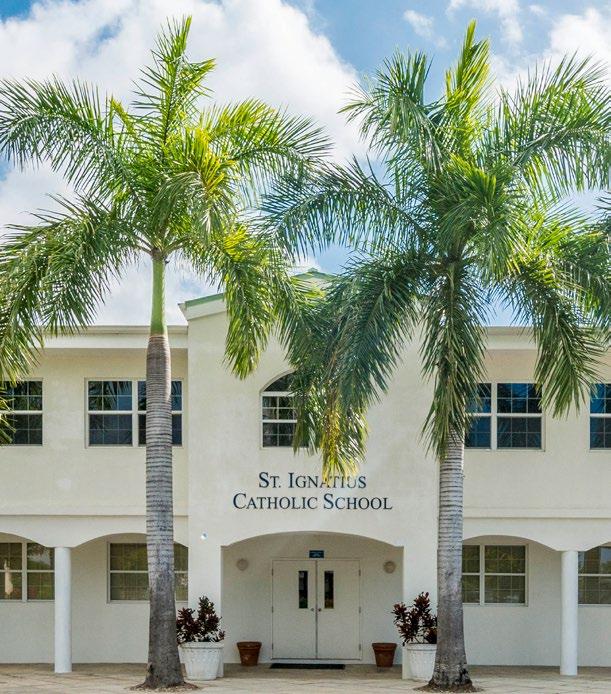
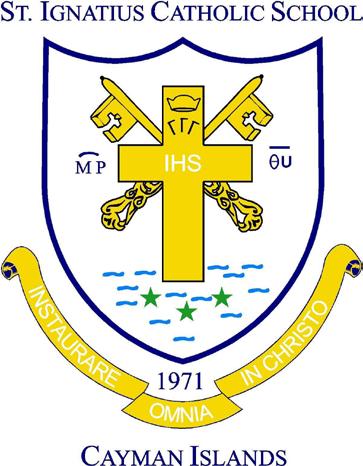
Highlights:
British curriculum • Four science labs • Music wing • 1:1 laptops for high school • Wide variety of after school clubs

Details:
Head of School: Mr Simon Testa
Vice Principal Primary: Mr. James Hickey
Vice Principal Secondary: Mr. Peter Embleton
Student population: 700
Annual fees (2023-24):
Nursery –Year 6: CI$11,771
Years 7–11: CI$13,618
Years 12–13: CI$15,921
Sibling discount: Third and subsequent child receives 20% discount on fees
Average class size: 24
Meals: Hot lunches CI$7-CI$9 daily

At CPHS, students are placed at the centre of learning and teaching. Differentiated instruction enhances learning for all students by engaging them in activities that respond to particular needs, strengths, and preferences and is effective in supporting and challenging the full range of ability levels in the classroom. Their Christian ethos is evident throughout the school and inspires their students to think about what sort of contribution they will make to the world and how they will make a difference. The school supports them in such a way as to ensure they grow into responsible, mature, and engaged members of the school community and citizens of the world.
Curriculum: Revised National Curriculum of England (2014), IGCSE & GCSE, AS and A-levels - Cambridge International Examinations and Welsh Joint Education Committee.
Facilities: IFA Grade multi-purpose astro-turf playing field and multipurpose hardcourt, computing & media suites with tablets and laptops, music wing, arts rooms with kilns, state-of-the-art science labs, interactive technology in every class room.
Key Strengths of CPHS (as per the Office of Education Standards' inspection report, May 2021):
1) The attitude to learning and Christian ethos leads to students’ behaviour being EXEMPLARY across all stages of the school.
2) Students’ knowledge around environmental understanding and Caymanian culture and history in all phases of the school is EXCELLENT.
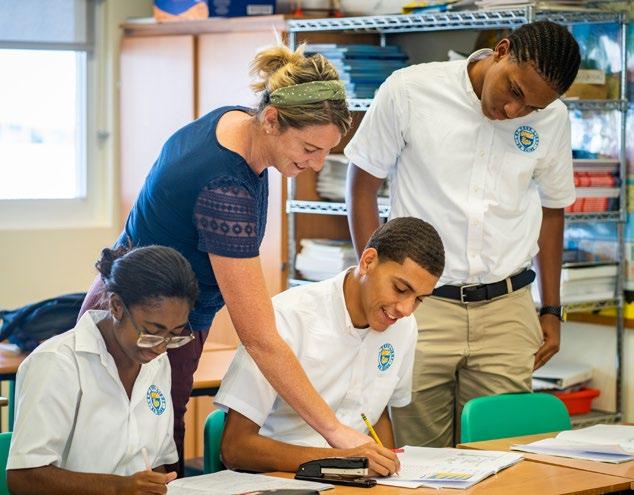
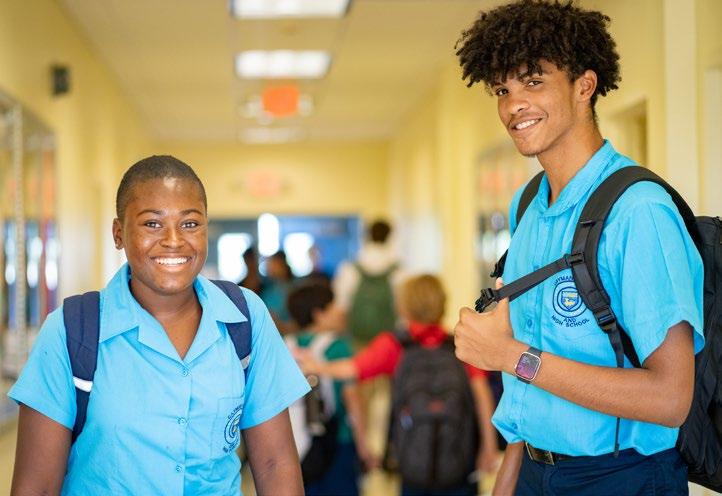

3) Students’ attainment and progress in English, Mathematics, History and Science in second and post-16 is EXCELLENT.
4) Teaching in secondary and post16 is EXCELLENT.
5) Leadership across the school and the school’s strong links with parents and the community are EXCELLENT.
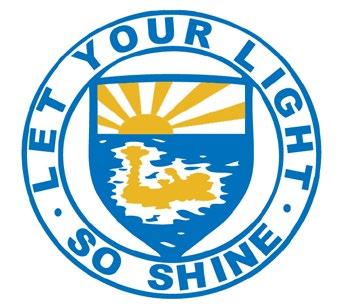
Student population:
Primary school 522
High school 493
Annual fees (2023-24):
KG-Yr 6 $12,795
Years 7-9 $13,880
Year 10-11 $14,700
Year 12-13 $16,235
Sibling discount: 3rd and subsequent children get 10% off
Extracurricular: Primary after shool care until 5.30pm daily. After school clubs include art, drama, music, rugby, cricket, badminton, basketball, netball, GAA, football, volleyball, Robotics, Key Club, Science, Duke of Edinburgh, homework club, diving, snorkelling, Junior MUN, Senior MUN and more. Primary School: (345) 949 5932 | 242 Smith Road, GT | psoffice@cayprep.edu.ky | www.cayprep.edu.ky High School: (345) 949 9115 | 559 Walkers Road, GT | hsoffice@cayprep.edu.ky | Facebook: @caymanprep
"Cayman Prep & High School provides a stimulating learning environment firmly rooted in Christian principles, in which our students become critical creative thinkers, responsible citizens and lifelong learners in an ever-changing world."

Island Primary is a community-minded school offering class spaces for children aged 4-11 from Reception to Year 6. The spacious new campus, conveniently located at Buttonwood Park, off Linford Pierson Highway, is designed to create a friendly, welcoming environment and foster learning both indoors and out. With a highly experienced and strong leadership team, Island Primary is committed to nurturing talent in both teachers and students, offering a rounded education that gives children the skills they need to fulfil their potential in and out of school.
Curriculum: Based on the British national curriculum, Island Primary is focused on evidence-based teaching with flexibility to adapt topics relevant to Cayman. Set on more than four acres of landscaped and natural gardens, the school takes learning outside for all year groups to incorporate nature into daily lessons. Flexible classroom designs and a strong technology platform support academic goals across all subjects, with specialist subject teachers and a comprehensive learning support provision.

Island Primary strives to create a true island school, whose abundant play and sports areas are enhanced by Buttonwood Park’s facilities, including nature trails, community fields and wellness parks.
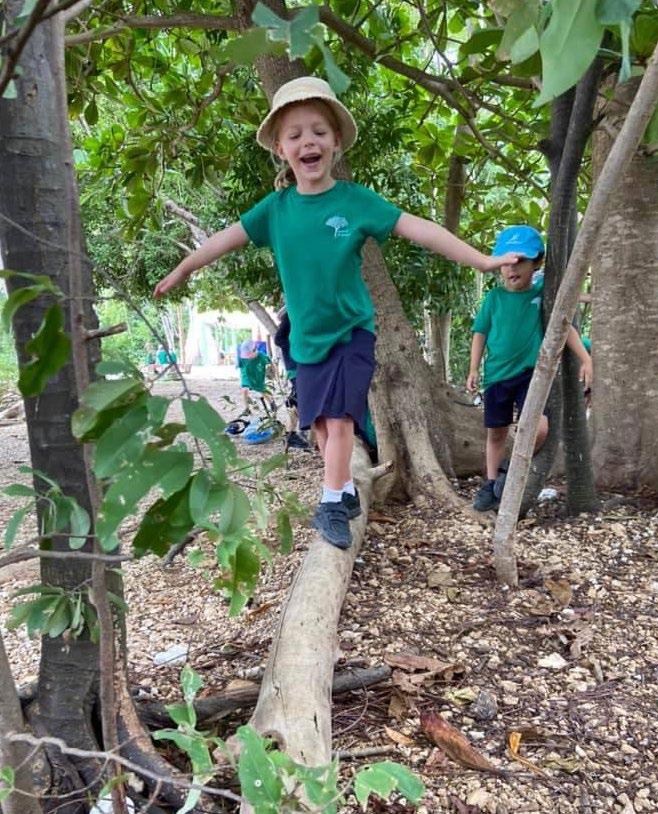
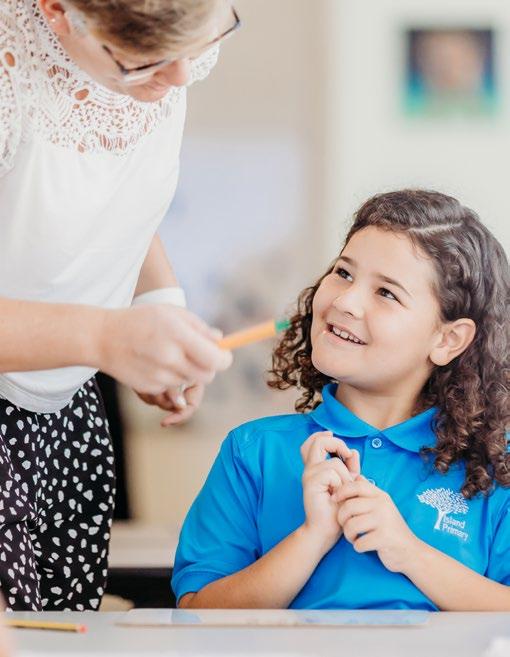

Highlights:
• Experienced and engaged teachers and staff
• High-quality teaching based on British curriculum
• Specialist subject and support teachers with a strong SEN provision
• Brand new campus set on 4+ acres of gardens

• Bright and spacious classrooms and outdoor learning decks
• Strong community focus
• Convenient location
Details:
Principal: Stephen Coles
Opening hours: MondayFriday, 7.30am-5.30pm
Programmes: Reception to Year 6
Monthly fees (2023-24): CI$1,570
Sibling discounts: Yes

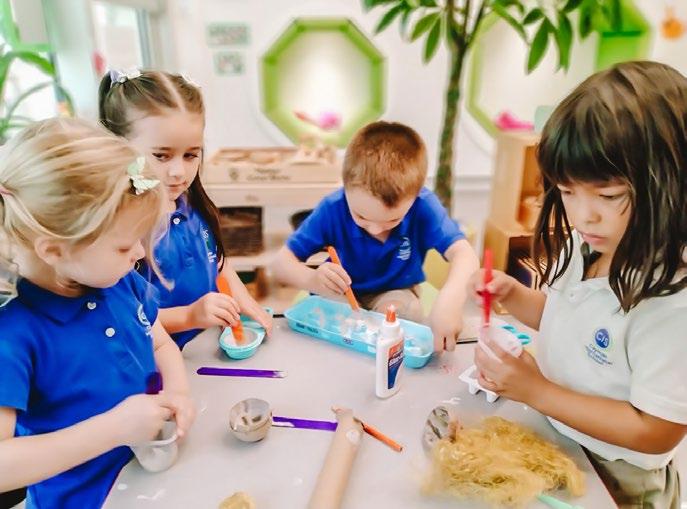
Cayman International School (CIS) is a private, college preparatory, non-sectarian, co-educational school that provides strong academic and extensive extracurricular programmes. The 15-acre campus located in Camana Bay includes early childhood, elementary, middle and high school divisions. Students represent more than 40 nationalities and the majority of students are dual passport holders. CIS has a strong sense of community where children learn, play and support each other in a modern, safe and student-centred environment. CIS is accredited by the Middle States Association and is an IB World School offering the International Baccalaureate Diploma Programme.
Facilities: CIS completed a major expansion project, adding a new state-of-theart Early Childhood Centre and a cutting-edge High School building with a double gymnasium, library, common area and performing arts spaces. The current purposebuilt campus features a 139,000+sq ft facility. It consists of a library, STEAM Lab, computer/video production lab, two science labs, two music rooms, two art rooms, two student support centres, 42 classrooms, an amphitheatre and an administration building. In addition, the school has a full-sized, artificial turf soccer pitch with a FIFA 2-Star rating, a swimming pool, two tennis courts and two basketball courts.
Curriculum: American, IB Diploma, IB Certificates, United States High School Diploma.
Extracurricular: Students are offered a wide variety of extracurricular activities. Athletes participate in the Private Schools Association (PSA) and compete in football, volleyball, netball, cricket, basketball, flag rugby, track & field and swim. They partake in musical, choral and theatrical productions, including an annual performance in Steel Pan Band, Jazz Band and Rock Band. Students can also participate in Model United Nations, National Honors Society, High School Student Council, Debate Team, Mock Trials, Robotics and 3D modelling and printing, and many other after school clubs. Students provide leadership in community service initiatives and/or internships outside school boundaries and are involved in local movements, such as Plastic Free Cayman and Protect Our Future, that address environmental issues and concerns.
CIS Staff Statistics:
• 25 countries embodied in their staff
• 48% of teaching staff have 10 or more years of experience
• 48% of teaching staff have a Master's degree or higher
Highlights:
• 100% International Baccalaureate Diploma pass rate

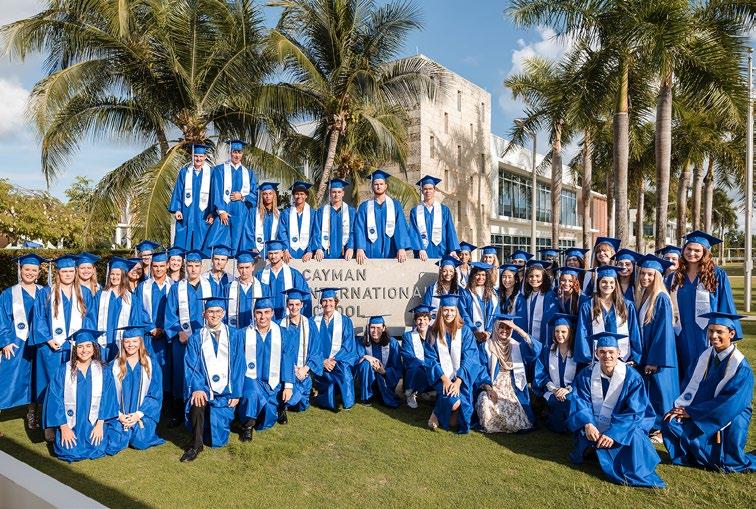
• STEAM Labs
• Project Based Learning
• Athletic, Arts & Service Programmes
• Extensive after school activities
• Whole-child approach
• Purpose-built, modern facilities
Details:
Director: Jim Urquhart
Grade levels: Pre-K2 to Grade 12
Student population: 990
Average class size: 17
Faculty size: 186
Annual fees (2023-24): CI$14,080–CI$27,460
Sibling discount: 10% reduction for the second child and 15% for the third and subsequent children


Montessori By The Sea (MBTS) opened its first Toddler and Casa classrooms by the seaside over twenty years ago, and it has grown steadily to become a firmly-established, vibrant, closely-knit community of over 150 joyful students, plus their dedicated families and teachers. Now spanning Toddler to Upper Elementary, MBTS shines as a beacon of excellence in Montessori education in the Cayman Islands.
Curriculum: MBTS offers an enriched, comprehensive, internationally-recognised Montessori curriculum that follows the child and emphasises inquiry-based study, crosscurricular integration, and life skills education, complemented by specialised instruction in Spanish, ICT, Physical Education, the Arts and Music.


Highlights:
Individualised, inquiry-based learning approach • Warm, inviting and inspiring classroom environments • Cultivates life skills such as concentration, confidence, communication and creativity • Half-day and full-day programmes available • After school clubs, after care and summer camps
Details:
Principals: Debbie Thompson & Kourtni Jackson
Student population: 150 Student-teacher ratios: Toddler 5:1, Casa 10:1, Elementary 15:1
Monthly fees: Toddler: CI$1,283-CI$1,400, Casa: CI$1,262-CI$1,380, Elementary: CI$1,400

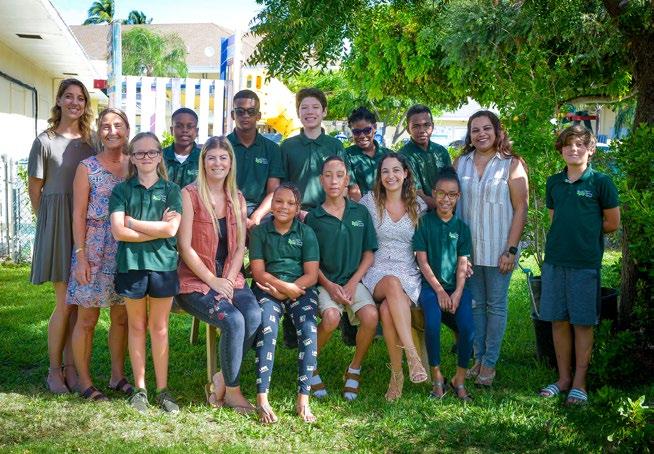
(ages 5–14 years)

Cayman Learning Centre & School (CLC&S) offers classes with a small student-teacher ratio, a tailored learning support plan with a full British curriculum, hands-on projectbased learning, and evidence-based reading, spelling and maths intervention. Students benefit from the world-renowned Arrowsmith Programme, helping to strengthen underlying cognitive functions that are responsible for a range of learning difficulties to make the learning process easier. CLC&S’s population is inclusive and consists of students requiring Additional Learning Support Needs (ALSN) and students with Specific Learning Disabilities (SpLD), including dyslexia (impairment in reading and/ or spelling), dyscalculia (impairment in Maths) and dysgraphia (written expression). They support students with developmental issues, including mild Non-Verbal Learning Difficulties (NVLD) and ASD (Mild/ Level 1) and Executive Function Difficulties (ADHD).
Highlights: British curriculum
• Cognitive Enhancement programme
• Evidence-based reading, spelling, and maths intervention
• Initial comprehensive assessment to identify specific strengths and weaknesses • Small teacher-student ratio
• Specialised teachers
Details: Monthly fees: Seat fee + CI$1,610-CI$1,895 Average class size: 9 students per teacher, some interventions as small as 3:1 student teacher ratio
Curriculum: British National Curriculum, Evidence-Based Intervention Programmes, Cognitive Enhancement Programme for more efficient learning
(345) 943 7323 | 7 Pasadora Plc, Smith Rd, GT | info@caymanlearning.com | www.caymanlearning.com
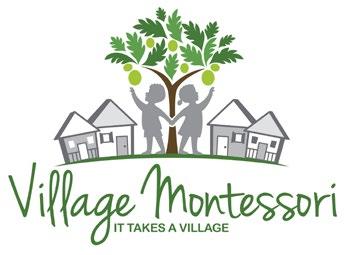
Located in Camana Bay, Village Montessori is a fully-licensed private school which prides itself on being a unique and innovative environment where children experience inclusion, culture, respect and a sense of community. Children are given the opportunity to develop independence in an educational environment that fosters a lifelong love of learning.
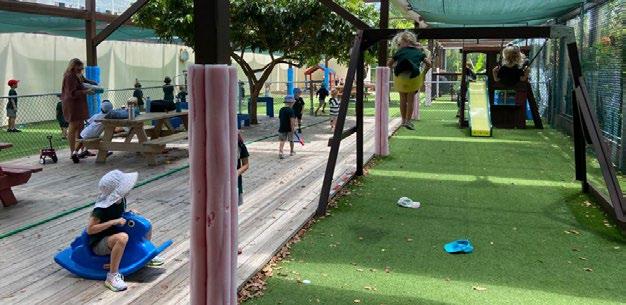
Curriculum: The school curriculum is based on the Montessori Framework, which allows children to learn at their own pace according to their own capabilities in a non-competitive environment while also adhering to Cayman Islands Primary National Curriculum 2019 Standards and Objectives.

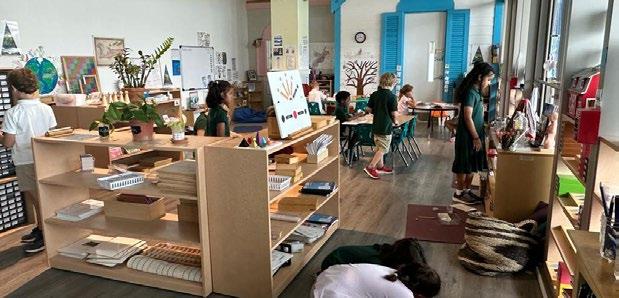
Highlights:
Children are given the skills and knowledge to become productive members of their community. The school’s environment encourages children to be respectful of themselves, others and their surroundings. They employ certified teachers who work collaboratively with parents and the children.


Details:
Principal: Simone Ross
Monthly fees: CI$1,190-CI$1,275 based on age and programme
After school care: CI$250 (3pm-5pm) per month
Age range: 18 months to 12 years Student population: 120
(345) 640 7827 | 94 Solaris Ave, Camana Bay | info@villagemontessori.ky | www.villagemontessori.ky

First Baptist Christian School (FBCS) provides a student-centred American Educational Programme in a Christian environment. They offer programmes for Preschool, Elementary and Middle School Education up to Grade 8. FBCS is a culturally diverse school with students from around 14 different countries across the world, with approximately 63% of their students being Caymanian. Their school seeks to help students become independent, resilient learners who set goals, monitor their progress, and persist in challenging tasks in order to succeed. FBCS uses an American curriculum and follows the Virginia State Standards. Their strengths include their strong relationships, and caring, nurturing environment. They are a supportive, encouraging, diverse school community that demonstrates respect for self, others, and God so that they can serve their families, school, community, churches, and the global community.
“Preparing students in a Christ-centred environment to learn, serve, and lead in innovative and creative ways so that they can make meaningful contributions to the global community.”
Highlights:
ACSI Member school
• Renaissance Learning partner school
• American curriculum
• 2:1
iPad ratio • 1:1 student laptops (Grades 3-8)

Details:
• Good range of clubs and activities
• Broad and balanced curriculum
• Coding & Robotics classes in Technology
• Data driven school
Principal: Janet Durksen Vice Principal: Marsha Seerattan
Student population: Preschool: 50 Elementary/Middle School K-8th: 160
Annual fees: Preschool: CI$9,184 Kindergarten-Grade 5: CI$10,667 Grade 6-8: CI$11,626 (Sibling discounts available)
(345) 945 7906 | 920 Crewe Road, George Town | fbcs@fbcs.edu.ky | www.fbcs.edu.ky
Cayman International School (CIS)
95 Minerva Drive, Camana Bay. Tel: (345) 945
4664 Email: cis@cis.ky Web: www.cis.ky Ages:
2–18 years Student population: 990 (approximate)
Application fee: CI$350 Annual fees: Pre-K2 (5 days/week, half-day) CI$14,080, Pre-K2-Pre-K4 (5 days/week, full-day) CI$16,640, KindergartenGrade 2 CI$19,950, Grades 3-5 CI$23,010, Grades
6-8 CI$25,810, Grades 9-12 CI$27,460 Average class size: 17 Curriculum: American, IB Diploma, IB Certificates, US High School Diploma.
Cayman Learning Centre & School (CLC&S)
7 Pasadora Place, Smith Road, GT. Tel: (345) 943
7323 Email: info@caymanlearning.com Web: www.caymanlearning.com Ages: 5-14 years
Monthly fees: Seat fee + CI$1,610-CI$1,895
Curriculum: British National Curriculum, Literacy and Numeracy intervention and Arrowsmith’s Cognitive Enhancement Programme. See their Tutoring listing on page 141.
Cayman Prep & High School
Primary School site: 242 Smith Road, GT. Tel: (345) 949 5932 Email: psoffice@cayprep.edu.ky High School site: 559 Walkers Road, GT. Tel: (345) 949 9115 Email: hsoffice@cayprep.edu.ky Web: www. cayprep.edu.ky Ages: 4–18 years Registration fee: CI$750 Annual fees: Kindergarten-Year
6 CI$12,795, Years 7–9 CI$13,880, Years 1011 CI$14,700, Years 12-13 CI$16,235 Student
Population Primary School: 522 Student
Population High School: 493 Maximum class size:
25 (24 in KG) with all infant classes (KG-Year 2) staffed by a qualified teacher and a Learning Assistant. All Junior year classes (Year 3-6) are also staffed by a qualified teacher with Learning Assistant per year group (3 class entry in all year groups) Curriculum: British based. IGCSE, GCSE, AS and A Levels (Cambridge International and Welsh examination boards).
CF School
Windjammer Building, Walkers Road, GT. Tel: (345) 516 4623 Email: info@cleverfishcayman. com Web: www.cleverfishcayman.com Ages: 1116 years (approximate) Curriculum: UK National Curriculum leading to IGCSEs and A Levels Monthly fees: CI$1,650 (10 months), CI$50 an hour for private tutoring.
First Baptist Christian School
920 Crewe Road, Red Bay. Tel: (345) 945 7906 Email: fbcs@fbcs.edu.ky Web: www.fbcs.edu. ky Ages: 2-14 years (KG-Grade 8) Application fee: CI$150 Annual fees: Preschool CI$9,184, Kindergarten-Grade 5 CI$10,667, Grades 6-8 CI$11,626 (sibling discount available) Student population: 200 Average class size: Preschool 1012, KG-Grade 8 15-22 Curriculum: US Curriculum.
Footsteps School
210 Eastern Ave, George Town. Tel: (345) 746 3635 Email: management@footsteps.ky Web: www.footsteps.ky Ages: 4–12 years Annual fees: Reception–Year 7 CI$13,600 (paid over

Helping your child achieve their goals, one step at a time (ages 4-12 years)
Footsteps School is Cayman's first and only accredited beach school on-Island. A non-denominational private school, Footsteps offers the UK National Curriculum for children aged 4-12 years old (now offering Year 7). Footsteps integrates outdoor learning into their curriculum, taking advantage of Cayman's natural beauty and landscape whilst encouraging exploration, investigation and independence. Their broad, balanced and relevant curriculum was graded ‘excellent’ by the OES. Footsteps also offers after school tutoring in all areas of the curriculum, along with holiday camps.
Highlights:
UK curriculum • Highly-skilled and experienced staff team
• Beach and outdoor learning • Central George Town location
10 months) Student population: 75 Class size: 17 Religion: Non-denominational Curriculum: UK National Curriculum with a nature-learning focus. Footsteps is Cayman's first accredited beach school.
Grace Christian Academy
21 Crescent Close, off Boltins Ave, West Bay. Tel: (345) 945 0899 Email: officeadmin@gca. ky Web: www.gracechristianacademycayman. org Ages: 3–18 years Application fee: CI$200 Annual fees: Preschool CI$9,710, Grades K–5 CI$10,758, Grades 6–8 CI$11,955, Grades 9–12 CI$12,082 Curriculum: American, Christianbased education.
Hope Academy
Units 1-8 Grand Harbour Shoppes, Red Bay. Tel: (345) 769 4673 Email: office@hopecayman. com Web: www.hopecayman.com Ages: 5-18 years Application fee: CI$150 Annual fees: Kindergarten-Grade 12 CI$15,150 (fees for additional programmes vary. Sibling discount provided) Student population: 120130 Maximum class size: 12-15 Curriculum: American.
Island Montessori
491 Crewe Road, George Town. Tel: (345) 945 5814 Email: info@islandmontessori.org Web: www.islandmontessori.org Ages: 12 months-6 years (Nest, Toddler and Casa) Monthly fees: From CI$1,025.
Working together to be the best (ages 5–18 years)
Hope Academy offers an American curriculum that fosters learning through creativity, discovery, and imagination within a small learning environment. Online courses are also available for middle and high school students. The inclusive classrooms and flexible methodology cater to each student's individual needs.
Highlights:
American curriculum • Small class sizes • Additional learning programmes for students needing extra support
• Extracurricular activities and sports • After school programmes include clubs • Homework assistance and tutoring available • Full online programme available
Details:
• Small classes
• Tutoring in all curriculum areas • Non-denominational • Full and partfunded scholarships for outstanding Caymanians
Hours: Monday-Friday 8.30am-3.10pm Average class size: 17
Annual fees: CI$13,600 Student population: 75
(345) 746 3635 | 210 Eastern Avenue, GT | www.footsteps.ky management@footsteps.ky
Details:
Head of School: Sue Horrocks, Principal
Student population: 120–130 Maximum class size: 12-15
Annual fees: CI$15,150 for regular programmes; fees for additional programmes vary
(345) 769 4673 | Grand Harbour Shops, Units 1-8 www.hopecayman.com | office@hopecayman.com
Island Primary
Buttonwood Park, George Town. Tel: (345) 746
1600 Email: info@islandprimary.org Web: www.
islandprimary.org Ages: 4-11 years Monthly fees:
CI$1,570 Curriculum: British Curriculum.
Montessori By The Sea
277 Prospect Point Road, Prospect. Tel: (345) 947
0684 Email: info@mbts.ky Web: www.mbts.ky
Ages: 21 months–12 years (Toddlers–Grade 6)
Student population: 150 Application fee: CI$250
Monthly fees: Toddler (21 months-3 years)
CI$1,283-CI$1,400, Casa (Pre-K-Kindergarten)
CI$1,262-CI$1,380 and Elementary (Grades 1-6)
CI$1,400 Teacher-student ratio: Toddler 1:5, Casa
1:10 and Elementary 1:15 Curriculum: Follows the Montessori philosophy, while aligning with English and Cayman Islands standards.
St. Ignatius Catholic School
599 Walkers Road, George Town. Tel: (345) 949 9250 Email: general@st–ignatius.com
Web: www.st–ignatius.com Ages: 3–18 years
Student population: 700 Average class size: 24
Application fee: CI$100 Annual fees: Nursery–Year
6 CI$11,771, Years 7–11 CI$13,618, Years 12–13
CI$15,921 (fees can also be paid per term and per month) Curriculum: British Curriculum (IGCSE and GCSE), AS and A Levels – Cambridge International Examinations (CIE) and Welsh Joint Education Committee (WJEC).
Triple C School
74 Fairbanks Road, George Town. Tel: (345) 949
6022 Email: triplec@triplecschool.org Web: www.
triplecschool.org Ages: 4-18 years Student
population: 490 Average class size: 20 Application fee: CI$100 Annual capital fee: CI$400 Annual fees:
Pre-KG CI$8,490, KG-Grade 3 CI$9,045, Grades 4–5 CI$9,409, Grade 6-8 CI$9,974, Grades 9–10 CI$11,748, Grade 11 CI$11,930, Grade 12 CI$12,112.
Truth For Youth School
84 Walkers Road, George Town. Tel: (345) 949 2620 or (345) 949 7041 Email: truthfys@candw.
ky Ages: 4-11 years Monthly fees: KG-Grade 6 CI$500 Curriculum: American.
Village Montessori
94 Solaris Avenue, Camana Bay. Tel: (345) 640 7827 Email: info@villagemontessori.ky Web: www.villagemontessori.ky Ages: 18 months-12 years Monthly fees: CI$1,190-CI$1,275.
Wesleyan Christian Academy
150 North West Point Road, West Bay. Tel: (345) 949 1121 Email: principal@wcacayman.com Ages: 4-18 years Annual fees: Pre K–Grade 12 CI$5,750 (inclusive of book fee. Lunch and other fees not included) Curriculum: American, Cayman Islands National Curriculum Grades 1-6.
International College of the Cayman Islands (ICCI) 595 Hirst Road, Newlands. Tel: (345) 947 1100 Email: info@icci.edu.ky Web: www.icci.edu.ky.
Northwestern Caribbean Baptist Theological Seminary
Cayman Islands Baptist Church, 163 Pedro Castle Road, Savannah. Tel: (345) 946 2422 Email: info@ ncbts.edu.ky Web: www.ncbts.edu.ky.
St. Matthew’s University School of Medicine
Regatta Office Park, Leeward 3, West Bay Road. Tel: (345) 945 3199 Email: admissions@ stmatthews.edu Web: www.stmatthews.edu.
School of Veterinary Medicine
Regatta Office Park, Leeward 4, West Bay Road. Tel: (345) 814 3177 Email: admissions@ stmatthews.edu Web: www.stmatthews.edu.
The Truman Bodden Law School (TBLS)
Monaco Towers, 54 Edward St, 2nd & 3rd floor, GT. Tel: (345) 945 0077 Web: www.lawschool.gov.ky.
University College of the Cayman Islands (UCCI) 168 Olympic Way, GT. Brac campus: Avistar Building, West End, CB. Tel: (345) 623 8224 Email: admissions@ucci.edu.ky Web: www.ucci.edu.ky.
University of the West Indies - Cayman
Olympic Way, GT. Tel: (345) 946 8322 Cell: (345) 925 8042 Email: cayman@open.uwi.edu Web: www.open.uwi.edu.
Aspire Therapeutic Services
Tel: (345) 743 6700 Email: info@aspire.ky. Offers psychological, neuro-psychological and developmental assessments.
Hope Academy Clinical Services
Tel: (345) 769 4673 Email: office@hopecayman. com Web: www.hopecayman.com. Offers psychoeducational and neuro-psychological evaluations to children from 2-18 years old.
KidsAbility Paediatric Therapy Clinic
Dr Laurence van Hanswijck de Jonge, PhD
8 Midtown Plaza, 273 Elgin Avenue, George Town. Tel: (345) 943 5437 Email: info@kidsability.ky.
Paediatric therapy clinic offering developmental neuropsychology services, counselling services, occupational therapy, speech-language therapy, a feeding clinic, literacy clinic, social skills groups, parent, teacher and allied health workshops and telehealth services.
For medical practitioners who can help diagnose physical or behavioural problems, see the Health listings on page 185.
Cayman ABA
Pasadora Place, Unit 15, Smith Road, GT. Tel: (345) 947 5477 Email: info@caymanaba.com. Provides evidence-based Applied Behaviour Analytic (ABA) interventions for children and adolescents.
CHATTERBOX
Casuarina Point, 218 South Church Street,
GT. Tel: (345) 949 7065 Email: chatterbox@ candw.ky Web: www.chatterboxcayman.com. Currently provides speech and language therapy, occupational therapy, massage therapy, Early Years Programmes (ages 2-5 years), support for children and adults with autism and a women's cancer rehabilitation programme. They work with children and adults who have language or learning disorders, learning disabilities, motor disorders, anxiety disorders, autism, ADHD and gifted children.
Hope Academy Clinical Services
Grand Harbour Shoppes, Units 1-8, Red Bay. Tel: (345) 769 4673 Email: office@hopecayman.com
Web: www.hopecayman.com. Offers Speech and Language therapy, Behaviour therapy, schoolbased ABA therapy and Neuropsychological and Psychoeducational evaluations. These services are also available for those not attending Hope Academy.
KidsAbility Paediatric Therapy Clinic
8 Midtown Plaza, 273 Elgin Avenue, George Town. Tel: (345) 943 5437 Email: info@kidsability.ky Web: www.kidsability.ky. Paediatric therapy clinic offering neuropsychology services, counselling services, occupational therapy, speech and language therapy, a feeding clinic, literacy clinic, social skills groups, parent, teacher and allied health workshops and telehealth services.
The Lighthouse School
Shamrock Road, Red Bay. Tel: (345) 947 5454 Web: https://schools.edu.ky/lhs. A government school for children from ages 5–17 years who have moderate to severe special educational needs, or for children with complex or multiple challenges to their learning.
Sunrise Adult Training Centre (SATC)
Eden House, Elizabethan Square, George Town.
Tel: (345) 949 3330 Email: kimberly.voaden@ gov.ky Web: www.sunrise.gov.ky. The SATC is the only comprehensive, government-operated centre to serve adults with additional learning needs and disabilities. Clients can be served through a theraputic day programme, vocational training, and inclusive, supported employment opportunities.
Baobab Education Ltd.
Tel: (345) 924 9103 Email: admin@baobab. ky Web: www.baobab.ky. Provides a range of support services for academic and socialemotional needs for ages ranging from age 3 to adulthood. Services include reading intervention or enrichment, dyslexia support, early literacy, social thinking groups and positive discipline workshops for parents/teachers.
Early Intervention Programme
515 Walkers Road, George Town. Tel: (345) 525 7832 Email: eip@cayman.edu.ky. Services provided include early intervention teachers, speech and language therapy, occupational
therapy, programme for the visually impaired, teachers for the hearing impaired, counsellor and educational psychologist.
Inclusion Cayman
Tel: (345) 623 2957 Email: info@inclusioncayman. ky Web: www.inclusioncayman.ky. A nonprofit organisation supporting individuals with disabilities in their vision of accessing inclusive lives. They work with families, schools, employers, recreation/leisure providers and others to ensure all community members can meaningfully access, participate and belong in the Cayman Islands.
100% Math
Windward Plaza (opposite Pasadora Place), 93 Smith Road, George Town. Tel: (345) 327 1872 Email: info@100percentmath.com Web: www.100percentmath.com. Maths tutoring company for Kindergarden to Grade 12. One-onone, small group and online tutoring available.
Alpha Academy
6 Paddington Place, Godfrey Nixon Way, George Town. Tel: (345) 947 7475 Email: info@ alphaacademy.ky Web: www.alphaacademy.ky. Full-time tutors in STEM-related courses such as Physics, Chemistry, Biology, Technology, Engineering and Maths, as well as English and Spanish from primary school age to college level.
Baobab Education Ltd.
Tel: (345) 924 9103 Email: admin@baobab.ky Web: www.baobab.ky. Provides a range of tutoring for ages ranging from age 3-adulthood. Services include reading intervention or enrichment, dyslexia support, early literacy and social thinking groups.


Cayman Learning Centre & School (CLC&S)
7 Pasadora Place, Smith Road, George Town. Tel: (345) 943 7323 Email: info@caymanlearning. com Web: www.caymanlearning.com. Offers evidence-based intervention in literacy and numeracy skills, including reading, writing, spelling and comprehension alongside the world-renowned Arrowsmith programme, aimed at getting to the root of learning difficulties. Their Neuroscience programme aids students with learning disabilities to learn more efficiently. CLC&S also offers a full-time school programme. See school listing on page 137.
Clever Fish
Windjammer Building, Walkers Road, George Town. Tel: (345) 516 4623 Email: info@ cleverfishcayman.com. Offers an after school academic and enrichment programme for students from Years 4-11. Also runs a combined educational and watersports camp over the holidays.
Footsteps School
210 Eastern Ave, George Town. Tel: (345) 746
3635 Email: management@footsteps.ky
Web: www.footsteps.ky. Footsteps offers individual subject support, exam preparation and homework help for early years, primary and secondary children. They are situated on Eastern Avenue and have a team of fullyqualified and experienced teachers. See school listing on page 139.
High Achievement Academy
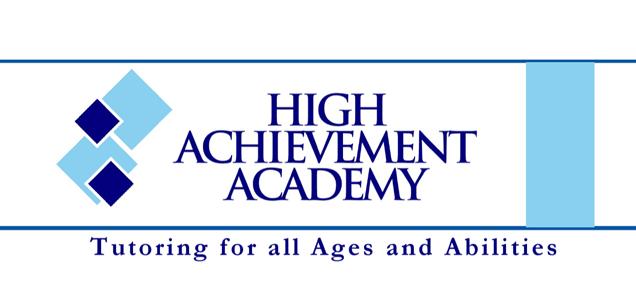
Windjammer Place, 461 Walkers Road, George Town. Tel: (345) 746 5555 Email: info@ haacayman.com Web: www.haacayman.com. Educational and professional tutoring for all ages (5+) and abilities in small groups or oneon-one. Classes available six days a week, including holidays, during day or evening hours.
I Read For Life
Barnett Building, 24 Huldah Avenue (next to the Red Cross building), George Town. Tel: (345) 947 1497 Email: admin@ireadforlife.ky Web: www. ireadforlife.ky. Offers a method of reading remediation that helps struggling readers gain self-confidence, improve comprehension and read faster. Offers traditional tutoring as well as online tutoring.
Math Tutoring With Claude Bailey
Tel: (345) 926 3812. A former Golden Apple recipient, Mr Bailey offers Maths tutoring for Grades 3-12 and help for university level Maths.
High Achievement Academy (HAA) offers small group and one-on-one tutoring for all ages and abilities. Sessions are offered seven days a week and are provided by highly qualified and experienced teachers from the UK, USA and Canada. They are knowledgeable in the UK, US, Caribbean and IB curriculums. Programmes range from exam preparation (CXC, GCSE, A Levels, IB and SATs), homework help, study skills, English as a second Language and workplace training. Daytime, evening and weekend sessions are available. HAA also welcomes the travelling student who requires provisional study while visiting Cayman.
Dorm & Day
2 Harbour Drive, George Town. Tel: (345) 936
3676 Email: admin@dormandday.ky Web: www. dormandday.ky. Offers an exclusive schools placement advisory service assisting with all aspects of the schools search and admissions process at home and overseas. Services include reviewing transcripts and applications, financial aid and scholarships and test and interview preparation.
ACTING & THEATRE CLASSES
Cayman Drama Society (CDS)
Prospect Playhouse, Red Bay. Tel: (345) 936
1907 Email: training@cds.ky Web: www.cds.ky. Caystage offers ongoing after school acting classes for children ages 7-18 years and adults of all experience levels, as well as summer acting and drama camps. CDS has a full-time Training Officer on staff. On occasion, they offer writing, directing and technical production courses.
Cayman Music School
82 Market Street, Camana Bay. Tel: (345) 938
3838 Email: info@caymanmusicschool.com Web: www.caymanmusicschool.com. Runs acting and musical theatre programmes for ages 7-15+ years. All classes are categorised by age.
Centre Pointe Dance Studio (CPDS)
108 Alissta Towers, North Sound Road, GT. Tel: (345) 926 5889 or (345) 926 9603 Email: centrepointedance@gmail.com Web: www. centrepointedancestudio.com. CPDS is the leading performing arts studio in the Cayman Islands. They teach all genres from Ballet to Drama and accept students from ages 9 months-adult.
Cayman National Cultural Foundation
Tel: (345) 949 5477 Email: cncf@artscayman.org or info@artscayman.org Web: www.artscayman. org. CNCF offers year-round cultural education opportunities for Cayman’s kids and teenagers via the Creative Kids page on the website. The 'Mind's Eye' tour for students ages 4-16+ years allows kids to discover Ms Lassie Bush's art, while learning more about 'long ago' Cayman. Summer camp groups are also welcome. Also regularly hosts lectures and workshops to further develop Cayman's life-enriching cultural community.
The National Gallery of the Cayman Islands
Esterley Tibbetts Highway, south of Camana Bay. Tel: (345) 945 8111 Web: www.nationalgallery. org.ky. Home to the National Art Collection, art library, education centre and sculpture gardens. The Gallery hosts temporary exhibitions, cultural events and workshops throughout the year for all age groups and skill levels.
3 Girls & A Kiln
47 South Church Street, George Town. Tel: (345)
640 9990 Email: 3girlsandakiln@gmail.com Web: www.3girlsandakiln.com. Offers a wide selection of fun monthly art classes for kids and adults.
Art Nest
Elizabethan Square, 80 Shedden Road, George Town. Tel: (345) 927 2258 Email: events@ artnestcayman.com Web: www.artnestcayman. com. Offers a variety of weekly classes for both adults and children. Their adult classes are sociable and fun with materials, supplies and expert instruction included in classes like pottery wheel throwing, canvas painting, resin art, culinary and craft workshops . They also offer creative team building activities for companies and art camps over school holidays for kids.
Art'y Parties
6 Devon Road, Prospect. Tel: (345) 928 0284
Email: artypartiescayman@yahoo.com Web: www.artypartiescayman.com. Art'y Parties specialises in art parties, painting classes, traditional face painting, airbrush face painting/ tattoos, personalised school labels and personalised party supplies.
CADET CORPS
Cayman Islands Cadet Corps
Tel: (345) 946 9810 (Grand Cayman) or (345) 938 8824 (Cayman Brac) Email: cadetcorps@ gov.ky Web: www.cicadetcorps.ky. Cadets learn life skills, develop morals and high standards of conduct through challenging, military-style activities. Offers a wide range of activities, including drills, field craft, adventure, navigation, first aid, music and water-based activities. Accepts male and female high school students from ages 11-18. They are always looking for adult volunteers from a cross-section of the Caymanian community. There are groups of cadets in both Grand Cayman and Cayman Brac.
The National Trust Mission House, 63 Gun Square, Bodden Town. Web: www.nationaltrust.org.ky. The National Trust often hosts cooking classes for teens and adults, focussing on traditional Caymanian dishes. Visit their website for more information on upcoming events.
DIVING COURSES
See page 282 for listings.
Minerva Cayman
Tel: (345) 746 9999 Email: contact@minerva. ky Web: https://minerva.ky. Delivers courses in children's etiquette in a casual, friendly and non-judgemental manner. This course includes workshops on table manners, setting the table and greetings.
Parkway Academy
Tel: (345) 929 9871 Email: admin@parkwayaca demy.org Web: www.parkwayacademy.org. Provides in-person workshops and classes in social skills, dining etiquette, modern manners and real value 'life skills' to children, teenagers
and young adults. They offer weekly classes and workshops, private classes and camps during school holidays.
Cayman Islands Red Cross (CIRC)
Thomas Russell Way, George Town. First Aid Training Manager: (345) 925 0715 Email: firstaid@ redcross.org.ky Web: www.redcross.org.ky. Offers the American Red Cross (ARC) syllabus and certification in Infant/Child/Adult First Aid, CPR and AED (Automated External Defibrillator), Lifeguarding and Basic Water Rescue. All certifications are valid for two years.
Cayman Sea Elements
Tel: (345) 936 8687 Email: caymansea@gmail.com. Offers the Emergency First Responder (EFR) certification course. The course covers practical and theoretical adult, child and infant CPR, AED and First Aid, including administering EPI pens. Lifeguarding and Water Safety courses are also offered.
Fitness Connection
1 Bambi Close, Glen Eden Road, George Town. Tel: (345) 949 8485 Email: fitness@fitness.ky Web: www.fitness.ky. Teaches the ASHI CPR/AED course as well as the SAI Safety Training Aquatic Rescue Course and Starguard Life Guard training.
Thrive Fit
Tel: (345) 938 1113 Email: info@thrivefitcayman. com Web: www.thrivefitcayman.com. Offers private and group courses on first aid, CPR and basic water rescue, as well as Nanny Water Safety courses.
HIV, AIDS, GENDER & SEXUALITY AWARENESS AND EDUCATION
Cayman Islands Red Cross (CIRC)
Thomas Russell Way, George Town. Tel: (345) 916 1742 or (345) 949 6785 Email: deputy@redcross. org.ky. The CIRC offers a basic information course on HIV and AIDS, as well as courses on gender and sexuality, healthy sexuality and sexualisation, and stigma and discrimination.
LANGUAGE COURSES
French Tuition Cayman
Tel: (345) 928 7526 Email: frenchtuitionky@yahoo. com Web: www.frenchtuitioncayman.com. Offers French classes in your own home for children ages 5+ and adults, from beginner to advanced levels. Also offers GCSE and A Level exam support.
Modern Language Institute
25 Butternut Close, Beach Bay, Bodden Town. Tel: (345) 943 8254 Email: modernlanguages11@ yahoo.com. Offers regular tutoring in English as a second language and Spanish to all ages and levels. Also offers an array of translation and interpretation services in all modern languages. Recognised by the Office of the Deputy Governor as a Translator within the Cayman Islands.
The Academy Grand Cayman
Cannon Place, Unit 115, North Sound Road, George Town. Tel: (345) 323 9778 Email: info@theacademy. ky. Offers classes for children in Brazilian jiu jitsu, mixed martial arts, boxing and fitness. Also offers self-defense training for men, women and children ages 4+. The specialised teenage selfdefense course teaches teens how to recognise unsafe situations, plan exit routes and practise physical moves should they ever need to defend themselves.
arts and media camp. Scholarships are available each year, plus free camp places are given to Caymanian children.
Myles Music Store
Barnett Building, 24 Huldah Avenue, George Town. Tel: (345) 949 1753 Email: mylesmusic@candw.ky. Offers piano, guitar, violin and drum lessons. Sells many different kinds of musical instruments and musical accessories, and they can rent and repair guitars.
Waterman Cayman & Blue Wave Surf Shop
Two locations: Galleria Plaza, West Bay Road. Tel: (345) 769 7873 and West Shore Centre, West Bay Road. Tel: (345) 949 8166. Both sell paddleboarding, surfing and kitesurfing equipment as well as clothing for surfing and other watersports.
Winner's Circle Sports
12 Walkers Road, George Town. Tel: (345) 949 0068. They sell Adidas, Asics, Brooks, Converse, Jordan, Nike, Saucony, Skechers and Vans among other sporting equipment and shoes.
Teen Leadership Training
See page 280 for a list of Sunday Schools and church services.
The Music Box
Market Street, Camana Bay. Tel: (345) 929 2999
Email: info@caymanmusicschool.com. Sells musical instruments, accessories, music books and recording equipment. Also repairs and rents musical equipment.
Myles Music Store
Barnett Building, 24 Huldah Avenue, GT. Tel: (345) 949 1753 Email: mylesmusic@candw.ky. Sells all sorts of different instruments and music books. Rents and repairs guitars and offers music lessons.
Cayman Music School
82 Market Street, Camana Bay. Tel: (345) 938 3838 Email: info@caymanmusicschool.com Web: www.caymanmusicschool.com. Tuition is offered in most musical instruments, voice training, rock school, music theory, music appreciation, composition, drama, DJing and more. Also helps with exam preparation.
Jukebox
Tel: (345) 546 0230 or (345) 321 5126 Email: info@jukebox.ky Web: www.jukebox.ky. Offers a mobile music service providing private and group instrumental and singing lessons, including classes for babies/toddlers. Lessons are designed to teach key components, including technical ability, practical awareness, musical skills and performance practice.
Musicians Ltd
4 Dot Com Centre, Dorcy Drive, Airport Industrial Park. Tel: (345) 525 6787 Email: janine@musicians. ky Web: www.musicians.ky. Offers instrumental lessons at many of the schools, plus at their studio weekdays and weekends. Individual lessons offered in piano, voice, violin, cello, guitar, flute, clarinet, saxophone, trumpet, drums, composition and theory. Students prepare for external theory and practical examinations throughout the year following the Trinity Guildhall Syllabus. Broadway Tots (3–5 years), Broadway Stars (6–9 years), Musical Theatre (10–16 years). During the holidays camps are offered, including band, performing
See page 173 for a list of medical health providers for children. These include paediatricians, occupational therapists, speech and language therapists, counsellors and psychologists.
See page 86 for information on getting your child a school health screening.
School Uniforms & Embroidery
YMCA
Tel: (345) 926 9622 Email: info@ymcacayman. ky Web: www.ymcacayman.ky. The YMCA Teen Leader On programme reaches young people ages 13-17 during one week in the summer. Teen Leaders gain important leadership skills and experience through various projects. Many also serve as Leaders-in-Training during Y day camps which reinforce core values and leadership skills. This programme fosters a positive sense of identity, values and confidence amongst participants.
Becky's Closet
90 Godrey Nixon Way, George Town. Tel: (345) 939 0007 Email: beckyscloset345@gmail.com. Sells uniforms for most government primary schools as well as for Triple C and Wesleyan Christian Academy. They also sell navy and khaki pants, skirts, shorts and skorts.
Island Embroidery
119 Dorcy Drive, opposite the Airport Park, George Town. Tel: (345) 949 4733 Email: islandemb@ candw.ky. Embroiders school uniforms for various schools.
Cayman Islands Marketing Professionals Association (CIMPA)
Email: info@cimpa.ky. Every quarter, CIMPA runs professional development courses on a variety of topics, including public speaking, SEO optimisation, event planning, budget management and analytics. Members and nonmembers are welcome.
Cayman Islands Society of Human Resources Professionals (CISHRP)
Little Angels Market Street, Camana Bay. Tel: (345) 946 2645. Extensive selection of SPF 50+ sun protection tops, swimwear, ‘jelly’ shoes and more.
Sport ‘N’ Zone in No. 1 Shoe Shop Hospital Road Plaza, Walkers Road, George Town. Tel: (345) 949 5595. Sells branded clothing and footwear, including Nike, Reebok, Adidas and more.
Sportista Co
1 Nexus Way, Camana Bay, behind Butterfield Bank. Tel: (345) 926 1122 Email: hello@sportista. co. Sells sports apparel from Adidas, Nike, Asics, Garmin, New Balance and Under Armour.
Sports Supply
Galleria Plaza, West Bay Road. Tel: (345) 949 7884 Web: www.sportssupply.ky. Offers clothing for football, yoga, tennis and general fitness. Brands include Nike, Adidas, Asics, Champion and Under Armour.
Email: info@cishrp.ky Web: www.cishrp.ky. Every year, CISHRP offers a Certificate in HR Management course which includes modules on Cayman's immigration, pension and labour laws, health insurance rules and the essentials of HR Management. Exams are scheduled twice a year.
Chamber's Training Centre
Governors Square, West Bay Road. Tel: (345) 949 8090 ext. 123 Web: www.caymanchamber.ky. The Chamber of Commerce Training Centre offers a comprehensive range of two-hour, four-hour, one-day and two-day courses on topics such as Legal Assist, Ken Blanchard Leadership Series, Workplace Essentials, Made For You and Small Biz Boot Camp.
CPD Courses for Accountants
Email: admin@ciipa.ky Web: www.ciipa.ky/ Live-Training/Events. All regular members of the Cayman Islands Institute of Professional Accountants (CIIPA) must comply with the Continuing Professional Development requirements of their overseas accounting institute or the International Education Standards. The CIIPA Training Committee have developed an annual training calendar of diverse courses to support members’ professional development.
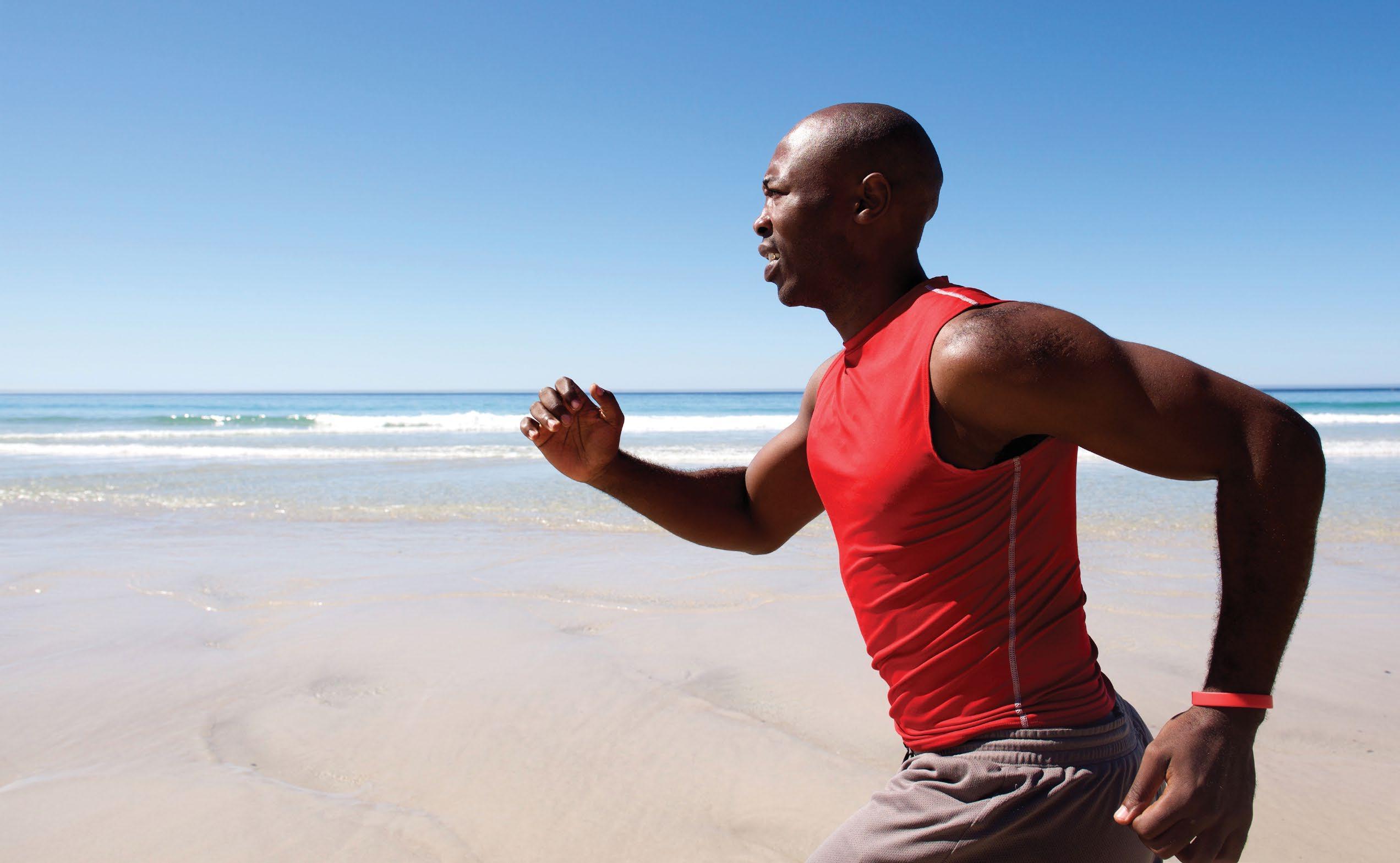
We’re delighted to announce that Drs Olivia Antos and Nabil Khan, two world-class orthopaedic surgeons, have joined the Cayman Orthopaedic Group as full time physicians and residents of Grand Cayman.
Dr Antos is highly valued in her field for her subspecialty training in general orthopaedic trauma and paediatric orthopaedics. Dr Khan’s subspecialty training in sports surgery and his work in cartilage regeneration, repair, and use of collagen-matrix make him invaluable to those suffering from shoulder, knee, and other sports-related injuries.


With decades of orthopaedic experience between them, this husband and wife medical team is set to bring their extensive surgical and diagnostic skills to all the people of Cayman.
MBChB, FCOrth (S.A), Mmed (Wits)
Orthopaedic Surgeon
MBChB, FCOrth (S.A), Mmed (Wits)
Orthopaedic Surgeon
Dr Nabil Khan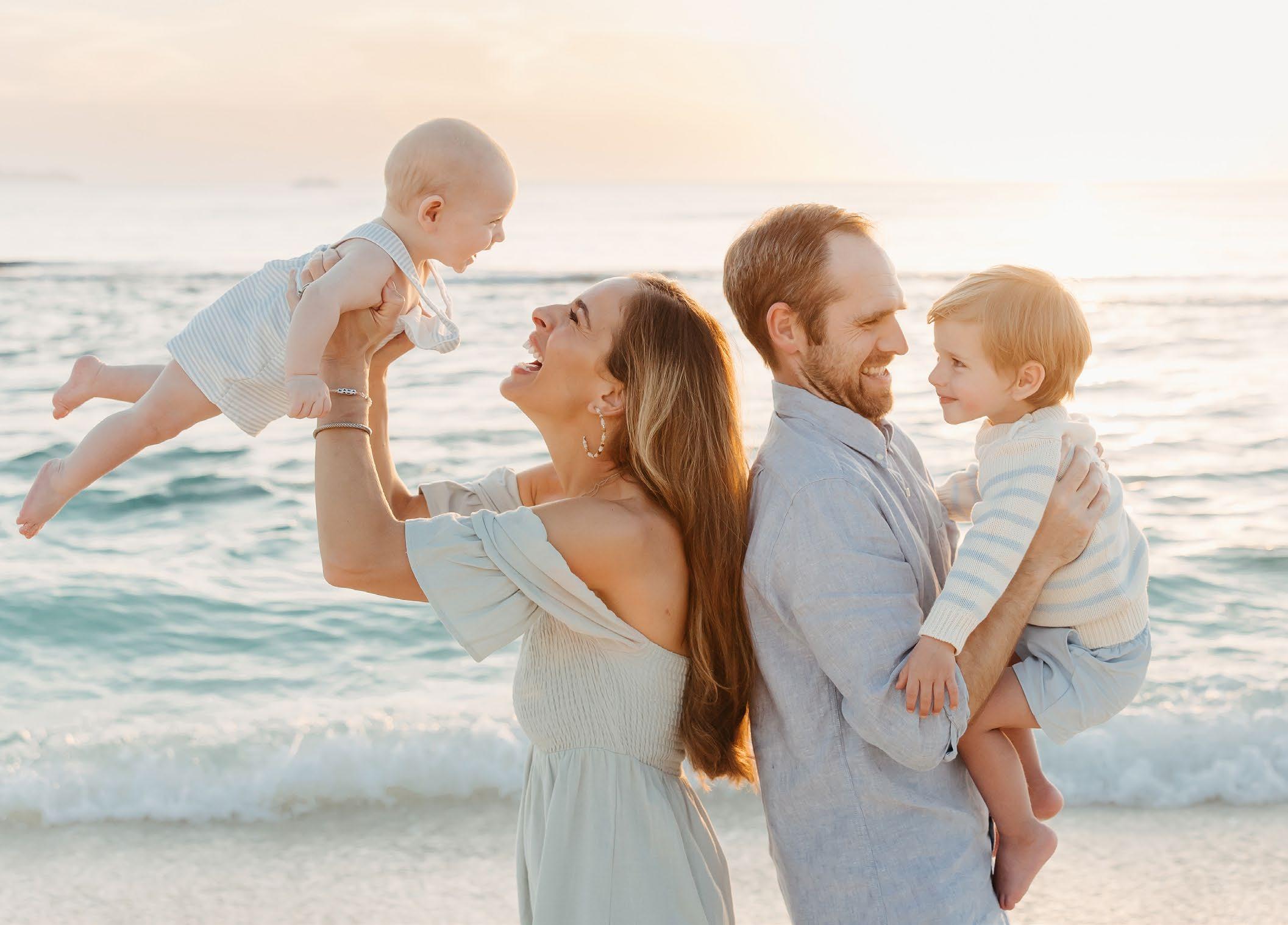
The Wellness Centre is a licensed health facility, with a team of clinical specialists who provide a wide range of comprehensive psychological, mental health, behavioural interventions and corporate wellness services to individuals, families and organizations.

Psychological Services
• Clinical & Educational Assessments
• Specialized Diagnostic Services
• Reflective Supervision | Clinical Supervision

• Marriage & Family Therapy
• Individual Therapy (child & adult)
• Child & Parenting Services
• Maternal Wellness & Infant Mental Health

• CBT | DBT | ACT | EMDR
• SPACE
• Play Therapy | Filial Therapy | TheraPlay
• Perinatal Mental Health
• Corporate Wellness Services
Developmental Support Services


• Autism & ADHD Community Experts
• Developmental Screening & Assessment
• Early Start Denver Model (ESDM)
• Practical Functional Assessments
• Skills Based Treatment (ABA)
• Play2Grow: an enrichment early childhood programme
• The Growing BrainTM Training
• Parent / Caregiver Training & Support
• Social Skills: PEERSTM

• Vocational & Independent Living Skills
• Disability Employment Support


• Disability Policy Consultation
• Dementia Capable Care Specialist Services & Training

Mental Health Needs we support
• Anxiety Disorders
• Depression | Mood Disorders
• Behavioural Disorders
• Grief & Loss
• Trauma
• Suicide & Self-Harm
• Infant Mental Health (PostNatal & Attachment)
• Eating Disorders
• Personality Disorders
• ADHD
Throughout your life, it is important to have regular health screenings to ensure you are maintaining good health. Advances in medical technology now mean we have access to a wide range of health tests. By staying on top of these screenings, we ensure early detection, which is key to the successful treatment of many diseases. —
Dr Virginia Hobday MBE MBBS MRCGP M PHIL at Cayman ClinicStandard screenings start as young as 25, even younger if you have a family history of certain diseases, so it’s not something that should be delayed until you are older.
As parents, we lead busy lives, but nothing is more important than our health and being there for our children. So make sure you prioritise your health by getting the recommended screenings for your gender and age.
All the screenings covered in this article are offered in the Cayman Islands and are performed by world-class doctors using the latest equipment and methods.
• Screening can detect a problem early, before you have any symptoms.
• Detecting a problem early can mean that treatment is more effective.
• Finding out you have a health problem or an increased risk of a health problem can help people make better informed decisions about their health.
• Screening can reduce the risk of developing a condition or its complications.
• Some deaths from bowel cancer, breast cancer and cervical cancer can be prevented.
The cost of screening tests varies depending on your insurance policy, so check with your doctor or GP to find out the costs. Some charities in Cayman also offer free screening services. See page 151 for details.
MORE INFORMATION: Contact your doctor to find out what screenings are available to you. Turn to page 175 for a list of doctors in the Cayman Islands.
• What does the test detect? It checks if your blood pressure is too high or too low.
• Why is the test important? High blood pressure, or hypertension, can increase the risk of heart disease, heart attacks and strokes.
• What’s involved in the test? A blood pressure cuff is wrapped around the top part of your arm. Your doctor will inflate the cuff, from which a gauge will measure your blood pressure.

• What happens next? If your blood pressure is too high or too low, you may be required to make lifestyle changes such as adopting a healthy balanced diet and establishing a regular exercise routine. You may also be required to take medication to control your blood pressure.
• Screening age & frequency: The NHS recommends that all adults over 40 years of age have their blood pressure tested at least every five years so any potential problems can be detected early.
• What does the test detect? It can detect breast cancers when they are too small to see or feel.
• Why is the test important? 1 in 8 women in the UK are diagnosed with breast cancer during their lifetime and the likelihood of getting it increases with age. Early detection through mammogram screening is key to having a good chance of recovery. Regular mammograms also allow your doctor to compare changes in the breasts over the years.
• What’s involved in the test? A mammogram is an X-ray picture of your breast with a special machine. A mammographer will place your breast on a plastic plate. Another plate will firmly press your breast from above. The plates will flatten the breast, holding it still while the X-ray is being taken. The steps are repeated to make a side view of the breast. The other breast will be X-rayed in the same way. It can be uncomfortable for a few moments at a time but the whole process is over in about 10 minutes or less.
• What happens next? If the results come back abnormal, that does not always mean there is cancer, but you will need to have additional exams and a possible biopsy before the doctor can tell for sure.
• Screening age & frequency: Women ages 40-44 can start to have mammograms every one to two years. Women ages 45-75 should have a mammogram every one to two years, depending on their risk factors.

• What does the test detect? This is a test that checks for changes in the cells covering the neck of the womb/uterus. These changes could later develop into cervical cancer if they are not treated. Human Papillomavirus (HPV) can also be checked at the same time.
• Why is the test important? It’s extremely effective at
preventing cervical cancer and saves around 4,500 lives every year in the UK alone.
• What’s involved in the test? After undressing from the waist down, you lie on your back with your knees bent and apart. Your nurse or doctor will use an instrument called a speculum to gently open the vagina, so that they can see your cervix. They'll then use a small brush to take a sample of cells from your cervix, which they'll send to a lab to be tested. The test takes just a minute or two, and while it can feel uncomfortable, it usually does not hurt.
• What happens next? If you get an abnormal result, it doesn’t mean you have cancer. You may be asked to repeat the test. If the abnormality is not resolved, you may be invited back for a colposcopy which is a 15-20 minute procedure where a small sample of tissue is removed for examination in a laboratory. If these cells are found to be abnormal, you will then have a further procedure to remove all the abnormal cells. This procedure is carried out in a doctor's office while you're awake, but your cervix is numbed and you can go home the same day. You will then need to have regular screenings every six months to check for abnormal cells and HPV.
• Screening age & frequency: In the Cayman Islands, screening for cervical cancer begins at the age of 21 and continues every two years until age 65. Women over 65 only need to be screened if one of the previous three tests were abnormal. Women of any age who receive abnormal test results may be advised to have more frequent screenings.
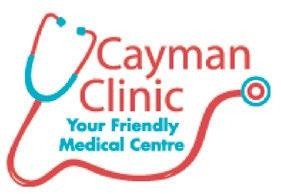
FAMILY MEDICINE
Dr. Virginia Hobday MBE MBBS MRCGP

Dr. Denise Osterloh MB ChB

Dr. Fiona Robertson MBBS MRCGP
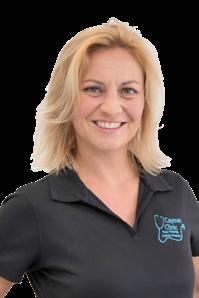
Dr. Heidi Fahy MBBS DRCOG MRCGP
Dr. Nadia Balleram BMSc MBBS PGDipFM
Dr. Adam Steed MD CCFP

SPORTS MEDICINE
Dr. Melissa Mascaro MD CAQSM

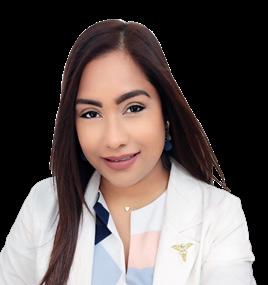


ULTRASOUND
Nina Baxa RDMS
IDEAL PROTEIN WEIGHT LOSS PROGRAMME AVAILABLE
• Healthcare for the family, incl child & adolescent health
• Women’s health, pap smears and family planning
• IUD’s & contraceptive implants
• School & Scholarship, Immigration Medicals
• Certified Aviation Medical Examiner
• Dive medicals/diving related injuries
• Minor injuries
• Illnesses requiring immediate care, incl. intravenous treatment
• Sports injuries, prevention & treatment for overuse
• Platelet Rich Plasma (PRP)
• Medical and cosmetic Botox procedures
• Walk-ins & Emergencies accepted
• Lab Services
• What does the test detect? It measures if you have too much of a fatty substance called cholesterol in your blood.
• Why is the test important? Having too much cholesterol can block your blood vessels and increases your risk of having heart problems or a stroke. There are no symptoms of having high cholesterol. The only way to measure it is with a test.
• What’s involved in the test? It’s a simple blood test. Your doctor may recommend a blood draw from your arm with a needle or a finger-prick test.
• What happens next? The test measures four levels: 1. Good cholesterol (called HDL) – this makes you less likely to have heart problems or a stroke, 2. Bad cholesterol (called LDL and non-HDL) – this makes you more likely to have heart problems or a stroke, 3. Triglycerides – a fatty substance similar to bad cholesterol, and 4. Total cholesterol - an overall measurement. If your levels of bad cholesterol are high, then the doctors will look at other risk factors, including your family history, blood pressure, BMI and lifestyle to recommend a course of action. This might include a lifestyle overhaul that involves eating better, giving up alcohol and smoking and increasing physical activity. Doctors may also recommend further, more detailed cholesterol testing. You may be prescribed medication that will help lower your cholesterol and reduce your risk of having a stroke or heart attack.
• Screening age & frequency: Healthy adults between
the age of 40-74 should have a cholesterol test every two years. If you have a family history of heart disease, your doctor may recommend more frequent testing.
• What does the test detect? It checks for traces of bowel cancer, which includes cancer of the colon and rectum.
• Why is the test important? Bowel cancer is the fourth most common cancer in the UK and the second most fatal cancer; however, bowel cancer is treatable and curable, especially if diagnosed early.
• What’s involved in the test? There are three types of tests involved. For screening purposes, you will most likely be offered the Faecal Immunochemical Test (FIT) or Faecal Occult Blood (FOB), which looks for indicators of cancer in your stool. If any abnormalities are found, then you will be invited for a colonoscopy or a virtual coloscopy. In order to prepare for the test, you will be given a special laxative to empty the bowel. A colonoscopy is a 30-45 minute procedure where a long, thin, flexible tube with a small camera inside it is passed into your rectum and colon. The doctor will look for pre-cancerous polyps and any other abnormalities. A virtual coloscopy is a 3D scan of your abdomen and pelvis, which will show polyps or other abnormalities in the colon or rectum.
• What happens next? Before you go home, your doctor will tell you if they removed any growths (polyps) or tissue samples (biopsies) from your bowel. These will be tested
for cancer and you will receive the results in a few weeks.
• Screening age & frequency: Healthy adults aged 5074 should have a FOB screening test every 1-2 years and a colonoscopy every 7-10 years. Those with a family history of bowel cancer may be advised to start screening earlier.

• What does the test detect? A full body skin exam can identify suspicious growths or spots that may be a symptom of skin cancer. Automated Total Body Dermoscopy screening, also known as mole mapping, scans the whole body and photographs every mole and blemish. At future screenings, moles can automatically be compared to the previous scans and any moles that have changed can be reliably identified.
• Why is the test important? Living in the Cayman Islands, we are exposed to dangerous UV rays 365 days a year, so it’s important to remain vigilant. With skin cancer, early detection is key and the survival rate is over 98% at five years if the cancer hasn’t spread.
• What’s involved in the test? With Automated Total Body Dermoscopy screening you are required to stand in your underwear while the computer takes pictures of your whole body. It takes about 15 minutes. The computer captures and records all your moles.
• What happens next? If there are any moles causing concern, then you will be invited back for a biopsy which will then be sent to the lab for testing for skin cancer.

• Screening age & frequency: All adults in Cayman should see a dermatologist or their GP at least every 12 months.
• What does the test detect? A blood test, called a prostate-specific antigen (PSA) test, measures the level of PSA which may help detect prostate cancer, even early cases. This is usually combined with a Direct Rectal Exam (DRE).
• Why is the test important? Prostate cancer is more common in older men and in Afro-Caribbean men.
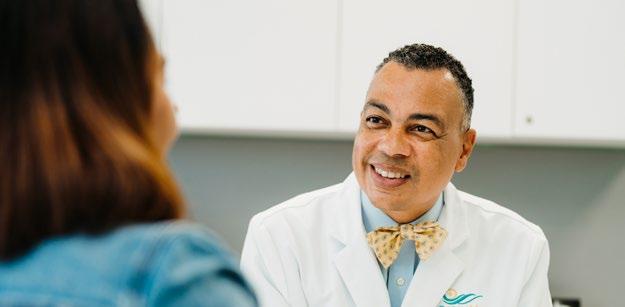
• What’s involved in the test? Patients will have a simple blood test, and the sample will be sent to the lab for testing.
• What happens next? If you have a raised PSA level, you may be offered a digital rectal exam (DRE) if you've not had one, or an ultrasound of the prostrate. Doctors may also order an MRI scan or a biopsy of the prostate to help decide if you need further tests and treatment.
• Screening age & frequency: Screening for AfroCaribbean men begins at age 45. All other men over 50 should be offered a PSA test every year.
An Annual Wellness Check is a preventative health check, a bit like a full body MOT, that gives you an overview of your current health. An AWC can help spot any issues early on,
OceanMed specialises in Women’s, Children and Imaging services. Located in George Town, their state-of-the-art clinic and world-class health care team deliver leading-edge obstetrics, gynecology, pediatrics, neonatal care, teen health and medical imaging all within a clinic designed specifically to enhance the patient's well-being. With a patient lounge offering a calm, discreet space for patients to prepare before or between appointments, and sensory exam suits equipped with calming visuals, music and aromatherapy for an enhanced patient experience.

OceanMed’s state-of-the-art facilities are equipped with the most advanced imaging technology available, delivered by a highly experienced team of doctors, nurses, sonographers, radiographers and support staff, providing an unrivalled suite of women’s, children and imaging healthcare services.
Services: Gynaecology care
•• Menstrual irregularities
• Pregnancy & Fertility care
• Urinary incontinence
•• Neonatal care for newborns
• Pelvic prolapse
• Menopause care
• Genetic screening
• Developmental & behavioural health screening
• Children’s wellness care
• Teen health checks
• Child & teen mental health assessment
• Acute & Chronic illness• Immunizations
• Ultrasound
• Mammography
• 3D Ultrasounds & gender scans
• Biopsies
Details: Open: Monday-Friday 8am-6pm. Saturday 8am-1pm. All local private insurance policies accepted.
(345) 946 2326 | info@oceanmed.ky | www.oceanmed.ky |
South Church Street, GT
meaning you get timely treatment. Adults of any age can start getting AWCs to keep on top of general health; most adults begin having them regularly when they become parents as health becomes even more important to them.

An AWC can include any number of tests and examinations, usually with add-on tests available. Tests can include: Complete Blood Count (CBC), Fasting Blood Sugar, A1c, Lipid (Fats) Profile, Liver Function Panel, Kidney Function Panel, Uric Acid, Thyroid Panel (FT3, FT4 and TSH), Urine Examination, ECG, Chest X-Ray and a Physician Consultation. Additional tests can range from cardiac testing, ultrasounds, cervical cancer screening, Bone Health Screen, Diabetic Screening and many more. Each AWC can be tailored to your needs.

Contact your GP, Cayman Clinic, Health City, Integra Concierge, Health Services Authority (HSA) or Total Health to book your AWC. You can also check with your current health services provider if they administer AWCs.

If you have a basic health insurance policy or no insurance, then the following local charities can help you:
• The Breast Cancer Foundation (BCF) provides vouchers for mammograms and breast ultrasounds for all Cayman residents whose health insurance doesn’t cover them or for those who have no insurance at all. It also offers many other free services for those worried or diagnosed with breast cancer. For more information, call (345) 923 1135 or (345) 936 1135 or email: info@bcfcayman.com.
• The Lions Club of Tropical Gardens gives free mammogram vouchers during the month of October to highlight breast cancer awareness. Email: bcawareness@ gmail.com.
• The Cayman Islands Cancer Society (CICS) provides screenings for people in Cayman who are fighting cancer. Individuals are able to access their Charity Voucher Programme, which offers pap smear tests, prostate exams and mouth and throat cancer screenings. The Cayman Islands Cancer Society also provides financial aid for cancer patients in need. For more information, call (345) 949 7618 or visit www.cics.ky.
• The Lions Club of Grand Cayman provides free prostate cancer screenings (PSA tests) in mid-November at the Lions Center every year. For more information, visit their Facebook page www.facebook.com/ LionsClubGrandCayman.
• The Cayman Heart Fund provides free wellness screenings to the public regardless of their status or insurance coverage. Tests include blood pressure, height, weight, body mass index (BMI), waist circumference, cholesterol and glucose. Financial aid is also possible on a case-by-case basis for Cayman residents and to families in Cayman when their child suffers from a congenital heart defect. For more information, call (345) 916 6324 or visit www.caymanheartfund.ky.
When you hear the word 'orthodontics', your first thought is probably a teenager with braces. But the truth is, taking your kids to see an orthodontist before they enter their teens is super beneficial! From initial appointments to final treatments, the answers below will help ensure that everyone is completely aligned! — Dr
Terry Giangreco D.D.S., M.S at Cayman Dental (Orthodontics)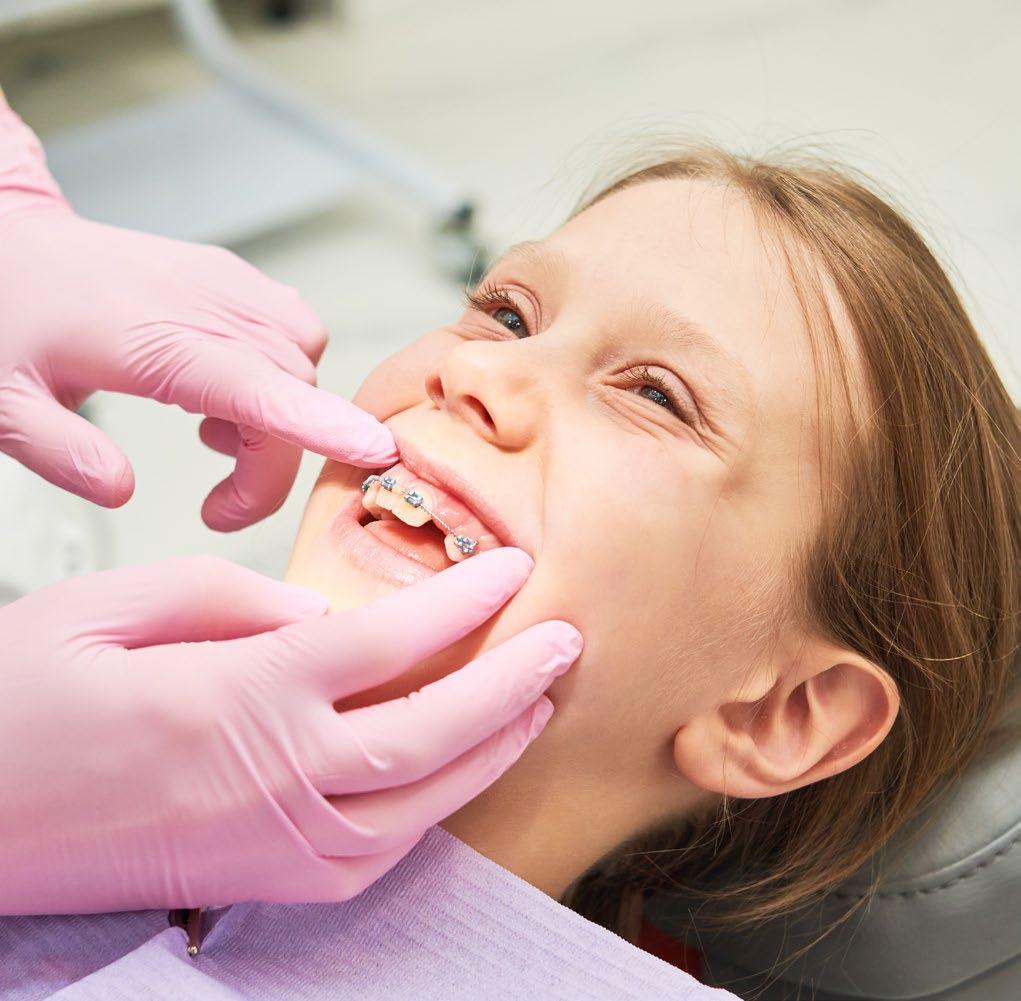
Orthodontic treatment is extremely important for children, but many parents may not know the best time to begin. The American Association of Orthodontists recommends children see an orthodontist by age seven. This may seem too young, but it’s actually best to visit an orthodontist when the child has both baby and permanent teeth. The orthodontist will be able to recognise spacing or bite issues even in their earliest stages and can intervene before any damage is done or more invasive treatment is needed.
If your child is younger than seven and you notice something that appears 'off', it’s not necessary to wait or get a recommendation from your dentist for a first check-up. Similarly, if your child is eight or older, it is not too late for their first check-up with an orthodontist.
If you’re still not sure your child needs braces or other early orthodontic treatment, you can check for the following signs:
• Early or late loss of baby teeth
• Difficulty biting and chewing
• Protruding teeth, difficulty closing lips
• Crowded, crooked and blocked out teeth
• Irregular teeth spacing
• Mouth breathing and airway issues
• Upper and lower teeth do not meet when biting
• Grinding or clenching teeth
• Frequently biting cheek or roof of mouth
• Thumb and finger sucking or other oral habits
• Speech difficulties
• Facial asymmetry, chin off-centred
• Self-esteem concerns with how their teeth look.
These symptoms do not necessarily mean your child will need treatment, but the orthodontist will use their education, expertise and experience to create a customised plan to address all concerns.
Dentistry is a broad medical speciality that deals with oral health – specifically your teeth, gums, nerves in the mouth, and
jaw. A dentist generally provides the following treatment: tooth extraction, filling cavities, repairing teeth, removing tooth decay, root canals, gum care, and the list goes on. Orthodontists are general dentists who undergo additional training in the prevention, diagnosis and treatment of dental and facial irregularities. They provide a wide range of treatment options to straighten crooked teeth, fix bad bites and align the jaws correctly.
Since an orthodontist receives specialised training to diagnose and treat problems affecting the alignment of the teeth, they’re your best bet for correcting these issues. An orthodontist doesn’t just have more training than a dentist in this particular area of oral health, they also take part in ongoing training to stay up to date on the latest breakthroughs in oral healthcare. Not to mention, aligning teeth is what they do all day, every day!
It is important to remember that even if you are referred to an orthodontist, you should not stop seeing your general dentist. They are not one and the same, as your general dentist will still need to evaluate your overall oral health, during and after your treatment by an orthodontist. Your orthodontist is there to help correct alignment issues affecting your teeth, while your dentist is there to keep your teeth and gums healthy throughout your entire life.

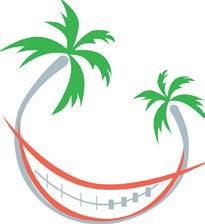
When you or your child first goes to the orthodontist, they will meet with a team member and have records collected, which include a panoramic x-ray and intraoral photos. After an oral exam and a review of the dental records, your orthodontist will let you know of any concerns or potential issues they see and let you know what the best course of action would be to correct them.

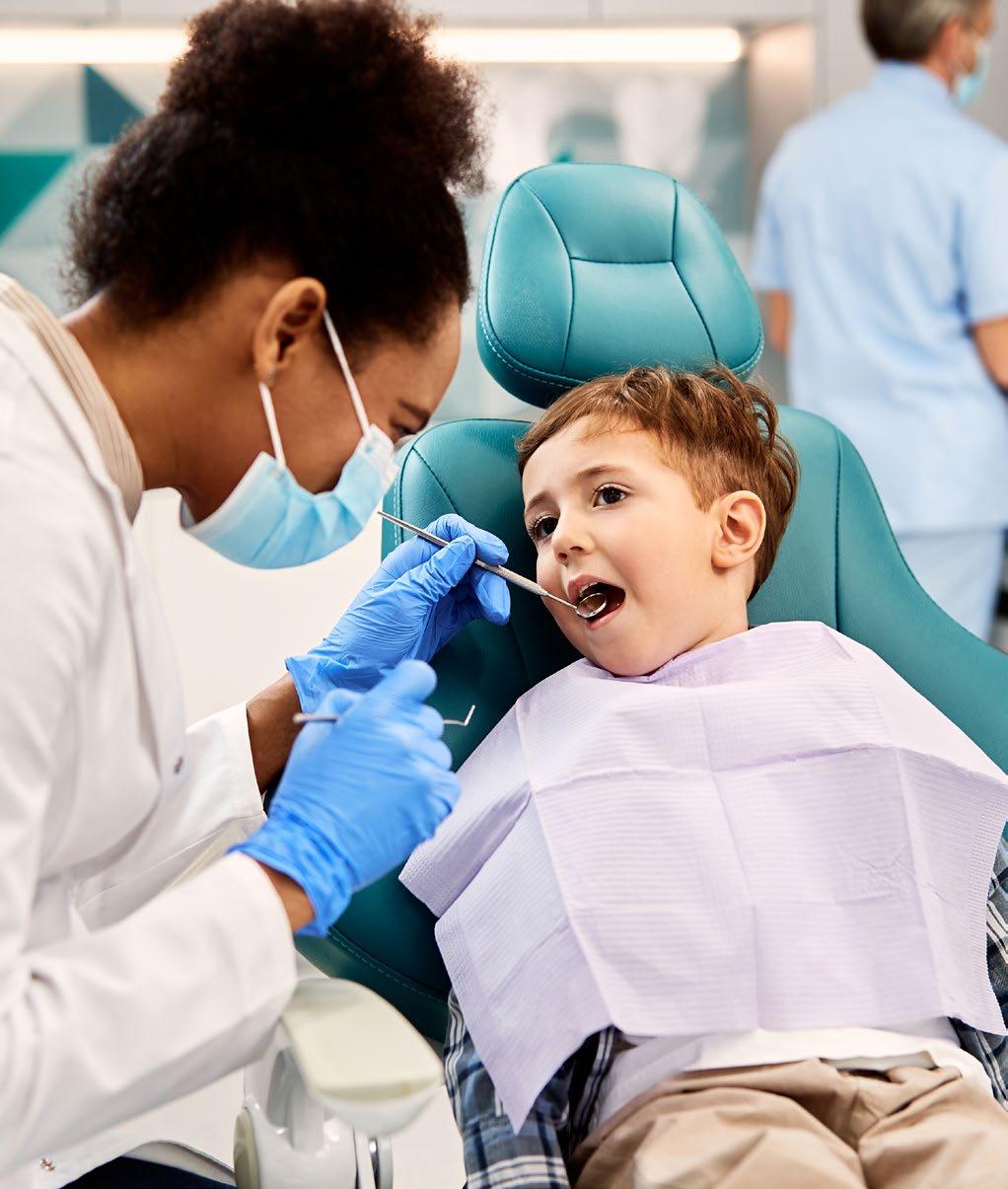
Your child’s first appointment is an excellent time for you to give the orthodontic team any medical or personal history about your child that could help determine the best course of treatment. Having your child visit the orthodontist early helps them get comfortable with the doctor and the team.
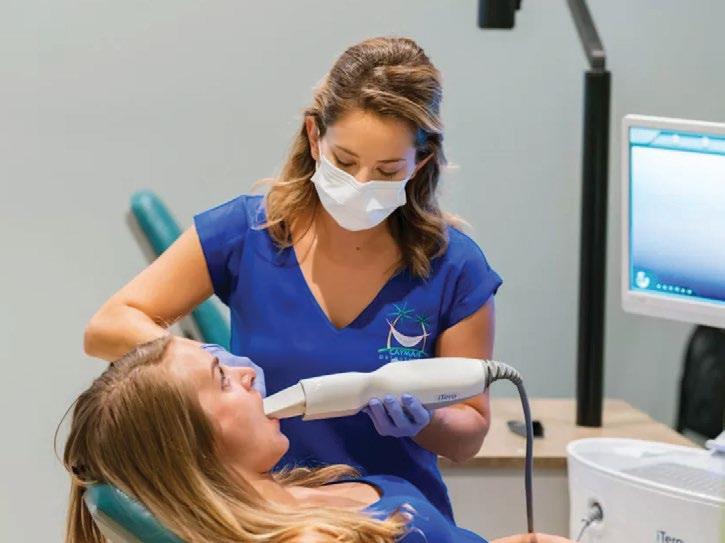



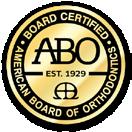
When it comes to moving the teeth and jaws safely, it usually takes at least a year for early-phase treatment and over a year for full-phase treatment to get the teeth fully corrected, biting correctly, and in harmony with the jaws and lips. The technology and materials orthodontists use, and the time it takes to properly move teeth, make treatment an important investment in longterm dental health.


Growing up is a busy time for small bodies; it can sometimes feel like every week brings a new illness! But do not fear – here you will find clear advice on how to identify and treat some of the most common conditions at home, as well as the red flags that mean it’s time to see your paediatrician.
 Dr Jasmina Marinova, MRCPCH MD, Paediatrician and neonatal expert at Integra Healthcare
Dr Jasmina Marinova, MRCPCH MD, Paediatrician and neonatal expert at Integra Healthcare
Brief Description
Pinworms and threadworms are intestinal parasites that are common in children and they have the tendency to spread very easily. Sometimes you can see the worms in the stool, but not always, so your child may only need treatment based on their symptoms.
Common Symptoms
•Irritability and restlessness
•Abdominal pain
•Itchiness, especially at night
•Disturbed sleep
•Recurrent bladder infections/irritation
How to Treat at Home
•Use over-the-counter medications recommended by a pharmacist
•Treat the whole family and implement strict hygiene measures
•Take an additional dose two weeks later to kill any eggs
See Your Paediatrician If… • Your child is younger than two years old or has recurrent episodes.
Brief Description
Often caused by a viral infection which gets better with supportive treatment. Sometimes caused by bacteria called Group A Streptococcus (Strep Throat), which needs treatment with antibiotics to prevent complications. Strep Throat is unusual in children under two years of age. Children over four years may also present with a rash. In rare cases, sore throat can be a symptom of a more serious illness such as Infectious Mononucleosis.
Common Symptoms
•Painful throat
•Fever
•Bad breath
•Reduced oral intake
•Vomiting
•Swollen neck glands
•Trouble swallowing
•Use over-the-counter pain relief, like paracetamol or ibuprofen
•Make sure your child takes enough fluids
•Offer soft and cold food, like yoghurt or frozen ice lollies
•In older children, try using an oral antiseptic spray or gargle with an antiseptic solution
See Your Paediatrician If… • Their fever does not respond to paracetamol (Tylenol) and ibuprofen (Advil), or lasts more than 48 hours• Child is not taking fluids and is at risk of dehydration
• Child is drooling because they are unable to swallow their saliva • Child is lethargic or irritable • Your child has been in contact with someone who has Strep Throat.
Skin infections can be caused by viruses, bacteria, or fungi. Skin gets infected easily if it is already affected by a different problem such as eczema, insect bites, cuts and scrapes.
If the infection penetrates the deeper layers of the skin, it is called cellulitis, a very serious condition.
The rash depends on what the infection is caused by. The most common rashes are:

•Impetigo, caused by bacteria
- Blisters, crusts or little ulcers anywhere on the body, but mainly around the mouth or hands
•Ringworm, caused by fungi
- Red, itchy, or scaly patches, with defined edges that may resemble a ring, anywhere on the body
•Remember to keep the skin clean and moist
•Try to avoid irritants to the skin such as soap or fragrances
•Try to avoid scratching the skin
• Your child's condition gets worse or becomes cellulitis• If the rash/area is getting bigger or will not stop bleeding
See Your Paediatrician If…
• Please note: all cases of Impetigo or Ringworm must be treated with topical or oral medications.
At Kirk Pharmacy we do more than fill your prescription. Our Pharmacists take the time to explain your prescription to you and provide written information on how to use your medication safely and effectively. We can also review your medication to help ensure they are contributing to your optimal health.

Ĥ Prescription and Non-Prescription Drugs
Ĥ Vitamins and Herbal Supplements
Ĥ Blood Glucose and Blood Pressure Monitors
TELEPHONE : 949–7022 EXT. 164
Ĥ Delivery
Ĥ Available Special Orders
Ĥ Personal Pill Packs
Brief Description
Head injuries often occur from falling from a significant height, like a bed or changing table. This may also happen when the child is running and playing, or is hit by an object (e.g. a ball). Head injuries can be external, to the scalp, or internal, involving the skull, with bruising/bleeding to the brain. Fortunately, most childhood falls or blows to the head cause injury to the scalp only.
Common Symptoms
•Visible external injuries
•Headache
•Vomiting
•Lethargy
•Irritability
How to Treat at Home
•Remain calm yourself to avoid distressing the child
•Comfort your child
•Look for external injuries
•Apply ice if appropriate
See Your Paediatrician If…
•Your child has fallen from a significant height
• Loses consciousness, even for a very short time • Is irritable or will not stop crying • Is lethargic and not interested in distraction
•Is unable to wake up • Vomits • Is unsteady on their feet
•Your child is less than two years old.
NOTE: If you are at all concerned that your child may have a minor or severe head injury, see or call your paediatrician immediately, or go straight to the Emergency Room at the George Town Hospital.
Hand, Foot & Mouth
Brief Description
This is a mild, contagious viral infection common in younger children, resulting in sores and a rash on the hands and feet.
Hand, Foot & Mouth can spread through person-toperson contact and bodily fluids, but with proper hygiene, the risk of spread can be reduced significantly.
Common Symptoms
•Fever
•Sore throat
•Blister-like lesions on tongue and mouth
•Red rash, sometimes with blistering, on palms, soles of feet and/or buttocks
•Lack of appetite/not wanting to eat
•Irritability (particularly for infants and toddlers)
How to Treat at Home
Family Medicine
Dr. Sook Yin, MBE Cert. Hon. MB ChB BAO
Dr. Sarah Cuff, MRCGP MB ChB DFSRH
Dr. Beatriz Esteban, MD
Dr. Thomas Quin, MRCGP MB ChB DFSRH
Vascular Medicine
Dr. Nyali E. Taylor, MD MPH RPVI
Registered Dietician & Diabetes Educator
Kristen Lomas, RD CCDE
Professional - Personalised - Compassionate - Holistic Home Visits Lab Services Walk-ins Welcome Insurance Accepted Notary Public Services
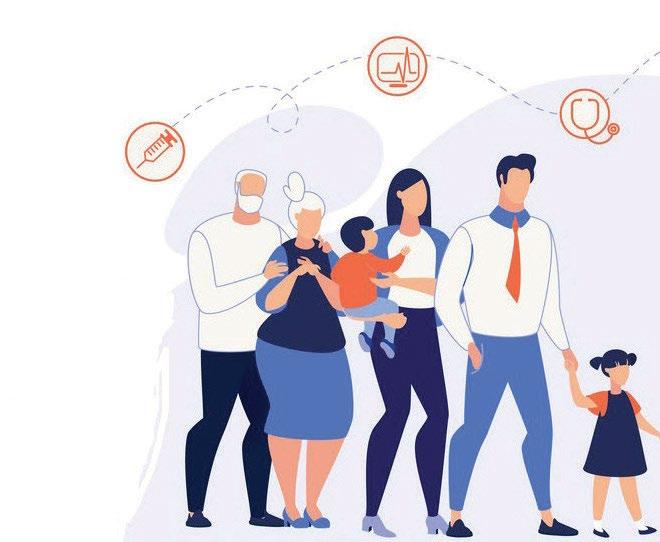
Queen’s Court, 175 West Bay Road, Seven Mile Beach
345-949-5600 admin@sevenmileclinic.ky www.sevenmileclinic.ky

Mon – Fri 8:30am – 5:30pm | Sat 9am – 12:30pm
•Buy over-the-counter pain relief, such as paracetamol or ibuprofen
•Offer cool drinks and soft food
•Offer a cool/cold bath
•Keep your child hydrated
•Avoid contact with other children
See Your Paediatrician If… • Fever reaches 38.5°C (101.3°F) • You feel that symptomatic relief is needed.
NOTE: As a parent, it is important that you know how to resuscitate your child in the case of any medical emergency. The Cayman Islands Red Cross offers CPR certification courses for infants, children, and adults. Call (345) 925 0715 or visit www.redcross.org.ky for more information. Also, see page 142 in the Education chapter for a full list of First Aid, CPR and Water Rescue course providers.
Brief Description
Usually caused by a stomach bug, although it can be caused by food poisoning. In rare cases, it can be a symptom of a different illness, such as a urinary tract infection.
Common Symptoms
•Loose and frequent stools
•Mucus and/or blood in the stool
•Vomiting food and fluids
•Loss of appetite
•Abdominal pain
•Fever
•Keep infants hydrated by frequent nursing, and older children by offering them fluids in small amounts but often (like Pedialyte, water or diluted apple juice)
•Avoid solids until vomiting settles
See Your Paediatrician If… • Your child is not keeping any fluids down and thus at risk of dehydration • Their vomit contains blood or bile • There is reduced urine output • Your child becomes lethargic or restless.
Brief Description
Ear infections are caused by fluid behind the ear drum (middle ear infection) or an infection of the ear canal (swimmer’s ear). Under 5s are at higher risk of ear infection, especially after or along with upper respiratory tract infection. Occasionally, earache may be due to tooth pain radiating to the ear.
Common Symptoms
•Ear pain
•Pulling or rubbing the ears
•Fussiness and irritability
•Fever
•Reduced oral intake
•Leakage from ear
•Redness around or behind ear
•Reduced hearing
How to Treat at Home
•Administer over-the-counter pain relief, like paracetamol or ibuprofen
•Press a warm cloth to the ear
•Nurse or feed infants frequently (sucking helps reduce pressure in tube between nose and ear)
•Try to keep the ear dry
See Your Paediatrician If… •There is no improvement with paracetamol or ibuprofen within 48 hours • The earache is also associated with fever • There is ear pain in both ears• There is leakage from ear • There is redness and swelling around and behind ear • Your child appears unwell and lethargic • Your child is off-balance.
NOTE: Avoid other childhood illnesses and diseases by staying on top of Cayman’s vaccination schedule. Vaccines can be provided for free by the Public Health Department. Please turn to page 166 to find out more.
TOP TIPS: With such an abundance of water-based activities to enjoy in the Cayman Islands, it is very likely your child will get an ear infection at some point in their lives. According to the CDC though, there are things you can do to mitigate the risk of it happening often:

•Use a bathing cap, ear plugs or custom-fitted swim moulds
•Dry ears thoroughly after swimming or showering
•Don't put objects in the ear canal (incl. cotton-tip swabs)
•Don't remove ear wax. It protects the ear from infection.
• Full paediatric care from 0-18 years
• Developmental follow up
• Well child checks & school medicals
• Complex paediatric care & referrals
• Lumps, bumps, rashes, fevers & bashes
• Full dermatology care incl. eczema & allergies
For many parents, the idea that your child may be developmentally delayed can be particularly unsettling. You may notice that your child is not meeting milestones as quickly as other children, or that they engage in unusual behaviour beyond the anticipated childhood 'growing pains'. But what should you do next?
When your instinct tells you that things are not going the way they should, be guided by it. While a million questions may run through your mind, following these steps should result in a smoother journey through the assessment and/or diagnosis process:

1. Talk to anyone who helps you care for your child: A teacher, nanny, carer or grandparent. Check whether they have any concerns about your child’s development.
2. Document your concerns: Make a list of specific observations that you believe are a cause for concern. It will be easier for you to discuss these concerns once they are written down, and you won’t have to worry about forgetting any key areas you want to discuss with your paediatrician.
3. See your child’s paediatrician: Paediatricians are not only there for when your child is feeling sick. Healthcare providers are also there to assist you with tracking your child’s development. Discuss your concerns with them so that an action plan can be developed. These are individuals
who see children on a daily basis and are familiar with what the range of typical development looks like. Allow them to assist you in this process with securing the appropriate referrals and to ease any concerns you may have.
4. Follow through with referrals: Your paediatrician may recommend that your child see one or more service providers on-Island. Please do not wait! Proceed with making the necessary appointments for your child based on your paediatrician’s recommendations. Keep in mind that for some services, there may be a short waiting period between when the appointment is made and when your child is seen.
5. Report back to your paediatrician: After following through with your child’s referrals, forward any results to your child’s paediatrician. Not only will they be able to decipher technical aspects of the report, but they can also make subsequent referrals for any therapy that is required. Many insurance companies will not cover services without a physician’s referral, so your paediatrician is an integral part of your team.
If your child is under the age of five, consider enrolling them in the Cayman Islands Early Intervention Programme (EIP). This programme involves a group of early childhood teachers and therapists who specialise in assessing your child’s overall development and providing additional support and services if your child demonstrates a need for them. Their goal is to prepare your child for school. Call (345) 926 1413 or email: eip@cayman.edu.ky for more information. Additionally, parents may seek support through the Health Services Authority (HSA) or through one of the privately owned medical service providers on-Island. For a full list of providers, see page 173.
If your child is over the age of five or enrolled in school, seek school-based guidance. For children already enrolled in primary or secondary school, the process for getting help varies based on the school. Most public and private schools have a Special Educational Needs Coordinator (SENCo), or an equivalent position. Discuss your concerns regarding your child with their classroom teacher and the SENCo for your child’s school. The SENCo will coordinate a meeting with all of the parties so that they can discuss all concerns and assist you with getting the necessary referrals.
such as Speech and Language Therapy, Occupational Therapy, Music Therapy and Educational Psychology are offered within the school system. For children who attend private schools, parents may need to seek support through the HSA or through one of the privately owned medical service providers on-Island.

This is a plan that outlines in writing what services will be provided to your child and what accommodations can be offered to them in an academic setting. It also includes shortterm and long-term goals that your child’s therapy team and teachers will focus on. Establishing an Individualised Education Plan (IEP) will assist your child’s therapy team with planning and implementing goals that will enhance your child’s academic success. IEPs are often written by a school’s SENCo (or equivalent) in consultation with all stakeholders included. As a result, it encourages an open dialogue between you, your child’s teacher and your child’s service providers. IEPs are updated annually, however, these can be updated more or less frequently, depending on your child’s unique academic needs.
If your child has been diagnosed with a delay or disorder, it can be overwhelming. As a parent, it is very natural for you to go through periods of grief, denial, sadness, anger or anxiety as you try to wrap your head around their diagnosis and navigate the way forward. Seeking support from other parents who have gone through similar experiences can help you come to
CHATTERBOX have a vibrant, multidisciplinary team with a clear aim to provide therapy and education services for children and adults in a fun and safe environment.

Highlights:
Assessment, diagnosis and therapy
• Training workshops for parents and professionals
• Home and school visits
• Early Years Programmes (2-5 years)
• Autism support and diagnosis
Programmes:
Speech and language therapy
• Occupational therapy
• Handwriting support
• Social skills and friendship groups

• Tummy
• Early Years Programmes (2-5 years)
Time!
• Massage therapy
• Women's cancer rehabilitation
• Telepractice also available
• All of our therapists work with both children and adults
Details:
Hours: Monday-Friday 8.30am-5.30pm.
Pricing: Pricing varies by programme and is available upon request.
(345) 949 7065 | chatterbox@candw.ky | www.chatterboxcayman.com
terms with your child’s diagnosis. Additionally, there are nonprofit agencies on-Island, such as Inclusion Cayman, that are available as a resource to families to provide access to training, guidance and general support as you and your family go through this difficult period. Remember that any diagnosis does not and should not change who your child is to you. As you go through the therapy process, take time to appreciate the small gains your child will make. The small changes eventually add up to greater transformations over time – and these are worthy of celebration – no matter how small!
Autism Spectrum Disorder

Autism Spectrum Disorder (ASD) is a multifaceted neurological disorder that affects communication, cognition and social
skills. It is usually noticeable prior to three years of age. It is an umbrella term that is used to describe a wide range of behaviours and abilities, hence the reason it is referred to as a 'spectrum' disorder. There are several 'red flag' characteristics across three domains that provide strong indicators that ASD may be present.
Communication:
•Does not respond to his or her name
•Seems to hear sometimes, but not other times
•Used to say a few words or babble, but now does not
•May engage in 'echolalia' or repetition of words or phrases heard in conversation or from other sources (toys/television etc.) but no functional communication is initiated.
Social Interaction:
•Displays poor eye contact
•Lack of warm, joyful expressions
•Seem to be in their 'own world'
•Is not interested in interacting with other children or people
•Does not like to play social interaction games like 'peek-aboo'.
Behaviour:
•Repetitive movements with objects or repetitive verbalisations
•Odd movements or posturing of body, arms, hands or fingers (such as hand flapping, rocking etc.)
•Plays with toys unusually (i.e. only playing with a small part of the toy, like the wheel of a car, or lining toys up instead of playing with them)
A diagnosis of autism is usually made by a developmental paediatrician or a clinical psychologist. Obtaining a diagnosis should involve a multidisciplinary team of therapists, such as Speech-Language Pathologists and Occupational Therapists who evaluate and treat children with ASD.

Attention Deficit Hyperactive Disorder
Psyc
Attention Deficit Hyperactive Disorder (ADHD) is a common childhood disorder of the brain that affects a person's ability to pay attention and concentrate on tasks. This neurological disorder is characterised by delayed frontal lobe development, which impacts a child's ability to attend to tasks, stay organised, manage impulsive behaviours and follow through with instructions. According to the CDC, ADHD is three times more likely to occur in boys than girls. There are three types of ADHD – Inattentive, Hyperactive-Impulsive and Combined. Here are the red flags:
Inattentive:
•Easily distracted by noises and activities around them, i.e. looking around frequently and sporadically
•Often found to be 'daydreaming'
•Difficulties with staying focused on one task or activity
•Difficulties with remembering instructions
•Difficulties paying attention to detail
•Difficulties with organising belongings and tasks.
Hyperactive-Impulsivity:
•Always engaging in movement
•Fidgeting when asked to sit still
•Difficulties with remaining seated
•Often stands instead of sitting at a table
•Often touching objects
•Excessive talking, often during inappropriate times
•Difficulties with taking turns
•Difficulties with standing in line
•Impulsive behaviour or decisions.
Combined:
•Characteristics from both the Inattentive type and HyperactiveImpulsivity type are observed.
ADHD is usually diagnosed by a psychologist, but treatment of the disorder may include the guidance and care of a psychiatrist. Diet, environmental changes, therapy and medication are all methods used to treat ADHD. Families usually work closely with their child’s paediatrician to monitor a child’s response to treatment methods.


acquisition)
•Language-Based Learning Disabilities (these typically involve learning disabilities that affect a child’s ability to develop reading, writing and spelling skills)
•Selective Mutism
•Cognitive Deficits (where cognitive challenges affect language acquisition and development)
•Executive Functioning Deficits (where metalinguistic skills such as organisation, attention and self-regulation are delayed).
Many parents are cautious and scared about having their child ‘labelled’ or classified as having a delay or disorder. The fear that a child with different learning needs will be ostracised by their school, educators, peers and by society, in general, is a very real one that many parents struggle with on a daily basis. However, in most cases, having a diagnosis is beneficial to the child and entitles them to a myriad of services, classroom support and educational accommodations which, ultimately, will help them succeed.
Inclusion Cayman is a non-profit organisation supporting individuals with disabilities in their vision of accessing inclusive lives. They work with families, schools, employers, recreation/leisure providers and others to ensure all community members can meaningfully access, participate and belong in the Cayman Islands. Visit www. inclusioncayman.ky.

Learning disabilities are neurologically-based processing difficulties which interfere with the development of executive functioning skills and impact the ability to learn basic skills such as reading, maths and writing. Children with a learning disability typically have difficulties with learning new tasks, remembering and recalling key pieces of information, answering questions appropriately, telling time, and often mixing up the order of information (e.g. mixing up letters during spelling or mixing up a story's plot). These disorders can include: auditory processing disorders, dyspraxia, dyslexia, dysgraphia, dyscalculia, nonverbal learning disorders and visual motor/visual processing disorders.
The American Speech Hearing Association describes a language disorder as when a person has difficulties understanding others (i.e. receptive language) or sharing thoughts, ideas and feelings completely (i.e. expressive language) or a combination of the two. Typically, children with language disorders have difficulty expressing themselves clearly and fluently.


Many types of communication disorders fall under the diagnosis of a 'Language Disorder' including:
•Preschool Language Deficits (typically this is seen as a language delay, which is the result of atypical language
Why did you choose your field of speciality?
Orthopaedics is such a rewarding field because patients are so grateful. It's so diverse! You need to get creative and think outside the box. No two cases are ever the same.
Who inspired you to become a doctor?
Dr Nabil Khan, who is not only my colleague but also my husband. He is determined, motivated and always eager to help and teach. Professor Anthony Robertson, Head of Paediatric Orthopaedic Surgery, University of Witwatersrand, Johannesburg, South Africa is a wonderful person and mentor. He has a passion for teaching, compassion towards each and every patient regardless of their background, and has an excellent bedside manner. My sister, Dr Sylvia Antos, is one of the kindest doctors I know. She goes above and beyond for every single patient that crosses her path. She motivates me to be a better doctor.
If you had to write a biography, who would it be dedicated to?
My grandparents. They believed in me, my abilities and my dreams. I wish they could see what I have achieved and had the chance to meet my three beautiful children.
What excites you about medicine in general?
The way it is progressing, the new technology available to us, and that we are constantly learning.
How do you handle a patient/relative challenging your professional opinion with the information they found online?
I feel it's their own prerogative, especially if they are grown up and can make informed decisions. I would still give my opinion and explain which option is better, but ultimately the decision is theirs (so long as it doesn't involve minors or cause harm to another individual).
Who inspired you to become a doctor?
As a student I worked part-time at a local medical clinic back in India. I was around 16 years old working with the First Aid Team and I met patients for first aid and triage. Watching doctors and other paramedics managing patients and seeing how they interacted with the patients made me really think about medicine as a profession.
Would you like your own children to work in the same field as you?
Yes, I would love for my children to become doctors. This field has given me everything, but truly I will support my children’s passion or interest in any career they decide to pursue.
Which medical professional on-island would you recommend for a ‘Golden Stethoscope Award’ and why?
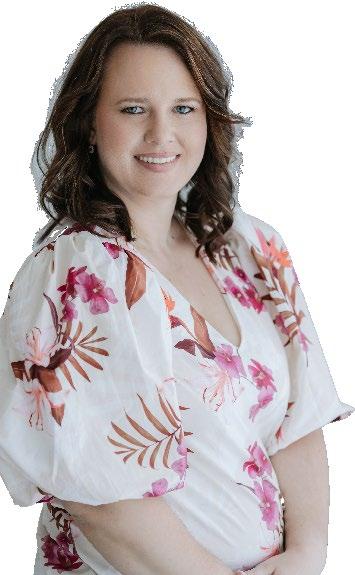
Dr Gyanendra Jha, ENT Surgeon at Total Health. He is a very gentle and knowledgeable person and has guided me and other staff at Total Health both professionally and personally.
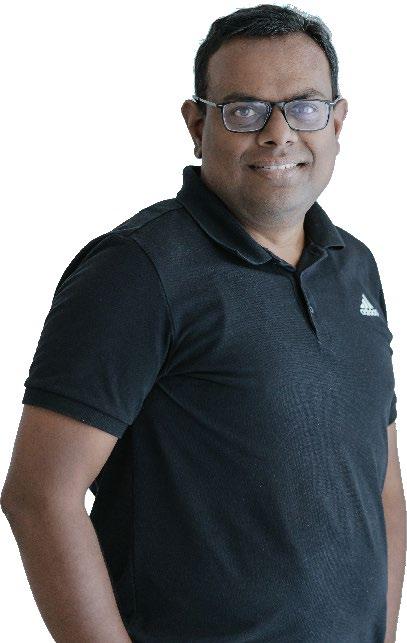
If you had to write a biography who would it be dedicated to?
To my patients, who have been my best tutors over so many years.
What qualities do you think are most important in a good doctor?
I think a good doctor should be a calm listener, a prompt responder, hardworking, personally disciplined and be in good health.
How do you handle a patient/relative challenging your professional opinion with the information they found online? This is tough because educating someone who has no knowledge is much easier than educating somebody who has the wrong information. I would let the patient explain whatever they know about the subject, and then I would give them the correct, evidence-based information.

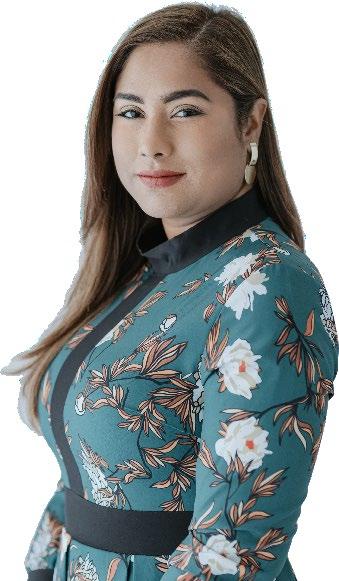
Why did you choose your field of speciality?
Family Medicine is such an important specialty. It plays a significant role in providing continuous care of a person and their family. I love seeing such a wide variety of medical conditions on a daily basis. One minute you are seeing a child with a common cold, the next an elderly patient with a life-threatening condition. It definitely keeps me on my toes!
I am always learning and growing in this field of medicine.
What is your greatest achievement to date?
I would say it’s undoubtedly being a mother of two active boys and working full time as a physician. Hats off to ALL mothers out there. You are doing a fantastic job raising our little ones in this world.
Which medical professional on-island would you recommend for a ‘Golden Stethoscope Award’ and why?
Of course, it would be Dr Virginia Hobday. Her compassion and resilience amazes me. She is the absolute matriarch. Apart from being a highly-qualified family physician, she has also contributed so much to the Cayman community through her work in hospice care at Jasmine and at the Breast Cancer Foundation. Her work has positively impacted thousands of families in the Cayman Islands.
How do you handle a patient/relative challenging your professional opinion with the information they found online?
I actually welcome it! I love when my patients research and educate themselves. It allows them to become more involved in the decision-making process of their healthcare. However, the internet is so vast, with a plethora of data, so I would guide their research and advise them on credible sources from which they can gather information. It is always best to have a consultation with your doctor so they can address any concerns you may have.
Why did you choose your field of speciality?
My interest in working with people initiated my studies in the field of teaching. During this time I narrowed down my interest in teaching to working with children with specific learning, behavioural and emotional problems. I worked as part of a team at an institute and school for mentally handicapped and abused children. This sparked my interest in the field of psychology and once I started studying psychology, I knew I had found my passion. My special interests are trauma, neuropsychology, psychological assessment and forensic work.
Who inspired you to become a doctor?
It was Professor Gertie Pretorius from South Africa, who I was fortunate to meet early in my twenties. She is my ‘professional mother’, a role model and continuous support system. She was also the supervisor of my Doctoral research.
What is your greatest achievement to date?
On a personal level, my marriage to my maths wizard professor, who somehow understands me and raising my boy and girl twins, who are now adults. Professionally, my book, “Working With Adult Survivors of Childhood Sexual Abuse”, published by Routledge. The book is intended be used by professionals working in the field as a therapeutic framework, but is also used by survivors as a personal selfhelp guide.
What are the most common issues you see in your clinic?
Trauma, depression and anxiety in children. Also adults and children with learning disorders.
What qualities do you think are most important in a good doctor?
Human compassion and a scientific mind.
Practitioner/ Family Physician at Cayman Clinic.Developing proper oral hygiene habits early in childhood is crucial for ensuring continued practise into adulthood. This means starting very early, even before your baby’s teeth have emerged.
It is important to be aware that primary tooth enamel is much thinner and less resistant to decay than that in adult teeth. The key to successful teeth brushing for young children is ensuring that they are accustomed to the experience of having their teeth and gums touched and cleaned as early on as possible.
At birth, start by cleaning your child’s gums with a soft cloth and water. This early oral stimulation may help prevent fungal infections, such as oral thrush, and also makes acceptance of the toothbrush less of a challenge once the teeth start to erupt.
The American Academy of Paediatrics (AAP), the American Dental Association (ADA) and the American Academy of Paediatric Dentistry (AAPD) recommend establishing a 'Dental Home' for your child by one year of age, with follow-up visits every six months. Although the first visit will not likely be much more than a quick examination, it will assist your child in becoming familiar with the process of having their teeth examined and will also allow the dentist to provide some helpful suggestions regarding oral healthcare.

“Allowing children to get used to the sights and sounds of a dental office from a young age helps to create comfort and trust in their office,” explains Dr Sean Childers, Paediatric Dental Specialist at 7Dental “Initial appointments also allow me to assess risk factors, enable early detection and most importantly, educate the parents on what must or must not be done, in order to prevent Early Childhood Caries (tooth decay) and establish prevention as our key goal.”
Fostering an early independence in oral hygiene is important for your child’s development and allowing them to brush their own teeth is crucial. However, until a child is around eight years old, they often will not comprehend that their teeth are three-dimensional objects (although they should still be brushing before this age). They may not understand that in order to properly clean a tooth, it must be brushed not only on the top side (chewing surface) but also the cheek side, tongue side, and in some cases, the back side. “Brushing your child's teeth twice a day is crucial to their oral health,” Dr Childers advises. “Once your child is old enough, they can begin brushing on their own, but should still be assisted and monitored to ensure plaque is being removed from all surfaces.”
Prevention is key; the AAPD recommends using fluoridated toothpaste (ADA-approved) as soon as the first teeth erupt. At the first glimpse of primary teeth, switch to a soft-bristled, ageappropriate toothbrush.
For two to three year olds, only use a smear of fluoridated toothpaste at first. Gradually, as more baby teeth appear, you can increase the amount of toothpaste until you get to a ‘pea-sized’ drop once all 20 primary teeth are present. Early childhood tooth decay can start suddenly and spread very quickly; dentist visits every six months are therefore essential.
TOP TIP: Beverages marketed as kids 'sports drinks' often contain excessive amounts of sugar. Water is the best form of hydration and is the best option for healthy teeth!
Brush your child’s teeth gently but thoroughly, twice a day. The last brush of the day should be after your child’s last food or drink (other than water) and right before they are put to bed. This will ensure you significantly decrease or eliminate any food particles that cavitycausing bacteria feed on. These bacteria are especially active at night when a child is sleeping and their saliva production is minimal.
Once your child starts to grow new teeth, their teeth should be flossed at least once a day, preferably before bed. Thoroughly floss the teeth at any point where the teeth are touching each other — the toothbrush cannot adequately clean these areas, which leaves them particularly susceptible to decay. Devices such as ‘floss wands’ for kids make this task more of a fun activity. “Floss wands are easier for both the parent and the child to use”, says Dr Childers, “look for floss wands that have fluoride built into them for added cavity protection.”
The most common and serious cause of Early Childhood Caries (ECC) is frequent and long exposure of an infant’s teeth to liquids that contain sugars, both natural and artificial. Among these liquids are milk (including breast milk), formula, fruit juice and sweetened drinks. Putting a baby to bed for a nap or at night with a bottle other than water can cause serious and rapid tooth decay. These liquids pool around the teeth, which feed the bacteria in the mouth and, in turn, produce acids that attack tooth enamel. This type of tooth decay is known as Nursing Bottle Caries or Baby Bottle Tooth Decay.
Here are a few tips to get your toddler to brush their teeth:
1. Add a fun song to it! Make up your own teeth-brushing song, or have your kids listen to a ‘Brush Your Teeth’ song! YouTube has great options: one of the best is Sesame Street’s ‘Brushy Brush’ song.
2. Model the behaviour you want to see. Lead by example and let your toddlers see you brushing your teeth. More than likely, your child will want to imitate their parents’ behaviour.

3. Give praise for teeth brushing. Create your own reward chart and add a star, tally or sticker every time your child brushes their teeth on schedule. Let them work towards a goal, e.g. one whole week of brushing morning and night gives your child more time to play outside on the weekend.
TOP TIP: Not all toothpastes in Cayman contain fluoride, so this is something you should check either yourself or with your dentist. Toothpastes containing 1,000 or 1,500ppm of fluoride are most effective for children over three years old. Children under three should brush twice daily with a smear of toothpaste containing at least 1,000ppm fluoride.
7 Dental Group - formerly known as Seven Mile Beach Dental - is proud to introduce our new Pediatric Dental Clinic. It’s where sharks, slides, games and the imagination meet dentistry! Our fun, expert team includes the only Board-Certified Pediatric Dentist in Cayman, ready to provide your children with top-quality care. Our talented Orthodontic team, including our Board-Certified Orthodontist, is excited to provide everything from braces and retainers, to Invisalign and appliances. Be sure to visit for a fun, deep sea adventure in dentistry your kids will never forget.



(345) 943 7400 l Marquee Place, Seven Mile Beach
Opening times: Monday - Friday 8am - 6pm l www.7dental.ky

Vaccines are an integral part of any child's routine health care. As Cayman's population hails from all over the world, besides following the Cayman Islands Immunisation schedule, schedules from other home countries are also adhered to and followed.
The Cayman Islands has one of the lowest incidences of vaccine-preventable diseases in the world, and diseases such as polio have been fully eradicated.
While immunisations are not mandated by law in the Cayman Islands, they are highly recommended by the Public Health Department, who has oversight for monitoring and administering immunisations in the country. According to UNICEF, vaccine-preventable diseases are one of the major causes of illness and long-term disabilities among children in both industrialised and developing countries. The prevention of paralytic polio in hundreds of thousands of children worldwide since the beginning of the Global Polio Eradication Initiative is just one example of the effectiveness of vaccines.
Immunisations are one of the most effective ways of protecting your child's health from the very beginning of their life. Protecting your baby from over 16 serious diseases with the help of vaccines is a powerful defence that is tested, safe and effective. Presently children ages five and up can also receive the Pfizer-BioNTech vaccine for protection from COVID-19, when supplies are available.
There are cases when Public Health officials have recommended deferring a vaccination due to medical reasons or if a child is experiencing ill health. You may contact the Public Health Department (Tel: (345) 244 2648), which provides routine vaccinations to children free of charge, or speak to a paediatrician if you have any questions about vaccinating your children — prices often vary between clinics for the same immunisation. See page 173 for a list of paediatricians.
Pneumococcal Conjugat e Vaccine
In fl uenza - Yearly (2 doses for some) 6 months & older
Measles, Mumps & Rubella ( MMR) a MMR 18mths. MMR
Varicella b (Chickenpox) Varicella Varicella (4yrs)
Human Papillomavirus c ( H P V4)
• Rot avirus Vaccine i s g ve n o r a l y ( by m o u t h) A l ot h e r v ac c in e s a re g ve n by inje c t i o n
• DTaP , IPV a n d HIB Vaccines a re gi ve n n o n e inje c t i o n Bo os t e r 2 min mum ag e 4 yea r s
• a - MMR Vaccine - M n mum ag e fo r 1s t d o s e: 12 m o n t h s t h e 2n d d o s e m ay b e adm n i s t e re d b efo re ag e 2 p rov i d e d a t e a s t 4 w e e k s h ave el a p se d s n c e t h e fi r s t d o s e.
• b - Varicella Vaccine - M in mum ag e fo r 1s t d o s e: 12 m o n t h s, t h e 2n d d o s e m ay b e adm n s t e re d b efo re ag e 3 p rov d e d a t l e a s t 3 m o n t h s h ave el a p se d s n c e t h e fi r s t d o s e.
• c - HPV Vaccine - F e m a l e s u nd e r 15 yea r s: 2 d o s e s c h e d ul e w i t h 6 m o n t h s in t e r v a b et w e e n d o s e s F e m a e s 15 yea r s a n d o l d e r: 3 d o s e S c h e d ul e: 0; 2 m o n t h s a n d 6 m o n t h s a f t e r fi r s t d o s e.
For more information, please call (345) 244-2648
Vaccine
Hepatitis B (HEP B):
Hep B is an infectious disease spread by exposure to infectious blood or body fluids. It affects the liver and can cause acute and chronic infections. Many people have no symptoms at first, but later symptoms include vomiting, yellowish skin, tiredness, dark urine and abdominal pain.
Tuberculosis (BCG):
Tuberculosis is a bacterial infection which generally affects the lungs. It is contagious and spreads from one person to another through the air. Symptoms include chronic cough, difficulty breathing, fever and weight loss, amongst others.
Diphtheria (DTaP):
Diphtheria is a bacterial disease that spreads easily and occurs very quickly. It mainly affects the upper respiratory system, including the nose and throat. Symptoms include sore throat, fever, swollen lymph nodes and general weakness.
Tetanus (DTaP):
Often called Lockjaw, Tetanus is a bacterial infection that causes painful muscle spasms and can lead to death. Symptoms include painful muscle contractions, difficulty in breathing and intermittent muscle spasms.
Pertussis (Whooping Cough) (DTAP):
Whooping cough is a highly contagious bacterial infection of the lungs and airways which can cause severe breathing problems and even death in small children.

Polio (IPV):
Polio is a highly contagious disease caused by a virus that attacks the nervous system. Symptoms may range from nonparalytic fever and throat infection to limb deformity and complete paralysis.
Haemophilus Influenzae Type B (HiB):
HiB is a bacteria responsible for causing severe infections like meningitis, pneumonia and epiglottitis — a life-threatening problem which causes swelling in the throat. Depending on the type of infection, symptoms may include headache, stiff neck, cough, breathing problems, fever and muscle pain.
Rotavirus (RV):
Rotavirus is a very contagious disease that most commonly affects infants, young children and those who work or live with children. Symptoms include severe diarrhoea, vomiting, fever and abdominal pain.
Human Papilloma-Virus (HPV):
HPV is the most common sexually transmitted infection. Highrisk strains can lead to cervical cancer and mouth and throat cancers. A symptom of HPV is genital warts; however, most people with HPV don’t show signs of infection.
•The Cayman Islands follows immunisation standards set by the World Health Organisation (WHO).
•The last case of Polio in Cayman was in 1957. The last case in the Caribbean was recorded in 1982. The last case of Measles in Cayman was in 1990. The last case of Rubella was in 1996.
•DTaP and HPV vaccines are often administered to children by school nurses at schools in Cayman, but only when written consent from a parent has been received. The Cayman Islands Public Health Department administers immunisations for free (or a parent may take their child to a private physician).
•If a parent chooses not to immunise their child, they must sign a legal document accepting full responsibility if their child contracts a vaccinepreventable disease. Schools in Cayman will request to see your child's immunisation record and a health screening report prior to enrolment.
80% of what we perceive from our surroundings comes from our sense of sight. With proper preventative care, parents can help their children preserve their sight for years to come and experience the world around them to the fullest!
Some of the more common eye problems that present in children include:
1) Amblyopia: Also known as ‘lazy eye’, this is a vision disorder that can be caused by poor alignment of the eyes. Over time, the brain fails to process inputs from the affected
eye, favouring the other. If left untreated, images from the affected eye will be blocked out permanently. Regular eye checks can catch amblyopia at an early stage.
2) Conjunctivitis: More commonly referred to as ‘pink eye’, conjunctivitis is a highly contagious (although rarely serious) inflammation of the thin clear tissue that lies over the white part of the eye. This inflammation causes a redness, or ‘pinkness’ of the white of the eye and is usually accompanied by a thick, yellow discharge, indicating an infection. Visit your GP if you suspect your child has pink eye.
3) Styes: Styes occur when an oil gland on the edge of the eyelid becomes blocked. While generally treatable with over-the-counter methods, styes can become very painful and swollen. Visit your GP if your child’s stye is not responding to treatment.
4) Blocked Tear Duct: Most common in children under the age of one, a blocked tear duct occurs when the membrane inside the lower end of the duct is slow to open. Usually, a blocked tear duct will eventually correct itself, however, your child’s doctor will be able to suggest treatment in the meantime, including gently massaging the inner corner of the eye.

Here are some proactive ways parents can help maintain their child’s eye health:
1) Regular Eye Examinations: Think of eye examinations as ‘preventative maintenance’ and the first line of defence for good eye health. Your child will have an eye exam as part of their paediatric check at birth, six weeks old, three years old, six years old, and then every two years after that. Their eye health and development will be tested each

time and their doctor will be able to flag any potential issues.
2) Balanced Diet: A healthy diet lays the foundations for good eye health. Zinc, lutein, omega-3 fatty acids and vitamins A, C and E can help prevent infections, reduce any future risk of eye diseases, and even fight night blindness. Include lots of fruits, leafy greens and good fats in your child’s diet.
3) Protect Eyes from the Sun: This is particularly important in Cayman’s sunny climate! Excessive UV exposure has been linked to cataracts, retinal damage and even eye cancer. Children are more at risk of vision damage as their eyes are still developing. Always ensure that your child is wearing sunglasses that block 99%-100% of UV light to ensure maximum protection.

4) Limit Screen Time: As children spend increasing amounts of time online, protecting young eyes from overexertion has never been more important. Implement the 20-20-20 rule: every 20 minutes children should look away from the screen at something 20 feet away for at least 20 seconds – this will help with eyestrain.
Keep an eye out for the following symptoms, which could suggest your child is struggling with a vision problem. As always, if you suspect there is an issue, speak to your child’s GP.
- Rubbing their eyes frequently
- Squinting when reading or focusing on something
- Light sensitivity
- Poor hand-eye coordination
- Excessive tiredness.
For a list of eye specialists in Cayman, see page 182.
Family History: As with any physical trait, eye health (and eye weaknesses!) can be passed down from parents to children. If you and your partner are near-sighted, farsighted or have an astigmatism, there’s a chance your child will present with the same eye issues too. Speak to your GP about any specific concerns you have about your family history with eye health.

According to the American Academy of Ophthalmology, as an infant grows, their visual acuity is constantly improving. The ability to focus, perceive depth, track moving objects and convergence (both eyes focusing at the same time on an object,) are strengthening each day. As your child develops, watch for these eyesight milestones:
4- 6 Years Old
•Immediate letter and object recognition.
•Reading skills. Improved convergence, helping a child to follow the words across a page.
•Eyes working together well, so depth perception is excellent.
•Can easily judge spatial distances between objects and themselves.
•Comfortable playing basic sports and traversing confidently.y
3-4 Years Old
•Enhanced hand to eye coordination, evidenced by better puzzle solving and toy building.
•Visual memory improvements. Can draw shapes from memory.
•Can read most lines of an eye chart.
Tropical Optical has been proudly of fering qualit y eye care services to the Cayman Islands communit y since 1975 We provide comprehensive and professional eye exams for all ages. Full dispensary with an extensive selection of modern and st ylish frames and sunglasses including designer and independent brands to suit all budgets. We also stock a large inventory of contact lenses. Fully equipped on-site lab that can provide same day services on most single vision lenses.
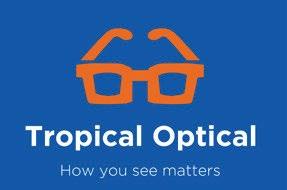
With life in, on and around the water being such an integral part of daily life in the Cayman Islands, Thrivefit's Danielle Henry shares her top tips for keeping children safe around water, including the common signs of drowning and where to find the best swim schools.



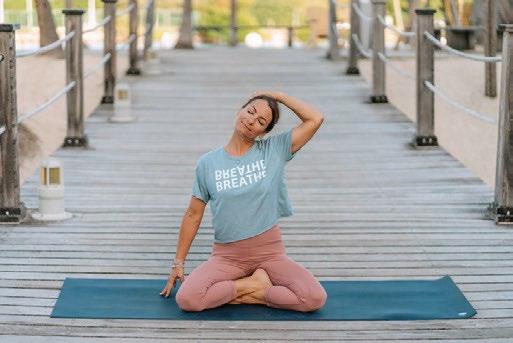

According to the Centers for Disease Control and Prevention (CDC), drowning is the leading cause of unintentional death in children under age five in the US. Every year in the US, nearly 900 children aged 0 to19 die from unintentional drowning (www. childrenssafetynetwork.org). Thankfully, in Cayman, water-related deaths among children are relatively low. However, with so many of them participating in water-related activities, it is important to be prepared in order to stay safe in the Islands' waters.
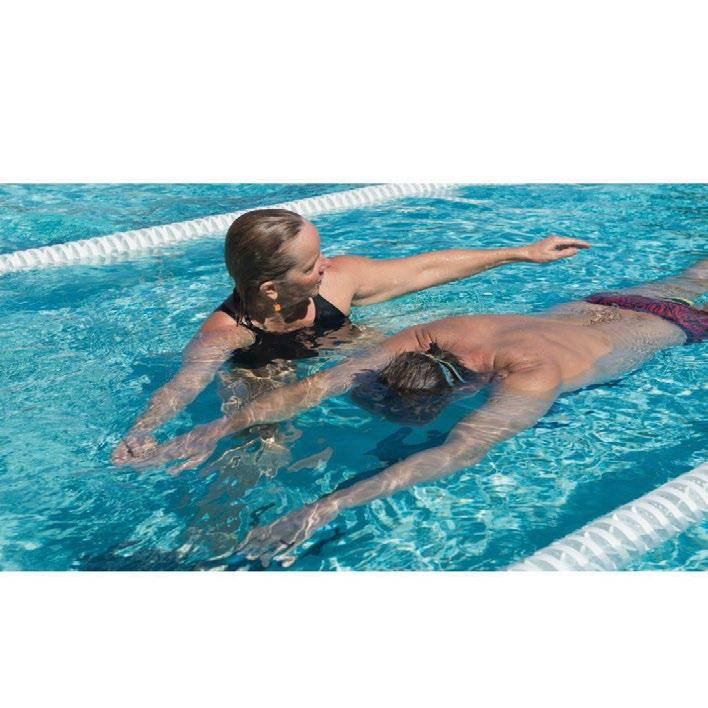


Teach children that they are not allowed to enter a pool or the sea without an adult’s permission. Always review the area's ‘Pool Rules’ with your child beforehand. For older children, state exactly how deep they are allowed into the sea. It is recommended that children use flotation devices in the ocean, as even strong swimmers can get into trouble.
Children should always be supervised when in or near the water. Adults supervising children should remain alert and vigilant. Whenever toddlers are in or around water, an adult should be within arm’s reach. Remember that small children can drown in as little as one inch of water.
It's important to be aware of what drowning looks like as it is not the violent, splashing call for help that you might expect. When someone is struggling to breathe, speech and screaming become secondary. The natural reaction is to extend arms laterally and press down on the water’s surface, as opposed to waving.
It’s important for parents to learn first aid, CPR and basic water rescue so that they can act in an emergency. Private and group courses are offered by both Thrive Fit (Tel: (345) 938 1113 or Email: info@thrivefitcayman.com) and Fitness Connection (Tel: (345) 949 8485 or Email: fitness@fitness.ky). Both companies offer Nanny Water Safety Courses and swimming lessons to teach nannies about pool safety in and around the water. Sky Blue Aquatics offers subsidised swimming lessons to nannies and caregivers. Tel: (345) 916 0054. Email: info@skyblueaquatics.com. The Red Cross also offers CPR/First Aid courses.

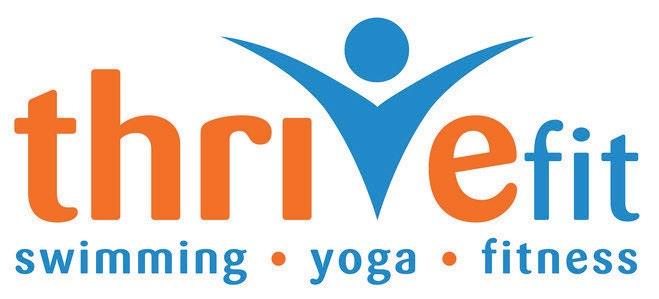

Enrol kids in swimming lessons early to ensure that they are equipped with the skills to swim safely. Babies can start lessons as young as six weeks old with a paediatrician's approval. While infants cannot swim on their own as they have not yet developed the strength and motor skills needed, starting little ones with swimming tuition at a young age will get them comfortable with structured lessons, their teacher and most importantly, the water.
•Head low in the water with mouth at water level.
•Head tilted back with mouth open.
•Eyes glossy or entirely closed.
•Hair flopped over forehead or eyes.
•Not using legs, but vertical in the water.
•Hyperventilating or gasping.
•Trying to roll over onto back without success.
•Appearing to be climbing an invisible ladder.
Relevant for our time, PlantBased, Meat-Based and Between by Gennady Ermak PhD, is a deep dive into dietary practices that can lead to a healthy body and mind, whilst adhering to humane eating habits that consider animal welfare and protect the environment.

A roadmap for longevity, within the pages of Outlive by Peter Attia MD, is a discussion on extending your lifespan by improving physical and emotional health year on year, in tune with the ageing process. This well-crafted read is not simply a guide to a longer life, but also a more fulfilling one.

Upgrade your health and lose weight by practising successful eating habits of the food you like, rather than health foods. No counting calories, no stressing macros. By Adam Bornstein with a foreward by Arnold Schwarzenegger, it’s a fitnessdiet approach, just not with the typical fitness foods.

Headspace. This popular app teaches you meditation techniques, helping to remove stress whilst promoting renewed focus and decision-making. Initially free, then offers inapp purchases. Android and iOS.

Mr Bear takes his readers on a very exciting, sweet to spicy food journey. This book will expand young children’s vocabulary, introduce them to new foods and encourage them to experiment with their appetites. With a baguette book mark, this one is a must for early readers!

(3+ yrs)
Bella Butterfly has trouble sleeping. Her thoughts are racing with the day’s events. Help is at hand from her mother in this relaxing bedtime story. Follow along with the many therapeutic yoga poses Bella uses to calm her mind and body to achieve a restful and peaceful night’s sleep. (6+ yrs)

Health columnist Jennifer Grant has penned a glorious ode to nature and the qualities it possesses to ease stress and nurture happiness and wellbeing for mindful children. The language and illustrations invite the reader to go out and discover the tranquil wonder that waits just outside their front door. (9+ yrs)

Monster Heart Medic. Diagnose a friendly monster and guide him on his path to a healthier life. Through fun animations and games, learn about cardiovascular health and how to keep you and your monster healthy. (All ages.) Free on Android and iOS.

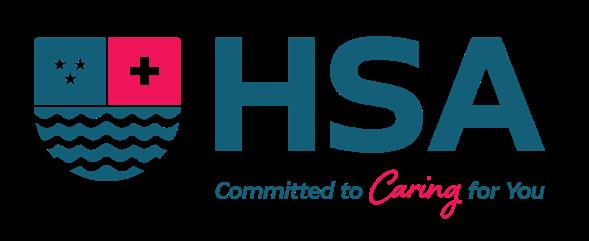
People in the Cayman Islands can receive world-class healthcare services right here at home with the Cayman Islands Health Services Authority (HSA). The country’s premier healthcare provider offers the most comprehensive range of inpatient, outpatient and public health services at nine locations on all three islands, including the 127-bed hospital in Grand Cayman and 18-bed hospital in Cayman Brac. It is also fully accredited by the Joint Commission International for world-class quality patient care and safety.
The HSA provides patients the highest quality of care with services including pre-natal care, paediatrics, maternity, women’s health, physiotherapy, family medicine, dental, online pharmacy refills and much more.

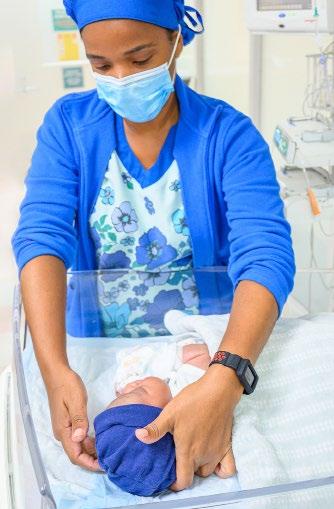


Whether you need a routine wellness check by one of the general practitioners or Family Medicine doctors, or need further testing such as radiology imaging, laboratory services, surgery or emergency services, the HSA offers the highest degree of care, comfort and safety, delivered by a highly-skilled, knowledgeable and professional team of physicians, nurses and support staff.
• 24hr Accident & Emergency
• Maternity & NICU
• Online Pharmacy Refills
• Immunisations
• Alex's Place (Adolescent Mental Health Hub)
Services Include:
• Paediatrics
• Obstetrics/Gynecology
• Women’s Health
• General Practice & Urgent Care
• Public Health
• Anesthesiology & Pain Management
• Cardiology
• Chiropractic
• Complimentary & Alternative Medicine (CAM)
• Dentistry
• Dermatology
• Dietary & Nutrition Services
• Emergency Medical Services
• ENT & Oral Surgery
• General Surgery & Internal Medicine
• Interventional Radiology
• Laboratory Services & Blood Bank
• Mental Health & Psychology
• Nephrology, Dialysis & Urology
• Neurology & Neurosurgery
• Oncology & Hematology
• Ophthalmology
• Orthopedics & Sports Medicine
• Pharmacy
• Physiotherapy
• Primary & Critical Health Care
• Radiology
• Respiratory Therapy
• Rheumatology
• Speech & Occupational Therapy
"Our mission is to provide the highest quality healthcare and improve the well-being of people in the Cayman Islands through accessible, sustainable patientfocused services by highly-skilled, empowered and caring staff in collaboration with our partners."

Dr Cecily Abraham MBBS DCH DM
Unit 7, Alexander Place, Dorcy Drive, George Town. Tel: (345) 945 7050.
Dr Shyla Chacko Jehangir MBBS DCH MRCPCH MSc Allergy
Unit 7, Alexander Place, Dorcy Drive, George Town. Tel: (345) 945 7050.
Dr Zanele Balang, Consultant Paediatrician, MBBS, DM Paediatrics
OceanMed, Bayshore Mall, Level 2, South Church Street, George Town. Tel: (345) 946 2326 Email: info@oceanmed.ky Web: www.oceanmed.ky.
Dr Binoy Chattuparambil, Chief Cardiac Surgeon, Chief Cardiac Doctor/Senior
Cardiothoracic & Vascular Surgeon
Health City Cayman Islands, 1283 Sea View Road, East End. Tel: (345) 640 4040 Emergencies: (345) 526 2108 Email: info@healthcitycaymanislands. com Web: www.healthcitycaymanislands.com.
Dr Ulrich Ecke MD ENT
ENT in Cayman, Units 4 and 5, Pasadora Place, Smith Road, George Town. Tel: (345) 745 3253 Email: info@entincayman. com Web: www.entincayman.com.
Dr Fionnuala Keane MBChB DCH DRCOG PGDipENT
ENT in Cayman, Units 4 and 5, Pasadora Place, Smith Road, George Town. Tel: (345) 745 3253 Email: info@entincayman.com Web: www. entincayman.com.

Conveniently located along Seven Mile Beach, The Strand Medical Centre has been serving the Cayman community for over 25 years. The Clinic, headed by Dr Louis A. Cona MD, is experienced in caring for all family members. The staff's professionalism and caring nature creates a welcoming environment for every child and parent. The doctors are known for their holistic approach to medicine while simultaneously delivering premium care every day. The Centre also has a network of specialists.
Highlights:
Niamh Kilcoyne Audiologist MSc
Hearing & Balance Disorders Centre, ENT in Cayman, Unit 37 Pasadora Place, Smith Road, George Town. Tel: (345) 745 3253 Email: info@ entincayman.com Web: www.entincayman.com.
Dr Ramon Lacanilao MD FAAP
Doctors Hospital, 19 Middle Road, George Town. Tel: (345) 949 6066 ext. 6504 Email: ramon. lacanilao@doctorshospitalcayman.com.
Dr Jasmina Marinova MRCPCH MD

Dr Sarah Newton MBChB, FRACP (paeds) DCH
Dr Sara Watkin MBChB MRCP (paeds)FRCPCH MD
Dr Siobhan Jaques MBBS BSc DRCOG FRCPCH
Dr Rob Bomont MBChB BSc Med Sci MRCPCH
General and family practice
• Women’s, men’s and children’s health
• Allergy testing and asthma treatment
• Medically supervised weight reduction programme
• Cayman school and US University physicals
• Urgent care
• Sportsrelated injuries
• Musculo-skeletal injuries
• Diving-related injuries
• Minor surgery
Details:
Open: Monday-Friday 8.30am-5pm, Saturday 8.30am-11.30am
Languages: Italiano, Français, Deutsch and Español
Most local insurance policies accepted
(345) 945 7077 | thestrandmedicalcentre@candw.ky | www.caymandoctor.ky | The Strand Shopping Centre

Doctors Express is healthcare for the whole family. They are an urgent care facility, which is a new concept for Cayman. An urgent care facility functions just like a walk-in GP clinic, except Doctors Express has upgraded equipment, like in-house X-rays and labs that most GPs don’t provide.


No Appointments Necessary: Just walk in and get the care you need. Doctors Express cares for your whole family’s healthcare needs. Everything from minor ailments like cough, colds, fever and flu all the way up to very severe illnesses and injuries like bad burns, fractures and cuts that need stitches. With in-house X-ray and lab, Doctors Express can care for these urgent issues that might otherwise send you to the emergency room.
Hours of Operation: Open 7 days a week from 9am-9pm, including most public holidays. So, if you don’t have a GP on-Island or if you can’t get in to see your usual GP, they have you covered.

Other Services: A one-stop-shop for work permit medicals. You can go to Doctors Express and have your X-ray, bloodwork and medical exam done under one roof – usually in less than 45 minutes! Your time is just as valuable as your doctors’, so their goal is to get you in and out in under an hour.
Highlights:
• Open 7 days a week, 9am-9pm (including most public holidays)
• On-site lab
• On-site X-ray & pharmacy
• GP and ER consultant physicians
Services Include:
• Walk-in (no appointments needed)
• Urgent care
• GP services
• Prescription refills
• Allergies
• Cold/flu/fever symptoms
• Urinary tract infections
• Fractures & sprains
• Lacerations
• Burns
• Back pain
• Women’s health
• School physicals
• Work permit & immigration medicals
• Wellness exams
• Pre-employment physicals
• Drug testing
• Imaging & radiology
• Laboratory services
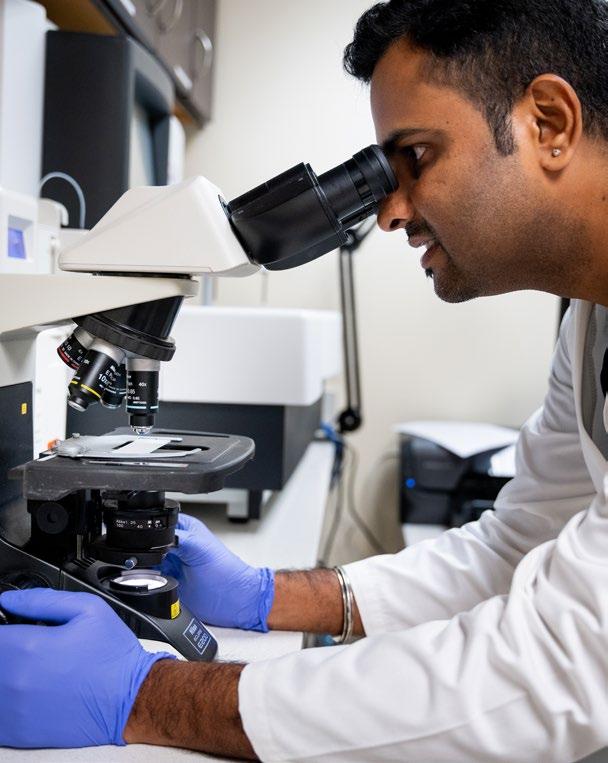
• Pharmacy
• Medical cannabis consultations
Samantha Sparg BSc. Paediatric Physiotherapist
Integra Healthcare Ltd, Grand Pavilion, SMB. Tel: (345) 745 7450 Email: jasmina.marinova@integra.ky; sarah.newton@integra.ky; sara.watkin@ integra.ky; siobhan.jaques@integra.ky; rob.bomont@integra.ky; samantha.sparg@integra.ky Web: www.integra.ky.
Dr Nadine Yammine, MD, MSc, FRCSC
Integra Healthcare, The Strand, Canal Point Drive, Unit 17. Tel: (345) 745 7450 Web: www.integra.ky Email: ENT@integra.ky. Range of Paediatric ENT services offered, including treatment for acute and chronic ear infections, sinusitis, Tongue Tie, Otoplasty, Paediatric Voice and Airway and more.
Dr Sara Watkin MBChB, MRCP (paeds), FRCPCH, MD Concierge Consultant Paediatrician. Integra Concierge, Grand Pavilion
Commercial Centre. Tel: (345) 745 7490 (clinic) or (345) 323 0229 (mobile)
Email: sara.watkin@integra.ky Web: www.integraconcierge.ky.
Dr Chela Lamsee-Ebanks MBBS DM
Dr Marilyn McIntyre MBChB DRCOG FRCM
Dr Earl Robinson MD FAAP
Dr Linden Swan MBBS DM
George Town Hospital, 95 Hospital Road, George Town. Tel: (345) 949 8600 Email: chela.ebanks@hsa.ky; marilyn.mcintrye@hsa.ky; earl. robinson@hsa.ky; linden.swan@hsa.ky Web: www.hsa.ky.
Dr Aritra Mukherji MD FNB Consultant Paediatric Cardiologist
Health City Cayman Islands, 1283 Sea View Road, East End. Tel: (345) 640 4040 Emergencies: (345) 526 2108 Email: info@healthcity.ky Web: www. healthcitycaymanislands.com.
Dr Gordon Smith MB ChB MRCP (UK) MRCGP DRCOG
The Children’s Clinic & Family Practice, Windward Centre, 93 Smith Road, GT. Tel: (345) 949 2970 Email: drgoffice@candw.ky Web: www. thechildrensclinic.ky. Attended to over 4000 newborn babies in Cayman since 1992.
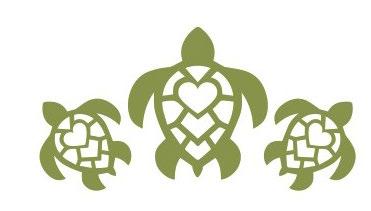
Dr Alvaro Armiñán MD
Celimar Central Clinic, Unit 11, The Strand Shopping Centre, West Bay Road. Tel: (345) 745 1300 Fax: (345) 945 1300.
Dr Dirk Belfonte MBBS MRCP (UK) DCH MBA
43 Walkers Rd, George Town. Tel: (345) 326 5741 Fax: (345) 946 2624.
Dr Philip Buys MB BCh M Prax Med BSc (Hons) (Aerospace Med) DOH Doctors Hospital, 16 Middle Road, George Town. Tel: (345) 325 9000 Email: philip.buys@doctorshospitalcayman.com or philip.w.buys@gmail.com Web: www.doctorshospitalcayman.com.
Dr Virginia Hobday MBE MBBS MRCGP MPHIL
Dr Denise Osterloh MB ChB
Dr Fiona Robertson MBBS DRCOG MRCGP
Dr Melissa Mascaro MD CAQSM
Dr Heidi Fahy MBBS DRCOG MRCGP
Dr Nadia Balleram BMSc MBBS PGDipFM
Dr Adam Steed, MD, CCFP
Nina Baxa RDMS
Cayman Clinic, 439 Crewe Road, GT. Tel: (345) 949 7400 Email: info@ caymanclinic.ky Web: www.caymanclinic.ky. Other languages: French, Farsi, Tagalog and Afrikaans. Ultrasound, Sports Medicine, Dermatology, Lab Services and Ideal Protein Weight Loss.
Dr Glaister Bell MBBS DM Fam Med.
Dr Dominic Caudeiron MBBS
Dr Gerard Christian MBBS
Dr Ricardo Clarke MD
Dr Obinna Eleweanya MD, ACC
Dr Moses Gallow MBBS
Dr Lorna Jackson DM Fam Med.
Dr Anna Matthews BSc MBBS, MPH
Dr Courtney Maylor MD ACC
Dr Ngozi (Grace) Onah-Ezema MD MPH
Dr Fiona Robertson MBBS MRCGP
Dr Karlo Sedano-Barredo MRCGP
Dr Imilla Sedano-Barredo MRCGP
Dr Wilmoth Shillingford MBBS MRC ACC
Dr Eryka Simmons BSc Med Sc MBBS MSc CD
Dr Orrett Thane MBBS
Dr Joy Wallace-Grant MBBS
Dr Paul Williams MD DM Fam Med. ACC
Dr Adiaris Williams-Rodriguez MBBS
Dr Chris Wedderburn
Dr Joanna Kregiel, (Cardiologist)
Dr Maeve Ulett-Ivey (Cardiologist)
Dr Brian Noronha (Cardiologist)
Smith Road Medical Centre, 150 Smith Road, George Town. Tel: (345) 244 7520/7683 Web: www.hsa.ky.
Dr Else Christoffersen MB BCh LRCP & SI MSc Dermatology
Cayman Doctors, West Shore Center, 508 West Bay Road. Tel: (345) 943 6363.
Dr Rebecca Deasey MBChB MRCGP
Dr Francisco Martinez
Dr Andrew Robinson BMedSci MBBS
Dr Tanushree Bhakta-Perry MBChB MRCGP
Integra Healthcare, Grand Pavilion, SMB. Tel: (345) 745 7450 Email: francisco. martinez@integra.ky; bec.deasey@integra.ky; andrewrobinson@integra.ky; tanushree.bhakta-perry@integra.ky Web: www.integra.ky.
Dr Alex ww BSc MBBS MRCGP MA Dip Lifestyle Medicine
Integra Concierge, Concierge Health & Wellbeing GP, Grand Pavilion
Commercial Centre. Tel: (345) 745 7490 (clinic) or (345) 323 0214 (mobile)
Email: alex.vass@integra.ky Web: www.integraconcierge.ky.
Dr Samantha Digby BMBS DCH DRCOG MRCGP
The Family Practice, Smith Road Plaza, 60 Smith Road, GT. Tel: (345) 945 6077 Fax: (345) 949 0531.
Dr Samantha Digby, BMBS DCH DRCOG MRCGP
Conveniently located in Smith Road Plaza, just a five minute walk from the Cayman Islands Hospital, Dr Samantha Digby is a Britishtrained General Practitioner with over 20 years experience. She practises Primary Care with a whole-body approach to wellness for all ages.
Highlights:
• Women's health including pap smears and breast examinations
General practice • Family medicine
• Health screenings
• Wellness checks
• Insurance physicals
• Work permit physicals
• Chronic disease management
• Coordination of specialist care
• Blood draws
Details:
Open: Monday-Friday 8.30am-4.30pm
Appointments encouraged
Most local health insurance policies accepted
(345) 945 6077 | Smith Road Plaza, 60 Smith Road, GT samdigby@familypractice.ky | www.familypractice.ky
Dr Louis A. Cona MD
The Strand Medical Centre, The Strand Shopping Centre, West Bay Road. Tel: (345) 945 7077 Email: thestrandmedicalcentre@candw. ky Web: www.caymandoctor.ky.
Doctors Express
81 Godfrey Nixon Way, George Town. Tel: (345) 745 6000 Email: info@doctorsexpress.ky Web: www.doctorsexpress.ky.
Dr Sandeep Mahendra
Internal Medicine Specialist
Dr Tarun Sheshagir
Internal Medicine Specialist
Dr Sunku H Guptha FRCP(UK) Consultant Physician in General (internal) Medicine & Geriatric Medicine
Health City Cayman Islands, 1283 Sea View Road, East End. Tel: (345) 640 4040 Emergencies: (345) 526 2108 Email: info@healthcity.ky Web: www.healthcitycaymanislands.com.
Dr Hortense Smith Faith Hospital, 215 Dennis Foster Road, Cayman Brac. Tel: (345) 948 2243 Web: www.hsa.ky.
Global Medical Center & Laboratory
Unit D3, Countryside Shopping Village, 33 Hirst Road, Savannah. Tel : (345) 943 4500.
Dr John Addleson MB ChB Dip Mid COG International Medical Group, Unit 30, Pasadora Place, Smith Road. Tel: (345) 945 2881 Email: draddleson@intmedicalgroup.com.
Dr Victor Look Loy MBBS Island Medical Center, Unit 4, 2nd Floor, Windward Centre, 93 Smith Road, George Town. Tel: (345) 949 7535.
Dr Joseph Marzouca BSc MBBS Marzouca Medical Clinic, Suite 29, Pasadora Place, Smith Road. Tel: (345) 949 6631.
Dr Michelle Mon Désir BSc MBBS
Oasis Medical Group, 101 Centennial Towers, West Bay. Tel: (345) 943 6066 Email: info@ omgcayman.com Web: omgcayman.com.
Dr Ruthlyn Pomares MBBS
Premier Medical Care, Unit 14A, Rankin’s Plaza, 21 Eclipse Drive. Tel: (345) 945 2273.
Dr Charles H. Reid MA (Oxford) BM BCh
The Brac Clinic, Tibbetts Square, West End, CB. Tel: (345) 948 1777 Email: clinic@bracmed.com.
Savannah Medical Clinic
Countryside Shopping Village, Savannah. Tel: (345) 749 6066.
Dr Beatriz Esteban Benavides MD
Dr Sook Lee Yin MB ChB BAO
Dr Sarah Cuff, MB ChB MRCGP DFSRH
Dr Thomas Quin, MB ChB DFSRH MRCGP Seven Mile Medical Clinic , Queens Court, West Bay Road. Tel: (345) 949 5600 Email: admin@ sevenmileclinic.ky.
Dr Gordon Smith MB ChB MRCP (UK) MRCGP
DRCOG
The Children’s Clinic & Family Practice, 93 Smith Road, GT. Tel: (345) 949 2970 Web: www. thechildrensclinic.ky.
Dr Kenia Warden MD
Dr K Warden Medical Clinic, Suite 27, Pasadora Place, Smith Road. Tel: (345) 945 9260.
Urgent Care
Total Health
The Grand Pavilion, 802 West Bay Road, SMB. Tel: (345) 333 2222 Pharmacy: (345) 333 4444 Email: appointments@totalhealth.ky Web: www.totalhealth.ky. If you need medical attention, Urgent Care by Total Health will attend to you right away. Walk-ins accepted. Monday-Saturday 8am-8pm.
Dr Kurdell Espinosa-Campbell BSc (Hons), MBBS, DM (Emergency Medicine)
Dr Sidney Ebanks MB, BS (UWI)
Dr Rina Bernard MD (English & Spanish)
Dr Winston Isles BSc (Hons), MBBS, MSc
Dr Grant Rogers MBChB DOH MDC/PL/ MED/563
Dr Philip Buys MBBCh MPraxMed BSc (Hons) (Aerospace Med), DOH Doctors Hospital: Urgent Care, 16 Middle Road, off Walkers Road, GT. Tel: (345) 325 9000 Email : dhcarecentre@doctorshospitalcayman.com Web: www.doctorshospitalcayman.com.
George Town Hospital (HSA)
95 Hospital Road, George Town. Tel: (345) 949 8600 Fax: (345) 949 2998 Email: info@hsa.ky Web: www.hsa.ky. The Cayman Islands Health Services Authority (HSA) is a Joint Commission International (JCI) accredited organisation and the premier healthcare provider in the Cayman Islands. The George Town Hospital location is a 127-bed facility and offers 24-hour accident and emergency services, ambulance services, an urgent care clinic, a paediatric clinic and ward, a women’s health clinic, full maternity services and NICU, radiology, behavioural health services, including Alex’s Place (an Adolescent Mental Health Hub), a full-service pharmacy, laboratory services, including a forensic unit, and a number of diagnostic and specialist services.
Doctors Hospital
16 Middle Road, off Walkers Road, GT. Tel: (345) 325 9000 Web: www.doctorshospitalcayman. com. Doctors Hospital offers exceptional private healthcare with state-of-the-art medical, surgical and diagnostic services to Cayman residents and visitors seeking international-standard healthcare in the heart of George Town. Inpatient and outpatient services include urgent care, rheumatology, orthopaedics and traumatology, interventional radiology, cardiology, neurology, oncology, diagnostic imaging and more.
Faith Hospital, Cayman Brac
215 Dennis Foster Road, Cayman Brac. Tel: (345) 948 2243 Fax: (345) 948 2460 Email: info@hsa.ky Web: www.hsa.ky. The Cayman Islands Health Services Authority (HSA) is a Joint Commission International (JCI) Accredited organisation and the premier healthcare provider in the Cayman Islands. The Faith Hospital location in Cayman Brac is an 18-bed community hospital serving the residents of the Sister Islands with primary, secondary and emergency care. Faith Hospital offers 24-hour accident and emergency services, ambulance services, women’s health services,
paediatric and maternity services, a fullservice pharmacy, behavioural health services, a laboratory and physiotherapy. Physicians from the George Town Hospital visit regularly to deliver additional diagnostic and specialist services.
Health City Cayman Islands
1283 Sea View Road, East End, 9 Forum Lane, Camana Bay. Tel: (345) 640 4040 Email: info@healthcity.ky Web: www. healthcitycaymanislands.com. Health City Cayman Islands provides affordable, compassionate medical services to children in its state-of-the-art medical facility accredited by Joint Commission International (JCI) and its satellite Health City at Camana Bay clinic. Health City offers the highest calibre of care with a team of internationally-trained physicians and surgeons. Medical specialities include adult and paediatric cardiology, electrophysiology, neurology, paediatric endocrinology, imaging and radiology, rehabilitation, nutrition counselling and more. An internationally -accredited centre, they attract patients from the Cayman Islands and beyond.
George Town Hospital 95 Hospital Road, George Town. Simone Sheehan RD, Tel: (345) 244 2655 Email: simone.sheehan@ hsa.ky Tamara Riley, Tel: (345) 244 2663 Email: tamara.riley@hsa.ky.
Chad Collins RD
Jessica Watterworth RD (Paediatrics Specialty) Cayman Nutrition, 227 Smith Rd, George Town. Tel: (345) 525 2019 or (345) 547 1528 Web: www.caymannutrition.com.
Kristen Lomas RD MBA Seven Mile Medical Clinic, Queens Court Plaza, West Bay Road. Tel: (345) 949 5600 Email: admin@sevenmileclinic.ky Web: www. sevenmileclinic.ky.
Taryn Stein RD OceanMed, Bayshore Mall, Level 2, South Church Street, George Town. Tel: (345) 946 2326 Email: info@oceanmed.ky. Taryn Stein is a trained dietitian and wellness coach, specialising in perimenopause and menopause nutrition management.
Brandi Propas MHSC RD CCDE Doctors Hospital, 16 Middle Road off Walkers Road, GT. Tel: (345) 325 9000 Web: www. doctorshospitalcayman.com.
Dr Rajnish Kumar, MD PG Cert. Diabetology PGD Anaesthesiology MBBS
Total Health, The Grand Pavilion, 802 West Bay Road, SMB. Tel: (345) 333 2222 Email: appointments@totalhealth.ky Web: www. totalhealth.ky. Weight Loss Programme: Dr Kumar is a Physician specialising in diabetes and critical care. He has created a successful weight loss programme to empower individuals to take control of their own health by providing tools and knowledge to encourage better lifestyle choices.
Dr Sharon Chambers MBBS (U.W.I.), MD (Res) MRCP (UK) CCT (Rheumatology) Consultant Rheumatologist Doctors Hospital, 16 Middle Road, off
Dr Boban Kostich, DDS MFGDPRCS (UK)
Dr Al M Latif, BDS (Lond) MSc Con Dent (Lond)
Dr Niels Altmayer, Dr Med Dent (DE)
Dr Geoffrey Newton, BSc DDs MSc Orthodontics
Dr Pourang Rahimi, DDS MSD FRCDc Orthodontics
Smile Dental Clinic is dedicated to providing Cayman's community with professional and personal dental and orthodontic care. They offer a wide range of treatment options and strive to provide a setting where all patients are treated with dignity, respect and appreciation.
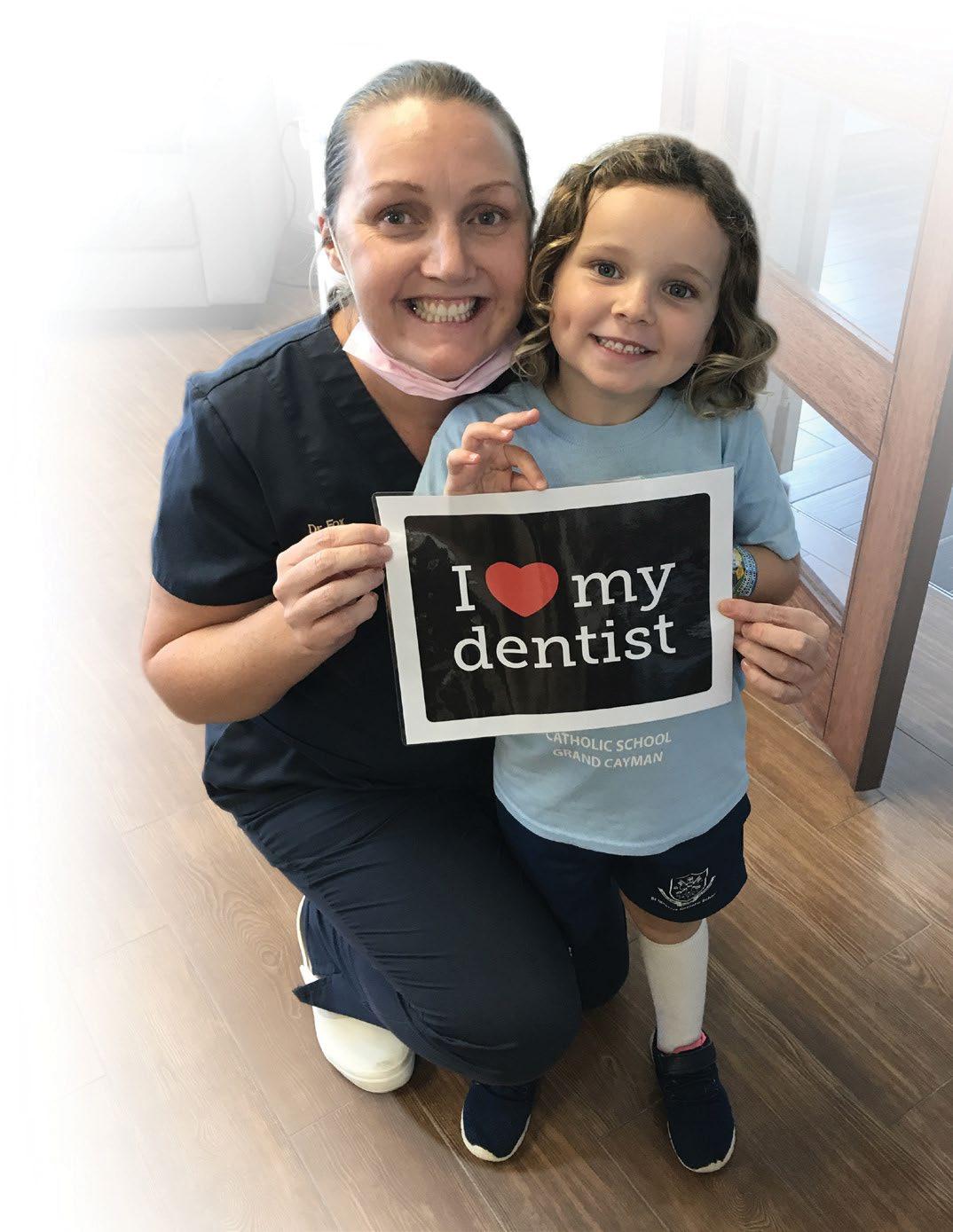
Highlights:
xxx
Highlights:
Dental care for adults and children

• Periodontal surgery
• Orthodontics
• Oral surgery & implants
• Tooth colour restorations & sealants
dentistry & tooth whitening

• Crowns, bridges & veneers
• Cosmetic
• Hygiene services
•
Details:
Dentures • Root canal treatments • Digital X-rays • Damon braces
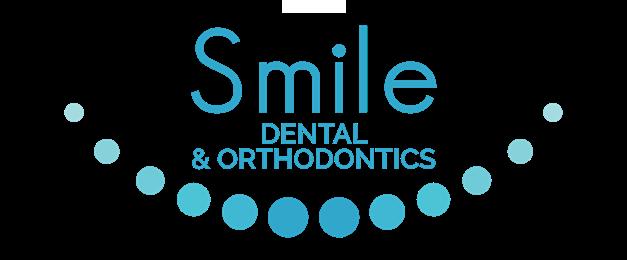
• Clear retainers • Lingual wires
xxx
Details:
• Removable & fixed appliances
• Invisalign
Office hours: Monday 8.30am-5.30pm, Tuesday/Wednesday 9.30am-6.30pm, Thursday/ Friday 7.30am-4.30pm, Saturday 8.30am-3.30pm. Orthodontics Department closed Fridays and Saturdays. After hours emergency care and walk-ins welcome.
phone number | email@email.com | website | address, unit
(345) 949 7303 | info@smiledentalclinic.ky | Units 10-12, Alexander Place, Dorcy Drive, George Town www.smiledentalclinic.ky
Dr Keelin Fox Dr Jennifer Mountjoy Dr Jane GosneyThe Dental Centre is dedicated to providing state of the art dental treatment utilising the very latest techniques They provide a dental service for all the family, from routine six monthly checkups and cleaning to the most advanced surgical and restorative dental procedures.
Services:
Examination/Cleanings
White Fillings/Bridges/Veneers/Root Canal/Extractions
Dental Implants/Orthodontics/Fixed Braces/Invisalign
Teeth Whitening
Composite Bonding
Digital Smile Design Master
Award-Winning Cosmetic Dentist
Anti-Wrinkle Injections/Dermal Fillers
2nd Floor, Fidelity Financial Centre, Seven Mile Beach, Grand Cayman +1 345 943 7000 | thedentalcentre1@gmail.com www thedentalcentrecayman.com

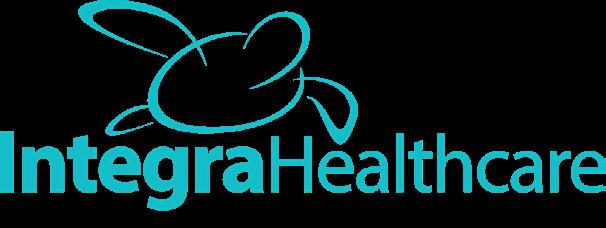
Integra Healthcare is passionate about improving the quality of care available to those residing in Grand Cayman, and combines clinical quality with effective service. Their philosophy is ‘doing good things well’. Integra believes excellence in healthcare shouldn’t ever mean lowering the bar in customer service, and they hope you’ll be as impressed by the quality of service and attention that their support teams give, as you are with the healthcare delivered.

Integra Healthcare’s services include primary care, ENT, paediatrics, aesthetics and cosmetic procedures, specialist dermatology and skin cancer screenings, as well as multidisciplinary obstetrics, midwifery and a tertiary-trained neonatal team with admitting rights to both George Town Hospital and Doctors Hospital. They also have a combined 70 years of consultant-level experience between them and offer a host of vaccinations and screenings, in addition to work permit medicals and school health checks.
Integra Healthcare are open Monday to Friday 8am–5pm and Saturdays 9am–1pm (closed Sundays and public holidays). However, every now and again, circumstances demand more urgent attention. Integra can provide some immediate guidance for urgent care needs and more information can be found at www.integra.ky/out-of-hours.
Highlights:
• Book appointments online, with instant confirmation
• Blood pressure and skin cancer screenings
• Consultant-level, tertiarytrained senior professionals
• Comprehensive set of paediatric care services, with the largest paediatric team on-Island
• Paediatric & Neonatal team with admitting rights to both HSA and Doctors Hospital
Services Include:
• Family Health & Medicine
• Aesthetics & Cosmetic Procedures
• Otolaryngology (ENT)
• Obstetric Services
• High-Risk Obstetrics
• Midwifery Services
• Fertility Services
• Gynaecology Services
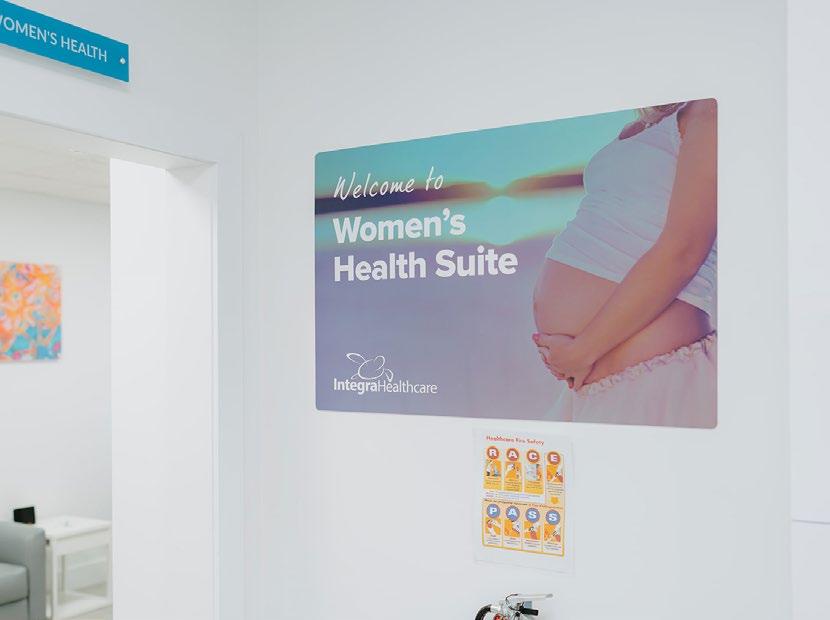

• Newborn & Neonatal Services
• Paediatrics
• Paediatric & Adolescent Gynaecology
• Paediatric Physiotherapy
• Dermatology
• Paediatric & Adolescent
Dermatology
• Vaccination & Screening
- Newborn Hearing Screening
- Skin Cancer Screening
- Flu Vaccination
- Blood Pressure Screening
See Doctors Hospital for an extended list of services offered by their partners in health.


"Integra Healthcare provides a comprehensive range of women’s, children’s, family & specialist medical care, all delivered with excellence, integrity, commitment & passion as standard."


Doctors Hospital (DH) was founded in 2000 as the Chrissy Tomlinson Memorial Hospital with a mission of providing quality, affordable healthcare to the Cayman Islands. In the years since its founding, more and more foreign-owned healthcare facilities have moved to the Cayman Islands, drastically changing the medical landscape. In response to this, a group of local doctors joined together in 2016 to purchase CTMH to ensure it stayed locally owned. They renamed it Doctors Hospital to reflect its employee ownership and quality of care.
Doctors Hospital is open 24 hours a day, 7 days a week, including public holidays, as an Urgent Care facility. DH offers the most advanced, state-of-the-art imaging available in the entire Caribbean, ensuring the most reliable clinical diagnostic, screening capability and comfort for patients. In addition to their in-house lab, pharmacy and access to on-call specialists across the island, Doctors Hospital is a one-stop-shop for your entire family’s healthcare needs.
Over the years, DH has expanded to provide preventative healthcare as well as expert care for ongoing conditions to diverse communities across the Cayman Islands. DH continues to recruit internationally-recognised specialists across disciplines like cardiology, oncology, neurology, orthopaedics, rheumatology, internal medicine, imaging and more.


Also see Integra Healthcare for an extended list of services offered by their partners in health.
Highlights:
• Urgent care doctor on-site 24/7, including holidays
• State-of-the-art MRI & CT, most advanced imaging suite in the Caribbean

• Market-leading surgical services, ranging from minimally invasive to traditional surgeries
Services Include:
• 24/7 Urgent Care
• Cardiology
• COVID-19 Testing
• Diet & Nutrition
• Imaging Services
• Internal Medicine
• Interventional Radiology
• Laboratory Services
• Maternity Services
• Neurology
• Obstetrics & Gynaecology
• Oncology & Haematology
• Orthopaedics & Traumatology
• Pharmacy

• Rheumatology
• Surgical Services
• Wellness
• Women’s & Men’s Health
Mission
promote the health and wellbeing of all we serve through the provision of first-world, international standard healthcare services in collaboration with all physicians and other providers who share the same vision and values."
"To
Walkers Road, GT. Tel: (345) 325 9000 Email: dhcarecentre@doctorshospitalcayman.com
Web: www.doctorshospitalcayman.com.
Dr Keelin Fox BA B.Den.Sc MFDS(RCSI) (MClinDent) Orthodontics and Dentofacial

Orthopaedics
Dr Jennifer Mountjoy BDS NUI MSc Imp Dent.
Dr Jane Gosney BDS MSc
2222 WhatsApp: (345) 936 3222 Email: info@ pfdc.ky Web: www.pasadorafamilydental.ky
Other Languages: English, Spanish, German, French, Greek, Afrikaans and Tagalog.
Dr Howard Ironstone BSc Phm DDS FAGD FICD
Dr Thomas Lerikos BSc DDS
Dr Alexandra Cutus, BSc DDS
Dr Hannah Griffin, BDS, MFDS RCSEd
Dr Charlecia Moore BSc DDS
Dr Juan Lopez DMD DDS
Dr Suki Murbay MSc BDS
Dr Michael Morgan DDS MS
Cayman Dental (General Dentistry & Speciality,)
18 Forum Lane, Camana Bay. Tel: (345) 945 4447 Email: caymandentalservices@gmail.com Web: www.caymandental.com.
Dr Lyle Bridgeman DDS
Dr Andrea Campbell-Maitland DDS AEGD
Dr Naude Dreyer DMD
Dr Megan Griffith
Dr Michael Leon DMD (Cert Endodontics)
Dr Pratish Munasur B.Ch.D - UWC (South Africa)
Dr Lavanya Pernapati BDS AEGD GPR
Dr Shogan Govender
Dr Thammy Powery
Dr George David
Dr Cheri DeVos
Cayman Islands HSA Dental Clinic , George Town Hospital, 95 Hospital Road, George Town.
Tel: (345) 244 2741 or (345) 244 2742
Web: www.hsa.ky.
Dr George David D.M.D Faith Hospital, Cayman Brac. Tel: (345) 948 2243 ext. 2447641.
The Dental Centre , 2nd Floor, Fidelity Financial Centre, West Bay Road. Tel: (345) 943 7000 Email: thedentalcentre1@gmail.com Web: www. thedentalcentrecayman.com. A state-of-theart dental clinic providing everything from routine dental checkups and cleanings to advanced surgical and restorative dental procedures.
Dr Talia Davidson, DDS
Dr Jessica Thomas DDS
Dr Grant Woo DMD
Hygienists: Carrie Rimando RDH, Peeta Sandhu RDH
My Island Dentist, Governors Square, West Bay Road. Tel: (345) 749 9500 Web: www. myislanddentist.com. Now offering Online Booking. A full-service dental clinic providing preventative, restorative and cosmetic dentistry services to families throughout Cayman.

Dr Naude Dreyer DMD
The Merren Dental Clinic, Hospital Road. Tel: (345) 949 2554.
Dr Georgios Batgidis DDS FIADFE (USA) FAAID
Dr Aikaterini Fysikoudi DDS HSPD (HonM)
Dr Kris Togias DMD PC Board Certified Orthodontist (USA)
Dr Mauritz Crouse BChD (WCU)
Dr David Chernin (Tufts USA) DMD MLS FICD
FACD FAAHD
Pasadora Family Dental Centre, 94 Smith Road, Pasadora Place, George Town. Tel: (345) 943
Dr Talia Davidson DDS
Dr Jessica Thomas DDS
Dr Grant Woo DMD
Hygienists: Carrie Rimando RDH, Peeta Sandhu RDH
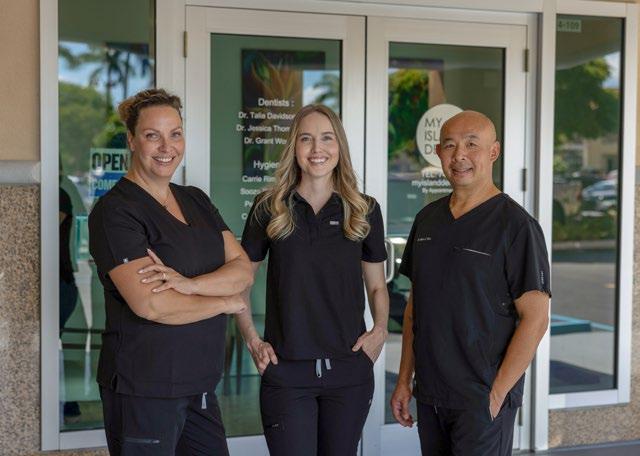
Dr Scott McFarlane & Associates
7 Dental, Marquee Place, West Bay Road. Tel: (345) 943 7400 Email: hello@7dental.ky Web: 7dental. ky IG: @7dental_. Skilled dental professionals providing the highest quality of care. Boasting a well-rounded team of experts covering every aspect of dentistry, including Cosmetic, Paediatric, Periodontics, Facial Aesthetics, Oral Surgery, Orthodontics and Endodontics. Experience a patient-centred approach in a friendly and relaxed atmosphere.
Dr Boban Kostich DDS MFGDPRCS (UK)
Dr Al Latif BDS (Lond) Msc Con Dent (Lond) Dr Niels Altmayer Dr med. dent. (DE)
Smile Dental Clinic & Orthodontics, Units 1012 Alexander Place Dorcy Drive, Industrial Park, George Town. Tel: (345) 949 7303
Email: info@smiledentalclinic.ky Web: www. smiledentalclinic.ky.
Dr Florence Enescot DMD DDS
Dr Jan Frank Pultr LT BDS (UK)
The Strand Dental Clinic, The Strand Shopping Centre, off West Bay Road. Tel: (345) 949 3367 Email: florence.enescot@gmail.com or jpultr@ yahoo.com.
Dr Sharn Mentz BChD (Pretoria) Ocean Dental, Grand Harbour. Tel: (345) 949 7623.
Dr Wilbert Veit DMD FACD FAES FICOI Dr Adam Stang DDS
Dr Youssef Ghobara BDS (Hons)
Dr Wolfe’s Dental Centre, 135 Andrew Drive, Snug Harbour. Tel: (345) 945 4388 Email: info@wolfedental.ky Web: www.wolfedental.ky.
Children's Dentistry & Orthodontics
Cayman Dental (Orthodontics)
18 Forum Lane, Camana Bay. Tel: (345) 949 5090
Email: caymanorthodontics@gmail.com.
My Island Dentist
Governors Square, West Bay Road. Tel: (345) 749 9500 Web: www. myislanddentist.com.
Dr Aikaterini Fysikoudi DDS HSPD (HonM)
Dr Kris Togias DMD PC Board Certified Orthodontist (USA)
Dr Mauritz Crouse BChD (WCU)
Pasadora Family Dental Centre, 94 Smith Road, Pasadora Place, George Town. Tel: (345) 943 2222 WhatsApp : (345) 936 3222 Email: info@pfdc. ky Web: www.pasadorafamilydental.ky Other languages: English, German and Greek . Pasadora Family Dental Centre offers general dentistry for children and adults. They have resident specialists in dental oral surgery procedures, along with root canal and gum (perio) treatments, cosmetic restorations, orthodontics for all ages, Invisalign treatments, mouth guards, teeth whitening at the clinic (laser and home kits available), advanced 3D imaging, New Tom Cone Beam digital X-rays and more. Safe sedation options are also available.
Dr Sean Childers BSc DMD MSc FRCD(C) Board-Certified Paediatric Dentist
Dr James Moses DDS MSc Board-Certified Orthodontist 7 Dental, Marquee Place, West Bay Road. Tel: (345) 943 7400 Email: hello@7dental.ky Web: 7dental.ky.
Dr Geoffrey Newton BSc DDS MSc Orthodontist
Dr Pourang Rahimi DDS MSD FRCD(C) Orthodontist
Smile Dental Clinic & Orthodontics, Units 10-12 Alexander Place, Dorcy Drive, Industrial Park, George Town. Tel: (345) 946 7303 Email: ortho@ smiledentalclinic.ky Web: www.smiledentalclinic.ky.
Open: Mon-Sat 8am-10pm, Sunday and public holidays 10am-6pm Email: healthcaregh@healthcarepharmacy.ky Governors Square , SMB. Tel: (345) 949 8900 Email: rx@healthcarepharmacy.ky Open: Mon-Sat 9am-6pm, closed on Sundays and public holidays.
The Health Services Authority Pharmacies
> Smith Road Pharmacy (Primary Pharmacy)
150 Smith Road, George Town. Tel: (345) 244 2715/16
Open: Mon-Fri 8am-9pm, Sat-Sun and public holidays 9am–5.30pm .
> Cayman Islands George Town Hospital Pharmacy
95 Hospital Road, George Town. Tel: (345) 244 2715/16
Open: Mon-Fri 8am-9pm, Sat-Sun and public holidays 9am–5.30pm.
> Faith Hospital in Cayman Brac

215 Dennis Foster Road, Cayman Brac. Tel: (345) 948 2243
Open: Mon-Fri 8.30am-5pm.
> West Bay Clinic Pharmacy
Reverend Blackman Road, West Bay. Tel: (345) 949 3439
Open: Mon, Tues, Thurs and Fri 8.30am–5pm. Weds 1.30pm–8pm. Closed Saturday & Sunday.
> Bodden Town Clinic Pharmacy
445A Bodden Town Road, Bodden Town. Tel: (345) 947 2299
Open: Mon, Thurs 1.30pm–8pm, Weds, Fri 8.30am-4pm. No Pharmacist on Tuesdays. Closed Saturday and Sunday.
> East End Clinic Pharmacy
2367 Sea View Road, East End. Tel: (345) 947 7440
Open: Mon, Thurs 8.30am–4pm. Closed the rest of the week.
> North Side Pharmacy
1148 North Side Road, North Side. Tel: (345) 947 9525
Open : Tues, Fri 8.30am-4pm. Closed the rest of the week.
Kirk Pharmacy
Kirk Market, Eastern Avenue, George Town. Tel: (345) 949 7180 Email: kirkpharmacy@kirkmarket.ky Web: www.pharmacy.ky Open: Mon-Sat 8am-9pm, public holidays 10am-6pm and closed on Sundays.
Be Well Pharmacy
West Shore Center, 508 West Bay Rd, SMB. Tel : (345) 949 2323 On Call: (345) 927 0489 Email : rx@bewellpharmacycayman.com Open: Mon-Fri 8.30am-6.30pm, Sat 9am-3pm, Sun 10am-2pm. Free delivery.
Care Pharmacy
Queens Court Plaza, West Bay Road, SMB. Tel: (345) 943 2273 Email: carepharmacy1@gmail.com Open: Mon-Fri 9am-7pm, Sat 9am-3pm, closed Sundays and public holidays.
Caribbean Pharmacy & Wellness Centre 72 North Church Street, George Town. Tel: (345) 946 0338.
Doctors Express
81 Godfrey Nixon Way, George Town. Tel : (345) 745 6000 Open: 7 days a week, 9am-9pm.
Foster’s (Airport)
63 Dorcy Dr, George Town. Tel: (345) 815 4051 WhatsApp: (345) 926 7485
Open: Mon-Sat 7am-9pm, public holidays 9am-4pm and closed Sundays, Good Friday, Christmas and New Year’s Day.
Foster’s (Camana Bay)
Solaris Avenue, Camana Bay. Tel: (345) 815 4061 WhatsApp : (345) 926 7486 Open: Mon-Sat 7am-9pm, public holidays 9am-4pm and closed Sundays, Good Friday, Christmas and New Year’s Day.
Doctors Hospital Pharmacy
16 Middle Road, off Walkers Road, George Town Tel: (345) 946 2407 Email: refillsprorx@caymanpharmacy.com Open: Mon-Fri 8am-9pm, Sat, Sun and public holidays 9am-6pm.
Health Care Pharmacy (Two Locations)
The Shoppes
Pasadora Family Dental Centre offers Cosmetic, Paediatric, Orthodontic, Oral Surgery and General Dentistry services customised for every member of the family. With resident dental specialists and the most modern technologies available, PFDC aims to provide patients with the highest standard of care in a comfortable environment and give your family the best dental experience.
Highlights:
Private consulting and treatment rooms • Oral surgery and perio treatments • Dental implants • Calming relaxed atmosphere • Advanced 3D Cone Beam digital imaging (NewTom Giano HR) • Orthodontic treatments (Braces for all ages) • Invisalign • Laser treatments • Special care & hygiene services • Sedation
Details:
Hours: Mon-Fri 8.30am-5.30pm, Sat by appointment only
Executive hours available
(345) 943 2222 | WhatsApp: (345) 936 3222 | Pasadora Plc, Smith Rd | info@pfdc.ky | www.pasadorafamilydental.ky
Quality Pharmacy
Serendipity Building, 78 Hospital Road. Tel: (345) 946 6266 Open: Mon-Sat 8.30am-7pm, Sunday and public holidays 10am-5pm.
Savannah Pharmacy & Gifts
Countryside Shopping Village, Savannah. Tel: (345) 929-5045 Email: info@savannahpharmacy. ky Open: Mon-Fri 8am-9pm, Sat, Sun and public holidays 9am-6pm.
Total Health Pharmacy
The Grand Pavilion, 802 West Bay Road, SMB. Tel: (345) 333 4444 WhatsApp : (345) 324 0274
Email: pharmacy@totalhealth.ky Open: Mon to Sat 8am-8pm.
Valu-Med Pharmacy (Two Locations)
Photo Pharm Centre , Walkers Road. Tel: (345) 949 0442 Email: sales-wr@valRx. com Prescriptions: rx-wr@valRx.com Open: Mon-Sat 8am-10pm, Sunday and public holidays 10am-6pm Evron Plaza , Bodden Town. Tel: (345) 946 5511 Email: sales-bt@ valRx.com Prescriptions: rx-bt@valRx. com Open: Mon-Sat 8.30am-9.30pm, Sunday and public holidays 10am-6pm.
West Bay Pharmacy & Gifts
106 Centennial Towers, West Bay. Tel: (345) 945 0777 WhatsApp: (345) 516 0777 Email: westbay@caymanpharmacy.com Open: MonSat 9am-8pm, Sun and public holidays 11am6pm.
Windward Pharmacy Shop 1, Windward Centre, 93 Smith Road. Tel: (345) 949 4081 Email: windward@candw.ky
Open: Mon-Fri 8.30am-5.30pm and Sat 8.30am1pm, closed Sundays and public holidays.
Insurance Companies
- see page 215
Ophthalmologists & Optometrists
Chris Vuorenmaa BSc OD
Thaddeus Daniel OD
Susan Kennedy BSc Optom
Caribbean Optical, Seven Mile Shops, West Bay Road, SMB. Tel: (345) 943 1515 Email: info@ cariboptical.com Web: www.cariboptical.com.
Dr Ermanno Scerrati - Ophthalmologist
George Town Hospital - Lions Eye Clinic , 95 Hospital Road, George Town. Tel: (345) 949 8600 or (345) 244 2818 or (345) 244 2819.
Dr Eugene Foley FRCS MB BCh BAO NUI
Dr Foley's Eye Clinic, 107 Claude Hill Road, off Smith Road. Tel: (345) 946 4944 Emergency: (345) 916 6264 Email: info@drfoleyeyeclinic. com.
Dr Mellisa Hudell B.A O.D
Louise Cagney BSc (Hons) Dip Tp (IP)
Antony Martin BSc (Hons) MCOptom Dip Tp (IP)
Optical Outlook, Anderson Square, GT, Jacques Scott Plaza, WB, Tibbets Square, Cayman Brac. Tel: (345) 746 2020 Email: team@ opticaloutlook.ky. Serving the community since 1989, they offer comprehensive eye exams and quality eyewear.
Optique
8 Queens Court Plaza, West Bay Road. Tel: (345) 949 3937 Email: info@optique.ky Web: www.optique.ky.
Dr Priyanka MBBS MS (Ophthalmology) FRCS (Part 2) Glasgow
Total Health, The Grand Pavilion, 802 West Bay Road. Tel: (345) 333 2222 Email: appointments@ totalhealth.ky Web: www.totalhealth.ky.
Tropical Optical
14 Galleria Plaza, West Bay Road, George Town. Tel: (345) 945 7588 Email: info@tropicaloptical. ky Web: www.tropicaloptical.ky.
VisionWear Cayman
72 Market Street, Camana Bay and Country Corner, 32 Hirst Road, Bodden Town. Tel: (345) 943 5151 or (345) 943 5153 Email: info@visionwearcayman.com Web: www. visionwearcayman.com.
Laboratories
Dr Shravana Jyoti – Pathologist
Dr Kimone Fraser - Pathologist
Cayman Islands Health Services AuthorityLaboratory Services (Pathology, Forensics & Molecular Biology Laboratory), 95 Hospital Road, George Town. Tel: (345) 949 8600.
Doctors Hospital
16 Middle Road, off Walkers Road, George Town. Tel: (345) 325 9000 Web: www. doctorshospitalcayman.com.
Cayman Health Laboratory
Grand Harbour Medical Suites. Tel: (345) 946 4715 Email: caymanhealth@hotmail.com.
MedLab Inc.
10 Smith Road Plaza, George Town. Tel: (345) 949 7331 Email: lab@medlabcayman.com Web: www.medlabcayman.com.
Phoenix Health Services
21 Eclipse Drive, Rankin Plaza, Eastern Avenue, George Town. Tel: (345) 943 8150 Email: phoenixhealthservicesltd@gmail.com Web: www.phoenixhealthservices.weebly.com.
Royale Medical & Wellness Centre
Bay Town Plaza, 36 West Bay Road, George Town. Tel : (345) 769 6230 Web: www. royalemedical.ky.
Total Health
The Grand Pavilion, 802 West Bay Road. Tel: (345) 333 2222 Pharmacy: (345) 333 4444 Email: appointments@totalhealth.ky Web: www.totalhealth.ky. Open: Mon-Sat 8am8pm.
Dr Christian Aldridge MB BSc (Hons) FRCP (London)
Cayman Doctors, West Shore Center, 508 West Bay Road, SMB. Tel : (345) 943 6363.
Dr Alison Duncan MBBS FRCP MSc
Dr Davide Altamura MD Dermato-Surgery
Integra Healthcare Ltd, Grand Pavilion, SMB. Tel: (345) 745 7450 Email: alison.duncan@
integra.ky; davide.altamura@integra.ky Web: www.integra.ky.
Dr Rebeca de Miguel MD PhD
Derma Ltd, The Grove, 1358 West Bay Road. Tel: (345) 233 1152 Email: info@derma.ky Web: www.derma.ky. Derma Ltd combines a stateof-the-art facility with patient-centred values, and offers a wide range of dermatological services.
Dr Wayne Porter MD FAAD
282 Crewe Road, George Town. Tel: (345) 946 9020 Email: Drportercayman@gmail.com.
Acupuncture & Alternative Medicine - see page 235
Psychiatry
Dr Marc Lockhart MD
Dr Susanne Neita MB BS DM (Psychiatry)
Dr Sangeeta Srivastava Awasthi, MD
Behavioral Health Associates Cayman, Unit B, Hospital Road Plaza, George Town. Tel: (345) 746 0066 Email: info@bhac.ky Web: www.bhac.ky Other languages: Spanish.
Sophia Chandler-Alleyne BSc MScPsychologist
Dr Stenette Davis - Psychiatrist
Cavelle Delfosse - Psychologist
Dr Antonia Hawkins BSc MSc PhDPsychologist
Dr Toni-Ann Heron MBBS DM - Psychiatrist
Dr Tonya Holder - Psychiatrist
Samantha Sharpe - Applied Behavioural Analyst
Cayman Islands HSA, Smith Road Medical Centre, 150 Smith Rd, George Town. Tel: (345) 244 2650 Web: www.hsa.ky.
Psychology, Psychotherapy & Counselling
Aspire Therapeutic Services
Unit A13, Crown Square, Eastern Avenue, George Town. Tel: (345) 743 6700 Web : www. aspire.ky.
Caribbean Haven Residential Centre (CHRC) 2409 Bodden Town, Breakers. Tel: (345) 947 9992 Web: www.dcs.gov.ky/chrc/. CHRC offers an intensive residential substance abuse treatment programme with a DBT module.
Cayman ABA
Pasadora Place, Units 14 & 15, Smith Road, GT. Tel: (345) 947 5477 Email: info@caymanaba. com.
Cayman Islands Crisis Centre (CICC)
Tel: (345) 949 0366 24-hour Crisis Line: (345) 943 CICC (2422) Toll Free Number: 1 (800) 534 2422 Email: info@cicc.ky Web: www.cicc.ky.
The Counselling Centre
87 Mary Street, 2nd Floor Apollo House West, George Town. Tel: (345) 949 8789. Provides outpatient counselling services and addresses mental health issues through holistic group therapy sessions.
Employee Assistance Programme (EAP)
Tel: (345) 949 9559 Email : eap@eapcayman. com Web: www.eapcayman.com.
Infinite Mindcare Cannon Place, George Town and Chestnut Centre, George Town. Tel: (345) 926 0882 Email: info@infinitemindcare.com Web: www.infinitemindcare. com.
The Family Resource Centre
87 Mary Street, 2nd Floor Apollo House West, George Town. Tel: (345) 949 0006 Email: frc@gov.ky Web: www.dcs.gov.ky.
Pauline VanderGrinten MHC LPC NCC BC-TMH
Dr Julie Goodman MSc PGCE AFBPsS CPsychol - Psychologist
Carla Mueller - Counsellor
Todd Grunert, Ed.S., NCSP - Psychologist
Dr Jill Kelderman Walsh - Paediatric Neuropsychologist
Dr Kai Morgan-Campbell - Clinical Psychologist
Dr Charles Motsinger - Psychiatrist
Hope Academy (Clinical Services), Grand Harbour, 1053 Crewe Road, George Town. Tel: (345) 769 4673 Web: www.hopecayman.com
Dr Laurence van Hanswijck de Jonge, PhD
Wendy Mupaku, MSW
KidsAbility, 8 Midtown Plaza, 273 Elgin Avenue, George Town. Tel: (345) 943 5437 Email: info@kidsability.ky Web: www.kidsability.ky. Paediatric therapy clinic offering neuropsychology services, counselling services, occupational therapy, speech-language therapy, a feeding clinic, literacy clinic, social skills groups, parent, teacher and allied health workshops and telehealth services.
OnCourse Cayman
Suite 130 Windward 1, Regatta Office Park, West Bay Road, SMB. Tel: (345) 745 6463 Email: info@oncourse.ky. Private Mental Health Clinic offering comprehensive Psychological Services and dedicated to providing the Caymanian community with the best care possible.
The Wellness Centre
Smith Road Medical Centre, 3rd Floor, George Town. Tel: (345) 949 9355 Web: www.wellnesscentre.ky. A licensed health facility providing a wide range of comprehensive psychological, mental health, behavioural interventions and corporate wellness services.

Dr Mellisa Hudell, BA OD
Align 45 Market Street, Unit 3A, Camana Bay. Tel: (345) 640 5050 Email: info@ align.ky.
A Step Ahead Physiotherapy
Governors Square, West Bay Road, SMB. Tel: (345) 745 2727 Email: info@ astepaheadphysio.com.
Dr Jennifer Royer Thompson DC
Roxan Swaby - Smikle RPT
Back To Health, World Gym, Seven Mile Beach. Tel: (345) 946 2225 Web: www.backtohealthky.com.
Mariah McIntyre BSc (Hons) Physiotherapy
Taylor Reid RPT MSc
Cayman Islands HSA, Bay Town House, 36 West Bay Road, George Town. Tel: (345) 244 2730/7675 Web: www.hsa.ky.
Allan Larson - Orthopaedic Surgeon
Kadiyala Sekhar - Orthopaedic Surgeon
George Town Hospital, 95 Hospital Road, George Town. Tel: (345) 949 8600 Web: www.hsa.ky.
Cayman Orthopaedic Group
Unit 1, Smith Road Plaza, George Town. Tel: (345) 945 8380 WhatsApp: (345) 917 6864 Email: info@cog.ky Web: www.cog.ky. Specialist orthopaedic practice providing high-quality medical services, innovative procedures and state-of-the-art technology to treat sports injuries, trauma, children's orthopaedic issues and osteoarthritic concerns.
Cayman Physiotherapy
Two locations: Suite 26 Pasadora Place, Smith Road and West Shore Center, West Bay Road, SMB. Tel: (345) 949 8828 WhatsApp : (345) 928 8828 Email: physio@candw.ky. Offers an innovative women's health programme,
Louise Cagney, BSc (Hons) MCOptom Dip Tp (IP)
Antony Martin, BSc (Hons) MCOptom Dip Tp (IP)
Highlights:
Serving the community for 30+ years
• Eye examinations
• Contact lenses
• Accepts all insurance providers
• Online booking system
• Three convenient locations in Grand Cayman & Cayman Brac
• Large selection of eyewear brands
Details:
• Affordable prices
• Sunglasses & eyewear accessories
Office hours are six days a week, Monday-Saturday, 9am-5pm. Please call to make an appointment.
Three Optical stores in George Town, West Bay & Cayman Brac.

Serving the Cayman Islands community since 1989, Optical Outlook remains a trusted provider for all your eyecare needs. With experienced Optometrists to give you a comprehensive eye exam and friendly staff to guide you through frame and lens selection at great prices, come SEE the difference at Optical Outlook. (345) 746 2020 | Anderson Square, GT | Jacques Scott Plaza, WB | Tibbets Square, Cayman Brac team@opticaloutlook.ky | www.opticaloutlook.ky
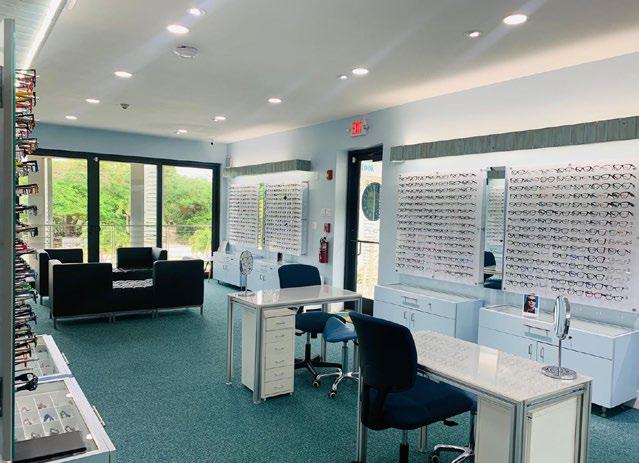

Dr Anne Dancey is a well-respected, UK-trained and fully-qualified plastic, aesthetic and reconstructive surgeon with an international reputation. She has over 23 years of experience and now practices full-time in the Cayman Islands. She firmly believes that Cayman residents should have access to the best cosmetic and reconstructive surgery without having to leave the island.
She is on the General Medical Council (GMC) Specialist Register (#4615482) for Plastic Surgery and a member of the British Association of Aesthetic Plastic Surgeons (BAAPS), The British Association of Plastic, Reconstructive and Aesthetic Surgeons (BAPRAS) and an international member of the American Society of Plastic Surgeons (ASPS).
Dr Dancey is trained in all areas of aesthetic and reconstructive plastic surgery, performing the full repertoire of procedures. Her specialist interest lies in aesthetic and reconstructive breast surgery, lymphoedema surgery, facial surgery and body contouring after massive weight loss.
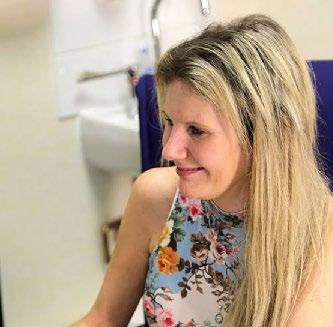
She is the author of over 30 papers and several prestigious book chapters and peer reviews articles for major international plastic surgery journals. Being a female plastic surgeon, she has the advantage of approaching her work from a female perspective in the dynamic and challenging arena of modern surgery.
After having an initial consultation, Dr Dancey will support you through every single step of your surgery with the dedicated care team at Cayman Surgery. They are all committed to making every detail of your surgery count from consultation to aftercare.
Hours of Operation: Monday-Friday, 8.30am-5pm
Accepts all major insurance providers in the Cayman Islands
Highlights:
• UK Trained, Fully Qualified Plastic & Reconstructive Surgeon
• Utilises Evidence-Based Medicine (EBM)
• 23 Years of Experience
Services Include:
• Botox & Dermal Fillers
• Breast Augmentation
• Breast Implant Removal
• Breast Reconstruction
• Capsulectomy
• Eyelid Surgery
• Fat Transfer to Breasts
• Face and Neck Lift
• Inverted Nipple Correction

• Liposuction

• Lymph Node Transfer
• Male & Female Breast Reduction & Uplift
• Nipple Reconstruction
• Split Earlobe Repair
• Scar Revision (including keloid)
• Skin Lesion Removal
• Thigh Lift
• Tummy Tucks
• Arm Lift
pre and postnatal pilates, 1:1 physio, specialist postnatal check ups (Mummy MOT) and more.
Cayman Rehab Services
Unit 10, Eucalyptus Building, Shedden Road, George Town. Tel: (345) 943 7974 or (345) 926 3099 Email: caymanrehab@gmail.com.
Dr Pekko Kuusela – Orthopaedic Surgeon Doctors Hospital, 16 Middle Road, off Walkers Road, GT. Tel: (345) 325 9000 Web: www. doctorshospitalcayman.com.
Da Vinci Physiotherapy
Park Place, off West Bay Road, SMB. Tel: (345) 943 2002 Email: info@davinciwellnesscentre. com Web: www.davinciwellnesscentre.com.
Elevation Health & Physiotherapy Ltd.
2nd Floor, Fidelity Financial Centre, 1 Gecko Lin, SMB. Tel: (345) 623 6663 Email: info@elevation. ky Web: www.elevation.ky.
Infinity Health Physiotherapy
247 Smith Road, George Town. Tel: (345) 233 0280 Web: www.infinityhealth.ky.
Uma Lenin BPT CKTP (Doc ALT MED)
Samuel Foster, BSc PT
Jacqui Tomlinson-Smith ornoPT, LCCE, CD (DONA), LC
RVC Rehab Services, 3rd Floor Tomlinson Building, 9 Walkers Road, George Town. Tel: (345) 949 6024 Web: www.rvcrehab.ky.
Synergy Chiropractic & Physiotherapy Ltd.
The Marquee Plaza, 36 Lawrence Boulevard, SMB. Tel: (345) 943 8200 Web: www. synergychirophysio.com.
Samantha Sparg BSc Paediatric Physiotherapist
Integra Healthcare Ltd, The Grand Pavilion, Commercial Centre, Hibiscus Way, 802 West Bay Road. Tel: (345) 745 7450 Web: www.integra.ky. Email: samantha.sparg@integra.ky.
Total Health
The Grand Pavilion, 802 West Bay Road, SMB. Tel: (345) 333 2222 Pharmacy: (345) 333 4444 Email: appointments@totalhealth.ky Web: www. totalhealth.ky
Will of Wellness
Suite 2, The Belmont, Crewe Road, George Town. Tel: (345) 926 2428 Email: wowcayman3@gmail. com Web: www.wowcayman.ky.
Cayman Surgery
Governors Square Units 4-113, 23 Lime Tree Bay Avenue, West Bay. Tel: (345) 946 0067
Email: office@caymansurgery.ky Web: www. caymansurgery.ky.
Dr Anne Dancey FRCS(Plast) MBChB MMedSci MCh(PASP)
Cayman Surgery, Governors Square Units 4-113, 23 Lime Tree Bay Avenue, West Bay.Tel: (345) 946 0067 Email: anne.dancey@caymansurgery. ky Web: www.caymansurgery.ky. A UK-trained,
fully-qualified plastic surgeon offering aesthetic and reconstructive breast surgery, body contouring, liposuction, female genital surgery, aesthetic facial surgery, fat transfer and weight loss surgery.
Allergy Doctors, ENTs & Audiologists
Dr Ulrich Ecke MD ENT
Dr Fionnuala Keane MBChB DCH DRCOG PGDipENT
ENT in Cayman, Units 4 - 5, Pasadora Place, 94 Smith Road, George Town. Tel: (345) 745 3253
Email: info@entincayman.com Web: www. entincayman.com. Focusing on preventive and conservative therapy. Trained and certified in the most advanced ENT surgical procedures.
Dr Annette Stephenson AuD Cayman Hearing Center, 85 North Sound Road, 3rd Floor, Alissta Towers. Tel: (345) 946 9174 or (345) 925 5836 Email: info@caymanhearingcenter. com Web: www.caymanhearingcenter.com. Offers comprehensive hearing evaluations for children and adults, hearing aid repair, hearing protection, amplified telephones, custom-made swim moulds and more.
Dr Frank Glatz MD FABO FAAOHNS FAAOA
Cayman E.N.T. Associates, 2 Alexander Place, Dorcy Drive, GT. Tel: (345) 945 3822 Email: jharris@candw.ky Web: www.entcayman.com.
Dr Nadine Yammine, MD MSc FRCSC
Integra Healthcare, The Strand, Canal Point Drive, Unit 17. Tel: (345) 745 7450 Email: ENT@ integra.ky Web: hwww.integra.ky. Range of Paediatric ENT services offered including: General & Paediatric ENT, Voice & Dysphagia, Endocrine Disorders, Head and Neck Disorders, Nose and Sinuses and more.
Dr Gyanendra Jha
Dr Cengiz Uneri
Dr Raul Kwesi Davis
George Town Hospital, 95 Hospital Road, George Town. Tel: (345) 949 8600 or (345) 244 8004/5 Web: www.hsa.ky.
The Strand Medical Centre
Dr Louis A. Cona MD
The Strand Shopping Centre, off West Bay Road. Tel: (345) 945 7077 Email: thestrandmedicalcentre@candw.ky Web: www.caymandoctor.ky.
Dr Gyanendra Jha, Senior Consultant and ENT Specialist
Total Health , The Grand Pavilion, 802 West Bay Road. Tel: (345) 333 2222 Pharmacy: (345) 333 4444 Email: appointments@totalhealth.ky Web: www.totalhealth.ky. Open: Mon-Sat, 8am-8pm.
ABA Therapy
Cayman ABA
Pasadora Place, Units 14 & 15, Smith Rd, George Town. Tel: (345) 947 5477 Email: info@ caymanaba.com Web: www.caymanaba.com.
Educational Assessments
Infinite Mindcare Cayman
Cannon Place, 294 North Sound Road. Tel: (345) 926 0882 Email: info@infinitemindcare.com Web:www.infinitemindcare.com.
Transformations Ltd.
Tel: (345) 324 1298 Email: admin@transform ationscayman.com Web: www.transformatio nscayman.com.
Mental Healthcare Services
Behavioral Health Associates Cayman
62 Hospital Road, Hospital Road Plaza, George Town. Tel: (345) 746 0066 Email: info@bhac.ky Web: www.bhac.ky. Board -certified consultant psychiatrist specialising in the treatment of children and adolescents. Additional associates specialise in psychiatry, counselling, assessments and life coaching.
Hope Academy (Clinical Services)
Grand Harbour Shoppes Units 1-8, 1053 Crewe Road, George Town. Tel: (345) 769 4673 Email: office@hopecayman.com Web: www. hopecayman.com/clinical-services . Services include: mental health therapy for individuals, couples, families of all ages, speech and language therapy, in-home family and parenting assistance, group therapy, school observations and interventions, school-based ABA, psychoeducational testing, neuropsychological assessments, psychiatric services/medication management.
Dr Laurence van Hanswijck de Jonge PhD
Wendy Mupaku MSW
KidsAbility, 8 Midtown Plaza, 273 Elgin Avenue, George Town. Tel: (345) 943 5437 Email: info@ kidsability.ky Web: www.kidsability.ky.
The Wellness Centre
Smith Road Medical Centre, 3rd Floor, George Town. Tel: (345) 949 9355 Email: info@ wellnesscentre.ky Web: www.wellnesscentre. ky.
Occupational, Speech & Language Therapy
Faith Gealey MS CCC-SLP
Raven Ramoon MSc MRCSLT
Mariah Freeman MA CCC-SLP
Julise de Wet B. Occ Therapy
Sarah Caswell MOT
Katherine Walmsley BS OT
Cayman Islands Health Services Authority, Bay Town House, 36 West Bay Road. Tel: (345) 244 2730/7675 Web: www.hsa.ky.
Dr Mona Kazemi
Cayman Theraplay Ltd, 9 Plaza Venezia, North Sound Road. Tel: (345) 749 7529 Email: info@ caymantheraplay.com Web:www.caymanthera play.com.
CHATTERBOX
Roz Griffiths BSc CertMRCSLT
Harmony Scott M.Sc. CertMRCSLT/Dip.
Alexa Berger B.A. Speech and Hearing Therapy
Lyndal Alexander BSc. in Occupational Therapy, Masters in Early Childhood Intervention, Registered Children's Yoga Teacher
Casuarina Point, 218 South Church Street, GT. Tel: (345) 949 7065 or (345) 926 1693
Email: chatterbox@candw.ky Web: www.
• Diagnostic Hearing Assessments for Children and Adults

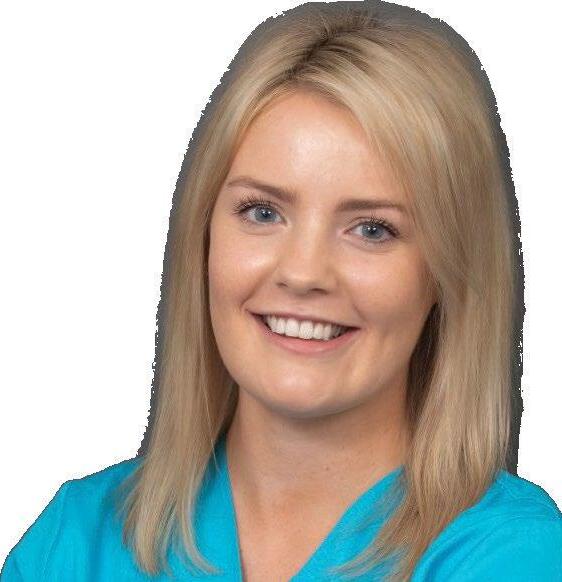

• Hearing Aid Fittings
• Balance Assessments
• Tinnitus Management

• Wax Removal
• Hearing Conservation Programs
chatterboxcayman.com. Speech and language therapy, Early Years Programmes (2-5 years), Hanen programmes, occupational therapy, autism consultancy. Services are available for both children and adults.
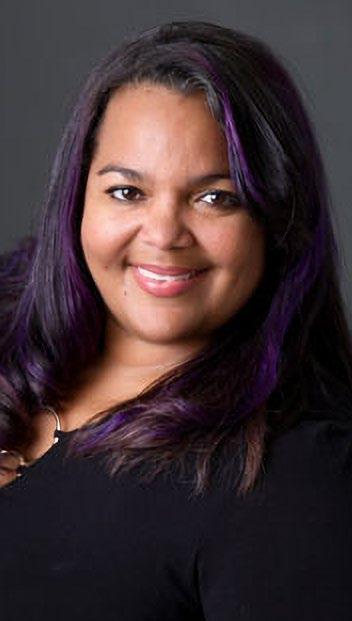
Cayman Theraplay Ltd.

9 Plaza Venezia, North Sound Road. Tel: (345) 749 7529 Email: info@ caymantheraplay.com Web: www.caymantheraplay.com
Claire Leadbeater MSc Cert MRCSLT
Hope Academy (Clinical Services), Hope Academy, Grand Harbour Shoppes. Tel: (345) 769 4673 or Cell: (345) 929 5122.
Early Intervention Programme
515 Walkers Road, George Town. Tel: (345) 926 1413 Email: eip@cayman. edu.ky. Offers free educational support programmes and services such as counselling and occupational therapy to support children with learning difficulties.
Inclusion Cayman
81 Godfrey Nixon Way (above Doctors Express), George Town. Email: info@ inclusioncayman.ky Tel: (345) 623 2957 Web: www.inclusioncayman.ky. A non-profit organisation supporting individuals with disabilities in their vision of accessing inclusive lives.
KidsAbility Paediatric Therapy Clinic
8 Midtown Plaza, 273 Elgin Avenue, George Town. Tel: (345) 943 5437 Email: info@kidsability.ky Web: www.kidsability.ky. Offers developmental neuropsychology services, counselling services, occupational therapy, speech-language therapy, a feeding clinic, social skills groups, parent, teacher and allied health workshops and telehealth services .
Lighthouse School
233A Shamrock Road, Savannah. Tel: (345) 947 5454. School for children, ages 5–17 who have special educational needs.
Special Olympics Cayman Islands (SOCI)
+1 (345) 745-3253 | 94 Smith Road, Unit 37, George Town
Tel: (345) 946 7624 Email: soci@candw.ky. Registered NPO offering sports training and competition for the intellectually disabled.
Cayman Hearing Center is the only full-service audiology practice in the Cayman Islands dedicating themselves to delivering exceptional care in a comfortable environment. Dr Annette Stephenson (AuD) established Cayman Hearing Center in 2007, deeming the facility an extraordinary contribution to hearing solutions onIsland.
Cayman Hearing Center offers comprehensive hearing evaluations for children and adults, including evaluating for auditory processing issues. They also repair hearing instruments, provide hearing protection (e.g. musician's ear plugs), offer tinnitus assessments and management, vestibular evaluation and management, custommade swim moulds and more. They are also a partner of Entheos - Hearing The Call - a foundation committed to giving the gift of hearing around the world. They believe that every person should have access to effective hearing healthcare services.

Hours of Operation: Open Monday-Thursday 8.30am-5pm, Fridays 8.30am-3pm
Highlights:
The only full-service audiology practice on-Island for all ages • Most advanced hearing aid technology • 3-year warranty on most hearing aids
(345) 946 9174 | info@caymanhearingcenter.com | www.caymanhearingcenter.com



Cayman Orthopaedic Group has been a pioneer of cutting-edge medical and surgical services in Cayman for nearly 30 years. They were the first to successfully undertake joint replacement surgery in Cayman in 1994, and the first to offer hip arthroscopy and PRP in the Caribbean.
Their board-certified surgeons from around the world provide comprehensive, patient-centred care and the latest innovative procedures and sub-speciality treatments.

"Cayman Orthopaedic Group has done an excellent job. They encourage me and always say, just call us. The nurses were excellent at every step. I knew I was in good hands. My success is getting better each day. It’s been a journey, but a positive journey.”

- DM, Right Hip Arthroplasty
“I am blessed and I am grateful, everything went well. They checked on me after surgery a few times to make sure I was okay. The Doctor was pleased with the outcome, and so am I.” -
“I have been looking for something like this for a long time and I’m feeling 99% better. The procedure was fine - I didn’t expect the symptoms I felt after, but the doctor comforted me post-procedure, and he checked up on me every step of the way.”
- RH, Transfemoral Epidural Steroid Injection
Highlights:
• A full spectrum of medical and surgical services for residents and visitors in Cayman

• Recognised subspecialists in all areas of orthopaedics and sports medicine
• Leading evidence-based and minimally invasive surgical techniques
• Compassionate, patient-centred quality care
Orthopaedic Services Include:
• Paediatric general and trauma cases
• Adult general and trauma cases
• Joint replacement for hips, knees and shoulders
• Arthroscopic shoulder, knee and ankle surgery
• Sports-related injuries
• Back pain and spine-related injuries
• Platelet Rich Plasma Therapy




Natural disasters are unpredictable and uncontrollable events, which makes them scary for everyone, but particularly children. –
Dympna Carten RMN, ENB Community Psychiatric NurseAlthough everyone deals with traumatic events like major natural disasters differently, there is generally some degree of unease or anxiety experienced in the aftermath. While adults may be better equipped to process their feelings, it can be a lot harder for children to make sense of their emotions. Although it is not always possible to predict certain natural disasters, there are ways to mitigate the anxieties experienced after the fact. Having conversations with your children about what to expect before, during and after a natural disaster, as well as teaching them the importance of accepting uncertainty, is key for building resilience.
These five tips can help your child prepare for and then process natural disasters.
Give age-appropriate information about natural disasters and take time to create an emergency plan and include your children in the planning to ensure they understand their role. Talk about what may happen and has happened in the past. For some children, this conversation may be easier done sitting side by side while drawing a picture or while helping to prepare a meal. For others, a face-to-face conversation may work best. Keep your tone reassuring, repeating messages such as, “That was scary, but we’re safe now.”
Stick to the facts and encourage questions. Be honest, and if you can watch or listen to information about the event with your child, use this as a tool to educate and offer reassurance. Minimise children's exposure to social media and news channels, particularly before going to bed. Most importantly –
do not underestimate the power of a good cuddle to calm down an anxious little one!
Show them where you store emergency supplies, draw up lists of names and phone numbers of who they should contact in an emergency situation and practise your drills. Ask them to consider preparing a small bag of what might be important for them to have ready.
For children who are worried about the likelihood of unprecedented events and natural disasters, knowing that their family members are prepared will give them a sense of security. If you don’t know the answer, don’t be afraid to admit it. Don’t jeopardise your child’s trust by making something up or offering false promises.
Children find security in routine, and the sense that ‘life goes on’ will help them feel safe. While it is tempting to keep your child home, if your school or preschool is open and Government has officially verified returning as safe – send them! Being around their friends and getting back into a routine is tremendously helpful for children. Encourage them to get outside and play, arrange play dates, resume the usual daily activities such as walking the dog, etc.
Stick to mealtimes, maintain a healthy diet, and avoid processed and convenience foods. Keep bedtimes as normal as possible. Maintain compliance with any previously prescribed medication and keep appointments with professionals as scheduled.
Anxiety is normal after an event such as a natural disaster, and it can take the form of many different behaviours. These include:
• Regressions in sleep/toileting (bedwetting)
• Crying and clinginess
• Irritability/quick to anger/disrespectful
• Fear of the dark or being alone or nightmares
• Headaches/aches/pains/stomach upset
• Reluctance to go to school or preschool or struggling with homework
• Loss of appetite or lack of interest in everyday activities.
These behaviours are normal after a traumatic event and will start to fade over time. However, if your child is exhibiting ongoing anxious behaviours and the reactions are disrupting their daily lives, arrange an appointment with their doctor or seek a professional counsellor to help your child manage their anxiety. Turn to page 185 for a list of trusted mental health professionals on-Island who can assist.
As a parent, ensuring that you have healthy methods of dealing with your stress and anxiety is the most important way that you can help your child after a significant event such as a natural disaster.
Children are visual learners, so if you are showing them that you can manage your stress, they learn that their stress is manageable too. The more calm, relaxed and focused you are, the better you will be able to help your child.
Spending time together and discussing as a family is a good way to identify needs, seek solutions and give everyone a voice and a role in handling frightening events in a positive and pragmatic way. Monitor adult conversations and be aware of what adults are saying about the event or the damage. Children may misinterpret what they hear and be unnecessarily frightened. Focus on the positive and stay hopeful.
• Contact the Behavioural Health Department, Cayman Islands Hospital, George Town on (345) 244 2650, Faith Hospital, Cayman Brac on (345) 948 2243 or Little Cayman Clinic on (345) 948 0072.
• CayMind (formerly the Mental Health Helpline) is 1 800 534 6463, (Monday-Friday, 9am-5pm) and the KIDS helpline is (345) 649 5437 (Monday-Friday 10am6pm). For more information, visit www.cicc.ky.
• Led by Dympna Carten, the Community Psychiatric Nurse for the HSA, 'Radio Head' recognises the crucial role radio plays in our community for educating and informing people in times of national emergency. Through community donations, they supply Cayman’s most vulnerable with this valuable piece of technology. To donate a radio to Radio Head, please email: dympnacarten@hotmail.com or call (345) 916 3734.
The Cayman Islands Government has a National Emergency Notification System (NENS) which was developed by Hazard Management Cayman Islands (HMCI) in collaboration with key local and regional stakeholders. NENS is a free mobile app that delivers emergency alerts by email, SMS and app notification. The purpose of the app is to provide reliable and timely information to the public on major national incidents such as hurricanes, earthquakes, tsunamis, large fires, airport incidents and chemical incidents. In an emergency, an alert will go off on your phone, letting you know that there is a problem and it will include details of the incident and where it is primarily located (if possible). It will also include any essential public safety messaging, such as instructions to stay away from the incident area or to seek higher ground. It may be helpful to explain to your child in advance that the loud noises the app makes are nothing to be scared of because it is alerting the whole island and trying to keep us safe. To download the app, visit www.nens.gov.ky.
NOTE: Take any suicidal talk or behaviour seriously. Contact your doctor or bring your child to the A&E Department at George Town Hospital (345) 949 8600 for an assessment or, if on the Sister Islands, attend Faith Hospital (345) 948 2243 or contact the nurse at the Little Cayman Clinic (345) 948 0072/(345) 916 5395.

The most common natural disasters threatening the Cayman Islands are hurricanes. Although Cayman has been lucky in recent years to avoid the path of any major tropical storms or hurricanes, we should always be on high alert as unpredictable weather conditions can strike during any hurricane season. In the event the Island does get hit by a hurricane, you will want to have taken practical steps beforehand to ensure you and your family stay safe and dry. For more information, visit www.caymanprepared.gov. ky and www.caymanresident.com.
Preparation is key. Prior to the start of hurricane season (June 1st to November 30th), put together a hurricane supply kit stocked with the items on the checklist below:
❑ Several gallons of drinking water
❑ Long-life food that does not require refrigeration or to be cooked (tinned food is particularly helpful)
❑ Plywood and screw nails for windows/doors (if necessary)
❑ ‘C’ type fire extinguisher for electrical fires
❑ Oil and petrol for generator (optional)
❑ Portable gas cooker and refills
❑ Charcoal and lighter fluid
❑ Flashlight, lantern and oil
❑ Candles and matches/lighter in watertight bag
❑ Battery operated radio, fan and extra batteries
❑ First aid kit, sunscreen and feminine hygiene supplies
❑ Medication
❑ Mosquito coils, citronella candles and/or spray
❑ Life vests, goloshes and whistle
❑ Rope/strong twine, duct/packing tape
❑ Plastic sheeting to cover furniture
❑ Tarpaulin for roof
❑ Paper towel, toilet paper and napkins
❑ Disposable plates, glasses and cutlery
❑ Aluminium foil, plastic freezer bags
❑ Can opener/knife (e.g. Swiss army)
❑ Chlorine bleach (sterilising water) and Dettol (disinfecting hands and feet)
❑ Hand sanitiser and baby wipes (for personal hygiene)
❑ Ice chest (to stock up with ice in the run-up to a major storm)
❑ Baby supplies: diapers, wipes, food
❑ Pet food and litter box
In the immediate days leading up to the storm, make sure you have ticked off the following:
❑ Design a family plan for which shelter and route is best suited to your needs
❑ Store important documents, records, irreplaceable and precious items in watertight containers and back up to an external drive
❑ Fill cars with gasoline/charge if electric and move them to higher ground
❑ Withdraw cash from bank - ATMs won’t work without power
❑ Bring in everything from outside, i.e. bird feeder, hose, barbecue, chairs, potted plants
❑ Secure boat and remove all equipment - battery, life jackets, etc.
❑ Make arrangements for the safety of your pets
❑ Move furniture and belongings away from windows and doors and elevate off floor level
❑ Put silicone or foam around outside doors and also fill enough sandbags to protect the outside of the doors at ground level
❑ Pick up rugs from the floor and remove drapes from windows
❑ Buy buckets and sheets of plastic to protect furniture and wood floors from ceiling leaks
❑ Clean tubs/baths and fill them with water
❑ Turn freezer and fridge to the coldest setting. If power goes out, food and ice will last longer
❑ Charge cell phones and have cell phone charger that plugs into car lighter or a cranking mechanism
❑ Wedge sliding doors to prevent them lifting from tracks and reinforce garage door
❑ Keep swimming pool full, to around 12 inches from the top
❑ Turn off propane tanks
❑ Secure TV antennae
❑ Ensure there is an adequate supply of emergency food
❑ Close cistern openings and disconnect downspouts
❑ Fill empty gallon bottles with water for bathing and flushing
❑ Have raincoats/ponchos handy
❑ Make sure you have the phone numbers of family and friends and that they have yours
In the event of a hurricane, CUC will continue to supply power as long as possible. When the winds reach hurricane force, it will be necessary to shutdown our North Sound Road Power Plant for the duration of the storm in the interest of public safety.

Preparing for a Hurricane : After a Hurricane has passed :
Always ensure that trees and branches on your property are maintained and grow away from power lines. Trees or branches that grow over 10 feet away from power lines can be trimmed by landscapers. Do not attempt to cut trees or branches that grow within 10 feet of power lines. Only qualified personnel approved by CUC should trim trees or branches within 10 feet of power lines. Contact our Customer Service Department via e-mail at service@cuc.ky for assistance or visit our website (www.cuc-cayman.com/ customer-service/cuc-tree-trimming/) to review more information on tree trimming and how CUC can assist. Replenish your stock of batteries and check flashlights, battery lanterns and radios.
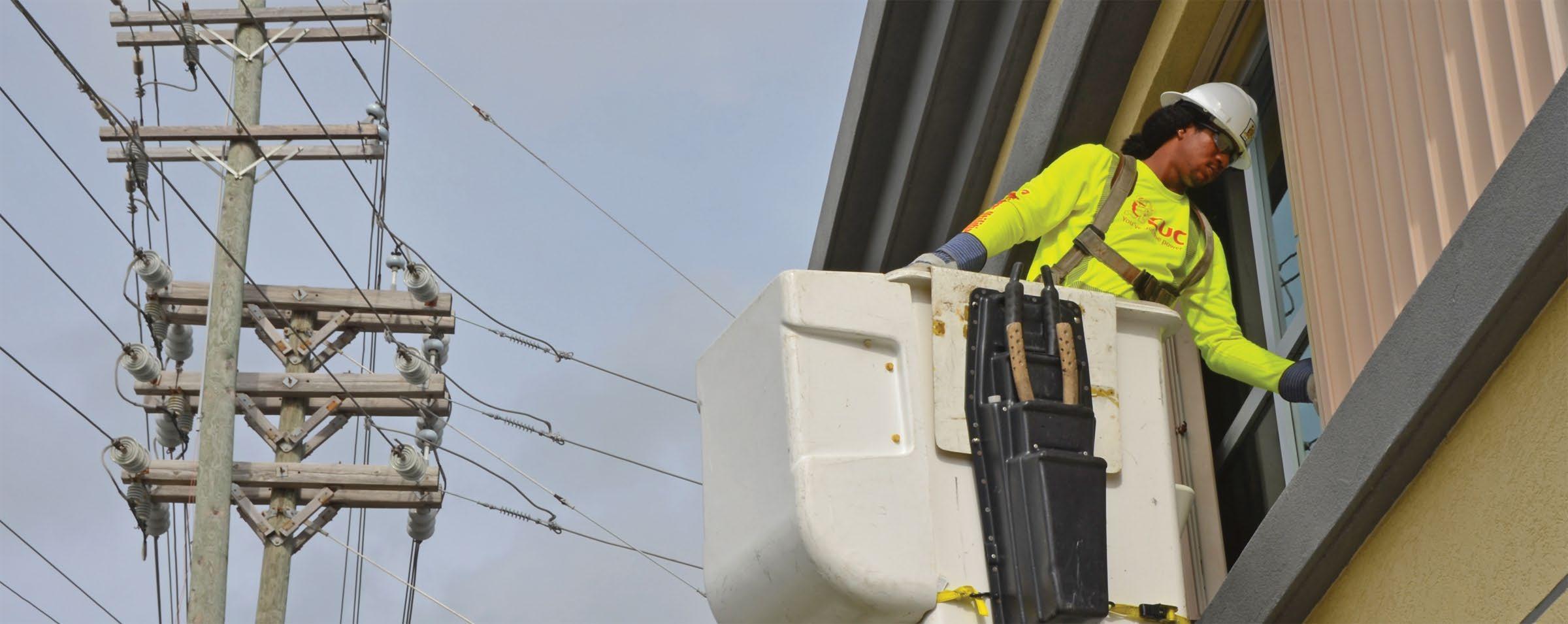
Keep a ‘C’ type fire extinguisher in your home and office. NEVER attempt to extinguish an electrical fire with water - you could be electrocuted.
Severe lightning typically accompanies a hurricane. Turn off the main breaker and unplug appliances to prevent unnecessary electrical damage.
CUC has an Emergency Preparedness Committee and action will be taken by our staff to restore service to our customers as soon as possible after the storm.
Remember, hurricanes are serious natural destructive forces and preparedness is the key to survival. We encourage you to take the necessary steps to protect your family and your property when storms are imminent!
If at night, DO NOT venture out into the dark as the downed power lines could still be energised.
DO NOT touch fallen or low-hanging power lines under any circumstances. Stay as far away as possible. DO NOT touch or attempt to move objects in contact with power lines. Always assume the lines are energised.
DO NOT turn on your main breaker until you ensure that the secondary (individual) breakers are off. Once you switch on the main breaker, turn on the secondary breakers one at a time to check for electrical faults. If a fault is detected, turn off the main breaker immediately and contact an electrician.
Information :

»
Information on shelters and weather alerts may be obtained from the Hazard Management Cayman Islands’ website at www.caymanprepared.ky. In addition, several media houses annually produce important information on hurricane/ emergency preparedness.
Closely monitor the local TV (CIGTV) and radio stations for weather updates or visit www.caymanprepared.gov.ky, www.wunderground.com, www.nhc.noaa.gov, www.accuweather.com and www.weather.com.
To report or obtain information on power outages, call 945-1CUC. In the event of an electrical emergency, please call 911 immediately.
Moving house can be one of the biggest stressors of adult life. Whether you intend to rent or buy, choosing the right home is no easy decision. Price, location, size, layout, and the amenities offered all play a role in your selection and it is easy to feel overwhelmed by all the details.
There are many aspects to securing a property in Grand Cayman and the Sister Islands that differ from other parts of the world, so it is important to be aware of the ins and outs. You can navigate all the major stresses of finding your dream home more easily with the help of a real estate professional who has their finger on the pulse of the Island’s property market.
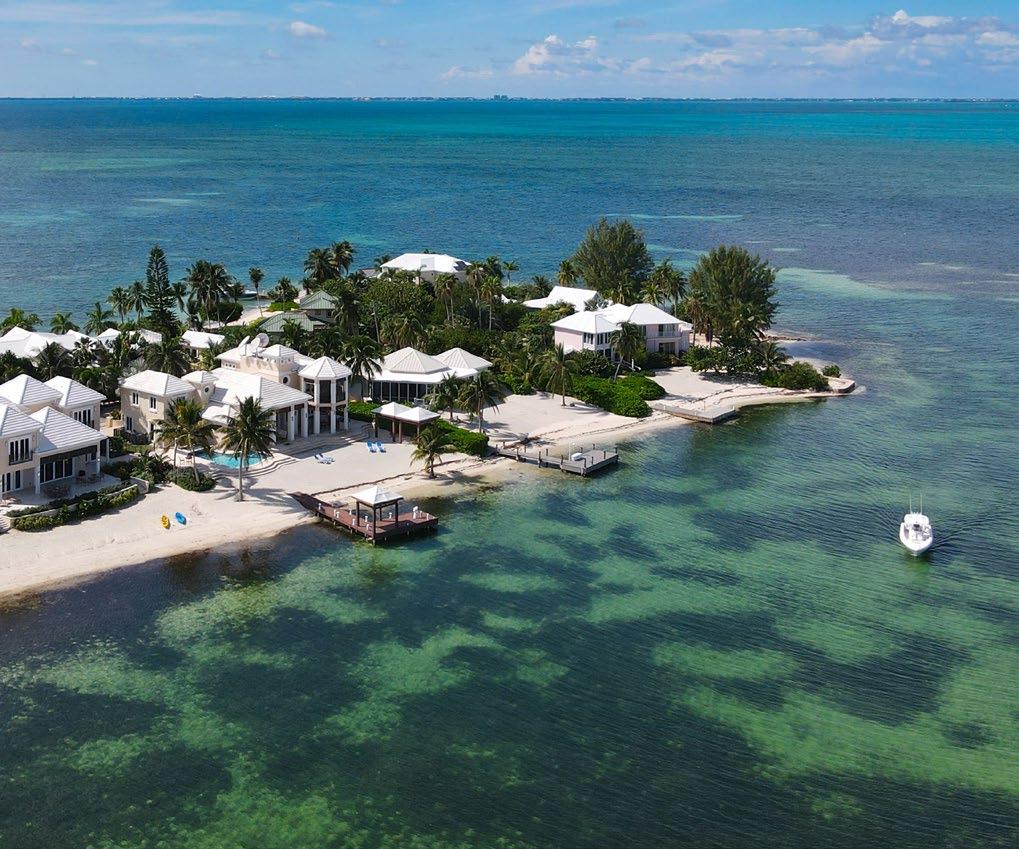
In Cayman, because of the Multi Listing System (MLS), all CIREBA agents can access and show all available inventory, meaning you can relax and let them do the legwork while keeping you informed on available properties. Once they have a better idea of what you want by way of budget, location and size, they can start researching properties and sending you links to review with feedback. Rentals in Cayman move very fast. Places become available and are leased or sold very quickly. Having a real estate agent to help you stay on top of this is invaluable to the process.
Living in the Cayman Islands is very safe for expats and locals alike. As a small country that is big on international business, education and attracting overseas investment – the local authorities do a good job of keeping things running smoothly. In fact, with one of the lowest violent crime rates of any country in the world, it is probably the most secure country in the Caribbean. For these reasons, Cayman has been growing and continues to attract new residents from all over the world. Young working professionals will find amenities that appeal to an active lifestyle, while there are just as many options for families after a more laidback ‘island-style’ life.
Real estate agents encourage their clients to rent for no longer than one year (if possible). Owning a home allows you to invest in yourself and pay into your own equity instead of the landlord's. If you’d prefer to go it alone when searching for a rental, ecaytrade.com has rentals listed directly by the landlords, which may streamline the whole process. Realtors also have many up-to-date property rentals listed on cirebarentals.com, where you can search for specific property types and locations. You will usually need to put down a security deposit and the first month’s rent in advance. Some landlords may require tenants to obtain contents insurance at the tenant's expense, and for utilities, estimate approximately CI$100 for water, CI$300-CI$600 for electricity and CI$50-CI$100 for internet.

Homeownership is one of the primary methods of building wealth, and as such it is hugely beneficial to get on the property ladder as soon as you can. However, buying a house is becoming increasingly difficult for young Caymanians. Whole generations are finding themselves locked out of the housing market due to Cayman’s dwindling inventory being dominated by higher-income, overseas buyers who have massively inflated prices. One benefit for first-time Caymanian buyers is the waiving of stamp duty for homes below the qualifying price point. Unfortunately, there are increasingly few properties on the market that meet these criteria. This, combined with a down payment of at least 10%, lawyer charges, strata fees and home insurance costs, is what leads many families to believe homeownership in Cayman will remain a distant dream for the country’s future generations. See the table opposite for more details on stamp duty thresholds for Cayman's first-time buyers.
If you are lucky enough to be able to buy a home, always bear in mind that you are much better off buying a property that offers flexibility and is affordable. ‘Right-sizing’, which means moving into a home that suits your current needs, is key. Do not overstretch yourself, as high-end homes do not sell every day in Cayman, and they can sit on the market for a long time. Opting to buy a property within your means can make selling in the future much easier. If you are going to use real estate for points in your Cayman PR application one day, be sure to speak to an immigration specialist to get all the facts. There are several levels of real estate that are required for different categories of residency.


Always shop around when looking for a mortgage. Research your options with various banks as there are a myriad of financing options available which constantly change. Cayman's retail banks usually do not offer mortgages to buyers over 65 years of age, so start early! To increase your chances of obtaining financing from a bank, you should have a good sense of your future income, have been working in Cayman for a minimum of six months and be in a solid financial position. A general rule of thumb is that you will need between 10% and 35% of the negotiated sum to secure a mortgage, plus money for bank fees, stamp duty, legal fees, an appraisal fee and government fees.
Thresholds for first-time Caymanian buyers applying for stamp duty waivers:
Houses, apartments, and other dwellings with a market value CI$400,000 or less (provided it will be owner-occupied)
Undeveloped land with a market value of up to CI$150,000 (provided an owner-occupied dwelling will be built)
Bare land with a market value above CI$150,000 but not exceeding CI$200,000
Houses, apartments, and other dwellings with a market value of up to CI$400,000 (not exceeding CI$500,000)
Stamp Duty Reduction
No stamp duty payment
No stamp duty payment
Reduced rate: 2%
Reduced rate: 2%
Property
Land with building having a value that exceeds CI$500,000 but does not exceed $600,000
Land without building having a value that exceeds CI$300,000 but does not exceed CI$350,000
Stamp Duty Reduction
Reduced rate: 2%
Reduced rate: 2%
Office: (345) 949-2396
Cell/Whatsapp: (345) 916-0378
Toll Free: 1 (877) 286-4243

Your realtor should be a good listener who can distinguish between all the ‘must-haves’ and ‘nice-to-haves’ you are looking for including budget range, square footage, number of bedrooms/bathrooms, amenities, location, neighbourhood, and other factors. An agent will continuously scour the MLS and external sources to find a range of suitable properties to show you.
They will provide comparable sales information and advise on the market value of the properties you are interested in before you decide how much to offer. The agent can then draft an offer to purchase on your behalf to submit to vendors after advising on the important points that need to be put in an offer, including deposit amounts, milestone dates and any conditions that need to be met.

Your realtor should know and be able to recommend the best home inspectors in the industry for you to choose from. Buyers can sometimes struggle to know what problems are worth stressing over and which aren’t. Your real estate agent will help you decide what issues are ones you need to be concerned with.
Once the agent has attended the inspection and had the results, they will be able to advise you on what should be brought to the seller’s attention and what, if any, concessions the buyers can reasonably ask for. This could be a price reduction, a repair or a credit at closing.
Once under contract, all parties need to be on the same page and reminded of the important deadlines stated in the offer to purchase. Your real estate agent will keep everyone informed and on track, including the seller’s agent and your real estate attorney. They will also advise that a stay of execution be placed on the property to prevent the sale of this property to anyone before the purchase is finalised.
Your agent will finalise all the loose ends required for closing. These may include securing due diligence documents, attending the bank's closing meeting to deliver a closing statement and payout cheques, collecting keys etc.

Expect to pay CI$15 per hour for a minimum of four hours if hired on a full-day or half-day regular weekly basis. On a temporary basis, allow CI$17 or more per hour and some charge a transportation fee of CI$6 per day. The convenience of using an agency is that they train the staff, pay their health insurance and pension, and will replace them if they cannot work for any reason. Many agencies also run an employee bus service and will drop them off and pick them up. See page 255 for agency details.
A domestic helper is primarily employed to clean the house, prepare food and babysit the children. They would transport the children to activities, but they would not be expected to plan activities or get involved with doing homework.
The standard work week in the Cayman Islands is between 40 and 45 hours per week. The Labour Act (2021 Revision) states that the minimum wage is CI$6 per hour for a 45-hour week, or nine hours per day. Anyone being asked to work over 45 hours should get paid 1.5 times the hourly rate for additional hours. If the employee is a live-in helper, then their 'in kind' credit (accommodation and utilities, etc.) can only account for 25% of their salary, meaning the employee must be paid a minimum of CI$4.50 per hour in gross monetary compensation. If this is not met, then the employee can call the confidential line at the Department of Labour and Pensions at (345) 945 3073. The reality is, however, that anyone being paid CI$6 an hour for a

45-hour week will take home CI$270 per week or CI$1,170 per month, less their 50% for basic health insurance (CI$80), then they are barely able to afford rent, food, catch a bus to and from work and send home some money if they are living on CI$1,090 a month. Thankfully the minimum wage is being reviewed.
If domestic helpers can also provide some nannying duties, then the pay is significantly better for a very good candidate. You can expect this person to be able to drive, cook for your children and help with cleaning the house but they would not help with homework nor manage the logistics of a child's weekly afternoon activities. Expect to pay between CI$405 and CI$575 per week, before overtime, for a 45-hour week, plus a discretionary housing allowance of CI$300-CI$500 per month. For part-time work, or babysitting, and working over the 45 hours per week, everyone will expect to be paid CI$12-CI$15 an hour. For non-agency helpers who you hire full time, you must take care of their health insurance and a good employer would not expect the employee to contribute towards it.
According to the Labour Act (2021 Revision), all employees are entitled to a minimum of two weeks' vacation (10 working days) for the first four years of employment, three weeks (or 15 working days) for years four to 10, and four weeks (20 days) if employed for over 10 years with the same family. You must also pay them double time for working any public holidays. Unfortunately, by law, you do not have to contribute to a domestic worker's pension although a good employer will. A good employer will also pay for one airline ticket home per year if the employee lives nearby (e.g. Jamaica) or a ticket home every two years if they live further away (e.g. the Philippines). It is also good practice to provide a Christmas bonus of between two-weeks' and a month’s salary.
A professional nanny is expected to have a university degree and/or some form of formal early childhood care and education training. Their role is to focus on the children and not on general household chores. A professional nanny is usually paid CI$20CI$22 per hour for a 45-hour week (starting at CI$4,000 per month) and the overtime rate is negotiable but starts at CI$12 an hour. Typically, a nanny's job includes washing the children’s laundry, doing dishes, doing the household grocery shopping, preparing healthy dinners or homemade baby food, arranging activities, helping to organise and drive children to afterschool activities, assisting with homework, supporting any homeschooling and organising playdates. They would be expected to help develop a well-rounded, responsible child with a strong moral compass. Find professional nannies by word of mouth, or through local agencies such as AAA Caregivers or The Perfect Maid & Nanny Agency. If you are looking for a live-in au pair, visit www. greataupair.com. If you are looking for a Norland Nanny, see www.norland.ac.uk.
Most nannies would expect to be provided with a car to use seven days a week, a monthly fuel allowance of CI$80-CI$160 (depending on distances involved between the main household, school and certain activities), flights home (once a year, no matter the destination), four weeks' paid vacation, non-contributory
health insurance, and to be paid their monthly salary whether the family are away on holiday or not. It is not unusual for a nanny to travel with the family on vacation and stay overnight as needed (but please check visa requirements for your nanny). For overnight stays, the going rate is a sleep fee of CI$10 per hour or CI$75 a night. It is then CI$12 per hour for the hours the children are awake outside of the nanny’s regular working hours.
If you are an expat, then you cannot submit your domestic helper's or nanny's work permit paperwork until your own work permit has been approved. It is also illegal to have them pay for their own work permit. Helpers are not allowed to have dependents on their work permit, and the absolute maximum time they can stay on the Island is ten years. You can take out a work permit for any nationality as long as you can demonstrate a genuine need.
The Department of Workforce Opportunities & Residency Cayman (WORC) does not usually grant expats a work permit for a domestic helper or a nanny unless they can show sufficient need, i.e. they have children who need looking after. In this case, you'll need to provide certified copies of the birth certificate of each child to be cared for and think carefully about the information you provide in your cover letter to support your application. Please note, a work permit for a Nanny needs to be advertised on the https://jobscayman.worc.gov.ky website but a work permit for a domestic helper does not need to be advertised. The work permit for a Domestic Helper costs CI$150 per year, while the cost for a Certified Nanny is CI$550.
Good with Children: A genuine love for children, ability to nurture, stay cool under pressure and to understand each child’s individual needs and adapt their approach accordingly.
Pro-Active & Vigilant: Can accurately handle an emergency, doesn't wait to be assigned tasks, has good ideas for entertaining children and can organise and host playdates.
Trustworthy & Reliable: Ability to respect your home and protect your privacy. Accepts your rules on things like screen time.
Good Time Management & Organisation
Skills: Punctuality and ability to keep children on schedule without letting other tasks slip.
Communicative & Confident: Confidence to broach any issues arising instead of letting them fester, to ask questions when the need for clarity arises and to regularly share important information about your child with you.
Safety Training: CPR and First Aid certified as a bare minimum and open to receiving training in Water Safety and Child Abuse Prevention.
If born in the Cayman Islands to expat parents, your newborn will not automatically become a Caymanian citizen and will therefore have to take one of their parents’ nationalities at birth. Luckily, parents can begin the process of obtaining a child passport as soon as their child has a birth certificate. We outline helpful next steps for different nationalities below.
If you are a US citizen who recently had a child in the Cayman Islands, you need to apply for a 'Consular Report of Birth Abroad' as well as a passport for your child. You will need to make an appointment with the US Consular Agency via email to: caymanACS@state.gov and then complete the application forms, which can be found at www.travel.state.gov. Both the parents and child must attend the appointment and bring any necessary documentation. They do not accept walk-ins.
US Consular Agency: Suite 202B, Smith Road Centre, 150 Smith Road, George Town. Tel: (345) 623 8173. Opening hours: Monday-Friday 9am-1pm (closed on all Cayman and US holidays).
Obtaining an Australian passport for a child born in the Cayman Islands can be complicated as there is no online and postal application process available after registering for the child’s Australian citizenship. Residents of Cayman should contact the Australian High Commission in Trinidad and Tobago. They will then advise where an in-person application (including an interview) by one parent can be submitted. The child does not need to attend the interview. For more information, visit https:// trinidadandtobago.embassy.gov.au or Tel: 1 (868) 822 5450.
Visit www.gov.uk/get-a-child-passport to apply online for your child’s first British passport. You will need a digital photo of your child, supporting documents and a credit or debit card, plus you will need to identify someone who can confirm your child's identity; they will act as a countersignatory. The cost to apply from the Cayman Islands is £95.50 which includes courier fees to get the passport back to you. You will then be issued with a unique number and you will be asked to quote this when you mail the original documents to HM Passport Office. A child passport is valid for five years and the processing time takes up to 11 weeks.
The Honorary Consul of Canada helps with obtaining Canadian citizenship for children born in the Cayman Islands to Canadian parents, passports and any emergency assistance. Application forms for Canadian passports can be collected from the Consular
or downloaded online from www.cic.gc.ca. The Consular can review your application before you send it to the High Commission of Canada in Kingston, Jamaica. The estimated processing time is 15-20 business days. Honorary Consul of Canada: 1st Floor, Landmark Square, 64 Earth Close, West Bay Road. Tel: (345) 949 9400, Email: cdncon.cayman@candw.ky. Opening hours: Monday-Thursday 10am-1pm.
Caymanian Passports
Caymanian passports (also called a British Overseas Territories Citizen passport) are processed at the Passport & Corporate Services office in George Town and then sent to the UK passport office to be printed. The processing time is six to eight weeks. Application forms and a list of required documentation for a BOTC passport can be downloaded from www.gov.ky (see Passport & Corporate Services tab). Passports cost CI$75 for children, CI$100 for adults and the fee is waived for those over 65. Emergency passports, issued in the event of a medical air evacuation, are produced in Grand Cayman and can be turned around within a day. Unlike the US, those born in the Cayman are not automatically eligible for citizenship or a Cayman Islands passport unless they can prove a connection to the Islands. This usually means that one parent must be Caymanian.
Passport & Corporate Services Office: 2nd floor of Sussex House, 128 Elgin Avenue. Tel: (345) 943 7678. Opening hours: Monday-Friday 9am-3pm.
Children born in the Cayman Islands will be issued a Live Birth Notification Form. The original document will be sent to the Registrar of Births and you will be given a copy. Parents must go to the General Registry on the ground floor of the Government Administration Building, Elgin Avenue with the Live Birth Notification Form, a marriage certificate (if married) and your passport(s).
Residents of Cayman Brac and Little Cayman can register their children at the District Commissioner’s Office on Cayman Brac or in Grand Cayman.
By law, you must register your child within three months of birth. There is no charge for this, however, a copy of your child’s birth certificate from the Registrar of Births will cost CI$10 per copy.
Under the Immigration (Transition) Act (2022) (the "Act"), children born on or after 1st January 2004 are 'Caymanian as of Right' (no matter where they are physically born) if, at the date of their birth, at least one of their parents was Caymanian and settled in the Cayman Islands. If the parents obtained Caymanian status any other way than by descent, and their child is born overseas when neither parent is settled in the Cayman Islands, then their child will also be 'Caymanian as of Right'. The responsibility for determining whether or not someone is in fact a Caymanian now falls to Workforce Opportunities and Residence Cayman ('WORC'). If the children’s parents became Caymanian by descent (i.e. through a parent or grandparent), and the child is born overseas, then the child is not necessarily Caymanian.
Individuals who believe they are eligible to be Caymanian can apply to the Director of WORC under s.26(2) of the Act for formal acknowledgement that they are, in fact, Caymanian by submitting the C21 ‘Acknowledgement/Continuation of the Right to be Caymanian’ form. The Act provides that the Director of WORC must, within 14 days, provide such acknowledgement (and, if requested, provide a stamp to be placed in the person’s passport confirming them to be Caymanian) or provide written reasons for the refusal to do so. There is no fee for this application, although a CI$50 fee is payable where the application is being made on the basis that a child is Caymanian by Entitlement (see 'When Parents Become Caymanians After the Child's Birth').
If the parents are not married at the time of the child’s birth, and the father is Caymanian and the mother isn't, a DNA test may be required. However, the issue does not arise if the mother is Caymanian and settled in Cayman at the time of the child's birth as the child will be Caymanian.
If parents become Caymanian after the child is born, they can apply to the Director of WORC for formal acknowledgement for their child to become 'Caymanian by Entitlement'. They must demonstrate that the child is under the age of 18, has at least one Caymanian parent, and has been legally and ordinarily resident in the Cayman Islands for at least one year. Such children cease to be Caymanian upon turning 18 and need to apply for a 'continuation' of their Right to be Caymanian. Although the Act allows for applications after the age of 18, you should ideally submit the paperwork beforehand. This is because you don't want to hinder your child's ability to apply for a scholarship or job until their status has been confirmed and 'continued'. They also risk being determined to be unlawfully in the Islands and thus (if the period is long enough) ineligible to apply for 'continuation'.
Children born in the Cayman Islands to expats are not automatically entitled to reside in Cayman and their residency status will therefore depend on their parents' immigration status as explained below:
When a Non-Caymanian child is born in or brought into the Cayman Islands, they must be reported to the immigration authorities and apply for the appropriate permissions to allow them to stay. Your child must be added as a dependant if you are: here on a temporary or full work permit, are a Governmentcontracted worker, or have an application for Permanent Residence (PR) submitted and are working on a valid PCW ('Permission to Continue Working'). The next paragraph explains how to add your child to your work permit or Permanent Residency.
If a child is born outside the Islands they will face processing by the department of Customs & Border Control. If, by that time, they do not yet hold formal immigration permissions i.e. as a dependant, they will be processed and likely landed as a visitor. Even Caymanians are likely to face this treatment until the formal acknowledgement process is concluded. Where a child is born in the Cayman Islands and is not Caymanian at birth, the parents are required to report to Customs & Border Control as soon as practicable in order to have their status in the Islands regularised. The initial application can be made in person or online. If the 'in person' option is to be followed, parents are required to provide the following to a Customs & Border Control Officer at the 'Extension Counter':
•Evidence of a suitable application to vary a Work Permit or Residency Certificate (or, it is assumed in the case of a Government worker, their contract)
•A passport or an original Cayman Birth Certificate
•A completed extension form (BC 10).
The Officer at the Extension Counter will 'land and condition' the child, and provide necessary authorisation for the Department of WORC to process the relevant application by which the child may become formally resident.
Alternatively, an application can be made online using the Visitor Extension process (even though the child may not be a visitor). If the child is less than three months old (though applications should certainly be made much earlier than that where practicable), there is no charge. The parent should select 'other' to ensure that no fee is attached. If the child is three months or older, the initial fee will be CI$50.
Items required to accompany the submission are: 1) Birth certificate of the child. 2) Passport (if one has been issued). 3) Fees (if applicable). 4) Parents’ employment letters. 5) Parents’ bank reference/statement. 6) Evidence of Accommodation (lease or land documents). 7) Proof of health insurance.
Foreign nationals in government service are exempt from the Work Permit Regime by virtue of their government contracts. They should, however, check with their relevant Department/ Ministry to ensure that their child is able to lawfully reside in the Cayman Islands. Please note that there is no distinction between expatriate children of persons in government service and those in the private sector. Considerations as to Permanent Residence and the 'Right to be Caymanian' (including 'continuation' thereof) should be taken fully into account.
A foreign national who has lived in the Cayman Islands for at least eight years and works for the Cayman Islands Government can apply for Permanent Residency. Once it is granted, they have the choice of adding their child as a dependant and paying the annual dependant fee of CI$500 per child. Alternatively, they can continue to include the child as a dependant on their government contract and, in such a case, they will not have to pay an annual fee for their child or children. Please note that it is very important that evidence of your child's residency status is maintained. At some point, you may want to apply for Permanent Residency or Status for your child, and you will need to show
Hampson and Company Attorneys at Lawproof that they have been a legal resident in the Cayman Islands for some years prior to the application.
A child born to a Permanent Resident (whether through the points system or by independent means) must be added as a dependant to the parent’s PR. You will need to submit a ‘Variation of Permanent Residence’ form (the RV37a form) as well as the 'Dependant Information Form Checklist.'
There is an administrative non-refundable CI$500 fee attached to the application. You will need to include a cover letter explaining why the change is being made, as well as a certified copy of your child’s birth certificate, a signed affidavit, a completed application form, as well as (where relevant) an employment letter from both parents which includes the hours worked per week, the monthly income and any other benefits received.
The issue fee is CI$400 for the holder of a 'Residency and Employment Rights Certificate' on the basis of eight years' residence or CI$1,000 for the dependants of the holder of a 'Certificate for Persons of Independent Means'.
At the time of the child’s birth, if one parent already holds Permanent Residency and/or has been Naturalised as a British Overseas Territories Citizen (BOTC) because of a connection with the Cayman Islands, but is not (yet) Caymanian, then the





We provide advice on all aspects of family law including, divorce, separation, mediation, pre-nuptial and post-nuptial agreements, child-related issues (residency, relocation and maintenance), capital adjustment, spousal maintenance, and domestic violence. We also provide advice on all aspects of general practice including, work permits, residency applications, naturalisation applications, status applications, wills, trusts and estates, and all real estate related matters.FAMILY LAW AND GENERAL
child born in the Cayman Islands (to expatriate parents resident in the Cayman Islands) will be born a British Overseas Territories Citizen by virtue of a connection with the Cayman Islands. Although they will not be Caymanian, such children can hold a British Overseas Territories (Cayman Islands) passport and have an automatic right to live (but not to work) in the Cayman Islands. They should be registered under the British Nationality Act with the Deputy Governor’s Office and an application made through the local passport office. As mentioned above, the child also needs to be 'landed' and added as a dependant on your Permanent Residency.
Please note that as a Permanent Resident, if you then become a Caymanian (and have children and a spouse as dependants), you have only 45 days to 'regularise' your dependants. If, for some reason, you forget, then your spouse’s 'Residency & Employment Rights Certificate (RERC) as the Spouse of a Permanent Resident' will be revoked and there will, in effect, be nothing to extend. In this situation, the only option to 'regularise' your spouse’s position is to apply for the 'Right to be Caymanian', but you cannot do this unless you sign an affidavit saying that you meet the 'stable marriage' requirement. Alternatively, if you have been married for less than seven years, then you can simply apply for a RERC on the grounds of being married to a Caymanian.
If you are on a work permit, your baby must be added as a dependant. You can find the AMD2 ‘Dependant Information Form Checklist’ (aka the RV37a) on www.worc.ky, which outlines the things you need to submit. These include an application fee of CI$100 and a separate grant fee of CI$500, which is payable on approval. The required supporting documents include employment letters in relation to each parent and a ‘Monthly Income and Expense Report’ which will help WORC determine whether you can afford to have a dependant stay in Cayman with you. It is generally accepted that your minimum monthly base salary for a family of three must be in the region of CI$3,500. You will generally be expected to earn an extra CI$500 to CI$1,000 per month for each additional dependant. When all the requirements are met, your child’s passport (once issued) will be stamped with a date on it. Remember to get each new passport re-stamped as airlines need to see a current dependant stamp in the passport when you travel. If you have any questions, call WORC on (345) 945 9672 or visit their website.
If you become a parent while your application for Permanent Residency is still being processed, you need to act as soon as possible to vary your Permission to Continue Working (PCW) and add a new dependant. Following this, you need to update your application for Permanent Residence to reflect the change of circumstance. This requires a submission to the Director of WORC, accompanied by a CI$100 application fee, a completed copy of the RV37a 'Dependant Information Form' and its list of supporting documents.
The British Nationality Act makes provision for the registration of children born in the Islands (and legally resident for the first ten years of their life) as British Overseas Territories Citizens by virtue of a connection with the Islands. While such registration will not make them Caymanian, they will be entitled to a BOTC (Cayman Islands) passport and allowed to reside permanently in the Cayman Islands provided they do not move away, are of good character and do not breach the Immigration (Transition) Act.
This option is available without regard to the immigration status of the parents and an application should be made to the Deputy Governor’s Office as soon as possible following the child’s 10th birthday. Such children can hold a BOTC (Cayman Islands) passport, and (independent of their parents) almost certainly be able to apply to become Caymanian immediately following their 15th birthday if still legally and ordinarily resident in the Cayman Islands at that date.
A child who is a 'Caymanian by Entitlement' will lose this Status when they turn 18 unless an application is made to the Caymanian Status and Permanent Residency Board for 'continuation' of their Status. Such an application ought to be made when the child is 17, and well before they turn 1 to avoid automatically losing their Status upon turning 18. If a child fails to apply to continue their Caymanian Status, they can reapply at any time, however, they may be unable to work or apply for a scholarship until they have had their Status reinstated. A student visa or alternative immigration permission may be needed to fill any gaps. An application can only be granted if the child has been legally and ordinarily resident for five out of the seven years immediately preceding the date of application. Provided that an application is made before the child turns 18, they will (once the application is granted) be deemed to have been Caymanian without break. If the child submits an application after their 18th birthday, they will (if the application is granted) be deemed to only be Caymanian from the date of the grant. Under the Immigration (Transition) Act, absences necessitated by health and education may nevertheless count as legal and ordinary residence in the Islands provided that Cayman is 'home' for the relevant period of absence (which cannot, in any event, be for more than 12 months).
An expatriate child of a Permanent Resident (even if the child has a Cayman passport) must, in most cases, apply for Permanent Residence in their own right under section 39 of the Immigration (Transition) Act. They can do this without being subject to the points system, provided they have been legally and ordinarily resident in the Cayman Islands for seven years prior to the application being made. This application must be made before the child turns 19 (ideally even before they turn 18), but if the parent’s Residency & Employment Rights Certificate has been varied to allow the child to be a dependant past 18, it can be
extended until the child is 24, provided the child is still in tertiary education or within six months of the end of such education. They will then be able to apply to become Caymanian once they have been in Cayman for 15 years, or five years after having been Naturalised and becoming a British Overseas Territories Citizen (BOTC). An expatriate child, who is the child of the spouse of a Caymanian and whose parent holds a RERC (Residency & Employment Rights Certificate) as the spouse of a Caymanian, can be added as a dependant of their parent, but only until they are 18, unless they continue into tertiary education and their permission is varied.
Dependant children can only remain on a parent’s work permit after the age of 18 if they are in full-time tertiary education or special circumstances apply (such as the child is unable, for medical or other exceptional reasons, to maintain themselves). Should your child turn 18 before they finish secondary school, the immigration authorities will usually allow your child to remain in Cayman, although not formally as a dependant on your work permit. However, if your child chooses not to go on to university or college and wants to continue living in the Cayman Islands, then their only option is for them to obtain a job with an employer who will apply for a work permit for them.
If you are a Permanent Resident and not married to a Caymanian, then getting Naturalised as a British Overseas Territories Citizen (BOTC) is an essential step in the process of acquiring Caymanian Status. Once you have had Permanent Residence for 12 months, and have lived in Cayman for at least five years, you can apply under the British Nationality Act for Naturalisation as a BOTC by virtue of a connection with the Cayman Islands. Please note that you will still need to pay your Permanent Resident work-related fees every year once you are Naturalised. However, the spouse of a Caymanian does not pay these fees. The spouse of a Caymanian will (provided their Caymanian spouse is a BOTC) be able to apply for Naturalisation 12 months from the date that their RERC was approved, provided they have been resident in the Islands for at least three years and seek to apply on the basis of marriage to a BOTC. The application is made to the Deputy Governor and must include an up-to-date travel history covering the last five years (you can obtain this from WORC), as well as certified copies of your relevant documents and a fee of CI$825. A child under the age of 18 can (on successful application) be registered as a BOTC and the cost is CI$450.
This article was written by Nick Joseph. As a partner at HSM, he deals primarily with the provision of advice in relation to a range of regulatory matters, including immigration and employment issues, with an emphasis on relocation advice. Nick is a leading immigration lawyer in the Cayman Islands and was a partner for almost ten years at a major offshore law firm in the Cayman Islands before joining HSM in early 2013.
HSM is a full-service law firm equipped to guide individuals and leading businesses in the Cayman Islands. When it comes to family, HSM brings a sensitive and constructive approach to the resolution of family matters.
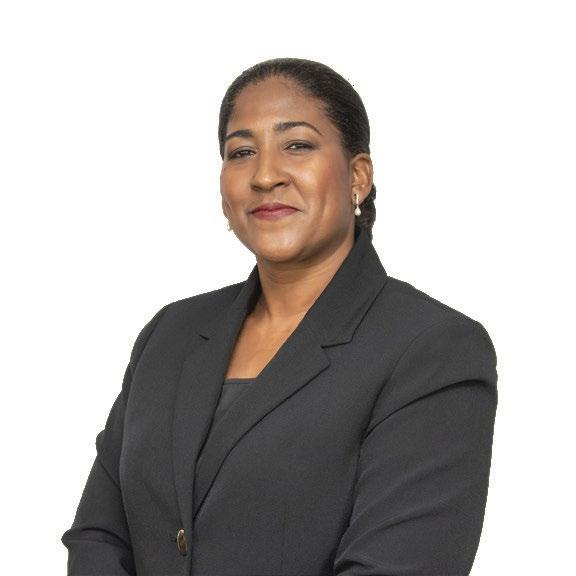
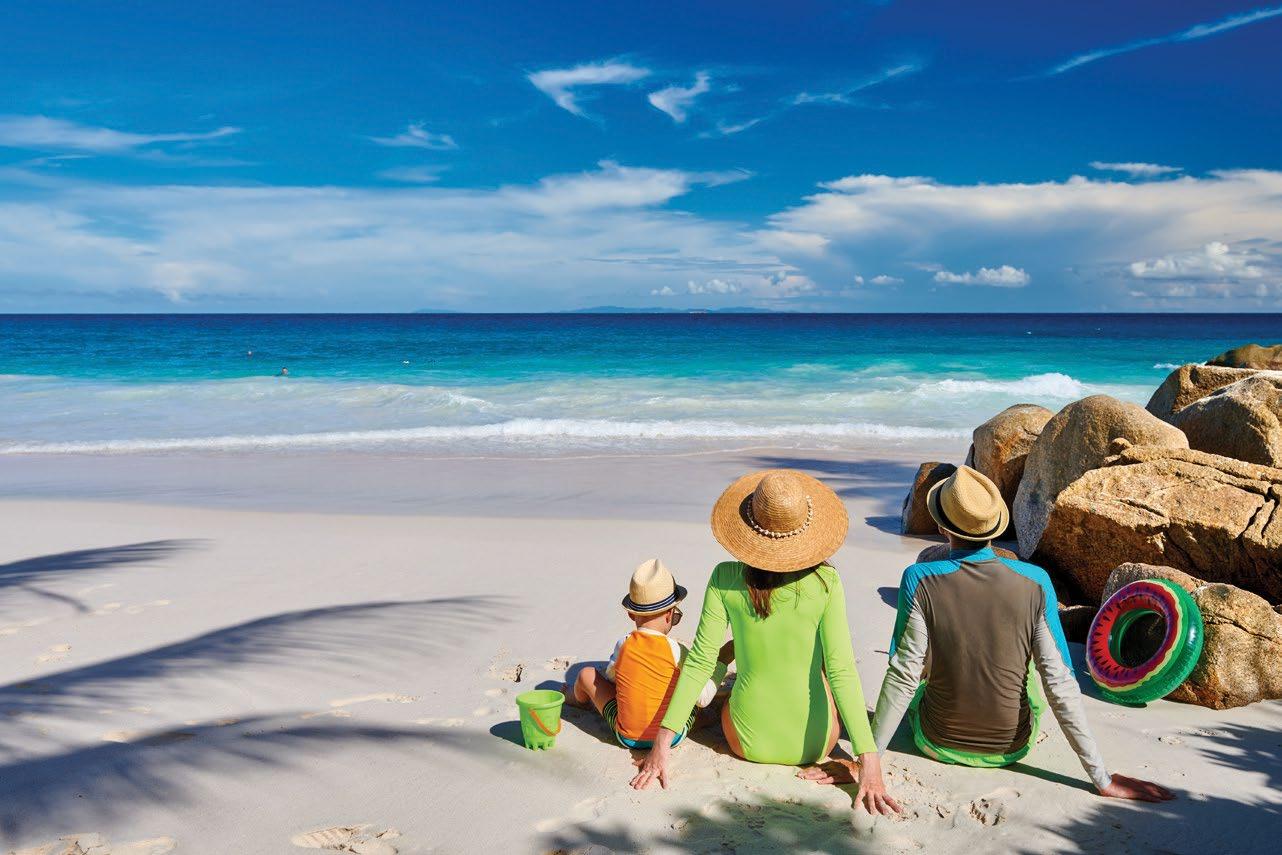
• Nuptial Agreements
• Divorce and Separation
• Dispute Resolution and Mediation
• Guardianship and Receivership Orders
• Financial Entitlement Advice
• Custody and Contact Arrangements
• Relocating Children of Separation
• Immigration and Property Guidance
For further information, please contact:
Chambers + 1 345 815 7417 spollard@hsmoffice.com
“In the midst of the challenges that a family breakdown presents, a collaborative and constructive approach is often the most cost effective way to move forward; both in terms of financial and emotional costs. It is always preferable to agree matters between yourselves, but where that is not possible, the Courts in the Cayman Islands can help to provide clarity and finality for your situation.”
– Louise Desrosiers, Senior Family Counseland accredited
mediator, Travers Thorp AlbergaIf you are considering separating, the first step is to talk with your partner directly in an attempt to negotiate the division of your assets and/or make proposals for the children of the family together. If you are able to agree on the terms of your separation before engaging a lawyer to draw up paperwork for you, the entire process is much more straightforward. If an agreement cannot be reached, you may approach a lawyer to assist with navigating the process and/or, if necessary, enlist the help of a mediator.
It is not possible to be granted a ‘no fault’ divorce in the Cayman Islands. Instead, the Petitioner must prove one of the following grounds of divorce: (a) adultery has been committed and petitioner finds it intolerable to remain married; (b) unreasonable behaviour; (c) desertion for two years; (d) two years separation with consent; or (e) five years separation. The Petitioner is the party whom has decided to commence divorce proceedings; the party whom is required to answer those proceedings is known as the Respondent. If adultery has occurred, you cannot apply for a divorce unless two years has passed since the marriage date, unless there is exceptional hardship. A party can file for divorce if they have been domiciled in the Cayman Islands within the preceding year or, if the person who is applying for a divorce is female, she has been ordinarily resident in Cayman for the past two years.
For non-Caymanians who separate, domicile and residence are legal concepts which may need to be defined, your legal status to remain on-Island may be impacted and issues such as where families will live may arise. It may therefore be advisable to seek help from a qualified immigration specialist before proceedings start.
The two documents required to commence divorce proceedings are: a petition that sets out the facts of the marriage and the grounds of the divorce; and a sworn affidavit whereby you
state that the petition is true and accurate. A certified copy of your marriage certificate will also be required. The petition is then filed with the Court and served on the Respondent. The Respondent will have 14 days to reply indicating whether they contest the divorce grounds (28 days if they are overseas). If the Respondent does not defend the divorce then the Court will prove the petition. Otherwise the case will be listed before a Judge, who will decide what happens next.
Mediation is a form of alternative dispute resolution which can avoid the expense and stress of litigation. A qualified mediator can guide the parties through the process. In the Cayman Islands, mediation is a necessary first step before financial proceedings can be progressed through the Court. Court-mandated mediation is free, but often parties will engage lawyers to assist. Mediation outside of the Court-mandated process must be paid for privately. It is also possible to engage in dispute resolution with a third party lawyer who is engaged to act as ‘judge’ to assist parties in reaching agreements, known as the ‘financial dispute resolution’ process. These collaborative approaches typically have a high success rate even where there are disputes between the parties.
Decisions may need to be made about whom children spend time with or where they live, their education, travel, holidays and other matters. If an agreement cannot be reached between parties, the Court may determine these issues on your behalf. You can ask the Court to make certain orders in respect of children even if you were never married. Whether a Court order is necessary should be considered at all times. If arrangements are not contested, practicalities can be set out in a written parenting agreement. Each case is different, but the children’s welfare is the paramount consideration.
If you want to find out more about the types of application that can be made to the Court concerning children, a helpful Court service guide can be found here: www.judicial.ky/general-
public/making-an-application-under-the-children-law.
Decisions may need to be made concerning the division of your home, property, pensions, savings, other assets and debts. Periodic maintenance payments may also be appropriate for children and spouses. Child maintenance is regular, reliable financial support that helps towards a child’s everyday living costs. Many parents choose to work together to agree the terms of any child maintenance arrangement. Maintenance can include school fees, health insurance premiums and the costs of extracurricular activities. When considering how finances should be arranged, the Court is guided by a number of factors starting with the welfare of any children of the relationship, and thereafter to other responsibilities, needs, and to the actual and potential earning power of each of the parties. There is no specific formula applied in the Cayman Islands in respect to maintenance calculations, such as those adopted by the UK, where a universal child maintenance calculator is used. Rather, it is open to the parties to agree an appropriate sum, or for the Court to decide.
Following a divorce or separation, one parent may need or wish to relocate to another country with the children. If the other parent disagrees, then permission from the Court must be obtained before that child can be removed from the Cayman Islands. This is known as a relocation application. Such cases
are often emotionally fraught and legally complex. Specialist legal advice should be sought at the earliest opportunity.

An amicable (non-contentious) divorce may cost around CI$5,000 in legal fees. The cost of a contentious (or nonamicable) divorce or separation will vary depending on the issues in dispute. Any form of dispute resolution will typically result in lower costs than a matter which remains fully contested. Legal aid may be available for parties who cannot afford a lawyer where domestic violence or child neglect arises. Further information can be found here: www.judicial.ky/generalpublic/applying-for-civil-legal-aid. If the parties do not qualify for legal aid, then they may seek free legal advice from Legal Befrienders Unit, which is operated by the Family Resource Centre. See page 215 for their contact details.

If you are in a difficult or dangerous situation and/or your wellbeing or safety is at risk, you should contact 911. Alternatively, the Cayman Islands Crisis Centre (CICC) provides a helpline 24/7 (Tel: (345) 943 2422). The CICC offers a walkin service for crisis intervention and the assessment of victims of family violence. The Court can make an order on application to protect you, your children and other connected persons. In serious situations, applications for a protection order can be made confidentially without notice being made to your spouse in the first instance.
Email: smccann@tta.lawyer
Direct: +1 (345) 949 0699
Mobile: +1 (345) 516 4911
DESROSIERS
Email: ld@tta.lawyer
Direct: +1 (345) 623 2535 Mobile: +1 (345) 516 2540
Email: dmclean@tta.lawyer
Direct: +1 (345) 623 2472 Mobile: +1 (345) 516 8618
LITIGATION - MEDIATION - DISPUTE RESOLUTION - LEGAL DRAFTING AND ADVICE


The Travers Thorp Alberga family team are highly experienced in all aspects of matrimonial law including divorce, residence and contact disputes, child and spousal maintenance, removal applications, interim and final financial provision, cross border asset tracing, pre and post nuptial agreements, private client and succession planning, wills, trusts and foundations.
MAIN : + 1 (345) 949 0699


Relationships break down everywhere, but for an expat who is married or in a civil partnership living in Cayman, where residency requirements are rigid, it is important to understand how a dissolution, annulment or even a separation can impact your ability to continue living here. If you have children, this is particularly crucial as you may have to leave the Island while your children stay here.
to remain (subject to various approvals) and be permitted to work until the children complete their tertiary education or their 24th birthday, whichever happens first.
If their last child reaches the age of 24 and the non-Caymanian parent has not obtained appropriate immigration permissions before then, then the parent must leave the Cayman Islands (according to the provisions of the law as presently drafted). However, such a parent will have an opportunity to apply for Permanent Residence pursuant to the points system, provided Cayman has been their home for more than eight years.
The length of time you and your spouse or civil partner have lived in the Islands and what implication that has on your term limit and applications for Permanent Residency, or the Right to be Caymanian.
If expat couples living in Cayman decide to split, the nonworking (previously) dependent spouse or civil partner may have no right to stay in Cayman. Residence, based purely on the presence of children, is not allowed by the Immigration (Transition) Act. Children in such circumstances can remain as approved dependents of the parent who holds a valid work permit or government contract and continue to attend full-time education until adulthood (as late as 24 if attending full-time university). However, the formerly dependent parent will likely only be able to remain if they obtain their own work permit (including through the Special Economic Zone regime) or government contract; or alternatively secure residency as a person of independent means. They may be permitted to remain as a visitor but doing so for more than 90 days can present difficulties, and permission to extend their stay is not guaranteed after a total of 182 days of physical presence in any 12-month period.
Where the former spouse or civil partner of a Caymanian is the mother/father of a Caymanian child, they may be allowed
If you qualify, you can seek Permanent Residence in your own right when you have been in Cayman for at least eight years. Further, if your spouse or civil partner is (or has become) a Caymanian, you can apply to be Caymanian when you have been married to, or in a civil partnership with, the person for seven years (whether or not the seven years have been spent in Cayman), subject to cohabitation requirements.
It is an offence for a PR applicant, whose application is pending, not to inform the authorities immediately of any change in an applicant’s marital or civil partnership status. Persons holding Permanent Residence (other than on the basis of Marriage or Civil Partnership to a Caymanian) are also required to file an annual declaration. It is also an offence punishable by a substantial fine and potential loss of immigration permissions for an RERC holder (other than on the basis of Marriage/Civil Partnership to a Caymanian) and their Dependant Spouse or Civil Partner, not to inform the Director of Workforce, Opportunities and Residency Cayman (WORC) of a change in marital/civil partnership status within six months of any dissolution or breakdown.
The dependant spouse or civil partner of a Permanent Resident can apply for their own Permanent Residency and Employment Rights Certificate (RERC) as the spouse/civil partner of a PR holder as soon as their spouse/civil partner is granted Permanent Residence. They do not have to wait the usual eight years of residency, nor take any tests subject to the points system. They are, however, free to apply for Permanent Residence in their own right, (and go through the normal process) if they have been living in Cayman for eight years. If they hold Permanent Residence and have been naturalised, they are also eligible to apply for the Right to be Caymanian after living in the Cayman Islands for 15 years (or five years following the date of Naturalisation).
Ideally, spouses and civil partners who qualify should consider applying for Permanent Residence in their own right once they have been legally and ordinarily resident for eight years. However, many people just carry on having their Residency and Employment Rights Certificate (RERC) tied to their spouses’ or civil partner’s Permanent Residency since there is no time limit on this grant.
A problem can arise when one of the spouses or civil partners is granted the Right to be Caymanian. At this point, the RERC holder/spouse/civil partner whose Residence is based on marriage or civil partnership to a PR holder must have their
immigration status in the Islands ‘regularised’ within 45 days, i.e. they must have their RERC changed to that of the 'Spouse/ Civil Partner of a Caymanian'. They may even (if they have been married or in a civil partnership for more than seven years) apply directly for the Right to be Caymanian based on marriage or civil partnership to a Caymanian.
If they fail to apply in time or dissolve the relationship, then as they are no longer married to or in a civil partnership with a Permanent Resident, their certificate becomes void. There will, in effect, be nothing to extend. This has caused a lot of


problems for couples/parents who then decide to separate.
One of the requirements in the Immigration Act is truthfully declaring in an affidavit that you have a stable marriage. If you cannot, then there may be no rights remaining for you in the law: your immigration standing may be in limbo and you may not be allowed to stay in the Cayman Islands unless you are granted permission to stay on the Island under other immigration law provisions.
The spouse or civil partner of a Caymanian is not automatically entitled to a work permit or even to reside in the Cayman Islands without applying for permission to do so. Unless they have been granted permission prior to the marriage or civil partnership, which has not yet expired, they must be granted a RERC (Residency & Employment Rights Certificate) based on marriage or civil partnership to a Caymanian. The law has now changed to make such RERCs permanent in nature as long as the relationship remains stable.
After seven years of marriage, the non-Caymanian spouse or civil partner can apply for the Right to be Caymanian. If a Caymanian also happens to be a BOTC (British Overseas Territory Citizen), their spouse or civil partner who holds a RERC can apply for Naturalisation as a BOTC by virtue of a connection with the Cayman Islands in as little as three years of residing here. Anyone resident five years after Naturalisation is
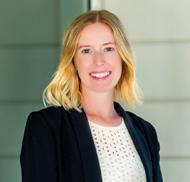


eligible to apply for the Right to be Caymanian.
The law also provides that the right of any RERC holder (as the spouse or civil partner of a Caymanian) forfeits the right to live and work in the Islands if the marriage or civil partnership breaks down within ten years of the marriage/civil partnership or if the couple are living apart and legally separated or the Board considers the relationship has otherwise broken down. In this case, WORC can then revoke a RERC. If revoked, then one of the ways the spouse or civil partner holding a RERC can stay on the Island is by being granted a work permit under section 38(7) of the Immigration (Transition) Act, and only for a period of three years (unless the marriage or civil partnership is first formally dissolved).
At the end of the three years, if you have passed your term limit of nine years, then the non-Caymanian spouse or civil partner must apply for Permanent Residence or may have to leave the Islands for one year to reset their term-limit clock. Without an application to the Cabinet, there is little leeway in the law. The only avenue for fighting this is on the grounds of human rights, and that process could be lengthy, costly, and uncertain.
on all areas of family law including:
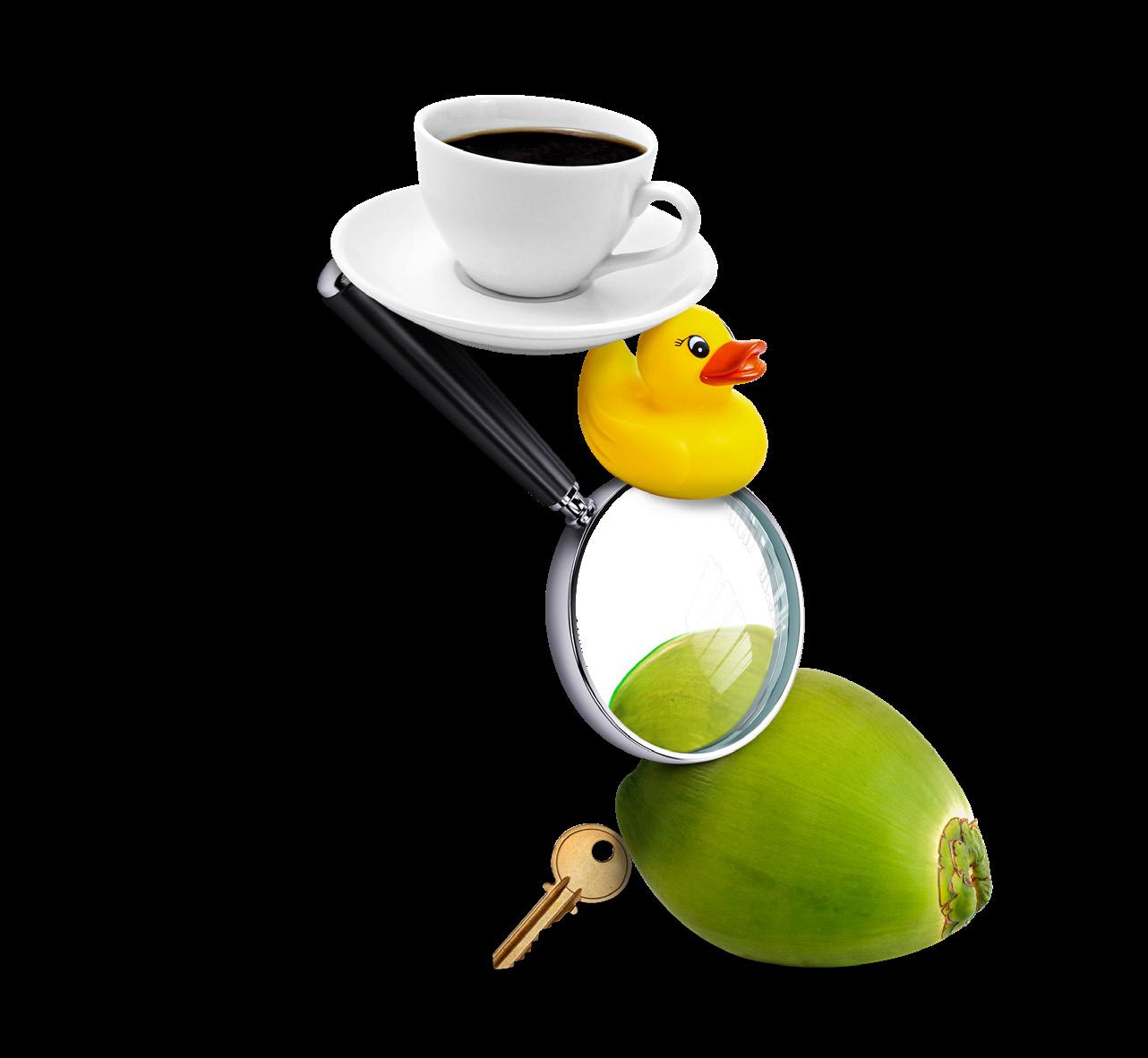
• Divorce/Separation
• Pre and Post Nuptial Agreements
• Child Residence and Contact
• Child Abduction and Relocation
• Child and Spousal Maintenance
• Domestic Violence
• Mediation
• Wills/Guardianship
Zephyr House, 122 Mary Street George Town, Grand Cayman
TOP TIP: If you are experiencing marital difficulties, please seek legal advice regarding your immigration status, as current legislation may not be supportive of those who cannot swear in an affidavit that they are in a stable marriage.
Parenthood is one of life’s greatest gifts, and with it comes great responsibility! Beyond providing the basic needs of keeping your child fed, clean and physically safe, parents need to take the necessary steps to ensure they can financially support their children from birth through to adulthood.

Financial security begins with sound financial planning. A 2022 report from the U.S. Department of Agriculture estimates it costs an average of US$286,000 to raise a child from birth until independence – and that does not account for money spent on education. While this figure can vary depending on specific needs, living arrangements and lifestyle – the truth remains that raising a child is a huge financial commitment. Planning for the future affords parents some peace of mind.


Parents-to-be would benefit from taking a bigger picture look at their financials once a year. Performing a financial ‘wellness check’ can help you stay on top of spending and increase your savings rate. Assess what steps can be taken to make the next year more productive and successful. Evaluate your housing situation, calculate your net worth, analyse your investment strategy, track your average monthly spending, and consider how these figures align with your financial goals.
Enlisting the help of a financial advisor from a specialist firm can give you a better understanding of your present financial position and help synthesise this information into a comprehensive and realistic plan of action. See ‘Make a Plan’ below for more details.
Your priorities shift massively once you become a parent. Everyday expenses add up more quickly, while future investments, such as university and retirement, loom overhead. Taking the time to identify goals offers parents some much-needed financial direction.
Consider what you want to achieve for your family in the short term and long term and ask yourself some grounding questions: Are these goals feasible without having to spread yourself too thin? If not, are there spending changes that can be made in other areas to accommodate said goals? How do these goals presently line up against any fixed expenses? Have you allowed for your needs to take precedence over wants? All things considered, you can then prioritise your goals. While goals naturally evolve over time, keeping them well-defined is key for forging the future you desire.
Armed with personal data and a list of aspirations, you can now formulate a workable financial plan for your family. This can be
as simple or as complex as you wish, however, parents with an already overburdened schedule will likely respond better to a simplified approach. The 50/30/20 budget rule is popularly employed and for good reason: instead of dozens of line items, you can divide your money into three manageable buckets.





50% of your budget should go towards your fixed monthly costs. These include bills and any instances of debt, such as car loans, mortgage, insurance and pension payments. In short, these are payments which you can anticipate every month.
Your discretionary money can be spent on your ‘wants’ (within reason). Think: life experiences, supporting charities, cinema tickets, family meals out, etc. Depending on your fixed costs
and savings goals, the percentage of money allocated to discretionary expenses can be lowered; however, it is important to give yourself some freedom, if only to refresh good habits.
This bucket focuses on the future and reflects your personal savings goals. However, building an emergency fund to keep your family afloat during periods of financial hardship should be a priority. Think: out-of-pocket health emergencies, major home and car maintenance, sudden unemployment or an unprecedented crisis such as the COVID-19 pandemic. The size of your emergency fund depends on several factors, but ideally you will have the equivalent of 3-6 months’ worth of income set aside. Once an emergency fund is squared away, you can then save towards other goals, such as sending your child or children to university.
As your savings start to build, you will be able to use the money for things like making a deposit on a house for your family or beginning to contribute more to your pension, enabling you to be more financially secure in the future. Many banks and financial planners will be able to give you advice and guidance on how your savings can be put to work to generate additional income or capital to help you further your short-term and long-term goals.

A good financial plan also considers what happens to your money after you pass away. New parents should update their will, trust and beneficiary designations as soon as their child is born to reflect changing wishes. For more information on wills and estate planning, see the article opposite.
A financial toolkit can help actualise your financial plan and give you more control over your income. Included in your toolkit are your ‘spending tools’, which are your methods for making payments and include cash, debit and credit. There are certain
situations where one may work better than the other – however, people usually use a debit card as their default payment method.
Most banks on-Island offer the tools for you to manage your income in a way that reflects your financial plan. You can set up standing orders under different headings and set the amount and frequency so each month your income is automatically divided into fixed costs, discretionary costs, and savings. You can set up external standing orders for fixed monthly payments, including credit card bills, car payments, water, electricity, etc.
Financial Advisors and wealth management firms, such as Liberty Wealth, offer the tools for you to manage your savings and investments in a way that reflects your financial plan. While the onus is on the individual to determine their own financial needs, financial advisors can offer the planning and tools to provide customers with a clear understanding to secure their family’s financial future. Turn to page 214 for a list of Cayman's financial advisor firms.
Would you like to be free from the crushing pressure of debt? Do you want more financial stability and freedom? Are your finances causing significant stress in your life right now?
If so, there is hope. Dave Ramsey's '7 Baby Steps' is a money management plan designed to help you get out of debt, and then save money so that you can get to the point where you can start building wealth. Below is a summary adapted from his book, 'Baby Steps Millionaires: How Ordinary People Built Extraordinary Wealth and How You Can Too', that may be just what you need to help you achieve financial success.
Save $1,000 for your starter emergency fund
Clear all debt except for the mortgage starting with the smallest to largest
Save 3 to 6 months of expenses for emergencies in a fully funded emergency fund
Invest 15% of your income for retirement
Save for your children’s college fund
Pay off your house mortgage early
Build wealth and give generously
If you pass away without leaving a will (known as dying 'intestate'), your estate will be distributed between your beneficiaries in accordance with the applicable laws. Your family members will have to follow the 'clearing-off' principles to determine who is entitled to become the representative of your estate, and then actively administer the same and distribute it amongst your beneficiaries according to criteria set out in the statutes.
The Cayman Islands have broad testamentary freedom, which means you are effectively allowed to leave your assets to anyone as you please. However, certain countries and/or states that operate under civil law have strict rules as to who benefits from all or part of your estate, irrespective of whether you have a will.
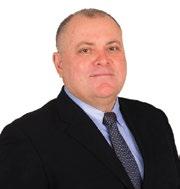
If you wish, you can decide who to appoint as the representative of your estate. Some of the benefits of having a local representative who is familiar with the Cayman Islands legal system may inlcude saving your estate from significant expense, not to mention alleviate the stress placed on bereaved loved ones who may otherwise find themselves having to negotiate the requirements of a country and legal system with which they may not be familiar.
Proper estate planning can limit your estate’s exposure to certain taxes upon your death. Long-term residents often incorrectly assume that being domiciled in the Cayman Islands (which does not have estate taxes) automatically means that their estates and assets located in other countries are exempt from jurisdictional taxation rules. It can be an incredible and unnecessary shock to beneficiaries to suddenly have part (or all) of an estate subject to heavy taxes. As such, in certain circumstances, it is both smart and necessary to draft multiple wills for each jurisdiction within which your assets are located or consider the creation of certain trust structures.
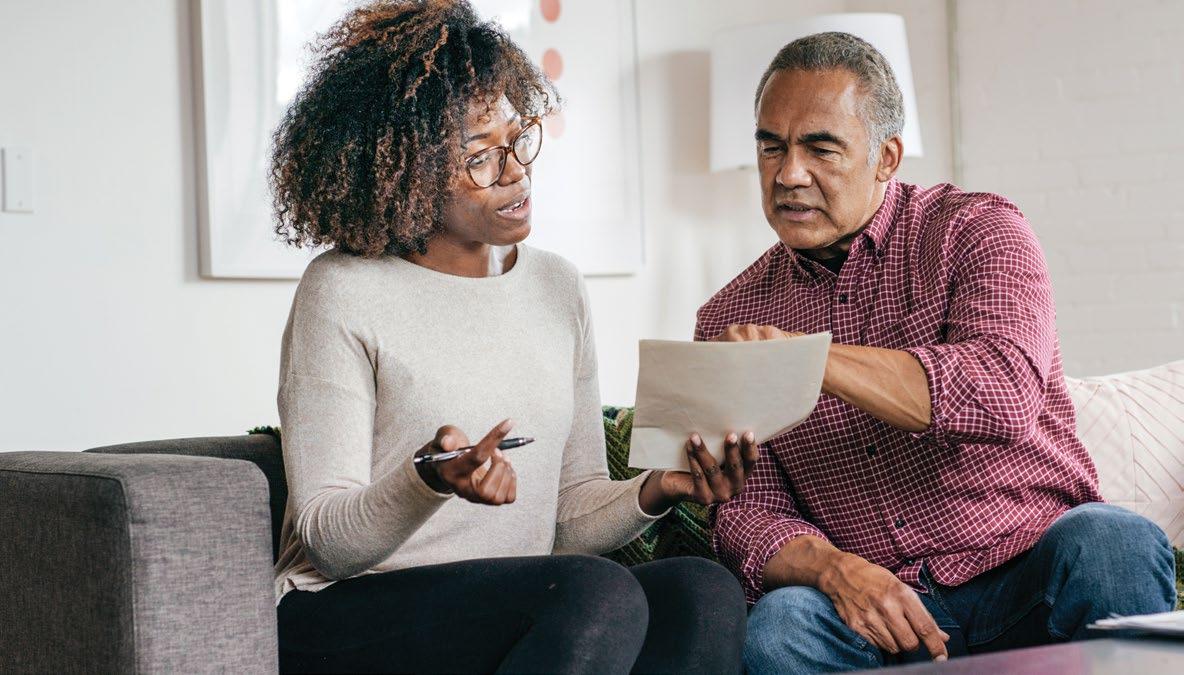
Take advice from an attorney to make sure your will is unambiguous, clearly sets out your wishes and meets legal requirements. Attorneys can also provide additional services such as the retention of your will. Remember that the beauty of a will is that it can be rewritten or amended at any time, assuming you meet the legal requirements to do so. Review your will periodically to make sure it still reflects your wishes.
Consider what will happen to your children if you and your
spouse or civil partner were to pass away suddenly. Who will care for them and how will your estate continue to fund them? Use your will to appoint your child’s or children’s guardians and create structures which empower the trustees of your estate to invest, apply and manage your assets in the best interests of your child or children. Drafting a will can ensure that your beneficiaries’ needs are tended to with the same level of careful management of your estate.
The Health Care Decisions Act provides a framework for advance healthcare directives (better known as living wills) about medical treatment before a person becomes terminally ill or mentally impaired and is no longer able to make such decisions.
This Act covers matters such as do-not-resuscitate orders and restrictions on the type of treatment to be administered. Speak with your local attorney about this legislation and take steps to ensure your wishes are properly recorded. It will ease the emotional burden placed on relatives and help guide healthcare providers when end-of-life decisions need to be made.
A letter of wishes sets out additional, non-binding requests and generally lists the items that we take for granted, but which are only known to us. Simple instructions include where your life insurance policies, annuities and pension plans are held.
Setting this out in a letter of wishes will save your representative hours of digging through papers and making telephone calls trying to determine where your assets are held. Giving precise details can save your estate from potential losses due to unidentified assets. Your attorney will ask you to fill out an instruction sheet with the following information:
Family Information
What is your full name, date of birth and home address? What is the full name of your spouse and children, their dates of birth and addresses? Were there any previous marriages, or children from that previous marriage?

• Names and addresses of your proposed executors and your relationship with them.

• Names and addresses of guardians to your children, if your children are young.
Gifts
• Pecuniary bequests – These are legacies of cash that you may want to leave to someone. Include their names, addresses and the specific amount.
• Legacies of property – Identify the specific item/property that you want to leave someone, as well as their full name and address.
• Beneficiaries of the rest of your estate – This is whatever is remaining in your estate and can be given to one person, or it can be divided equally or unequally between several people. This is called the ‘residue’ of your estate.
• Substitute beneficiaries of your estate – Name a substitute to inherit your estate should the named beneficiaries die before the estate can be given to them.
• Age of inheritance – Specify an age when your beneficiaries inherit the residue of your estate. This is only usually relevant if your beneficiaries are very young and/ or still minors at the time of you writing your will.
• 'Worst case scenario’ gift – Name a charity, family member or friend who will inherit your estate if everyone you have named in your will dies and cannot inherit it. If you have named someone in your will and they die before you, you need to specify if you would like the gift to pass to their children.
The final portion of the will requires you to list your assets, liabilities (mortgages and outstanding debts), any life insurance policies you may have, as well as the details of your pension plan. You will need to estimate a value for each of these and indicate whether they are owned by you alone or shared with a spouse, civil partner or other person.
To Pay for Funeral Expenses: A funeral and burial or cremation can be very costly. You don’t want to leave your family to worry about money on top of the emotional turmoil of your death.
To Cover for Your Children’s Expenses: If you have young children, you will want them well taken care of and able to afford a good education all the way up to university.
To Replace Your Spouse’s Income: If you have always relied on two incomes to afford your lifestyle, then replacing your spouse's income will be vital.
TOP TIP: Dying without a will can cause significant stress and heartache for those left to administrate your estate. Tying up your affairs neatly and with the advice of a local attorney is important. Don’t put it off!
Relationships do come undone and they do not always work out. Often we view this as a personal failure rather than an opportunity, and this paradigm-shifting guide will steer you away from a bitter end and toward a new life that’s empowered and flourishing.

Dave Ramsey's book offers strategies for changing our attitude toward personal finances. It covers such topics as getting out of debt, the dangers of cash advances, and keeping spending within income limits.

Parents need help to confidently guide their children through a divorce and then raise them skilfully in two homes. The authors, both trusted divorce and co-parenting coaches, provide the road map for all family members to safely navigate the difficult emotional terrain ahead.

Mint tracks your expenses and places them in budget categories. You set limits for these categories, and Mint lets you know if you’re approaching those limits. Free on Android and iOS.
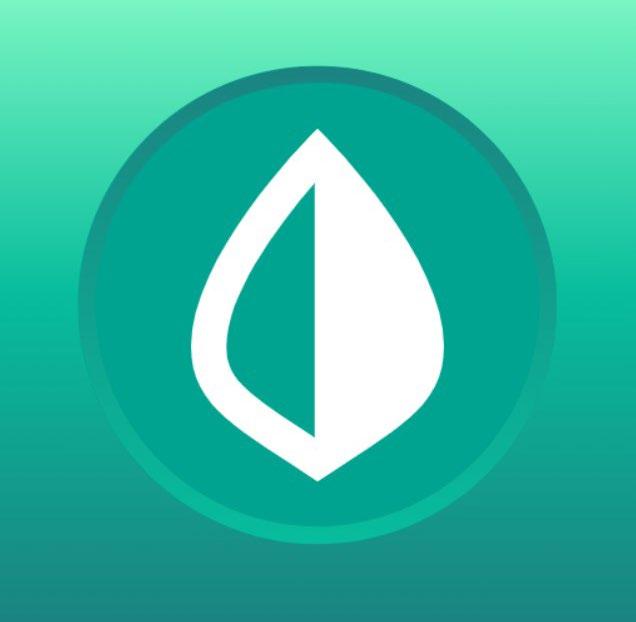
This book tells the rhyming tale of twin brothers Rock, a spender, and Brock, a saver. They learn the invaluable lesson that saving nothing is a big mistake, and that saving even little amounts will add up fast. It's never too late to start saving!

This is the thrilling story of Carrie and Dan, who find themselves caught in the path of a major hurricane. Along the way, they will learn how hurricanes form, how scientists track and study these storms, and what people can do to protect themselves from the wind and flooding.


A sensitive and kind guide for changing families that helps young children understand what divorce means, why it happens, and how to best cope with everyone's feelings. For the past 25 years, this book has helped families learn to talk to each other about divorce and separation. The Lingokids app, which was created with original content from Oxford University Press, has been voted #1 Kids Learning App for kids 2-8 years old. US$5.99/Month if on a yearly plan.
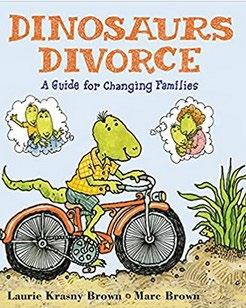
Banks
Butterfield Bank (Cayman) Limited
PO Box 705, 12 Albert Panton Street, (GT), Grand Cayman KY1-1107. Tel: (345) 949 7055 Email: info.cayman@butterfieldgroup.com Web: www. butterfieldgroup.com Branches & Banking
Hours: Butterfield Place Banking Centre (GT), Monday-Thursday 9am-4pm, Friday 9am4.30pm; Camana Bay (SMB), Monday-Friday 9am-4pm; Midtown Plaza Banking Centre (GT), Monday-Friday 9am-4pm.
Cayman National Bank
PO Box 1097, 200 Elgin Avenue (GT), Grand Cayman KY1-1102. Tel: (345) 949 4655
Email: cnb@caymannational.com Web: www. caymannational.com Branches & Banking
Hours: Elgin Ave (GT), Kapok-Camana Bay (SMB), Cayman Brac, Centennial Towers (WB) and Countryside Shopping Village (Savannah), Monday-Thursday 9am-4pm and Friday 9am4.30pm; Little Cayman, Mondays and Thursdays 9am-11.30am and 12pm-2pm.
CIBC FirstCaribbean
PO Box 68, 25 Main Street, (GT), Grand Cayman KY1-1102. Tel: (345) 815 2126 Web: www.cibcfcib. com Branches & Banking Hours: Main Street (GT) and Regatta Office Park, West Bay Road (SMB)
Monday-Thursday 9am-4pm and Friday 9am4.30pm.
Proven Bank
PO Box 914, Grand Cayman KY1-1103. Tel: (345) 949 7822 Email: info@provenbank.com Web:
www.provenbank.com Branches & Banking
Hours: Cayman Financial Centre, 36A Dr. Roy’s Drive (GT), Monday-Thursday 9am-4pm and Friday 9am-4.30pm.
RBC Royal Bank PO Box 245, 24 Shedden Road (GT), Grand Cayman KY1-1104. Tel: (345) 949 4600 Web: www.rbc.com/caribbean.html Branches & Banking Hours: 24 Shedden Road (GT), Monday-Friday 9am-3pm; Red Bay Branch, 53 Shamrock Road (next to Grand Harbour), Monday-Friday 10am-6pm and Saturday 9am-3pm.
Scotiabank
PO Box 689, 18 Forum Lane, Camana Bay, Grand Cayman KY1-1107. Tel: (345) 949 7666 Web: www.scotiabank.com/ky Branches & Banking Hours: Scotia Centre, Camana Bay and South Sound (across from Grand Harbour) Monday-Thursday 9am-4pm and Friday 9am4.30pm.
Liberty Wealth Fort 51 (above Bluestone Lane Cafe) Fort Street, GT. Tel: (345) 516 2695 Email: georgie@ libertywealth.ky Web: www.libertywealth. ky A fee-only, comprehensive wealth management firm, offering financial planning and investment management. Services include: retirement and estate planning, education funding and risk management.
Proven Wealth
The Fidelity Financial Centre 660 West Bay Road, SMB. Tel: (345) 769 5352 Web: www. provenwealth.com Provides a range of financial planning services, premium savings products, investment solutions and retirement programmes.
RF Bank & Trust
Fidelity Financial Centre (3rd floor), 1 Gecko Link, SMB. Tel: (345) 746 6010 Email: info@ rfgroup.com Web: www.rfgroup.com Offers financial advice on funding children's education, retirement planning, wealth preservation and targeting shorter-term goals.

Custom Closets
209 Dorcy Drive, Industrial Park, GT. Tel: (345) 623 5000 Ext. 225 Email : smartconnect@ brandsourcecayman.com Web: www. brandsourcecayman.com Offers tailored organisation solutions for closets, kid’s playrooms, garages, home offices, pantries, laundry rooms and entryways, along with other organisation accessories.
Minerva Cayman
13 Genesis Close, Genesis Building, GT. Tel: (345) 746 9999 Email: contact@minerva.ky Web: www.minerva.ky A lifestyle management company whose services include: personal assistants, house management, staff training and etiquette consultancy.
Appleby
60 Nexus Way (9th floor), Camana Bay. Tel: (345) 949 4900 Email: cayman@applebyglobal.com Web: www.applebyglobal.com Estate planning.
Bedell Cristin Suite 5305 (3rd floor), 18 Forum Lane, Camana Bay. Tel: (345) 949 0488 Web: www.bedellcristin. com Wills and estate planning.
Boddens
Governors Square, Lime Street Bay Ave. Tel: (345) 943 0303 Email: hello@boddens.ky Web: www.boddens.ky Wills and estate planning.
Broadhurst LLC
54 Edward Street, Monaco Towers, GT. Tel: (345) 949 7237 Email: info@broadhurstllc.com Web: www.broadhurstllc.com Family law, wills and estate planning.
Campbells
Willow House (4th floor), Cricket Square, GT. Tel: (345) 949 2648 Email: campbells@ campbellslegal.com Web: www.campbellslegal. com Family law and estate planning.
Carey Olsen
Willow House, Cricket Square, GT. Tel: (345) 749 2000 Email: cayman@careyolsen.com Web: www.careyolsen.com Family law and estate planning.
Cayman Family Law
Zephyr House (ground floor), 122 Mary Street, GT. Tel: (345) 746 5290 Email: info@caymanfamilylaw.com Web: www. caymanfamilylaw.com A boutique law firm specialising exclusively in family law. They offer expert advice and representation in all areas of divorce, children and family law.
Collas Crill
Willow House (2nd floor), Cricket Square, GT. Tel: (345) 949 4544 Email: cayman@collascrill. com Web: www.collascrill.com Family law, wills, probate and estate planning.
Conyers
KPMG Building, Cricket Square, GT. Tel: (345) 949 4544 Web: www.conyers.com Expertise in the areas of company and commercial law, commercial litigation and private client matters.
Hampson and Company
Apollo House East (4th floor), Mary Street. Tel: (345) 623 7788 Email: info@hampsonandco. com or info@hampsonscorporate.com Web: www.hampsonandco.com Litigation in family law proceedings.
HSM Group
68 Fort Street, GT. Tel: (345) 949 4766 Email: info@hsmoffice.com Web: www.hsmoffice.com
Family law, wills and estate planning.
Maples Group
Ugland House, South Church St, GT.
Tel: (345) 949 8066 Email: info@ maples.com Web: www.maples.com Estate planning.
McGrath Tonner
Genesis Building (5th floor), Genesis Close, GT.
Tel: (345) 949 2740 Email: info@mcgrathtonner. com Web: www.mcgrathtonner.com Family law, wills and estate planning.
Mourant
94 Solaris Avenue, Camana Bay. Tel: (345) 949 4123 Email: info@mourant.com Web: www. mourant.com Estate planning.
Nelsons
The Grand Pavilion, 802 West Bay Rd. Tel: (345) 949 9710 Email: info@nelsonslegal.com Web: www.nelsonslegal.com.com Family law, wills and estate planning.
Ogier
89 Nexus Way, Camana Bay. Tel: (345) 949 9876 Email: cayman@ogier.com Web: www. ogier.com Estate planning including wills.
Priestleys Attorneys-at-Law
Caribbean Plaza (2nd floor), West Bay Road. Tel: (345) 946 1577 Email: info@priestleys.ky Web: www.priestleys.ky Family law, wills and estate planning.
Ritch & Conolly Attorneys-At-Law
Queensgate House (5th floor), South Church Street. Tel: (345) 949 7366 Email: info@rc.com. ky Web: www.rc.com.ky Family law, wills and estate planning.
Stuarts Walker Hersant Humphries
Kensington House, 69 Dr. Roy’s Drive, GT. Tel: (345) 949 3344 Email: info@ stuartslaw.com Web: www.stuartslaw.com Wills and estate planning.
Travers Thorp Alberga
Harbour Place (2nd floor), 103 South Church Street, GT. Tel: (345) 949 0699 Email: info@ traversthorpalberga.com or mmyers-khouri@ traversthorpalberga.com for Estate Planning and ldesrosiers@traversthorpalberga.com for Family Law Web: www.traversthorpalberga. com.
Walkers
190 Elgin Ave, GT. Tel: (345) 949 0100 Email: info@walkersglobal.com Web : www. walkersglobal.com Estate planning.
Immigration Professionals
Affinity Recruitment Ltd.
Tel: (345) 943 2020 Email: info@affinity. ky Web: www.affinitycayman.com.
Baraud
Tel: (345) 945 1781 Email: info@baraud.com Web: www.baraud.com.
CML Immigration Services
Tel: (345) 949 1345 Email: cml@cml.ky Web: www.cml.ky.
HSM Chambers Attorneys-at-Law
Tel: (345) 949 4766 Email: njoseph@hsmoffice. com Web: www.hsmoffice.com.
Expertise Group
Tel: (345) 746 5260 Email: dani@expertisegroup. com Web: www.expertisegroup.com.
Invenio
Tel: (345) 769 7000 Email: cayman@invenio-
global.com Web: www.invenio-global.com Immigration support specialists.
McGrath Tonner
Tel: (345) 623 2740 Email: info@mcgrathtonner. com Web: www.mcgrathtonner.com.
OWC HR & Immigration Services
Tel: (345) 527 1546 Email: hr@owcservicesltd. com Web: www.owcservicesltd.ky.
Legal Befrienders
Tel: (345) 945 8869 Offers free legal advice (on all types of legal matters) Walk-in clinic at 87 Mary Street, Apollo House West, (2nd floor), GT, Tuesdays 5pm-6.30pm. Phone line Tuesdays 5pm-7pm.
Insurance Providers
Aon Risk Solutions (Cayman) Ltd.
Tel: (345) 945 1266 Email: aoncayman@aon. com Web: www.aoncayman.com.
Bogle Insurance
Tel: (345) 949 0579 Email: service@bogleins. com Web: www.bogleins.com.
Caribbean Alliance Insurance Co. Ltd.
Tel: (345) 949 9744 Web: www. caribbeanalliance.com.
Cayman First Insurance Company Ltd.
17 Vibert Bodden Drive, off Shedden Road Tel: (345) 949 7028 Web: www.caymanfirst.com.
Cayman Insurance Centre (Insurance Brokers)
Tel: (345) 949 4657 Email: info@cic.com.ky Web: www.cic.com.ky.
CG BritCay (Agent for Coralisle Life Assurance Company Ltd.)
Tel: (345) 949 8699 Web: www.cayman. cgcoralisle.com.
CINICO
Tel: (345) 949 8101 or (345) 948 8101 (Brac) Web: www.cinico.ky.
Insurance Company of the West Indies
Tel: (345) 949 6970 Email: cayman@icwi.com Web: www.icwi.com/cayman.
Island Heritage Insurance
Tel: (345) 949 7280 Email: customercare@ islandheritage.com.ky Web: www. islandheritageinsurance.com.
Michael Webster - Life Agent
Tel: (345) 925 5433 Email: michael. webster@cic.com.ky Web: www. michaelwebsterlifeinsurance.com.
Sagicor
Tel: (345) 949 8211 Email: cy_infocayman@ sagicor.com Web : www.sagicorcayman.com.
Saxon Insurance
Tel: (345) 947 2966 Email: info@saxon.ky Web: www.saxonmg.com.
Vanguard Risk Solutions
Tel: (345) 949 5836 Email: info@vrscayman. com Web: www.vrscayman.com.




You might be surprised to learn just how common infertility issues are. According to the Centers for Disease Control and Prevention, 12% of Americans (7.3 million people) are infertile. In England, one in seven couples have difficulty conceiving. So, if you are having problems, then know you are not alone.
The timings for when to see a fertility specialist depend largely on your age and how long you’ve been trying to conceive. It is generally recommended that you see someone right away if:
•You’re under 35 and have been trying to conceive for 12 months or more
•You’re between 35 and 40 and have been trying to conceive for six months or more
•You’re 40 or over
•You already know you have fertility issues or you don't have a partner but wish to become a parent.
One thing that is important to talk about is the emotional rollercoaster that couples go through when dealing with infertility. The hormones, poking, prodding, waiting and crushing disappointment (if it fails) can test even the most resilient and optimistic person. There are also the costs to consider. Fertility treatment is often not covered by insurance and it can be very expensive. An initial round of IVF in the US can cost at least US$15,000, possibly more depending on the clinic, where it’s located and the medical issues. Then you have flights and hotel costs on top of that, not to mention time off work.
The Cayman Fertility Centre offers all levels of fertility testing and treatments. This is a good alternative to going abroad, as local IVF starts at US$6,750 and you do not need to travel or take as much time off work. Success cannot be guaranteed however, and many couples need to be prepared to have more than one round of IVF before they consider other options.
Your OB/GYN or fertility doctor will want to try and establish why you are not conceiving. In your initial consultation, they will discuss testing options (physical exam, blood tests, sperm analysis and then imaging tests). Your doctor will then work out a plan, with your agreement, for which tests to do. They will need to test both you and your partner and often couples go to the initial visit together.
Female fertility testing often begins with a medical examination, an ultrasound and a series of blood tests. A basic gynaecological exam and an ultrasound are done to rule out polycystic ovaries, ovarian cysts, fibroids or uterine polyps, among other things. Blood tests such as anti-müllerian hormone (AMH) can tell you how many eggs you have, and other tests are done to make sure you are in good health to carry a pregnancy. Another step is to check if the fallopian tubes are open or blocked. There are two tests that can show this: the Hysterosalpingography test or the Sonohysterosalpingography test and, if the results are abnormal, this may be treated with IVF or laparoscopy. In the latter case, a small incision is made through the belly button and in two other places to examine the abdomen. This test is useful for ruling out endometriosis, if the tubes are blocked, and if there are adhesions or fibroids.

Male fertility tests start with a simple semen analysis. Further tests might include a general physical exam by a Urologist and blood work to check hormone levels.
Other fertility tests involve both partners and might include genetic tests to look for inherited disorders, especially if recurrent miscarriages happen.
Insurance companies are fairly clear on the fact that they consider fertility testing and fertility treatments as 'off plan' and they do not cover them. What they are less clear about is the possibility that health insurance companies may substantially limit the coverage of the resulting pregnancy and birth if that pregnancy has come about via fertility treatment.
Ovarian Stimulation and Insemination OB/GYNs talk of the 'first tier' of fertility treatments being ovarian stimulation and insemination. This usually involves you taking either oral or injectable medicines to stimulate the follicles of your ovaries to release eggs. This process needs to be monitored carefully with both vaginal ultrasounds and blood tests. The timing of ovulation or release of the egg can be controlled using an injection hormone. At this point, the doctor will ask the male partner for his sperm, which will then be ‘washed and concentrated’ and inserted via a very thin tube directly inside the uterus; a technique called ‘Intrauterine Insemination’ (IUI). This procedure, which is similar to a pap smear, should not be too uncomfortable. It takes about five minutes and you can return to regular activity afterwards. The 'two-week wait' for the results of your pregnancy test is the hardest part.
In-Vitro Fertilisation (IVF) This is the next option if IUI does not work (or a first option for some people). Reasons to go straight to IVF include severe cases of male infertility, poor ovarian reserve, blocked fallopian tubes, an egg donor is being used, or a surrogate is needed. Once you have decided to consider IVF, finding the right clinic for you may require some research. Cayman Fertility Centre is a full-spectrum clinic providing the latest IVF technology and is the only local practice that offers IVF.
The cost of IVF varies significantly depending on the country and the clinic. You can pay as little as US$6,750 at clinics in Cayman, Barbados and Jamaica, whereas treatment in America starts at around US$15,000 and can go up to US$50,000+ for top clinics in larger cities.
There are five major steps in the IVF process. These are:
1) Ovarian stimulation
2) Egg retrieval and sperm collection
3) Fertilisation and embryo culture

4) Embryo transfer
5) Hormonal support of the pregnancy and pregnancy test.
You may also want to consider the additional step of Preimplantation Genetic Testing. This is where the DNA of an embryo is screened for abnormal chromosomes. Embryos with abnormal chromosomes often end up in a failed treatment cycle, a miscarriage, or the child may have a condition such as Down Syndrome.
If neither of these options is possible, there are some alternative routes available:
• Egg Donation with IVF: If a woman is unable to use her own eggs for IVF, finding an egg donor can be an effective solution.
• Egg Freezing: Women who might want to have children sometime in the future, or women who need treatment for cancer, for example, can freeze their eggs for later use.
• Gestational Surrogacy: This is when a surrogate carries a baby she is not biologically related to – so the sperm and eggs come from the intended parents or an egg donor. The cost of surrogacy can accumulate and often exceed US$100k.

Acupuncture for Fertility
There is a large amount of evidence which supports the idea that acupuncture and Traditional Chinese Medicine can help improve the success rate for fertility treatments.
Acupuncture can help improve the quality of eggs and sperm, regulate hormones, improve blood flow, regulate the immune system and reduce stress. All of these factors together improve the chances of success for IUI, IVF and frozen embryo transfers.
Please see page 235 for a list of providers.
Preparing for the arrival of your new baby is an incredibly exciting yet equally overwhelming task. Thankfully you can pick up everything you need in Cayman’s baby stores; from big items such as strollers, cribs and baby baths to daily essentials like bottles, pacifiers, clothing, toys and more. There's also a booming second-hand market – via friends passing things on, thrift stores or forums like Ecaytrade.com and Hope of Cayman Buy & Sell on Facebook. Things on these sites can go quickly though, so you’ll need to move fast to snap up a bargain!
Get a head start on your baby’s nursery by opting for a cot that will suit all décor and room themes. All cots sold in the US meet established US and EU safety standards. There should be no more than two fingers-width of gap between the mattress and the edge of the crib. You will also need a bassinet or portable Moses basket for the first 3-6 months. For safety reasons, mattresses should always be bought new. Bedroom sets can be purchased from Bedside Manor, Little Coconuts, Living.ky & Tomlinson Furniture.

With so many choices on the market, parents often feel overwhelmed when it comes to picking a stroller. From travel systems, umbrella strollers, jogging strollers and 4WD strollers, the choices may seem endless. The most important factor is safety – make sure it has a five-point harness. Secondly, consider how you will be using your stroller in Cayman. Will you be walking a lot and on what kind of terrain? Is it easy to collapse and get in and out of the car and will it adapt to your child's needs as they grow? Strollers can be purchased from Little Coconuts & Living.ky.
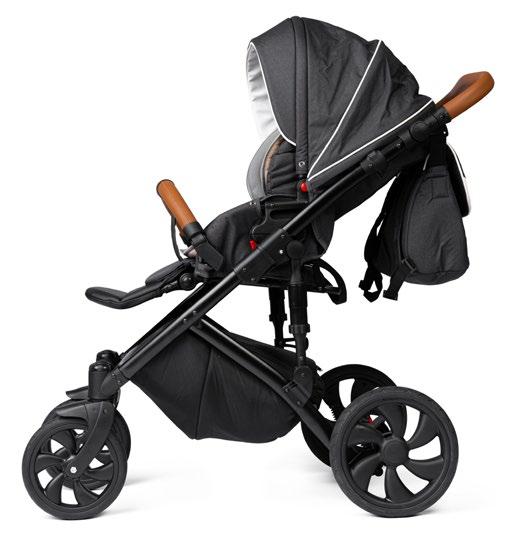
One of the most important purchases you’ll make. It’s really important that the car seat is installed as per the manufacturer’s instructions. Children should be rear-facing until 24 months, and it is best to buy new car seats rather than second-hand. Make sure the car seat is fitted – and you know how to get it in and out of the car – several weeks before your due date, just in case! Car seats can be purchased from Little Coconuts & Living.ky.

It can be a challenge to change a wiggly newborn, so a well-padded and wipe clean or washable surface is a must. Look for a stable model with safety straps. Changing tables that incorporate drawers and other storage areas are useful for grabbing supplies with one hand (while the other holds the baby!) and for keeping the area nice and organised. Changing tables can be purchased from Bedside Manor, Little Coconuts & Living.ky.



A baby bouncer can be a life-saver for busy parents! Pop your little one into the bouncer to free up your hands to make a bottle, cook, take a shower or enjoy a cup of tea! There are numerous options available including models that gently rock the baby, play music and have toy bars. Always ensure your child is strapped in. The American Academy of Pediatrics recommends that baby bouncers should always be left on the floor—never on an elevated surface such as a bed or table. Bouncy chairs can be purchased from Bedside Manor & Little Coconuts.
Top Tip Other important items to purchase, that can be easily bought in Cayman’s baby stores, include: bottles, breast pump, thermometer, first aid kit, nappies, nappy cream, baby wash and pacifiers. See page 236 for a list of stores.
Health professionals recommend that babies practise tummy time several times a day to help them develop their neck, shoulder, and back muscles, while also improving their motor skills. A play mat provides little ones with a soft place to lay as they try to push up and a comfortable space to put down their head while they muster up the energy to try again. If it has toys and other fun parts, that will help keen them interested for longer! Baby Mats can be purchased from Bedside Manor & Little Coconuts.
For more tips and expert advice on preparing for the arrival of your little one, please visit the Cayman Parent website at www.caymanparent.com.






Most new parents are tempted to buy as many newborn clothes as possible, and who can blame them? Newborn clothes are so sweet! Luckily for new parents in Cayman, there are plenty of options for stocking up on gorgeous clothes including onesies, shorts, t-shirts, dresses, pyjamas, swimwear, muslins and more! Don't forget to buy a few sun hats too, in order to protect them from the hot Cayman sun. Baby clothes can be purchased from Atlantic Kids, Bedside Manor & Little Coconuts.

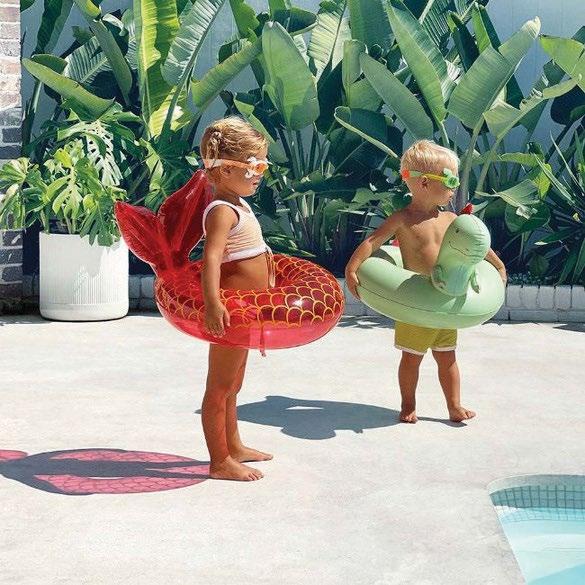
Having a baby means the end of just grabbing your keys and phone as you leave the house! Every trip out means packing nappies, muslins, wipes, pacifiers, a changing matt, bottles and more! Having a sturdy nappy bag that can hold all of this is essential, but a backpack nappy bag means you’ll also be able to have your arms and hands free for pushing the stroller or carrying the baby.
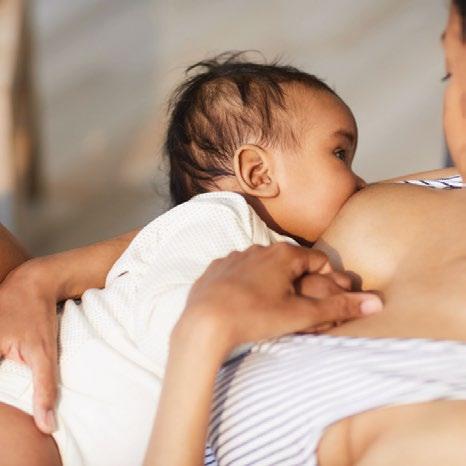
Nappy bags can be purchased from Bedside Manor &

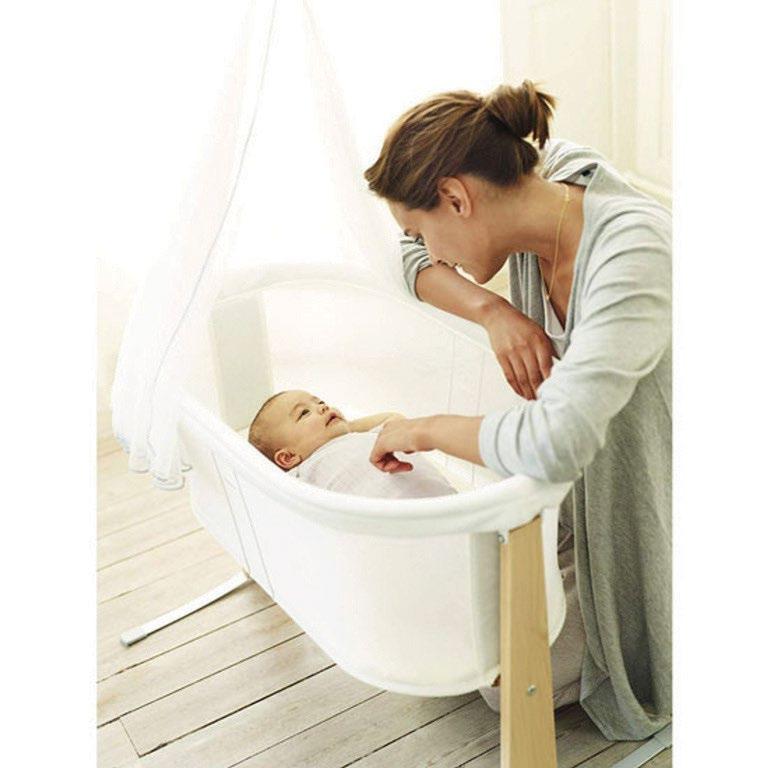

Shipping to Cayman: Occasionally you might need to get some items shipped to Cayman. Although shipping costs can seem reasonable, it is the duty rate that usually pushes the cost up; the vast majority of baby items are charged 22% duty on arrival in Cayman. Small cargo shipping services are often the best option. The shipper will give you an address in Miami to have your items delivered to. From there, your belongings will be shipped to Cayman. For details on reputable shipping companies and small cargo shipping services visit www.caymanresident.com.



Your home is all ready for your new arrival. The nursery is ready, you’ve cleaned the house from top to bottom (nesting is so much fun!) and toured the hospital. But before you can relax, don't forget to pack your hospital bag!
We have compiled a list of items that can take the stress out of the lead-up to the big event itself and the hours and days after it.
If you are having a planned caesarean section, you may need more clothing as you could be in hospital for up to five days.
You're not provided with nappies, formula, towels or toiletries at Cayman's hospitals, so to avoid an emergency trip to the shops, make sure you are well prepared.
The Newborn
• Four baby onesies
• Four sleepsuits
• Six receiving blankets or muslin wraps
• Two baby hats
• Two sets of baby socks and mittens
• Warm blanket
• Going home outfit
• Two towels
• Two washcloths
• Two dozen newborn nappies
• Baby wipes
• Formula, if you don’t plan on breastfeeding
• Infant car seat for day of discharge
The Mother
• Insurance details
• Your birth plan
• Four sets of sleepwear (front opening for breastfeeding)
• Dressing gown
• One pair of flip-flops
• Headband or hair ties
• Four to six pairs of underwear
• Three nursing bras and breast pads
• Loose and comfortable going home clothes
• Toiletries (toothbrush, toothpaste, flannel/washer, moisturiser, shower gel, deodorant, lip balm, hairbrush, shampoo, conditioner, any makeup)
• Glasses/contact lenses
• Two towels
• Two dozen maternity sanitary pads
• Pillow (recommended)
• Camera, memory card, charger
• Mobile phone and charger
• Snack bag (for mum and dad!)
We asked some Cayman mums for their top tips on preparing to give birth and here's what they had to say....
You never know when your little one might decide it's time to meet the world! Pack your hospital bag at least four weeks before you're due so that you are prepared and are not racing around at the last minute! Remember, don't pack your best towels, underwear or sleepwear, as they may get ruined. Choose dark-coloured items where possible.
Consider packing a separate bag for you and your baby. It will be much easier to find what you are looking for, especially after labour when you may be sore and tired.
Labour is hard work, so pack some healthy snacks to keep your energy levels up. Good options include dried fruit, nuts, seeds and fresh fruit. Dark chocolate is great for a quick burst of energy.
Load up your iPad/tablet with plenty of entertainment in case you are in labour for a long time and possibly confined to the hospital bed.
Car seats are notoriously difficult to fit, so ensure it's installed before you go into labour and ideally, when you are around 36 weeks. You may even want to practise taking the seat in and out of the base a few times so you know how to put the baby in safely when you leave the hospital.
As your baby grows older, you will want to update their room to suit their changing needs. When designing a child’s room, it’s important to make the space fun and engaging, while also keeping it safe and considering how the room will adapt as your child grows.

A good bed and mattress are essential for a restful night’s sleep. This is especially important for children as it directly impacts their mental and physical development. There are numerous styles of beds available including toddler beds, bunk beds and cabin beds with play areas and desks with storage underneath. Make their bed even more inviting by choosing colourful or themed bedding. Shop at Living.ky & Tomlinson Furniture.
Wall Art & Décor
Adding some fun and colourful prints is an easy way to switch up your little one’s bedroom theme. Whether your child is into space, superheroes, animals or rainbows — there are options to suit all interests, no matter how fleeting they may be! Stylish shelving is also a great way to add interest to a plain wall. Decorate with books, pictures, small toys and other stylish accessories. Shop at Bedside Manor, Living.ky & Little Coconuts.

Give kids a designated space to concentrate on their homework with a functional and stylish desk and chair. Storage is a bonus as it will help kids to keep their pencils, crayons and other craft materials nice and tidy so they can enjoy a clutter free room! Shop at Living.ky & Tomlinson Furniture.

If you have hard flooring a rug will provide a nice soft area to sit and play. Kids’ room rug designs range from themed designs or traditional motifs like stripes, spots and stars, to plain blocks of colour. Don’t forget to buy a rug pad to prevent slipping. Shop at Bedside Manor & Living.ky.
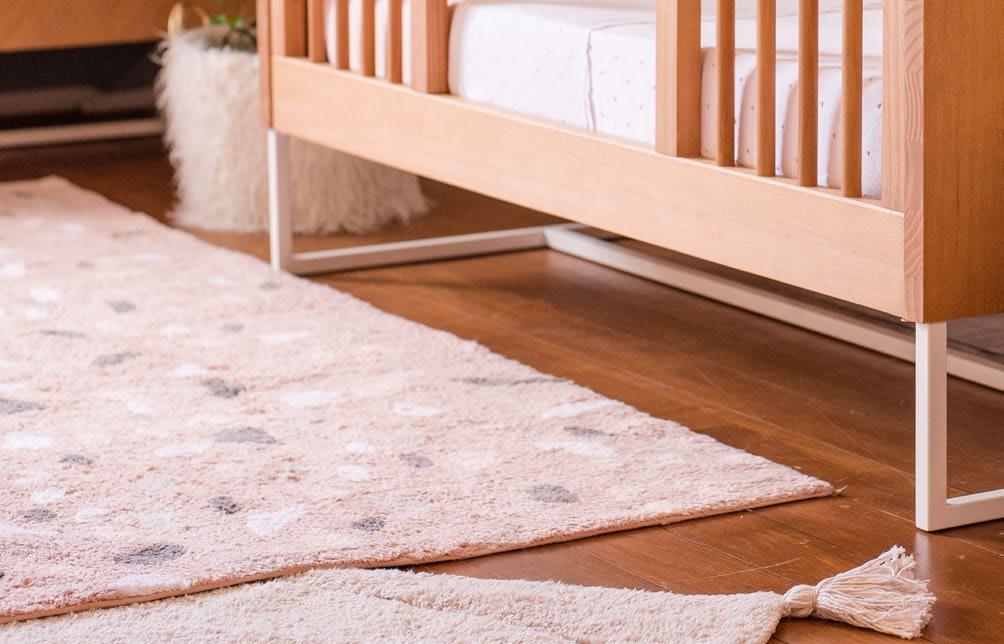
Having toys scattered around the room will drive most parents crazy! It is also hard for a child to relax in a messy space. Whether you go for drawers, a bookcase, a console or toy boxes, storage is key for keeping on top of the clutter. There are plenty of colours and styles of storage to choose from and the room will look much more organised.

Shop at Bedside Manor, Living.ky & & Tomlinson Furniture.
Add the finishing touch to your kid's bedroom or playroom with a selection of decorative cushions to suit their latest interest. Let them choose their favourites from a wide variety of styles, shapes and sizes and instantly transform their room into a super stylish and cosy space. Let the pillow fights commence!
Shop at Bedside Manor, Living.ky & Little Coconuts.

Why did you choose your field of speciality?
As a Consultant in Obstetrics and Gynaecology you see patients of all ages with a tremendous variety of issues. Starting in adolescence with period problems, contraception choices, wishing to conceive, pregnancies, deliveries and gynaecological problems. The combination of counselling, being able to give treatments and performing operations yourself is very fulfilling – not to mention the possibility of building a long-term relationship with your patients.

What are the greatest challenges you have faced during your career?
When I started studying medicine, female students were more the exception than the rule so you really had to prove that you were as competent as your male colleagues. The majority of male doctors still expected you to bake a cake and bring them coffee. We were literally told that our place was in the kitchen! Finding the time for personal relationships or to visit family and friends was also challenging. We had no time to even think about hobbies. Weeks consisting of 80100 hours’ worth of day and night shifts were normal in those days.
If you had to write a biography who would it be dedicated to?
Definitely my husband and my parents. My parents because they did everything to try and give their children a better life than they had. My husband because he was the one who had to put up with me; always being late, tired and moody. It was as though he was ‘on-call’ as often as I was, being woken up by the same phone calls, just without receiving a salary! He would even make me a peanut butter sandwich at 3am knowing I would not be able to eat before a full day in my clinic.
What excites you about medicine in
Interacting with people and solving problems. Just one smiley, happy patient makes my day.
Who or what inspired you to become a Midwife?
It was a student midwife I met while doing a college enrolment and the second midwife I had during my own labour (the first midwife demonstrated all the attributes I did not want!).
What is your greatest achievement to date?
Being nominated for ‘Angel of the Year’ when I worked in Guernsey. One of my patients nominated a colleague and I after we acted very quickly in a life-threatening situation when she was 28 weeks pregnant. Both she and her baby girl survived and the baby went on to be delivered safely and is now thriving.
What do you enjoy the most about working in Cayman?
I enjoy working in a small unit where the workload is varied. It’s also cool bumping into families I've cared for, in the supermarket or on the beach – that literally never happens in London!
What would you say to a child interested in becoming a Midwife?
I would remind them that it’s not really about cuddling babies, but more about caring for expectant mothers and fathers during labour, building bonds and trust, and recognising that a midwife's role is to advocate for their patient, whatever that may entail.
Which actor would you choose to play you in a film about your life and why?
Angela Bassett, just because I love her work and think she is an amazing example of a modern black woman.
What form of exercise would you recommend for expectant mothers in Cayman?
I guess I would always recommend yoga for expectant mothers, and if that’s not quite your thing, then walking. It's important to remind expectant mothers that they can usually continue their regular exercise routines but may have to adapt slightly as the pregnancy progresses. There are obviously some exercises that should be avoided completely.
 Dr. Diana van der Borden is a Consultant OBGYN at OceanMed.
Rachel Peterkin-Smith
Dr. Diana van der Borden
Rachel Peterkin-Smith is a Midwife at the Cayman Islands Health Services Authority.
Dr. Diana van der Borden is a Consultant OBGYN at OceanMed.
Rachel Peterkin-Smith
Dr. Diana van der Borden
Rachel Peterkin-Smith is a Midwife at the Cayman Islands Health Services Authority.
What is your favourite way to relax whilst heavily pregnant?
I have a five year old so the best way for me to relax is a nice nap which is something my body never usually lets me do. Cuddling up with him on a lazy Sunday has been my favourite.
What was your biggest health worry whilst being pregnant?
The worry is never really for myself, but for the baby –especially leading up to those appointment dates when you’re unsure of what has changed since the last one. I have learned that to take care of baby, I need to take care of myself, so I do my best to be healthy.
If you could invite three celebrity mums to antenatal classes with you, who would they be and why?
Right off the bat I would say Rihanna and Blake Lively. I think they would be hilarious and the most fun. It’s hard to choose a third mum but I think I’ll say Serena Williams because of how open she has been with her post-partum struggles and health issues.
How did you go about choosing your obstetrician?
I did a lot of research, asked fellow mums, checked social media groups and met with who I thought would be the best fit. It worked out for me with my first choice but there is also nothing wrong with meeting multiple doctors.
What is your son’s current reaction or opinion on the arrival of a new sibling?
He is thrilled and promises to be the best big brother. I worry about him feeling left out but he is the best and has been so involved with the preparation and continues to express how excited he is to be a big brother.

Why did you choose your field of speciality?
On a busy day during my training as an undergraduate medical student in Obstetrics, I was offered the opportunity to deliver a baby under the direct supervision of a Senior Resident on duty. I felt immediately that this was what I wanted to do for the rest of my life, to be part of this miracle. I was given the opportunity and special training to assist. I felt privileged to conduct a number of deliveries, many of them challenging ones, like breech, twins, instrumental and even caesareans – a wonderful opportunity at such a young age.
It’s been a long and stressful day. Where would you go on-Island to relax and unwind?
If the sun is still up, it would be at the beach, but most of the time I don’t finish working until late and so it would be home sweet home with my wife.
Which doctor or medical professional on-Island would you recommend for a ‘Golden Stethoscope Award’ and why?
It is hard for me to choose just one person. Many medical professionals on-Island have dedicated their lives to their patients, but I would probably recommend the award is split between the Anaesthetist, Dr. Vivek and the late Obstetrician Dr. Edward Caudeiron. I have worked closely with them and I can testify that they were available 24/7 for any patient in need, and especially for those less privileged than others.
How can mums-to-be increase their chances of a smooth pregnancy and birth?
My simple advice is to prepare yourself for a healthy pregnancy. Diet and exercise are important, as is investigating any potential threat early on and taking action to prevent a complication from worsening. Additionally, a planned pregnancy is preferable as, statistically, we are told that 50% of all pregnancies are unplanned.

Pregnancy can be a daunting experience for parents-to-be, but the Cayman Islands is lucky to have some excellent doctors, nurses and midwives who will help ensure your experience is a wonderful one.
You have two main options when considering your prenatal care and delivery. You can either choose to have your care and delivery through a private OB/GYN and deliver at the George Town Hospital or at Doctors Hospital, or you can go through the Health Services Authority (HSA), where your delivery at the George Town Hospital will be handled by the hospital's midwives, supported by the hospital OB/GYNs.
The private obstetricians (OBs) are all qualified to deliver routine obstetric care and some have additional skills in obstetrics and/ or gynaecology. The care they provide is consistent with any developed country and the clinics are generally well-equipped, e.g. with modern ultrasound equipment.
To choose an OB, it is best to research them online and/or ask your GP, and then visit your shortlisted candidates to find the one best suited to you. Some OBs do not charge for ‘getting to know them’ visits, but it is worth checking when making appointments. See page 235 for a list of OB/GYNs.
You should look into appointing your OB as soon as you think you may be pregnant or even when you are thinking of trying, if your medical history may affect your pregnancy. You can expect to have your first scan at around six weeks.
Your chosen OB will guide you through your entire pregnancy and deliver your baby, supported by the resident midwives at your birth centre.
An alternative to a private OB is to opt for a midwife delivery through the Women's Health Clinic at the Health Services Authority. You will then receive your care through a large team of midwives, who manage the prenatal care and deliver the baby, supported by a team of resident hospital OBs who are on call 24-hours-a-day, should there be any problems. The midwives are highly qualified and trained to deliver babies.
Choosing midwife care is a lower-cost option for having a baby in the Cayman Islands, while still receiving world-class care. It’s suited to parents who are happy with or prefer a team approach, as opposed to having care led by the same physician throughout.
After your first appointment, OBs and midwives will typically see you every four weeks up until 28 weeks, every two weeks until 36 weeks, and then weekly until delivery, consistent with standard care in most developed countries. If issues emerge during your pregnancy, you will likely be seen more frequently. In some special circumstances you may have to go overseas before or after delivery for treatment, although thankfully, such cases are very rare.
Early on in your pregnancy, you will be required to undertake some initial blood tests to rule out any infections or concerns. These usually include: full blood count, Hepatitis B screening, Rubella IgG screening, VDRL (tests for syphilis), HIV, ABO/Rh status. From nine weeks, you can also opt to have the NIPT (Non-Invasive Prenatal Test – a simple blood test) to screen for certain chromosomal and genetic conditions such as Down Syndrome. Your doctor or midwife will discuss this with you to help you make an informed choice, as well as seek approval from your insurance company before conducting the test. Some insurance companies cover a portion of the testing fee if you are 35 years or older or if you have a medical condition warranting the test. Otherwise, you will be responsible for its cost if you choose to have it.
Between 18-23 weeks of pregnancy you will have a detailed anatomy scan of the baby to screen for congenital structural abnormalities.
Between 24-28 weeks you will be given the Glucose Tolerance Test to screen for Gestational Diabetes. It involves fasting before the blood test in the morning, then having a glucose drink, followed by another blood test an hour later. If your results show any cause for concern, you will be required to start controlling your sugar intake and may need further medical treatment, which can be administered in Cayman. In general, pregnant women should limit sugar intake during pregnancy.
See page 176 for a list of dietitians who can help you throughout your pregnancy.
As your pregnancy develops, you’ll want to discuss your birth plan with your OB or midwife, including your thoughts on pain relief during labour, to ensure your wishes are known. You will also want to choose the paediatrician who you’d like to care for your newborn. Cayman has both general paediatricians and some that are also qualified specialists in preterm or newborn emergencies and complications. Again, it is worth researching them, asking other parents or GPs, and visiting your shortlist. Given that infants can survive from 23-24 weeks' gestation, some parents-to-be prefer to do this quite early in pregnancy. You may choose a private paediatrician or opt for the HSA paediatric team. See pages 173-175 for a full list of Cayman's paediatricians.
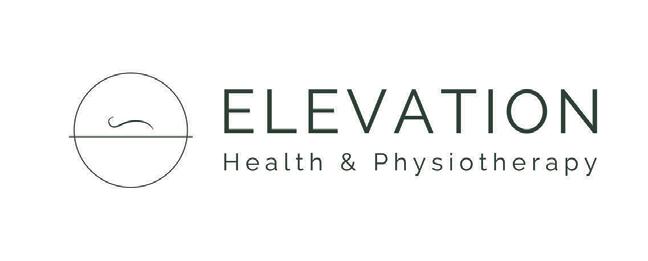
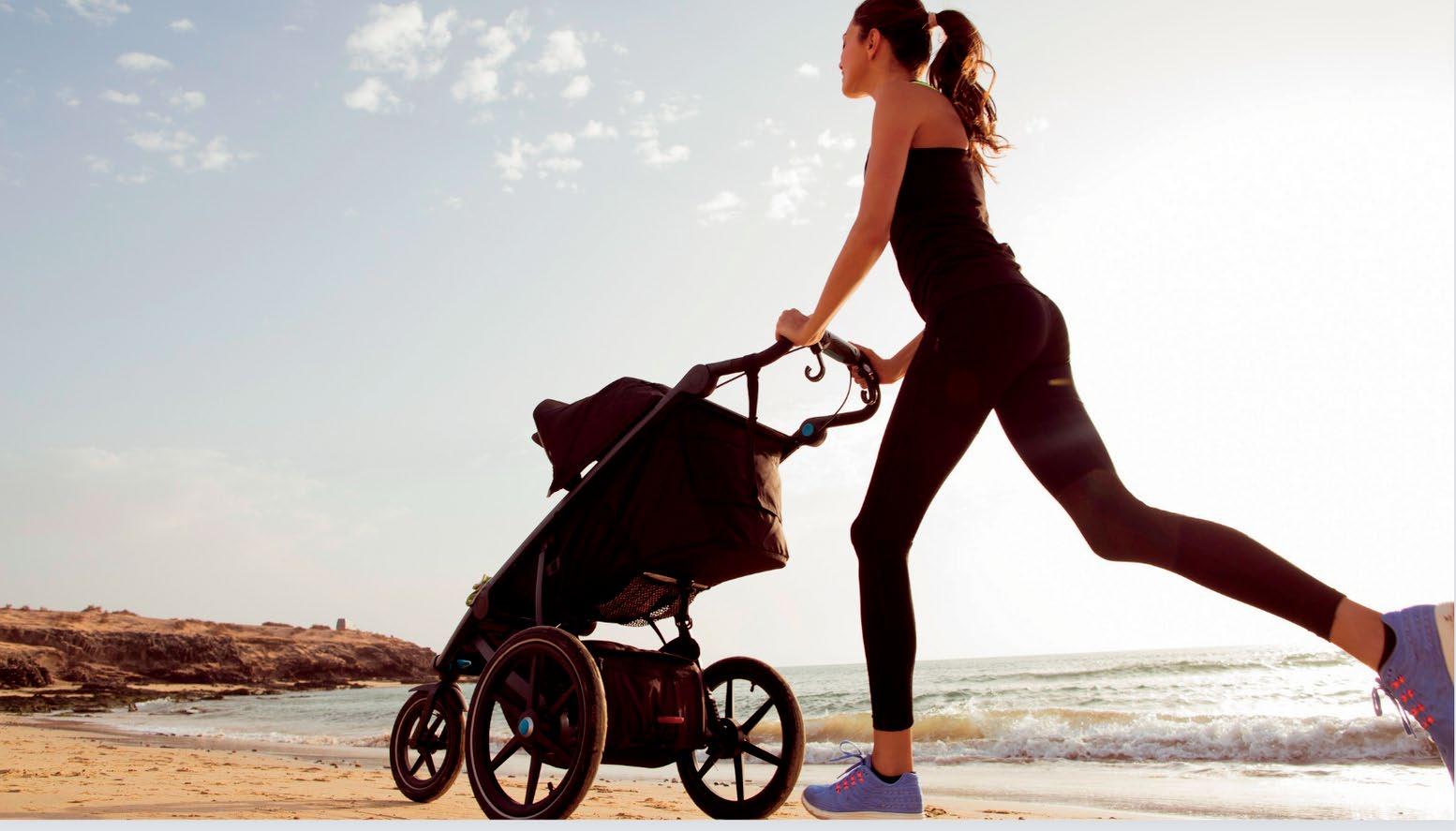
It’s recommended that you prepare for childbirth by enrolling in some prenatal classes. You may also wish to employ a doula. Turn to page 230 to learn more about the available options.
In the Cayman Islands, all babies are born in hospitals. Home and water births are not currently offered. There are two maternity wards in Grand Cayman and one in Cayman Brac.
The Cayman Islands Hospital offers three single delivery suites, eight maternity rooms (three single and five double rooms) and is home to the only Neonatal Intensive Care Unit (NICU) on the Island. The standard of care is excellent.
There are plans for a second NICU on-Island within Health City's new Camana Bay facility. It is hoped it will be fully operational in 2024.
Doctors Hospital offers the only private delivery suites onIsland. The suites have been designed for your comfort and your birth partner is welcome to stay the night.
Most high-risk pregnancies can be managed and delivered on-Island. The NICU provides excellent care for premature babies from around 28 weeks, or even earlier if needed. Sometimes it may be necessary to transfer the mum-to-be or the newborn overseas, usually the US, for complex care. If the baby has been born, it will require an emergency passport to travel, and your own documents will need to be in order too. See page 199 to find out more about how to obtain a passport for your child.
Discuss with your OB which hospitals they can practise in. It’s worth touring your chosen hospital beforehand to familiarise yourself with the space, staff and amenities.
As most baby books will tell you, you don’t need to head straight to the hospital once you feel your first contraction. It is, however, advisable to discuss in advance with your OB or midwife when to contact them and how. Once you have made contact, be sure to follow their advice carefully.
When arriving at the hospital, head straight to the Maternity Ward. Don’t forget to bring your ID, insurance card if you have one and mask. Leave your hospital bag in the car so that your partner or caregiver has both hands free to help you, if necessary. They can retrieve it once you are settled.
Once you have given birth, you will receive continuing care from the obstetricians, midwives and nurses at the hospital. At the HSA, you will receive help with breastfeeding and caring for your baby while you are a patient in the maternity department. The nurses will teach you how to gently bathe your tiny newborn and how to put your baby in the car seat ready for discharge. The midwives from Women’s Health are also happy to make a home visit to help with any concerns or issues that you might be having post-delivery. If you give birth at Doctors Hospital, you will receive a follow-up consultation to check on you and your baby's progress.
How long you stay in the hospital is a decision both you and your doctor will make. Some women feel more comfortable with a longer stay, while others prefer to go home earlier. Most insurance companies cover two nights after a natural delivery and three nights after a caesarean section (the period in labour is not calculated in this). Hospital stays are quite expensive, so check your insurance and plan accordingly. Mum will be discharged by her OB/GYN, while the baby is discharged by their paediatrician.
As bellies grow, thoughts inevitably turn towards, "What can I do to prepare for childbirth?". Fortunately for mums-to-be, there are plenty of options to help you feel prepared and take the mystery out of childbirth in Cayman.

Doctors Hospital & Integra Healthcare offers Pregnancy Complete Care, a unique service in the Cayman Islands. They are the only multidisciplinary team on-Island that spans fertility, accredited fetal medicine, tertiary obstetrics, midwifery antenatal and postnatal support to tertiary neonatal and paediatric care; all working together to help you have a safe and healthy pregnancy journey, birth and beyond. Please visit www. pregnancy.ky for more information on their services and to book an appointment. Their website also provides free informational guides, articles and resources, including understanding slow labour, an overview of high-risk pregnancies and more.
The Health Services Authority (HSA) offers a free eightweek educational series called ‘ParentCraft’. Classes are held on Monday evenings 5.30pm-7.30pm at the Hibiscus Conference Room located at the George Town Hospital. There is no charge or need to register in advance. Led by experts in the relevant fields, topics include, among others: nutrition for pregnancy, labour and delivery, knowing your baby, breastfeeding, infant CPR, alternative methods of delivery and immediate postnatal care both in the hospital and at home, safety, immunisations, family planning, relaxation in pregnancy and motor development in the first 12 months. If you miss any classes, you may make them up during a subsequent eight-week course cycle. Please call (345) 244 2649 or 244 7627 for more information. You can also visit www.hsa.ky/parentcraft.
Lamaze Childbirth Education Classes give parents-tobe a grounding in one of the most popular birth techniques. Lamaze classes approach childbirth as a natural and healthy process; they neither support nor discourage the use of medical interventions during labour and delivery. Instead, they educate mums-to-be about their options so that they can make informed decisions. Nurturing Birth Experiences offers both group and private Lamaze classes. The course consists of four two-and-ahalf-hour sessions with a maximum of 12 couples. These classes are a great way to meet other parents-to-be at a similar stage of pregnancy. Refresher childbirth classes, lactation consultation and doula services are also available. For more information on lamaze classes call: (345) 916 8970.
Ariel Grace is a birth Doula and pre and postnatal Pilates instructor and founder of The Mom Method, a wellness collective for Mamas. Ariel teaches Doula-based childbirth education and prenatal and postnatal Pilates classes to help new parents prepare with a more proactive approach to pregnancy, childbirth and a smoother recovery. As a birth doula, Ariel offers compassionate and non-judgmental, oneon-one individual physical, emotional, and educational support sessions for mamas throughout pregnancy and childbirth. For more information, you can find Ariel on Instagram at @ arielgracewellness or visit www.arielgracewellness.com.
With many new mums in Cayman living far away from family and in different time zones, the postpartum care offered in Cayman can really come in handy.

Nurturing Birth Experiences offer lactation services to help mothers get off to the right start with breastfeeding. They offer in-home visits and work with mothers to address practical issues and help set realistic expectations for the baby and mother. They also give mothers strategies to help them achieve their breastfeeding goals. Call: (345) 916 8970 or visit www. rvcrehab.ky.
The Cayman Islands Breastfeeding Support Group is a volunteer group which offers free support and education in breastfeeding to expecting and existing mothers. The group consists of experienced mothers who have breastfed, lactation consultants, nurses and midwives. They visit new mothers to offer free breastfeeding advice and support, and also offer telephone support. They will rent hospital-grade Medela pumps in emergency situations and provide reasonablypriced breast pumps for mothers returning to work. For more information, visit www.facebook.com/CIBreastfeeding or email: cibreastfeeding@gmail.com for details.
The midwives at the HSA's Women's Health Centre offer free postnatal care and home visits for HSA patients. Tel: (345) 244 2649 / 2710 / 2732. They can provide general and breastfeeding support after the birth of your child. These services are also offered at the following health centres on-Island:
•Bodden Town Health Centre Available Monday and Thursday 8.30am-8pm; Tuesday, Wednesday and Friday 8.30am-4pm and Saturday 8.30am-12pm. Tel: (345) 947 2299.
•East End Health Centre Available Monday-Friday 8.30am4pm and Saturday 8.30am-12pm. Tel: (345) 947 7440.
•West Bay Health Centre Available on Monday, Tuesday, Thursday and Friday 8.30am-4pm; Wednesday 8.30am-8pm and Saturday 8.30am-12pm. Tel: (345) 949 3439.
•North Side Clinic Available Monday-Friday 8.30am-4pm; Saturday 8.30am-12pm. Tel: (345) 947 9525.
The Family Resource Centre (FRC) at the Department of Counselling Services offers a range of free individual and group parenting services. For more information, call (345) 949 0006, email: frc@gov.ky or visit www.dcs.gov.ky/frc.
Motherhood is a time that brings great joy; bonding with your baby, taking on an exciting new role and loving someone else more than you could ever imagine. However, as many as 80% of new mothers experience a range of other emotions too. They may feel that they are not bonding with their baby, have extreme mood swings or be very tearful. All of these emotions are completely normal within the first two weeks of giving birth and are often referred to as the Baby Blues. With time, patience, good self care and support from family and friends, symptoms will often gradually disappear within a few weeks of giving birth.
In some cases, these emotions and thoughts last more than two weeks postpartum and present as anger, guilt, sadness, appetite and sleep disturbances, irritability or thoughts of harming baby or yourself. If you experience any of these feeling, you may be suffering from a Perinatal Mood and Anxiety Disorder (PMAD) and you should seek help immediately. PMADs are temporary and treatable. The first step is identifying there is a problem and then seeking proper help. It is important for new mothers to understand they are not alone and not to blame. With the correct treatment you will feel well again. If you suspect you are suffering from a PMAD, please contact your GP (see page 175) or a mental health professional (see page 182).
For more information on Perinatal Mood and Anxiety Disorders, visit the Cayman Parent website and see the article written by Laura Kelly, M.A., SLP, PMH-C, two-time PMADs survivor and Certified Perinatal Mental Health Advocate, Educator and Practitioner.
TOP TIP: For more information on parenting classes from birth to the teenage years, please keep an eye on our Cayman Parent event calendar which, can be found at www.caymanparent.com/events.
“as it should be”

Developmental follow-up and well-child checks are vital components of ensuring a healthy, happy childhood leading to a healthy, happy life in which children reach their full potential.
They serve three main purposes:
1. To ensure children are growing and developing as expected
2. To identify problems that need intervention or support
3. To provide guidance and health information on what to be mindful of at each stage of life.
Well-child visits, along with vaccinations and other preventive care, form an important part of an effective programme of healthcare to ensure that children develop and thrive. What’s more, when well-child checks are missed, children end up with a significantly higher rate of being hospitalised unnecessarily and that rate goes up the more checks are missed. They are extremely important.
Vaccines and plotting growth are a vital part of ensuring your child thrives, but these visits go much further, allowing parents to discuss any concerns, including nutrition, sleeping issues and social problems. They also allow paediatricians to provide advice on what to look for in the next phase of development. If a paediatrician only sees a child when unwell, there usually

isn’t time to discuss development properly. Furthermore, the presence of sickness (e.g. flu) means this isn’t the best time to assess the longer-term aspects of wellness and development. Separate checks work best.
An important benefit of a well-child visit is developmental monitoring. Paediatricians use their interactions with children to spot problems with playing, speaking or interacting. These signs may allude to autism, hyperactivity disorders or a learning disability, where early support is vital. It can also make the difference between mainstream school versus needing special educational support, which is scarce in Cayman.
Cayman has no set schedule of well-child checks, but most paediatricians across the Island will see your child at: 2 to 5 days old, 1 week, 2 months, 4 months, 6 months, 9 months, 12 months, 18 months, 24 months, 36 months and annually thereafter to age 21.

Each developmental check is different. For instance, the 18-month check contains the first screening for autism, using a distinct behavioural checklist coupled with family information and experiences. Prior to this, it is quite difficult to pick up. However, when identified at this early stage, really valuable behavioural and relationship interventions lead to improved IQ, language ability and social interaction, all things with life-long benefits.
By four years of age, language and motor skills are developing rapidly and certain types of play become much more important for social development. Children are becoming more independent. Picking up developmental issues here means children can receive support, such as speech and language therapy, the availability of which in Cayman surpasses that of the UK. No two timepoints are the same, and so it isn’t surprising that the more development and well-child checks are missed, the more children tend to have problems downstream.
All good paediatricians conduct well-child checks. Some have skills in more advanced developmental follow-up, for example, caring for preterm infants. Using the same paediatrician over time helps too. Contact your paediatrician and tell them you’d like an appointment for a well-child check.
Well-child checks are not designed to replace the everyday vigilance of parents in helping to spot emerging issues. Most health issues are best addressed through early identification. If you are at all concerned about the health, behaviour or social interaction of your child, it’s a good idea to contact your paediatrician. See pages 173-175 for a list of paediatricians in the Cayman Islands.
TOP TIP: For information on Cayman’s vaccination schedule, please see page 166.
Putting
» Newborn Baby Checks
» Newborn Screening & Immunizations
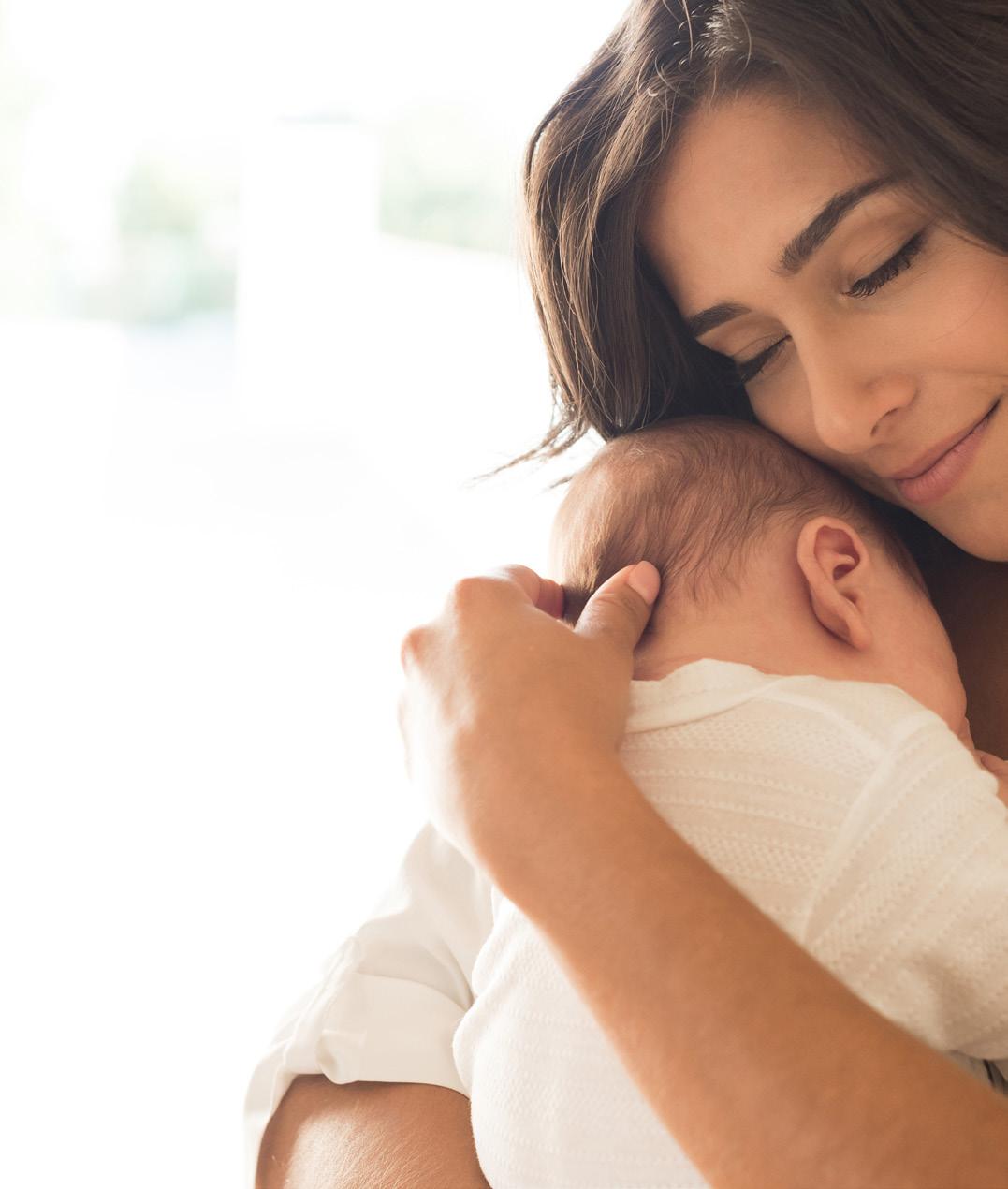

» Vaccinations, including Vaccination Advice
» Comprehensive first year of life care
T: +1 (345) 745 7450
E: team@integra.ky
W: www.pregnancy.ky
“as it should be”
With over 10 years of experience advising women’s healthcare, Leslie Schrock distils cutting-edge research into the most comprehensive pregnancy guide.
A tummy time book opens up to freestand, making it easy for baby to enjoy time on their front. Cheerful images and black and white patterns are perfect for developing eyes.

Next Chapter offers a wide range of pregnancy guides as well as books on parenting children, from toddlers to teenagers. They also sell a great selection of beautiful newborn gifts, as well as early learning toys and books. Take advantage of their free gift wrapping service and their Lowest Price Guarantee.

Highlights:
• Extensive selection of pregnancy and parenting books
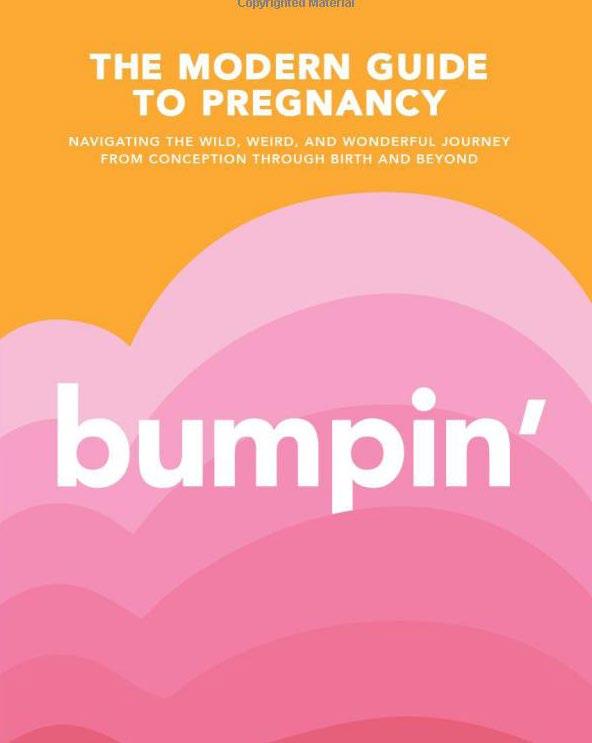
• Book ordering service
• Early learning toys
• Baby shower gifts and free gift wrapping services
A month-by-month overview gives men the tools they need to support their partner and prepare for the baby's arrival.
A hug and a giggle? Who doesn’t love a good higgle? This delightfully playful board book will have readers chuckling as they read fabricated words of affection.
• Educational games and books for kids of all ages
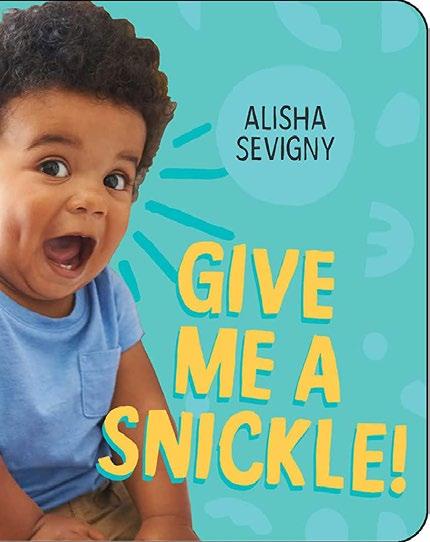
• Lowest Price Guarantee
• Physician-led classes for Mothers and Fathers-to-be
• A great range of gifts for mums and dads, for whatever the occasion!
Details:
Opening Hours: Monday–Friday 10am–6pm Saturday 9am-6pm Sunday 10am-5pm
An illustrated grab-and-do guide that helps today's mums and dads gain confidence in their ability to be great parents.
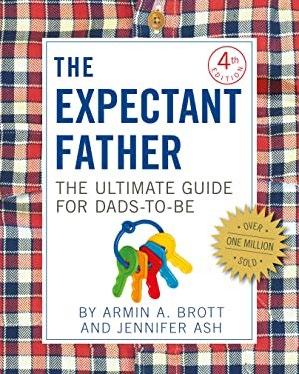
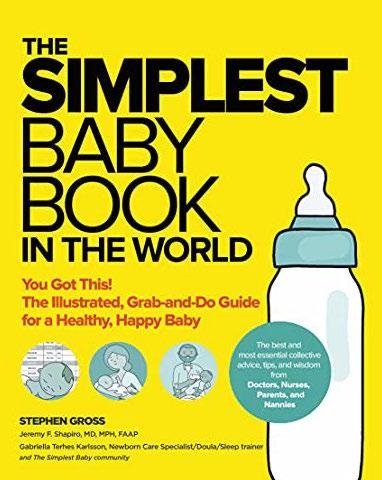
Kids will love this retelling of Peter Rabbit. Children are encouraged to press the sound buttons, which include giggling, birds, munching, a squeeze-pop and comforting music.
(345) 640 2665 | Market St. Camana Bay www.nextchapter.ky

Dr. Gilbertha Alexander MBBS DM MRCOG
Dr. Elaine Ebanks MBBS DM
Dr. Gillian Evans-Belfonte MBBS MRCOG
Dr. Rhonda Reeves MBBS DM FRCOG
Dr. Davina McCoy BSc MBBS (Registrar)
Dr. Karina Palmer-Forde BSc MD (Well Women’s Clinic)
Dr. Peter Sipos MD PhD (Med) MsC MRCOG CCT (UK)
George Town Hospital, 95 Hospital Road, GT. Tel: (345) 949 8600.
Dr. Venkamma Bonigi MBBS DGO Faith Hospital, Cayman Brac. Tel: (345) 948 2243.
Dr. Joseph Davis
Cayman Fertility Centre, Heron Place, 1283 Seaview Rd, East End. Tel: (345) 233 0770
Email: contact@caymanivf.com Web: www. caymanivf.com. Offers a variety of different treatments, including but not limited to IVF, ICSI, IUI, egg freezing, ovulation induction, immunology, pre-cycle test and treatment risks.
Dr. Howard Deosaran BSc MD DM FACOG LLB
Centre for Women, Family and Child Health, Caribbean Plaza, Seven Mile Beach. Tel: (345) 943 4666 Web: www.forhealth.ky.
Dr. Rommel El-Madany MB BCH FRCS (GYN) (Edin), HDGO (Dublin) DM, MD RCSI/IPA (Dublin), Diploma of Advanced Obstetrics Ultrasound RCOG/RCR (London)
9 Smith Road Plaza, Smith Road, GT. Tel: (345) 946 2496 Email: islandobgyn@icloud.com.
Dr. Madhavi Manoharan MBBS MD FRCOG
Dr. Laura Hole MBBS BSc MRCOG
Dr. Mike Smith MBChB MRCOG Integra Healthcare Ltd, Grand Pavilion, SMB. Tel: (345) 745 7450 Email: lisa.joels@integra. ky; madhavi.manoharan@integra.ky; laura. hole@integra.ky; mike.smith@integra.ky Web: www.integra.ky.
Dr. Diana van der Borden, Consultant Obstetrician/Gynaecologist, MBBS
Dr. David Stone, Consultant Obstetrician/ Gynaecologist, MD, FACOG
OceanMed, Bayshore Mall, Level 2, South Church Street, George Town. Tel: (345) 946 2326 Email: info@oceanmed.ky Web: www. oceanmed.ky.
Dr. Zbigniew Zwierzchowski MD
Dr. Sarath De Alwis FRCS, FRCOG, MRCP, FFSRH (UK), FACOG, MRCS, LRCP (Eng), LRCS. (Edin), LRCP (Edin), LRCP&S (Glas) Consultant /Specialist OB/GYN
Dr. Lisa Hinzman MD
Doctors Hospital, 16 Middle Road, off Walkers Road, George Town. Tel: (345) 325 9000 Email: zbigniew.zwierzchowski@ doctorshospitalcayman.com; sarathde.alwis @gmail.com; lisa.hinzman@doctorshospital cayman.com Web: www.doctorshospitalcay man.com.
Paediatricians - see page 173
George Town Hospital (CIH)
95 Hospital Road, George Town. Maternity Unit Tel: (345) 244 2842/2841 Web: www. hsa.ky. The Maternity Unit offers facilities for both low-risk and high-risk mothers and babies. These services are comprised of antepartum care (before birth), labour and delivery, postpartum (after-birth) and neonatal care; including normal births, multiple births, breech, vacuum, forceps and caesarean section deliveries. The maternity unit offers five double and three single rooms plus three labour/delivery rooms. All rooms have ensuite bathroom facilities. The Neonatal Intensive Care Unit (NICU) is wellequipped to care for up to six newborns.
Doctors Hospital
16 Middle Road, George Town. Tel: (345) 325 9000 Web: www.doctorshospitalcayman. com. Doctors Hospital offers private maternity suites with OB/GYN physicians, nursing staff and midwives, providing a comprehensive approach to maternity care in a safe environment. After birth, the room is converted into a quiet, cosy and nurturing space for families to recover. Support partners are always welcome to stay the night.
Childbirth Classes, Doulas, Midwives, Postpartum Care, Lactation Consultants
Ariel Grace
Web: www.arielgracewellness.com. Ariel Grace is a Doula, childbirth educator and pre and postnatal pilates instructor.
Cayman Islands Hospital – Women’s Health Centre
95 Hospital Road, George Town. Tel: (345) 244 2649/2710/2732. Offers a free eightweek Parent-Craft education series on childbirth and baby care. Postnatal care and breastfeeding support are also offered.
Doctors Hospital
Doctors Hospital, 16 Middle Road, off Walkers Road, GT. Tel: (345) 325 9000.
Allie Campbell
Registered Midwife BA, BSc, RM
Integra Healthcare Ltd. The Grand Pavilion
Commercial Centre, SMB. Tel: (345) 745 7450
Email: allie@integra.ky. Web: www.integra. ky. Range of Community Midwifery Services, including antenatal and postnatal packages, infant feeding consults, along with lowrisk maternity care, where Allie will provide excellent, knowledgeable and compassionate care throughout your pregnancy journey.
The Children’s Clinic & Family Practice
Windward Centre, 93 Smith Road, George Town. Tel: (345) 949 2970 Web: www. thechildrensclinic.ky. Advice on lactation and newborn care.
Nurturing Birth Experiences
3rd Floor, Tomlinson Building, George Town. Tel: (345) 949 6024 or (345) 916 8970. Email: info@rvcrehab.ky. Web: www.rvcrehab.ky. Lamaze classes, doula services and lactation consulting.
Align Wellness Studio
Market Street, Camana Bay. Tel: (345) 640 5050 Web: www.align.ky. Acupuncture and Chinese techniques that help pre, during and post pregnancy.
Cayman Physiotherapy
Two locations: Suite 26 Pasadora Place, Smith Road & West Shore Center, West Bay Road. Tel: (345) 949 8828 WhatsApp: (345) 928 8828 Web: www.caymanphysiotherapy.com. Their qualified practitioner offers acupuncture to help with fertility-related issues, alleviate pregnancy symptoms and assist with postnatal recovery.
Da Vinci Wellness Centre
Park Place, off West Bay Road, SMB. Tel: (345) 943 2002 Web: www.davinciwellnesscentre. com. Acupuncture and Traditional Chinese Medicine specialist care to help support IVF treatment as well as during and post pregnancy.
Violetta Kanarek NCCAOM L.Ac
Tel: (345) 946 4420 or (345) 916 4420 Email: drvyin@gmail.com.
Uma Lenin BPT CKTP (Doc ALT MED)
RVC Rehab Services, 3rd Floor Tomlinson Building, Walkers Road, George Town. Tel: (345) 949 6024.
Atlantic Kids
Paddington Place, Godfrey Nixon Way, George Town. Tel: (345) 949 2296 Web : www. atlanticak.com. Baby and children's clothes, shoes and toys
Bedside Manor Market Street, Camana Bay. Tel: (345) 947 2711 Web: www.bedsidemanor.ky. High-end baby products including cots, playmats, diaper bags and toy storage. They offer baby registries and stock a good range of lovely baby and toddler clothes.
Cayman Medical Supplies The Windward Centre, 93 Smith Road, George Town. Tel: (345) 949 6211. Sells reasonably priced manual Medela breast pumps and spare parts.
Funky Monkey
Governors Square, West Bay Road. Tel: (345) 943 8659 Web: www.funkymonkeycayman. com. Fashionable clothing, accessories and gifts for children.
J Michael
The Strand, SMB. Tel: (345) 946 5310 Web: www.jmichael.ky. Offers a range of brands and styles of clothing and accessories for infants and children.
Kids Karma Closet
Buckingham Square, 720 West Bay Road. Tel: (345) 947 7330. Good quality second-hand clothing, equipment, toys and carriers.
Little Angels
Market Street, Camana Bay. Tel: (345) 946 2645. High-end swim and beach wear for toddlers and children up to 14 years.
Little Coconuts
The Crescent, Camana Bay (Between Pani

The Da Vinci Wellness Centre is Cayman’s most exclusive wellness and alternative therapies centre where genuine comfort and care of clients is the focus. The staff are licensed and experienced professionals dedicated to maximising individual talent to benefit each individual client. Da Vinci Centre sets a standard of service excellence throughout the industry, and their staff will work to optimise you and your family’s health needs. Schedule your booking online today.
Children's Chiropractic: Children encounter physical stresses during growth and development. Da Vinci Centre chiropractors use gentle techniques to maintain spinal mobility and proper nervous system function.

Women’s Health: This physiotherapy minimises discomfort and dysfunction during pregnancy and post partum by normalising the pelvic floor and surrounding lumbopelvic muscle activity.
Acupuncture and Chinese Therapies for Infertility and Pregnancy: Acupuncture is one of the main branches of Chinese Medicine that unblocks and re-balances the flow of energy throughout the body. A proven compliment to infertility treatments.

Post Partum Body Contouring with Vela Shape: New moms face a unique set of physical and emotional challenges following pregnancy and childbirth. Vela Shape helps moms get back in shape, improving cellulite and reducing circumference in a few treatments.
& Red Sail Sports). Tel: (345) 325 7017
Email: hello@littlecoconuts.ky. Web: www. littlecoconuts.ky. Little Coconuts is baby and children's store offering beautiful, high-end clothes and toys. Clothing includes everything from newborn rompers and pyjamas to shorts, dresses and tutus. In the toy section, find books, imaginative play toys, games, puzzles, sensory boxes and much more. Beautiful themed party decorations are also stocked.
Living.ky
48 Maclendon Drive, George Town. Tel: (345) 233 8700 Email: info@living.ky Web: www.living.ky. A great selection of furniture for children's bedrooms, plus car seats and strollers.
Tomlinson Furniture Gallery
9 Walkers Rd, Tomlinson Building, GT Tel: (345) 949 5383 Web: www.tomlinsonfurniture. ky. They stock cribs, crib mattresses, play pen mattresses, crib and toddler sheets, crib mattress protectors, toddler beds, toddler mattresses and pillows, wooden play tables, bean bags and more.
The Bump To Baby
The Strand, SMB. Tel: (345) 938 6498 Web: www.thebumptobaby.com. A wide selection of high-end clothing and supplies.
Valu-Med Pharmacy
Two locations: Walkers Road, George Town and Evron Plaza, Bodden Town. Tel: (345) 949 0442. Baby and toddler clothing, toys and formula.

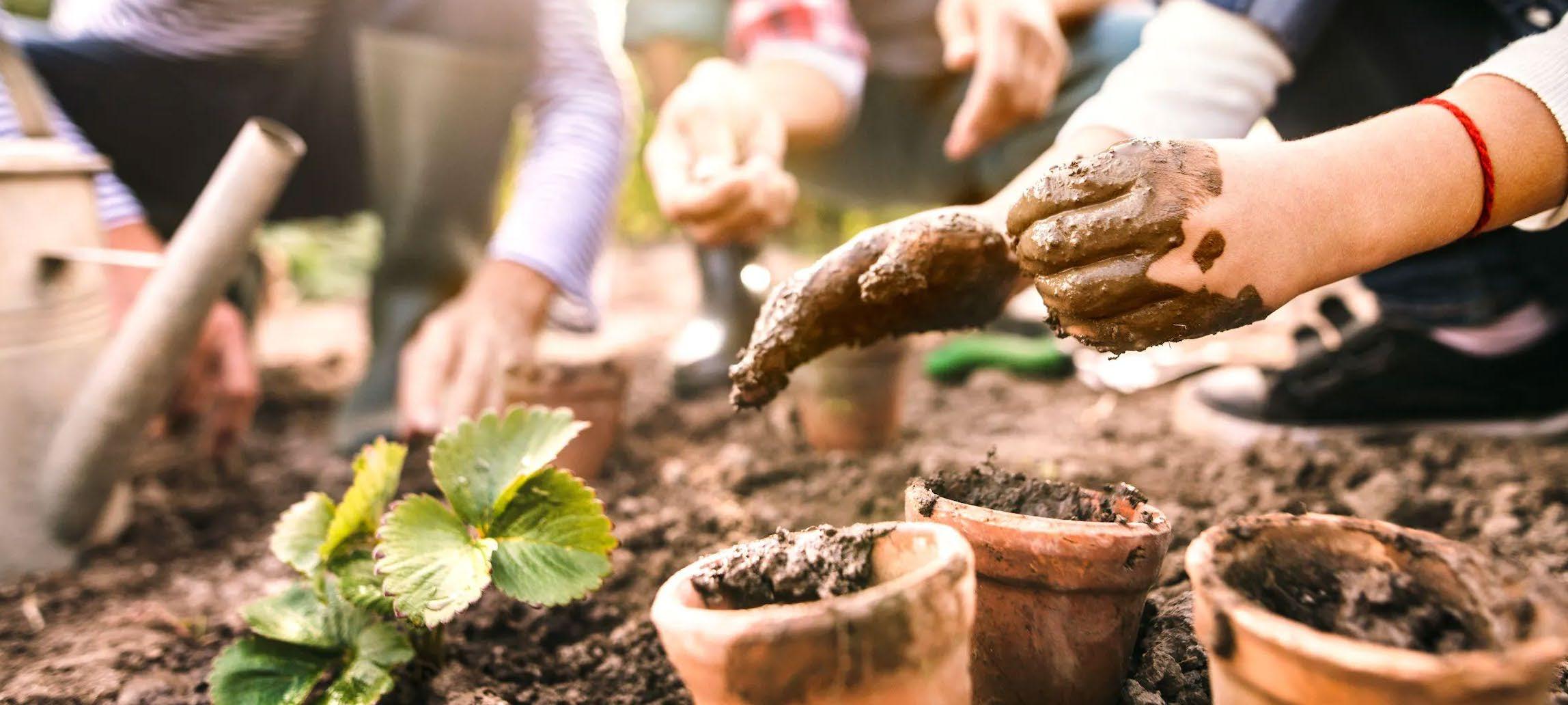
Gardening is a great way to get kids excited about nature and the outdoors, keeping them entertained and away from screens! Through gardening kids can be introduced to the concepts of science, maths, nutrition and sustainability – even better, it can be calming and therapeutic for young minds.
Many preschools now have their own kitchen gardens, where children can get involved in planting, tending to and harvesting fresh fruit, herbs and vegetables. It’s a testament to the advantages gardening has for growing minds and bodies.
But gardening need not be limited to school curricula. With a little creativity and planning, everyone can grow at least a few edible plants at home. Not only does it get kids interested in nature, food and where it comes from, but it can also be an effective tool in enhancing their learning in other areas.
Sensory exploration: children are tactile, sensory learners and gardens engage all the senses – there are flowers and herbs to smell; colours, bugs and fruits to see; textures of leaves, bark and soil to feel; sounds of bees and birds to listen for; and, of course, delicious fresh produce to smell and taste.
Physical: in an age when so much free time is sedentary and screen-based, a gardening project can tempt youngsters away from their devices and get them engaged in a physical activity. Most toddlers and preschoolers instinctively love messing around in the dirt, and time in nature is a well-known stress reliever. The act of digging, mulching, filling and carrying water
cans and using simple garden tools is also a great way to get them moving and develops gross and fine motor skills. You can even encourage children to practise their writing by labelling their own plant markers.
Health: in addition to the well-documented therapeutic effects of spending time in nature, gardening is a great way to boost kids’ health and nutrition: they are more likely to want to eat vegetables and herbs if they’ve been involved with the growing process, so it’s a great way to introduce fresh produce into their diet and nurture a love of fruit and vegetables.
Responsibility: gardening is also an effective way to teach children responsibility (and far less of a commitment than getting a pet!). As long as they remember to water and weed their plants, their little charges will thrive – but if they forget, they will soon see them wilt or become choked with weeds. It’s an easily digested lesson in cause and effect.
TOP TIP: The new Children’s Garden at the QE II Botanic Park is an incredible outdoor resource for children, with a grow zone, sensory garden, water feature, playground and much more!
The benefits gardening presents go far beyond these though. Studies have shown that in schools with gardens, students' test pass rates increased by an average of 12 to 15%. Growing plants presents invaluable learning opportunities and helps children to apply STEM (Science, Technology, Engineering, and Maths) concepts to the real world.
Science: the simple act of germinating seeds, watching them grow, bear fruit and go to seed illustrates the botanical life in real-time. Flowers can be examined to identify their different parts, seed pods opened to reveal their contents, and simple experiments conducted to compare what happens when a plant does or doesn’t receive sunlight or water.
As children grow older, gardens present opportunities to identify and catalogue bugs, observe their behaviour and study the effects of the weather on crops.
Technology: if we understand technology as anything manmade, gardening can be used to make children think about how simple tools like rakes, trowels, shovels and wheelbarrows make our lives easier. Ask them which tool might make digging a big hole faster. What would be the best way to get water to the plants? What could they use to move heavy things around the garden?
Engineering: designing and building a garden bed introduces youngsters to engineering concepts – how will they reach the plants in the middle of the garden? Will paths or stepping stones be needed? What happens when plants get too tall to bear their own weight? How can we support them? Do tomatoes need the same shape support as sunflowers? How could we build this?
Mathematics: from the simplest task of counting or sorting seeds into different shapes and sizes, to more advanced mathematical calculations, gardening can be used to practise simple sums and multiplications. If each tomato plant bears 20 tomatoes, how many do we need to plant to get 100 tomatoes? If we have five rows of cucumbers, with six plants in each row, how many cucumber plants do we have in total? As children’s maths learning progresses, this can expand to calculating costs, profits and percentages.
Whether you have space to create a vegetable patch for kids, a terrace where you can create a container garden or nothing more than a windowsill, there are plenty of ways to get children to experiment with growing some edible plants at home.
The growing season in Cayman runs from approximately October to April – after that, the weather is too hot for most edibles, unless you can offer them some shade.
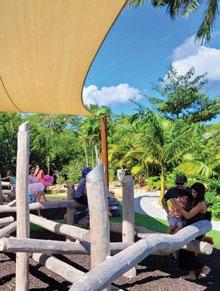
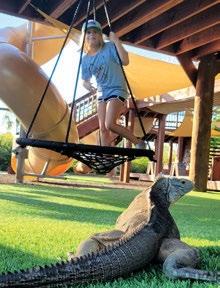
Families can enjoy 65 acres to explore including the Children’s Garden which features climbing frames, the CNB splash pad, a discovery tower, larger than life animal sculptures, a maze, tunnels, grow zone, sensory garden, the Rotary Schoolhouse and so much more! The Botanic Park is also home to the Blue Iguana facility where families can meet and learn about the endangered Blue Iguana as well as enjoy a self-guided nature walk.
Opening times
Open seven days a week, 9am-5.30pm, last admission at 4.30pm. Closes 12pm on Christmas Eve and NYE. Closed Good Friday and New Year’s Day.
Entry prices
Residents: Resident ID required. Adult CI$10 and children (3-12years) CI$5.
Visitors: CI$20 and children (3-12years) CI$10. Under 2s enter for free. Includes entry into the Botanic Park and a self-guided tour of the Blue Iguana Facility.
Address: 367 Botanic Park Road, off of Frank Sound Road, North Side.
Tel: (345) 947 9462 Web: www.botanic-park.ky

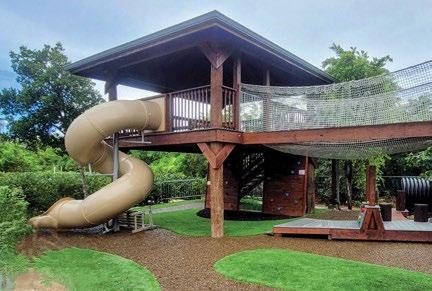
@QEIIBotanicPark


If you have the space to build a kitchen garden, discuss the best location, in terms of wind, sun, water and aesthetics, with your children.
If you live near the coast, remind children that salt spray can be fatal for plants, so together, you will need to identify the most sheltered spot available. In dry periods, the garden will need to be watered – can a garden hose reach?
For best results, most plants need at least half a day, if not a full day, of sunshine. Have them observe how the shade moves across the space in the course of the day. Good drainage is also essential, so after heavy rain, vegetables aren’t sitting in standing water. If there is no suitable elevated spot, consider having elevated grow boxes made (inexpensive grow box kits can also be purchased online).
Ideally, you want your children to take ownership of their garden and be responsible for it. But bear in mind, this could result in a messy, unruly scene, so think about whether you want to see it from your deck or pool, or if it would be better tucked away out of sight.
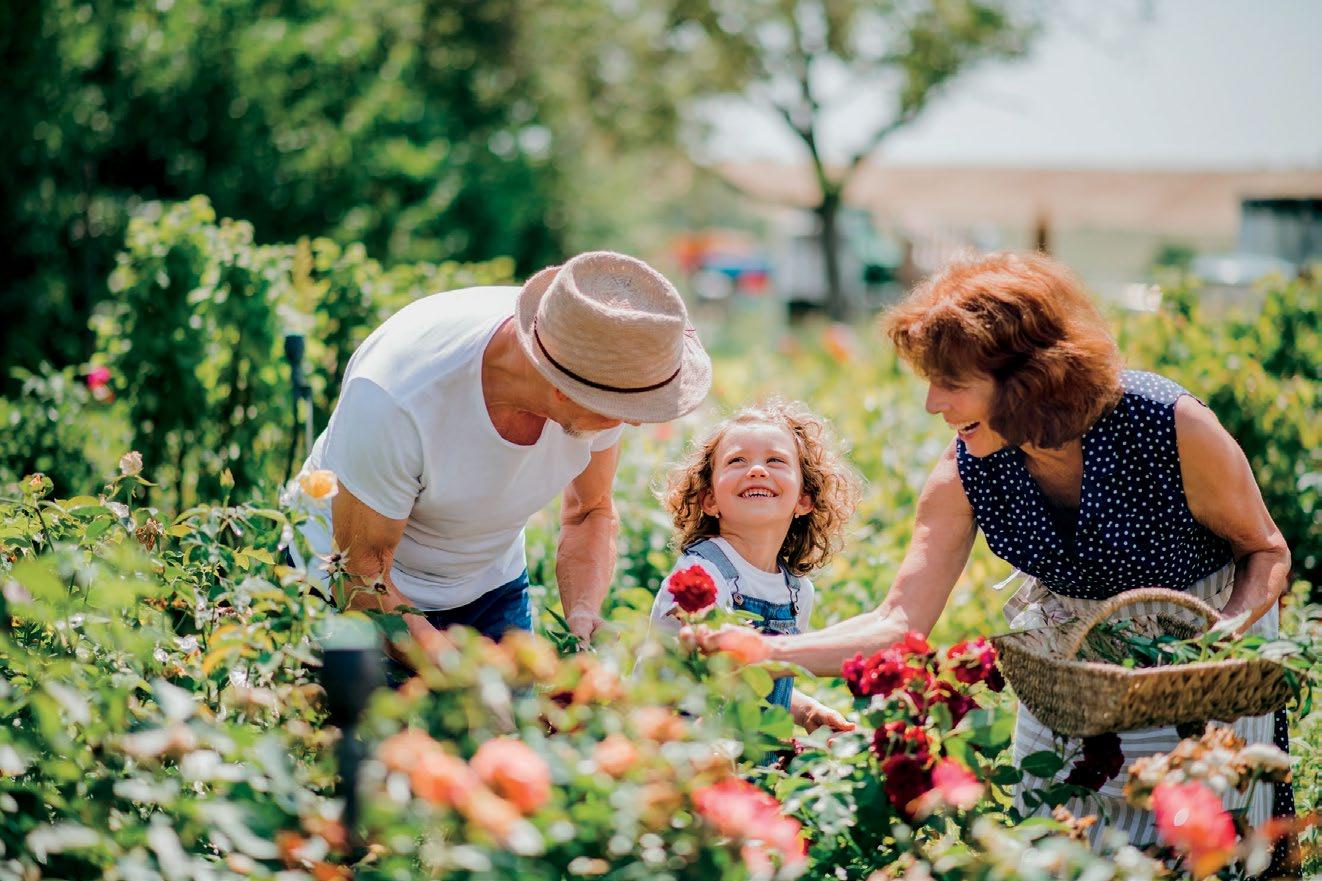
If you don’t have a garden, you can still grow things in pots or
are sold at Vigoro Garden Centre. Alternatively, almost any container that you can make drainage holes in the bottom of will work – think used wine crates, gallon water bottles with the top cut off, empty food cans or even tyres filled with soil. Pots work best for single plants that bear multiple fruits, like tomatoes, but potatoes, pumpkins and carrots will need to go straight in the ground.
When all you have is a windowsill or two, there are still things kids can plant to observe the growth process. Try submerging a regular or sweet potato halfway in a jar of water: in a matter of days, roots and shoots will start growing. The same can be done with avocado stones, but they take longer to sprout. Beans and lentils can also be sprouted in clear jars covered with cheesecloth and are great added to salads and sandwiches.
When the kids eat an apple or orange, have them pick out the pips and place them on damp cotton wool and wait for them to germinate. Alternatively, plant different herbs in small pots and simply snip off what you need and watch it grow back.
Mangoes, bananas, carrots, radishes, pumpkins, bok choy, leafy greens, mustard greens.
Tomatoes, cucumbers, eggplant, seasoning peppers, scotch bonnets, basil, cilantro, rosemary, chives, thyme.
Herbs, arugula, bean sprouts, lentil sprouts, basil and you can sprout an avocado seed.
Another way to boost your garden naturally is to include plants to attract beneficial bugs and deter harmful ones. Marigolds, trumpet vine, honeysuckle, lantana and sea lavender are just some of the plants that will bring in essential pollinators like bees and butterflies, while cilantro, chives, yarrow and marigolds all help to entice the ladybirds, who will eat aphids for you.
Unfortunately, iguanas are also a perennial problem and eat most crops. Chickens and Whistling Ducks can also be a huge problem as they dig around in the soil and the latter love to eat lettuce, herbs and other greens. The easiest way to protect your plants is to build a screen around your vegetable patch.
Not all plants will thrive in all locations or soil types. Some crops may be decimated by pests or inclement weather. Others will produce bumper crops. It will take time to work out what grows in your particular garden and what does not. But that’s what gardening is all about: trial and error, making mistakes and learning from them. What better way to cultivate inquisitive, analytical minds?
I truly believe, through teaching literacy with laughter and fun, children can blow our minds with what they learn. –
Amy Westin, Jolly Phonics & SEN Teacher at Little Trotters Farm & Nursery SchoolWorking alongside different families daily, it is clear to see that a parent’s purpose is to provide their child with the support to become the very best versions of themselves. Part of this is by providing opportunities to lay those important foundations in key areas such as literacy.
A proven method to aid literacy, and the one that we use at Little Trotters Farm & Nursery School, is the Jolly Phonics programme. This is a multi-sensory, fun and exciting way of introducing children to the English alphabet in a simple yet structured way.

When we think of literacy, we may automatically go straight to ABCs, but what if we took it back a little further, allowing those little minds to explore and grow, and introduce them to the sounds that the letters make?
Jolly Phonics is a world-leading English literacy method that teaches children how to read and write using phonics. The programme teaches children the sounds that letters make, rather than the names of letters in the alphabet. Having letter-to-sound knowledge will help develop the child’s ability to begin reading words and sentences.
Rather than memorising thousands of words, children are instead taught a phonics ‘code’. This code helps children work out how to read 95% of the English language.
There are five basic skills for reading and writing within the Jolly Phonics Method. At Little Trotters, we teach the first two phases, depending on the individual ability of the children, and hope to instil a love of learning in them. The children go on to the next stages once they are in primary school.
1. Learning the Letter Sounds
2. Letter Formation (Writing)
3. Oral Blending
4. Segmenting
5. Tricky Words
1. Learning the Letter Sounds
There are 26 letters in our alphabet and each has its own ‘sound' but the sounds are very different to how a letter is ‘said' in the alphabet. For example, ‘a’ in ‘arrow’ and ‘b’ in ‘bat’. However, there are more than 26 sounds in the English language. In fact, there are 42 in total, which is where the Jolly Phonics method stems from:
• There are a mix of single sounds such as ’a’ and ‘b’.
• There are some sounds made up of two letters, known as diagraphs, meaning that two letters come together to form one sound such as, ‘ee’ and ‘or’.
• There are also three letter sounds and these are called trigraphs. An example would be ‘t-r-ee’.
basic phonetical letters/sounds, they will be able to progress to the next stage of Jolly Phonics.
2.
It is so important that a child holds his/her pencil in the correct way. The pencil should be held in the 'tripod' grip between the thumb and the first two fingers. The grip is the same for both left and right-handed children.
At Little Trotters, I use multi-sensory methods to teach children to form and write letters. For example, colouring exercises to familiarise them with the letter shapes, special craft activities and teaching rhymes to help the children remember letter formation.
When it comes to teaching Jolly Phonics, we follow a letter order rather than alphabetical order. There are seven groups of six letters and the first group makes up a greater number of simple three-letter words than any other six letters.
3. Oral Blending
This is the process of saying the individual sounds in a word and then running them together to make the word. Children can start to practise this skill as soon as they have learnt the first three letter sounds for example, s-a-t = sat and c-a-t = cat.
4. Segmenting: Identifying Sounds in Words
At our school, my focus is to create excitement and curiosity towards literacy with our 3-4 year olds. I use interactive and fun visual and audio aids such as poems, nursery rhymes and games to teach phonetical sounds. Each sound has an action which helps children remember the letter(s) that represent it.

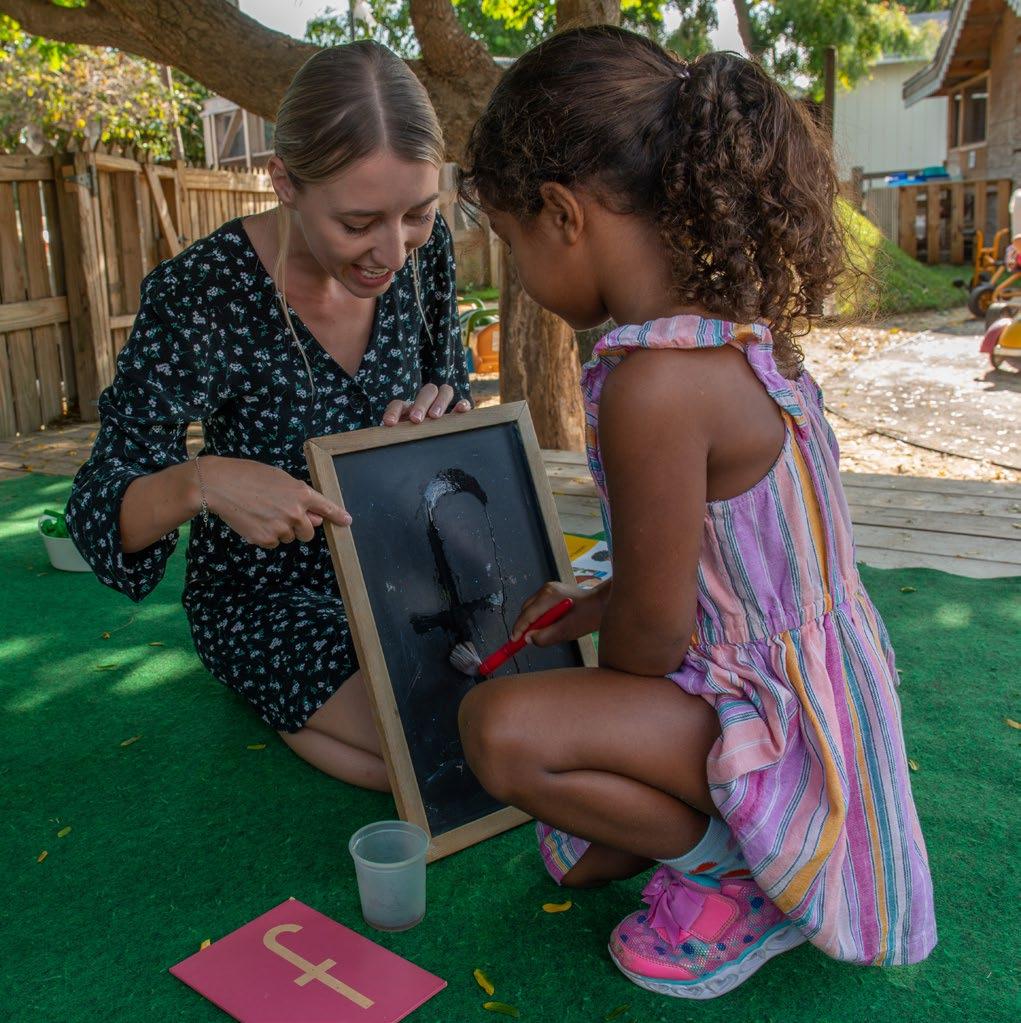
With my trusty sidekick Inky the mouse, a Jolly Phonics puppet who comes along to see how well the children are doing, the literacy lessons are a highlight of everyone’s day.
Once your child can understand, identify, speak and action the
The easiest way to know how to spell a word is to listen for the sounds in that word. Children start by listening for the first sound in a word. For example, the ‘e’ sound in egg or elephant. Games like I Spy are ideal for this. Next, they then move on to listening for the end sounds, before finally the middle sound of the word, as these are the hardest to hear.
5. Tricky Words
There are 72 words in the English language that are not decodable, so these words must be learnt by memory. Examples include: the, was, all, my, do, she. We split the 72 words into five different groups, each level building on the words learned in the previous level. Schools use mnemonics and other fun techniques to help children learn these words.
I recommend trying to capitalise on opportunities by adapting learning to focus on your child’s interests. When children are intrigued, they will learn more. If you would like to support your child’s learning at home, then here are some ideas:
• Introduce a single letter sound, for example, the sound ‘sss’. Find objects – sticker, strawberry, stone – and listen for the sound as you say the word together.
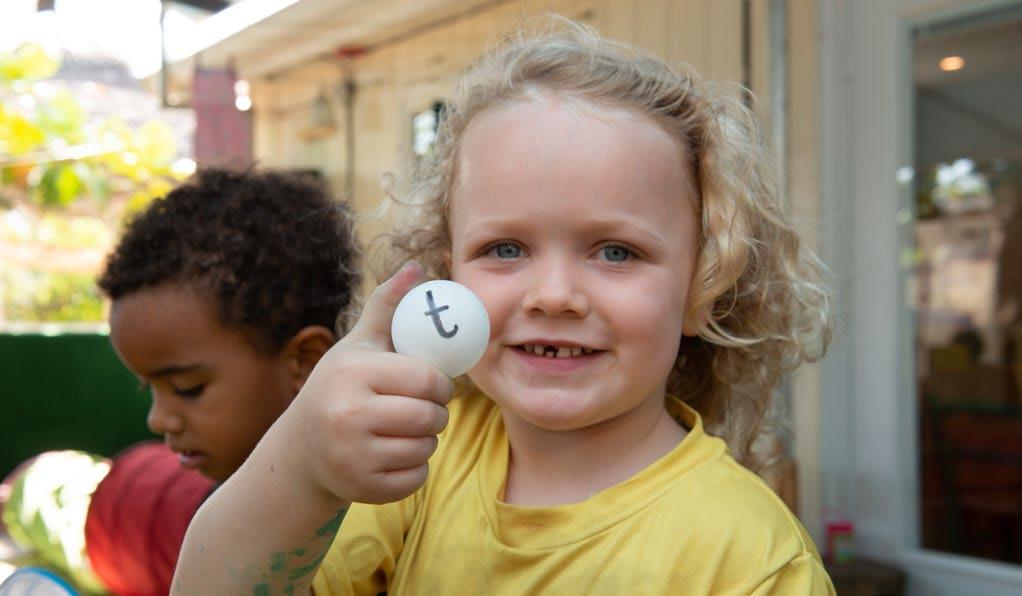
• Learn the Jolly Phonics letter song (these are readily available on YouTube) ‘The Snake is in the Grass, The Snake is in the Grass, ssss, ssss, The Snake is in the Grass.’
• Make up a letter story, for example – Sam and Sally sang sweet songs. Get creative and see if you can come up with longer or sillier stories each time.
• Learn the action – each letter in Jolly Phonics has a corresponding action that serves as a useful prompt. Again, these are available on YouTube or the Jolly Phonics app.
snappy crocodile's mouth – this is the tripod pencil grip.
• Spray bottle alphabet game – chalk a letter and spray it away.
• Threading beads, making necklaces and bracelets.
• Cutting outlines on paper (spirals, straight lines, circles, zigzags).
• Dot to Dot your name – Q-Tip painting over the top.
• Musical instruments – close your eyes and guess the instrument.
• Bean dance – follow dance instructions, i.e. jellybean, jumping bean, runner bean.
• Story sharing – parents allowing the child to add in what they think happens next to draw out a story.
• Noisy or quiet – gather a basket of objects, place one object in a small metal tin and shake it – which object makes the loudest noise?
• "What can you hear in the garden?" Close your eyes and listen to sounds all around.
There is a wonderful website called www.jollyphonicsathome. com which has a wealth of resources on it which are free and can help you teach the Jolly Phonics at home. It has very useful downloadable worksheets for each letter and suggests Apps that will help you with the sounds, songs and flashcards, amongst other things. Here are the options for the Jolly Phonics apps:
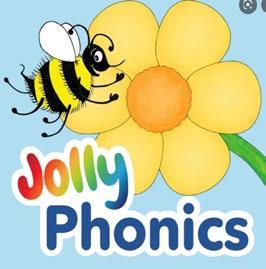
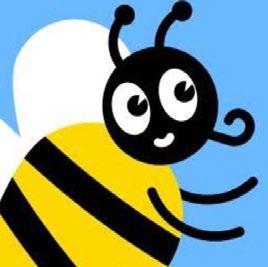
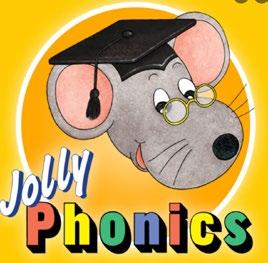
• Rhyme or slime (if it doesn’t rhyme, add it to the slime!).
• Letter sound hunt (hide objects with the same beginning sound – dog, digger, dinosaur).

• Beat out the syllables in your name (count the beats you hear – Sweet Beets on YouTube is a great resource).
• Listen for sounds in rhyming books.
• YouTube music videos (Jack Hartmann and Alphablocks are firm favourites).
• Crocodile fingers colouring – sliding the pencil into the
My name is Amy Westin. Originally from a small town in the UK, I moved to Grand Cayman around seven years ago. I knew from a young age that my passion was children and that has not changed. I have travelled to different countries, gaining knowledge and skills by working with children, before landing on this beautiful island. I was given the opportunity nearly four years ago to join the Little Trotters team as the Jolly Phonics teacher and I jumped in headfirst! I honestly believe that the Jolly Phonics programme and method of learning can be taught effectively by teachers and parents alike.
I hope to have inspired you with ideas to help your children learn their letters. Wishing you all the fun on your Jolly Phonics journey! Miss Amy Westin.
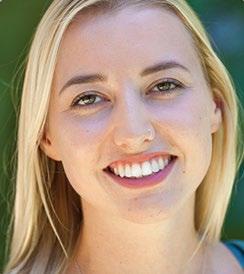
Research has shown that the quantity of words spoken to a child in the early years is strongly associated with their language skills and vocabulary size later in life. Nora Knijf, Speech-Language Pathologist at KidsAbility, shares her tips on how to help your little ones learn new words and skills.
Twenty first century parents are often in a rush, whether they are stay-at-home parents or they work full-time. They often find it difficult to just sit and relax, let alone find time to engage and stimulate young children.
Routines and schedules are packed and busy. Parents are often on the go all day. They wake up, pack school bags, make lunches, shower, get dressed and rush out the door. By the time parents arrive home, make and eat dinner, it’s time for bath and bed. With such busy, hectic days, how can parents ensure they are providing enough opportunities for their children to learn new words and skills?
One solution is to use what they are already doing every day – their daily routines! Daily routines provide predictable and familiar situations for children to learn new language and practise the language they have already acquired. Routines are also repetitive, giving ample opportunity for children to hear words repeatedly in a meaningful context and generalise this language across their environments, for example, at daycare, school, on play dates or extracurricular activities.
• As you are opening the tap to fill the bath – “I’m turning on the tap. Look, the water is running into the bath. It’s getting full!”
• As you are packing their bag – “What do we need for school today? We need clean nappies, put them in! We need clean clothes, put them in!”
Label, Label, Label
• Name objects, items, toys, body parts, etc. when in the midst of the routine
• During bath time: “Here’s the soap.”, “I’m washing your foot.”, “I’m washing your hand.”
• While getting dressed: “Put your arms in. The shirt goes over your head.”
• While putting on shoes: “Put your foot in your sock. Pull it up! Time for your shoes!”
• “Brush your …..” (teeth/hair)
• “You’re eating a …..” (cookie/cracker/banana/etc.)
• Provide choices where you can, and have your child pick by saying a word or pointing if they are unable to talk yet

• “Do you want yoghurt or an apple?”
• “Do you want the spoon or the fork?”
• While washing hands: "Wash, wash, wash your hands!"
• While cooking: "Cut, cut, cut the banana."
Here are a few examples of daily routines and words you can include in these routines:
Bath Time
• Descriptive words: hot, cold, slippery, wet, dry.
• Concepts: in, out, open, close.
• Doing words: wash, dry, pour, splash.
• Names of body parts: head, face, hand, foot, elbow, hair.
• Names of bath toys: whale, boat, starfish, fish.

Meal Time
• Descriptive words: hot, cold, sweet, salty, hard, soft.
• Concepts: in, out, open, close.
• Doing words: eat, drink, bite, pour.

• Names of food items: apple, banana, chicken, broccoli.
• Sounds: yum, crunch, squish.

• Descriptive words: fast, slow, big, small.
• Concepts: in, out, over, under.
• Doing words: sit, buckle-up, go, stop, drive.
• Names of items in the car: steering wheel, window wipers, tyres, door.
• Names of things you see while driving: car, truck, fire engine, ambulance, tree.
• Sounds: Vroom, honk, beepbeep, swish-swish.
• Descriptive words: big, small, red, yellow.
• Concepts: in, out, up, down, over.
• Names of clothing items: pants, shorts, shirt, socks, shoes.
• Names of body parts: leg, arm, head.
Helping with Chores (such as doing the laundry)
• Descriptive words: clean, dirty, soft, big, small.
• Concepts: in, out, under, on top.
• Doing words: fold, put in, take out, pack away.
• Names of items: washing machine, soap, washing basket, names of clothing items (socks, pants, underwear).

Bed Time
• Descriptive words: warm, cold, soft, sleepy, cozy.
• Concepts: in, out, under, over.
• Doing words: lie down, sleep, roll over, cuddle.
• Names of bedroom items: bed, blanket, pillow, teddy bear.
• Bedtime is also the perfect time to learn new words through reading a book.


TOP
If you are concerned about your child's speech development, please contact one of the Speech Language Therapists listed on page 185. The Government's Early Intervention programme also offers free treatment to all children (Caymanian and expatriate) under the age of five (subject to assessment). For more information, call (345) 926 1413 or email: eip@cayman.edu.ky.
Nora is a qualified Speech-Language Therapist at KidsAbility. She completed her undergraduate training in Speech, Language and Hearing Therapy at the University of Stellenbosch (SA) in 2013. She then went on to complete her Master’s degree in Early Childhood Intervention part-time at the University of Pretoria (SA) in 2018. She received several awards for outstanding academic performance throughout her training.
Nora is passionate about the inclusion of all children in the education sector, in social situations with peers, in community and inevitably in society. She believes in providing family-centred services. She strives to empower family members by including them into the therapy process as much as possible, allowing them to be active members in their child’s communication journey.

Whether you’re working or not, some form of childcare during the early years is invaluable, especially if you’re here as an expat without family nearby to lend a hand. Thankfully, support in the form of preschools, nannies or helpers is available in Cayman but you must start planning early.
Before considering the help you need, it’s important to understand the difference between a nanny and a helper. A nanny focuses on the children – they shop for children’s food, prepare meal plans and cook their food, organise children’s activities and clean their clothes. They do not do general house cleaning. A domestic helper, on the other hand, will do laundry, housework, cooking and drive children around to their activities (they may not organise the activities themselves).
Child minding services, which are commonly available in the UK, are not offered in the Cayman Islands. However, preschools, which take children from as young as six weeks, are a popular choice, although they often fill up quickly. So plan early and book your child's place as soon as you know you are pregnant. The following local preschools take children aged from either six weeks or three to four months: ABC Kids, Bloom, NCVO Jack and Jill Nursery, Rite Start, Shining Stars, Sister Janice's and Tiny Tots. They cost between CI$600 and CI$1,050 per month for a full-time place and will keep your children from 7.30am to 5.30pm. There are part-time or full-time options and they do not close for school holidays.
We asked local mothers about this option and were told that the school’s caregivers are, “loving and kind" and they could not recommend them highly enough! When choosing between preschools, please ensure that you read up on ‘Cayman’s School Inspection Reports’ on the Cayman Resident website, as all preschools have different strengths and weaknesses. Once your child reaches 18 months, all preschools are available to them. See ‘How to Choose a Preschool’ on page 76 for more information and the ‘Nurseries & Preschools’ listings on page 127 for a full list of schools.
If you are just looking for a short window of help each week, you could hire ad-hoc help or organise a weekly domestic helper via one of the agencies (AAA Caregivers, Best Home Care or the Perfect Maid & Nanny Agency). They usually require a minimum slot of four hours.
Choosing a nanny or a domestic helper is a lot more complicated
and there are numerous things to consider. For example:
What type of care do you need? Although you might think you only need part-time help, what will you do with your children during the school holidays or when they are sick? Do you need a nanny to help with homework? Or someone who will be the primary source of education, development and stimulation? A very good domestic helper will not only help keep your house clean, but also engage your child in conversation, read to them and take them to activities so that they can socialise.
How much can you afford to pay? As with any job, the most qualified and experienced candidates will require a higher salary. There is a big difference in salary between an early childhood-trained nanny and a cleaner who has babysitting experience. Both a full-time nanny and a domestic helper require health insurance, vacation pay and overtime pay; however, the law does not require you to pay the pension of a domestic helper. Cayman's minimum wage is CI$6 an hour, and extras (living-in, the use of a car) can only account for 25% of their total salary. According to the Labour Act, overtime kicks in after nine hours worked in a single day and must be paid at time and a half. The usual working week is 45 hours (9 hours a day with one hour for lunch). See page 197 for more information on the logistics of hiring a nanny or domestic helper.
Salaries for a domestic helper or trained nanny? There is still a huge disparity between what people are being paid in the domestic helper field in Cayman. In previous years domestic helpers, who clean the house and do occasional babysitting, were being paid as little as CI$1,200 per month or CI$277 per week. This is basically minimum wage multiplied by 45 hours a week. It is next to impossible to survive on this in today's climate with inflation peaking at 14% in 2023 and rents being hiked up.
As of July 2023, a helper should be paid between CI$404CI$577 a week for 45 hours, or if paid less, be offered a monthly rent allowance to bring their salary up. Overtime is now CI$12 an hour. Those that can drive are paid at the upper end. A professionally trained nanny with an early childhood certification who can drive, help the children with their reading and homework, cook and take care of all the children's needs
is now averaging around CI$4,000 per month before overtime.
Do you need a driver? If you require help with driving your child to and from school or after school activities, then a nanny or domestic helper who can drive is essential. Consider whether or not the nanny's car is suitable and safe for your children to be driven around in, or whether you will provide a car for the nanny's use. Remember to pay for their gas or give them a fair allowance towards the weekly cost of their fuel bill.
Live-in or out? Some positions that require long or late hours are more suitable for a live-in person. If opting for a live-in caregiver, you will be required to provide accommodation with sufficient space. If you are considering bringing a nanny onIsland, it is important to be mindful of the cost of living in Cayman for a single person, and factor that into your salary offer. Many families now offer a housing allowance. If your nanny or helper is from Jamaica, or somewhere relatively close, most families will include a yearly ticket back home as part of their contract or every other year if they are from further afield.
Experience and outlook? Early childhood care greatly impacts childhood development. Does the nanny have experience and qualifications? Does she speak clearly? Is she warm and engaging? Do you feel comfortable and relaxed in her company? Does she have a similar set of values to you? Does her outlook on child rearing and education coincide with yours? Is she willing to learn through on-Island workshops and training?
Where to look? Finding a very good nanny in Cayman is not easy, but Cayman is a transient place and when families know they are leaving, word travels fast that a nanny is becoming available. You can also look on the KY Mommies – Nanny Finder or Women in Cayman Facebook pages and see what is available there, or you can post that you need a nanny or domestic helper. Alternatively, you can reach out to one of the agencies or, if money allows, then reach out to Norland College and enquire about hiring a Norland Nanny.
TOP TIP: Living so close to the water, it's important to know whether your nanny can swim. Thrive Fit and Fitness Connection offer swimming lessons for nannies as well as CPR/AED/First Aid certifications.
Family support. For many families with young children who have moved here from overseas, the lack of family support can make life seem difficult. Your children's nanny or family helper, if chosen carefully, will become an important person in your children's lives: your children will blossom if they are cared for by someone who truly loves and cares for them.
Be realistic. Could you care for a baby, entertain a toddler, clean a house, do the laundry, iron, cook, run errands, take the kids to school and do homework with your children? Doing all those things to a high standard is challenging for anyone.
Are they patient and kind with a loving and caring nature?
Are they physically fit with high energy levels?
Are they good at communicating and do they have good interpersonal skills?
Are they trustworthy and reliable?
Are they creative and do they show initiative?
Are they flexible and adaptable?
Can they drive? Can they swim?
Can they help the children with their reading?
Do they have an up-to-date CPR certification?
Can they prepare healthy meals and snacks for your children?
Can they help with evening and weekend babysitting?
Choose which of these factors are the most important to you before you start the interviewing process.
AAA Caregivers is a housekeeping/childcare/elderly and patient care agency offering an experienced team of staff including nurses, nannies and housekeepers. All staff are trained in first aid/ CPR, basic childcare, fire safety and food handling.

Highlights:
Thoroughly-vetted, first aid and CPR trained nannies, baby sitters and domestic helpers • Finder and assessment services available • Vacation support for travelling families: locals going abroad and/or those from overseas • Term break holiday babysitting and nanny services • Also fully qualified nurses offering home healthcare services for the elderly or unwell.
Services Include:
Baby sitters • Nannies • Holiday childcare • Sick child care • Live-in domestic housekeeper • Bespoke services • Home Healthcare Services/Nurses
(345) 916 5925 | Grand Cayman
aaacaregivers@candw.ky | www.aaacaregivers.ky
Serving your household needs to give you peace of mind since 2001.
What’s the most popular meal you cook for the children?
The girls’ parents are from South Africa and it is important to them that the kids try foods from places other than their home country. I often make oxtail for the family to expose them to Caribbean foods which we enjoy exploring together.
What is the most challenging situation you have faced so far whilst looking after the children?
I am often asked to support the family when unexpected emergencies arise. It is especially challenging when the children get sick, simply because it is hard to see them unwell and it tugs at my heartstrings.
What is the funniest thing that you remember the children saying or doing?
These kids keep me entertained every day but especially when the insightful thoughts come from their young minds. Hearing them speak in a Jamaican accent is pretty entertaining too!
What do you find the most rewarding part of looking after children?
The children tell me and show me every day, in their play, in our conversations and when crying for me in a time of need, that I am an integral part of the family unit. Not only do I take care of the girls’ basic needs but I help with their homework, offer an ear when they need help resolving a conflict and am always a safe space for them.
Did your qualifications prepare you well for being a professional nanny?
I worked very hard to earn my diploma in childcare which included both technical and practical knowledge. I am first aid trained and have proven to be calm, collected and proactive in an emergency. Having good judgement is something that I pride myself on and whilst initiative cannot be taught, it is equally as important to my personal growth.
What’s the most popular meal you cook for the child?
The kids and I love to make homemade pizzas! We enjoy experimenting with different bases and toppings, they love to help and get involved in the kitchen.
What is your favourite place to take the child to play?
During the term breaks we thoroughly enjoy a day out visiting the Botanical Gardens. We start with the trails and explore all the wildlife, beautiful flowers and plants. I always bring a picnic and plenty of water because it can get very hot! After lunch we visit the children’s area where we have imaginative play, get soaked in the fountains and explore their awesome treehouses.
If a child becomes upset or angry, how do you calm them down?
Firstly, you need to identify what it is that's upsetting them and to try to find a solution whilst also teaching them to manage their feelings. Children of different ages react differently; toddlers are learning new boundaries and can find it hard to manage their emotions without having the words to express themselves. Always support and reassure children that their feelings are valid. It's important to address the issue in order for them to be able to cope and become well-adjusted and kind human beings.
What first interested you in a career in childcare?
From a young age I always loved being around children, finding them refreshing and intriguing. Maybe it's because I’m still very much a child at heart. I started working in a nursery setting whilst at college and gained my childcare qualifications. I then moved onto private nannying and have been so lucky to work with such amazing families.
Jody McCrea is from Jamaica and is a nanny to two girls aged 4 and 7 years old.
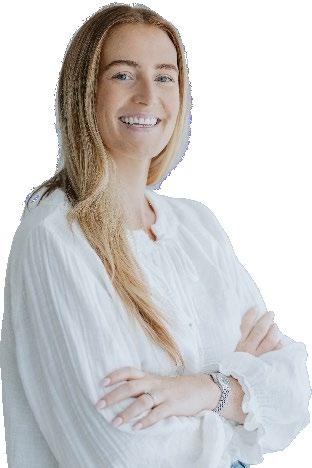
Breeze Beard is British and is a nanny to two girls aged 6 and 8 years old.

Do the children have a favourite game they like to play with you?
The girls enjoy it when we do puzzles together.
If a child becomes upset or angry, how do you calm them down?
I usually just give them a big kiss and automatically their behaviour changes for the better.
What has looking after children taught you?
It has taught me to be patient, kind and loving, and to always provide a listening ear when needed.
What do you think are the best things about raising children in Cayman?
One of the main things I have noticed is that instead of seeing the kids latched onto a screen, they are outside interacting with other kids and learning new activities.
What was your childcare experience prior to working with your current family/children?
I'm a mother to two amazing girls and growing up I had to assist my mother with my siblings, so taking care of children has always played an important role in my life.
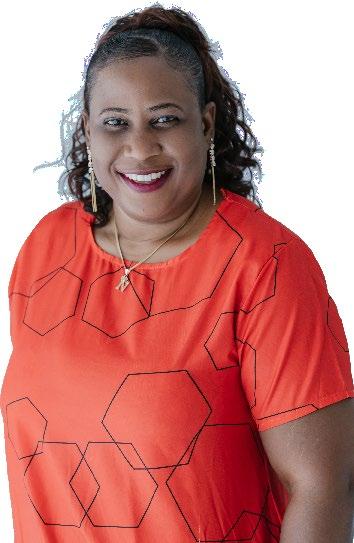
Have you ever had to deal with an emergency situation involving the child or children you look after? How did you handle it?
I just handle each situation with care because often when emergencies occur people tend to get nervous and panic and that can create additional stress.
What first interested you in a career in childcare?
My love for children. They are the men and women of tomorrow and I strongly believe that with the right foundation, one that is rooted and grounded in love and support, every child can reach their full potential.
What first interested you in a career in childcare? Initially, I wanted a career in food and nutrition but then I got my first job as a nanny and it became my new-found love. Children are amazing and I love working with them. It brings so much joy and happiness to me knowing that I am able to contribute positively to their growth and development.
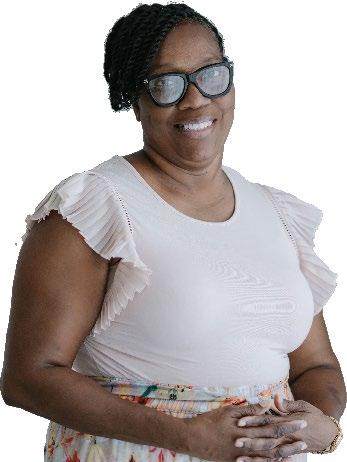
What aspects of nannying do you find most rewarding/enjoy the most?
The most rewarding part for me is when the children grow up to be kind, wonderful people. It is very pleasing to know that I played a small role in that.
If a child becomes upset and angry, how do you calm them down?
This depends on the age of the child as different strategies work for different age groups. Generally though, speaking calmly helps, asking questions to see how best I can help, and I usually suggest we take a break and go for a walk.
What has looking after children taught you?
How to be more patient.
What do you think are the best things about raising children in the Cayman Islands?
I am from a different culture and I love learning new ways of doing things. There are so many different cultures here, and I love that the children are exposed to that and find it completely normal.
How do your qualifications prepare you for being a professional nanny?
Whilst I don’t have any formal qualifications, I have just been CPR/AED trained and I am taking other courses, including how to teach Jolly Phonics.
bring along a picnic blanket and settle in for the reading of children's books, ranging from classic favourites to new best sellers.
7. Plan a family adventure to the Cayman Turtle Centre, where kids can learn about these amazing and majestic creatures. Ride the Turtle Twister waterslide too! Entrance for resident children under two is free, CI$10 for children aged 3-12 and CI$15 for adults. Annual passes are also available: CI$75.60 for adults and CI$50.40 for children. A valid Cayman ID is required.
1. Grab a mask and snorkel and check out Cayman’s top snorkelling sites, including Turtle Reef (West Bay), Cemetery Beach (SMB), Governor's Beach (SMB), Morritt's (East End) and Rum Point (Cayman Kai). Also try the sandbar to swim with the stingrays. Take a boogie board so that children can float above the rays and look down on them. Very exciting stuff!
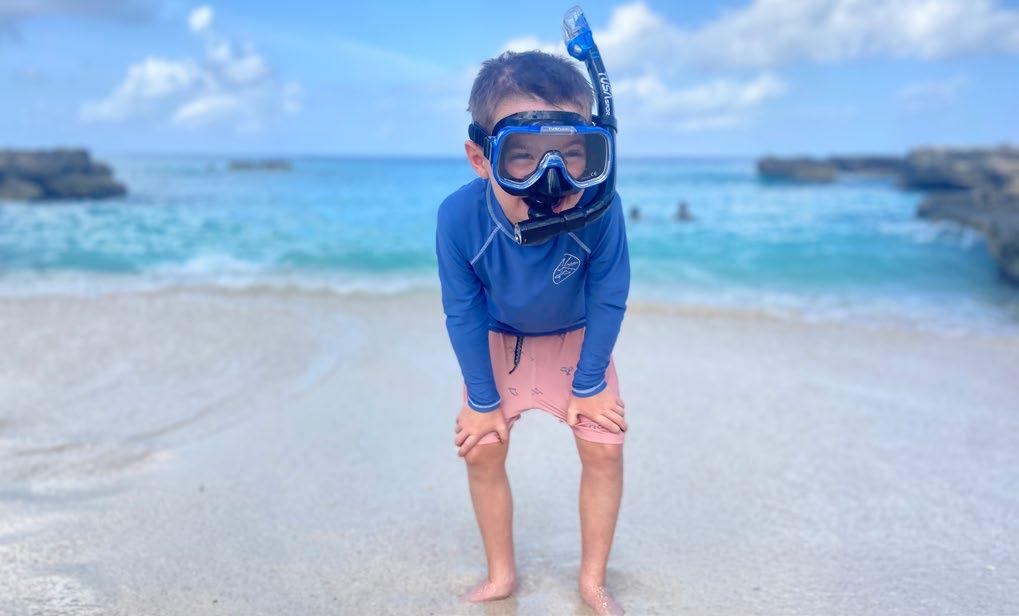
2. Discover historic and natural sites with the National Trust’s Explorer Passport, available to purchase for CI$10. With nearly 40 sites to see and explore – many hidden – adventure is calling for all to enjoy. The Passport includes a map of Grand Cayman and a fun sticker sheet to mark off the stops you’ve made along the way. They have also launched an option which covers the Sister Islands' historic properties and areas of environmental significance. It's very popular with staycationing families!
3. Visit the Cayman Islands Museum. Learn about Cayman’s history and stroll through the children’s gallery. Take a virtual submarine dive and view a turtle nesting site. Residents enjoy free entry on the first Saturday of each month. Children under six also enjoy free entry.
4. Plan a beach clean-up with friends or family members. Bring lots of rubbish bags and see who can collect the largest bag of trash for bragging rights to Seven Mile Beach Saviour of the Year! Check out Plastic Free Cayman's Facebook page for the next beach clean-up. They are sociable and fun!
5. Visit Cayman’s public parks and make it a family goal to try each park on-Island. See pages 252-253 for a complete list and a map.
6. Storytime at Gardenia. Take in Next Chapter’s Storytime in Gardenia Court, which will ignite children's imaginationssurrounded by greenery and in the fresh air. Free to the public,
8. Practise your plane spotting at the Airport Park (the playground opposite Foster's). Aviation enthusiasts big and small will love watching the planes take off and land. Bring a blanket, lay down in the grass and make yourselves comfortable for the full effect of feeling the rumble of the engines and the wheels upon impact!
9. Lounge in the hammocks on the island at Camana Bay. Sometimes doing nothing is really, really fantastic. Encourage your kids to bring a book and spend some time just swinging away in the shade of the palms.
10. Community chess classes and open challenges are free and open to anyone, including complete beginners. Every Saturday at the George Town Library from 11am-1pm.
11. Hike the Mastic Trail and look out for parrots, hermit crabs and beautiful birds along the 2.3 miles. Don’t forget to pack water and bug spray! Self-guided leaflets are available from the National Trust’s Visitor Centre. (Not suitable for children under 10.)
12. Visit Pedro St. James and check out the 3D movie theatre, playground and the 18th Century Great House! Kids under six enjoy free entry.
13. Play some beach volleyball. You’ll find nets at Public Beach (SMB) where you can teach your kids to bump, set and spike their way to victory. Follow practice drills with some healthy family competition. Don’t forget to bring a ball!
14. Visit Starfish Cay Waterpark at the Ritz-Carlton. A day of fun is guaranteed at this interactive waterpark. Kids will love the slides, water fountains and the bright bucket, which is filled with water before soaking children with a waterfall. Weekend day passes are available to residents.
15. Take a trip to Starfish Point and count how many of these fascinating marine invertebrates you can spot amongst the shallow shores. Be sure not to remove these little guys from the water!
16. Visit the Humane Society and give Cayman’s homeless cats and dogs some much needed attention. The pups are always eager for a good stroll and the kitties in the cat room are always happy to receive a cuddle or two!
17. Experience the thrill of hermit crab racing. Find hermit crabs (rainy season is best for this!), mark your competitor with a dab of paint, draw a big circle in the sand and place the crabs in the middle. First crab to the edge wins!

18. Plan a day trip out to East End. Stop along your way at the blow holes and watch your kids’ wonderment as the powerful sea water is blown into the air. Or head to Lovers Wall for a walk along the rocks, and maybe a photo or two, stopping for a picnic lunch on your way back home!
19. Have a sandcastle building contest. Make the most of Cayman’s beaches and host your own sandcastle building competition. May the best imagination win!
20. Enjoy free entry to the National Gallery and pick up a Family Guide filled with interactive activities such as scavenger hunts and games. Don’t forget to see the permanent collection upstairs.
21. Feed the tarpons at Andiamo or The Wharf. No matter the age, kids and adults are sure to be impressed by the sheer size of these fish. With nightly feedings, show up, grab yourselves some grub as well, sit back and enjoy a truly entertaining show!

22. Climb the 75ft Observation Tower in Camana Bay and enjoy panoramic views of Grand Cayman. Check out the mosaic tiles, which mimic the experience of scuba diving Little Cayman’s famous Bloody Bay Wall. Spot the horse-eye jacks, the spotted eagle ray and other marine life!
23. Head to Spotts beach and see if you can find the sea turtles who come in to feed on the seagrass. The rock pools to the far right of the dock are also fun to explore when the tide is low; here you can search for whelks, crabs and tiny fish.
24. Practise rock climbing at Camana Bay. Be sure kids are wearing some sturdy trainers with good grips and, with your supervision, they can practise their climbing skills on the rocks lining the Crescent by the fountains.
25. Play baseball. Learn how to play baseball for free in a fun and safe environment. Coaching and the uniform are included but children must bring their own glove. Contact the Cayman Islands Little League Association at info@littleleague. ky to register.

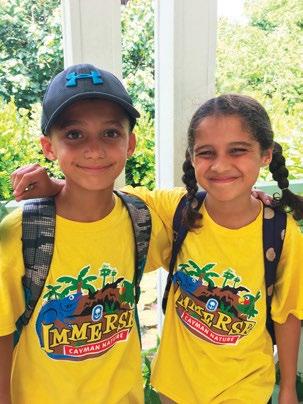
26. Cool down in the fountains at Camana Bay. Both operate daily on the Crescent and outside Jasmine Court.
27. Head to the local Farmer's Markets. Learn to identify vegetables and learn about how they grow by talking to local farmers at the Camana Bay market on a Wednesday (from 10am-4pm) and The Hamlin Stephenson Farmers' Market next to the Cricket Pitch in George Town on Saturdays (from 7am3pm).
28. Watch the weigh-ins at fishing tournaments for a chance to see some truly impressively sized fish! Visit the Cayman Islands Angling Club’s website to learn of upcoming tournament dates and locations for weigh-ins at www. fishcayman.com.
29. Visit local artist Gordon Solomon’s art studio, Solomon Studio, in Cayman Brac, for a truly incredible artistic experience. His studio is open by appointment. Visit www.







Cayman has a wealth of public parks and playgrounds with climbing frames, swings, restrooms and shaded areas. They can be found everywhere from West Bay to North Side and are a fun place to spend time with your children.
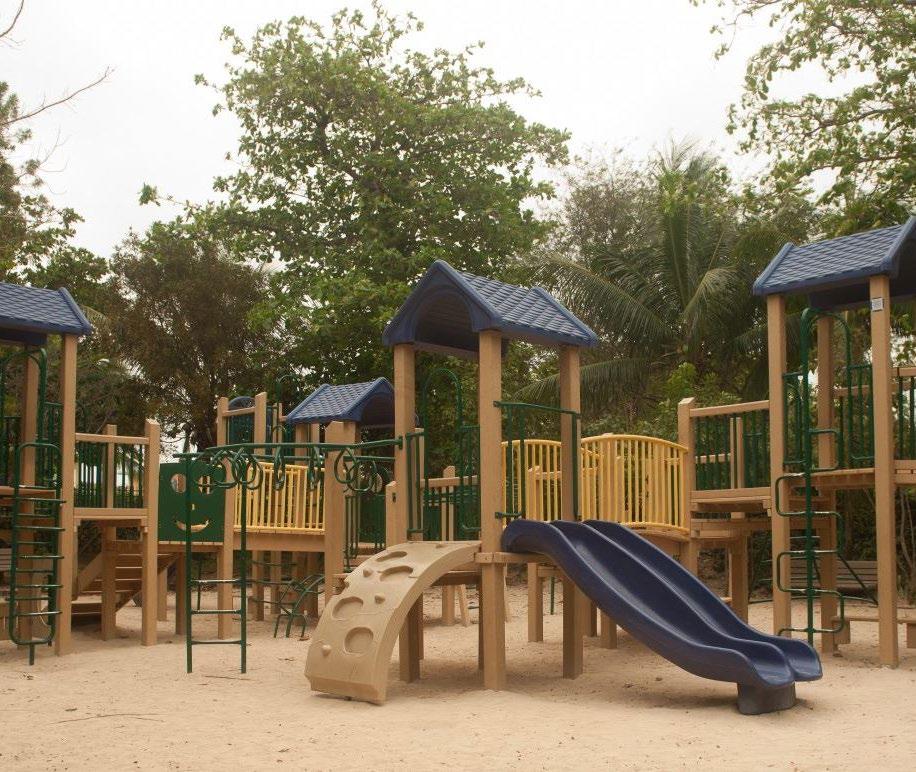
Cayman's parks are a great place to host a children's party for free! Visit the Public Lands Commission website for details on how to book a park or cabana.
1 Scholars Park
Corner of Birch Tree Hill Road and Stadium Drive, West Bay
Sanded play area, playground, baby swings, restrooms, drinking fountain, gardens and shaded grassy areas.
2
A small park with a sand box, a jungle gym, restrooms, plus a dock by the sea.
Dorcy Drive, George Town
9
The
An interactive waterpark with zero-entry splash pools, slides, water fountains and a bright bucket that fills with water before soaking children. Day passes are available to residents.
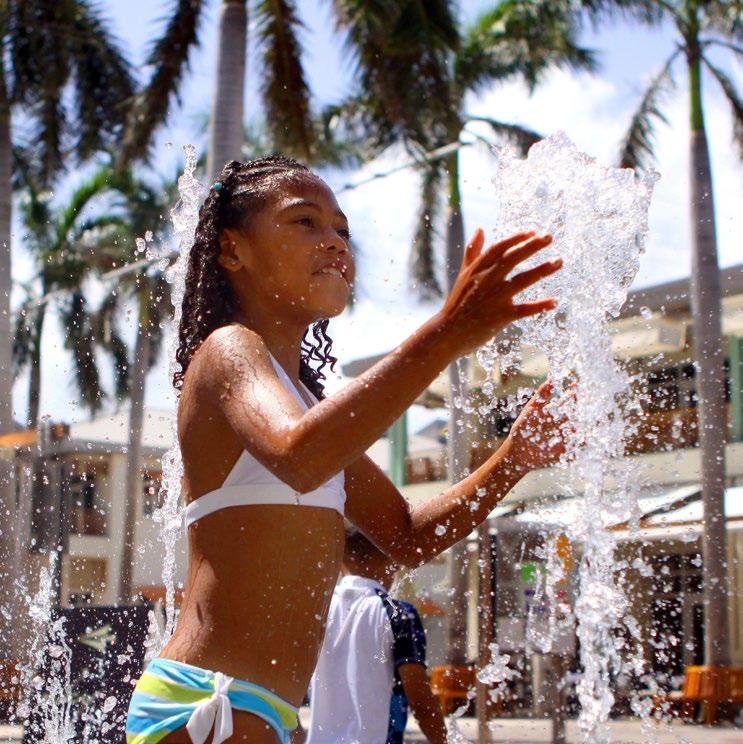
A.
and restrooms.
Hemlock Way, off Moonbeam Drive, Savannah
Children’s play set, sand pit area, basketball court, BBQ pit, landscaped areas and a gazebo
10 Moonbeam Park
Moonbeam Drive, Savannah
Jungle gym play area set in sand, cabana and a half basketball court.
11
Children’s play set, sand pit, BBQ, cabana, basketball court and landscaped areas.
Pedro
Pedro Castle Road, Savannah A playground, acres of green space, nature and history trails, restrooms and a restaurant overlooking the sea.
Don’t forget sunscreen! See our article on Sun Safety on page 265. 14
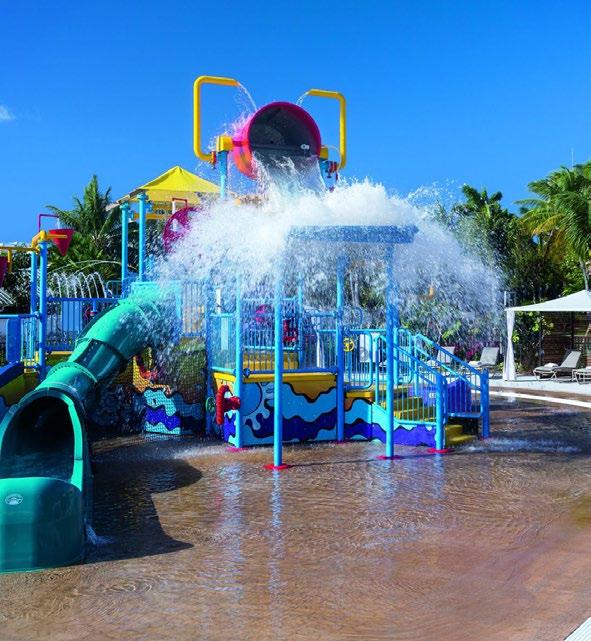
Public Parks



Open & Close Times Parks are open seven days a week from sunrise to sunset!
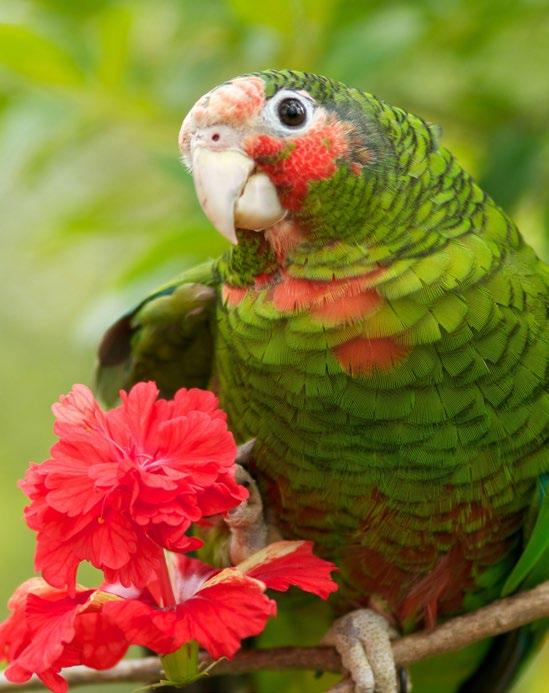


A cheerful, optimistic handbook for those shaping the next generation of responsible global citizensready to change the world for the better! The book gives practical advice on how to talk to your children, the vocabulary to use, and activities you can undertake with your children.
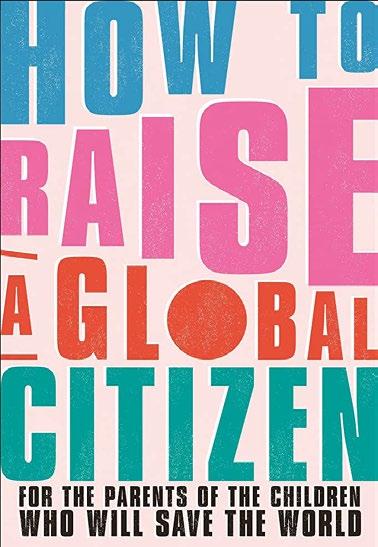
Having a second baby is a very different experience from having your first, yet there is little recognition of the wide range of issues to consider when bringing a second child into the family. This incredibly helpful book helps parents feel more positive and prepared for life with two children.
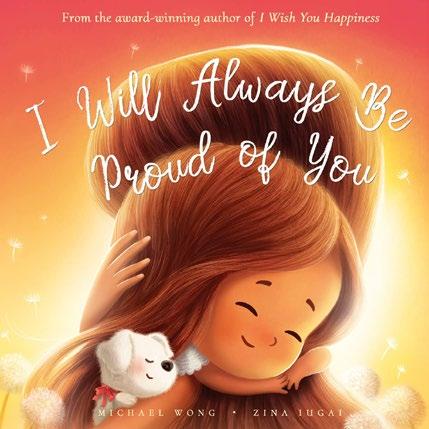

An evidence-based book on parenting. Science journalist, Moyer, outlines preferred childhood traits, including honesty, generosity and antiracism, and then provides scientificallybased strategies that will help parents instil those characteristics in their kids.

Chompers Each episode offers two minutes’ worth of jokes, songs and facts, to be played during teeth brushing time, so as to provide some fun and distraction. There are also reminders on how children should clean their teeth effectively. Free on Apple Podcasts and Spotify.

Handa carries seven delicious fruits to her friend Akeyo as a surprise. But thanks to some hungry animals she meets along the way, it's Handa who's in for a surprise! This classic book has lovely illustrations and helps introduce little ones to numbers and different types of fruit.
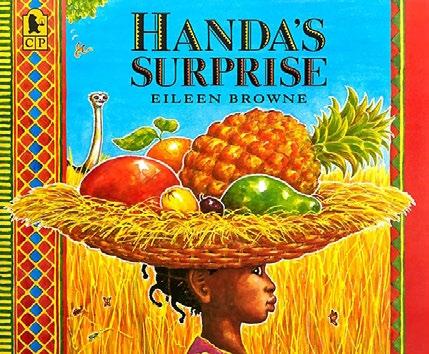
This timeless story empowers children to be the best they can be. It explores the many wonderful possibilities in life, and reassures children that they will be loved unconditionally whatever they choose to be. Spot the five famous people who make a surprise appearance in the illustrations.

When a little boy's ball disappears down a mysterious hole in the garden, he can't stop thinking about what could be down there - a little mouse's house? The lair of a hungry troll? Or maybe even a dragon's den. Whatever it may be, he's determined to find out!
Goodness Shapes Friendlylooking shapes help kids learn colours, matching and sorting in this preschool-friendly app. Kids can challenge their brains while they practice matching, sorting and other fun games. Also works offline. US$2 in the Apple Store.

Atlantic Kids
Paddington Place, Godfrey Nixon Way, George Town. Tel: (345) 943 2296 Web: www.atlanticak. com. Atlantic Kids carries a great selection of fun, award-winning toys for boys and girls at affordable prices. They also sell a unique selection of books and educational items to help children learn to read, count and improve their analytical skills. They sell Jansport backpacks and other back-to-school items.
Baby Express
68 Mary Street, George Town. Tel: (345) 640 2397 Email: customerservice@babyexpress.ky. They sell a small but good selection of toys for children from newborns to age five years. They also stock Fisher-Price toys.
Bedside Manor
Market Street, Camana Bay. Tel: (345) 947 2711 Web: www.bedsidemanor.ky. A good selection of high-quality toys for infants and toddlers, including stuffed animals, crib mobiles and playmats. They also sell high-end sheets, pillows and duvets.
The Book Loft
Above the Humane Society, 153 North Sound Road, GT. Tel: (345) 946 8053. A large selection of second-hand books, games and puzzles in good condition.
Book Nook
Galleria Plaza, West Bay Road, Seven Mile Beach. Tel: (345) 945 4686. A well-stocked bookstore that also sells lots of toys and games. A great place to pick up birthday party presents.
Cost-U-Less Governors Square, 51 Lime Tree Bay Avenue, SMB. Tel: (345) 745 5377 Web: www.costuless. com. A reasonably priced selection of toys.
Little Coconuts
The Crescent, Camana Bay (between Pani & Red Sail Sports). Tel: (345) 325 7017 Email: hello@ littlecoconuts.ky Web: www.littlecoconuts. ky. Little Coconuts is a baby and children store offering beautiful, high-end clothes and toys. Clothing includes everything from newborn rompers and pyjamas to shorts, dresses and
tutus. In the toy section, find books, imaginative play toys, games, puzzles, sensory boxes and much more. Beautiful themed party decorations are also stocked.
Next Chapter
45 Market Street, Camana Bay. Tel: (345) 640 2665 Web: www.nextchapter.ky. A large range of high-quality children’s books, toys and craft activities with options for all budgets. A great place to buy birthday presents.
Priced Right
Two locations: Airport Centre, 63 Dorcy Drive, GT. Tel: (345) 815 1070; Republix Plaza, 2373 Willie Farrington Drive, West Bay. Tel: (345) 949 3214 Web: www.fosters.ky. They always have a small selection of well-priced toys that increases in quantity and options closer to Christmas.
A. L. Thompson's
189 North Sound Road, George Town. Tel: (345) 949 8622 Web: www.althompson.com. ALTs sells Dreambaby® safety items to childproof your home.
Kirk Home Centre
257 Eastern Avenue, George Town. Tel: (345) 949 2521. Sells Safety 1st® along with Dreambaby® and Toddleroo® safety items to childproof your home.
Pool Patrol
North Sound Plaza, George Town. Tel: (345) 949 8543 Web: www.poolpatrol.ky. They sell various levels of safety equipment.
AAA Caregivers Agency
Tel: (345) 916 5925 Email: aaacaregivers@ candw.ky Web: www.aaacaregivers.ky. A childcare agency with experienced and trained nannies. They also offer evening babysitting services.
Best Home Care Agency
Tel: (345) 947 2297 Email: bhc@candw.ky. They offer housekeeping and occasional babysitting services.
The Perfect Maid & Nanny Agency
Tel: (345) 325 1507 Email: theperfectmaidand nannyky@gmail.com. Housekeeping and babysitting services available on a regular or casual basis.
The Minerva Academy
Tel: (345) 746 9999 Email: contact@minerva.ky. Minerva Academy is the local training solution for your staff in Cayman. Their certified courses are endorsed by the British Butler Institute and designed for domestic helpers and other private staff. They also offer services in staff recruitment, home management and personal administrative assistance to high-profile families and busy professionals. Their home absence care is designed for individuals who travel extensively and who need reliable, well-informed supervision of their staff and their homes.
CayCubs
The Grove, West Bay Road, SMB. Tel: (345) 749 3624 Web: www.caycubs.com. A multifunctional, fun soft play facility for children up to 10 years of age.
Lil' Monkeys
Bodden Place, Shedden Road, George Town. Tel: (345) 929 5737 Web: www.lilmonkeys.ky. In door playground and café open daily 10am6pm.
Motions Unlimited
Sparky's Drive, George Town. Tel: (345) 749 8365 Web: www.motionsunlimited.com. They have a full weekly schedule of classes for children from 18 months of age and up. Their Toddler Play Day sessions, for ages six and under, on Wednesday, Thursday, Friday and Saturdays are extremely popular and are a great way to meet other parents while your children run about and let off steam.
The National Gallery of the Cayman Islands
Esterley Tibbetts Highway. Tel: (345) 945 8111 Web: www.nationalgallery.org.ky. Offers art classes and family fun days. Family tours available. They often host interesting and creative classes for children. See their website for upcoming events.
South Sound Playgroup
Cayman Islands Baptist Church Youth Centre, 163 Pedro Castle Rd., Savannah. Tel: (345) 943
6556 Email: southsoundplaygroup@gmail.com Web: www.southsoundplaygroup.ky. Held Mondays 9.30am-11.30am. It's a great place for children to meet each other, socialise and play. There are lots of toys, a craft activity and snacks. Parents and nannies love it as they can socialise while their children play safely. The cost is CI$10 per child.
Swimwear & Sun Tops
Atlantic Kids
Paddington Place, Godfrey Nixon Way, George Town. Tel: (345) 943 2296 Web: www.atlanticak. com. They have a large selection of swimwear and suntops for children from infants to teens.
Divers Supply
West Shore Centre, West Bay Road. Tel: (345) 949 7621 Web: www.diverssupply.ky. A good selection of swimwear and sun tops for children and adults.
Divers World Seven Mile Shops, West Bay Rd. Tel: (345) 949 8128. Kids swimwear and sun tops, also wetsuits, sun hats and beach toys.
Funky Monkey
Governors Square, West Bay Road. Tel: (345) 943 8659 A fantastic selection of swimwear, sun tops, rash guards and hats for children and adults.
J Michael
The Strand Shopping Centre, Canal Point Drive, off West Bay Road. Tel: (345) 946 5310 Web: www.jmichael.ky. They sell a good selection of affordable swimwear, sun tops and hats for children.
Little Angels Market Street, Camana Bay. Tel: (345) 946 2645. Extensive selection of high-end SPF 50+ sun protection tops, swimwear, jelly shoes and more.
Little Coconuts
The Crescent, Camana Bay (between Pani & Red Sail Sports). Tel: (345) 325 7017 Email: hello@ littlecoconuts.ky Web: www.littlecoconuts.ky .Swimwear and sun tops for little ones.
Red Sail Sports
Located at the Kimpton Seafire, Westin, Camana Bay, Locale and the Morritt's shops. Tel: (345) 623 5965 Web: www.redsailcayman.com. Swimwear and sun tops for adults and children.
Waterman Cayman/Blue Wave
West Shore Centre and Galleria Plaza, West Bay Road, SMB. Tel: (345) 769 7873 Swimwear and sun tops for adults and children. Brands include Billabong, Dakine, Ocean Tec, Reef, Quicksilver, Rip Curl, Roxy, Rvca and Vissla. They are also the Cayman distributors for YETI water bottles.
Cinderella Enchanted Parties
Tel: (345) 923 6797 Email: cinderellasparties@ gmail.com Web: www.cinderellasparties. com. They offer a variety of magical character performances with characters such as Disney Princesses, Marvel & DC Superheroes, Harry Potter, Star Wars, Minecraft, Mermaids and Pirates! The characters can join families anywhere in the Cayman Islands, any day of the week. Help make precious memories for your little ones as princesses do makeovers and updos, superheroes play games, a Star Wars Jedi teaches you how to use 'The Force', Harry Potter uses his magical powers and the pirates and mermaids take amazing photos!
Paradise Slumbers
Tel: (345) 925 3217 Email: info@ paradiseslumbers.ky Web: www. paradiseslumbers.ky. Paradise Slumbers are designed to provide kids with a unique slumber party experience. Choose from one of their popular themes, and they will transform your party space into an indoor 'glamping' oasis with individual tents, camping mattresses, fairy lights and more! They will deliver, assemble and design your party, as well as come back to pack up everything. Visit their website to view their packages and popular themes, ranging from 'Harry Potter' to 'Pirates' to 'Unicorns'.
CBAC (Camana Bay Aquatic Club)
95 Minerva Dr, Camana Bay. Email: info@ cbac.ky Web: www.cbac.ky. Swimming and synchronised swimming lessons.
Darren Mew Sports & Fitness
Lions Aquatic Centre, Olympic Way, George Town. Tel: (345) 323 9512 Web: www. darrenmew.com. Swimming lessons for ages three and upwards. Lessons are offered at home, in the ocean or at a local pool facility.
Fitness Connection
1 Bambi Close, Glen Eden Road, South Sound. Tel: (345) 949 8485 Email: fitness@fitness. ky Web: www.fitness.ky. A Starfish Aquatic Institute Training Centre offering a variety of programmes for all ages and abilities. Swimming lessons for babies begin at six weeks old. Private and group classes available.
Sky Blue Aquatics
Tel: (345) 916 0054 Email: info@skyblue aquatics.com Web: www.skyblueaquatics. com. Mobile swimming instructor with lessons for ages four months to adults. Private, semiprivate and small group lessons provided.
Stingray Swim Club
Lions Aquatic Centre, Olympic Way, George Town. Email: headcoach@stingrayswimclub. ky Web: www.caymanswimming.com. A competitive swimming club offering lessons and coaching to swimmers of all ages and abilities.
Thrive Fit
Tel: (345) 938 1113 Email: info@thrivefitcayman. com Web: www.thrivefitcayman.com. Mobile swimming instruction for children aged six months and up. Private, semi-private and group lessons available.
Camana Bay's Water Fountains
Web: www.camanabay.com. Camana Bay offers two sets of interactive fountains to help little ones cool off. Jasmine Court's fountains are perfect for little ones. The Crescent’s grand fountains shoot water 30-feet in the air appealing to the slightly bigger kids. Children can play in the fountains any time of the day or evening.
Cayman Turtle Centre Northwest Point Road, West Bay. Tel: (345) 949 3894 Web: www.turtle.ky. Breakers lagoon at the Cayman Turtle Centre has two waterfalls, an underwater viewing panel to peer into the predator tank and a waterslide called the Turtle Twister. The waterslide is 15ft high, 100ft long, is great fun and loved by children!
Kimpton Seafire Splash Park
60 Tanger Way, Seven Mile Beach. Web: www. seafireresortandspa.com. The Splash at Seafire is a 14,000sq ft splash park. The park is open from 10am-4pm daily for guests of the hotel and also for residents if there is availability and the spot is booked in advance. Visit https:// seafire.idaypass.com and check for an opening day and time. You can book for a 10am-1pm slot or a 1pm-4pm slot at a cost of CI$25 per person. It is designed primarily for use by toddlers and primary school-aged children.
Queen Elizabeth II Botanic Park, CNB Splash Pad
367 Botanic Park Road, off of Frank Sound Road, North Side. Tel: (345) 947 9462 Web: www. botanic-park.ky. Families can explore 65 acres, including the Children’s Garden, which features climbing frames, the CNB Splash Pad, a discovery tower, larger-than-life animal sculptures, a maze, tunnels, grow zone, sensory garden, the Rotary Schoolhouse and so much more! The Botanic Park is also home to the Blue Iguana facility, where families can meet and learn about the endangered Blue Iguana as well as enjoy a self-guided nature walk.
Starfish Cay Splash Park at the Ritz-Carlton
Seven Mile Beach. Tel: (345) 943 9000. Open for residents seven days a week, this fun and interactive waterpark is great fun for young children and a relaxing place to watch them squeal with laughter as the huge bucket of water drenches them! The cost is CI$30 per person (toddlers under two go free) and this includes towels, suncream, iced water, shaded lounge chairs and a server bringing you whatever you need! Their Italian restaurant, Andiamo, serves family-friendly food, which can be served in the splash park as you watch your children play.

When school lets out for summer, many parents find themselves wondering how best to fill the months ahead. With children out of their regular routines, it’s important to provide some structure to those endless summer days.

Keeping kids entertained isn’t always an easy task, but one of the best things you can do for your children is to ensure their minds stay active over the long summer holiday. Coming up with a few fun activities and encouraging daily learning can help kids boost their skills and create good habits.
Stephen Coles, Headmaster at Island Primary, recommends incorporating skills your children have already learned at school. “This not only helps train the brain, but it ensures your kids don’t lose the skills they worked so hard to achieve in the first place.” For Coles, a successful summer means keeping the momentum going. Of course, downtime over the holidays is important, but it’s critical to get the balance right. Without tasks to help excite, motivate and stimulate the brain, a long summer of rest can end up having a negative effect on your child’s learning.
“It’s much easier for a child to work on maintaining skills over the summer, than it is for them to come back in September and have to start all over again,” says Coles.
And beyond the benefits of keeping the mind sharp, having a plan in place for the holidays is an excellent way for kids to
begin building good patterns. Staying engaged in learning will help them develop good behaviours that will cross over to other areas of their life.
So whether it's a series of brain-boosting exercises, joining a camp or practising at-home skills, start planning how you can keep your little ones engaged this summer. To help get you organised, we’ve shared some of our favourite ideas below.
How do you get kids excited about learning new skills? Well, goal tracking can be a huge motivator!
At the beginning of summer, sit down with your children and choose a goal to work towards. With a specific goal in place, your child will have a fun and steady summer project to chip away at. From there, create a weekly plan and develop a tracking system that works for your chosen activity. The tracking system is important because it will help your child visually keep tabs on how much they are learning.
For example, if your child wants to learn Spanish, you could
create a tracker where a sticker is placed for every ten new words learned. By the end of summer, they’ll be able to see just how far they’ve come. Incorporating a rewards system is another great way to make their learning journey more exciting. Maybe when they’ve hit a certain number of words, there’s an ice cream party!
Classrooms are important, but at home, you have the opportunity to teach your kids a number of new skills. Although many schools now incorporate things like cooking, gardening and cleaning into their curricula, the summer holidays provide the perfect opportunity for kids to get more involved.
Get their hands dirty in the garden by planting something new together. Ask for their help when you cook their favourite meal. Show them what it’s like to care for something. When you involve your kids in everyday tasks around the house, you are teaching them important lessons about responsibility. And by having a better understanding of how things are done, they’ll be set up for more success in the years to come.
In school, children are constantly surrounded by both friends and staff. Whether it's on the playground or in the classroom, there are always opportunities for conversation.
“Aside from being critical to mental health and wellbeing, being social allows kids to build confidence in using social and emotional skills such as self-regulation and problem-solving,” says Coles.
Some of the greatest learning kids can do is simply through chatting and playing with their peers. Hanging out with old friends or even meeting someone new can help your children develop confidence and improve their self-esteem.
So, schedule some playdates, have them join a new club or hang out at a park or the beach. Creating connections is a fantastic and fun way to keep your child active.
Some say that the key to happiness lies on the other side of our comfort zone. And while it’s important to get the balance right, helping your kids step outside of what’s familiar to them can have huge benefits.
Summer camps are a fantastic way for kids to learn new skills and build confidence, and Cayman is lucky to have a wide range of options. Whether your child is looking to try a new sport, connect with their creative side or get out on the water, there are many camps to choose from. Camps are also a great way for your children to meet new people and make new friends. For a comprehensive list of camps, head to www. caymanparent.com/camps.
Overseas overnight camps can also be a great option and are really fun once your child gets over the initial worry of being left there for two weeks or a month! These camps can provide amazing learning opportunities and new activities that your children might not find at home.
For example, Onondaga Camp in Ontario, Canada has over 30 different activities for kids to participate in. Whether it’s watersports, ziplining, horseback riding or tennis, overnight camps can truly keep your kids on their toes and learning all summer long. They take children from the age of 6-16 and then at 16 years of age, campers can start the process of becoming a counsellor. The Leadership In Training (LIT) course is a two-year programme and it teaches the skills needed to lead activities and how to be a successful cabin counsellor. It's a wonderful opportunity for a teenager.


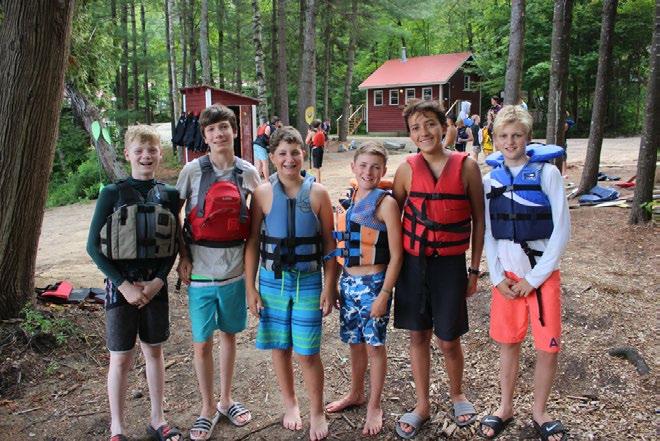


“Summer camps are great because they offer a superior experience for growth and independence,” says Alyson Robertson, Director at Onondaga Camp. “They provide a break from screens and tech, and allow kids to unplug and live in the great outdoors, all while making new friends from around the world.”

By placing your child in an entirely new environment, they get the chance to try new things and explore their surroundings with more independence. They are perfect for children who want to

try new hobbies and broaden their horizons in a supportive, safe and friendly environment.

One of the best pieces of advice we have for families is to learn together.
“An experience that is shared is powerful,” says Coles. “Learning alongside someone will help strengthen existing relationships and really get children thinking.”
So, think about something you’d like to learn more about and then involve your children in the journey. Being in it together will help encourage conversation and provide a greater opportunity for you to connect.
For example, maybe you want to learn more about countries around the world. Choose a new location each week and learn about it together. You could read a book or watch a film about the place, or even try to make the country’s national dish. Whatever you choose, sharing the experience of learning is a fun way to bond with your children and keep both your brains active.
“When children see their parents, carers or other family members continuing to learn later in life, it inspires them and will have a lasting positive effect well beyond their school years,” says Jonathan Clark, Principal at John Gray High School. “I’d also recommend sharing things you’re passionate about with your kids. Stretch their imagination with different genres of books,
movies, sports and music. Think of the things that influenced you when you were young. Sit with them to watch your favourite movies and then return the favour,” says Clark. “My children are developing a love of Stevie Wonder, Michael Jordan, Marvin Gaye and David Attenborough! Show them a piece of your world and then get into theirs!”
Screen time can be a hot topic when it comes to parenting, but there are so many educational programmes that are perfect for learning new skills. Check out some of our current favourites below:
Best Apps:
Khan Academy
Created for children ages four and up, this free app provides learning opportunities for kids of all ages. Developed with visual learning in mind, your kids will stay entertained with a selection of fun quizzes and informative videos.
Hopscotch
Recommended for ages 9-11, this app introduces kids to the art of programming. Hopscotch teaches the basics of coding and kids can get creative by making their own games, stories and art.
Quick Math Jr
This app is proof that maths doesn’t have to be boring! Created for children ages 4-8, Quick Math Jr has 12 different maths games to help kids build their skills. When September arrives, they’ll be feeling confident and ready to take on anything!
Best Television Shows:
Brainchild
This is a great show for children ages seven and up with a love of science. Every episode has an experiment and they explore everything from dreams to the concept of gravity.
How do volcanoes explode? Why do we need to brush our teeth? This fun and informative show for ages three and up answers some of our kids’ most popular questions! Grown-ups can keep their eyes peeled for appearances by famous people.
This classic show has remained popular for a reason. Thoughtful and kind, Mister Rogers gently teaches children ages three and up about a wide range of topics, including why we should feel good about ourselves and how to celebrate our uniqueness.
Best Websites: Typing.com
This free website has typing programmes for kids of all ages.
Computers are now a mainstay in our children’s education, so getting them to practice typing is never a bad idea.
BrainPOP and BrainPOP Jr give kids age nine and over access to over 1,000 short videos and quizzes. From music and maths to English and engineering, there is plenty to learn.
With National Geographic Kids, kids age six and up can discover fun facts about animals, history, geography and more. Plus, there are a tonne of free games and exciting competitions.
When it comes to learning, where better to start than your local area? In Cayman, we are blessed to have access to incredible nature right on our doorstep.
Try planning an informative kayaking trip through Cayman’s mangrove forest or take your kids to the Queen Elizabeth II Botanic Park. Hike parts of the Mastic Trail for a closer look at Cayman’s flora and fauna or visit the Cayman Turtle Centre to learn more about the Island’s conservation efforts.
“Balancing downtime with planned activities will mean that come September, picking up the busy schedule of the academic year will be slightly less daunting,” says Cole.
And beyond Cayman’s beautiful scenery, there are still many things you can teach your kids about the place that they call home.
“Learning is everywhere in Cayman, from the environmental issues and climate change to Cayman’s history, economics and tourism industry. The learning opportunities are endless,” says Clark. “My advice for the summer is to take your kids and visit somewhere in Cayman that you have never been before.”
At this point, we know that learning comes in many forms, but sometimes the most beneficial thing we can do for our kids is to just encourage them to read for 30 minutes every day through the summer. The other is to pair them with an academic specialist. Tutoring can be an excellent way of bridging the gap between the end of one school year and the start of another.
Dean Elizabeth Brown-Richmond, who has been teaching English for over 21 years and is currently the Literacy Coordinator at the Clifton Hunter High School, says that "Students can lose up to one month's worth of learning achievement over the summer, especially struggling students who have little to no access to books. This is because the brain is like a muscle; the more you exercise it, the stronger it gets; the less you use it, the less sharp it becomes." She goes on to say that "one of the easiest ways
to prevent the summer slump is for children to keep reading, as well as doing literacy and maths games. Parents can help their children do this by deliberately planning summer activities that include children reading for at least 30 minutes or more each day. Allow them to create the schedule, to take more ownership of it, and place it in a visible place, such as on the kitchen fridge. Keep them motivated through rewards or incentives for sticking to their schedule."
Tatum Acutt, owner of Baobab Education Ltd, agrees: “One of our biggest aims as tutors is to foster a love of reading, a skill that will benefit a child for the rest of their life. A few hours with a reading specialist can help close reading gaps, and help those who are struggling become strong, independent readers.”
TOP TIP: There are a wealth of good tutoring companies in Cayman. See page 141 for a list of options.
There are many ways to keep your kids active and engaged over the summer and by using some of the tips in this article, you can help them develop better social skills, spark curiosity, learn independence and build upon a number of important skills.
“All of these things will help develop your child’s character,” says Clark. “But they will also help strengthen your relationship and better their understanding of the world – all things that can only be good when they finally return to the classroom".
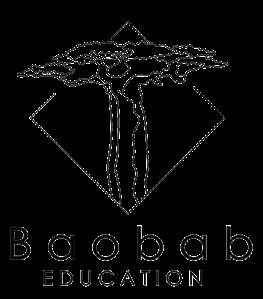
(ages 3+)
Baobab provides a range of support services for academic and social-emotional needs for ages ranging from 3 years to adulthood. Their vision helps to ensure that students receive the support needed to engage purposefully in learning and experience academic success. Baobab's staff are all experienced and passionate educators, each a specialist in their respective fields. Baobab is a mobile service, travelling to homes and schools. No matter the location, Baobab fosters a loving and nurturing learning environment.
Highlights:
Holistic educational support
• Highly qualified educators
• Over 30 years experience
• Support for early childhood through to high school and adulthood
Services Include:
Reading Intervention
• Dyslexia Support
• Literacy Foundations
• Parent Coaching
• Professional Development for Schools
• Social-Emotional Support
(345) 924 9103 | admin@baobab.ky | www.baobab.ky
With such a wide range of children’s activities available for your kids to choose from, we have made life a little easier by researching some of the different activities (and their costs) for you.
There are quite a few athletics clubs that your child can join and they meet almost every afternoon at the Truman Bodden Sports Complex (TBSC) for after school training. You can try the following clubs: Coach Porter at Speed Athletics on (345) 525 2793 or email: speedathleticstrackclub@gmail.com; Falcon Athletics on email: falconathleticsky@gmail.com; Coach Williams from HyTech Tigers TFC on (345) 925 1943 or email: hytechtrackclub@ gmail.com; Mustang Track Club on (345) 925 6917 or email: tajyen@hotmail.com. Special Olympics Cayman Islands offers a variety of sports training for children and adults ages 8+ with intellectual disabilities. To learn more, visit www.soci.ky.
The Cayman Islands Basketball Association hosts after school basketball training for students up to 16 years. Practice takes place on Thursdays and Fridays from 3.30pm-5.30pm and costs CI$10 a month. The U18 national training programme takes place at the First Baptist Church gym on Mondays and Wednesdays from 5.30pm-7.30pm. For more information, call Coach Voot O’Garro on (345) 916 5083 or email: info@ caymanbasketball.com. The Cayman Islands Netball Association has a number of netball leagues and they meet up to play in the afternoons and on Saturday mornings. For more information, call Lucille Seymour on (345) 916 1944, email: caymannetball@yahoo.com or visit www.caymannetball.com.
Cricket
Cayman Cricket hosts a junior programme for U15 on Saturday mornings from 9am-11.30am at the Smith Road Oval and again on Sundays from 3pm-5.30pm. They also organise competitions for primary and secondary schools (May to June) and a summer camp in July. Call Courtney Myles on (345) 326 1642 or email: president@caymancricket.ky.
CrossFit Cayman, located in Camana Bay, offers teen classes for ages 12-16 on Fridays from 3.45pm-4.30pm and ages 8-11 on Tuesdays from 3.45pm-4.30pm. Email Tarasa on info@ crossfitcayman.com for pricing and enrolment details. 7 Mile Strength & Fitness offers classes for ages 8-10 on Mondays and Wednesdays from 3.30pm-4.15pm, for ages 11-13 on the same days at 4.15pm-5pm, and for ages 14-17 on Tuesdays and Thursdays from 4.15pm-5pm. The cost is CI$220 for one session a week and $340 for two sessions a week for a 10week programme. They are located in Cannon Place, Industrial Park. Call (345) 925 1456 or email: info@7mile.life. School of Fitness, in the Cayman Technology Centre, also runs a kids
CrossFit camp on Saturdays at 12pm. Call: (345) 916 0171 for more information.
Centre Pointe Dance Studio offers dance lessons in a variety of genres, including ballet, tap, showbiz, contemporary and jazz. They also have theatre, singing and ballet fitness. Classes start at the age of two. There are also classes just for boys. Visit www. centrepointedancestudio.com for a full list of classes or call Miss Anita on (345) 926 9603. KRI Performing Arts School, run by Kirk Rowe, has dance classes in salsa, jazz, modern, hiphop, contemporary, belly-dancing, Afro-Caribbean and reggae. Contact Kirk on (345) 924 4089. The Radiance Dance Studio, located in Countryside Shopping Village, offers a variety of dance classes for children from ages 3-16 years. Call (345) 916 0146, email: info@radiance.ky or visit www.radiance.ky. Spark! offers dance in relation to their musical theatre and performing arts classes. Call (345) 929 2190 or visit www.sparkcayman. com for more information.
The Cayman Drama Society offers acting and directing classes for children from age seven to adult. Subjects covered include exploration of character, improvising and creating your own pieces, and older groups work on script writing and directing. For more information, email Kristy on training@cds.ky or visit www.cds.ky/juniors.
Numerous groups run excellent youth football development programmes with training every afternoon and matches on the weekend. Contact Academy Sports Club on (345) 929 2257 or email: paulo@academysportsclub.ky. They run a junior football programme for boys and girls from ages 1019. The club has football activities all year round and their goal is the development of excellence in football, while fostering personal integrity, leadership skills, community awareness and commitment to academic success. They work very closely with Excel Sports Management, who have UEFA-qualified coaches who specialise in teaching children ages 4-9 the fundamentals of soccer. They also offer camps, overseas tours and trial opportunities for players identified as ‘talented’. For more information, call (345) 925 4347 or email: alek@ esmcayman.ky. Sunset Football Club provides football for all ages. Coaching sessions for boys ages 5-10 are held on Sunday mornings 8am-10.30am and Saturday mornings for girls ages 4-10 from 8.30am-9.30am, both at the Camana Bay Sports Complex. There is also midweek training for boys and girls U8
to U18. Contact either Paul Macey at pmacey@usarisk.ky or Gareth Thacker at garethjthacker@gmail.com. For any of the girls' programmes, please contact Gisela Gamba at gisela.gamba@ gmail.com. Established in 2017, Total Soccer hosts programmes inspired by the Dutch Football Vision and their goal is to help children become skilled and creative decision-makers on the field. For more information, visit www.totalsoccercayman.com.

Girlguiding helps girls acquire skills for life while participating in fun activities and making friends. Girls can begin their Girlguiding journey from age five in the Rainbow section and move up through Brownies, Guides, Rangers and on to become Young Leaders. Prices vary depending on uniform and membership, but Girlguides work hard to keep costs affordable and inclusive for all of the community. See www.girlguiding.ky.
Cayman Golf Lab offers golf classes for up to six students per class. They play fun and entertaining games to build up interest and a love for the sport. The cost is CI$120 per month for a total of four hours of golf lessons. Suitable for ages 5-14. Call (345) 938 5484 or email: info@caymangolflab.com for more information or to register. The North Sound Golf Club offers year-round junior camps and after school programmes for junior golfers ages 6-16 years. For the more advanced junior golfer, there are private lessons with PGA professionals. Call (345) 947 4653 or visit www.northsoundclub.com.
Group gymnastics classes at Motions Unlimited range from CI$312-CI$476 for one session a week per term, dependent upon age and skillset. Toddler Play Days are CI$200 for ten visits and you get your 11th visit free. All participants must be registered members in Motions Jackrabbit parent portal and all payments must be made in advance online through Butterfield. Call (345) 749 8365 or email: reception@motionsunlimited.com.
Cayman Riding School, located in Savannah, offers English riding lessons from total beginner to advanced riders. They specialise in Dressage, Jumping, Vaulting and Cross Country for children and adults. Call (345) 926 7669 or email: caymanridingschool@gmail.com. They charge CI$60 for an hour-long group lesson and CI$30 for a 30-minute group lesson. The Equestrian Center also offers lessons and after school riding programmes for children from ages 5+. Call (345) 516 1751/916 1751 or email: equestriancentercayman@gmail.com. They charge in the region of CI$55 per lesson for group lessons.
Fun and very inclusive learn-to-skate sessions are held on Saturdays at King's Sport Centre. There is a hockey league that children can participate in with games held over the weekend and additional practices held during the week. Call (345) 946 5464, email: caymankingshockey@gmail.com or visit www.kingssportscentre.com for more information.
Many different types of karate classes are offered in Cayman for children as young as four up to adults. Classes are run by the month and range from CI$125-CI$225. The Academy Grand Cayman offers kids Jiu Jitsu as well as Krav Maga training, call (345) 323 9778 for details. Purple Dragon Cayman Islands offers Don Jitsu Ryu karate, call (345) 946 1241 for details. The Cayman Islands Taekwondo Academy offers lessons in Taekwondo, call (345) 328 5006 for details. The Cayman Associated School of Karate offers traditional wado-style karate classes, as well as a Tai Chi programme. They also offer special competition classes for those wanting to join the national team. Call Sensei Greg Reid on (345) 925 3367 for details. The Cayman Islands National Karate-Do Association (CINKA) is the official association for traditional Japanese Karate-Do in the Cayman Islands and is sanctioned by the Cayman Islands Olympic Committee (CIOC). See www. cinkakaratedo.com for more information.
Lessons cost CI$40 for a 30-minute private lesson, CI$70 for an hour or about CI$180-CI$260 per term for a group session. Musical theatre lessons are usually an hour long and cost CI$350 per term. There are numerous places on-Island that offer lessons, either in your home or in a music studio. The options include: Cayman Music School, visit www.caymanmusicschool.com; JukeBox, call (345) 546 0230 or visit www.jukebox.ky; Musicians Ltd, call (345) 525 6787 or email: office@musicians. ky; Nicole Bodden, call (345) 917 3753; and Spark! call
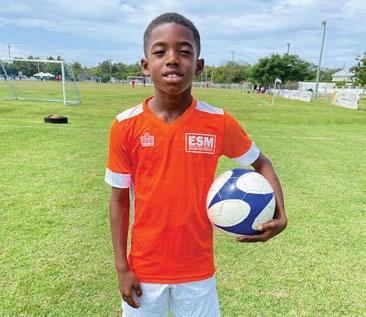
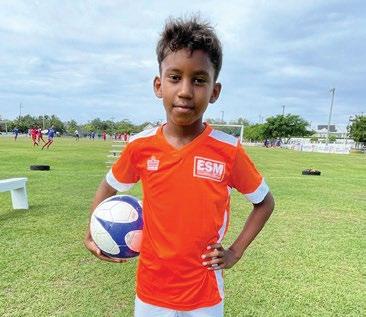
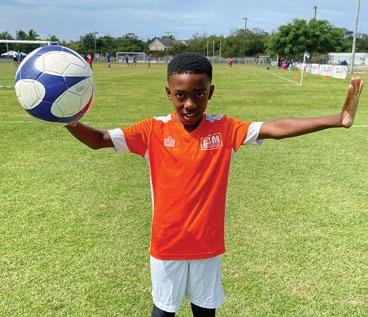
We offer elite after school football training, individualised player development, private lessons, local coaching competitions and overseas travel. Our coaches are UEFA qualified with experience in both collegiate and professional football environments. Our coaching method is designed to develop the whole player from the foundation of eye-ball coordination and control mastery, biomechanics and coordination, balance and speed, up to technical, mental and tactical awareness.
To learn more about ESM or to register your player call 345. 925. 4347 Email info@esmcayman.ky or visit www.esmcayman.ky
(345) 929 2190.
Musicians Ltd (345) 525 6787, Centre Pointe Dance Studio (345) 926 9603 and Spark! (345) 929 2190 offer musical theatre classes.
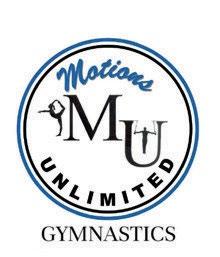
The Maples Group Community Junior Rugby season runs from October to May. Programmes are available for U6, U8, U10, U12, U14, U16 and U19. Annual membership is CI$125. Visit www.caymanrugby.com or email: caroline.deegan@ caymanrugby.com for more information.
The Sailing Club runs an after school sailing programme for kids aged 6+ from Wednesday to Friday and at the weekends during the school term. The club also hosts popular day camps during school holidays, and teenagers who are competent sailors and good with youngsters can find jobs interning as assistants at these camps. For more information, visit www.sailing.ky or email: rharvey@sailing.ky.
The Scout Association is a non-formal educational programme which encourages the holistic development of boys through outdoor activities. From the Beaver-Scout programme (6-8 years) to the Cub Scouts (8-11 years) to the Scouts (11-19 years), boys will develop vital skills and earn badges. Groups meet
Wednesday 10:30am - 12 noon (Ages 6 and under)

Thursday 10:30am - 12 noon (Ages 6 and under)
Friday 2:30pm - 4:00pm (Ages 6 and under)
Saturday 8:30am - 10:00am (Ages 6 and under)
weekly. Call (345) 949 1515 or visit www.scouts.org.ky.
Emily Mowbray from Jukebox is a classically trained opera singer who offers vocal training and singing lessons either in your home or at school, for any age, and any style. Call (345) 321 5126. Cayman Music School (345) 938 3838 and Spark! (345) 929 2190 also offer private vocal training and singing lessons. Cayman Youth Choir has three age group choirs who meet at John Gray High School on Monday afternoons. Tiddly-Winks (age 4-6) from 3.30pm-4pm, Tiddly-Pops (age 7-10) from 4pm-4.30pm, and the Senior Choir (age 11+) from 4.30pm-5.45pm. All are welcome. Check out their Facebook page: KYyouthchoir.
Skateboarding
Black Pearl Skate Park in Grand Harbour offers a dropin rate of CI$7. Skateboards, scooters and basketballs are available for rent at the park and range in price from CI$4CI$14 an hour. Call Michael Myles on (345) 939 1301 or email: michaelmyles1117@gmail.com.
Swimming
Semi-private and private lessons start at CI$40 for a half-hour session. Fitness Connection offers swimming lessons for children and adults. Call (345) 949 8485 or email: fitness@fitness.ky. For a full list of qualified swim teachers/schools and clubs, please visit the Cayman Islands Aquatic Sports Association’s website, www.ciasa.ky.
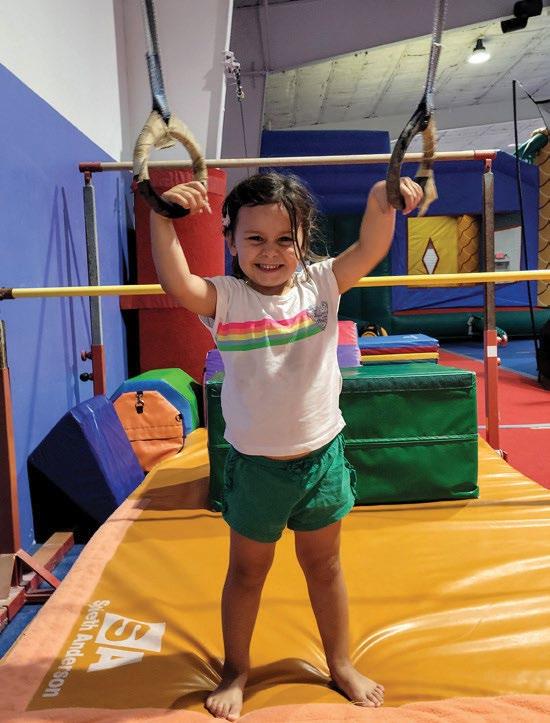
The Tennis Federation of the Cayman Islands runs the PwC junior tennis circuit and organises a series of tennis tournaments every year for children 18 and under. Email: info@tfci.ky. For group or private tennis lessons, contact the Cayman Islands Tennis Club on (345) 949 9464 or email: juniors@tennis.ky; The Courts at the Ritz-Carlton, call (345) 323 0049 or email: grandcaymantennis@ritzcarlton.com; and Cayman Pickleball & Tennis Academy, call (345) 547 6257. Group lessons can range from CI$35-CI$50 per individual, per lesson depending on the duration of the lesson, private lessons range from CI$70-CI$90 for 45 minutes to one hour.
There are several excellent yoga teachers on-Island specialising in kids' yoga. Popular choices are Yoga Sprouts and Kula Kids. Visit www.yogasproutscayman.com or www. kulakidsyogacayman.com for a full list of their classes and to be put on the waiting list.
Inclusion Cayman is a non-profit organisation
individuals with disabilities. If support is required for you/your family to participate meaningfully, please contact them. Call (345) 623 2957, email: info@ inclusioncayman.ky or visit www. inclusioncayman.ky.
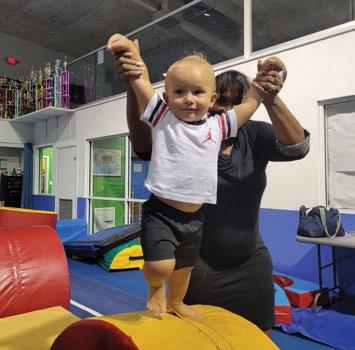
supporting
In a tropical climate like Cayman, where the sun is strong and a good deal of time is spent outdoors, sun safety is a priority.
Whilst skin melanoma is rare in children, protecting their skin from a young age is essential for lifelong health. It is especially vital because, at this age, children often spend a lot of time playing outdoors. Receiving multiple sunburns while you're young can significantly impact the skin as it ages, and it's often hard to see the damage until it's too late. When it comes to teaching your kids about solar protection, the earlier, the better! Here are some dos and don'ts of skin sun safety.

DO:
• Apply SPF30 or higher sunscreen every morning before school and keep a bottle of sunscreen in their school bag.
• Use a reef-friendly sunscreen when spending time on the beach.
• Reapply sunscreen every two hours, before an outdoor activity and after swimming or towelling off, even if the sunscreen is ‘water resistant’.
• Throw away any sunscreen that you’ve had open for longer than 12 months or that has ‘split’ or changed in texture.
• Keep infants under six months out of the sun as much as possible and keep children out of the sun during the hottest parts of the day when possible (10am to 4pm).
• Cover up using a sun top, sunglasses and a hat. Choose clothes where you can’t see your hand through the fabric.
• Be generous in the amount of sunscreen you use.
• Apply in advance – it takes approximately 15 minutes for sunscreen to absorb into your skin.
DON’T:
• Buy spray-on sunscreens as they may harm children’s lungs.
• Leave sunscreen in the sun.
• Use a sunscreen that includes bug repellents – the sunscreen’s ability to screen out UV can be decreased by the repellent, whilst the toxicity of the repellent is increased.
• Miss less obvious areas like ears, feet, mouth, neck and back of the knees.
Infants and children lack the pigment in their eyes that help filter UV light, so making your kids wear sunglasses is crucial. The reflective surfaces of sand and water can almost double your UV exposure. Here are four things to bear in mind when buying sunglasses for kids:
• Glasses should offer 99-100% UV protection.
• Select more durable polycarbonate lenses.
• Wrap-around glasses offer the best protection.
• Grey-coloured lenses are best as they absorb all colours equally so kids can see the world in natural colours.
Knowing what to look for is only half the battle. It can sometimes feel impossible to encourage stubborn little ones to wear sunglasses. Here are a few tips which might help:
• Let kids choose between colours or styles if possible.
• Set a good example by putting them on whenever you leave the house.
• Draw their attention to older kids, athletes and celebrities who are wearing shades.
• If you can’t get them to keep sunglasses on, make sure they wear wide-brimmed hats for all activities in the sun.
For more tips on eyecare for children, turn to page 168.
TOP TIP: Kids spend a lot of time in school playgrounds, so don’t forget to apply sun screen to them before school and encourage them to wear their hats during lunchtime.
We asked five families in our community to explain why they have chosen to raise their children with faith. Some are traumatic, some are educational, and all come from the heart and are truly inspiring.


Jessica & Joshua Pawlik
When I was just four years old, my mother was murdered on Cayman Brac and left for dead on the side of a road. Losing such a key figure in my life changed my perception of love. However, I was very blessed as my brother, my father and I had other mother figures in our lives that added positivity and guidance. Despite losing my mother at such a very young age, my life became normal – I went to school, graduated, went to college, got a job, had friends, lost friends, and created my own way. Now, at the age of 29, I am a single mother of two beautiful children, and I am raising them with faith. Life is not always easy, but I know truly that the Heavenly Father knows our needs, that those needs have been met and that they always will be met by the glorious grace of God. When my son fell ill in the year 2020 with a tummy ache, he came and asked me to pray over his tummy. He told me that he knew if I prayed over his tummy, he would feel better. He did. I cried tears of joy as I realised that my son knew the God I serve! He knew the power of faith. As of now, his baby sister also asks the same when she feels ill.
I promised God that I will forever allow my children to see His works and to show them the life they see me living is not 'mine', but it is lived by faith in the Son of God, who loved me and gave Himself for me. I am not going to go back on that.
We love to pray, we love to sing and we love to love our God. We pray for their dads, we celebrate life and we are grateful. We are full because of HIM. Believe. Accept. Rejoice. He is real! He is the great I AM. He is Jesus Christ, the rock upon which we as a family build our foundation.
Raising children to love and serve the Lord is the number one goal that we have in our home. While we long to see our children grow up and be successful and have their own individual lives, nothing is more important to us as a family than teaching them about who God is and that serving Him is the only true way to live this life in preparation for the life to come. If we don’t teach them about who God is, the world will teach them who He isn’t. Children learn from their parents, and with my husband, Joshua, we seek to be biblical examples of followers of Christ so that our children have first-hand examples to follow. We are never perfect, but we aim to remind our children that it is through the grace of God and His love for us, that He sent his Son to this world to redeem us from our sins and through Him, we all have the opportunity to spend eternity with Him through our obedience to His word.
As parents to three beautiful children, our deepest desire is to watch our children put on Christ in baptism and walk with Him all the days of their lives.
“But if serving the Lord seems undesirable to you, then choose for yourselves this day whom you will serve, whether the gods your ancestors served beyond the Euphrates, or the gods of the Amorites, in whose land you are living. But as for me and my household, we will serve the Lord.” Joshua 24:15
I was about nine or ten years old when I truly came to know that there was a God; that He was watching over us, and that I could trust Him no matter what circumstance I found myself in. I knew when I started my own family that I wanted them to develop the same faith that I had in God. So, I made the choice to raise
them in faith and that meant going to church every Sunday as a family, and from a very early age, my girls developed the same faith that I had. Raising a child with faith helps them see and understand the consequences of good and bad choices. Some of the issues that I see many teenagers face today would be much more easily overcome if, like my children, they had a faith through Jesus Christ with them. I have some friends who raise their children in faith, and I see the way their lives have been impacted in a positive way. Through faith in Jesus Christ our children learn that “A soft word turns away anger, but a harsh word stirs up anger” Proverbs 15:1. This proverb is talking about conflict resolution and we are faced with conflict daily! If our children do not learn early to diffuse conflict, they can sometimes make choices that can cause lifetime issues. I have been a member of the Church of Jesus Christ of Latter-day Saints for the past 25 years.

that I would give my children every opportunity to experience the same transforming grace of God. When you view the world and other people through the lens of the Gospel, everything changes! You naturally begin to see and respond to people and situations in a way that brings glory to God. In a world that demands our kids form an identity from a very young age, and demands that they are able to defend that identity, I want nothing more than for my kids to find their identity in Christ Jesus! As the saying goes, “stand for something or you will fall for anything.” I raise my kids to stand for Christ and all else falls into place. When you are able to give your kids absolute morality given by a moral authority (God) then discipline and raising kids is that much easier. You don’t have to make it up as you go along or keep changing the standards. The standards are clearly laid out for you in the Bible. There is no guessing where the line is. We were created to worship and we have chosen to worship our Savior Jesus Christ by raising our kids in faith.
For my husband and I, there was no doubt that we would raise our children with faith. We would even ask, “Why not raise your children with faith?” In this ever-changing world, the one thing that has and always will remain constant is God’s love for us. The way we live our lives, treat other people, cope with trauma and respond to any situation is often shaped by our worldview. Everyone has a worldview and most worldviews are formed and shaped by faith. From the moment I became a Christian, I knew
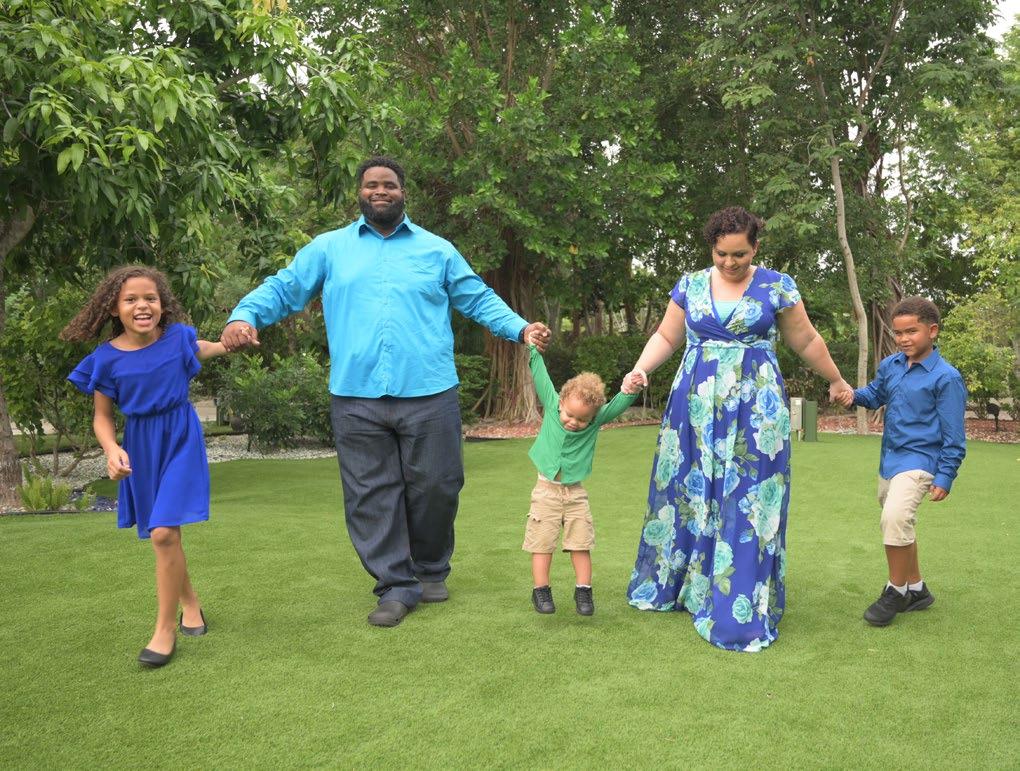
I can’t help but think of the story of the Three Little Pigs. What better way to describe and put into words the importance of raising our children with faith, than with that of a fable? The three pigs set off to build their houses. One built his with straws, the other with sticks and the third pig with bricks. One day, a big, bad wolf came along, and he blew the straw and stick houses of the first two pigs down, but he was unable to destroy the house of the third pig; the one made from bricks.
My husband and I have chosen to raise our daughter with and in faith so that her foundation is firm, and one on which she can depend. No matter where life takes our daughter, and no matter how hard the wind blows, nor how far she may stray before she decides to come back, she will always know that her foundation in Jesus Christ is solid. Investing in our daughter’s faith is not the easiest path, especially when iPads and lie-ins seem more appealing, but praying together and reading the scriptures add a layer of resilience one brick at a time. I pray for my daughter to have a firm foundation, as everything long lasting is built on a solid foundation.

What has been the best moment of your career so far?
I have many memorable moments from my career. I find it so fulfilling due to the culmination of many small successes over time. Whenever I feel that I have truly helped a family or a child, I am reminded why I do what I do and why I should keep moving forward. Taking the time to recognise and appreciate the small wins gives me joy.
What’s your best technique for gaining a child’s trust when you first meet them?
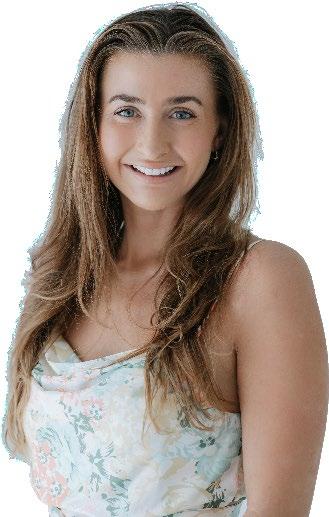
I always try to introduce myself at eye level, with a smile. I enjoy getting to know students before we start any work by asking about their likes and finding mutual topics of interest. Taking the time to build rapport and making the child feel valued is never time wasted.
Which famous person would you see as a good role model to children?
I like to introduce famous people with disabilities to show students examples of how common learning differences are and how successful a person can be regardless of any disability. Stars like Simone Biles (ADHD) and Michael Jordan (dyslexia) are always hits.
Which of your current or previous colleagues do you admire the most and why?
I am in constant admiration of the team of psychologists and music therapists that I work with at the DES. They are the most passionate, creative and intelligent people I have ever had the opportunity to work with. They work so well to support each other and to support the children and families in our government schools. Being part of a strong team makes me a better Educational Psychologist and makes my work so much more satisfying.
What has been the best moment of your career so far?
Being accepted to ’Teach First’, an internationally recognised training programme that develops great, inspiring teachers and leaders, and then being offered the opportunity to join Footsteps. I had always wanted to work overseas and immediately identified with the school’s vision and ethos.
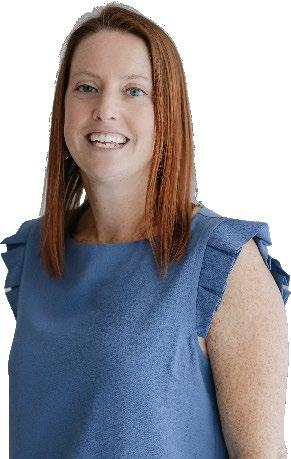
Do you think there should be more opportunities to teach outdoors in Cayman?
I am very fortunate. As a nature school we have bi-monthly outdoor learning days. Any opportunity to take our lessons outdoors is encouraged and it allows students to directly experience and connect with the natural environment. This fosters a sense of appreciation and respect for nature, promotes environmental awareness and encourages children to become good stewards of their surroundings.
If you hadn’t become a teacher what career might you have chosen?
I always wanted to be a lawyer but my history teacher told me I would never get the grades. It shaped what A levels I took and changed my career path. Safe to say when I received that A* in history I was very happy to prove her wrong! This is also why I will never tell a pupil that they are not capable of anything they put their minds to!
You can take your class anywhere in the world, budget unlimited. Where would you take them and why?
Beyond the Earth and into space! What could inspire a young mind more than to realise how big the universe is and that the possibilities and opportunities for them are endless. Space travel is inherently captivating and awe-inspiring. By taking students to space, you could ignite their curiosity and passion for learning.
Leslie Hayes is a Lead Educational Psychologist at the Department of Education Services. Eloise Jones Leslie Hayes Eloise Jones is a Reception Teacher at Footsteps School.How has teaching changed or evolved since you first became a teacher?
I would say that the use of technology in schools is the biggest change that I have seen. Technology has introduced a multitude of digital tools and resources that have enhanced teaching and learning. It has also helped to streamline things such as communication between home and school, and assessment and reporting procedures.
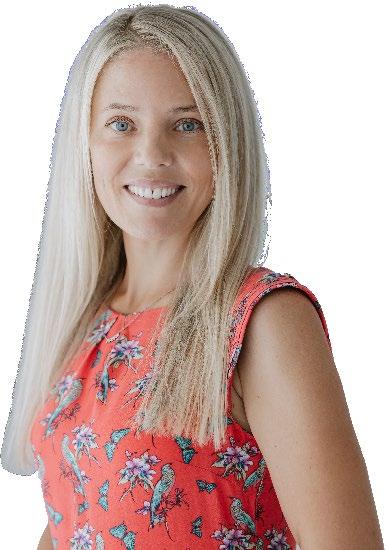
Which famous actor would you love to invite into your class to read out loud to the children, and which book would it be?
Morgan Freeman. His voice carries a weight and warmth that really captivates listeners. His voice is also very calming as it has a certain reassuring quality to it that makes you feel at ease and relaxed. For my current Reception class I would choose “Where The Wild Things Are” by Maurice Sendak.
Do you think there should be more opportunities to teach outdoors in Cayman?
We are very lucky to have a beautiful and well-resourced outdoor classroom at St Ignatius. Outdoor learning enriches education in so many ways and is especially important in the world we live in today. Outdoor time allows children to disconnect from technology and reconnect with the natural world. It fosters an appreciation for the environment and offers diverse sensory experiences that stimulate cognitive development.
Who was your favourite teacher as a young child and why?

My Grandad Jig. He made me 'life smart'. He was kind, caring, loving, respectful, firm and fair. He was such an important influence in my life and I learnt so much from him. The values, morals and principles that he taught me helped to shape the person I am today. I am forever grateful to him.
What has been the best moment of your career so far?
There have been so many special moments. At least one per day! However, there was one stand-out moment involving a young boy who joined my class from a challenging innercity neighbourhood in the United States. His self-esteem was pretty much non-existent. His way of avoiding work, for fear of failure, was to be disruptive and aggressive. Over time, with a lot of nurturing and reassurance, he found his niche. One day he confidently told me he wanted to be a scientist. I found it hard to hold back the tears.
What’s your best technique for grasping everyone’s attention in class?
I have a variety depending on the cohort. I do like a simple hand up to get everyone’s attention. It is calm and quiet and children tend to nudge each other if someone is not paying attention. That followed by lots of praise for those who catch on quickly. I have used it in staff meetings too!
What’s your favourite way to relax after a long day in the classroom?
I love to go home to my dogs and cat – the best welcome home every day! And music – playing, conducting or listening to music. I like to really listen though, rather than have it playing in the background.
Do you have any tips for parents who struggle to get their children to read at home?
Don’t battle or force it. You don’t want your child to have negative associations with reading. Remember, they will have had a busy day at school and are often tired. Instead, find a favourite book to read together – you read a page, they read a page, whatever works! Let them choose a picture book or comic too. We all need a variety of reading material – I don’t read Tolstoy before bed!
Take the stress out of party planning with Cayman Parent’s Perfect Party Checklist! We break down all the steps you need to take before the big day to guarantee a fun and memorable celebration for all.
1. Choose a Venue Cayman is a treasure trove of kidfriendly party venues from Pedro St. James Castle, the Cayman Turtle Centre, Ambassadors of the Environment at the RitzCarton, to Art Nest, 3 Girls & A Kiln, the Black Pearl Skate Park, Kings Sports Centre for a roller skating party, Cayman
Riding School and the Equestrian Center for a riding party, as well as Bon Vivant for a cooking party, Motions Unlimited for a gymnastics party, and Yoga Sprouts for a yoga party, to name a few. See page 283 for more venue ideas. Of course, in Cayman, we're also lucky to have plenty of beautiful outdoor spaces at our disposal, so why not host your party at a park or on the beach? Cabanas at these locations are free to use, but you'll need to book online at www.gov.ky/plc or call (345) 946 7110.
Paradise Slumbers is Grand Cayman’s first and only indoor glamping experience, providing a range of themed sleepovers for kids aged 6 years and over across Grand Cayman.



For birthday parties, BFF sleepovers, special occasions or just for fun, Paradise Slumbers will create magical memories for the special little people in your life.


Choose from one of our many popular themes. New for 2023: Glow in the Dark, Enchanted Forest, Harley Quinn and Dark Unicorn. We will transform your party space into an indoor glamping oasis, with individual tents, camping mattresses and tray tables adorned with fairy lights and accessories.
Please contact us on WhatsApp, visit our website, Facebook or Instagram pages for more information.
(345) 925 3217 paradiseslumbers.ky
2. Decide on a Time Younger kids tend to do better in the mornings, whereas school-age children prefer afternoon parties and it gives you some extra party prepping time. If you're hosting a party outside, then be mindful of the heat (and rainy season!) and ensure you have plenty of water on hand. Many kids have sports on Saturdays, so Sundays might be better for a party. Parents don't often mind which day it is.
3. Send out Invitations We suggest sending out invites 3-5 weeks before the event and most people now send a digital invitation via websites like Paperless Post or Evite. However, if you do not know all the parents' email addresses of the children you want to invite, you can buy themed invitations at any of Cayman’s party shops. Don't feel pressured into inviting the whole class if it's not financially possible or you do not wish to host a large party. You could just invite the girls/boys. Be upfront on invitations about whether siblings of children invited can attend.
4. Food & Drink Party venues will usually provide food as part of their party package, but if you are hosting at home, you will need to organise the food and drinks. Try one of Cayman’s caterers or the supermarkets, which can prepare
party platters of fresh sandwiches, snacks and fruit. Local bakeries can produce a delicious cake to match your theme. Of course, you can also create a great spread yourself! Keep it simple so that you can fully enjoy the day. Pizzas or burgers on the BBQ are always appreciated, and bowls of chips and fruit skewers are a great accompaniment. Just make sure to check if there are any food allergies you should be wary of.
5. Photographs Hire a professional photographer for your child’s special day so that they can capture all the memories you’ll be busy making! Cayman is lucky to have a selection of first-rate photographers who can offer their services for a few hours at a time. See page 283 for more details. If you're on a budget, why not ask one of your friends to help out? They can help capture busy moments like cake-cutting and blowing out the candles. You can return the favour at one of their events!
6. Games & Entertainment Face painters, magicians, balloon twisters and other entertainers will all elevate your child’s party, but make sure to book them well in advance. You could also hire a bouncy castle, water slide and giant garden games such as Connect Four, Jenga and Twister. Classic party games like Musical Statues, Sleeping Lions and Pass the Parcel are great for kids aged four and up.
7. Theme & Decorations Cayman’s party shops stock a wide variety of decorations. Popular themes include: Pirate (perfect for Cayman!), Superhero, Disney, Mad Scientist, Animals/Jungle, Circus, Sports – the choices are endless.
They also offer equipment rentals such as tables and chairs. You could host your party at home with Paradise Slumbers, Cayman's first and only indoor glamping experience. Choose one of their popular themes and they will transform your party space into an indoor glamping oasis. If you decide to host your party at a park or beach, nature's backdrop is the best decoration of all!
8. Party Favours These serve as a fun way for the birthday child to thank their guests for attending their party. Gifts can range from pencils and stickers to mini colouring books. We recommend trying to limit plastic if you can. Savoury and sweet treats also make great gifts. Purchase some reusable mason jars and fill them with a pick-and-mix selection of goodies. If you love to bake, you can also gift some baked goods. The kids (and parents!) will thank you!
9. Thank You Notes Send out thank you notes to show your gratitude for the children who attended the party and for the presents received. Be sure to keep a gift log as you open presents so you remember who to thank for what.
Note: When it comes to attending someone else's party, Cayman has plenty of options for finding the perfect gift! Next Chapter, Little Coconuts, Book Nook and Atlantic Kids stock a variety of books, puzzles and toys for all ages. Bedside Manor also has some lovely gifts.
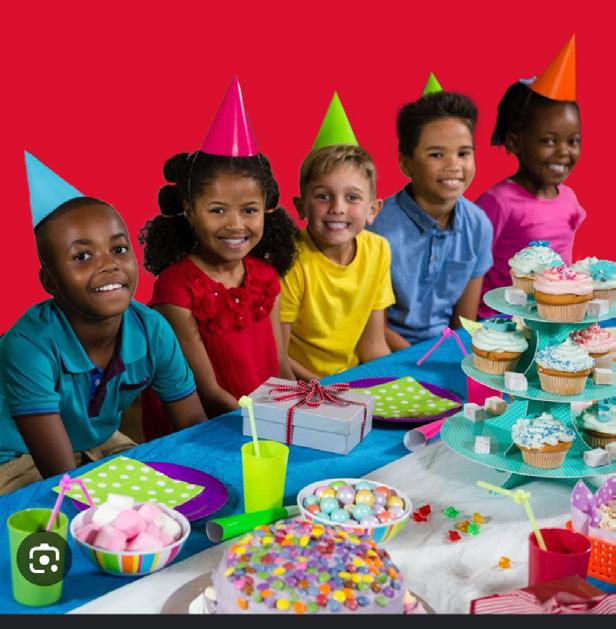
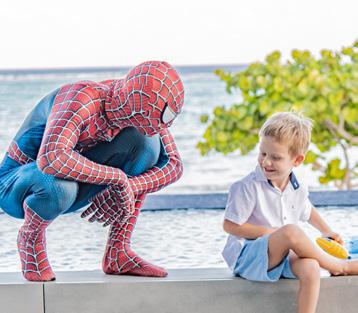
Offering a variety of magical character performances with collections such as Disney Princesses, Marvel and DC Super Heroes, Harry Potter, Star Wars, Minecraft, mermaids, pirates and much more!
Children will enjoy games, stories, sing-alongs, coronation ceremonies, face painting, princess make up and updos, magic, Jedi training and more! Photographers are also available to captures your child’s magical event!
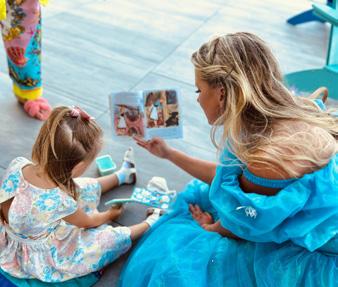
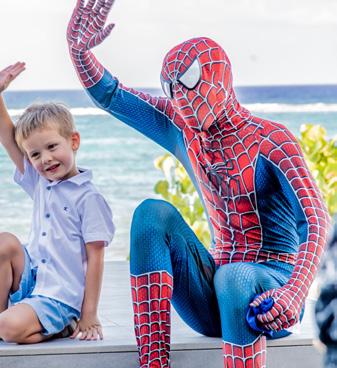

• Cinderella
• Elsa
• Jasmine
• Mirabel
• Jedi (Star Wars)
• Little Mermaid
• Harry Potter
• Easter Bunny
WhatsApp: (345) 923 6797
• Moana
• Ariel

• Spiderman
• Creeper (Minecraft)
cinderellasparties@gmail.com
www.cinderellasparties.com




With activities for children and adults alike, Jean-Michel Cousteau’s Ambassadors of the Environment introduces guests to the natural wonders and rich cultural traditions of the Cayman Islands. Through our unique Caribbean eco-tours, the island’s ecological resources become a natural classroom and living laboratory in which adults, families and kids learn while having fun. At the heart of the Grand Cayman eco-tours are four basic principles: everything is connected; there is no waste in nature; everything runs on energy and biodiversity is good. The program was born through a treasured partnership between The Ritz-Carlton and the non-profit organization, Ocean Futures Society.




• Schedule of activities includes Ambassadors Kids ages four and up, Youth and Families.
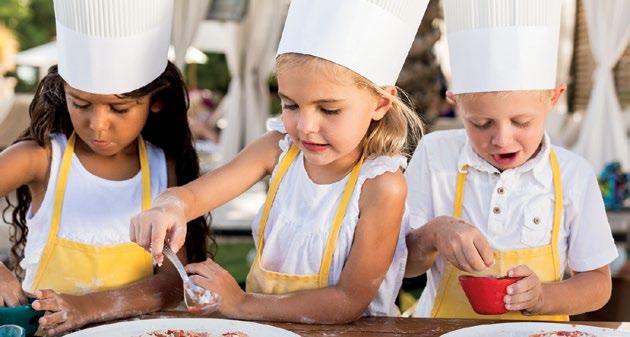
• Activities range from immersive courses in nature, like Underwater Photography and Mangrove Kayak Tours, to interactive learning activities at the Ambassadors’ Heritage House.

• Jean-Micheal Cousteau trained Naturalists lead all Ambassadors of the Environment programmes.
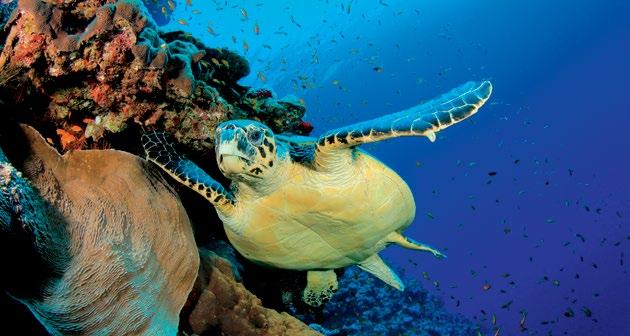
• Ambassadors of the Environment also assists with planning special and fun birthday parties at Starfish Cay water park or on an eco-adventure at The Ritz-Carlton, Grand Cayman.



(345) 815 6120 | caymanambassadors@ritzcarlton.com | The
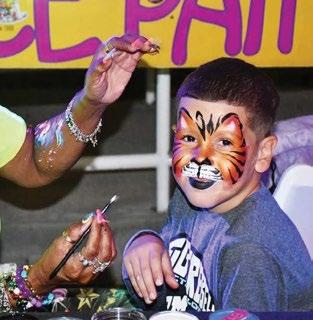

• FACE AND BODY PAINTING
• BALLOON SCULPTING



• GLITTER TATTOOS (WATERPROOF)
• UV GLOW PARTIES
• PARTY CUPS AND GOODIES CLASS PARTIES
PERFECT FOR BIRTHDAY PARTIES, FESTIVALS AND CARNIVALS, BRIDAL AND BABY SHOWERS, FAMILY FUN DAYS, SLUMBER PARTIES AND CORPORATE EVENTS.
WHATSAPP (345) 917 7757 OR SCAN QR CODE FOR INSTAGRAM

Pedro St. James offers a unique combination of stunning scenery, equipment rental and custom catering to suit all your event needs. Their beautiful grounds have the capacity to accommodate parties for all occasions; including baby showers, kids’ birthday parties, proms, graduation ceremonies, wedding celebrations, corporate events and concerts.
Highlights:
Children's Parties: With a multi-sensory movie theatre, an 18th century Great House, a gazebo and playground, nature and history trails; children will have ample green space to explore and have lots of fun!

Baby Showers: The Courtyard, Gazebo or Side Lawn with stunning ocean views is the perfect spot for your baby shower. The Thatch & Barrel restaurant will work with your unique ideas and cater to your food, beverage and event service needs.
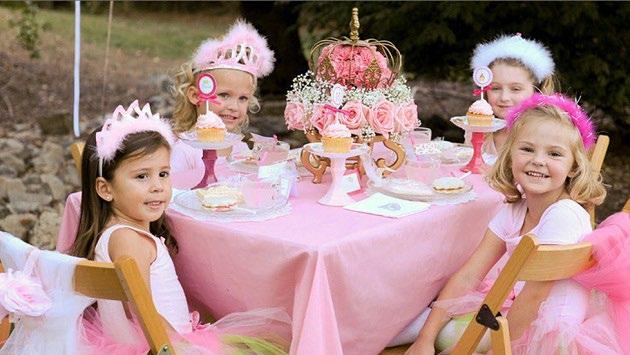
Details:
7 acres of lush landscape
• Local rum tasting and catering options
• Custom party activities
• Ocean views
• Electricity and on-site security
• Use of restrooms and ample parking
• Luxury backdrop for photography
Opening Hours: Daily 8.30am-5pm. Multi-sensory movie begins every hour. Last guided tour at 4pm.
(345) 947 3329 | info@pedrostjames.ky | www.pedrostjames.ky | Pedro Castle Rd, Savannah

The Cayman Turtle Centre hosts birthday parties, weddings, and corporate events customised to every client. Using its marine adventure park, the Centre uniquely combines nature's wonders to offer a variety of scenic and exotic backgrounds to make any party special. From action-packed afternoon events to full-service private evening meals, let the Centre’s experienced team help you to plan your dream event with every detail taken care of to ensure an enjoyable and memorable experience.
Highlights:
Cayman's premier party destination
• Unique, natural setting
• Interactive games
• DJ
• Entertainment
• Hosting birthday parties, weddings, and corporate events
• Limo services
• Choose an indoor or outdoor venue, including a beach setting



• Custom activities for your party
• Flower arrangements
• Catering
Details:
• Turtle lagoon closes at 2.30pm, Breakers Lagoon & Turtle Twister water slide close at 4pm
Every day: 8am-5pm with last admission at 4.30pm
• Residential rates & annual passes available
• Party favours
• Wine glasses
• Party banners
• Book your appointment online.
With six branches operating across Grand Cayman and Cayman Brac, the Cayman Islands is lucky enough to have a Public Library System which boasts an extensive physical book collection for both adults and children, as well as a comprehensive eBook collection and an online database. But with all of these resources at your fingertips, it begs the question: where do you begin?
A great way to start getting the most out of Cayman’s library service is with a library card! Becoming a member at your local library gives you total access to its wealth of resources, as well as entry to a vibrant community and cultural centre. Members are able to use the library’s computer lab for free, and can take advantage of the designated quiet zones – perfect for doing your homework or reading a book in peace. After signing up, library card holders can check out a book for up to three weeks, with a chance to call and renew for another two! Children 17 and under and seniors age 60+ can join the library for free. Adults aged 18-59 pay CI$5. Membership forms can be found at www.cipl.gov.ky and should be printed off, filled out and brought into your local library branch.
As well as over 60,000 hard copy books, the library has an eBook collection with over 33,000 books, 1,700 magazine articles and 5,000 K-8 books in full text or PDF formats. They also have two student academic databases available where you can search for peer-reviewed and scholarly information on
reading, language, arts, current events, science, social studies, history, health and technology. To access these resources go to www.cipl.gov.ky, click on the EBSCO link for eBooks and the SIRS link for the databases.
The Cayman Islands Public Library Service (CIPLS) proudly hosts an assortment of educational programmes that consider the needs of different age groups, different backgrounds and each local district. Below are some of the services offered to the local community.

This library-based programme is for children between ages 3-5, with a parent or caregiver present, at the West Bay and North Side public libraries. Days and times vary; contact the George Town Library on Tel: (345) 949 5159 for details.
The George Town Public Library hosts a weekly programme called Family Rhyme Time, which is aimed at newborns to two
year olds. Infants and their parents spend time together singing different nursery rhymes and songs which help with language acquisition and speech development. The sessions are held at 10.30am every Thursday for 30 minutes and the idea is that parents will then continue the singing and rhymes at home.
Runs from July 1st through August 31st, at all library locations. The challenge is geared towards school-aged readers as a means of developing a childhood enjoyment of reading and promoting continued reading and learning throughout the summer holidays.
Free chess sessions, hosted by the Cayman Chess Federation, are held every Saturday at the George Town Library, 11am12pm, and are designed to introduce beginners to the game and help intermediate players develop their skills. It is open to children of all ages, but a parent or caregiver must be in attendance.
One-day introduction to computer classes are offered at all six library branches; they cover basic computer skills and are free to all participants. The curriculum is designed for seniors and first-time computer users. Contact your local library branch directly for more details on course dates.
The Cayman Arts Festival and the CIPLS proudly present monthly one-hour concerts at the George Town Public Library, which include classical music, in addition to poetry and readings from local poets and writers.
With a branch in each district and one location on Cayman Brac, the Islands' Public Library Service has continuously made strides to maintain widespread accessibility to information. Find your nearest branch below and start discovering all that these great community hubs have to offer.
• George Town Library. 68 Edward Street, George Town, Tel: (345) 949 5159. Hours: Monday, Tuesday, Wednesday and Friday 10am-6pm, Thursday 10am-7.30pm and Saturday 10am-2pm.
• Vernon L. Jackson Library. 69 Bodden Town Road, Bodden Town, Tel: (345) 947 0966. Hours: Monday-Thursday 10am-1pm and 2pm-6pm, Friday 10am-1pm and Saturday 10am-2pm.
• East End Library. 2739 Sea View Road, East End, Tel: (345) 947 7729. Hours: Monday-Friday 10am-1pm and 2pm6pm, Saturday 10am-2pm.
• North Side Library. 891 North Side Road, North Side, Tel: (345) 947 9362. Hours: Monday-Friday 10am-1pm and 2pm-6pm, Saturday 10am-2pm.
• Emily Redley Powery Memorial Library & Learning Centre. 182 Reverend Blackman Road, West Bay, Tel: (345) 949
7659. Hours: Monday-Friday 10am-1pm and 2pm-6pm, Saturday 10am-2pm.
• Cayman Brac Library. 263B Stake Bay Road, Cayman Brac, Tel: (345) 948 0472. Hours: Monday-Friday 10am-1pm and 2pm-6pm, Saturday 10am-2pm.
In addition to Public Libraries, there are a number of alternative educational resources available to children and adults across Grand Cayman:
All schools across the Island are equipped with a school library or student media centre, and the students' weekly visit to the library to choose a book and read is often their most favourite class of the week! Encourage your child to get familiar with the various resources that their school has to offer.
Founded in 2012 as an independent charitable organisation, LIFE's mission is to significantly increase literacy levels across the Cayman Islands. They have donated thousands of books to create classroom libraries in each public school, and they have a thriving paired reading programme which is always looking for volunteers. Their Thrive by Five programme has established libraries in preschools and trained teachers on how to explore language, sounds, letters, and print in authentic, developmentally-appropriate ways even before children learn to read. For more information, see www.life.org. ky and also read the LIFE article on page 28, which will tell you a huge amount more about what the programme does, who they are trying to help and why.
The Kiwanis Club of Grand Cayman operates a ‘Book Mobile’ mobile library, filled with books for all ages. It is permanently parked next to the administration building at George Town Primary School and opens every Thursday from 12.30pm1.30pm for the children at the school to use in their lunch hour and borrow books. For more information about the mobile library and volunteering opportunities, please email: info@ kiwanis.ky.
The ‘Little Free Library’ Programme is a 'take a book, return a book' free book exchange. Libraries are situated at various business establishments in both Grand Cayman and Cayman Brac, and anyone can contribute or take books. People can take a book (or several) from any free library and return any book to any of the libraries on any Island.
Located at University College of the Cayman Islands (UCCI), it has some excellent academic resources within its collection. For further information on accessing their resources, please contact Mrs Lucille Kong at (345) 623 0563 or email: lkong@ ucci.edu.ky.
The struggle to understand the infant-parent bond ranks as one of the great quests of modern psychology, one that touches us deeply because it holds so many clues to how we become who we are. This book will take you on a voyage of personal discovery.

An insightful book about why some kids are more successful than others. Those that thrive have a few fundamental character traits in common, and thankfully these can be taught. This book offers practical, actionable ways to help develop these traits in children.

In this seminal new study of resilience, Meg Jay tells the stories of a diverse group of people who have overcome trauma in their childhoods to go on and live successful lives as adults. These are the 'supernormal', who defy expectation and achieve better than average success as adults.

Bible in One Year was created by Nicky Gumbel, the pioneer of Alpha. Together with his wife, Pippa, they take you through every chapter and verse of the Bible, sharing their reflections along the way. It is wonderful! Free.
A book about pursuing one’s passion with persistence. Rosie dreams of becoming an engineer. At night, she constructs great inventions, but afraid of failure, she hides them away. A visit from a relative shows her that the first flop isn’t something to fear—it’s something to celebrate. And you can only truly fail if you quit.

This sweet story is about gaining confidence in yourself and understanding your strengths and learning style. It’s a story that will ring true for many children who find life and school difficult. It will reassure them that everyone can find the thing they are good at.

A collection of wonderful stories about inspirational changemakers. Written in the spirit of Nina Simone's song "To Be Young, Gifted, and Black", this vibrant book is a perfect introduction to both historic and present-day icons and heroes. It will encourage and inspire.

Epic is the world’s largest digital library for kids. This kid-safe, interactive reading app fuels curiosity and reading confidence by letting kids freely explore their interests with instant access to 40,000+ books. $4.99-$9.99 per month.


Black Pearl Skate Park
Grand Harbour Shopping Centre, Red Bay. Tel: (345) 939 1301 Email: michaelmyles1117@gmail. com. 62,000sq ft of beginner, intermediate and expert flow, as well as street courses, plus three basketball half courts. Equipment for rent.
Blue Iguana Conservation Facility
Queen Elizabeth II Botanic Park, off Frank Sound Road, North Side. Tel: (345) 749 1132 Email: info@ nationaltrust.org.ky Web: www.nationaltrust. org.ky. Meet the endangered Blue Iguana by participating in one of a variety of tours available at the Botanic Park.
Cayman Islands National Museum
3 Harbour Drive, Waterfront, GT. Tel: (345) 949 8368 Web: www.museum.ky. Permanent exhibitions plus changing galleries (including one for children) and an audio-visual theatre.
Cayman Parrot Sanctuary
Austin Conolly Drive, East End. Tel: (345) 936 4400 Email: caymanparrotsanctuary@gmail. com. They offer a friendly, interactive and educational experience where you will meet Cayman's native animals face-to-face as well as see local plants in an unspoilt and natural landscape.
Cayman Turtle Centre
786 North West Point Road, West Bay. Tel: (345) 949 3894 Email: info@turtle.ky Web: www. turtle.ky. Meet the sea turtles and other sea creatures. Also features a pool, a crocodile, nurse sharks, a waterslide and a waterfall.
Cayman Crystal Caves
69 Northside Road, Old Man Bay, North Side. Tel: (345) 949 2283 Email: info@ caymancrystalcaves.com Web: www. caymancrystalcaves.com. See stalactite and stalagmite crystal structures in caves which were formed over millions of years. Pirates are reported to have used these caves as hideouts and buried their treasure there.
National Gallery of the Cayman Islands
Esterley Tibbetts Highway, south of Camana Bay. Tel: (345) 945 8111 Email: info@nationalgallery. org.ky Web: www.nationalgallery.org.ky. Home to the national art collection with activities and programmes for children and families.
Pedro St. James Castle
Pedro Castle Road, Savannah. Tel: (345) 947 3329 Email: info@pedrostjames.ky Web: www. pedrostjames.ky. Historic 18th-century Great
House overlooking the sea with a multi-sensory movie theatre and playground.
Queen Elizabeth II Botanic Park
Off Frank Sound Road, North Side. Tel: (345) 947 9462 Email: manager@botanic-park.ky Web: www.botanic-park.ky. A 65-acre park dedicated to preserving local flora and fauna. Famous for its partnership with the Blue Iguana Conservation Facility, the park maintains the natural habitat for the native Blue 'Dragons' found only in Grand Cayman. There is also a wonderful children's garden.
Cayman Athletics Association
Web: www.athletics.org.ky. The governing body for athletics in the Cayman Islands. They promote, develop and encourage participation in athletics at all levels throughout the Island, regardless of age, gender or race.
Falcon Athletics TFC
Tel: (345) 925 3090 Email: falconathleticsinfo@ yahoo.com. Track and field club for primary and high school aged children with local and international meets throughout the year.
Hy-Tech Tigers TFC
Tel: (345) 925 1943 Email: hytechtrackclub@ gmail.com. They meet Monday-Thursday and Saturday mornings at the Truman Bodden Sports Complex (TBSC) and children from age six to adults are welcome. They cover all athletics events like running, jumping and throwing. All are welcome.
Mustang Track Club
Tel: (345) 925 6917. They meet at the Truman Bodden Sports Complex for track training multiple days a week.
Speed Athletics
Tel: (345) 525 2793 Email: speedathleticstrack club@gmail.com Web: www.speedathleticstrac kclub.com. A full track and field team with sprinters, middle/long distance runners, jumpers and throwers. Athletes range from age four to 46 and groups are broken down into Youth, Juniors, Seniors and Masters.
Special Olympics Cayman Islands
Tel: (345) 946 7624 Email: soci@candw.ky Web: www.soci.ky. A registered non-profit sports organisation that offers year-round sports training and competition for those who are intellectually disabled.
BALLET & DANCE
Centre Pointe Dance Studio (CPDS)
Alissta Towers, North Sound Road, GT. Tel: (345) 926 5889 Email: centrepointedance@gmail. com Web: www.centrepointedancestudio. com. Classes available for children from two years old through to late teens in the following disciplines: ballet, tap, jazz, contemporary dance, hip-hop, Irish dancing, freestyle, musical theatre. LAMDA exams can be taken.
KRI Performing Arts School
98 Shedden Road, George Town. Tel: (345) 924 4089 Web: www.kridance.wordpress.com. Private dance lessons are available in salsa, jazz, modern, hip-hop, contemporary, bellydancing, Afro-Caribbean and reggae.
Radiance Dance Studio
Countryside Shopping Village, 33 Hirst Road, Savannah. Email: info@radiance.ky. Web: www.radiance.ky. Classes available for children between 3-16 in modern contemporary, ballet foundations, creative movement, hip-hop, jazz fusion and Caribbean rhythms.
Spark!
Tel: (345) 929 2190 Web: www.sparkcayman. com. They offer dance in relation to their musical theatre and performing arts classes.
BASKETBALL
Cayman Islands Basketball Association
Tel: (345) 916 5083 Email: info@ caymanbasketball.com. The programme participates in international competitions and has four leagues: U12, U14, U16, and U18.
BOXING
Cayman Islands Boxing Association
Dalmain Ebanks Boxing Gym at the Truman Bodden Sports Complex, Olympic Way, George Town. Web: www.cibaky.com Email: info@ cibaky.com. They run a very affordable after school programme from 3.30pm-5pm five days a week and a summer boxing camp.
CRICKET
Cayman Cricket
Tel: (345) 326 1642 Email: president@ catnabcricket.ky. Cayman Cricket organises competitions for primary and secondary schools (May-June) and summer camps in July. They meet at the Cricket Pitch on Saturday mornings from 9am-11.30am and again on Sunday afternoons from 3pm-5.30pm.
7 Mile Strength & Fitness/CrossFit 7 Mile Cannon Place, North Sound Road, GT Tel: (345)
925 1456 Email: info@7mile.life. Private group lessons where kids are taught basic functional movement can be arranged for ages 8-17 years.
Cayman CrossFit Market Street, Camana Bay. Tel: (345) 929 8450 Email: info@crossfitcayman.com Web: www.crossfitcayman.com. CrossFit Kids is for boys and girls ages 8-11 of all fitness levels and capabilities. CrossFit Teens/Tweens (12-16) offers a class similar to an adult class.
DIVING
See Diving Courses on page 282.
Academy Sports Club (ASC)
Tel: (345) 929 2257 Email paulo@academysport club.ky Web: www.academysportsclub.ky.
Specialises in teaching the 10-19 year age group and works very closely with Excel Sports Management, who teach the 4-9 age group. ASC have 16 teams, with boys and girls, and depending on the age group there is training every afternoon from 3.45pm-6.30pm with matches mid-week and on weekends. Training runs from September-June with camps held during the holidays.
Cayman Islands Football Association (CIFA)
Tel: (345) 749 5775 Email: cayman.fa.gs@ gmail.com Web: www.caymanfootball.com. Six leagues for boys and girls ages 6-23 years. The Grassroots Programme for children ages 5-12 is a FIFA-approved programme, with twice weekly training sessions.
Excel Sports Management Academy Field, George Town. Tel: (345) 925 4347 Email: info@esmcayman.ky. Pro football training with UEFA-qualified coaches, they offer a popular after school programme and camps in the school holidays. They also host competitions and talent spot exceptionally skilled junior players.
Sunset Football Club
Camana Bay Sports Complex. Email: pmacey@ usarisk.ky or gareththacker@gmail.com (boys programme) Email: gisela.gamba@gmail. com (girls programme). Coaching sessions for boys ages 5-10 are held on Sunday mornings
8am-10.30am and Saturday mornings for girls
8.30am-9.30am, both at the Camana Bay Sports Complex. There is also midweek training and matches for boys and girls U8s-U18s as well as men’s and women’s teams. The Girls Saturday Programme runs January-May and costs CI$215. The Boys Sunday Programme runs October-May and costs CI$325.
Total Soccer
Email: info@totalsoccercayman.com Web: www.totalsoccercayman.com. Programmes and camps offered Monday-Friday in the afternoon for children ages 4-18. They also offer a Skills and Control programme in the afternoons to CIS students.
FLAG FOOTBALL
CI Flag Football Association (CIFFA) Web: www.ciffayouth.com Email: ciffa345@ gmail.com. A popular youth flag football league for boys and girls ages 7-19. Registration begins in June for the season which starts in the fall.
GOLF Cayman Golf Lab
37B Ashgo Street, Unit 6, George Town. Tel: (345) 938 5424 Email: info@caymangolflab. com Web: www.caymangolflab.com. Offers lessons and rental of the golf simulator, or you can just come and hit some balls or play a round of golf on one of the thousands of golf courses from around the world . They also host birthday parties for small groups of up to 16.
North Sound Golf Club
Safehaven Drive, SMB. Tel: (345) 947 4653 Web: www.northsoundclub.com Email: jeffrey. sauvage@northsoundclub.com. Year-round junior camps and after school programmes for junior golfers ages 6-12 years. Private lessons with PGA professionals are available.
The Ritz-Carlton Golf Club, Grand Cayman West Bay Road, SMB. Tel: (345) 815 6500. The Ritz-Carlton golf club is a completely private golf club for Ritz residents and guests. They offer private instruction from adults and for children ages five and up.
GYMNASTICS
Motions Unlimited
150 Sparky Dr, Industrial Park, George Town. Tel: (345) 749 8365 Email: reception@ motionsunlimited.com Web: www.motionsunli mited.com. They have experienced coaches and state-of-the-art gymnastics equipment for children. They also hold Toddler Playdays throughout the week and on Saturday mornings. All participants must be registered members in the Motions Jackrabbit parent portal and all payments must be made in advance online through Butterfield.
HORSEBACK RIDING
Cayman Riding School (CRS) Hirst Road, Savannah. Tel: (345) 926 7669 Email: caymanridingschool@gmail.com. CRS offers English riding lessons with BHS/FEI qualified instructors. They also offer Show Jumping, Dressage, Vaulting, Cross Country and riding camps in the school holidays. They are a registered British Pony Club overseas centre.
Equestrian Center Riding School
Linford Pierson Highway, George Town. Tel: (345) 916 1751 Email: info@equestriancenter.ky Web: www.equestriancenter.ky. A riding school and boarding stables. Offers a 'Pony Park' every Saturday morning from 9-10.30am where children can have pony rides for CI$5 and meet goats, rabbits and other small animals.
Spirit of the West Barker's Beach, West Bay. Tel: (345) 916 6488 Email: info@caymanbeachrides.com Web: www.caymanbeachrides.com. Accompanied beach rides with a Caribbean Swim Ride option. Children must be eight years or older to do the beach ride, and 14 and older for the swim ride. Resident rates are available.
MARTIAL ARTS
Cayman Associated Schools of Karate (C.A.S.K.)
King’s Sports Centre, Red Bay. Tel: (345) 925 3367 Email: caskkarate@gmail.com Web: www.caskcayman.com. Youth (ages 4-12), co-ed adult and women-only classes, in traditional WADO-style karate, as well as a Tai Chi programme.
Purple Dragon School of Martial Arts
Reliable Building, Compass Drive, GT. Tel: (345) 946 1241 Email: purpledragoncayman@ gmail.com Web: www.purpledragon.ky. Purple Dragon teaches the martial arts system called Don Jitsu Ryu for children ages 4+.
The Academy Grand Cayman
Unit 115, Cannon Place, N Sound Rd, George Town. Tel: (345) 323 9778 Email: info@ theacademy.ky. The Academy offers kids Jiu Jitsu for ages 4-15 years. Children 16 and older join an adult class.
NETBALL
Cayman Islands Netball Association
Tel: (345) 916 1944 Email: caymannetball@ yahoo.com Web: www.caymannetball.com. The Association has a number of netball leagues that meet up to play in the afternoons and on Saturday mornings. For more information call, Lucille Seymour on the number listed above.
PARKOUR Motions Unlimited
150 Sparky Dr, Industrial Park, GT. Tel: (345) 749 8365 Email: info@motionsunlimited.com Web: www.motionsunlimited.com. Motions Unlimited offers parkour training for children ages eight and older. Very popular with the boys!
ROLLER & INLINE SKATING
King's Sports Centre
861 Crewe Road, George Town. Tel: (345) 946 5464 Web: www.kingssportscentre.com. Family skating is on Saturdays from 4.30pm10pm and Sundays from 1pm-4pm. Teen Jam Skate is on Saturdays from 7pm-10pm. Their Learn to Skate programme is held at 8am on Saturday morning for CI$10 per session. Participation on a team varies from CI$200CI$650 per season.
RUGBY
The Rugby Club
South Sound Road, South Sound. Tel: (345) 525 6743 Email: caroline.deegan@caymanrugby. com Web: www.caymanrugby.com. The Maples Group Community Junior Rugby coaching is held every Saturday morning from October-May for children ages 3–16 years old. Programmes are available for U6, U8, U10, U12, U14, U16 and U19. Annual membership is CI$125.
SAILING
Cayman Islands Sailing Club (CISC)
244 Spinnaker Road, Red Bay. Tel: (345) 947 7913 Email: rharvey@sailing.ky Web: sailing. ky. CISC provides lessons for adults and youth, and an extensive fleet of boats are available for hire to members and non-members.
SKATEBOARDING
Black Pearl Skate Park
Grand Harbour Shopping Centre, Red Bay. Tel: (345) 939 1301 Email: michaelmyles1117@ gmail.com 62,000sq ft of beginner, intermediate and expert flow, as well as street courses, plus three half-sized basketball courts.
SQUASH
South Sound Squash Club
25 Anne Bonny Crescent, South Sound. Tel: (345) 526 5052 Web: www.squash.ky Email: info@squash.ky. Junior coaching is available
from ages five and up at beginner, intermediate and advanced levels.
Damian David "Damo"
Tel/WhatsApp: (345) 938 4787. Offers private and small group surfing and wing foiling lessons for children ages eight and up as well as adults.
Camana Bay Aquatic Club (CBAC) 95 Minerva Drive, Camana Bay. Email: swimschool@cbac.ky Web: www.cbac.ky. Competitive and recreational swim club with professional coaching for children and adults of all ages and abilities. Group and private swimming lessons available.
Darren Mew Sports & Fitness
Lions Aquatic Centre, Olympic Way, George Town. Tel: (345) 323 9512 Web: www. darrenmew.com. Swimming lessons for ages three and up. Lessons are offered at home, in the ocean, or at a local pool facility.
Fitness Connection
1 Bambi Close, Glen Eden Road, GT. Tel: (345) 949 8485 Email: fitness@fitness.ky Web: www. fitness.ky. A Starfish Aquatic Institute Training Centre offering a variety of programmes for all ages and abilities. Swimming lessons for babies begin at six weeks old. Private and group classes are available.
Seven Mile Swimmers (SMS)
Tel: (345) 323 9512 Email: manager@ sevenmileswimmers.com Web: www. sevenmileswimmers.com. The Seven Mile
Swimmers are a competitive swim team for children aged eight and over. Swimmers are grouped by ability not age, they train six days a week and regularly swim at on-Island and offisland swim meets and competitions. Darren Mew is the swim coach.
Sky Blue Aquatics
Tel: (345) 916 0054 Email: info@skyblueaquatics. com Web: www.skyblueaquatics.com. Mobile swimming instructors with lessons for ages four months to adults. Private, semi-private and small group lessons provided. They also offer subsidised lessons to nannies and caregivers.
Stingray Swim Club
Lions Aquatic Centre, Olympic Way, George Town. Email: headcoach@stingrayswimclub. ky Web: www.caymanswimming.com. A competitive swimming club offering lessons and coaching to swimmers of all ages and abilities.
Synchronised Swimming (CBAC)
Email: synchro@cbac.ky Web: www.cbac. ky. Cayman's competitive and recreational synchronised swimming team. Accepting athletes ages 5+ who are confident in deep water and comfortable doing simple acrobatics unassisted. Email to schedule a try-out or an intro session.
Thrive Fit
Tel: (345) 938 1113 Web: www.thrivefitcayman. com Email: info@thrivefitcayman.com. Mobile swimming instruction for children ages six months and up. Private, semi-private and group lessons available. They also offer subsidised swimming lessons for nannies and helpers.

TENNIS
The Cayman Islands Tennis Club
Anne Bonny Crescent, South Sound. Tel: (345) 949 9464 Email: tennis@tennis.ky Web: www.tennis.ky. Coaching available from ages four to adult. After school programmes plus tournaments held throughout the year.
Cayman Performance Tennis
Tel: (345) 927 8690 Email: micabeach@gmail. com. Private and group tennis lessons from the ages six to adults.
Cayman Pickleball & Tennis Academy
1960 West Bay Road, Seven Mile Beach. Tel: (345) 516 0300 Email: caymantennisacademy@gmail.com Web: www. caymanpickleballtennisacademy.com Lessons for kids aged 3-7 years on their half-sized tennis courts. For ages 8 and up (depending on ability) lessons are held on full-sized courts. Private, group lessons, and after school programmes are also offered.
The Courts at The Ritz-Carlton
Ritz-Carlton Drive, Esterly Tibbetts Highway, Seven Mile Beach. Tel: (345) 323 0049 Email: grandcaymantennis@ritzcarlton.com. Private or semi-private lessons offered for ages 4-16 years old. After school classes available.
TEN PIN BOWLING
King’s Sports Centre
Crewe Road, Red Bay. Tel: (345) 946 2695 Email: kingpinbowling@candw.ky Web: www. kingssportscentre.com. Offers four bowling lanes plus a lounge and bar area. You must take socks and book in advance.
This 65-acre park made up of seven themed gardens including a dedicated Children's Garden, woodland trails, an Orchid Boardwalk, Heritage Garden, Colour Garden and a lake. It is also home to the Blue Iguana facility where families can meet and learn about the endangered Blue Iguana as well as enjoy a self-guided nature walk. The Botanic Park is the perfect place for families to enjoy quality time together while immersed in nature.
Highlights:
Children's Garden: Opened by HRH King Charles, the garden features wooden climbing frames, the CNB splash pad, a discovery tower, larger than life animal sculptures, a maze, tunnels, grow zone, sensory garden, lily pond, the Rotary Schoolhouse and so much more!

Blue Iguana Conservation Facility: Get up and personal with the Blue Iguana, Grand Cayman’s largest native land animal. Enjoy a self-guided tour around the facility, see the juvenile and adult Blue Iguanas and view their semi-wild habitats.
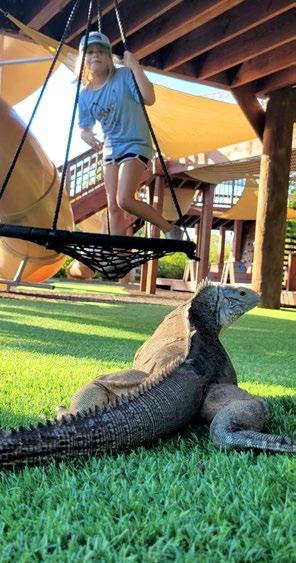
Details:
65 acres to explore • Rotary Schoolhouse for outdoor learning • Available for children's birthday parties
Opening Hours: Daily 9am-5.30pm, last admission at 4.30pm.
Resident Entry: Adult CI$10 and children (3-12 years) CI$5 for entry into the Botanic Park and Blue Iguana Facility. Under 2s enter for free. Resident ID required.
Botanical Gardens (345) 947 9462| info@botanic-park.ky | www.botanic-park.ky | Off Frank Sound Road, North Side

INDOOR & BEACH VOLLEYBALL
Cayman Islands Volleyball Federation (CIVF)
Email: pr@civf.ky Web: www.civf.ky. Indoor and beach volleyball programmes are available for teenagers ages 8-18. Training and clinics can also be arranged. The CIVF manage the National Youth programme for both beach and indoor volleyball, plus they host the senior and U23 NORCECA Tournaments.
Heatwave Volleyball Club
Email: heatwavevolleyballclub@gmail.com. An amateur sports team that hosts beach volleyball tournaments and regular open games for all abilities and experience levels.
There are two indoor volleyball clubs: the First Baptist Volleyball Club and the Philippine Volleyball Club. You can find them on Facebook.
YOGA
Kula Kids Yoga
Tel: (345) 916 3007 Email: kulakidscayman@ gmail.com Web: www.kulakidsyogacayman. com. Classes from prenatal to 18 years in a studio dedicated to children and their yoga practice. They also hold camps in the school holidays.
Thrive Fit
Tel: (345) 938 1113 Web: www.thrivefitcayman. com. Private and small group yoga classes for children and teens. After school and Saturday sessions available.
Yoga Sprouts
Tel: (345) 326 9876 Email: info@yogasproutsca yman.com Web: www.yogasproutscayman. com. Yoga classes from three months to six years old.
ANGLICAN CHURCH
St. Alban’s Church of England
461 Shedden Road, George Town. Tel: (345) 949 2757 Web: www.churchofenglandcayman.org. Sunday Matins 8.30am; Church School 9am; Holy Communion 9.30am with Sunday school. For weekday services and activities, see the website calendar. All services are taken from the Church of England's Book of Common Prayer.
St. George’s Anglican Church
64 Courts Road, George Town. Tel: (345) 949 5583 Email: stgeorgescayman@gmail. com. Sunday Eucharist 7am and 9am; Sunday School 9am; Wednesday Eucharist 10am; Youth evening Friday 7.30pm.
ASSEMBLIES OF GOD
Cayman International Assembly of God (CIAG) Meeting place: Camana Bay Cinema. Tel: (345)
916 2957. Sunday Service 10am. Cayman International Assembly of God offers a casual and contemporary style of worship.
First Assembly of God
195 Old Crewe Road, George Town. Tel: (345) 945 2182 Email: fagod@candw.ky. Sunday services are at 9am and 10.30am. They also offer online YouTube services just for kids.
West Bay Assembly of God
100 Finch Drive (off Stadium Road), West Bay.
Tel: (345) 916 3748. Sunday School 10.30am. Online services streamed live on Facebook and YouTube.
BAPTIST CHURCHES
Cayman Islands Baptist Church
163 Pedro Castle Road, Savannah. Tel: (345) 946 2422 Email: office@cibaptist.ky Web: www.cibaptist.ky Pastor: Dr Randy von Kanel. Sunday Worship Services 9am and 11am; Wednesday Bible Study 7pm; service delivered in Spanish at 6pm on Sundays.
First Baptist Church of Grand Cayman
920 Crewe Road (Across from the Lion’s Centre and near Hurley's Shopping Centre), Red Bay.
Tel: (345) 949 0692 Email: fbc@fbc.org.ky Web: www.fbc.org.ky. Sunday School for all ages 9.15am; Sunday Service 10.30am; Bible Study Wednesdays 7pm; Spanish Bible Study Thursdays 6.30pm. SPARK Children's Club Fridays 6.30pm and Ignite Youth Group 7pm. Small groups meet throughout the week.
CATHOLIC CHURCHES
St. Ignatius Catholic Church
597 Walkers Road, George Town. Tel: (345) 949 6797 Email: ignatius@candw.ky. Weekday Masses Monday-Friday 7am, Weekend Masses Saturday 8.30am and 6pm, and Sunday 8am, 11.30am and 6pm; Sunday School 10.15am–11.15am. There is also Eucharistic Adoration on Saturday and Sunday from 6am-9pm daily in the Divine Mercy Adoration Chapel.
Christ the Redeemer Catholic Church
Reverend Blackman Road, West Bay. Tel: (345) 949 6797. Sunday Mass 11.45am.
Stella Maris Catholic Church
Alta Vista Drive, Cayman Brac. Tel: (345) 926 5555 or (345) 949 6797. Sunday Mass 6.15pm, and Communion Service at 6pm (some weeks).
LUTHERAN
Safe Harbour Lutheran Church
205 Andrew Drive, Snug Harbour, SMB. Tel: (345) 949 1835 or (345) 926 5491 Web: www. safeharbourlc.com. Sunday service 10am at 20 Memorial Crescent, between Walkers Road and South Sound Road George Town.
METHODIST
Wesleyan Holiness Church
150 North West Point Road, West Bay. Tel: (345) 949 1121 Email: worship@wcacayman.com. Sunday services 11am and 6pm. Sunday School 9.45am.
MORAVIAN
Covenant Moravia Church
6 Devon Road, off Marina Drive, Prospect. Tel: (345) 947 7935. Sunday School 10am. Sunday service 11am.
NON-DENOMINATIONAL
Agape Family Worship Centre
50 Fairbanks Road, George Town. Tel: (345) 949 2539 Email : agape@candw.ky. Sunday service 10am in person or live stream available; Wednesday service 7.30pm; Friday youth group at 7.30pm.
Church of God Chapel George Town
22 Academy Way, George Town. Tel: (345) 949
9393 Email: cogcgt@candw.ky Web: www. churchofgodchapel-GT.org. Online Bible study
Thursday evenings 7.30pm, Sunday Family Service at 10.30am.
Sunrise Community Church Services held at the Harquail Theatre. Tel : (345) 926 7473 Email: paola@sunrise.ky or tim@ sunrise.ky Web: www.sunrise.ky. Sunday Services 9am without children/youth ministries and 10.30am with nursery care and a children’s Sunday school. There is the opportunity to socialise afterwards with complimentary pastries and coffee. They also hold community groups for men and women who meet weekly.
PENTECOSTAL
All Nations United Pentecostal Church
23A Woodlake Drive, George Town. Tel: (345) 949 9533 Email: allnationupc@gmail.com.
Tuesday youth service 7.30pm; Sunday School 9am; Sunday worship 11am; and Evangelistic service 7.30pm.
The Power of Faith Deliverance Ministry Ltd.
100 Greenwood Drive, George Town. Tel: (345) 949 1516 Email: pofdmc.ky@gmail.com . Tuesday prayer service and Bible study 7.30pm; Friday youth service 7.30pm; Sunday school 9.30am; Sunday worship 10.30am and 7.30pm.
PRESBYTERIAN & CONGREGATIONAL
Elmslie Memorial United Church
Downtown George Town on the waterfront, North Church Street. Tel: (345) 949 7923 Email: elmslieunitedchurch@gmail.com Web: www. Elmslieunitedchurch.ky. Sunday service is held at 10.30am. Elmslie also has a smaller affiliated congregation: Robert Young Memorial Church and their service is on Sundays at 8.45am.
William Pouchie Memorial United Church
815 North Side Road, North Side. Tel: (345) 938 2239 Email: wpmucns@gmail.com. Sunday service is held at 9am.
SEVENTH DAY ADVENTIST
Cayman Islands Conference of Seventh-Day Adventists
Tel: (345) 949 2647 Web: www.caymanadventist. org Email: general.queries@cicsda.org. Saturday Sabbath school service 9.15am, Divine service 11am. Adventist youth programme 5pm (may vary) and there are Sunday and Wednesday evening services at 7.30pm. Churches are located across Grand Cayman, Cayman Brac and Little Cayman.
JEWISH SERVICES
Cayman Hebrew School
7 Mile Shops, West Bay Road, SMB. Tel: (345) 949 0770 or (345) 516 4474 Email: rikal@ jewishcayman.com Web: www.juda.ky. Offers an array of afternoon classes for children ages 1-13. From Hebrew reading and Jewish history to Judaic art, music and more, the Cayman Hebrew School provides creative opportunities for students to explore their Jewish identities.
MUSLIM SERVICES
Islamic Society of The Cayman Islands
Unit C3, Cayman Business Park, 10A Huldah Avenue, George Town. Web: www.isci.org.ky
Tel: (345) 329 2079 Email: isci@candw.ky. Friday
Jummah services at 1.15pm; Children's Sunday school 10am.
Cayman Kayaks
Tel: (345) 926 4467 Web: www.caymankayaks. com. Cayman Kayaks run eco-conscious bioluminescence tours by kayak and electric stealth boat in the Bio Bay near Rum Point when the moon is very new. They also point out various constellations in the night sky and the science behind the bioluminescence. It is an ideal thing to do with children ages eight and up.
Cayman Sea Elements
Dock C4, Cayman Islands Yacht Club, SMB. Tel: (345) 936 8687 Email: caymansea@gmail. com Web: www.caymanseaelements.com. Offers mangrove kayaking, bioluminescent and Stingray City tours plus, in the school holidays they team up with Clever Fish and run the watersports side of their educational/ adventure camps.
Cayman Stand Up Paddle Co. (CSUPco)
Tel: (345) 938 4787 Email: damo@caymanstand uppaddleco.ky Web: www.caymanstanduppad dleco.ky. Paddleboard rentals and CSUPco will deliver the boards to you and offer a quick lesson. They also offer surfing and wing foil lessons for ages eight and up.
Frank's Watersports
Safehaven Marina, off West Bay Road. Tel: (345) 945 5491 Email: cptfrank@candw.ky Web: www.frankswatersports.ky. Private boat
trips to the North Sound. Enjoy visiting Stingray Sandbar with stops at Coral Gardens and Starfish Point for snorkelling.
Kitesurf Cayman
Barker's Beach, West Bay. Tel: (345) 916 5483 Email: info@kitesurfcayman.com Web: www. kitesurfcayman.com. Suitable for children ages nine and above who can swim. They offer kitesurfing and wind surfing lessons.
Ocean Frontiers
344 Austin Conolly Dr, East End. Tel: (345) 947 7500 Email: reservations@oceanfrontiers.com Web: www.oceanfrontiers.com. A variety of group snorkel trips which are great for families.
Paradise Pontoons
Tel: (345) 321 0000 Email: info@ paradisepontoonscayman.com Web: www. paradisepontoonscayman.com A one-stop shop for exploring and experiencing the tranquil waters off Seven Mile Beach. Experience private guided snorkel trips to the USS Kittiwake or the coral reefs. Kids will love the on-board waterslide.
Parasailing Professionals
Seven Mile Beach. Tel: (345) 916 2953 Email : parasailingprofessionals@gmail.com Web: www.parasailinggrandcayman.com. Parasailing rides along Seven Mile Beach. Minimum age is five years, when accompanied by a parent.
Red Sail Sports
Located at the Kimpton, Camana Bay (retail store only), Westin Beach Resort, Rum Point
For over 30 years, Fitness Connection has been Cayman’s leader in providing safe, effective fitness and aquatic programmes for families. They are committed to offering high quality, personalised programmes, both mobile and on-site, for kids and adults. With a small and intimate facility located in the heart of South Sound, their kids camps, swimming lessons and personalised fitness classes are popular with residents and visitors alike!

Fitness Connection is Grand Cayman's premier swim school, headed by world renowned baby swim coach, Laura Ribbins. They offer a safe, effective, personalised and flexible swim programme for every ability.
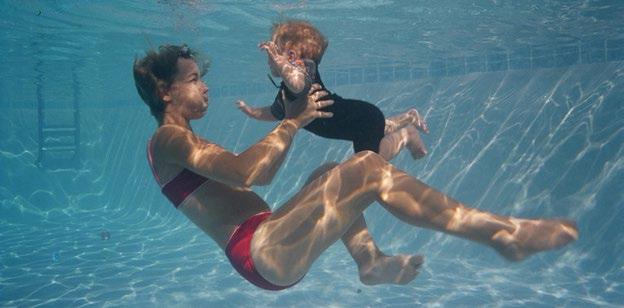
Keep your children and loved ones safe when hosting a water event. Book a fully certified, CPR and AED trained lifeguard for your next pool or beach party. Fitness Connection also provides CPR and AED courses to the public.
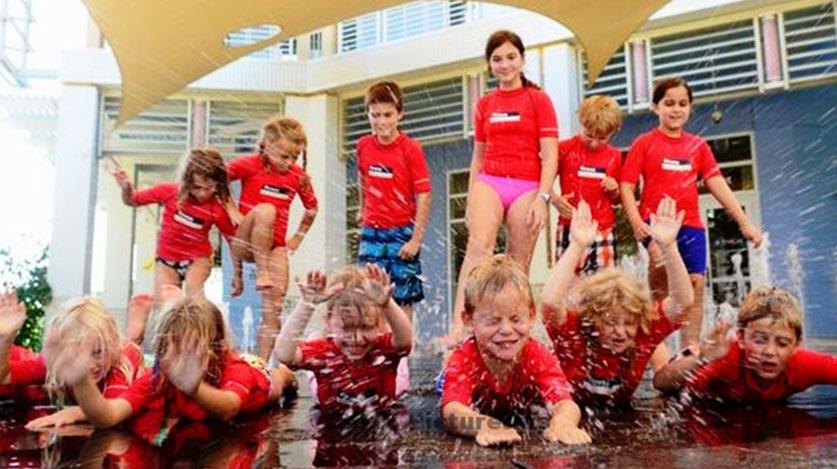

Parents can drop their kids off at Fitness Connection for swim lessons and fun with friends from 2.30pm-5.30pm every Tuesday and Thursday.
(345) 949 8485 | fitness@fitness.ky | www.fitness.ky | 1
and Morritt's Tortuga Resort. Tel: (345) 623 5965 Email: info@redsailcayman.com Web: www.redsailcayman.com. Banana boat rides, sailing and diving. Beach toys available for rent.
Sail Cayman
Cayman Islands Yacht Club, SMB. Tel: (345) 916 4333 Email: neil@sailcayman.com Web: www. sailcayman.com. A full-service private charter company offering a variety of sail and power boat excursions, all suitable for families.
White Sand Water Sports
Tel: (345) 938 7263 Email: whitesandwaterspo rts@gmail.com Web: www.whitesandwatersp orts.com. Family-friendly activities, including boat charters, Stingray City, Snorkel Trips and Bio Bay tours, as well as island-wide delivery of stand-up paddleboards and kayaks.
Bliss Living Yoga
The Strand, West Bay Road, SMB. Tel: (345) 949 9642 Web: www.blissyogacayman.com. Sells Lululemon, Athletica, Manduka and Dharma Bums yoga wear and equipment.
Little Angels Market Street, Camana Bay. Tel: (345) 946 2645. Extensive selection of SPF 50+ sun protection tops, swimwear, ‘jelly’ shoes and more.
Sports Supply Galleria Plaza, West Bay Road, SMB. Tel: (345) 949 7884 Web: www.sportssupply.ky. Offers
sportswear for football, yoga, tennis and general fitness. Brands include Nike, Adidas, Asics, New Balance, and Under Armour. They also stock watersports and home gym equipment.
Sportista
One Nexus Way, Camana Bay (beside Butterfield Bank). Tel: (345) 926 1122. Clothing and accessories from top sporting brands.
Waterman Cayman
Galleria Plaza, West Bay Road. Tel: (345) 769 7873. Sells equipment and clothing for watersports such as paddleboarding, surfing and kiteboarding.
Local diving companies offer a number of programmes for children, who can become PADI certified (Junior Open Water Diver) as early as age 10. Those who are younger have several options: the Bubblemaker programme is available to 8-9 year olds, and is a chance for them to try out scuba gear from the safety of a pool, under the supervision of a qualified instructor. For children ages 5-8 years, there is S.A.S.Y. (Supplied Air Snorkelling for Youth). This is for surface snorkelling only, but participants wear buoyancy jackets and regulators so they can begin to understand dive gear.
Divetech
Lighthouse Point, North West Point Road, West Bay. Tel: (345) 946 5658 Email: info@divetech. com Web: www.divetech.com.
Eden Rock Diving Center
124 South Church Street, George Town. Tel: (345) 949 7243 Email: edenrock@candw.ky Web: www.edenrockdivingcentre.com. Full range of dive courses, guided dives, snorkelling and great shore diving.
Red Sail Sports
Tel: (345) 623 5965 Email: info@redsailcayman. com Web: www.redsailcayman.com. They offer the Bubblemaker programme for 8-9 year olds.
Seahorse Diving School
Tel: (345) 328 2778 Email: seahorsedivingschool @gmail.com Fulvio Bonati and Sonia Pacini have taught more than 1,000 children in Cayman to learn to dive. Their small groups of a maximum of three students are very popular.
Sunset Divers
390 South Church Street, George Town. Tel: (345) 946 6789 Web: www.sunsethouse.com. They offer various dive courses plus boat and shore dives along with coral conservation courses.
White Sand Watersports
Located at the Wyndham Reef Resort & Colliers Beach East End. Tel: (345) 938 7263 (Dave) and (345) 916 7263 (Alan). Web: www. whitesandwatersports.com. Boat tours, snorkel trips, bioluminescent trips, fishing charters, and paddleboard and kayak rentals and delivery.
Parties
CATERING
The Cake Studio
Tel: (345) 926 4944 Email: thecakestudio@
ymail.com Web: www.thecakestudiocayman. com. Makes wonderful birthday cakes!
Carousel Creative Catering
Tel: (345) 946 0926 Email: orders@carousel.ky Web: www.carousel.ky.
Domino's Pizza
Tel: George Town (345) 949 8282, Savannah (345) 947 1188, West Bay (345) 949 6633 Web: www.dominos.ky. Party specials with pizza, chicken wings and gluten-free options.
Foster’s
Tel: (345) 945 3663 Email: catering@fostersiga.com Web: www.fosters.ky. A wide selection of party platters, fruit baskets, dessert platters, and cakes.
Hurley’s Supermarket
Tel: (345) 947 8488 Web: hurleys.ky. Party trays, sushi, cakes and pizzas.
Kirk Market
Tel: (345) 949 7022 Email: delivery@kirkmarket. ky Web: www.kirkmarket.ky. Catering services, including hors d'oeuvres, custom menus, cakes, and gourmet platters.
Mise en Place
Tel: (345) 623 2433 Email: events@catering.ky Web: www.catering.ky. Catering for birthday parties, baby showers and other celebrations, large or small. Also offers custom-made cakes.
Pizza Boat
Tel: (345) 949 0000 Email: info@pizzaboat.ky Pizza delivery for kids' birthday parties. They also have pasta, wings and brownies.
Petit Paris French Bakery
Tel: (345) 328 4000 Email: info@ppcayman. com Web: www.ppcayman.com. Catering for every occasion, large or small with pastries, sandwiches, platters, canap és and cakes.
Treats
Tel: (345) 945 4262 Email: treatsrestaurant@ gmail.com Web: www.treats.ky. Catering for all types of parties.
EVENT PLANNING
AI Rentals
Tel: (345) 946 4935 Email: info@ai-rentals.com Web: www.ai-rentals.com.
Celebrations
Tel: (345) 623 2044 Email: customerservice@ celebrationsltd.com Web: www. celebrationsltd.com.
Massive Equipment
134 Industrial Way, Airport Industrial Park, GT. Tel: (345) 949 7990 Email: info@massivegroup. com Web: www.massivegroup.com .
Poppet Studio
33 Eclipse Drive, Eastern Avenue, GT. Tel: (345) 926 2551 Email: thepoppetstudio@gmail.com.
Fresh flowers can add just the right touch to any occasion. Most supermarkets sell flowers and some, like Kirk Market and Foster's (Camana Bay), have a 'flower bar' where they can make beautiful arrangements for you.
Celebrations
Tel: (345) 623 2044 Email: customerservice@ celebrationsltd.com. Web: www.celebrationslt d.com.
Every Bloomin’ Thing
384 Crewe Road, George Town. Tel: (345) 945 1701 Email: floral@ebt.com.ky Web: www.ebt. com.ky.
Foster's Supermarket Camana Bay and other locations. Tel: (345) 945 4748 All Foster's locations sell flowers.
Kirk Market
413 Eastern Avenue, George Town Tel: (345) 949 7022 Ext 151 Web: www.kirkmarket.ky
Email: theflorist@ksl.ky. The florist station at Kirk Market is open Monday-Saturday 8am8pm.
Trisha’s Roses
North Church Street, GT. Tel: (345) 949 2423
Email: info@trishasroses.com Web: www. trishasroses.com.
PARTY ENTERTAINMENT
Art'y Parties
6 Devon Road, Prospect. Tel: (345) 928 0284
Email: artypartiescayman@yahoo.com Web: www.artypartiescayman.com. Offers customisable art parties as well as face painting and airbrushed tattoos. In the school holidays they offer art camps.
B345 Bubblz n Gigglz (Balloon Animals 345)
Tel: (345) 917 7757 Web: www. b345bubblzngigglz.com. Face and body painting, balloon sculpting, glitter tattoos. Also UV glow parties, party cup and goodies.
Cayman Face Painting/Joan Ebanks
Tel: (345) 922 6407 Email: kyfacepainters@ gmail.com. Provides fun and creative face painting.
Cinderella Enchanted Parties
Tel: (345) 923 6797 Email: cinderellasparties@ gmail.com Web: www.cinderellasparties.com. Magical princess and exciting superhero party packages. The characters can join families anywhere in the Cayman Islands, any day of the week!
Kara Julian Art
Tel: (345) 925 6840 Web: www.karajulianart. com. Hosts art classes for birthdays and special occasions for children ages six up to adults, at your chosen venue or their studio.
Paradise Slumbers
Tel: (345) 925 3217 Email: info@paradiseslumbe rs.ky Web: www.paradiseslumbers.ky. Designed to provide kids with a unique slumber party experience, they offer popular themes that will transform your party space into an indoor 'glamping' oasis with individual tents, camping mattresses, fairy lights and more! They will deliver, assemble and design your party, and then come back and pack everything away.
Partybooth Cayman
Tel: (345) 926 4100 Email: partyboothcayman@ yahoo.com Web: www.partyboothcayman. com. Customised photo booths for parties and
events. A range of props and party packs are also available.
Shilpa’s Creative Unique Arts
Tel: (345) 927 1763 Email: tshilpa74@gmail. com Web: www.shilpasuniqueart.com. Henna tattoos, face painting and arts and crafts activities and classes.
FANCY DRESS & PARTY SHOPS
It’s Your Party Bodden Place, Shedden Road, George Town. Tel: (345) 946 4453 Email: sherleenduval@gmail. com Web: www.itsyourparty.ky.
Party Mania
Dorcy Drive, Foster's Airport Centre, George Town. Tel: (345) 945 3268 Email: caypartymania@gmail.com. Party decorations, balloons, piñatas and costumes.
Party Source
Paddington Place, George Town. Tel: (345) 947 2789 Email: party.source@hotmail.com Web: www.partysource.ky.
PartyVille
38 North Sound Road, Plaza Venezia. Tel: (345) 943 8455 Email: partyvilleltd@gmail.com Web: www.facebook.com/thepartyvillegcm. Party supplies and a party planning service.
DESIGN YOUR OWN COSTUME
Super Stitch Sewing and Fabric Centre
Tel: (345) 949 2833 Email: customercare@ superstitch.com.ky Web: superstitch.com.ky.
Creative Fashion & Design
Tel: (345) 949 0034 Email: info@creativefashion anddesign.com Web: www.creativefashionand design.com.
PARTY VENUES
3 Girls & a Kiln
47 South Church Street, George Town. Tel: (345) 640 9990 Email: 3girlsandakiln@gmail.com Web: www.3girlsandakiln.com.
Ambassadors of the Environment
Ritz-Carlton, Grand Cayman, Seven Mile Beach. Tel: (345) 943 9000. Birthday parties are available to residents at Starfish Cay Waterpark, The Courts and Ambassadors of the Environment.
Art Nest
Elizabethan Square, George Town. Tel: (345) 927 2258 Email: events@artnestcayman.com Web: www.artnestcayman.com. They host artthemed birthday parties for adults and children, an after school art club on Mondays from 3.15pm4.45pm (children aged 6-11), and they offer full day (8am-4.30pm) art camps in the holidays.
Art’y Parties
6 Devon Road, Prospect. Tel: (345) 928 0284
Email: artypartiescayman@yahoo.com Web: www.artypartiescayman.com.
Beach & Park Cabanas
Tel: (345) 946 7110 Email: plc@gov.ky Web: www.www.gov.ky/plc. Cabanas are free to hire on public beaches and in local parks but you must book them online through the Public Lands Commission who manages all public land.
Black Pearl Skate Park
Grand Harbour, Red Bay. Tel: (345) 939 1301
Email: michaelmyles1117@gmail.com. This huge skate park is very popular as a venue for children's parties. Equipment can be rented at the park and Salty's can provide the food.
Cayman Riding School
Hirst Road, Savannah. Tel: (345) 926 7669
Email: caymanridingschool@gmail.com. Hosts memorable birthday parties which include riding, games, party supervision, a gazebo to host the cake cutting and the pièce de résistance - a pool in the back of a truck!
Cayman Turtle Centre
786 North West Point Road, West Bay. Tel: (345) 916 7793 Email: events@turtle.ky Web: www.turtle.ky. Parties offering food, activities, swimming and music.
The Equestrian Center
Linford Pierson Hwy, George Town. Tel: Tel: (345) 516 1751 or (345) 916 715 Email: info@equestriancenter.ky Web: www. equestriancenter.ky. Kids parties include pony rides, access to the petting zoo, staff supervision and picnic areas.
Excel Sports Management
Academy Field, Outpost Street, George Town. Tel: (345) 925 4347 Email: info@esmcayman. ky. They offer football-themed birthday parties either at their location on Outpost Street or at your chosen location.
Kimpton Seafire Resort & Spa
Tel: (345) 746 4048 Email: campseafire@ seafireresortandspa.com. A splash park plus waterslides, watersports, bouncy castles, face painting, magicians and movies under the stars.
King's Sports Centre
Crewe Road, George Town. Tel: (345) 946 5464 Email: kings@candw.ky Web: www. kingssportscentre.com. Bowling and roller/inline skating parties. Also offers multi-purpose rooms to host events and parties. Food and drink packages available.
Motions Unlimited Gymnastics Studio
150 Sparky Dr, Industrial Park, George Town. Tel: (345) 749 8365 Email: reception@ motionsunlimited.com Children’s parties held on Saturday afternoons. Make sure to book in advance as they are a very popular venue and get booked up months in advance.
National Gallery
Esterley Tibbetts Highway, south of Camana Bay. Tel: (345) 945 8111 Email: events@nationalgallery.org.ky Web: www. nationalgallery.org.ky. Themed parties with art activities, play area, games, staff supervision and food options.
Pedro St. James
Pedro Castle Road, Savannah. Tel: (345) 947 3329 Email: admin@pedrostjames.ky Web: www.pedrostjames.ky. Several lawn areas and a playground available to rent. Parents bring their own food. Kids can watch the theatre show, take part in nature and trails and explore the 18th-century great house (additional cost).
Queen Elizabeth II Botanic Park
Tel: (345) 947 9462 Email: info@botanicpark.
ky. The Children’s Garden with its observation tower, splash pad, lawn and shaded areas is a great location for a children's birthday party.
Baby Love Newborn Photography
Email: info@babylove.ky Web: www.babylove. ky. They specialise in timeless maternity and newborn photography.
Cathy Church's Photo Centre
Sunset House, South Church Street, South Sound. Tel: (345) 949 7415 Email: info@ caymanphotographers.com Web: www. cathychurch.com. Photography for parties, maternity, newborn, families and more.
Daria Keenan Photography of Pink Palm Studio
Email: daria@pinkpalmstudio.com Web: www. dariakeenan.com. Daria captures genuine, joyful, sun kissed portraits. Maternity, newborn and family photography.
Deep Blue Images
13 Caymanian Village, North Sound Road, George Town. Tel: (345) 916 0016 Email: info@ deepblueimages.com Web: www.deepblueima ges.com. Family, children, weddings and event photography.
Lisa Reid Photography/Blank Canvas Ltd
Tel: (345) 916 2239 Email: lisa@lisareidphotog raphy.com Web: www.lisereidphotography. com. Photography for families, children and couples.
Rebecca Davidson Photography
Tel: (345) 916 1654 Email: rebecca@rebeccada vidson.com Web: www.rebeccadavidson.com. Corporate (including 360 shots for real estate properties), wedding, maternity, newborn and family photography.
Girlguiding Cayman Islands
Email: ggcimarketing@gmail.com Web: www. girlguidingcaymanislands.ky. Girlguiding groups include Rainbows (5-7), Brownies (710), Guides (10-14) and Rangers (14+).
Scouts Association
Tel: (345) 949 1515 Email: ciscouts@candw. ky. Scout groups include Beavers (6-8), Cub Scouts (8-11) and Scouts (11-19).
YMCA Cayman Islands
Tel: (345) 926 9622 Email: info@ymcacayman. ky Web: www.ymcacayman.ky/programmes/ y-day-camps. The Y offers camp programmes the entire summer and anytime schools are on break for ages 5-12. The YMCA Teen Leaders programme reaches young people aged 13-17 who can serve as Leaders-in-Training during Y day camps. This programme fosters a positive sense of identity, values and confidence amongst participants.
Tell


The Cayman Islands Sailing Club (CISC) is the National Sailing Authority of the Cayman Islands and accordingly governs and promotes the sport of sailing. A not-for-profit organisation, the Sailing Club was established in 1965 and was the first officially registered sporting organisation in the Cayman Islands when it started operating from the old Beach Club site (now Watercolours) on Seven Mile Beach. It relocated to its present location in Red Bay in the late 1980’s and over the years its sailing programmes have grown from strength to strength.
CISC provides lessons for adults and youth, and an extensive fleet of boats is available for hire to members and non-members. CISC also hosts kids camps during the school holidays.


CISC Summer Camps: Under the instruction of CISC’s talented and caring coaching team, another generation of youngsters get an introduction to the sport of sailing whilst having fun in and on the water. CISC offers camps for age ranges 6-16 during the school holidays.

Youth Sailing Programme: The Club has an active and successful youth sailing programme, that caters for all levels of youth sailors; from their first introduction to the sport, to sailors in the Youth Racing Team(s), who represent Cayman internationally and aspire to compete at the highest level.


Details:
• Hours: Wednesday to Sunday 9am-5.30pm
• Ages: 6 and Above
• Fees: Dependent on service, see website for details or contact CISC directly.
• Booking: Visit website.
Highlights:
• Kids Camps
• Youth Sailing Programme
• Adult Sailing Lessons
• Fleet Racing
• Boat Rental and Storage
• Social Events for Adults and Families
"We are dedicated to providing the best possible sailing experiences to everyone in the Cayman Islands."

“When we started this programme, it was because we saw young men who didn’t have father figures in their lives… we wanted to fill that gap by providing strong male role models. Put simply, we are aiming to turning boys into gentlemen.” – Christopher
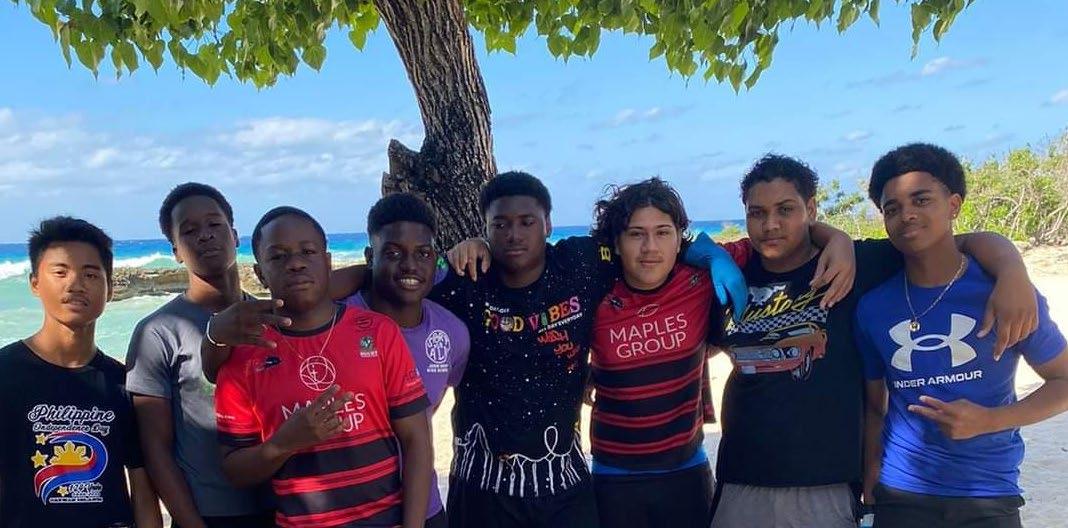 Murray, Boyz2Men Chairman and School Counsellor
Murray, Boyz2Men Chairman and School Counsellor
Working as a counsellor at HMP Northward Prison, Christopher Murry was seeing 13, 14 and 15-year-old boys passing through the system and asking for a second chance at life. There was little Mr Murray could do to help these particular boys, but he felt compelled to go into the country’s high schools and begin connecting with at-risk students before they passed the point of no return.
This was 2009, and since then, Murray’s desire to help has flourished into today’s fantastic and well-respected programme, Boyz2Men. As a high school-based mentorship programme, Boyz2Men helps transform young boys who are at risk of falling behind and succumbing to a life limited by bad choices. Their programming offers a brighter future, helping them grow into capable men ready to face the challenges life throws their way.
Before Boyz2Men became what it is today, Murray made his first breakthrough with young Seaford Russell Jr. The then 13-year-old George Hicks Middle School student had already been arrested once and knew if his path did not change, he would end up spending his life behind bars or worse. Living in a 1.5-bed trailer home with a family of seven and being exposed to drugs, violence
and more, Seaford’s home life was not aiding his prospects. He also recalls how he was not performing to his full potential in school, as he and his friends would be regularly suspended for fighting with their peers or disrespecting adults.
However, even though Seaford spent his youth sleepwalking into a life lacking opportunity and success, he claims that though he was troubled, he always wanted to become something more. So when Christopher Murray walked into his life, Seaford saw a rare chance to make real change and grabbed that chance with two hands. Seaford, under the wing of Mr Murray, was worried it might be too late for him. But what he knew was that he needed to listen to people like Christopher who helped fill the void left by his absent father.
At this point, the Boyz2Men programme didn’t really exist –Seaford being the first to accept help. The one-on-one time between the pair was personal and often spent on the water, fishing on Christopher’s own dime and sharing a safe space when Seaford needed to let off steam. After a year of this oneon-one time, Seaford came to reject the path of negativity he was on and started walking towards a new life, helped by his new mentor.
Since then, Seaford has gone on to earn himself a successful career and build his own family. He’s currently the lead sports journalist at Cayman Compass and has, in fact, become a Director of the Boyz2Men programme. Seaford attributes his successes to the programme, thoughtfully remarking, “The programme planted a seed, and along the way several good people watered it.”
Through his mentorship of Seaford, Christopher realised the potential for Boyz2Men. "By changing the boys' self-image", Christopher remarks, "we can help change their lives." And Boyz2 Men was born, helping and encouraging other at-risk boys like Seaford to better their prospects through mentorship.
Teachers and parents quickly began to see positive changes in the boys enrolled in the programme. And as these changes permeated schools, more and more students wanted to join, seeing for themselves how the programme unlocked success in boys just like them.
The Boyz2Men programme is now well established in Cayman and it continues to motivate boys onto the right path, steering them into a more successful future.
More recently, the programme welcomed 15-year-old Che Powell from John Gray High School. Before he joined Boyz2Men, Che regularly indulged in negative habits and practices with his friends. Looking back on the Boyz2Men programme, he recalls how he and his peers would laugh at the possibilities that could be gained via the programme. He remembers how he initially thought Boyz2Men was a waste of time, but he would soon be proven wrong. Eventually,
Che and his peers sought out the programme as a means of entertainment and to cease indulging in their negative activities.
As a proud member of Boyz2Men from 8th to 12th grade, Che recalls the progress and development celebrations he had with his peers, going out for dinner and to the theatres. And, after spending those four years in the company of good men from Cayman's community, Che has obtained a Diploma in Business Administration and is currently studying for a Bachelor’s degree in Management Studies at the University of the West Indies, as well as being employed part-time. Che attributes his educational success to the programme and believes his educational accomplishments to be his biggest life achievement to date.
Looking back on their time spent with Christopher Murray and Simon Miller – a second director at Boyz2Men – both Seaford and Che are thankful and fond of their involvement in the programme. When asked what his proudest moment is, Seaford replies, "Hearing my mother say she was proud of me. Employment and wealth are well and good but when my mother told me that, they felt like the best words ever spoken to me."
Both men hope Boyz2Men continues to grow and help those much like themselves. As a director of the programme, Seaford continues to give back, not just to the programme’s students but to those in the wider community who would identify as atrisk young men. For those boys who are considering joining Boyz2Men, both Seaford and Che encourage them to do so. “Boyz2Men is an outlet for those who were born to fail in the eyes of society and for those who want to defy those stigmas”.
The Boyz2Men programme invites exemplary men from the community into schools to share their life experiences, while profiling their unique challenges when growing up. During these sessions, the boys are given the opportunity to question the men on how they overcame problems and achieved success in their lives.
If you would like to get involved, email Christopher C. Murray at ccmurray777@gmail.com or call on (345) 329 0021. Or, contact Simon Miller at millertsy@yahoo.com or call on (345) 328 1443. Their team is always looking for positive role models.
If you don’t have the time to contribute, they also accept donations to fund group activities – fishing, painting, etc. With the right funding, they would also love to expand the programme to more schools and year groups.
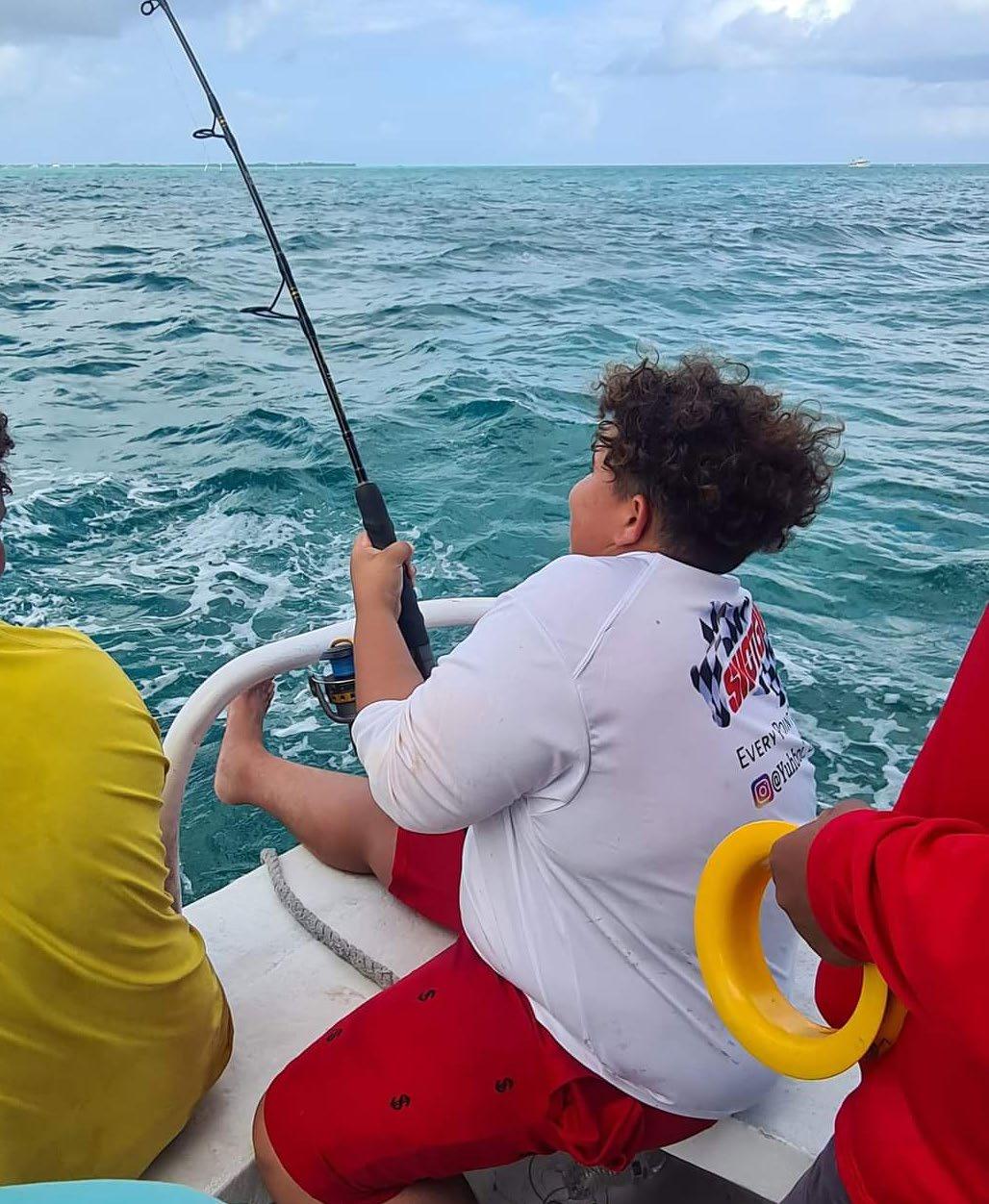
Besides earning money, an after school job or summertime internship can provide an incredible foundation for learning workplace skills and the value of money. Entering the workforce enables teenagers to gain real-world experiences and develop essential workplace skills, such as teamwork, time management, and problem-solving that will serve them for years to come. Not to mention it will look great on their resume and impress future employers.
However, first your teen needs to secure the job. Interview scenarios are nerve-wracking for anyone at any stage in their life, but for teenagers, who may be experiencing it for the first time, the nerves are even greater. So, preparation is key.
Don’t just read the job title and assume you know what skills and experience the employer is looking for. Read and re-read the job description and understand each component that the role requires. This is vital in helping you prepare valuable answers to interview questions. Researching the company you're interviewing with is always a must-do. Referring to the company's past and future endeavours during an interview demonstrates your interest and enthusiasm for the job.
Consider your skills, qualifications and relevant experience and understand how they relate to the job requirements. Making a list of your strengths can help you explain confidently why you’re the right person for the job. Remember, you don't need to have been employed to have experience leading a team or dealing with a stressful situation. Use reallife experiences to answer questions when you lack work experience.
• Why are you interested in this position?
• Why are you the best person for this job?
• What are your greatest strengths?
• What is your biggest weakness?
• What are your biggest accomplishments?
• Tell me about a situation where you used your initiative.
• Tell me about a time you overcame a challenge.
Depending on what you’re applying for, it may be appropriate to bring references, a portfolio or even a copy of your resume and cover letter. The interviewer may not have it to hand on the day and will appreciate your preparedness. Leaving the interviewer with materials that outline your skills and successes will help them remember you and your suitability for the role.
Throughout the interview, the employer will ask a variety of questions. These will be behaviour, communication, opinion and performance-based. When preparing your answers, use the "STAR" method: outline the situation, task, action and result. Not only does this give your answers structure, it also demonstrates your experience, skills and personality simultaneously. See below a list of common interview questions you can use to prepare.
Two can play at that game! At the end of an interview, employers will ask if you have any questions for them. Whether you want to know more about what an average day looks like in the role or the next steps of the interview process, asking questions demonstrates enthusiasm and develops a further understanding of the job.
Picking the perfect outfit gives the best possible first impression to your potential employer. If you want to come across as smart and professional, dressing as such can help you on your way there. Wearing a blouse, skirt, suit trousers, shirt, smart dress or blazer can also make you feel ready for the interview by getting you in the right frame of mind. Ensuring your outfit is neat, tidy and crease-free also demonstrates how important the job is to you.
Don't underestimate the importance of being on time for your interview. Ensure you have everything scheduled in order to arrive 10-15 minutes before the interview. Be mindful of traffic, parking and public transport delays. All of this demonstrates your punctuality and time management.
After leaving the interview, follow up with an email thanking the employer for taking the time to interview you. As with all written communication between yourself and the interviewer, this email should be error-free. You could also include a short and snappy sentence to summarise why you think you should be chosen for the role.
If you are unlucky in getting the role, don't end your relationship with the company abruptly or sourly. Instead, continue to thank them for their consideration and request they give you constructive feedback on your interview. This can help enormously going forward and may make the difference in securing the next job you apply for.
TOP TIP: Parkway Academy offers workshops on resume building, entering the workforce, interview prep and college prep that would be beneficial to teenagers and young adults. See page 72 for more information.
What's important to remember is that an interview is simply a conversation in which you're able to show off all your professional qualities. Remember to be polite, use the right language and take your time to think about the questions
before giving your answer. Refrain from heaping pressure on your shoulders, and remember that preparation and confidence will take you a long way. You've got this!
Summer internship programmes in Cayman provide a fantastic opportunity to build on your professional skills in a chosen field. They allow you to apply your learning, get a better understanding of your chosen profession and grow your professional network.

As well as being a fantastic addition to your CV, Cayman internships often increase your employability and some organisations will even use internship programmes to assess a student's capabilities with a view to a long-term career in Cayman.
There are plenty of internships available to Caymanian students across several industries, including accountancy, law, conservation, business and creative. Competition for placement is steep, so make sure to get your application in before the deadline.
Visit the Cayman Parent website for the most comprehensive list of internships offered across the Cayman Islands. Find application forms, deadline dates, contact details and more all in one helpful place. What's more, many of the internships advertised on Cayman Parent are also paid!


• Students must be Caymanian and in university. A degree in hospitality or related field is preferred, or the desire to pursue a career in hospitality in the future.
• Students must be 17/25 years old.
• Students may select up to four departments or areas of focus for the programme rotation. These may include rooms operations, food and beverage, marketing, recreation, finance and event management.
• Curriculum includes a mentorship programme, enhancement of job and interview skills, lunch and learns with resort Executive Leaders, training sessions and weekly Culture Projects to create special experiences for guests.
“I appreciate my Ritz-Carlton experience very much and I am grateful to have been part of the summer internship programme. It was educational, inspirational and a first class introduction to the working world.” – Victoria, Intern, UCCI.
The Summer Internship Programme at The Ritz-Carlton , Grand Cayman invites young Caymanian students into the world of hospitality, inspiring the industry leaders of the future. The students can explore their preferred areas of interest in different departments at the resort, that vary from front office, culinary to water sports, among others. (345) 943 9000 | www.university.marriott.com | The Ritz-Carlton, Grand Cayman

Vaping has seen exponential growth in popularity over the past five years or more. Electronic cigarette use is rising faster than any other substance use recorded. And the biggest worry is that one of the main users — teenagers — are not the intended demographic for these hazardous devices.
It’s a sad irony that a product that was originally conceived as a smoking cessation aid is, in fact, creating a whole new generation of nicotine addicts. According to the Truth Initiative, the use of disposable e-cigarettes increased about 1,000% among high school e-cigarette users in 2020 and they are now the most common source of tobacco for young people.
While e-cigarettes may be less harmful than traditional cigarettes, they are in no way harmless. In North America, a sudden outbreak of lung injuries associated with e-cigarettes during the summer of 2019 highlighted some of the short-term dangers of these devices. But perhaps even more concerning is that they are so new that experts don’t yet know what the long-term effects might be.
Vapes, vape pens, mods, tanks or e-cigarettes are collectively known as Electronic Nicotine Delivery Systems (ENDS). These battery-operated devices heat a liquid into an aerosol that is then inhaled. This liquid usually but not always contains nicotine, and thus, in theory, helps smokers wean themselves off cigarettes. One of the reasons behind the rapid uptake among teens, however, is that many have fruit or candy flavours added which appeal to young people. Another reason is the product design which has become increasingly sleek and techy-looking. Devices can look like pens or zip drives and fit neatly into the palm of a hand. And then there’s the marketing, much of which is on social media and targets this age group.
E-cigarettes have also succeeded in removing many of the negative connotations of conventional cigarettes—users don’t inhale the tar, there is no smoke or unpleasant smell, and they are cheaper than tobacco all of which add to their appeal.
Although 40+ countries worldwide have prohibited vaping in all forms, in Cayman these devices are readily available in gas stations and corner shops, and are often prominently displayed, says Simon Miller, the National Drug Council’s prevention specialist.
Although by law, tobacco products cannot be sold to under-18s in Cayman, it’s a grey area as some vapes do not always contain nicotine and are, therefore, not technically tobacco. However, the good news is that vaping products are in the process of being regulated here.
Nonetheless, the NDC’s 2022 Student Drug Use Survey, which polled 3,608 students in Cayman's schools, found that e-cigarettes were the second most common substance used by young people after alcohol, with 30% reporting having vaped at least once. These figures have remained about the same since the 2020 survey.
The survey also found that 17.6% of children aged 13 and younger reported having tried vaping more than three times the amount that had tried traditional cigarettes.
Because vapes have been around for less than 15 years, the long-term effects have yet to be seen. Their recent emergence also means that there is little regulation surrounding them, and some of the chemicals used in them are unknown, so their safety has not been established.
Most vapes deliver nicotine, a highly addictive substance that is known to raise the heart rate and increase the risk of heart
attack. Nicotine is particularly dangerous for young people, as it can have damaging effects on brain development: it may lower impulse control in developing brains and can harm the parts of the brain that control attention and learning. Evidence indicates that those who consume nicotine through vaping are more likely to also use traditional tobacco products and try other drugs.
JUUL, by far the largest vape brand, makes refills that contain the same amount of nicotine as a pack of 20 cigarettes such concentrations are prohibited in the European Union which, in addition to addiction, can lead to nicotine poisoning. Nicotine toxicity can cause headaches, nausea, vomiting, changes in heart rate, seizures and, in severe cases, death.
Even when vapes don’t contain nicotine, the e-liquids that are heated contain other chemicals, some of which are known to be harmful. One, diacetyl a chemical used for flavouring is linked to a condition called 'popcorn lung', which causes scarring and obstruction in the lungs; another, Vitamin E acetate, was found to be associated with EVALI, the vaping-associated lung injury that hospitalised thousands in 2019.
Some vapes can also be modified to smoke marijuana, Miller says, and the devices work in such a way that the smell is barely perceptible, so teens could be smoking at home, unbeknownst to their parents.
Additionally, the heated coils may expose users to heavy metals such as nickel, tin and lead, and in rare cases, faulty lithium batteries have exploded, causing injuries and burns.
It’s not always easy to tell when young people are vaping as the devices are discreet and, unlike conventional cigarettes, there isn’t the same smell that clings to hair and clothes. However, signs to look out for include:
• Changes in behaviour, irritability or mood swings
• Nosebleeds (vaping dries out the mucus membranes in the nose)
• Increased thirst
• Unusual, sweet or fruity odours from the flavourings
• Unfamiliar paraphernalia (many look like zip drives or pens but have holes at either end)
• Coughing
• Mouth sores
• Decline in academic or athletic performance.
“Whether your child is vaping or not, have a conversation about it with them,” Miller advises.
Adolescent brains are hard-wired to take risks, so you may not be able to stop your teen from trying vaping, but you can talk to them to ensure that if they do, they do so knowing the facts.
Talking about vaping need not be confrontational: try to make it
a two-way conversation rather than a lecture. Find out what they know about the risks and fill them in on the details they don’t know, emphasising how much is still unknown.
Look for openings such as when you see someone on the street or on TV vaping to ask them if they have tried it and start a dialogue. It may be more effective to have the conversation over time, in small chunks, so that it remains an open and ongoing discussion.
The US Surgeon General has a website (e-cigarettes. surgeongeneral.gov) dedicated to vaping among teens that includes tips and fact sheets that suggest approaches to opening a discussion and that help equip parents with the right information.
For teens who have trouble quitting vaping, Miller says the support would be the same as for those trying to quit smoking. Your GP may be a first port of call, but there are also smoking cessation classes offered by both HSA and Cayman Islands Cancer Society. Counselling centres, such as Infinite Mindcare, also run programmes specifically for teenagers.
As Miller points out, even if your child is not vaping, they will know someone who is. As a parent, you can’t control what your teenagers do, but you can make sure they know the facts. And perhaps the most important point to impart is that at this early stage, it is the unknowns with vaping that are at least as worrying as the knowns.

Although it is illegal in the Cayman Islands for anyone under the age of 18 to consume or purchase alcohol, the recent Cayman Islands Student Drug Use Survey (CISDUS) conducted by the National Drug Council (NDC) found that 40.5% of the 3,608 participating students admitted to using alcohol at least once during their lifetime. An alarming 13.1% of students revealed they had consumed alcohol at some point during the last 30 days.
Alcohol is the number one drug of choice amongst teenagers in the Cayman Islands, according to the CISDUS 2022 findings. However, proper parental intervention can influence children to make smart and informed decisions surrounding alcohol and underage drinking.
Understanding the contributing factors which can lead to underage drinking will help you approach your child from a place of empathy when discussing the risks.
Teens' still-developing brains can make it hard to resist the pull of peer pressure and consider the consequences of their choices. Instead, the immediate reward of feeling liked or a part of the group outweighs the risks of giving in to underage drinking.
On an island where brunch is a cultural institution and coolers filled with alcoholic beverages are a boat day fixture, alcohol is regularly shown to be synonymous with fun, which can be a confusing message for children. Moreover, studies suggest the positive portrayal of alcohol in the media (social media, TV, radio) can sway children into early use.
According to The National Centre on Addiction and Substance Abuse (CASA), highly-stressed teens are twice as likely to smoke, drink and use illegal drugs. Mounting achievement pressure paired with a seesaw of hormones and emotions may lead teens to believe the easiest way to cope is by numbing their feelings with substances.
As your teen develops their own values and sense of self, they may be inclined to challenge the boundaries parents set for them. Simply telling your teen not to do something can have the opposite of the desired effect.
Underage drinking can carry serious and lasting implications for the user. Some of these include:
Alcohol is a depressant, and its effects are exaggerated in teenagers. Alcohol can slow down brain activity for up to two weeks after consumption and repeated alcohol abuse from a young age can cause long-term consequences for brain development. Some permanently impacted areas include memory function, motor function, learning ability and attention span. Additionally, more life-threatening health concerns, such as heart disease, liver disease, cancer, nerve damage and respiratory infections may emerge over years of heavy drinking.
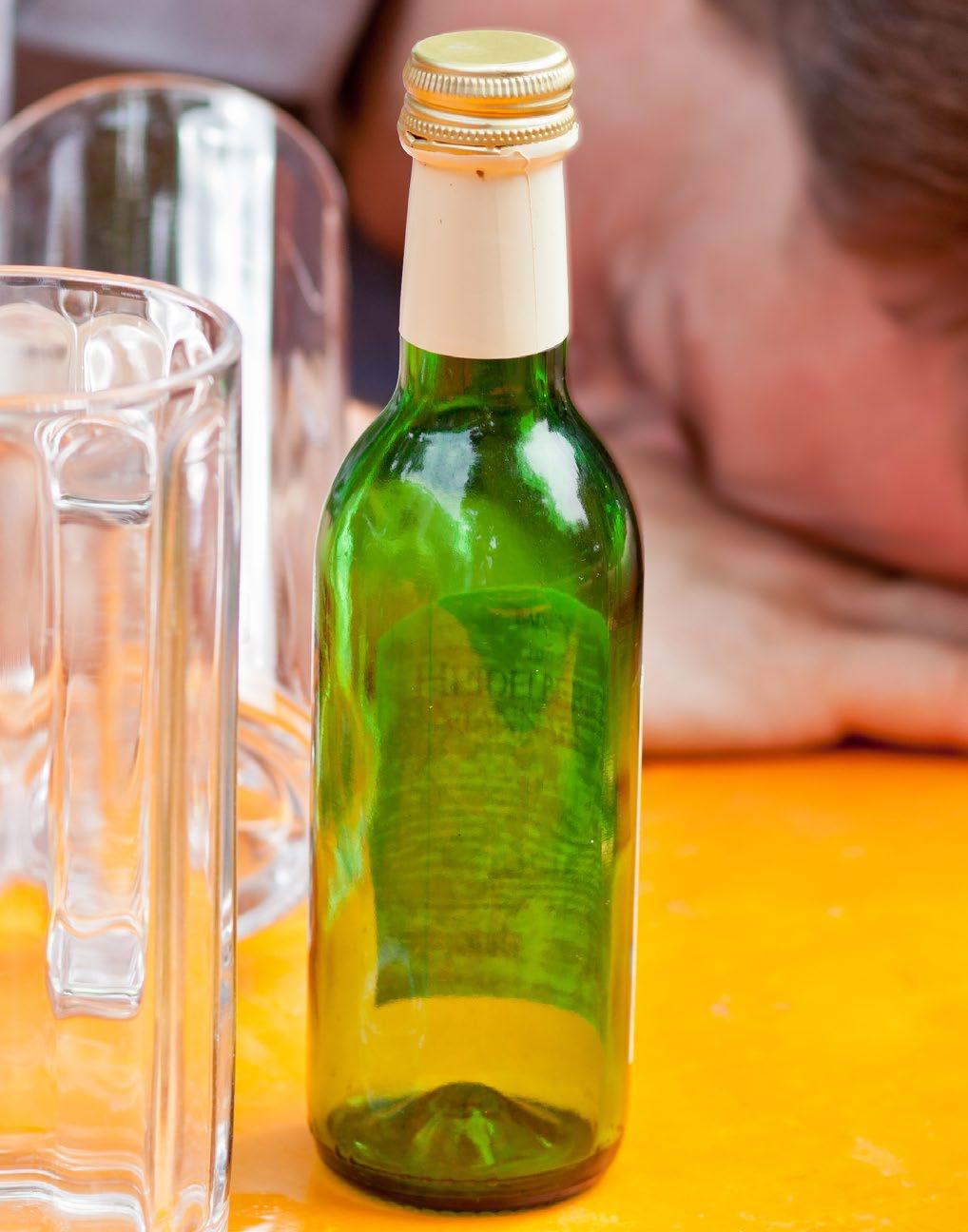
Drinking impairs your judgement, and while under its influence you may make decisions you otherwise would not have made when sober. Generally, teens who drink are more likely to engage in risky sexual behaviour, experiment with other illicit substances, get into fights and commit crimes.
The bottom line is it is illegal to buy or possess alcohol if you are under the age of 18 in the Cayman Islands, even in the privacy of your own home. You also risk losing your licence for a minimum of 12 months if you are found to be under the influence of drugs or alcohol while driving. Depending on the level of intoxication, you could be subject to a CI$1,000 fine and face up to six months of imprisonment for the first offence, and a CI$2,000 fine and up to 12 months of imprisonment for a repeat offence.

The most effective way to inform your child’s values on drinking is to start talking about it—whether you are trying to prevent them from drinking in the first place, or to curb any existing alcohol use.
Children begin to formulate their own opinions on drinking from an increasingly young age meaning parental intervention should start early. By age 10, children will have already been exposed to alluring messaging surrounding alcohol, especially those with easy access to the internet. Answer any questions children have and encourage an ongoing dialogue.
Forgo a formal sit-down talk, as that can come across like a lecture. Instead, aim for frequent and casual conversations that are revisited when relevant. Look out for conversational triggers, such as TV shows that positively depict underage drinking or advertisements for alcohol on the television. Use these as an opportunity to highlight the contradictory messaging around drinking and ask their opinions on the matter.
Prevention begins at home and parents can set a good example early on. Demonstrate positive ways to handle stress and avoid statements like "I need a drink" after a long day, as this can perpetuate drinking as a coping mechanism. Show your children examples of responsible drinking, such as turning down a drink when you are driving and not drinking to excess. Discuss reasons why people may choose not to drink to normalise abstinence as a socially acceptable option.
Set and enforce clear rules against drinking and uphold certain consequences if they fail to abide by your rules. Link responsible
actions to freedoms, such as a later curfew or use of the family car, so your expectations carry some weight.
Speaking about drinking is a tough but necessary topic to tackle with your children. Ultimately you want to remain as approachable as possible. When children feel that you’re being honest with them, they’ll be more likely to respect your rules and feel comfortable coming to you when they have any problems or questions.
If you are concerned about your teen's underage drinking, want to learn more on the subject or obtain referrals to programmes in your community, contact one of the following organisations.
Alcoholics Anonymous See www.caymanaa.org/meetings.
National Drug Council The Parents as Preventers programme is designed to educate parents and caregivers on some of the early warning signs of substance use. It also provides information and skills that can help parents take a positive approach when dealing with teens and developing effective drug prevention. Tel: (345) 949 9000, email: info@ndc.ky, web: www.ndc.ky.
Department of Counselling Services Tel: (345) 949 8789, email: foi.dcs@gov.ky, web: www.dcs.gov.ky.
The Wellness Centre Tel: (345) 949 9355, email: info@ wellnesscentre.ky, web: www.wellnesscentre.ky.
• The National Institute on Alcohol Abuse and Alcoholism in the US states that more than 90% of all alcoholic drinks consumed by young people happen through binge drinking.
• People who begin drinking by age 15 are five times more likely to develop an alcohol dependency than those who begin drinking after age 20.
• Alcohol is the leading cause of accidental death for youths aged 15-24 years.
According to an Adolescent Health and Sexuality Survey conducted among 15-19-year-olds in the Cayman Islands, the average age at which children become sexually active is 14. At the same time, only 27.8% of participants felt comfortable sharing their sexual health concerns with a healthcare professional, while the majority of those surveyed had not discussed sex or contraception at all with a parent or trusted guardian.
Talking to your children about sex can be a tricky subject to navigate. However, it is often our first encounter with a topic that shapes our views on it. We recommend that parents keep an open dialogue with their children so that misinformation from peers and the media does not interfere with healthy and safe decision-making. These conversations will help set the stage for safe sex practices that will follow children into adulthood.
There isn’t one definitive answer to this question and all the bases don’t have to be covered in a single conversation. In fact, 'The Talk' should be the start of an ongoing and positive sexual health dialogue in your household. With that in mind, try to meet your child where they are. Consider the developmental context when responding to questions: the information a sevenyear-old is looking for is likely very different to what a 13-yearold wants to know.
If you're looking for more advice, The Family Resource Centre has parenting webinars on their website that discuss this important topic. Find them at www.frc.gov.ky.
Explaining how pregnancies can occur is an important part of safe sex education, but it's also important to explain what happens after birth. Between 2020 and 2021, the number of young people in Cayman who had repeat pregnancies increased significantly. The HSA reported a 27% spike, which indicated that many young parents who had already given birth were finding themselves in that situation again.
The Family Resource Centre notes that there could be various reasons for this increase, but the numbers speak to a need for more sex education among young people. Talking to your kids about the broader reality of what happens after birth is just as important as talking about what comes before it. Raising a baby is a huge responsibility and entails a great deal of hard work and sacrifice. It's crucial that young people understand that.
Birth control, also known as contraception, helps protect against unwanted pregnancies and certain methods can also protect against sexually transmitted diseases (STDs). If your
teen is sexually active, they need to be taking steps to ensure that they are staying safe. Talk to your teen about their options and the pros and cons of each to determine which birth control best suits their individual needs.
Some factors to consider when discussing contraceptive methods include whether they want to take it daily, existing health issues such as a predisposition to migraines or a family history of high blood pressure, and any potential side effects.
Some common birth control methods include:
• Condoms: condoms are the most widely used birth control method available. If used correctly, condoms are 98% effective in protecting against pregnancies and STDs, such as HIV/AIDS.
• Oral Contraceptive Pills: commonly referred to as ‘the pill’, contraceptive pills contain hormones which prevent women from ovulating. If taken at the same time every day, birth control pills can be very effective in preventing pregnancy. It is important to note that the birth control pill does not protect against STDs. Some Caymanians may be entitled to free birth control.
• Long-Acting Reversible Contraceptives: include injections, implants or intrauterine devices (IUDs). You can get copper IUDs or hormonal IUDs (Mirena). These do not protect the user against STDs.
Free condoms are available at all District Health Clinics, the Cayman Islands Red Cross, The Cayman AIDS Foundation and at the UCCI Student Services. Any other form of birth control requires a doctor’s appointment.
All District Clinics, the Women’s Health Centre and OceanMed (Tel: (345) 946 2326) provide information on sexual health and STD screening. Dr Heidi Fahy at Cayman Clinic (Tel: (345) 949 7400) specialises in women’s health and family planning. The Cayman Islands Health Services Authority Women's Health Clinic offers contraceptive advice and care, as well as routine pap smear screening for females who are sexually active.
A girl’s first period is a major milestone that marks the shift from girlhood to womanhood. However, it can also be a scary and confusing experience if she is unsure of what to expect. – Dr
Madhavi ManoharanMenstruation, commonly referred to as your period, signifies the start of a female’s menstrual cycle when a woman bleeds for anywhere between 3-8 days. A cycle begins on the first day of one period and ends on the first day of the following period. This timeframe is around 21 to 28 days. During the menstrual cycle, an egg is released by one of two ovaries, which then travels to the uterus through one of the fallopian tubes. Body tissue and blood cells form a thin layer of material on the walls of the uterus to protect the egg, however, if an egg remains unfertilised, the body will no longer need this protection and shed the lining during menstruation.
The average age for starting your menstrual cycle is 12 years old but there is some variance. If your daughter hasn’t shown any of the early signs of puberty (i.e. growth spurt, body odour, mood swings) by the age of 14, there can be reason for concern and she should see a doctor who understands the stages of puberty. If she has had some body changes, then you should not be too worried unless she has not started periods by age 16.
NOTE: it is important to have the contraception conversation early on as girls can still get pregnant even before their periods have regulated.
The first few periods in puberty are usually irregular. If, after a year, her periods have not settled into a regular pattern, there may be cause for concern. Seek support if this interferes with her schooling or extracurricular activities, or if the gap between periods is longer than three months.

It is important to talk to your daughter about what to expect from her period. The first few periods are not usually heavy, and she can expect to change a pad or tampon three to four times a day. Heavy periods can be managed with a nonhormonal tablet to reduce the flow, which is highly effective with very few side effects or risks. Really resistant problems may need a progesterone hormone. However, it’s important to avoid the contraceptive pill for a couple of years after the start of periods as it may interfere with the final stages of puberty, including full breast development and achieving full adult height, unless, of course, she needs contraception.
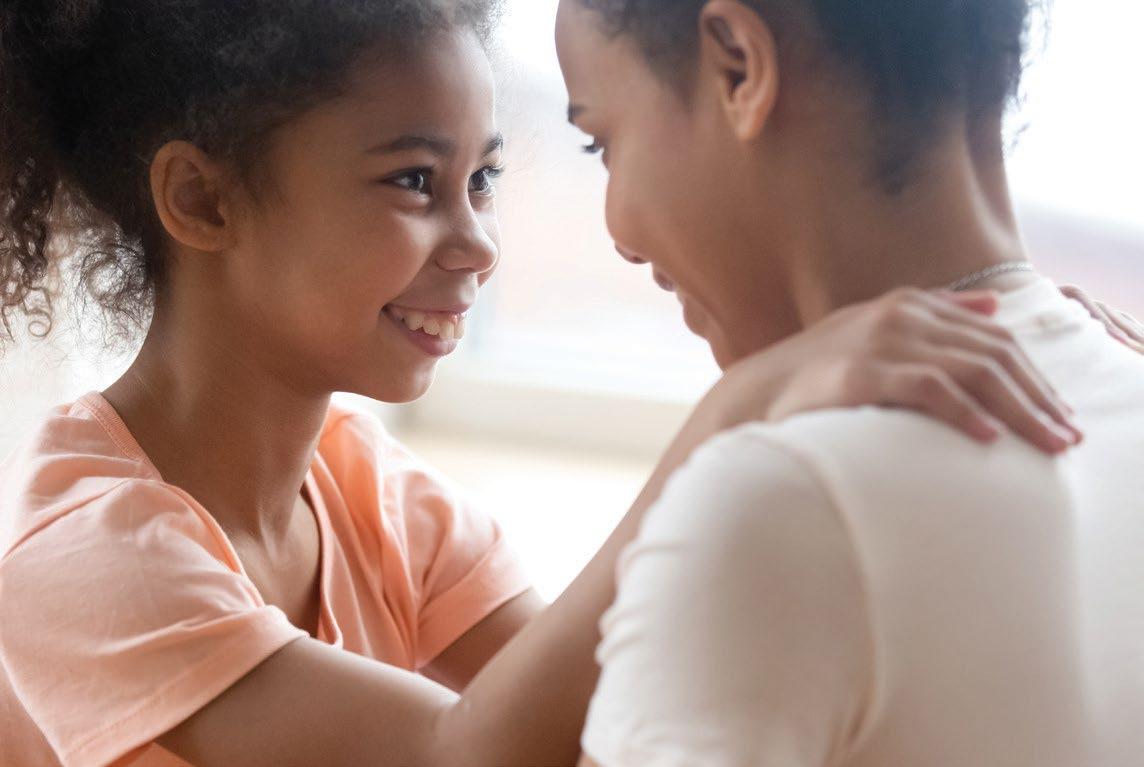
Some girls experience period cramps the day before or during the first two days of menstruation, and the experience can be frightening at first. Typically, cramps are felt in the lower tummy and back area and sometimes at the top of your thighs. Pain can be managed with a combination of paracetamol and ibuprofen as they work together to reduce pain. Or alternate acetaminophen and ibuprofen.
Occasionally painful and/or irregular periods can indicate an underlying condition such as endometriosis or polycystic ovary syndrome. Both conditions can occur in teenagers but diagnosing them is a real challenge, and should only be done by a doctor with expertise in adolescent gynaecology to avoid overdiagnosis. The focus should be on managing symptoms and allowing your daughter to achieve her full potential, rather than giving her a label.
It is essential to encourage children to explore different areas of interest while keeping them positively engaged during their adolescent years, and Cayman is fortunate to have access to a wide range of free and low-cost programmes geared toward adolescents.
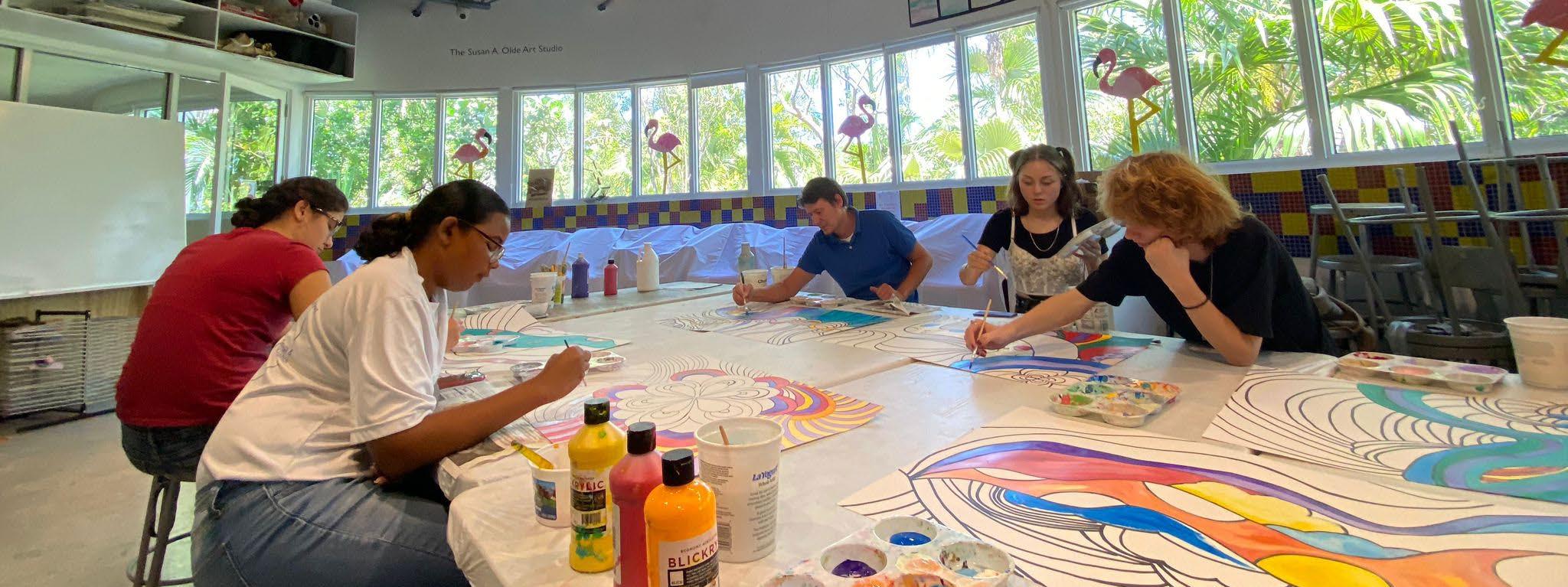
The Ministry of Education sponsors an extended after school programme in public primary and high schools which is run by the YMCA. The programme operates from 3pm-6pm weekly and there is a rotating range of activities, including sports and homework help. Transportation home is provided for high school students. The annual cost to parents within primary schools is CI$75 and financial assistance can be sought. High school students register through the YMCA website. Primary school parents through the school office. Call (345) 922 2432, email easp@ymcacayman.ky or visit www.ymcscayman.ky.
Public high schools also offer a wide range of other clubs, including Key Club, Joi Club, Optimist Club, Leo Club, Cadets Core, Boyz2Men and Duke of Edinburgh, along with music, drama and prep sessions for students needing help with their subjects. These are often free, or have a minimum cost, and private schools (primary or high) also offer after school clubs.
The Truman Bodden Sports Complex (TBSC) comes alive in the afternoons with children doing track and field. There are four different clubs and they are very welcoming: Speed Athletics
is run by Coach Porter and you can call him on (345) 525 2793 or email him at speedathleticstrackclub@gmail.com. They take children from the age of four. Falcon Athletics works with children from the age of 8-20 and you can email them on falconathleticsinfo@yahoo.com. Hy-Tech Tigers TFC accepts children from the age of six and you can contact Coach Williams on hytechtrackclub@gmail.com or by calling (345) 925 1943. The Mustang Track Club accepts children from the age of five and you can call them on (345) 925 6917 or email: tajyen@ hotmail.com. Finally, the Special Olympics Cayman Islands offers a variety of sports training for children and adults ages 8+ with intellectual disabilities. To learn more, visit www.soci.ky.
Cayman Islands Little League, operated by the YMCA of the Cayman Islands, teaches children aged 4-18 skills in baseball and softball. If you are looking for a safe environment emphasising teamwork, good sportsmanship and healthy competition, email: info@littleleague.ky or visit www.littleleague.ky.
The Cayman Islands Basketball Association’s after school basketball training is available for students up to 16 years. Practice takes place on Thursdays and Fridays from 3.30pm5.30pm and costs CI$10 a month. The U18 national training
programme takes place at the First Baptist Church gym on Mondays and Wednesdays from 5.30pm-7.30pm. For more information, call Coach Voot O’Garro on (345) 916 5083 or email: info@caymanbasketball.com. The Cayman Islands Netball Association has a number of netball leagues and they meet up to play in the afternoons and on Saturday mornings. For more information, call Lucille Seymour on (345) 916 1944, email: caymannetball@yahoo.com or visit www.caymannetball.com.
Cricket
Cayman Cricket organises cricket practice for all U15s on Saturday mornings from 9am-11.30am and Sundays from 3pm5.30pm during the school year. Email: secretary@caymancricket. ky or call David Bernard on (345) 517 9328.
Football
Academy Football Club provides opportunities for families from different socio-economic backgrounds on a case-bycase basis by accepting assistance through fundraising and volunteering time in lieu of fees. Contact head coach, Paulo Mourinho on (345) 929 2257, email: paulo@academysportsclub. ky or visit www.academysportsclub.ky.
Karate
Students can try a free week of classes at Cayman Associated School of Karate (C.A.S.K.) at King's Sports Centre. Adolescents may be eligible for scholarships or financial assistance and can contact Chief Instructor Greg Reid directly. To enquire call (345) 925 3367 or visit www.caskcayman.com.
The Cayman Islands Netball Association (CINA) has a junior league and games are played throughout the year for under-12s, under-14s and under-16s. A membership fee of CI$5 is made once a year. Contact Lucille Seymour on (345) 916 1944 or via email: caymannetball@yahoo.com. For more information, visit www.caymannetball.com.
The Rugby Club in South Sound runs a well-established programme for students up to the age of 19 with yearly membership fees of CI$125. Both girls and boys are encouraged to participate. Contact Caroline Deegan for more information on (345) 525 6743, email: caroline.deegan@caymanrugby.com or visit www.caymanrugby.com.
The Black Pearl Skate Park in Grand Harbour has grown into a bustling centre of activity for Cayman's children and teenagers. The dynamic course can be accessed for a daily fee of CI$7 and consists of beginner, intermediate and expert ramps. It is the largest skate park in the western hemisphere and is a mecca for youth in the Cayman Islands.
Big Brothers Big Sisters of the Cayman Islands is a child, youth and young adult mentoring organisation with an age range
for its mentees of 6-25 years old. Programmes are one-on-one matches, however older males (16-25) participate in a group setting. Mentors and mentees meet regularly, with professional support provided by BBBS staff. For more information, call: (345) 326 7967 or visit www.bbbs.ky.
The Cadet Corps instils life skills and high standards of conduct through military-style activities. Three programmes are offered: band cadets, marine cadets and army cadets. The programmes could result in BTEC Level 2 qualification and/or honours in the Duke of Edinburgh Awards Scheme. They accept boys and girls from ages 11-19. For further information, email: cadetcorps@gov. ky, call Mr Error Brathwaite on (345) 938 8822 or visit www. cicadetcorps.ky.
Girlguiding helps girls build their confidence, discover their full potential and make a positive difference in the community. The Guides cater to the 10-14 age group, and the Rangers are for 14-18 years. Girl Guides work hard to make their pricing as inclusive as possible for all members of the community. Visit www. girlguidingcaymanislands.ky for further information.
The Scouts Association is a non-formal educational programme which encourages the holistic development of boys through outdoor activities. From the Beaver Scout programme (6-8 years) to the Cub Scouts (8-11 years) to the Scouts (11-19 years), boys will develop vital skills and earn badges. Groups meet weekly. Call Winston on (345) 939 8813 or email: ciscouts@candw.ky for more information.
The TAYA Programme is run through the Cayman Islands Crisis Centre (email: taya@cicc.ky) and it offers individual or group sessions to help youths build healthy relationships through communication tools and emotional management.
The National Gallery of the Cayman Islands runs the Walkers' Art Club, an after school Art Programme for ages 5-17. The classes are sponsored by Walkers and are free to attend. Register online at www.nationalgallery.org.ky.
Cayman Youth Choir runs three choirs for ages 4-18 on Mondays at John Gray High School. The choir is sponsored by Cayman Arts Festival and there is no fee to join. No audition necessary, and it is open to all children and teens. Email: caymanyouthchoir@gmail.com or call (345) 922 2079 for more information.
Most churches in Cayman offer a Friday night youth group. They provide a supportive environment for your adolescent’s spiritual development and encourage teenagers to actively support their congregation. The Cayman Islands Baptist Church boasts one of the strongest youth followings. For children ages 12-18, their 'Friday Night Fuel' from 7pm-9pm includes food, fun, fellowship and faith! Call (345) 946 2422 or visit www. cibaptist.ky for more information.
Why are you so passionate about your sport? Sailing is an integral part of my upbringing and family history. My parents met each other while racing against one another in sailing, and I have fond memories of attending sailing camps during every break and growing up on the water. Sailing is deeply ingrained in my identity and runs through my veins.
Which coach or athlete do you look up to as a role model and why?
I met Mathilda Nichols at the British Nationals in Hayling Island, UK. She is also an Exeter student and has been an incredible inspiration to me. Her ability to excel both academically and athletically is truly impressive. She has shown me that it is possible to pursue excellence in multiple areas of life and serves as a role model for achieving success both on and off the water.
Where is the most exciting place you’ve travelled to compete and why?
Oman for the 2021 Youth Sailing World Championships. With its rich culture, stunning landscapes and challenging sailing conditions, it was unique and captivating experience. The venue itself was remarkable, featuring picturesque coastlines, clear waters and very light wind conditions that made racing extremely tight.
Do you have any hobbies or interests outside of sports?
I am a member of Protect our Future in Grand Cayman and am passionate about the environment, specifically the diverse ecosystems in the Cayman Islands. I have worked with the National Trust to help raise awareness and protect our natural world. I am a keen traveller and I love being able to immerse myself in different cultures. In my free time, when I’m home, my favourite thing to do is take my dog for a beach walk and watch the sunset on the beach with a good book.
Charlotte Webster is currently studying Environmental Studies at the University of Exeter, UK and recently qualified to represent Cayman in the 2023 Pan American Games. Her ultimate goal is to compete in the Olympics.

Who has inspired you the most during your sporting career?
The England women’s rugby player, Abby Dow. She broke her leg in a match against Wales in 2022 but against all the odds she came back and scored an incredible try against New Zealand just five months later. The Levi twins, who play for the Australian women’s rugby team are also inspirational. Their teamwork on the pitch is incredible. Maddison Levi broke the record for top try scorer at the recent HSBC World Rugby 7s.
Which coach or athlete do you look up to as a role model and why?
I’ve had quite a few coaches and I especially admire my rugby coach, Mercedes Foy, and my gymnastics coach, Miriam Schwabe. They both have a zeal for the sport and always push me to the best of my abilities. Mercedes is always on the sideline, telling me to leave it all on the pitch and Miriam is always reminding me that I can do this even when I’m down and apprehensive.
Where do you see yourself in 10 years’ time?
Having completed a medical degree in the UK and on the path to becoming a Paediatrician, along with playing for a local rugby club while I’m there!
How would you promote women’s rugby to a potential team sponsor?
I would emphasise the benefits of the sport such as respect, teamwork, communication, confidence building and the positive impact that sponsorship can have on the lives of young women and girls.
Micah Leon was one of six girls from across the globe chosen to be part of a recent World Rugby campaign and documentary, “Youth Unstoppables 2022 – Women in Rugby”. She was also chosen to represent Cayman in the RAN 7s 2022 tournament in Mexico City.

Who has inspired you the most during your swimming career?
I can remember the day that Team Cayman returned from the 2018 Carifta championships, I knew right away that I wanted to be just like them and make my country proud with all those shiny medals dangling from my neck. I can still remember how Jillian Crooks allowed me to wear her medals, it was such an honour. Jillian's actions encouraged me to continue working hard, so that one day I would have the opportunity to represent Cayman as well. To this day, Jillian and I are the closest of friends and I love chasing her down in the pool.
How did it feel to qualify and take part in the Commonwealth Games?
As a 13 year old, taking part in the 2022 Birmingham Commonwealth Games was a huge deal for me – a valuable and motivating experience. I feel so privileged to have been given that opportunity.
Where do you see yourself in 10 years?
With an Olympic medal from the 2028 Los Angeles Olympic Games.
How do you stay focused when your friends are going out socialising and you have training or a swim meet?
I stay focused and disciplined during those times because I know that I must do so to fulfill my dreams. I just remind myself that it’ll all be worth it, and I will have lots of time for socialising after I win my Olympic medal!
What has been the best and hardest thing about being so dedicated to your sport?
The best thing is the improvement and development of my skills along with the results, records and medals I have achieved so far. The hardest part is having to wake up at 4.45am, train for two hours, and follow that up with a full day of school and exams.
Sierrah Broadbelt won an unprecedented number of individual gold medals at the Carifta Swimming Championships 2023, making her the most successful female gold medal winner in the history of the Cayman Islands.
You achieved a superb set of IGCSE results in. Can you offer any tips or advice on exam revision?
The best advice I could give is to find a way in which you revise most effectively; efficient revision styles are very personal. This can be achieved by finding out what your peers do or even watching YouTube videos on different revision methods. I like to make booklets for each subject, categorising these booklets into the topics of that particular subject. Then I use my exercise books, textbooks, online resources and most importantly, the syllabus to fill these booklets with both succinct and accurate information. After I’ve done this, I learn the information, down to the gritty details, and then complete a lot of past papers to practise the application of my knowledge.
You are involved with Protect Our Future. What does this group aim to achieve?

We meet weekly to discuss and act on ways to tackle environmental problems affecting both our school and our island. We come up with ideas to involve students in doing their part in decreasing their negative environmental impact.
Do you feel it is important for teenagers to have a part-time job or voluntary role from an early age? Yes, especially a voluntary job as I think it is important for people to give back to the community . Through volunteering, one can develop very useful skills like organisation, empathy and problem-solving. In my experience with volunteering, I’ve learned invaluable skills that I continue to use in both my professional and personal life.
Who has inspired you the most during your life?
My parents; whether it be in my academics or my life in general, they have provided me with an incredible source of motivation. They have taken quite different paths in life, which I believe has greatly helped me in becoming my own person as I think I have found well-rounded sources of inspiration in both of my parents.
Scarlett Akiwumi is Head Girl at Cayman Prep & High School and is studying A Level Biology, Chemistry, Mathematics and English Literature. In Year 11 she was awarded the EY Top Academic Achiever and Outstanding Student Award.

Uncover the 10 core principles the Danish use to raise their teenagers with Iben Dissing Sandahl. Help your teen to navigate their tumultuous teenage years with this book that's brimming with hopeful, positive and enjoyable advice.

Absorbing, clever and funny, Philippa Perry explores the dos and don'ts of parenting. It's judgement-free and full of sage and sane advice that every parent will want to read.

Damour presents clear explanations alongside illuminating, real-life examples that are all backed by established research. This book gives parents practical information on steadying their teens through the teenage journey.

A graphic novel about life, love and everything in between that has become a hugely successful Netflix series. Heartstopper explores friendship, mental illness and loyalty and warms your heart from beginning to end.

A bewitching, fantastical read to escape into, Jordan Ifueko's protagonist Tarisai is bound by a magical wish made by her estranged and distant mother. Tarisai won't allow herself to become a pawn and has to choose a different path for herself.
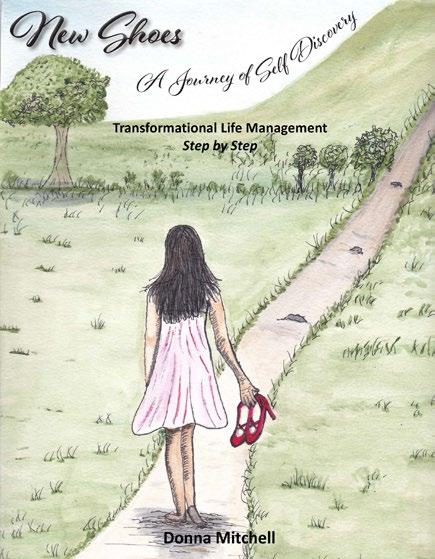

New Shoes addresses 16 of the most common lifestyle challenges, and each chapter offers steps for developing new skills and character qualities for success. A lifecoach for young adults and teens, Donna Mitchell will encourage you to begin your walk to success.
Life360 A family safety service where you can share locations and send place alerts. Best of all, see how (and what) young drivers are doing behind the wheel to encourage safe habits. Free on Android and iOS.

Relief Uses strategies based on Cognitive Behavioural Therapy (CBT) to help you learn to relax and take control of your anxiety. Free on Android and iOS.
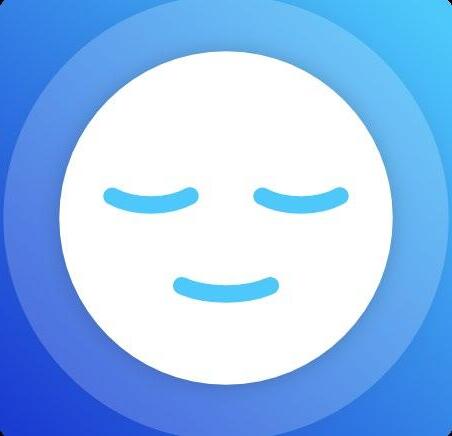
International College of the Cayman Islands (ICCI)
595 Hirst Road, Newlands. Tel: (345) 947 1100 Email: info@icci.edu.ky Web: www.icci.edu.ky. Numerous associate, bachelor and certificate programmes available.
St. Matthew’s University School of Medicine
Regatta Office Park, Leeward 3, West Bay Road.
Tel: (345) 945 3199 Email: admissions@ stmatthews.edu Web: www.stmatthews.edu. Medical students complete five semesters of Basic Science and Pre–Clinical studies in Grand Cayman, and then do clinical rotations at teaching hospitals in the US, Canada or the United Kingdom.
School of Hospitality Studies (part of UCCI)
Tel: (345) 623 8224 Email: shs@ucci.edu.ky Web: www.ucci.edu.ky. Offers an industrydriven, internationally accredited Hospitality and Tourism studies programme.
School of Veterinary Medicine (part of St. Matthew's University)
Regatta Office Park, Leeward 4, West Bay Road. Tel: (345) 814 3177 Email: admissions@ stmatthews.edu. Web: www.stmatthews.edu.
Veterinary students complete seven semesters of Basic Science instruction in Grand Cayman and a year of clinical instruction at an affiliated US or Canadian veterinary school.
The Truman Bodden Law School (TBLS)
Monaco Towers, 54 Edward St, 2nd & 3rd floor, GT. Tel: (345) 945 0077 Web: www.lawschool. gov.ky. TBLS is an affiliated institution of the University of Liverpool and Oxford Brookes University (UK). Full and part-time bachelor's and master's law degrees and the full-time Diploma in Legal Practice (following completion of the PPC, awarded by OBU) are offered.
University College of the Cayman Islands (UCCI) 168 Olympic Way, GT. Tel: (345) 623 8224 Email: admissions@ucci.edu.ky Web: www.ucci.edu. ky. Numerous associate, bachelor and certificate programmes available. There are also graduate programmes, trade courses, an IT academy and a school of Hospitality Studies.
University of the West Indies Cayman (UWI) Olympic Way, George Town. Tel: (345) 946 8322 Email: cayman@open.uwi.edu Web: www.open. uwi.edu. Hundreds of courses are available to be
studied by distance learning, as well as a number of shorter face-to-face courses.
Vocational & Professional Training
Cayman Career Academy
60 Smith Road, George Town. Tel: (345) 936 2228 Web: www.caymancareeracademy.ky. Offering the CIDESCO Beauty Therapy Diploma, a PostGraduate diploma, a Beauty & Spa Management Diploma and UK-based ED Qual beauty qualification.
Chamber of Commerce Professional Development & Training Centre Governors Square, Lime Tree Bay Avenue. Tel: (345) 949 8090 Web: www.caymanchamber.ky. Courses and workshops are available in Customer Service, Business Essentials, Legal Master Classes, Finance, Supervision, Management and more.
Connect by Nova
Tel: (345) 623 1029 Email: connect@nova.ky Web: connect.nova.ky/career-development. A social enterprise initiative by Nova Recruitment, Connect by Nova supports individuals to achieve career success. Offers bespoke career information and guidance for job seekers.
Inspire Cayman Training (ICT)
Grand Harbour Shopping Centre, Units H3 and H4 (next to Salty's) Tel: (345) 525 8990 Email: info@inspirecaymantraining.com Web: www. inspirecaymantraining.com. ICT have in-person classes in Core Curriculum and Employability Skills, amongst other subjects, but they also have hundreds of courses that can be taken online through Ed2go, Electude and BIS Safety Software.
Leaders-in Training for Teens (YMCA)
Tel: (345) 925 3276 Email: info@ymcacayman. ky Web: www.ymcacayman.ky/programmes/ teens. The YMCA Leaders-In Training programme is designed to inspire youth to explore, find new talents and try new activities, while developing their own leadership skills at the same time.
Passport2Success
Tel: (345) 945 9672 Email: worc.training@gov.ky Web: www.worc.ky. The programme lasts for 8 or 16 weeks and includes a week of community service and work placement days. The 5-days-aweek programme is aimed at 17 to 24-year-old Caymanians. Visit the WORC website for more.
Email: worc@gov.ky Web: www.worc.ky. The Ready2Work programme is a pathway to employment initiative that supports employers as they do their best to find jobs for Caymanians while supporting unemployed Caymanians who are seeking work. While the employer focuses on training in technical and subject matter skills and expertise, Ready2Work KY also delivers structured training, along with individual and group support. Other services also address a range of barriers to accessing and maintaining employment.
Bogle Insurance Brokers
34 & 35 Pasadora Place, 94 Smith Road, George Town. Tel: (345) 949 0579 Web: www. bogleins. com.
Caribbean Alliance Insurance
203 Alissta Towers, 85 North Sound Road. Tel: (345) 949 9744 Web: www.caribbeanalliance. com.
Cayman First Insurance Company Ltd.
17 Vibert Bodden Drive, off Shedden Road. Tel: (345) 949 7028 Web: www.caymanfirst.com.
Cayman Insurance Centre (Insurance Brokers) Tel: (345) 949 4657 Web: www.cic.com.ky.
CG BritCay
BritCay House, 236 Eastern Ave, George Town. Tel: (345) 949 8699 Web: www.cayman. cgcoralisle.com.
The Insurance Company of the West Indies (Cayman) Limited (ICWI) 150 Smith Road, George Town. Tel: (345) 949 6970 Web: www.icwi.com.
Island Heritage Insurance Company Ltd. 128 Lawrence Boulevard, Seven Mile Beach. Tel: (345) 949 7280 Web: www. islandheritageinsurance.com.
Saxon Insurance
14 Saturn Close, Eastern Avenue, GT. Tel: (345) 947 2966 Web: www.saxon.ky.
Vanguard Risk Solutions Ltd. Dr. Roys Drive, George Town. Tel: (345) 949 5836 Web: www.vrscayman.com.
7 Dental 164, 165, 180, 181
A.L. Thompson's 188, 194, 255
AAA Caregivers 247, 255
Activities for adolescents 296-297
Activities for kids 250-251, 262-264
Activities listings 277-280
Acupuncture 219, 235
ADHD 160-161
Adult apparel 71,143
Aesthetic treatments 57-59, 71,184
Alex’s Place 21
Allergy doctors 43, 185
Ambassadors of the Environment 272
American schooling system 90
Art classes 71, 142
Art Nest 60, 71, 142, 283
Art studios 71
Athletics 262, 27, 296
Attractions 277
Autism 160
B345 Bubblz n Gigglz 272, 282
Baby and children shops 236
Baby-proofing 255
Babysitting 197-198, 246-247, 255
Ballet 277
Banks & bank accounts 214
Baobab Education Ltd 93,140, 261
Basketball 262, 277, 296-297
Beach volleyball 250, 280
Becky's Closet 143
Bedside Manor 55, 220, 236, 255
Behaviour therapy 158-161
Birth classes 230-231, 235
Birth control 294
,
Cayman Islands Sailing Club (CISC) 278, 284
Cayman Learning Centre 137, 139, 141
Cayman National Bank 112, 117, 214
Cayman Orthopaedic Group 144, 162, 183, 187
Cayman Parrot Sanctuary
School 102 Buying a home 194-196
Camana Bay 250-251, 252
Captain George Dixon Park 253
Car insurance providers 301
Car seats 220, 223
Caregivers 197-198, 246-247, 255
Caribbean schooling system 84-90
Caribbean Utilities Company (CUC) 193
Cayman ABA 82, 140, 182, 185
Cayman Airways 47
Cayman Brac 49
Cayman Clinic 43, 71, 147, 148, 175, 294
Cayman Dental 66, 67, 153, 180, 181
Cayman Drama Society 142, 262
Cayman Family Law 208, 215
Cayman Fertility Centre 218-219, 235
Cayman First 8, 215, 301
Cayman Hearing Center 185, 186
Cayman International School 88,127, 136, 139
Cayman Islands Cancer Society 151
Cayman Islands Crisis Centre 182, 205, 297
Cayman Islands Hospital (HSA) 21, 166, 172, 176
Cayman Islands Humane Society 251, 255
Cayman Islands Little League 251, 296
Cayman Islands Museum 250, 251
Cayman Islands Red Cross 142
53, 181
DaHelpers 197-198, 246-247
High Achievement Academy 141 Home organisation 50-51
Homeschooling 92-93
Hope Academy - Clinical Services 140, 160, 185
Hope Academy 139, 269
Horseback riding 263, 278
Hospitals - Maternity 235
HSM 203, 215 Hurricane checklist 192 Immigration - Divorce law 204-205, 206-208
200-203 Immigration professionals 215 Immunisations 166-167
Infertility 218-219
Inline skating/hockey 263, 278 Insurance - Car 301 Insurance - Health 215 Insurance - Life 212, 215 Integra Healthcare 59, 71, 151, 157, 176, 178, 182, 185, 231, 233, 235
Baccalaureate 89, 90, 109, 110, 119 International College of the Cayman Islands (ICCI) 122, 140, 301
Internships 288-289
Interview tips 288-289
Island Montessori 129, 139
Island Primary 16-17, 135, 140
IVF 218-219
Jerald Smith Park 253
Jolly Phonics 241-243
Jon Clark 14-15
Juicing 34-36
Karate 263, 278, 297
Kid's bedroom 224-225
Kids clubs/Playgroups 255-256
KidsAbility 40-41, 80-83, 140, 183, 244-245
King's Sports Centre 278, 283
Kirk Market Inside front cover, 43, 282
Kirk Pharmacy 155, 181
Kitesurfing 281
OBGYNs
therapy providers 140, 185-186
OceanMed 150, 173, 176, 235, 294, 295
Ogier 113, 215
OnCourse Cayman 19, 183
Onondaga Camp 259 Optical Outlook 81, 182, 183
Opticians & Ophthalmologists 168-169, 182
Orthodontics 152-153, 180, 181
Orthodontics at Cayman Dental 153, 181
Paddleboarding 143, 282
Paediatric therapy services 140, 185-186
Paediatricians 173-175
Painting 142
Panama 46
Paradise Slumbers 256, 270, 282
Parkour 278
Parks 252-253
Parkway Academy Etiquette 72, 142
Party planning 270-273, 282-283
Party shops 282-283
Pasadora Family Dental Centre 181
Passports (Children's) 199
Pedro St. James Castle 273, 283
Performance Lab (The) 35, 71
Perimenopause 63
Permanent residence 200-203, 206-208
Pharmacies 181-182
Photographers 283
Physiotherapy 68-69, 183-185
Picky eaters 40-41
Pilates 68, 71 Pizza Boat 271, 282
Playgrounds 252-253
Playgroups 255-256
Postpartum care 231, 235
Pre & Postnatal exercise 68-69, 71
Pregnancy
301
Vigoro Nursery 240
Village Montessori 90, 138, 140
Vitamins 43, 52-53
Vocational courses 124-126, 132
Vocational scholarships 110
Vy's Closet Lingerie Boutique 61, 71
Water Play Parks 256
Water rescue courses 142, 170
Watersports 281
Wealth planning 209-210
Webb School (The) 105
Wellbeing 45-71
Well-child checks 232-233
Wellness Centre Ltd 146, 183, 185
West Bay Health Centre 231
Wills and estate planning 211-212, 215
Windsor Park 252
Worms 154
YMCA 143, 283, 296, 301
Yoga 62, 68, 71, 264, 280
Youth groups 280, 297
Youth mental health 18-21
Yum 85

Have you always had a passion for story writing?
Yes! I always say that I got started when I was nine because that’s when I wrote my very own story. However, my sisters and I would use our dolls and stuffed animals to create storylines and different TV shows for each brand of toy. We even imagined them being broadcasted on our very own TV station, Girls’ TV.
Do you have any plans to release another book?
Definitely! The response I’ve been getting for The Girl With A Million Hairstyles has been so amazing and I’ve loved connecting with the youth of Cayman like this. It’s always been my dream. I already have the book written but I’m not going to give away any spoilers!
What inspired you to write your book, The Girl with a Million Hairstyles?

Tell us about your background & family life in Cayman.
I was born and raised in George Town, Grand Cayman. I’m the “little wash belly” in my family, as my dad says. I have two older sisters that live with me, an adult brother and an adult sister. My dad is Jamaican and my mom is Caymanian but we’ve always been international. Even though I’ve always been tied to Cayman, we’d travel to the US and Canada a lot.
What was/is it like growing up in Cayman?
Growing up in Cayman was the definition of community. I couldn’t go out without being recognised for my famous grandmother, Ms Lorris, as everybody called her. But her full name was Lorris Dorman and she was a prison officer for over 20 years. She wrote down everything and maybe I got some of my love for writing from her. I’ve always been involved in the church and have been preaching since I was eight years old. I’ve preached in almost every Adventist church in Grand Cayman and enjoyed doing it every single time. My favourite day of the week was always Saturday. We would go to church and see our church family. My second was Sunday. Not a Sunday went by that I don’t remember some aunt or uncle showing up at the house and sitting down to eat our green banana and ackee that we cooked that morning.
You attend an online school. Tell us about that and what your typical school day looks like. Attending an online school doesn’t mean that I just sit around in my PJs all day. It takes a lot of discipline. I have chores: I take care of my dog, water the soursop and plantain trees outside, and of course, have worship with my family. When the school day starts, I always have my mind focused on my work during those hours from 10am-4pm. I have five subjects and I’m on the student council.
If you’ve been on social media or even the news recently, you’ll see that insecurity is one of the main reasons people do horrible and uncharacteristic things. Society does not like people being different. So people, especially young girls, are being pressured to not stand out; to blend in and change how they look and act to meet the status quo instead of just being themselves. This, like most things, starts during childhood. These children then grow up to be the people sitting in big chairs and writing with expensive fountain pens. It’s an issue that suppresses gender, race and age. It must be addressed.
Your faith in the Lord seems to be the foundation on which you stand. Can you tell us a bit about your faith?
The Lord has always been the centre of my life. He is my everything. If you want to get to me, you’ll have to meet Him first. I would’ve never gotten through my years of writing and countless hours of editing if it wasn’t for Him. I grew up in an Adventist household and got baptised when I was six, but I started my walk with the Lord when I was about 11. I’ve always loved the Lord and He is truly the One running this business and running my life. I’d be nothing without Him and His love.
What is your favourite thing to do on a weekend?
Other than sleeping? Well, gardening is a huge deal for me. I have about seven plants in the backyard (not including the trees) and I just love tending to them and doing research on how to grow the specific plant in Cayman’s conditions. I also love hanging out with friends and helping my mom cook.
Where is your favourite place in Cayman?
South Sound. Driving through the South Sound after coming home from church? That’s the stuff. It’s so serene and peaceful and I can look at the sea.

